






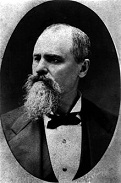


















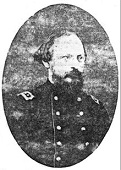














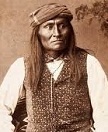






















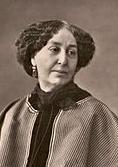




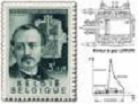

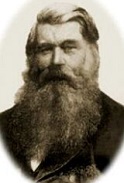










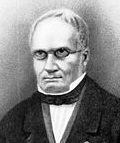

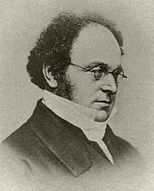


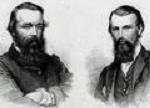
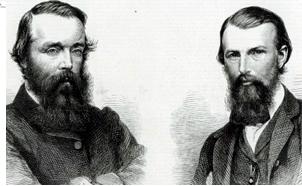

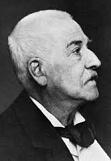



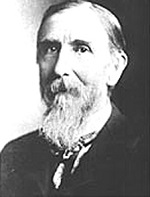
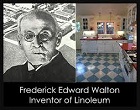
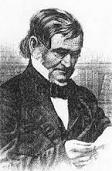
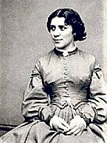
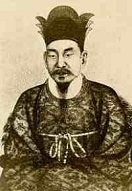









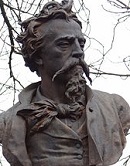
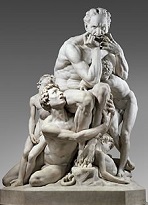



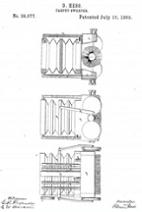
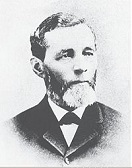



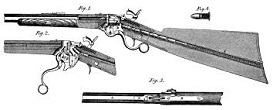
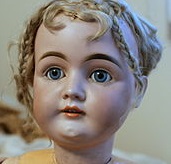
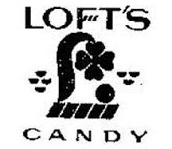
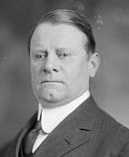
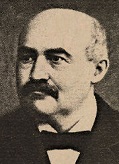
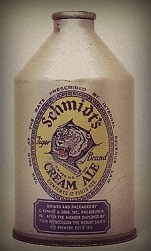
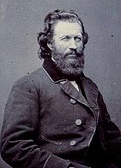
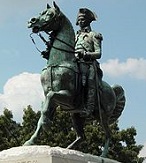
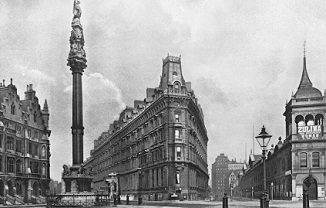
1860 Pop.: Russia: 76M, Italy: 25M, Britain: 23M; Ireland: 5.7M; New York City: 805K; before-the-wind Atlanta, Ga.: 9,554. The Eighth (8th) (1860) U.S. Census reports the total pop. as 31,443,321 in a land area of 2,969,640 sq. mi. (10.6 per sq. mi.); blacks: 4,441,790; free blacks: 488K; the 23 Northern states have a combined pop. of 21M vs. 9M for the Confederate states (5M white, 3.5M slaves); 30.77% of white Confed. households own slaves (316,362 out of 1,027,976); blacks are over 50% of the pop. of S.C. and Miss., and over 40% of the pop. of Ala., Fla., Ga., La. and Va. (excluding W. Va.); the slave pop. was 500K at the end of the Am. Rev. in 1781; the over-65 pop. is 2.7% of the total (849K); one of every eight people in the U.S. is foreign-born; there are 1.6M Irish, 1.3M Germans (one-third Catholic), 588K British (mostly English), 72.6K Scandinavians, and 35.5K Chinese immigrants in the U.S.; pop. of Washington, D.C.: 75,080, incl. 60,763 in the city and 8.7K in the village of Georgetown, 14,316 black incl. 3,185 free and 11,131 slave. As of this year no U.S. Republican owns any slaves. Coal production: Britain 3.7M tons; France: 3M tons; U.S.: 2.8M tons; Germany: 200K tons. Farmers make up 58% of the U.S. work force; the North has 85% of the manufacturing plants, 90% of the capital investment, and 92.5% of the industrial output, and the Civil War causes more factories to sprout, so that by 1875 the U.S. is an industrial giant; immigrants make up over half the labor force in New England mills; the South produces 60% of homemade manufactures. Between this year and 1920 mechanization of agriculture causes 1B acres of land to come under cultivation worldwide, and 1B more by 1980; too bad the Am. South doesn't take advantage to divest itself of slavery gracefully?; Chicago ships 30M bushels of wheat to drought-stricken Europe this year, and 50M next year, despite the outbreak of the U.S. Civil War, with former U.S. atty. gen. Edwin McMasters Stanton (1814-69) issuing the soundbyte: "Without McCormick's invention, I feel the North could not win and that the Union would be dismembered"; the $150 McCormick reaper is sold for $30 down, with the balance to be paid in 6 mo. if the harvest is good and over a longer term if the harvest is bad. By this year the Roman Catholic Church is the largest single denomination in the U.S., thanks mainly to Irish immigration. There are 1,269 breweries in the U.S., with most in Penn. and N.Y.; lager is about 25% of total beer production; an avg. brewery in N.Y. has eight employees making an avg. of $347/year. The Scramble for Africa begins (ends 1905), with European nations partitioning it into spheres of influence, protectorates, and colonies without regard to ethnic divisions, the boundaries persisting into modern times; Africa has up to 10K different states and autonomous groups before whitey goes to work; in 1870 only 10% of Africa is under Euro control, growing to 90% by 1914 (excluding Ethiopia and Libya); "We have been engaged in drawing lines upon maps where no white man's feet have ever trod; we have been giving away mountains and rivers and lakes to each other, only hindered by the small impediment that we never knew exactly where the mountains and rivers and lakes were." (British PM Lord Salisbury) On Jan. 1 after landing its first column last Dec. 17, the Battle of Tetouan (Tétouan) (Tetuán) in Morocco sees a Spanish expeditionary force of 41 ships and 36K men led by Gen. Leopoldo O'Donnell, the 1st Conde de Reus et al. attack the Port of Guad al Gelu, stopping the Moroccan offensive on Jan. 31 and taking Tetouan on Feb. 6, causing O'Donnell to be created the 1st Duke of Tetuan. On Feb. 26 (6:00 a.m.) white settlers massacre 80+ Wiyot Indians in Humboldt Bay in N Calif. near Union Town (Arcata), causing outraged reporter Bret Harte to pub. a protest, which causes him to be hounded out of town to San Francisco, where he begins his lit. career. On Feb. 2 Jefferson Davis presents the Southern platform of unlimited states' rights and enslavers' rights to the U.S. Senate, demanding that all six resolutions be passed for the Southern states to remain in the Dem. Party and the Union. On Feb. 27 beardless Abraham Lincoln gives a speech at the Cooper Union (Inst.) in New York City, followed by a speech on Mar. 6 in New Haven, Conn., establishing him as a viable candidate for the Repub. pres. nomination; in New York he leans on Pres. George Washington for support of his views on the spread of slavery into the Western territories. On Mar. 1 Blanco Gen. Bernardo Prudencio Berro y Larranaga (Larrañaga) (1803-68) becomes pres. of Uruguay (until Mar. 1, 1864), and ends illegal slavery on Brazilian-owned Uruguayan estates, stirring Brazilian wrath. On Mar. 7 Lucien W. Bliss, acting gov. of Colo. Territory duels with Judge Dr. Stone with shotguns over the slavery question in Denver at the Platte-Cherry Creek River junction near a gallows on the N shore, and the judge is shot in the hip, wasting away by early Sept.; meanwhile the town newspaper (Rocky Mt. News) moves to a bldg. on stilts in the middle of Cherry Creek to avoid showing favoritism to the rival town of on the other side, which is incorporated into Denver on Apr. 6; too bad, a flood in 1864 wipes it and most of the towns out, but they rebuild, and the paper moves in 1866 to one of the finest brick bldgs. in town, called the "News Block", then goes on to editorialize until Denver becomes the 4th city on Earth to install electric street lights. On Mar. 9 Japanese ambassador to the U.S. (first) Niimi Buzennokami and his 74-man staff arrive in San Francisco, Calif., arriving on Apr. 25 in Washington, D.C., presenting their credentials to U.S. Pres. James Buchanan, and staying at the Willard Hotel, where a crowd of lookieloos arrives to gape and them and their swords; they then travel to New York City, causing a sensation. Meanwhile, Italy furnishes Americans with a sideshow? On Mar. 15 the papal states in Italy (comprising 17K sq. mi.) go up for grabs as the Struggle for Italian Unification (Risorgimento) begins (ends 1870) as Tuscany, followed by May by Emilia, Modena, Parma, Perugia, and the Romagna vote by plebiscite to join Sardinia, against the will of Napoleon III, while a revolt against new Sicilian king (since 1859) Francis II begins in S Italy; in May the Expedition of the Thousand sees Piedmontese anti-papal parliamentarian Giuseppe Garibaldi (the Great Liberator) (1807-82) sail from Genoa in two small steamers with the volunteer Thousand Red Shirts (I Mille) to free the Italian S, landing in Genoa and capturing it, followed by Marsale on?, and Palermo on May 27; on Aug. 14 he lands in Melito, and marches into the Calabrian Mts. On Mar. 17 the Second Anglo-Maori (First Taranaki) War (ends 1872) begins when Maori chief Wiremu Kingi Te Rangitake (1795-1882) refuses to vacate land the whites were trying to legally steal from him. 80 riders and 400 horses cover for the lack of a telegraph system as Americans have finally stolen the continent from east to west? On Apr. 3 the Pony Express created by the merger of the Central Overland Calif. and Pikes Peak Express Cos. begins service between St. Joseph, Mo. and Sacramento, Calif. (1,850 mi.) (ends Nov. 20, 1861 after 19-1/2 mo.); horses are ridden at full gallop, and are changed at 157 (192?) relay stations 10 mi. (12 mi.?) apart, and each rider rides 100 mi.; founders are William Hepburn Russell (1812-72), William Bradford Waddell (1807-72), and Alexander Majors (1814-1900); posters read "Wanted: young, skinny, wiry fellows not over eighteen. Must be expert riders, willing to risk death daily. Orphans preferred. Wages $25 per week"; the first rider is either Johnny Frye or John William "Billy" Richardson (1850-), who departs St. Jo at exactly 7:15 p.m.; William "Sam" Hamilton becomes the last of 30 men to carry the mail on the westward trip, arriving in Sacramento after midnight on Apr. 14 (about 1 hour less than 10 days total); James Randall picks it up eastbound from San Francisco; when the rider reaches St. Jo, overeager spectators pluck hairs from the horse's tail as souvenirs; meanwhile a steamer carries the mail from Sacramento to San Francisco, and when the Pony Express rider disembarks he is greeted by rockets and a band playing "See, the Conquering Hero Comes"; riders carry their mail in a mochila (saddle mail bag), with 1K or so letters wrapped in water-resistant oiled silk, going from St. Jo to Sacramento via Marysville, Kan., Ft. Kearny, Neb., Julesburg, Colo., Ft. Larami, Wyo., Salt Lake City, Utah, and Friday's Station, Nev.; "Buffalo Bill" Cody is a rider at age 15; the mail costs 10 cents from the East Coast and $5 per half oz. from St. Jo to Sacramento; riders incl. Wild Bill Hickock, and William Frederick Cody, who later becomes Buffalo Bill Cody; the Kansas City Internat. Airport is later built 25 mi. S of St. Jo, "where the Pony Express started and Jesse James ended"; Nicholas, Ky.-born stagecoach tycoon Benjamin "Ben" Holladay (1819-87) buys the Pony Express, establishing the Overland Stage Route over the Overland Trail, starting out with a postal contract for mail service to Salt Lake City and growing to seven routes receiving govt. subsidies of $6M/year until he sells-out to Wells Fargo Express in 1866 for $1.5M. On Apr. 6 the Reorganized Church of Jesus Christ of Latter-Day Saints is formed in Independence, Mo. by disgruntled Mormons who can't hack plural marriage plus other doctrines introduced by Brigham Young, and repudiate the name Moron, er, Mormon, changing its name in 2001 to the Community of Christ - the signs one could put up about the lures of Utah? On Apr. 22 Scottish-born explorer John McDouall Stuart (1815-66) reaches 1,916 ft. (584m) Mt. Stuart, the center of Australia (not really, but he thought so) from the S before encountering hostile natives and turning back, causing a £2K reward to be offered to go all the way to the N coast, and on Aug. 20 the 19-man 27-camel, 23-horse Burke-Wills Expedition (largest exploring party in white Australian history), led by inept Irish-born Robert O'Hara Burke (1821-61) and surveyor William John Wills (1834-61) sets out from Melbourne, Australia to find a S-N route through mainly desert Australia, reaching the Gulf of Carpentaria next Feb.; after returning for home, they arrive at Coopers Creek next Apr. 21, only to find that the party they left there had departed a few hours earlier for Menindee; the men then lose their last camel, become too weak to go on, and Burke and Wills die of starvation in June; Wills' father later edits his diary for pub.; meanwhile Stuart sets out again next Jan. 1 with 12 men and 49 horses, reaches the Gulf of Carpentaria on Feb. 11, and returns in Sept., becoming a big hero. On Apr. 23 the 1860 Dem. Nat. Convention opens in Charleston, S.C., then splits on May 23 into Northern and Southern sections after the Northern delegates refuse to agree to a pro-slavery platform, causing the delegates of eight Southern states, led by William Lowndes Yancey (1814-63) of Ala. to walk out; on June 18 the Northern (rump) section holds its 1860 Dem. Nat. Convention in Baltimore, Md., and splits again, the Northerners on June 23 nominating Ill. Sen. Stephen Arnold Douglas (1813-61) for U.S. pres. and Ga. gov. (1853-7) Herschel Vespasian Johnson (1812-80) for vice-pres.; the 1860 Dem. Party Platform of June 18 defers to the U.S. Supreme Court for guidance on the slavery issue; New York City banking millionaire ("King of Fifth Avenue") August Belmont Sr. (1813-90) (a French-born Prussian Jew who immigrated to New York City in 1837 as the first U.S. rep. of the Rothschild banking house in Frankfurt) supports Douglas and becomes chmn. of the Dem. Nat. Committee, going on to help the Union finance the war with England and France; on June 23 the pro-slavery Southern section of the Dem. Nat. Convention nominates Ky.-born vice-pres. John Cabell Breckinridge (1821-75) (whose portrait bears a striking resemblance to Hollywood actor Kyle MacLachlan (1959-)?) for pres., and N.C.-born Joseph "Joe" Lane (1801-81) for vice-pres.; on May 9 the Constitutional Union Party, made up of former Whigs trying to ignore the slavery issue and concentrate on preserving the Union nominates Nashville-born Tenn. Sen. (former House Speaker) John Bell (1796-1869) for pres. and Boston-born Edward Everett (1794-1865) for vice-pres. Another Faustian bargain, or God's hand? On May 18 (19 mo. after John Brown's Harper Ferry raid) despite candidates like William H. Seward, Salmon P. Chase, and Edward Bates being better known, prepared, and financed, perceived moderate (lesser of evils?) Abraham Lincoln of Ill., after announcing that "no such good luck" was in store for him this time (with the power to carry Ill. and Ind.) outmaneuvers them to win the pres. nomination at the 1860 Repub. Nat. Convention in Chicago, Ill. on the 3rd ballot after the favorite Sen. William H. Seward of N.Y. is perceived as too radical on slavery for Northern tastes and too friendly towards immigrants to please the Know-Nothings now in the party; the 1860 Repub. Platform incl. no extension of slavery, protective tariffs, internal improvements, and free land for Western settlers really pisses the Southerners off, but the Repubs. have written them off anyway; Lincoln's campaign slogan is "Vote yourself a farm"; Hannibal Hamlin is nominated for vice-pres. On May 23 the 1860 Civil Conflict in Mount Lebanon and Damascus between Druzes and Christians begins in Mount Lebanon (ends July 11), starting with Druze massacres of Christians that spread throughout Ottoman-run Syria into Damascus, until a French-led internat. military force intervenes. On June 6 (July 2 Old Style) the Russian military supply ship Manchur commanded by Capt.-Lt. Alexey K. Shefner founds the outpost of Vladivostok (Russ. "ruler of the East") (modern-day pop. 600K) on the Golden Horn Bay near the Russian borders with China and Korea; town status is granted on Apr. 22, 1880; in 1916 the Trans-Siberian Railway connecting Vladivostok to Moscow is completed, giving a royal road to Europe. On June 30 the strange case of Constance Emilie Kent (1844-1944) begins in Somerset, England when 4-y.-o. Francis Savile Kent is found dead in Rode, Wiltshire, England in an outhouse, and in 1865 his half-sister Constance, who was sent to a convent in France confesses to an Anglican clergyman, then turns herself in, after which the clergyman cites the sanctity of sacramental confession to avoid giving evidence against her, which doesn't matter, as she pleads guilty, after which there is a public outcry against the Anglican Church leading to a Parliamentary inquiry; meanwhile Constance Kent is sentenced to death, commuted to life, and released in 1885 at age 41, then lives to 100, getting a congratulatory telegram from the British king; was she the real Jack the Ripper? On June 30 English biologist Thomas Henry Huxley (1825-95) (who coined the term "agnostic") debates with liberal Anglican divine (bishop of Oxford since 1845) Lord Samuel Wilberforce (1805-73) (a fellow of the Royal Society and son of abolitionist William Wilberforce who is known as Soapy Sam from his holy hand-washing gestures) on Darwinian evolution at Oxford U., helping to push it over on the public, although Wilberforce held his ground and got off a good one by asking Huxley whether it was through his grandfather or grandmother that he claims descent from a monkey, to which he replies that he would not be ashamed to have a monkey for his ancestor, but would be ashamed to be connected with a man who used his great gifts to obscure the truth; blind economist Henry Fawcett (1833-84) shouts out that Wilberforce must have never read a word of Darwin's "Origin of Species", and gets away with it because Bewildered Force knows he's blind? - he didn't respond that all Bible thumpers are apes, he just hoped to be understood that way? On July 13 a UFO is spotted in Wilmington, Del., followed by another on Aug. 6 in Norfolk, Va., another on Sept. 24 in Nebraska City, Neb., and another on Nov. 10 Washington, D.C. On July 16 a Muslim uprising in the Christian neighborhood of Bab Tuma in Damascus sees a mob of Druzes, Bedouins, Arab Muslim civilians, and Kurdish auxiliary forces massacre 6K Christians and destroy the Christian quarter before Algerian-born Sufi leader Abdelkader El-Djezairi (1808-83) intervenes to stop it, becoming an internat. hero despite devoting his life to stopping Westernization of the Muslim World - no more Pauls on Straight Street? In July Queen Victoria and Prince Albert sit for stylish new carte de visite photo portraits by John Jabez Edwin Mayall (1813-1901) of Regent St., London. Thanks for your cooperation? On Aug. 1 after China bans foreign embassies in Peking, British forces under Gen. Sir James Hope Grant (1808-75) land, then on Aug. 12 bombard Sinho with the world's first breech-loading rifled artillery pieces, taking the Taku Forts opposite Hong Kong on Aug. 21; meanwhile on Sept. 21 French forces under Gen. Charles Guillaume Marie Apollinaire Antoine Cousin-Montauban (1796-1878) (created Comte de Palikao by Napoleon III in 1862) defeat the Chinese at the Battle of Palikao (Pa-li-Chau) at Eight Mile Bridge outside Peking, and reach Peking on Sept. 26, occupying it with 17K Anglo-French soldiers on Oct. 6, then on Oct. 18-20 burning the already-looted Imperial Summer Palace (Yuan Ming Yuan) 9 mi. NW of Peking (built 1707) at the orders of British high commisioner to China (former gov.-gen. of Canada and son of the Elgin Marbles guy, therefore a pro at destroying historical monuments to get souvenirs?) James Bruce, 8th Earl of Elgin (1811-63) in retaliation for the 10-day imprisonment starting on Sept. 18 of British diplomat Sir Harry Smith Parkes (1828-85), destroying priceless antiquities, along with some hairy parks, but saving a lot of porcelain which ends up in English and French country houses, after which the act is criticized by Victor Hugo et al. as barbaric, although the Brits never give the goodies back; the imperial court is forced to relocate to the Forbidden City (until 1924), and a new smaller Summer Palace is built by Empress Cixi, then burnt again by the Brits in the 1900 Boxer Rebellion; on Oct. 18 the Treaty (Convention) of Peking between junky Qin Dynasty China, Britain, France, and Russia, negotiated by Russian diplomat Count Nikolai (Nikolay) Pavlovich Ignatiev (Ignatyev) (1832-1908) and signed by Prince Gong of China and Lord Elgin of Britain forces China to open 11 ports to Westerners, cede both banks of the Amur River and the land S of Vladivostok (Ussuri Krai, the ancient Manchu province of East Tartary) to Russia, and Stonecutters' Island and 3 sq. mi. of the Kowloon Peninsula to Hong Kong for a 99-year term; on Oct. 24 another treaty gives the British rights to opium trading in 90% of the country, and gives Christians the right to proselytize and own property, ending the Arrow War (begun Oct. 8, 1856) - opium and Christ go hand in hand? On Aug. 11 the first successful silver mill in the U.S. begins operation near Virginia City, Nevada (alt. 6K ft.); in 1865 Virginia City is home to "seven cemeteries full of murdered men, seven empty prisons, 120 saloons, 800 prostitutes, and a place where 16,000 quarts of whiskey were consumed each week", with all of its food needed to be imported, incl. huge quantities of caviar, truffles, lobsters, and champagne imported weekly, causing Mark Twain to call it "the Athens of the West"; as the silver runs out, the town keeps its economy going with cattle, banking, and telegraph and transportation hub services. On Aug. 13 Danilo II (b. 1826) dies, and his nephew Nicholas I (1841-1921) becomes prince-bishop of Montenegro (until Aug. 28, 1910), going on to promulgate the country's first 1860 Montenegran Constitution, and become the country's first and only king in 1910-18. On Aug. 20 (4:00 p.m.) the 19-man Burke and Wills Expedition to explore Australia from S to N, led by Irish-born Robert O'Hara Burke (1821-61) and British-born surveyor William John Wills (1834-61) sets out from Royal Park, Melbourne, reaching the N coast in 1861; too bad, seven die on the return journey incl. both leaders; only Irish-born John King (1838-72) makes it all the way back to Melbourne; on Jan. 23, 1863 a state funeral is held for Burke and Wills, attended by 40K, becoming the biggest funeral in Australia until ?. On Sept. 18 the bloody Battle of Castelfidardo in the Marche is a V for the 39K-man Piedmontese (Sardinian) army under gen. Manfredo Fanti (1806-65) over the 10K-man papal army (formed after a papal call, backed by Jesuit propaganda, and containing volunteers from 22 countries incl. France, Belgium, Austria, Switzerland, Spain, and Canada) under gen. Cristophe Leon Louis Juchault de Lamoriciere (Lamoricière) (1806-65) (who is captured and goes into retirement), reducing the papal states to Lazio after adding the Marches and Umbria to the Kingdom of Italy; the papal army loses 88 KIA, 400 wounded, and 600 captured vs. 61 KIA and 184 wounded for the Piedmontese; while inspecting the casualty list, Piedmontese gen. Enrico Cialdini (1811-92) utters the soundbyte "You would think this was a list of invites for a ball given by Louis XIV"; the Franco-Belgian battalion becomes the nucleus of the papal Zouaves. On Sept. 22 Texas gov. Sam Houston (1793-1863) gives a speech in Austin, appealing to Texas to not secede from the Union, with the soundbyte: "What is there that is free that we have not got? Are our rights invaded and no government ready to protect us? No! Are our institutions wrested from us and other foreign to our taste forced upon us? No! Is the right of free speech, a free press, or free suffrage taken from us? Has our property been taken from us and the government failed to interpose? No, none of these! The rights of the States and the rights of individuals are still maintained... Are we to sell reality for a phantom?" On Sept. 26 Milos Obrenovic I (b. 1780) dies, and his son, former prince of Serbia (1839-42) Michael (Mihailo) Obrenovic III (1823-68) regains his throne (until June 10, 1868), ruling as an enlightened despot, advocating the idea of a Balkan federation against the Ottoman Empire. On Sept. 30 Capt. Elias D. Pierce and a party of prospectors pan less than five cents worth of gold on Nez Perce land, setting off the first Idaho Gold Rush; the town of Pierce is founded in the winter - he thought that Nez Perce meant himself? On Oct. 1-2 Francis II and his 124K-man army are ovolturnoed at the Battle of Volturno (Volturnus) by the combined forces of Giuseppe Garibaldi and Sardinian king Victor Emmanuel II, and flee to the fortress city of Gaeta on Nov. 4, causing the Italian army under gen. Enrico Cialdini to begin the Siege of Capua in Oct. (ends Nov. 2) (the first major contribution to Garibaldi's campaign by the Piedmontese regular army), and the Siege of Gaeta on Nov. 5 (ends Feb. 13); Prussian-born Swiss soldier Col. Friedrich Wilhelm Rüstow (1821-78) is his chief of staff, responsible for the Vs; meanwhile in Oct. Garibaldi declares himself dictator of the Two Sicilies, then gives the whole of S Italy incl. Naples and Sicily to Victor Emmanuel II in Nov., finally uniting N and S Italy, after the latter kicks the butt of the Papal States and goes S to meet him in Naples, avoiding French-guarded Rome; Bologna votes overwhelmingly in favor of annexation to Italy; the new king of Naples goes on to greatly improve its port; Italian journalist Ernesto Teodoro Moneta (1833-1918) fights with Garibaldi in the Expedition of the Thousand, then turns pacifist and wins the 1907 Nobel Peace Prize; Am. Southerners eagerly read about Garbialdi's exploits and adopt him as their hero - especially as his portrait bears a striking resemblance to Gen. Stonewall Jackson, which is where those Clint Eastwood Spaghetti Westerns later come from? On Oct. 3 10K Wide Awakes march for the Repub. Party in New York City in a 3-mi. column; by Sept. there are 4 00K Wide Awakes nationwide, all ready to lynch, er, burn, er, join the Union Army and kick rebel butt under their man Lincoln. A last ditch attempt to save the Union depends on a 47-y.-o. failing lush? In Oct. after Lincoln refuses to campaign in the South (which doesn't even have his name on the ballots), and receiving news in Cedar Rapids, Iowa of Repub. state victories in Penn. and Ind., Stephen Douglas declares "Mr. Lincoln is the next President. We must try to save the Union. I will go South", and begins to campaign extensively in Tenn., Ga. and Ala., commenting, "I do not believe that every Breckinridge man is a disunionist, but I do believe that every disunionist is a Breckinridge man"; even though he is repudiated by the South, he becomes the first pres. candidate to stump the entire country. The die is cast for war Between white and white in America? On Nov. 6 the fateful 1860 U.S. Pres. Election sees beardless Abraham "Honest Abe" Lincoln (1809-65) of the Repub. Party elected pres. of the high-tension U.S., with 1,864,735 votes (40%) (180 electoral votes, a majority), incl. a majority of the votes in the North (only 26,388 votes in the South), compared to 2,821,157 for the combined opposition; Northern Dem. Stephen Douglas gets 1,375,157 votes (29%) (a lousy 12 electoral votes, 9 from Mo. and 9 from N.J.), Southern Dem. John C. Breckinridge gets 847,953 votes (18%) (72 electoral votes, incl. every state in the Deep South plus N.C., Del., Md.); Constitutional Union Party (Whig) John Bell brings up the rear with 589,581 votes (13%), but comes in 3rd in electoral balloting with 39 electoral votes, from Tenn., Va., Ky.); the first (only) time that a third party elects a U.S. pres.; the American people actually end up voting overwhelmingly for pro-Union (all except Breckinridge) and anti-slavery-expansion (Lincoln) candidates, but the stampede for secession is already on (something about not letting the door hit your ass on the way out?); Lincoln gets just 179 votes (25%) in Los Angeles, Calif., and during the war there is talk of pro-Confederacy Southern Calif. splitting off to form its own state, causing Camp Drum (San Pedro) in San Pedro (closed Nov. 7, 1871) to be built next year by the U.S. govt., which stations troops in Catalina Island to prevent Confederate privateers from seizing it; rumors that he's a secret Roman Catholic circulate, based on his past defense of a priest in a slander lawsuit and denunciation of the Know-Nothing Party; Lincoln starts growing a beard after the election after 11-y.-o. Grace Greenwood Bedell (1848-1936) writes him a letter suggesting it, making him the first U.S. pres. to wear one (Grant, Hayes, Garfield, Harrison), and the first photo showing him bearded is taken on Nov. 25 in Chicago by Samuel G. Alschuler - the Emperor Hadrian of presidents? A lame attempt at a last minute compromise proves a critical failure? On Nov. 14 Alexander Stephens addresses the Georgia Legislature on secession; Congress meets, and on Dec. 18 the 11th-hour Crittenden Compromise is offered by Ky. Dem. Sen. (since 1855) (former U.S. atty. gen. in 1841 and 1850-3) John Jordan Crittenden (1786-1863), a member of the Senate Committee of Thirteen appointed to review compromise plans; it proposes a line at 36 deg. 30 min., S of which slavery will be permanently protected in all present and future territories, and offers compensation to the owners of fugitive slaves, causing pres.-elect Lincoln in Springfield, Ill. to advise Repub. senators: "Entertain no proposition for a compromise in regard to the extension of slavery"; Repub. opposition led by tall club-footed Radical House Ways and Means chmn. (1861-8) Thaddeus Stevens (1792-1868) of Penn., known for wearing an ugly wig over his bald head while hooking up with his widowed light-skinned quadroon mistress Lydia Hamilton Smith (1813-84) (who apes Mary Todd Lincoln in dress and appearance) kills it in the House in Jan. and the Senate in Mar. This would be a good time for one hell of a speech? On Dec. 3 lame duck Pres. James Buchanan gives his Fourth Annual Message to Congress, arguing that secession is illegal, but that he lacks authority to coerce a state; however, the pres. can enforce the laws upon individual citizens, since the U.S. officially doesn't recognize secessions; by the end of Dec. two of his three Southern cabinet members depart, and he frantically waffles to the end hoping for a rabbit to come out of a hole, and finally coming to believe he'd be the last U.S. pres. - if he only weren't such a wuss, everybody's thinking? On Dec. 6 the S.C. legislature sets a special election to choose delegates to a convention for Dec. 20. On Dec. 7 after the railroad reaches it on July 4, the city of Valdosta, Ga. ("the Azalea City") 140 mi. S of Macon (modern-day pop. 56K) is incorporated, becoming the center of long-staple cotton growing manned by black slaves; in 1897 the world's 2nd Coca-Cola bottling plant opens there; in 1899 the cotton mill town of Remerton is founded 2 mi. away; Valdosta later becomes known for its sweet mild Valdosta Onions. Oh what I wouldn't give to have these two weeks back? On Dec. 20 S.C. unanimously votes an Ordinance of Secession, dissolving "the union between the State of South Carolina and the other States united with her under the compact entitled 'The Constitution of the United States of America'", and seceding from the Union (#1); before Lincoln's inauguration six more Southern slave states secede, with eight more of the 15 slave states on the fence. On Dec. 26 Maj. Robert Anderson (1805-71) (a pro-slavery Unionist from Ky.) moves his 80-man garrison from Ft. Moultrie to the more defensible but uncompleted Ft. Sumter in seceded Charleston, S.C. Harbor, saying to the South, in effect, "up yours"; this is one of only four U.S. military posts in seceded states, and the most important; S.C. politely requests the Union to transfer the fort, but Pres. Buchanan refuses. In Dec. 30 white miners surprise-attack the camp of some Bedonkohe Apaches on the W bank of the Mimbres River, killing four and capturing 13 women and children, pissing-off Apache chief Mangas Coloradas (1793-1863), who goes on the warpath, raiding U.S. territory. Spanish pretender Don Carlos Luis (1818-61) and his brother Ferdinand land in Spain in an attempt to start an uprising, but it fizzles and they are captured, and Don Carlos renounces his claims; when he dies next year his youngest brother Don John (Juan) inherits his claims. William "Coffee Cowboy" Walker of the U.S. attempts another invasion of Nicaragua, then Honduras, where he is executed; the British return the Bay Islands and part of Mosquitia to Honduras. Peru adopts a liberal (but more conservative than in 1856) 1860 Peruvian Constitution, which lasts for 60 years (until 1920) (except 1862-8 and 1879-81), reducing the pres. term to four years but giving him greater powers, while allowing congress to examine his admin. acts at the end of each legislative session; his cabinet members must also report to congress. The Food Adulteration Act is passed in Britain, becoming the first gen. pure food law in the English-speaking world; despite it, 87% of bread and 74% of milk in London is still adulterated by next year. Norodom I (1834-1904) becomes king of Cambodia (until 1904). There is a smallpox epidemic in Penn. (ends 1861). France annexes Savoy, the last piece of the medieval kingdom of Burgundy or Arles in SE France, formed in 933. Finland acquires its own currency, the Finnish markka. Scottish-born hatmaker and liberal self-taught laissez-faire economist James Wilson (1805-60), founder of The Economist mag. and the Std. Chartered Bank develops India's first budget, incl. an income tax that becomes widely hated by the zamindars (landed class), persisting to modern times; his understudy Sir Richard Temple later utters the soundbyte: "He [Wilson] introduced for the first time in India a financial budget framed upon the English model – inspired the public mind with fresh confidence – brought together the threads of finance which had been broken and scattered by a military and political convulsion – stimulated the operations of the Military Finance Commission to review the numerous branches of civil expenditure – reviewed the existing system of audit and account – besides discharging the multifarious duties devolving on a finance minister and a member of the general government." Prince Albert Edward of Wales visits Canada, starting a custom of goodwill visits by members of the British royal family to British dominions and other countries. After the efforts of Susan B. Anthony, married women in New York State are given guardianship of their children and control of their own earnings. The British, while claiming neutrality, and backed by the U.S., begin sending arms to the Manchus to reopen the opium trade, while the Taipings, attempting to become good Christians plead Europe and the U.S. for Christian missionaries, most of whom refuse to go because of propaganda by the British and U.S. missionaries already there, who want to impose only their brand of Christianity, and consider heretic Chinese Christians worse than the Manchus, setting the Taipings up to be crushed by the Manchus, and the Boxer Rebellion later to want to kill all foreign devil Christians; in 1864 there are 200 Protestant missionaries in China from 30 different sects, increasing to 1.3K missionaries by 1889. Bestselling travel writer Frederick Temple Hamilton-Temple-Blackwood, Lord Dufferin (1826-1902) begins his diplomatic career as British commissioner to Syria, working his way up to gov.-gen. of Canada in 1872 and viceroy of India in 1884. Blacks helping whites kill reds and browns, doo-dah, doo-dah? Beginning in this decade immigrant parties of whites who run into Indians in the Am. West are routinely killed, mutilated, raped, and butchered; in 1866 the Buffalo Soldiers (black troopers of the 9th and 10th cavalry regiments and the 24th and 25th infantry regiments) are formed to fight in the Final (Solution?) Indian Wars (1864-90); the name Buffalo is a mark of respect from the Indians; during the U.S. Civil War blacks offering themselves for military service in the E are turned into cooks, carpenters, and laborers at first, but by war's end almost 200K serve under the U.S. flag; in 1864-90 45K+ Indians are killed by the palefaces in "the final solution to the Indian problem" (Gen. William Tecumseh Sherman); Adolf Hitler later becomes a fan of Wild West Old Shatterhand novels by German writer Karl Friedrich May (1842-1912), using the genocide number done on the Indians as his model for Jews? In this decade Russian intelligentsia begin a relentless campaign until the 1960s against the poshlost, "the Russian version of banality, with a characteristic national flavoring of metaphysics and high morality, and a peculiar conjunction of the sexual and the spiritual. This one word encompasses triviality, vulgarity, sexual promiscuity, and a lack of spirituality." (Svetlana Boym) In this decade the Mormons drop "Great" from the name of Salt Lake City. In this decade The Avenues neighborhood of N Salt Lake City, Utah is established, with a perfect gridlike street pattern on 2.5-acre blocks, with N-S streets named for trees, and E-W streets given names incl. Fruit, Garden, Bluff, and Wall, changing by 1885 to A-V Sts., changing to A-V Aves. in 1907; the SW side attracts artisans, while the E side becomes known as Butcherville for its slaughterhouses; water is scarce until 1908, after which it becomes a middle-upper class trolley suburb; newer towns incl. Denver, Colo. copy the grid pattern, becoming known as Mormon Towns. In this decade the French under Marie Joseph Francis (Francois) Garnier (1839-73) try to find a navigable route up the Mekong (Mae Nam Khong) River into China, but give up after encountering rapids near Kratie, Cambodia, followed by the Khone Falls in S Laos, which has double the water flow of Niagara Falls (most in the world). In this decade the British Israel Movement is launched in Britain by the Freemasons and Jews to create a new state of Israel in Ottoman-controlled Muslim-filled Palestine; meanwhile the British Israelism (Anglo-Israelism) movement claims that the British royal family are direct descendants of King David. In this decade the Joker card starts out as the Best Bower in the game of Euchre (Juker), evolving into the Joker in the 1870s and arriving in Europe in the 1880s along with the game of Poker. In this decade Harris, Scotland begins producing hand-woven hand-spun Harris Tweed, made with wool from Scottish Blackface sheep; nearby Lewis later begins making hand-woven machine-spun tweed, with shorter fibers. In this decade the Shakers of Mount (New) Lebanon, N.Y. begin producing minimalist ladder-back turned post chairs with woven seats. In this decade Frogs, er, French poets Stephane Mallarme (Stéphane Mallarmé) (Étienne Mallarmé) (1842-98), Paul-Marie Verlaine (1844-96), Arthur Rimbaud (1854-91) et al. found the Symbolist Movement in Poetry, based on Charles Baudelaure's 1857 Les Fleurs du mal (The Flowers of Evil) and the works of Edgar Allen Poe, claiming that there is another world beyond the surface, and coming up with soundbytes incl. "drunken boats", "fragrances fresh as the flesh of children", etc.; Yeats later joins; Edgar Allan Poe and Pierre Baudelaire are claimed to be forerunners; Mallarme holds famous Tues. night soirees (Mardistes) attended by Oscar Wilde, William Butler Yeats, Paul Valery, Andre Gide, Marcel Proust et al. Count Leo Tolstoy makes a trip to Europe, confirming his revulsion at Western society, and next year manumits his serfs and establishes a school for former serf and peasant children. Scottish-born detective Allan Pinkerton (1819-84) makes his rep with the recovery of a large sum for the Adams Express Co. Garroting becomes popular in England in this decade as tool of highway robbers. The first modern Welsh Nat. Eisteddfod (Gael. "eistedd" = sit) (first held in 1176) is held in Denbigh. In this decade cartoonist Thomas Nast begins portraying Santa Claus as wearing a soft fur hat. Glass ornaments replace sweets on Christmas trees in Germany. The empress of Austria has a sensational 16-in. waist. By this year in the U.S. there are only about 300 public high schools and 10K public libraries (not all of them free) housing 8M vols. By now there are 817 steamboats operating on W U.S. rivers. In this decade steel rails are substituted for iron rails in railways. Robert Fizroy of the British Meteorological Office coins the word "forecast". Englewood, Colo. is founded in the area of Little Dry Creek S of Denver under the name Orchard Place by Thomas Skerritt, who ploughs the first road to Denver in 1864; in 1883 the Cherrelyn horsecar path is laid, later hosting the Cherrelyn horse trolley, which connects with Denver's Broadway (until 1908); Englewood is incorporated in 1903, with landowner J.C. Jones as mayor #1; in 1905 Swedish Nat. Sanatorium (later Swedish Medical Center) is founded; in 1849 the city purchases 2.5K acres on the Platte Canyon, creating McLellan Reservoir, giving it water independence from Denver, sparking a building boom; in 1965 Cinderella City Mall is founded on the former city park, opening on Mar. 7, 1968, becoming the largest covered mall W of the Mississippi River; it is demolished in 1999. The Russian Orthodox Church establishes a monastery in Jerusalem. The lost ruins of the Temple of Angkor Wat in Cambodia are rediscovered (for the umpteenth time?) in the jungle by French explorer Henri Mouhot (1826-61), who dies next year in Laos, after which his memoirs become a bestseller; the ruins are cleared in 1908 and a moated park created around them. Wheaton College is founded in Wheaton, Ill. by Wesleyan Methodist abolitionists, going coed and becoming a stop on the Underground Railroad. In this decade R.W. Little of England founds Societas Rosicrucia in Anglia the modern movement of Rosicrucianism, claiming ties to the 1413 Society of the Rose and Cross. The first schoolhouse opens in Boulder, Colo. The Free Methodist Church of North Am. is founded in Pekin, N.Y. by lay members excluded from the Genesee Conference of the Methodist Episcopal Church who want to restore the historic Wesleyan faith sans slavery, secret societies, and rented pew seats; co-founder Benjamin Titus "B.T. Roberts (1823-93), author of "New School Methodism" becomes its first bishop. The Catholic Times begins pub. in Britain (until ?). After a series of articles in the London Times (1855-65) on the scandal of naked bathing (on separate beaches), women begin wearing modest bathing suits of serge, replacing vast canvas smocks; men wear a striped sailor's costume - picture yourself here, and here? French photographer Nadar (Gaspard-Felix Tournachon) (1820-1910) copyrights a series of Photos of the Genitalia of a Hermaphrodite, which are later put on display at Musee D'Orsay in Paris. The city of Bakersfield, Calif. at the S end of the San Joaquin Valley (modern-day pop. 376K/839K) is founded by German immigrant Christian Bohna; too bad, it is swept away by floods in 1862, after which Ohio settler Thomas Baker refounds the town at Baker's Field in 1863, growing to 600 pop. by 1870 and incorporating as a city in 1873, becoming the seat of Kern County in 1874 until bad sheriff Alexander Mills causes the town to disincorporate in 1876, not reincorporating until Jan. 11, 1898, going on to become known for agriculture and oil production, and as the birthplace of the Bakersfield Sound. The town of Lincoln Park (originally Lake Park and Cemetery Park, renamed on June 12, 1865) facing Lake Michigan in N Chicago, Ill. is established, becoming the home of the Chicago History Museum, Peggy Notebaert Nature Museum, Lincoln Park Conservatory et al. The Census for Va. and N.C. lists 348 tobacco factories, virtually all producing chewing tobacco; only six produce smoking tobacco from leftover scraps; the first manufactured cigarettes appear, incl. the Bull Durham brand. Gentlemen's club living in London's West End reaches "a scale of splendour and completeness hitherto unattainable". In this decade the theatrical district of New York City becomes concentrated along the Bowery, an avenue parallel to Broadway between Chatham Square and Cooper Square which was originally an Indian trail, then the road to the farm (bouwerij) of Gov. Peter Stuyvesant; by 1870 it becomes a center of vice, and by the end of the cent. is a center for Yiddish theater. P.T. Barnum gets Siamese twins Chang and Eng to come out of retirement for a 6-week engagement. The Tonghak (Donghak) (Eastern Learning) mass movement in Samnye, Cholla Province, Korea is founded by Choe Je-u (Che-u) (Korean "save and proclaim") (1824-64) AKA Su-un ("water cloud"), a syncretic religion combining Confuscian, Buddhist, Daoist, and Roman Catholic elements to fight Western influence (learning), return to the Way of Heaven, and help the rural poor, sparking peasant revolts leading to his execution by order of the Daewongun on Apr. 15, 1864 on trumped-up charges. Ohio-born William Tecumseh Sherman becomes the first supt. of the new military college in La., and resigns next year after La. is on the verge of secession in order to join the Union side. Oxford student Algernon Charles Swinburne (1837-1909) gets off to a fast start, writing two dramas and contributing verse and prose to Undergraduate Papers, ed. by John Nicol (1833-94), then leaving without a degree and hanging out with poets Dante Gabriel Rossetti and William Morris. German-born Jewish "Can Can" composer Jacques Offenbach (1819-80) becomes a French citizen. French actor Benoit-Constant Coquelin (1841-1909) makes his debut at the Comedie-Francaise on Dec. 7 as the comic valet Gros-Rene, becoming a star of 40+ plays during the next 32 years (until 1892). Ralph Waldo Emerson writes "The stern old faiths have all pulverized. 'Tis a whole population of gentlemen and ladies in search of religions." Charles Darwin writes a Letter to Asa Gray, with the soundbyte: "I own that I cannot see as plainly as others do, and as I should wish to do, evidence of design and beneficence on all sides of us. There seems to be too much misery in the world. I cannot persuade myself that a beneficent and omnipotent God would have designedly created the Ichneumonidae with the express intention of their feeding within the living bodies of caterpillars, or that a cat should play with mice"; too bad for gleeful atheists, he adds "On the other hand, I cannot anyhow be contented to view this wonderful universe, and especially the nature of man, and to conclude that everything is the result of brute force. I am inclined to look at everything as resulting from designed laws, with the details, whether good or bad, left to the working out of what we may call chance"; in the Apr. 21, 1862 London Illustrated News he adds "I feel most deeply that this whole question of Creation is too profound for human intellect. A dog might as well speculate on the mind of Newton! Let each man hope and believe what he can." Josiah Dwight Whitney (1819-96) is appointed chief of the Calif. Geological Survey (until 1874), getting Mount Whitney (highest point in the continental U.S.) and Whitney Glacier on Mount Shasta (first confirmed glacier in the U.S.) named after him despite screwing up with the Calaveras Skull Hoax in 1866, and wrongly dissing John Muir for claiming that the Yosemite Valley was carved by glaciers. Frisco (F-Town), Tex. (modern-day pop. 170K) on the Shawnee (Preston) Trail starts out as Lebanon, Tex.; in 1902 the St. Louis-San Francisco Railway builds a watering stop 4 mi. W of Lebanon on low ground called Emerson, which in 1904 is renamed Frisco City in honor of the railway. Gump's Store is founded in San Francisco, Calif. for Silver Rush winners, specializing in fancy gilded mirrors; "Gump's is everything you want and nothing you need"; it is located across the street from Morton's Alley (later called Maiden Lane), heart of the brothel district, where hundreds of 6.5' x 4.75' rooms turn over 80-100 johns a night each - honey, look what I just bought you? Gay English scholar Oscar Browning (1837-1923) becomes a master at Eton College, going on to hook up with Jewish artist Simeon Solomon in 1868, then get dismissed in 1875 for having an "overly amorous" relationship with pupil George Curzon after taking him on a trip to Europe without parental permission. The Maj School of Czech poetry, led by Vitezslav Halek (1835-74) dumps Byronic moronic romanticism in favor of social realism and political reform as the Bohemians are given more freedom by the Austrian constitutional reforms. Standard & Poor's is founded to pub. research and analysis on U.S. stocks and bonds by Henry Varnum Poor (1812-1905). The New York World begins pub. (until 1931), becoming the voice of the Dem. Party; in 1883 it is acquired by Joseph Pulitzer, who plunges it into yellow journalism, raising circ. to 1M, hiring Nellie Bly, who pioneers investigative journalism, and repeats Jules Verne's 1873 novel "Around the World in Eighty Days" in 72 days in 1889-90; in 1890 the New York World Bldg. is built, becoming the world's tallest office bldg.; in 1896 it becomes the first newspaper with a color supplement. The Cornhill Mag. is founded in London (until 1975), with William Makepeace Thackeray as ed., going on to inculcate innocuous Victorian morals through articles and serialized novels, and attracting Queen Victoria herself to pub. Leaves from the Journal of Our Life in the Highlands in it. Paperback dime novels and guide books appear with the establishment of Irvin P. Beadle & Co. Gross sales of books in the U.S. is nearly $20M this year, up from $2M in 1820 and $12M in 1850; from 1820-60 U.S. authors increase their share of the U.S. market from about one-third to two-thirds. In this decade the phrase "An apple a day keeps the doctor away" first appears as an old saying from Pembrokshire, Wales; the modern form appears in 1922. Philly-born Anna Elizabeth Dickinson (1842-1932) begins giving abolitionist speeches, continuing throughout the Civil War and earning an unheard-of $20K a year in some years. Later in this decade the Burlesque Show is brought to the U.S. from Britain by amply proportioned Lydia Thompson (1838-1908) and her British Blondes, later evolving into strip tease. The U. of Aberdeen in Scotland is formed by the merger of King's College (founded 1495) and Marischal College (founded 1593), becoming the first medical school in Britain. James Athearn Folger (1835-89) founds J.A. Folger Coffee Co. in San Francisco, Calif. In this decade W.H. Goss of Stoke-on-Trent in England becomes producing small porcelain ornaments bearing the arms of towns, which become popular. Loft Inc. candy co. is founded in Lower Manhattan, N.Y. by London-born English immigrant William Loft (1828-1919), who hands his business to his eldest son George William Loft (1865-1943) in the 1890s, who expands the business and builds a factory in Long Island City, N.Y., going on to become the world's largest candymaker in the 1920s; in June 1941 it merges with PepsiCo, which spins-off the Loft Candy Corp. The Christian Schmidt Brewing Co. is founded in Philly by Machstadt, Wurttemberg, Germany-born Christian Schmidt (1833-94); in 1896 it acquires Robert Smith's Brewery, growing to #13 in the U.S. in 1959 (1.75M barrels). Higbee's department store is founded on Sept. 10 in Cleveland, Ohio by Edwin Converse Higbee and John G. Hower; in 1929 it is acquired by the Van Sweringen brothers; in 1935 it goes bankrupt. Architecture: In this decade Kansas State Penitentiary is founded in Lansing County, Kan. in Leavenworth County; in 1990 it is renamed Lansing Correctional Facility. Denver Gen. Hospital is founded at 11th Ave. and Wazee St. in Denver, Colo., moving to 6th Ave. and Cherokee St. in the Lincoln Park neighborhood in 1873, founding the first nursing school W of the Mississippi River and pioneering the treatment of TB; on Jan. 1, 1997 it becomes a quasi-state agency called Denver Health Medical Center. The Russian Compound in Jerusalem is begun for Orthodox Catholic Russian pilgrims (finished 1864); it later becomes the admin. center for the British Mandate of Palestine. The Westminster Palace Hotel is founded in the heart of London's political district next to Westminster Abbey and Westminster Palace, which houses Parliament, becoming the first hotel in London with hydraulic lifts (elevators); the 140-room wing at the rear of the hotel becomes the home of the India Office that governs India until it moves to Whitehall in 1867; in 1867 if hosts the London Conference that finalizes the Confederation of Canada; in 1909 Mohandas Gandhi stays there; in the 1920s it is converted to an office bldg. until it is demolished in 1974, becoming a branch of Barclays Bank. Sports: Baseball becomes popular in New York City and Boston; new West Coast fun city San Francisco picks it up. John Carmel Heenan (1833-73) of the U.S., AKA "the Bernicia Boy" (not to be confused with the Roman Catholic Cardinal born in 1905) and Tom Sayers (1826-65), AKA "the Little Wonder", "Napoleon of the Prize Ring" of Britain fight for the bare-knuckle boxing title, but Sayer supporters break into the ring (as Heenan is winning?), stopping it. On Oct. 17 the first British Open golf tournament is held in Prestwick, Ayrshire, Scotland by the Prestwick Golf Club (founded 1851); William "Willie" Park Sr. (1834-1903) defeats Thomas Mitchell "Old Tom" Morris (1821-98) of St. Andrews by two strokes to become the 1st winner, receiving a red leather belt with silver buckle, but no money; next year amateurs are admitted. In 1866 "Old Tom" Morris wins his first pro golf championship. About this time the British discover the game of Polo in India; by now they use balls instead of goat or human (enemy) heads. The annual Queen's Prize for rifle shooting in Bisley, England is founded; winners get a gold medal and badge, 250 pounds, and a signed portrait of the queen. Architecture: The Mariinsky Theatre in St. Petersburg, Russia opens, going on to become the #1 Russian opera-ballet theater, staging the works of Tchaikovsky, Rimsky-Korsakov, Mussorgsky et al. Inventions: After his clean-shaven lithograph of Abraham Lincoln flops, Vienna, Maine-born lithographer Milton Bradley (1836-1911) introduces his first game The Checkered Game of Life, which sells 45K copies the first year and goes on to become the first popular parlor game in the U.S.; it originally includes a "Suicide" square; he later drops the word "Checkered" from the title. About this time Bisque (China) (Porcelain) Dolls, made of unglazed porcelain are made in France, having a realistic skin-like matte finish; their popularity peaks by 1900. On Aug. 28 Hamilton E. Smith of Philly patents (#29830) a hand-cranked Washing Machine with paddles that push the laundry through the water; it takes until 1910 to add an electric motor. On Oct. 16 the .44 cal lever-action Henry Repeating Rifle is patented in the U.S. by Benjamin Tyler Henry (1821-98), making the breech-loading rifles look lame, but is slow to be adopted because it is thought to waste expensive ammo, and the first ones are used by the U.S. Army in mid-1862; Oliver Winchester steals the design for the Model 1866 repeating rifle, with an added loading gate on the side and a wooden forearm; too bad, the Sioux and Cheyenne get their hands on some, and use them against Custer at the June 1876 Battle of Little Bighorn. Charles D. Dickinson creates a 400 rounds/sec. steam-powered machine gun and puts it on display in Baltimore, Md.; too bad Md. states rights activist Ross Winans laches onto it, causing worries that he might sell it to the rebels, causing police to seize it and return it to Dickinson, who tries to do it himself, causing the Union army to seize it and use it for several defensive positions in the North; it never sees combat. Christopher Spencer invents the .56-56 magazine-fed lever-operated Spencer Repeating Rifle, which the U.S. military is slow to adopt despite Pres. Lincoln requesting a personal demo on the White House lawn soon after the Battle of Gettysurg, and ordering Gen. James Wolfe Ripley (1794-1870) to adopt it for production, who stalls, causing him to be replaced as head of the ordnance dept. on Sept. 15, 1863; meanwhile some units purchase the rifles independently, and it proves popular; the fact that his nephew Roswell Sabine Ripley (1823-87) is a brig. gen in the Confed. army has nothing to do with it? Gaspare Campari (1828-82) of Italy invents Campari alcoholic bitters, colored with carmine dye. On July 10 David Hess of West Union, Iowa receives U.S. Patent #29,077 for an improved carpet sweeper using a bellows that sucks dust into two water chambers. In this decade Belgian-born chef Lucien Olivier (1838-83) of the Hermitage restaurant in Moscow, Russia invents Olivier (Russian) Salad, consisting of caviar, lettuce, capers, crayfish tails, smoked duck, grouse, and veal tongue, with a Mayonnaise-like dressing; it becomes popular after less expensive ingredients are substitutec, incl. potatoes, eggs, ham, and chicken. In this decade Norwegian whaling Capt. Svend Foyn invents a bomb-tipped harpoon for faster whale killing, along with steam-powered whaling boats, allowing fast rorqual whales to be hunted in great numbers, reaching 66K in 1962, then decreasing to 15K by 1980. Daniel Hess invents the Carpet Sweeper. The first sound recording is made on Apr. 19 on a Phonautograph (which records sound visually not aurally), a 10-sec. recording of "Au Clair de la Lune" by 1857 inventor Edouard-Leon Scott de Martinville (1817-79), a Parisian typesetter; in Mar. 2008 Lawrence Berkeley Nat. Lab scientists convert it to sound. L.O. Colvin invents the milking machine, allowing milk to be delivered in bottles for the first time. Samuel Archer King (1828-1914) and William Black take the first aerial photographs, two Photos of Boston, Mass. from a Balloon, which survive to modern times. "Autocrat of the Breakfast Table" Oliver Wendell Holmes Sr. (1809-84) of the U.S. invents an improved hand-held Skeleton Stereoscope, and donates it to the public domain, with the soundbyte "It is no toy; it is a divine gift, placed in our hands by science"; by 1869 it becomes popular. Fat whitey won't have to ride a horse much longer? Jean Joseph Etienne Lenoir (1822-1900) of Luxembourg constructs the first practical internal-combustion engine, an 18 liter 1-cylinder 2-stroke mechanism burning coal gas and air and ignited by a "jumping spark" ignition system, producing 2 hp at 4% efficiency; he forms the Gauthier Co. to produce a 3-wheeled automobile, which, although noisy and unreliable causes Scientific American to pronounce the Steam Age at an end; by 1865 he builds 143 of them; meanwhile in 1863 he adds a carburetor; too bad, he fails to keep up with Nikolaus Otto et al. and his design becomes obsolete, and he dies broke. Victor Mustel (1815-90) of France invents the Dulcitone (Typophone), a tuning-fork harpsichord, which becomes the forerunner of the Celesta (1886). English inventor Sir Joseph Wilson Swan (1828-1914) invents the Carbon-Filament Incandescent Lightbulb, but it is defective (partial vacuum only) and he doesn't perfect it until 1878, receiving patent #4933 on Nov. 27, 1880. English rubber manufacturer Frederick Edward Walton (1834-1928) invents Linoleum, (Lat. "linum" + "oleum" = flax + oil) made of linseed oil, which he calls Kampticon to compete against rival Kamptulicon (patented in 1843), patenting it in 1863; it becomes the first widely-used smooth surface floor covering. A process for making paper from wood pulp is invented, boosting the lumber industries in the U.S. and Finland. In this decade the first low-carb diet is devised, becoming the first best-selling diet plan. In this decade Mrs. LeGrand Benedict invents Eggs Benedict after she becomes bored with the lunch menu at Delmonico's in New York City; either that or in the 1890s hung-over banker Lemuel Benedict makes a special order at the Waldorf-Astoria? Science: In June-Nov. the Newark Holy Stones are allegedly discovered by David Wyrick in a cluster of ancient Hopewell Indian burial mounds near Newark, Ohio, consisting of a stone bowl, the Keystone inscribed in Hebrew with "Holy of Holies", "King of the Earth", "The Law of God", and "The Word of God", and the Decalogue Stone inside a sandstone box, complete with a bearded robed turban-wearing man holding a tablet along with the legend "Moses", whipping up Mormons with apparent archeological proof of the Book of Mormon; too bad, they prove to be a hoax, incl. the use of modern Hebrew. The Karlsruhe Congress in Germany of Euro scientists on Sept. 3-5 utilizes the results of the work of Stanislao Cannizzaro of Italy to standardize the atomic weight of hydrogen as about 1, helping chemistry leap ahead. The Internat. Statistical Congress in London honors black Am. physician Martin Robinson Delany (1812-85), causing a white Am. delegate to walk out. French chemist Pierre Eugene Marcelin Berthelot (1827-1907) turns sucrose into glucose and fructose (invertase) with a non-living ferment made from mashed yeast cells, theorizing that all ferments are non-living, but is overruled by Louis Pasteur (1822-95), who claims a distinction between soluble and cell ferments. Ludwig Boltzmann (1844-1906) of Austria and James Clerk Maxwell (1831-79) of Scotland begin the development of Statistical Mechanics, treating gas as a collection of huge numbers of billiard balls obeying Newton's Laws of Motion. German scientists Robert Wilhelm Eberhard von Bunsen (1811-99) and Gustav Robert Kirchhoff (1824-87) discover the elements Cesium (Cs) (#55) (most electropositive element) and Rubidium (Rb) (#37), both of which ignite spontaneously in air, becoming the first time that spectroscopic identification is used to prove the existence of new elements. Dutch opthalmologist Franciscus Cornelis Donders (1818-89) introduces prismatic and cylindrical lenses for treatment of astigmatism; in this decade he first uses human reaction time to infer differences in cognitive processing. German psychologist Gustav Theodor Fechner (1801-87) announces Fechner's Law, that the intensity of sensation varies arithmetically with an exponential variation of the arousing stimulus. French economist Clement (Clément) Juglar (1819-1905) proposes the existence of Economic Waves (Cycles), starting with the Juglar Fixed Investment Wave of 7-11 years. French geologist-paleontologist Edouard (Édouard) Lartet (1801-71). discovers remains of the Aurignacian Culture in Aurignac in Haute-Garonne, SC France, dated about -40K, later known as the first modern humans of Europe. After failing to fit it into his Theory of Evolution, Charles Darwin writes the immortal soundbyte: "The sight of a feather in a peacock's tail makes me sick." After grape growers near Tarascon in S France notice decay in vineyards where they may have experimented with cuttings of U.S. vines resistant to powdery mildew, Louis Pasteur proves that abiogenesis doesn't work, and invents Pasteurization for wine, raising it to 120F to kill the smaller type of yeast cells that survive alcohol and keep changing the sugar to lactic acid and turning it sour; in 1865 he is summoned to Alais in S France to investigate a disease that is killing silkworms, and discovers the bacilli causing silkworm disease, then stops the spread of the disease by having infected silkworms killed and removed from contact with the healthy ones, saving the French silk industry. Nonfiction: Friedrich Bleek (1793-1859), Einleitung in das Alte Testament (posth.). George Boole (1815-64), Treatise on the Calculus of Finite Differences. Georg Morris Brandes (1842-1927), Aesthetic Studies. Sir John Charles Bucknill (1817-97), The Medical Knowledge of Shakespeare. Robert Wilhelm Bunsen (1811-99) and Gustav Robert Kirchoff (1824-87), Chemical Analysis by Observation of Spectra; causes spectral analysis to become an instant sensation. Jacob Burckhardt (1818-97), The Civilization of the Renaissance in Italy; defines the Renaissance as the period between Italian painters Giotto and Michelangelo, founding cultural history; becomes a std. work, making him the #1 scholar of the Italian Renaissance, with his scholarly judgments standing up to modern research; makes a fan of Friedrich Nietzsche; "The great discoverer of the age of the Renaissance, he first showed how a period should be treated in its entirety, with regard not only for its painting, sculpture and architecture, but for the social institutions of its daily life as well." (Siegfried Giedion) Ralph Waldo Emerson (1803-82), The Conduct of Life. John William Parker (1792-1870) (ed.), Essays and Reviews (Mar.); a collection of seven articles by seven evolution-infected Oxford and Cambridge Anglican clergymen ( Charles Wycliffe Goodwin, Benjamin Jowett, Mark Pattison, Baden Powell, Frederick Temple, Rowland Williams, Henry Bristow Wilson) that sells 22K copies in two years (same that Darwin's book sells in 20 years) and stirs up a 5-year controversy over religious faith in Victorian society by publicizing the German Higher Criticism of the Bible incl. how Moses didn't write the Books of Moses, and David didn't write the Psalms, recommending that the Bible be read like any other book, denying the possibility a collection of seven articles by six evolution-infected Oxford and Cambridge Anglican clergymen (Benjamin Jowett, Mark Pattison, Baden Powell, Frederick Temple, Rowland Williams, Henry Bristow Wilson) and one layman (Charles Wycliffe Goodwin) that sells 22K copies in two years (same that Darwin's book sells in 20 years) and stirs up a 5-year controversy over religious faith in Victorian society by publicizing the German Higher Criticism of the Bible incl. how Moses didn't write the Books of Moses, and David didn't write the Psalms, recommending that the Bible be read like any other book and denying the possibility of miracles, calling belief in them atheistic, and slamming the cosmogony in Genesis; appears 4 mo. after pub. of Charles Darwin's "On the Origin of Species"; Bible-thumpers incl. Oxford Bishop Samuel Wilberforce get pissed-off, calling the authors "the Seven Against Christ" and getting two of them charged with heresy, causing Darwin, geologist Charles Lyell, and mathematician William Spottiswoode to sign an open letter supporting the book as trying to "establish religious teachings on a firmer and broader foundation"; "Let E = Essays, and R = Reviews: then the locus of (E + R), referred to multilinear coordinates, will be found to be a superficies (i.e., a locus possessing length and breadth, but no depth)" (Lewis Carroll); "Outwardly, the conflict ended inconclusively, with the acquittal of Williams and Wilson by the courts and the condemnation of the volume by the clergy in Convocation. At a deeper level, it marked the exhaustion both of the Broad Church and of Anglican orthodoxy and the commencement of an era of religious doubt." (Josef L. Altholz) Gustav Theodor Fechner (1801-87), Elements of Psychophysics; founds modern experimental psychology (psychophysics). Ludwig Feuerbach (1804-72), Gottheit, Freiheit und Unsterblichkeit. Theodor Fontane (1819-98), Aus England, Studien und Briefe; Jenseits des Tweed, Bilder und Briefe aus Schottland. Oliver Wendell Holmes Sr. (1809-94), The Professor at the Breakfast Table; first pub. in "Atlantic Monthly". Benjamin Jowett (1817-93) et al., Essays and Reviews (Mar.); seven essays on Biblical higher criticism by seven liberal Anglican churchmen, who are condemned as "The Seven Against Christ"; the church brings charges of heresy against Jowett, and although he is acquitted he is forbidden to teach from the Oxford U. pulpit, although Arthur Penrhyn Stanley (1815-81), who becomes dean of Westminster Abbey in 1863 (leading liberal theologian in England) lets him give an annual sermon there beginning in 1866. Elias Lonnrot (1802-84), Flora Fennica - Suomen Kasvisto; the first Finnish language flora of Finland. Bon Louis Henri Martin (1810-83), Daniel Manin. John Stuart Mill (1806-73), Considerations on Representative Government. Charles de Montalembert (1810-70), Pius IX in France in 1849 and 1859; Histoire des Moines d'Occident depuis Saint Benoit jusqu'a Saint Bernard (The Monks of the West from St. Benedict to St. Bernard) (1860-77). Augustus De Morgan (1806-71), Syllabus of a Proposed System of Logic; founds Relation Algebra, which is used by Bertrand Russell and Alfred North Whithead in their "Principia Mathematica", and developed by Charles Sanders Peirce, Ernst Schroeder, and Alfred Tarski. John Lothrop Motley (1814-77), The History of the United Netherlands (4 vols.) (1860-8). William Page (1811-85), A New Geometrical Method of Measuring the Human Figure. Capt. R.M. Potter, The Fall of the Alamo. Sergey Solovyov (1820-79), History of Poland's Downfall. Louis Spohr (1784-1859), Autobiography (posth.). Henry Baker Tristram (1822-1906), The Great Sahara. Forbes Benignus Winslow (1810-74), On the Obscure Diseases of the Brain and Mind. Joseph Emerson Worcester (1784-1865), A Dictionary of the English Language; attempts to supplant Webster's "vulgar" American Dictionary, and does it until 1864 after losing the Dictionary Wars; first Am. dictionary with illustrations throughout the text, and first to treat synonyms. Music: Johannes Brahms (1833-97), Two Serenades. Stephen Foster (1826-64), Old Black Joe. Charles Gounod (1818-93), Philemon et Baucis (opera); La Colombe (opera). Sebastian de Iradier (1809-65), La Paloma; popularizes the Cuban habanera. Jacques Offenbach (1819-80), Le Papillon (The Butterfly) ("fantastic ballet") (Nov. 26) (Salon Le Peletier, Paris); libretto by Jules-Henry Vernoy de Saint Georges; stars Emma Livry as Farfalla the Butterfly, Louise Merante as Prince Djalma, Louise Marquet as the Fairy Hamza, and Mme. Simon as the Diamond Fairy. Franz von Suppe (1819-95), Das Pensionat (operetta) (Nov. 24) (Vienna); first Viennese operetta ever? Anna Bartlett Warner (1827-1915), Jesus Loves Me (poem); pub. in her older sister Susan's novel "Say and Seal"; in 1862 York, Maine-born William Batchelder Bradbury (1816-68)sets it to music, along with the chorus: "Yes, Jesus loves me. Yes, Jesus loves me"; "Jesus loves me, this I know,/ For the Bible tells me so;/ Little ones to Him belong/ They are weak, but He is strong." Art: Edgar Degas (1834-1917), Spartan Boys and Girls Exercising. Jean-Leon Gerome (1824-1904), Greek Interior; purchased by Prince Napoleon Joseph Charles Paul Bonaparte for his house in Paris, which Gerome decorates in the Pompeian style. William Holman Hunt (1827-1910), Finding of the Saviour in the Temple. Franz von Lenbach (1836-1904), The Goatherd. Edouard Manet (1832-83), Spanish Guitar Player. Clark Mills (1810-83), Equestrian Statue of Lt. Gen. George Washington (sculpture); erected in Washington Circle in Washington, D.C.; authorized by Congress on Jan. 25, 1853; shows Washington leading an advance on the redcoats at the Jan. 3, 1777 Battle of Princeton, with the horse's mane copied from "Napoleon Crossing the Alps" by Jacques-Louis David (1805); dedicated on Feb. 22 by Pres. Buchanan; cost: $60K. Valentine Cameron Prinsep (1838-1904), The Queen was in the Parlour. Marie Spartali Stillman (1844-1927), Forgetfulness. John Quincy Adams Ward (1830-1910), Indian Hunter (sculpture); first statue erected in New York City's Central Park. Henryk Wieniawski (1835-80), Legende, Op. 17; good enough to convince his babe Isabella Hampton's daddy to let him marry her. Plays: Sir Francis Burnand (1836-1917), Dido (Feb. 11) (St. James's Theatre, London); his first production, launching his career in rivalry with W.S. Gilbert; The Iles of St. Tropez. Dion Boucicault (1820-90), The Colleen Bawn (London); adaptation of Gerald Griffin's novel "The Collegians". Alexander Ostrovsky (1823-86), The Storm; his masterpiece. Algernon Charles Swinburne (1837-1909), The Queen Mother; Rosamond. Poetry: Dorothy Greenwell (1821-82), The Patience of Hope. John Ceiriog Hughes (1832-87), Oriau'r Hwyr (Evening Hours) (debut). George Pope Morris (1802-64), Poems; incl. Woodman, Spare that Tree; My Mother's Bible; A Long Time Ago. Coventry Patmore (1823-96), Faithful For Ever. Novels: Wilkie Collins (1824-89), The Woman in White; pioneers the mystery novel; Laura's fortune and identity are stolen by her new hubby, causing her half-sister Marian and poor art master Walter Hartright to come to her rescue, while Anne Catherick, the you know what pops in and out. Felix Dahn (1834-1912), Die Konige der Germanen (Kings of Germany) (20 vols.) (1860-1911) - a daunting work? Charles Dickens (1812-70), Great Expectations (1860-1); illustrations by Marcus Stone; first pub. in All the Year Round from Dec. 1, 1859-Aug. 3, 1860; Philip Pirrip (Pip) is told he has great you know whats; Miss Havisham, Abel Magwitch, Estella, blacksmith Joe Gargery, Mr. Jaggers, Wemmick, actor Mr. Wopsle, Biddy. George Eliot (1819-80), The Mill on the Floss (3 vols.); siblings Tom and Maggie Tulliver grow up on the Floss River near St. Ogg's, England in the 1820s; she hooks up with hunchbacked Phillip Wakem and wealthy Stephen Guest; the river floods and they drown; "In their death they were not divided" (epigraph). Theodor Fontane (1819-98), Manner und Helden. Nathaniel Hawthorne (1804-64), The Marble Faun; the Beatrice Cenci (1577-99) case; Hilda and Mariam debate her guilt for murdering her sexually-abusive daddy, with Mariam calling it "no sin at all, but the best possible virtue in the circumstances". Eugene Labiche, Le Voyage de M. Perrichon. George Meredith (1828-1909), Evan Harrington. Multatuli (Eduard Douwes Dekker) (1820-87), Max Havelaar; tasks the Dutch bourgeoisie for its treatment of Javanese natives; brings him instant fame. Petroleum V. Nasby (David Rosse Locke) (1833-88), Civil War Letters of the Rev. Petroleum Vesuvius Nasby (1860-5); Copperhead Dem. Confed. deserter tries to get a sinecure job with the "Post Orfis"; big hit with Abraham Lincoln, who says "If he will communicate his talent to me, I will swap places with him." Douglas O'Connor, Harrington: A Story of True Love; first written mtion of the Birkenhead Drill (women and children first). Thomas Love Peacock (1785-1866), Gryll Grange (last novel). Charles Reade (1814-84), White Lies; adapted from a work by Auguste Maquet. George Sand (1804-76), La Ville Noire; Marquis de Villemer. Friedrich Spielhagen, Problematische Naturen. Mrs. Ann S. Stephens, Malaeska: The Indian Wife of the White Hunter (June 9); first dime novel; an Indian maiden marries a white settler and has a mixed son; sells 65K copies in a few mo., and 300K copies total (duh, $30K?); first of a series of 321 by Beadle & Adams; each is about 6.5 in. x 4.25 in., salmon-colored, and about 100 pages, and most are lurid outlandish melodramatic frontier stories. Robert Smith Surtees (1803-64), Plain or Ringlets? Theodore Dwight Woolsey (1801-89), Introduction to the Study of International Law. Births: Am. "Brill-Zinsser Disease" physician Nathan Edwin Brill (d. 1925) on Jan. 3 in New York City. Canadian "Earth's Enigmas" poet Sir Charles George Douglas Roberts (d. 1943) on Jan. 10 in Douglas, N.B. Am. "The Bearcat" actor Charles K. French (Charles E. Krauss) (d. 1952) on Jan. 17 in Columbus, Ohio. Nicaraguan pres. (1925-6) Carlos Jose Solorzano Gutierrez (José Solórzano Gutiérrez) (d. 1936) on Jan. 17 in Managua. Irish pres. #1 (1938-45) (founder of the Gaelic League) Douglas Hyde (d. 1949) (AKA An Craoibhin Aoibhinn) on Jan. 17 in Frenchpark, County Roscommon; educated at Trinity College, Dublin. Am. supermarket magnate Bernard Henry "Barney" Kroger (d. 1938) on Jan. 24 in Cincinnati, Ohio; German immigrant parents. U.S. Repub. vice-pres. #31 (1929-33) Charles Curtis (d. 1936) on Jan. 25 in Topeka, Kan.; white father, Indian mother (25% Kaw, 25% Osage, 25% Pottawatomie, 25% French). Russian "The Seagull", "The Cherry Orchard", "Uncle Vanya" dramatist and short story writer Anton Pavlovich Chekhov (Chekov) (Tchekhov) (d. 1904) on Jan. 29 (Jan. 17 Old Style) in Taganrog; medical degree from the U. of Moscow in 1884. English "Gentleman Joe, The Hansom Cabbie" composer-conductor Walter Alfred Slaughter (d. 1908) on Feb. 17 in Fitzroy Square, London; student of Alfred Cellier (1844-91). Swedish Impressionist painter Anders Leonard Zorn (d. 1920) on Feb. 18 in Mora, Dalarna. Austrian diplomat Gen. Wladimir Rudolf Karl Freiherr Giesl von Gieslingen (d. 1936) on Feb. 18 in Funfkirchen (Pecs), Hungary; youngest son of Heinrich Karl Giesl von Gieslingen (1821-1906). Czech naturalistic novelist-journalist Karel Matej Capek-Chod (d. 1927) on Feb. 21 in Domazlice; not to be confused with Karel Capek (1890-1938) of Rossum's Universal Robots fame, who worked with him at Narodni Listi mag., causing to accept the nickname "Chod". English economic historian Sir William James Ashley (d. 1927) on Feb. 25 in Bermondsey, South London; educated at Balliol College, Oxford U. French WWI Gen. Francois Paul Anthoine (d. 1944) on Feb. 28. Am. Socialist leader (Jewish) Victor Louis (Luitpold) Berger (d. 1929) on Feb. 28 in Nieder Rehbach, Austria-Hungary; educated at the U. of Budapest, and U. of Vienna; emigrates to the U.S. in 1878; first Socialist in the U.S. Congress (House seat for Wisc.) (1911-28). Am. Shakespearean scholar-educator George Lyman Kittredge (d. 1941) on Feb. 28 in Boston, Mass.; educated at Harvard U.; never gets a doctorate, with the TLW-like soundbyte "But who would examine me?" Am. punched card inventor Herman Hollerith (d. 1929) on Feb. 29 in Buffalo, N.Y.; of German heritage; educated at Columbia U. - he started with an extra punch in his card? Am. ML baseball pitcher-SS-mgr. John Montgomery "Monte" Ward (d. 1925) on Mar. 3 in Bellefonte, Penn.; educated at Columbia U. Am. 6'2" baseball hall-of-fame RF (lefty) (Detroit Wolverines, 1885-8) (Philadelphia Phillies, 1889-98), Detroit Tigers (1906) Samuel Luther "Big Sam" Thompson (d. 1922) on Mar. 5 in Danville, Ind.; known for wearing a handlebar mustache. German ambassador to Great Britain (1912-4) Karl Max, 6th Prince Lichnowsky (d. 1928) on Mar. 8 in Krzyzanowice, Upper Silesia. Am. showman Abraham (Charles) Henson "Arizona Charlie" Meadows (d. 1932) on Mar. 10 near modern-day Visalia, Calif.; 6th of 12 children. Am. New York City Beaux Arts architect Thomas Hastings (d. 1929) on Mar. 11 in New York City; goes into partnership in New York City in 1884 with John Merven Carrere (1858-1911). U.S. Sen. (D-Md.) (1923-9) and writer William Cabell Bruce (d. 1946) on Mar. 12 in Charlotte county, Va. Italian "Assunta Spina" playwright-songwriter Salvatore di Giacomo (d. 1934) on Mar. 12 in Naples. Am. Dem. Okla. gov. #1 (1897-1911) Charles Nathaniel Haskell (d. 1933) on Mar. 13 in Leipsic, Ohio. Austrian song composer Hugo Wolf (d. 1903) on Mar. 13 in Windischgraz, Styria; put in a mental insitution in 1897. Am. Dem. pacifist prohibitionist Neb. politician-orator and Presbyterian Scopes Trial Bible thumper ("the Great Commoner") William Jennings Bryan (d. 1925) on Mar. 18 in Salem, Ill.; breaks with his Methodist mother to get baptized into the Presbyterian Church in 1874. British Christian evangelist Rodney "Gipsy" Smith (d. 1947) on Mar. 31 in Epping Forest (near London); born to Gypsies (Romani) in a tent. French glass designer Rene Jules Lalique (d. 1945) on Apr. 6 in Ay, Marne. Am. breakfast cereal king and philanthropist (Seventh-Day Adventist) (vegetarian) (inventor of Kellogg's Corn Flakes) Will Keith Kellogg (d. 1951) on Apr. 7 in Battle Creek, Mich.; brother of John Harvey Kellogg (1852-1943). English welfare activist Emily Hobhouse (d. 1926) on Apr. 9 in St. Ive, Cornwall; brother of Leonard Trelawny Hobhouse (1864-1929). English Stokes Mortar inventor Sir Frederick Wilfred Scott Stokes (d. 1927) on Apr. 9 in Liverpool; knighted in 1917. Belgian "Christ's Entry into Brussels" painter-etcher (surrealist precursor) James Sidney Edouard, Baron Ensor (d. 1949) on Apr. 13; English descent father, Flemish mother; founds the Dead Rat Ball in Ostend in 1898. British film pioneer Charles (Carl) Urban (d 1942) on Apr. 15 in Cincinnati, Ohio; Austrian-Prussian immigrant parents; loses sight in left eye at age 12 after a baseball accident. British Lt. Gen. Sir Archibald James "Old Archie" Murray (d. 1945) on Apr. 23 in Kingsclere, Hampshire; educated at Chettenham College, and Royal Military College, Sandhurst. Am. sculptor Lorado Zadok Taft (d. 1936) on Apr. 29 in Elmwood, Ill. English physiologist (discoverer of peristalsis of the intestines) Sir William Maddock Bayliss (d. 1924) on May 2 in Butcroft, Wednesbury, Staffordshire; co-discoverer of the hormone secretin with Ernest Henry Starling (1866-1927); educated at Wadham College, Oxford U.; knighted in 1922. Austrian journalist-playwright-writer (Jewish) (Zionism founder) ("the Seer of the Jewish State") Theodor Herzl (d. 1904) on May 2 in Pest, Hungary. Scottish self-experimenting physician-physiologist (inventor of the gas mask) John Scott Haldane (d. 1936) on May 3 in Edinburgh; father of J.B.S. Haldane (1892-1964) and Naomi Mitchison (1897-1999). Scottish "Peter Pan" dramatist-novelist Sir James Matthew Barrie, 1st Baronet (d. 1937) on May 9 in Kirriemuir, Angus; educated at Edinburgh U. Am. electric chair guinea pig William Francis Kemmler (d. 1890) on May 9 in Philadelphia, Penn.; German immigrant parents. U.S. First Lady (1913-4) Ellen Louise Axson Wilson (d. 1914) on May 15 in Savannah, Ga.; 1st wife of U.S. Pres. Woodrow Wilson. Italian liberal PM #35 (1917-9) Vittorio Emanuele Orlando (d. 1952) on May 19 in Palermo, Sicily. German chemist (discoverer of enzymes) Eduard Buchner (d. 1917) on May 20 in Munich; brother of bacteriologist Hans Buchner (1850-1902). Dutch physician-physiologist ("Father of the Electrocardiograph") Willem Einthoven (d. 1927) on May 21 in Semarang, Java. Am. psychologist ("Dean of Am. Science" - NYT) James McKeen Cattell (d. 1944) on May 25 in Easton, Penn.; educated at the U. of Leipzig, the U. of Gottingen, and Johns Hopkins U. Spanish "Iberia", "Asturias" pianist-composer Isaac Manuel Francisco Albeniz i Pascual (d. 1909) on May 29 in Camprodon, Catalonia; child prodigy; great-grandfather of Cecilia Sarkozy (1957-), 2nd wife of Nicolas Sarkozy. English "Camden Town Nudes" Impressionist painter Walter Richard Sickert (d. 1942) May 31 in Munich; emigrates to England in 1851; the real Jack the Ripper? English Anglican theologian ("the Gloomy Dean") William Ralph Inge (AKA Dean Inge) (d. 1954) (pr. EENG) on June 6 in Crayke, Yorkshire; educated at Eton College, and King's College, Cambridge U.; dean of St. Paul's Cathedral, London (1911-34). Russian Grand Duke Dimitry (Dimitri) Constantinovich (d. 1919) on June 13 in Streina; 1st cousin of Alexander III. British gen. Sir Charles Carmichael Monro, 1st Baronet of Bearcrofts (d. 1929) on June 15 at sea aboard Maid of Judah; educated at Sherborne School, and Sandhurst Academy. English sculptor Sir George Frampton (d. 1928) on June 18 in London; pupil of William Silver Frith. Am. auto designer Alexander Winton (d. 1932) on June 20 in Grangemouth, Stirling, Scotland; emigrates to the U.S. in 1880. English "Nicholas Crabbe", "Hadrian the Seventh" novelist (gay) Frederick William Serafino Austin Lewis Mary Rolfe (AKA Baron Corvo) (d. 1913) on July 22 in Cheapside, London; converts to Roman Catholicism in 1886 then goes off the deep end?; basis of James Joyce's Stephen Dedalus? French "Louise" composer Gustave Charpentier (d. 1956) on June 25. Canadian historian-clergyman George MacKinnon Wrong (d. 1948) on June 25 in Grovesend, Elgin County, Ont.; educated at Wycliffe College. Hungarian statesman Count Julius Andrassy Jr. (Gyula Andrassy de Csikszentkiraly et Krasznahorka the Younger) (d. 1929) on June 30 in Toketebenes; son of Count Julius Andrassy Sr. (1823-90). Am. "Women and Economics", "Herland", "The Yellow Wallpaper" women's activist writer Charlotte Anna Perkins Gilman (d. 1935) on July 3 in Hartford, Conn.; great-niece of Harriet Beecher Stowe and Isabella Beecher Hooker. U.S. state secy. (1909) and ambassador to France (1909-12) Robert Bacon (d. 1919) on July 5 in Jamaica Plain, Mass. Am. Socialist writer (Jewish) Abraham Cahan (1951) on July 7 in Podberezhye, Lithuania; emigrates to the U.S. in 1882. Bohemian "Das Lied von der Erde" composer-conductor Gustav Mahler (d. 1911) on July 7; conductor of the Hamburg, Vienna and New York Metropolitan Operas. Am. "The Virginian" novelist Owen Wister (d. 1938) on July 14 in Philadelphia, Penn.; educated at Harvard U. Am. alleged axe-murderer Lizzie Borden (d. 1927) on July 19. Czech Art Nouveau artist Alphonse (Alfons Maria) Mucha (d. 1939) on July 24 in Ivancice (near Brno), Moravia. Scottish motion picture pioneer William Kennedy Laurie Dickson (d. 1935) on Aug. 3 in Le Minihic-sur-Rance, Brittany, France; Am. mother; invents celluloid film and picks 35mm as the std. size. Norwegian Antarctic explorer Carl Anton Larsen (d. 1924) on Aug. 7 in Ostre Halsen; becomes British citizen in 1910. Austrian Fuhrermutter Klara Hitler (nee Polzl) (d. 1907) on Aug. 12 in Spital, Weitra, Waldvertiel; daughter of Johann Baptist Polzl and Johanna Polzl (nee Hiedler) (1830-1906); mother of Adolf Hitler (1889-1945). Am. 6'2" atty.-gunfighter ("Lone Wolf of the Canadian") (Roman Catholic convert) (alcoholic) Temple Lea Houston (d. 1905) on Aug. 12 in Austin, Tex.; last son of Sam Houston (1793-1863); educated at Baylor U.; likes to wear a black frock coat and white Stetson along with shoulder-length auburn hair, and lace his courtroom arguments with lit. allusions incl. Shakespeeare and the Bible; outside the courtroom he likes to wear a buckskin shirt, caballero pants, wide-brimmed sombrero with a silver eagle in the crown, his daddy's miniature gold saber pin, and a pearl-handled revolver. Am. 5' sharpshooter ("Little Sure Shot") Annie (Phoebe Anne) Oakley (Moses) (Mozee) (d. 1926) on Aug. 13 in Patterson Township, Darke County, Ohio; Quaker innkeeper parents; 5th of eight children; widowed mother puts her in the county poor farm and a local family, who abuse her (until she learns how to shoot?). Canadian "Two Little Savages" children's writer-illustrator and scoutmaster Ernest Thompson Seton (Seton Thompson) (d. 1946) on Aug. 14 in South Shields, England; emigrates to Canada in 1866. U.S. Repub. First Lady (1921-3) Florence "Flossie" Mabel Kling DeWolfe Harding (d. 1924) on Aug. 15 in Marion, Ohio; wife (1891-) of Pres. Warren G. Harding; daughter of Amos Hall Kling, richest man in town, and Louisa Mabel Kling. Russian foreign minister (1910-16) Sergei (Sergius) Dmitrievich Sazonov (Sazonoff) (d. 1927) on Aug. 10 in Ryazan. French conservative PM (1912-3, 1922-4, 1926-9) and pres. (1913-20) Raymond (Raimond) Poincare (Poincaré) (d. 1934) on Aug. 20 in Barle-Duc, Meuse; cousin of mathematician Jules Henri Poincare (1854-1912). German inventor Paul Julius Gottlieb Nipkow (d. 1940) on Aug. 22 in Lauenberg, Prussia. German Nordic racist eugenicist (coiner of the term "racial hygiene") Alfred Ploetz (d. 1940) on Aug. 22 in Swinemunde; grows up in Breslau. Am. department store magnate (Jewish) Edward Albert Filene (d. 1937) on Sept. 3 in Salem, Mass.; son of William Filene (1830-1901); brother of Abraham Lincoln Filene (1865-1957). Am. writer and Progressive movement leader Jane Addams (d. 1935) on Sept. 6 in Cedarville, Ill.; daughter of John Huy Addams (1822-81); first cousin twice removed of Charles Addams (1912-88). Am. late-blooming farmer's wife and primitive painter Anna Mary Robertson "Grandma" Moses (d. 1961) on Sept. 7 in Washington County, N.Y.; begins painting at age 77 when she gets arthritis and can't hold needles that she was using to embroider pictures on canvas. Canadian "Black Rock" novelist Ralph Connor (Charles William Gordon) (d. 1937) on Sept. 13 in Glengarry County. Romanian surgeon Thoma Ionescu (d. 1926) on Sept. 13 in Plesti. U.S. army gen. John Joseph "Black Jack" Pershing (d. 1948) on Sept. 13 near Laclede, Mo.; CIC of Am. Expeditionary Forces in WWI, and first to rise to George Washington's rank of gen. of the armies while still alive (until ?); starts out a schoolteacher then sees an ad for West Point - does one war have the seeds of the next in it, or what? Am. "A Son of the Middle Border" writer and psychical researcher Hannibal Hamlin Garland (d. 1940) on Sept. 14 near West Salem, Wisc.; named after Hannibal Hamlin; disciple of Henry George (1839-97); works on farms in Wisc., Iowa, and S.D., then writes short stories that bitterly denounce farm life. Am. Repub. Calif. gov. #22 (1907-11) James Norris Gillett (d. 1937) on Sept. 20 in Viroqua, Wisc. English inventor Daniel "Dan" Albone (d. 1906) on Sept. 12 in Biggleswade, Bedfordshire. English gov.-gen. #1 of Australia (1900-2) John Adrian Louis Hope, 7th Earl of Hopetoun (d. 1908) on Sept. 25 in Hopetoun House, South Queensferry, Scotland; educated at Eton School. Am. "The Greatest Trust in the World" journalist-writer (co-founder of the NAACP) Charles Edward Russell (d. 1941) on Sept. 25 in Davenport, Iowa. Am. "Little Nemo", "Gertie the Dinosaur" animator-cartoonist Zenas Winsor McCay (d. 1934) on Sept. 26. Russian grand duke Paul (Pavel) Alexandrovich (d. 1919) on Oct. 3 in Tsarskoye Selo; 6th son and youngest child of Alexander II and 1st wife Maria Alexandrovna; brother of Alexander III; uncle of Nicholas II. Swiss army knife manufacturer Karl Elsener (d. 1918) on Oct. 9; father of Carl Elsener Jr. (1886-1950); grandfather of Carl Elsener III (1922-2013); great-grandfather of Carl Elsener IV (1958-). Am. "The Americanization of Edward Bok" writer and "Ladies' Home Journal" ed. (1890-1920) Edward William (Eduard Willem Gerard Cesar Hidde) Bok (d. 1930) on Oct. 9 in Den Helder, Netherlands; emigrates to the U.S. at age six; grows up in Brooklyn, N.Y.; coiner of the term "living room". English jurist-diplomat (Jewish) Rufus Daniel Isaacs, 1st Marquess of Reading (d. 1935) on Oct. 10 in London; knighted in 1910; created baron in 1914, viscount in 1916, and marquess in 1926 (highest rank by a Jew in British history until ?, and it had to be for reading?). U.S. Maj. Gen. William Luther sibert (d. 1935) on Oct. 12 in Gadsden, Ala.;e ducated at the U. of Ala. Am. electrical engineer (gyrocompass co-inventor) ("Father of Modern Navigation Technology") Elmer Ambrose Sperry (d. 1930) on Oct. 12 in Cincinnatus, N.Y.; educated at Cornell U. Canadian steamship line heir Lt. Col. Sir Hugh Andrew Montagu Allan (d. 1951) on Oct. 13 in Montreal, Quebec; son of Sir Hugh Allan (1810-82). Am. anti-suffrage novelist Molly Elliot Seawell (d. 1916) on Oct. 23 in Gloucester, Va.; daughter of John Tyler Seawell (nephew of U.S. Pres. John Tyler). Japanese Judo ("way of softness") founder Jigoro Kano (d. 1938) on Oct. 28 in Mikage; sake brewing parents. Am. historian Frederic Bancroft (d. 1945) on Oct. 30 in Galesburg, Ill.; brother of Edgar Addison Bancroft (1857-1925); educated at Amherst College, and Columbia U. Am. Girl Scouts founder (1912) Juliette Gordon "Daisy" Low (Juliette Magill Kinzie Gordon) (d. 1927) on Oct. 31 in Savannah, Ga.; lives in a Regency-style townhouse at 142 Bull St. until her Dec. 21, 1886 marriage to William Mackay "Willy" "Billow" Low (-1905), during which a grain of rice infects her ear drum, making her deaf on that side, after which she is presented at Queen Victoria's Court in 1887. Am. politician ("Father of Prohibition") Andrew John Volstead (d. 1947) on Oct. 31 in Kenyon, Minn.; Norwegian immigrant parents; educated at St. Olaf College. U.S. Sen. (R-Penn.) (1897-1921) "Boss" Boies Penrose (d. 1921) on Nov. 1 in Philadelphia, Penn.; brother of Spencer Penrose (1865-1939). Am. crime boss Jefferson Randolph "Jeff" "Soapy" Smith II (d. 1898) on Nov. 2 in Coweta County, Ga. English archeologist-historian (founder of Romano-British archeology) Francis John Haverfield (d. 1919) on Nov. 8 in Shiptson-on-Stour, Warwickshire; educated at Winchester College, and Oxford U.; teacher of Thomas Ashby (1874-1931), R.G. Collingwood (1889-1943), and John Garstang (1876-1956). Am. film pioneer (inventor of the Magniscope) Edward Hill Amet (d. 1948) on Nov. 10 in Philadelphia, Penn. Polish pianist-composer-statesman Ignace (Ignacy) Jan Paderewski (d. 1941) on Nov. 18 in Kurylowka, Russian Podolia. English painter Arthur John Elsley (d. 1952) on Nov. 20. Am. gunman celeb Tom Horn (d. 1903) on Nov. 21 near Memphis, Mo. Swedish Socialist PM (1920, 1922, 1924-5) Karl Hjalmar Branting (d. 1925) on Nov. 23 in Stockholm; founder of the Swedish Socialist Party (1889). Am. surgeon (dir. #1 of the Nat. Institutes of Health, 1887-99) Joseph James Kinyoun (d. 1919) on Nov. 25 in East Bend, N.C.; educated at St. Louis Medical College, Bellevue Medical College, and Georgetown U. British Brig. Gen. Arthur Willoughby George Lowry Cole (d. 1915) on Nov. 29. Am. jurist John Bassett Moore (d. 1947) on Dec. 3 in Smyrna, Del.; educated at the U. of Va. Am. Hormel Foods Corp. founder George Albert Hormel (d. 1946) on Dec. 4 in Buffalo, N.Y.; German immigrant father. Am. singer-actress (soprano) and suffragette Lillian Russell (Helen Louise Leonard) (d. 1922) on Dec. 4 in Clinton, Iowa. German composer-pianist Richard Burmeister (d. 1946) on Dec. 7 in Hamburg; student of Franz Liszt. Irish "Dear Lord the day of eggs is here" so-bad-it's-good novelist-poet Amanda McKittrick Ros (d. 1939) on Dec. 8 in Drumaness, County Down. English writer-ed. Leonard Huxley (d. 1933) on Dec. 11; son of Thomas Henry Huxley (1825-95); father of Julian Huxley (1887-1975), Aldous Huxley (1894-1963), and Andrew Fielding Huxley (1917-); educated at St. Andrews U., and Balliol College, Oxford U. Am. poet (founder of "Poetry" mag. in 1912) Harriet Monroe (d. 1936) on Dec. 12 in Washington, D.C. Danish physician (firt Danish Nobel Prize winner) Niels Ryberg Finsen (d. 1904) on Dec. 15 in Torshavn, Faroe Islands; founder of phototherapy (for lupus). Am. "Woodland Sketches" Romantic composer-pianist Edward Alexander MacDowell (d. 1908) (AKA Edgar Thorn) on Dec. 18 in New York City. Am. Zionist leader (Jewish) (1912 founder of Hadassah) Henrietta Szold (d. 1945) on Dec. 21 in Baltimore, Md.; rabbi father; educated at Johns Hopkins U. Am. Palmer Method penmanship teacher Austin Norman Palmer (d. 1927) on Dec. 22 in Ft. Jackson, N.Y. Czech PM #1 (1918-9) Karel Kramar (d. 1937) on Dec. 27 in Vysoke nad Jizerou. German composer-pianist Alexander von Fielitz (d. 1930) on Dec. 28 in Dresden. Am. "The Wizard of the Nile" lyricist-composer Harry Bache (Bach) Smith (d. 1936) on Dec. 28 in Buffalo, N.Y.; brother of Robert Bache Smith (1875-1951); collaborator of Victor Herbert (1859-1924). English Impressionist artist Philip Wilson Steer (d. 1942) on Dec. 28 in Birkenhead; son of Philip Steer (1810-71) - what state is he from? Am. Tommy Gun inventor John Taliaferro Thompson (d. 1940) on Dec. 31 in Newport, Ky.; son of a Union Army Lt. Col. Am. "The Science of Getting Rich" New Thought writer Wallace Delois Wattles (Walters) (d. 1911) in Ill. Am. stage actress Rehan (Ada Crehan) (d. 1916) in Limerick, Ireland; emigrates to the U.S. in 1865. English "Kashmiri Song" composer Amelia "Amy" Woodford-Finden (nee Ward) (d. 1919) in Valparaiso, Chile; Am. father, English mother; hubby is an English army surgeon in India. French aviation pioneer Armand Deperdussin (d. 1924) in Liege. French archeologist-numismatist (Jewish) Theodore Reinach (d. 1928); brother of Joseph Reinach (1856-1921) and Salomon Reinach (1858-1932). Dutch poet-novelist-philosopher Frederik Willem van Eeden (d. 1932) in Haarlem. Am. jockey (black) William "Billy" Walker (d. 1933) near Versailles, Ky.; born a slave. Welsh anarchist miner James Colton (d. 1936) in Scotland. Am. army Col. B.W. Dunn (d. 1936); inventor of dunnite, used in armor-piercing shells. Am. Filene's dept. store magnate (Jewish) Edward Albert Filene (d. 1937) in Boston, Mass.; German Jewish immigrant parents; brother of Abraham Lincoln Filene (1865-1957). English Arctic explorer Frederick George Jackson (d. 1938); educated at Edinburgh U. German Bavarian gen.-diplomat Max, Count von Montgelas (d. 1938) in St. Petersburg, Russia; grandson of Maximilian von Montgelas (1759-1838). English painter Frederick Marriott (d. 1941). Deaths: German patriot Ernst Moritz Arndt (b. 1769) on Jan. 29 in Bonn. Scottish physician-explorer William Sommerville (b. 1771) on June 25 in Florence, Italy. British rear Adm. Thomas Cochrane (b. 1775) on Oct. 31 in Kensington, London. English antiquarian William Martin Leake (b. 1777) on Jan. 6 in Brighton. Am. novelist and U.S. Navy secy. (1838-41) James Kirke Paulding (b. 1778) on Apr. 6 in Hyde Park, N.Y. Am. painter Rembrandt Peale (b. 1778) on Oct. 3 in Philadelphia, Penn. Serbian prince (1817-39, 1858-60) Milos Obrenovic I (b. 1780) on Sept. 26 in Belgrade. Swiss historian Johann Jakob Hottinger (b. 1783) on May 17 in Zurich. U.S. Supreme Court justice #27 (1841-60) Peter Vivian Daniel (b. 1784) on May 31 in Richmond, Va. Scottish-born British PM (1852-5) George Hamilton-Gordon, 4th earl of Aberdeen (b. 1784) on Dec. 14 in St. James's, Middlesex. Irish-born British historian Gen. Sir William Napier (b. 1785) on Feb. 12 in Clapham, London, England: "He who wars, walks in a mist, through which the keenest eyes cannot always discern the right path." English Lt. Gen. Sir Harry Smith (b. 1787) on Oct. 12 in London. German pessimist philosopher Arthur Schopenhauer (b. 1788) on Sept. 21 in Frankfurt am Main: "Compassion is the basis of all morality"; "The truth was recognized by the sages of India"; "All truth passes through three stages. First, it is ridiculed. Second, it is violently opposed. Third, it is accepted as being self-evident"; "[Science] is like the innumerable showering drops of the waterfall, which, constantly changing, never rest for an instant; [Art] is like the rainbow, quietly resting on this raging torrent." German composer Friedrich Silcher (b. 1789) on Aug. 26 in Tubingen. Hungarian statesman Count Istvan Szechenyi (b. 1791) on Apr. 8 in Vienna (suicide after his house is searched by the police and they accuse him of political conspiracy). Danish dramatist Johan Ludvig Heiberg (b. 1791). German theologian Ferdinand Christian Baur (b. 1792) on Dec. 2. English celeb Anne Isabella Byron, baroness Byron (b. 1792) on May 16 in London(breast cancer); leaves Memoirs, pub. by Harriet Beecher Stowe, which reveal her hubby Lord Byron's incest with his half-sister that forced him into permanent exile from England, ruining his rock star rep. English Addison's Disease physician Thomas Addison (b. 1795) on June 29 in Brighton, East Sussex. English architect Sir Charles Barry (b. 1795) on Jan. 27 in London. Scottish surgeon James Braid (b. 1795) on Mar. 25 in Manchester, England. Am. Dem. Mo. gov. #6 (1836-40) Lilburn Boggs (b. 1796) on Mar. 14 in Rancho Napa, Calif. Dutch poet Isaak da Costa (b. 1798) on Apr. 20. Am. vulcanizer Charles Goodyear (b. 1800) on July 1. Hungarian mathematician Janos Bolyai (b. 1802) on Jan. 27. French painter Alexandre Gabriel Decamps (b. 1803); leaves 100 lithographs and 20 etchings. Scottish politician-economist James Wilson (b. 1805) on Aug. 11 in Calcutta, India (dysentery); in 2007 his grave is discovered and the tombstone restored. Am. dentistry school founder Chapin Aaron Harris (b. 1806) on Sept. 29 in Baltimore, Md. Am. abolitionist clergyman Theodore Parker (b. 1810) on May 10 in Florence, Italy: "The arc of the moral universe is long, but it bends toward justice." Bohemian-born Am. Roman Catholic bishop John Neumann (b. 1811) on Jan. 5 in Philadelpia, Penn.; canonized on June 19, 1977 by Pope Paul VI. British gov.-gen. of India (1847-59) Marquis of Dalhousie (b. 1812) on Dec. 19 in Dalhousie Castle, Midlothian, Scotland. Spanish pretender Infante Don Carlos, Count of Montemolin (b. 1818) on Jan. 13. Am. adventurer William Walker (b. 1824) on Sept. 12 in Honduras (executed). English "Gray's Anatomy" anatomist Henry Gray (b. 1827); dies of smallpox contracted from his dying nephew shortly after pub. of the 1860 2nd ed. of his work.







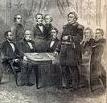
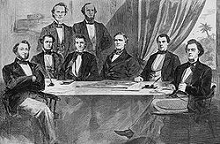














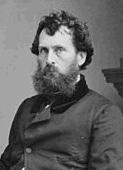
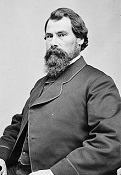
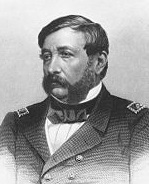






























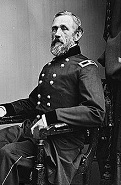


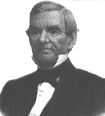







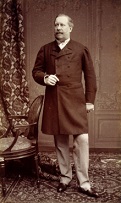






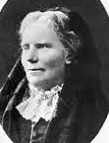
























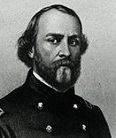




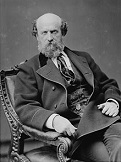






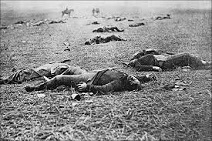
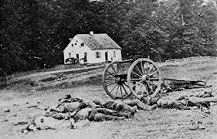
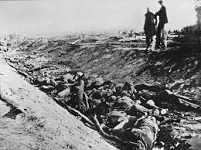




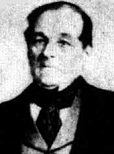

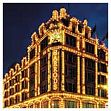





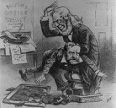








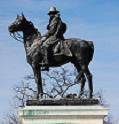





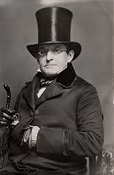





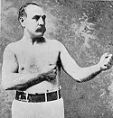


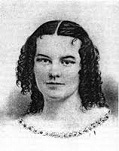


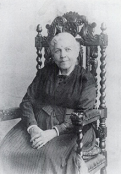



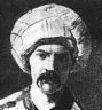































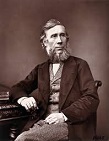








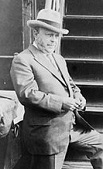

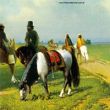

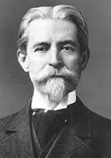
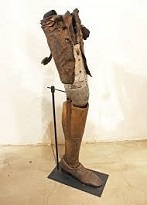

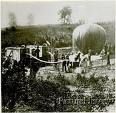
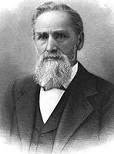


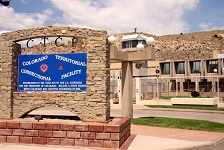

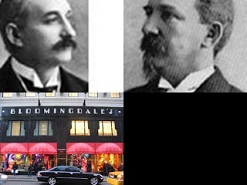
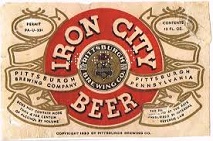
1861 The slave biz in the Am. South is worth $3.5B, the biggest financial asset in the U.S., greater than factories, railroads, etc.; the U.S. Civil War causes women to enter the nursing prof.; so many POWs are taken in the Civil War that they resort to a parole system. The U.S. Civil War causes the pop. of Washington, D.C. to zoom from 60K to 120K, incl. thousands of freed slaves, causing Congress to launch a major building program after the war. On Jan. 1 after defeating conservatives in military engagements last year, Benito Juarez enters Mexico City, then on June 15 is elected by Congress as pres. of the Mexican Repub. for a 6-year term, becoming the first (only?) full-blooded Indio pres.; in July after seeing how the conservatives have emptied the nat. treasury, he announces a 2-year moratorium on all debt payments, adding to the ethnic Spanish-dominated Congress' distrust of him; on Oct. 13 the Convention of London is signed by Britain, France and Spain to force the new Mexican govt. to fulfill the previous regime's obligations, and in Dec. all three land troops in Vera Cruz, ignoring the U.S. Monroe Doctrine because they know it can't be enforced during the U.S. Civil War, and Juarez caves in, reaching a settlement with the British and Spanish, causing them to withdraw, while the French remain, continuing after Juarez with designs of a new Am. empire? Let's start some quick fire? On Jan. 2 Peace Dem. Thomas Francis Bayard (1828-98) of Wilmington, Del. gives a speech with the soundbyte: "With this secession, or revolution, or rebellion or whatever name it may be called, the State of Delaware has naught to do. To our constitutional duties toward each and every member of the Union we have been faithful in all times"; on Dec. 3 Delaware votes not to secede from the U.S. On Jan. 2 reactionary king (since 1840) Frederick William IV (b. 1795) dies after a 20-year reign and 2.5 years of paralysis and insanity, and his 63-y.-o. brother Prince William becomes king Wilhelm (William) I (1797-1888) of Prussia; rising costs for the military cause him to ask for and receive a 7.3M taler grant from the Landtag, which pisses-off the Liberals, causing Maximilian "Max" Franz August von Forckenbeck (1821-92) et al. to form the minority Progressive Party (Fortschrittspartei), which calls for military reductions as well as German unification. On Jan. 3 as Pres. Buchanan plays ostrich in a vain attempt to avert war, Ga. seizes Ft. Pulaski. On Jan. 4 slave state Ala. seizes the Mount Vernon Federal Arsenal, followed by Ft. Morgan and Ft. Gaines on Jan. 5. On Jan. 5 200 U.S. Army reinforcements led by Lt. (later gen.) Charles Robert Woods (1827-85) leave Governors Island in New York City aboard steamer SS Star of the West, escorted by USS Brooklyn, and arrive in Charleston Harbor on Jan. 8. On Jan. 6 Fla. seizes Apalachicola Arsenal, followed by Ft. Marion in St. Augustine on Jan. 7; an attempt to seize Ft. Barrancas near Pensacola is thwarted on Jan. 8. On Jan. 9 (Wed.) (dawn) the SS Star of the West is fired on as it approaches within 1.75 mi. of Ft. Sumter by S.C. Citadel cadet George E. Haynsworth, becoming the first shot of the U.S. Civil War, after which the artillery bombardment causes them to turn around and head back to New York City, arriving on Jan. 12; the news is purposely delayed in an attempt to avert war fever, and Pres. Buchanan takes no further action to save the fort - I'm pretending mine's a meatball cheeseburger? On Jan. 9 news of the firing on Ft. Sumter cause prices on the New York Stock Board and Exchange to begin dropping, sparking a business downturn which bankrupts scores of New York City firms, throwing thousands out of work and giving employers an excuse to cut wages from an avg. of $1.25 to 85 cents a day. On Jan. 9 slave state Miss. secedes (#2), causing U.S. Sen. Jefferson Davis to resign and return to Miss., receiving a commission as Confed. maj. gen. on Jan. 13, with the soundbytes "I worked night and day for 12 years to prevent the war, but I could not. The North was mad and blind, would not let us govern ourselves, and so the war came", "[Our situation] illustrates the American idea that governments rest on the consent of the governed, and that it is the right of the people to alter or abolish them whenever they become destructive of the ends for which they were established", "All we ask is to be let alone", and "If the Confederacy fails, there should be written on its tombstone: Died of a Theory". On Jan. 10 slave state Fla. secedes (#3). On Jan. 10 slave state La. seizes the federal arsenal at Baton Rouge, along with Ft. Jackson and Ft. St. Philip - oh, I don't have a gun? On Jan. 11 slave state Ala. secedes (#4); Ala. state sen. William Lowndes Yancey writes the Ala. ordinance of secession, and before the war starts Jefferson Davis sends him to Paris and London in an unsuccessful attempt to obtain diplomatic recognition for the Confederacy; Ala. state convention delegate John Tyler Morgan (1824-1907) goes on to become a Confed. Brig. Gen. in 1863; Ala. troops begin to be called Yellowhammers after some of them wear bits of yellow cloth on their upper bodies; Tenn. troops are called Butternuts for their tan uniforms. On Jan. 11 La. seizes the U.S. Marine Hospital in New Orleans, followed by Ft. Pike on Jan. 14. On Jan. 18 slave state Ga. secedes (#5) by a close vote - Georgia belle Scarlett O'Hara loses her beloved Ashley Wilkes to the war, with older but wiser Rhett Butler waiting in the wing chair? On Jan. 18 Pony Express co-founder William Hepburn Russell testifies before a House select committee investigating last year's misappropriation of Indian Trust Fund money and protests his innocence, but is indicted on Jan. 30 along with former U.S. war secy. John B. Floyd and Godard Bailey; the indictment is dismissed in Mar.; Floyd, who opposed secession goes on to raise a brigade of Va. volunteers after the war begins. On Jan. 18 after recovering from a bullet wound in the chest and agreeing to talk peace, Mangas Coloradas is betrayed at Fort McLane in SW N.M. by Union Brig. Gen. Joseph Rodman West (1822-98), who orders him tortured and murdered by his soldiers, who boil his head and send it to New York City phrenologist Orson Squire Fowler, pissing-off the Apaches and causing their war to continue almost 25 years (until 1886). On Jan. 21 Jefferson Davis of Miss. (married to the daughter of ex-pres. Zachary Taylor) chivalrously resigns from the U.S. Senate along with four other Southerners, but N.C.-born sen. Andrew Johnson (D-Tenn.) remains, opposing secession and winning kudos from Lincoln, causing his political star to rise. On Jan. 23 Robert E. Lee writes a Letter to His Son Custis, with the soundbyte "If the Union is dissolved, and the Government disrupted, I shall return to my native State and share the miseries of my people; and save in defense will draw my sword on none." Now that the Yankees are chewing each other up, Britain and France can get together to horn in on Mexico? On Jan. 23 the Cobden-Chevalier Treaty between Britain and France, drafted by French statesman Michel Chevalier (1806-79) and Radical MP Richard Cobden (1804-65) of Britain establishes free trade and lowers or eliminates duties. On Jan. 26 slave state La. secedes (#6) (another close vote). On Jan. 27 the Bascom Affair begins when some Tonto and Coyotero Apaches raid the ranch of John Warn at Sonoita Creek, stealing cattle and kidnapping his 12-y.-o. stepson Felix Ward, after which some infantry led by Lt. George Nicholas Bascom leave Fort Buchanan, Ariz. in search of him, leading them to the Chiricahua Apaches; on Feb. 3 he lures Cochise into a meeting where he ambushes him and his family, capturing and imprisoning them in a tent, but Cochise cuts a hole in the wall and escapes, and on Feb. 6 leads a large war party to attack some Am. and Mexican teamsters, torturing and killing nine Mexicans and taking three Ams. hostage, but when Bascom refuses to exchange them for his family he attacks him on Feb. 7 while they are fetching water, fleeing to Sonora, Mexico and leving the corpses of the tortured Am. hostages behind; on Feb. 19 Lt. Isaiah Moore hangs Cochise's brother and nephews, pissing-off Cochise, who drops his war with the Mexicans and begins targeting the U.S., launching the 25-year Apache Wars (ends 1886); Felix Ward is brought up by the Coyotero Apaches and later becomes a U.S. Army Apache scout named Mickey Free. On Jan. 28 the Tennessee Resolutions in favor of the Crittenden Compromise are offered in Congress. On Jan. 29 "Sunflower State", "Jayhawk State" Kansas (Kan.) is admitted as the 34th U.S. (free) state; the geographic center of the continental U.S. is 5 mi. W of Lebanon, Kan.; the first capital is Topeka; on Feb. 9 Charles Lawrence Robinson (1818-94) becomes gov. #1 of Kansas (until Jan. 12, 1863), becoming the first gov. of a U.S. state to be impeached - just as the big fight's about to start? On Jan. 31 a secession convention meets in Austin, Tex., and selects members for the Provisional Confed. Congress. In Jan. 2nd term Tammany Hall Dem. New York City mayor (1860-2) Fernando Wood (1812-81) leads the pro-Confed. Copperheads, asking the city council to declare New York City a free city to allow it to continue its cotton trade with the Confeds., and when they deride him he splits with Tammany Hall to form his own Mozart Hall political machine. The last white pipe dream in America? On Feb. 4 the Provisional Congress of the Confederate States of America (Congress of Montgomery) of the seven seceded states (S.C., Miss., Fla., Ala., Ga., La., Tex.) meets in Montgomery, Ala. (until Feb. 17, 1862), and on Feb. 7 the provisional Constitution of the Confederate States of America is adopted, with Montgomery as the first capital; on Feb. 9 Transylvania U. and West Point grad., U.S.-Mexican War hero, secy. of war (under Pierce) and planter (D-Miss.) Jefferson Finis Davis (1808-89) is elected by six states as provisional pres. of the CSA, with Alexander Hamilton "Little Elick" Stephens (1812-83) of Ga. as vice-pres.; Davis receives the good news while working in his rose garden (ouch, thorns?); (Thomas) Howell Cobb (1815-68) is Confed. Congress speaker, serving as de facto pres. for two weeks until Davis can take office; former U.S. pres. Franklin Pierce writes Davis a letter of support, causing Northerners to label him a traitor; on Mar. 4 the first Confederate flag, the Stars and Bars is adopted; on Mar. 11 the Confederate States of Am. Constitution is adopted (all y'all need to add is nothin'?); on Feb. 25 West Indies-born Sephardic Jewish atty. (U.S. Sen. from La. since 1852) Judah Philip Benjamin (1811-84) resigns to become atty. gen., followed by secy. of war in Sept. (until Mar. 1862) (a Jewish mole to insure that the Confederacy self-destructs, or no big deal since the ancient Jews had slaves?); the first issue of $1M in treasury notes is followed by another $20M in May, and another $100M in Aug; by the end of the war they run the printing presses to churn out over $1B in funny money, causing flour to sell for $425 a barrel. On Feb. 4 U.S. gen.-in-chief Winfield Scott relieves Lt. Col. Robert E. Lee as cmdr. of federal forces in Tex. and stations him in Washington, D.C. to take command of the forces guarding the capital. On Feb. 4-6 the Peace Conference of 1861 called by the Va. legislature meets in the Willard Hotel in Washington, D.C., presided over by former U.S. pres. John Tyler and attended by 21 states. On Feb. 8 Arkansas seizes the federal arsenal at Little Rock, followed on Feb. 12 by the federal ordnance stores at Napoleon. On Feb. 11 the U.S. House of Reps. unanimously passes a resolution guaranteeing non-interference with slavery in any state. On Feb. 11 during a heavy rainstorm amid an umbrella-toting crowd of well-wishers, beard-growing pres.-elect Abraham Lincoln and his wife Mary Todd Lincoln ("Her Satanic Majesty") (whose family is on the Confed. side in the war, and who doesn't want Abe to know how much she splurged in New York City on clothes, or that she accepted lavish gifts of clothes and jewelry, and later freaks at the 1864 election because her hubby's defeat would cause the bills to become due?) departs from Springfield, Ill. on a 12-day Train Trip to Washington, D.C., with the soundbyte that he has "a task greater than Washington", leaving family dog Fido (Tad's pet) behind, keeping silent to reporters on the train, then stopping in Philly on Feb. 22 to give a Speech in Independence Hall, with the soundbyte: "It was that which gave promise, that in due time the weight should be lifted from the shoulders of all men, and all men have an equal chance. If this country cannot be saved without giving up this principle, I would rather be assassinated on this spot than to surrender"; his son Robert Todd Lincoln (future pres. of the Pullman Railroad) spends him time with the train engineers and misplaces the speech, causing fuming Lincoln to have to find it; on Feb. 23 (6 a.m.) after an assassination plot in Baltimore is claimed by detective Allan Pinkerton, he switches trains and arrives in Washington, D.C. secretly on a sleeper car disguised as a capped-cloaked invalid, and is greeted only by Maine-born U.S. Rep. (R-Ill.) (1853-69) Elihu Benjamin Washburne (1816-87), one of the seven Washburne brothers who founded the Repub. Party, after which he slips into Willard Hotel through the ladies' entrance, where he holds meetings in the lobby and conducts business from his room; after the newspapers find about his manner of entry they lampoon him as a coward, making him ashamed of it, and reinforcing his cabinet's low view of his abilities; this set him up to be careless about security and bring on his own assassination? The first Spaghetti Western in Italy, or, Garibaldi has a way with b-a-l-o-g-n-a? On Feb. 13 King Francis II of the Two Sicilies (Naples) surrenders to King Victor Emmanuel II at Gaeta on the WC coast, then abdicates and goes into exile in Rome; Piedmont begins forming a kingdom of Italy. On Feb. 18 Jefferson Finis Davis (1808-89) is sworn-in as the first and only pres. of the brand-spanking new chivalrous white woman-worshiping Confederate States of America (CSA) in Montgomery, Ala. (ends May 5, 1865); boyish sickly 96-lb. Ga.-born Dem. orator ("the Strongest Man in the South") Alexander Hamilton "Little Elick" Stephens (1812-83) becomes its first and last vice-pres.; they are both elected for 6-year terms; "Dixie" is played at the inauguration, pissing-off black New Yorker composer Daniel Decatur "Dan" Emmett (1815-1904). On Feb. 18 Treaty of Ft. Wise (later Ft. Lyons) in SE Colo. between the U.S. govt. and six Southern Cheyenne and fur Southern Arapaho Indian chiefs settles the Indian tribes in SE Colo. near Sand Creek 100 mi. SE of Denver near the Colo.-Kan. border. On Feb. 25 a 5K-man French army relieves a blockade of Saigon and gains control of the area after defeating 20K Annamese regulars led by Gen. Nguyen Tri Phuong (1800-73), who had kept 900 French and Spanish troops pinned down; on Nov. 29 former gov. of French Guiana Adm. Louis Adolphe Bonard (1805-67) is given command of French forces in Vietnam, and in Dec. he captures the province of Bien Hoa, decisively defeating Gen. Phuong. On Feb. 27 the Warsaw Massacre sees Russian troops fire at demonstrators protesting Russian rule. On Feb. 27 the U.S. Congress authorizes the first stamped newspaper wrappers for mailing. On Feb. 28 the South-free U.S. Congress, itchy to get its hands on gold and other mineral resources creates the Colorado Territory (until Aug. 1, 1876), followed on Mar. 2 by the Dakota Territory (until Nov. 2, 1889), and the Nevada Territory (until Oct. 31, 1864); Colorado was originally to be called Idaho, a word suggested in 1860 by lobbyist George M. Willing who claims it was an Indian word meaning "gem of the mountains", but is discovered to be a hoax just in time (the original Hugo Weaving as Agent Smith?); Carson City, named by founder Abraham Curry after aging Kit Carson beats out the more populous Virginia City to remain the capital of silver-rich Nevada; meanwhile engineer Philip Deidesheimer (1832-1916) comes up with a better idea to stop silver mine cave-ins in Nev., the Square-Set Method of timbering, based on the honeycomb, beginning in the Ophir mine - the Cartwright boys are wowed? On Mar. 2 the Crittendon Compromise is narrowly rejected by the U.S. Senate on Mar. 2 after the radicals rattle their sabers; early on Mar. 4 (inauguration day) the Corwin Amendment (which is actively supported by Lincoln, who instructs N.Y. Sen. William Seward to push it through the Senate), guaranteeing slavery where it already exists passes the Senate 24-12, having already passed the House on Mar. 2; Lincoln endorses it in his first inaugural address, and sends letters to each state gov. transmitting the amendment for ratification, noting that Pres. Buchanan also endorses it; it is never ratified by the states because of the disruption caused by the war, but if it had been it would have been the Thirteenth Amendment instead of the anti-slavery one of 1865 - you mean the CSA coulda won without firing a shot? On Mar. 2 taking advantage of the exodus of Southerners, the U.S. Congress passes the first of three Morrill Acts as a replacement of the Tariff of 1857 to boost tariff rates to an avg. of 47%; duties on tea, coffee, and sugar are subsequently increased as a war measure; the U.S. keeps trade protection until the 1913 Underwood Tariff. The Russian tsar beats Abe Lincoln in emancipating his slaves by one day plus plus? On Mar. 3 after years of haggling with his nobles, Tsar Alexander II's Act of Emancipation completes the emancipation of 20M Russian serfs begun in 1858, effective Mar. 5, with the soundbyte "I should rather liberate them from the top than wait until they liberate themselves from the bottom"; too bad, he institutes lame reforms, allotting land to village communes (mirs), and making them make 49 years of "redemption" payments, resulting in each former serf only getting half of the land he used to cultivate, and forever unable to raise enough food to afford the payments; one-third have no horses, and another third have only one horse; most still use wooden plows, harvest crops with sickles or scythes, and thresh with hand flails. On Mar. 4 (Mon.) 6'4" (tallest pres.) Ky.-born (from Ill.), AKA "Honest Abe", "the Rail-Splitter", "the Flatboatman", "the Sage of Springfield", "the Uncommon Friend of the Common Man", "the Great Emancipator", "the Abolition Emperor", "the Liberator", "King Linkum the First" (for his habit of locking political opponents up), "the Illinois Ape", "the Original Gorilla", "the Orangutan in the White House" (from his uncouth looks and behavior), "the Slave Hound from Illinois" (given him by William Lloyd Garrison, who calls him soft on slavery), "Father Abraham", "Uncle Abe", "the Ancient One" (for his ancient wisdom), "the Sectional President", "the Tycoon" (for his fast buildup of the Civil War admin.) Abraham Lincoln (1809-65) becomes the 16th U.S. pres (until 1865) in the 21st U.S. Pres. Inauguration in Washington, D.C. (featuring uniformed sharpshooters on every rooftop, incl. the unfinished U.S. Capitol Dome), becoming the first pres. born outside the original 13 colonies, and the first to own a cat (Hayes, McKinley, Wilson, JFK) (favorite song "Jimmy Crack Corn"?); Hannibal Hamlin (1809-91) becomes the 15th U.S. vice-pres.; this year and next the U.S. has six living presidents (Van Buren, Tyler, Fillmore, Pierce, Buchanan, Lincoln, plus rebel pres. Davis) (only Lincoln is of the new Repub. Party); at the inauguration a guest steals silver and furnishings; Very Odd First Lady Mary Todd Lincoln (1818-82) likes to be called "Mrs. President Lincoln", and buys 300 pairs of gloves in a 4-mo. period; Lincoln's First Inaugural Speech contains many suggestions by William H. Seward, promising to hold onto Union possessions in the South, and characterized by a belief that the Confederacy will dissolve somehow on its own when the Southerners come to their senses, because the U.S. can become the greatest nation on Earth if it stays together; "This country, with its institutions, belongs to the people who inhabit it. Whenever they shall grow weary of the existing government they can exercise their constitutional right of amending it, or their revolutionary right to dismember it or overthrow it... I hold that... the Union of these states is perpetual... In your hands, my dissatisfied fellow countrymen, and not in mine, is the momentous issue of Civil War... We are not enemies, but friends. We must not be enemies. Though passion may have strained it must not break our bonds of affection. The mystic chords of memory stretching from every battlefield and patriot grave... will yet swell the chorus of the Union, when again touched, as surely they will be, by the better angels of our nature"; as Lincoln speaks, a Confederate flag is hoisted in Charleston, S.C. by a cheering crowd; at first Washington, D.C. is almost defenseless, with an armed guard of civilians guarding the White House, while Lincoln mumbles "Why don't they come?"; Buchanan retires to his Penn. home despondent over seven states already gone from the Union; Lincoln's cabinet: William Henry Seward Sr. (1801-72) (beardless) (state) (until Mar. 4, 1869), Ohio Sen. Salmon Portland Chase (1808-73) (beardless) (treasury) (until June 30, 1864), Simon Cameron (1799-1889) (beardless) (war) (until Jan. 14, 1862), Gideon Welles (1802-78) (bearded) (Navy) (until Mar. 4, 1869), Caleb Blood Smith (1808-64) (beardless) (interior) (until Dec. 31, 1862), St. Louis, Mo. judge Edward Bates (1793-1869) (bearded) (atty. gen.) (until Nov. 24, 1864), Montgomery Blair (1813-83) (beardless) (postmaster gen.) (until Sept. 24, 1864); big men Seward and Chase find it hard to accept Lincoln as pres., Seward saying "I, who by every right ought to have been chosen President, what am I now? Nothing but Abe Lincoln's little clerk!"; as soon as 11 Southern Senators are expelled from Congress, the Repubs. fulfill their campaign promises by passing a new higher tariff for the protection of Northern industry, followed next year by a homesteading act to please Westerners; secy. of war Simon Cameron immediately begins advocating the arming of fugitive slaves, but Lincoln nixes it; in Mar. Frederick Douglass pub. a Critique of Lincoln's Inaugural Address, complaining about Lincoln's decision to not interfere with the institution of slavery in the South, comparing the way he snuck into Washington D.C. with fugitive slaves, and calling Lincoln's acknowledgment of the South's "right of property" in slaves "weakness... and conciliation towards the tyrants and traitors"; Mary Todd Lincoln lavishly redecorates the White House, overspending her $20K Congressional appropriation by $10K, then engaging in budget fraud to keep her hubby from knowing about it, after which the Congress buries the difference in next year's appropriations bill. On Mar. 4 slave state Tex. secedes (#7) after 104 of 122 counties vote for it,; on Mar. 16 Gov. Sam Houston refuses to swear allegiance to the CSA and is deposed as he allegedly sits in the basement of the state capitol silently whittling on a stick while the convention above loudly calls him to renounce the Union. On Mar. 4 the U.S. Army has 13,024 officers and men. On Mar. 4 the U.S. Govt. Printing Office is founded in Washington, D.C. via a Congressional resolution of June 23, 1860, starting out with 350 employees and growing to 8.5K in 1972 before decreasing to 1.92K in 2019; on Dec. 17, 2014 the name changes to U.S. Govt. Pub. Office. On Mar. 4 Pres. John Quincy Adams' son Charles Francis Adams Sr. (1807-86) (U.S. Mass. Rep. since Mar. 4, 1859) becomes U.S. ambassador to the U.K. (until May 13, 1868), writing the soundbyte in a letter to secy. of state William H. Seward: "That Great Britain did, in the most terrible moment of our domestic trial in struggling with a monstrous social evil she had earnestly professed to abhor, coldly and at once assume our inability to master it, and then become the only foreign nation steadily contributing in every indirect way possible to verify its judgment, will probably be the verdict made against her by posterity, on calm comparison of the evidence"; N.Y.-born John Bigelow (1817-1911) becomes U.S. consul in Paris, rising to U.S. ambassador to France in 1865, working with Adams to block France and Britain from intervening in the U.S. Civil War on the Confed. side. On Mar. 5 (first day in office) Pres. Lincoln receives a letter from Ft. Sumter telling how the troops are starving. On Mar. 6 the Confed. Congress requires all volunteers for the mounted service to furnish their own horses, and promises them 40 cents a day for upkeep - come to the good feet store? On Mar. 10 slave trade-hating Islamic scholar El Hadj Umar Tall (1797-1864) seizes the city of Segou, destroying the animist Bambara Empire of Mali, then takes Muslim-run Hamdullahi on Mar. 16 after three battles killing 70K, and sets up an empire in Mali, Guinea, and Senegal (ends 1890). On Mar. 16 Arizona Territory secedes; meanwhile gold is discovered in the N sector near modern-day Prescott, where mountain men Capt. Joseph R. Walker (1798-1876) and Paulino (Pauline) Weaver (1797-1867) blaze the trail and have mining districts named for them; former Calif. miner King Samuel Woolsey (1832-79) founds the Agua Caliente Ranch in S Ariz. 80 mi. from Yuma, gains fame when he stops an Apache attack with a shotgun and kills the leader, then hangs him on a mesquite tree, as reported by Irish-born John Ross Browne (1817-75) in Harper's Monthly, decides to join the Confed. Army, gets sick, and turns to selling supplies to the Union Army, getting rich; in 1863 he founds Agua Fria Ranch (14 mi. E of Prescott), and builds the first ranch house in N Ariz. On Mar. 17 the Dominican Repub. under pres. (since 1958) Pedro Santana is annexed as a province by Spain to protect it against Haitian attacks (ends 1865). The U.S. splits apart, while Italy comes together? On Mar. 17 the parliament of greater Sardinia in Turin proclaims the unified Kingdom of Italy, incl. Lombardy, Parma, Piedmont, Modena, Lucca, Romagna, Tuscany, and the Two Sicilies, and the Statuto of 1848 is extended to all of Italy, with Victor Emmanuel II (1820-78), head of the Piedmont House of Savoy declared "by the grace of God and the will of the nation, King of Italy"; too bad, he refuses to take the title of Victor Emmanuel I of Italy, pissing some off; on Mar. 20 Civitella del Tronto surrenders, and the Kingdom of the Two Sicilies is kaput; Austria still holds Venetia (until 1866), and France holds Rome (until 1870); the Treaty of Turin cedes Nice and Savoy to France; on June 7 PM (since 1852) Count Camillo di Cavour (b. 1810) dies in Turin 3 mo. after the declaration of a united kingdom of Italy; meanwhile Pope Pius IX sees red, goes into mother bear instinct mode, refuses to recognize the new secular state, excommunicates its officials, and orders all Roman Catholics to shun participation; meanwhile, after 18 cents. of close-captioned Catholic leadership, 74.7% of the Italian pop. is illiterate, so the new govt. limits the franchise to 600K middle and upper class males out of a total pop. of 20M, and lack of experience with democracy makes it ripe for bribery and graft? - I have a strict dental plan, it's called avoidance? On Mar. 19 the Second Maori (First Taranaki) War (begun 1860) ends after the British Colonial Office sends former New Zealand gov. (Cape Colony gov. since 1854) Sir George Grey (1812-98) back to Auckland for a 2nd term because of his success at resolving native-settler disputes; after becoming convinced that the Maoris are going to attack Auckland, he gathers a force of British and colonial troops, then corners Wiremu Kingi in Waikato, where rival Maoris help defeat him, after which in 1863 Grey renounces the original dubious land purchase that started it all. On Mar. 20 an earthquake completely destroys Mendoza, Argentina in W Argentina. On Mar. 21 CSA vice-pres. Alexander Stephens delivers his Cornerstone Speech in Savannah, Ga., saying that the U.S. was created on the false idea that all men are created equal, whereas the CSA "is founded upon exactly the opposite idea: its foundations are laid, its cornerstone rests, upon the great truth that the negro is not equal to the white man; that slavery, subordination to the superior race, is his natural and moral condition. This, our new government, is the first in the history of the world based on this great physical, philosophical, and moral truth" - they lost the minds and hearts of smart people right there? This noise is unacceptable, or, Ay, Oy, let's go? The War Across Five Aprils starts when something small gets blown out of proportion in a high-strung environment? The first 100 days of the U.S. Civil War are a mixture of cocksureness and uncertainty? On Apr. 6 after rejecting Gen. Winfield Scott's recommendation to give up pesky undermanned (less than 100 men) Ft. Sumter because it would take 20K troops and a whole fleet to reinforce it, and would start a bloody war that would destroy the U.S. after driving four more states out of the Union, and rejecting secy. of state Seward's plan to evacuate it while he leaks news of it to the press along with assertions to the Confeds. that he will soon be in charge of foreign policy, and all but two cabinet members recommending surrender on Mar. 16, Pres. Lincoln informs S.C. Gov. Francis Wilkinson Pickens (1805-69) that a naval expedition is being to sent to reprovision the hungry garrison, with Lincoln uttering the soundbye that if the rebels fire on ships carrying food to hungry men, they will take all the blame for the war, forcing the Confeds. to fire the first shot and become the aggressors to have their bloody war, leaving the Union the moral high ground; on Apr. 11 after being sanctioned by Gov. Pickens, the Confederates under La. Creole Gen. Pierre Gustave Toutant Beauregard (1818-93) (former supt. of West Point, who had been Robert Anderson's student there) demand surrender, and then fire at 4:30 a.m. on Apr. 12 (Fri.) (not Friday the 13th?) from Ft. Johnson on James Island, followed by crossfire from Sullivan's Island (long-time final destination for African slaves surviving the Middle Passage) and Morris Island; white-haired Va. planter and pro-slavery fire-eating agitator Edmund Ruffin (1794-1865) dresses in a Palmetto Guard uniform and is given the honor of firing the first shell; artillery Capt. (West Point grad.) Abner Doubleday (1819-93) (alleged inventor of baseball) fires the first Union shot, and is later promoted to gen. (batter up?); on Apr. 13 after 30 hours, with his ammo exhausted, Maj. Robert Anderson agrees to surrender, lowering its flag on Apr. 14 (Sun.); 3K+ shells hit Ft. Sumter, and there are no fatalities until two Union soldiers are killed in an explosion during a final 100-gun salute to the colors; the first Union soldier killed is Pvt. Theodore Winthrop (b. 1828), whose ms. for a novel is pub. and becomes a bestseller; the 2nd is Union pvt. Daniel Hough; on May 15 big hero Anderson is promoted to brig. gen., participating in the largest public gathering in North Am. to date, a patriotic rally in New York City, after which he goes on a recruiting tour then becomes cmdr. of border state Ky. until retirement on Oct. 6, being replaced by William Tecumseh Sherman; after the Confeds take Ft. Sumter they pad it with bales of cotton; the U.S. (Am.) Civil War begins (ends May 9, 1865), which the Confeds. prefer to call the War Between the States, the War of Northern Aggression, or something even more unbiased; it ends up causing 10.5K battles in 33 U.S. states, of which 384 are considered major; at the start, Southerners owe Northerners $300M; Southerners who sympathize with the Union cause become known as "Scalawags" (useless farm animals); in Apr. the 10-y.-o. New York Times begins pub. Sunday eds. to capitalize on interest in the Civil War; Lincoln can see rebel flags flying over Alexandria, Va. across the Potomac from Washington, D.C.; British public opinion on the war is divided, with the aristocracy pro-South, and the working class pro-North despite the loss of Southern cotton throwing thousands of cotton factory workers out of work - regular or quilted brand? On Apr. 8 civil and political rights are granted to Protestants in Austria; on Apr. 29 a rump Reichstrat convenes, boycotted by the Magyars, Croatians, and Italians (until 1865); the Hungarian Parliament calls for it to recognize the Hungary constitution of 1848. On Apr. 12 Jefferson Davis objects to a proposed bill to appropriate funds for education of blacks in Washington, D.C., with the soundbytes: "This government was not founded by negroes nor for negroes, but by white men for white men"; "When Cain, for the commission of the first great crime, was driven from the face of Adam, no longer the fit associate of those [Whites] who were created to exercise dominion over the earth, he found in the land of Nod those [Blacks] to whom his crime had degraded him to an equality"; "[Racial inquality] is the will of God [as] marked in decree and prophecy" [and as] confirmed by history." "The inequality of the white and black races was stamped from the beginning" of the Am. republic. On Apr. 14-15 Lincoln, having only a 13K-man regular army strung across the continent vs. at least that many Confed. volunteers calls for 75K Union volunteers for 90-day service under a 1795 act of Congress stating that militia can be called by the pres. "to repossess the forts, places and property which have been seized from the Union", but that the term of service cannot extend beyond 30 days after the next meeting of Congress; Lincoln declares that the insurrection is "too powerful to be suppressed by the ordinary course of judicial proceedings"; this call looks like coercion to four Southern border states (Va., Ark., N.C., Tenn.), who quickly secede, bringing the total to 11, with four slave states (Del., Ky., Md., Miss.) (all but Del. having strong Southern sympathies) remaining in the ungluing Union; ex-pres. John Tyler is a delegate at the Va. secession convention; N.C. ends up supplying the most troops of any Confed. state; the Union promotes a number of fossilized captains and colonels to Peter Principle gens., and in the first weeks several Union soldiers desert for the other side. On Apr. 17 slave state Va. secretly secedes (#8), causing rumors of an impending attack on Washington, D.C., causing the 50-man Kansas Frontier Guards, organized by U.S. Kan. Sen. James H. "Jim" Lane to be stationed in the East Room of the White House on the eve. of Apr. 18, only to be dismissed on Apr. 19 as fresh Union troops arrive, assigned to guard various positions in the city until Pres. Lincoln officially disbands them in a ceremony on Apr. 25. On Apr. 17 Pres. Lincoln asks Repub. Party co-founder Francis Preston Blair Sr. (1791-1876) (who initially backed Edward Bates at the 1860 Repub. Pres. Convention then backed him) to offer Col. Robert E. Lee command of the Union Army, causing Lee to visit Blair on Apr. 18 in Lafayette Square across from the White House, declining with the soundbyte: "Mr. Blair, I look upon secession as anarchy. If I owned the four millions of slaves at the South, I would sacrifice them all to the Union, but how can I draw my sword upon Virginia, my native State?"; in 1862 Blair frees his slaves, but all but one refuse to go. On Apr. 19 the Confederates occupy Harper's Ferry, Va., while John Brown's body turns over in its grave? All Hail Caesar? The original Executive Orders, by Roger Taney? On Apr. 19 the Baltimore Riot in Md. kills both federal troops and civilians, becoming the scene of the first casualties of the war, causing Pres. Lincoln on Apr. 27 to order Gen. Winfield Scott to suspend the writ of habeas corpus in Md. in violation of the U.S. Constitution, Art. 1 Sec. 9. On Apr. 25 the 7th N.Y. "Silk Stocking" Regiment AKA the Blue-Bloods (known for signing-up New York City social elite) becomes the first Union unit to reach Washington, D.C. to defend it. On Apr. 27 West Virginia (W. Va.) (AKA Kanawha) secedes from Va. after delegates of 40 western counties meeting in Wheeling, provisional capital of the pro-Union Restored Govt. of Va. (founded 1861) decide to bug out of the Confederacy, becoming the only U.S. state formed as a political consequence of the U.S. Civil War; Wheeling becomes the capital until 1865, followed by Charleston. On Apr. 29 the Md. House of Delegates votes against secession, even though it is a slave-holding state - the South lost the war right there? First Blood, Eye of the Tiger, or, Welcome to Low's, May I Help You? The Devil needs a spark to set off the tinderbox, and he finds a Hell's worth of them? On Apr. 29 the Fire Zouaves (11th Regiment, N.Y. Volunteers), composed of 1K firefighters with no military training leaves New York City for Annapolis aboard the steamship Baltic; Elmer Ephraim Ellsworth (1837-61) (family friend of the Lincolns) resigned as a 2nd Lt. in the U.S. Army after the Apr. 12 firing on Ft. Sumer to return and organize them, and is elected col., then raises $60K to arm them with Sharp's rifles and 16-in. bayonets, and outfit them in chic Zouave gray unforms with red shirts and fezzes; too bad, on May 24 Ellsworth spots a Confederate flag flying from a 3-story hotel in Alexandria, Va., dashes in with seven others to pull it down, and is shot dead by secessionist hotel proprietor James W. Jackson, becoming the first Union official KIA in the U.S. Civil War; Union Sgt. Francis E. Brownell (1840-94) then shoots and kills Jackson with his Model 1855 Percussion Rifle, earning the nickname "Ellsworth's Avenger", and Pres. Lincoln later his promotion papers; Big Hero Ellsworth's body lies in state in the East Room of the White House on May 25, is taken to New York City by special train on May 26 and viewed by 10K at City Hall, then taken to the state capitol in Albany and displayed before being taken to Mechanicsville for burial; the name Ellsworth becomes popular for naming Union streets and towns, and in 1877 he is awarded a Medal of Honor for first blood of the war; pressure is put on Lincoln to avenge Ellsworth's death by taking Richmond, leading to First Bull Run in July. In Apr. at the time of Ft. Sumter the U.S. Navy has only 28 steam-powered ships, and steam ship expert Benjamin Franklin Isherwood (1822-1915) is appointed engineer in chief, going on to oversee construction of a fleet of 600 you know whats by 1864; meanwhile all but three of the officers at the Washington Navy Yard (cannon expert John Dahlgren and two others) resign at the outbreak of hostilities due to Confederate sympathies, along with the first supt. of the U.S. Naval Observatory (since 1842) Matthew Fontaine Maury (1806-73), who goes on to supervise costal defenses for the Confeds. and perfect an electric torpedo (contact mine) that messes up Union shipping throughout the war; on May 9 New York City shipbuilder John Englis & Sons launch the Unadilla, becoming the first gunboat built for the U.S. Navy after the firing on Ft. Sumter. In Apr. a newspaper in Petersburg, Va. contains an article calling for "three cheers for the patriotic free Negroes of Lynchburg, saying that 70 had volunteered to defend Va. from the Yankees; 1.6K free blacks organize into 16 cos. to fight in Va. On May 6 slave state Ark. secedes (#9). On May 6 slave state Tenn. secedes (#10). On May 8 Richmond, Va. is named capital of the Confederate States of Am. On May 10 after new (since Jan. 3) Ky.-born Dem. Mo. gov. #15 Claiborne Fox Jackson (1806-62) (a Southern sympathizer pro-slavery Dem. who rejected Lincoln's Apr. 15 request for soldiers to fight the rebels, calling it "illegal, unconstitutional, revolutionary in its object, inhuman and diabolical") calls out the Mo. State Guard to engage in "training exercises" in St. Louis, planning on seizing the well-stocked federal armory (60K muskets plus balls and powder), Union Capt. Nathaniel Lyon (1818-61), in command of Co. D, 2nd U.S. Infantry, a busy beaver who dressed up as a woman to spy on them and learned their plans, organized his own fifth column of Wide Awakes (anti-slavery German immigrants) to beat him to it, then seized the arsenal on Apr. 26 and armed them, shipping the rest of the weapons to Ill., surprises and arrests the State Guard and marches them through St. Louis, causing the St. Louis Massacre (Camp Jackson Affair) on May 10 as Lyons' troops fire on an angry crowd, killing 28 and injuring 90; on May 11 pissed-off Mo. gov. Jackson organizes a new Mo. State Guard to resist a Union invasion of Mo., causing Union Army Dept. of the West cmdr. Gen. William Selby Harney (1800-89) on May 21 to fold and sign the Price-Harney Truce, acknowledging Mo.'s policy of armed neutrality; too bad, after Radical Repub. Capt. Nathaniel Lyon tips off Lincoln, on May 30 he replaces whimp Harney with man's man Lyon, promoting him to brig. gen. - a good Western man loves his steak and potatoes? On May 13 British Queen Victoria issues a "proclamation of neutrality" which recognizes rebel states as having belligerent rights. On May 13 Comet C/1861 J1, AKA the Great Comet of 1861 is discovered in Australia. On May 14 the 859g Canellas Meteorite falls near Barcelona, Spain. On May 20 Ky. proclaims its neutrality. On May 20 slave state N.C. secedes (#11). On May 24 after Robert E. Lee is offered command of the Army of Va. following a meeting in the yard of Christ Church, his town of Alexandria, Va. is occupied by Union forces and used as a supply depot; slaves use it to escape to the North; it becomes the longest-occupied city of the Civil War; on Apr.' 28 John Gross Barnard (1815-82) becomes chief engineer of the Dept. of Washington, overseeing fortifications on the Arlington hills, becoming chief engineer of the Army of the Potomoc on Aug. 20 (until Aug. 16, 1862) and receiving a promotion to brig. gen. from Pres. Lincoln on Sept. 23. On May 25 U.S. Army troops arrest secessionists John Merryman (1824-81) (later Md. state treasurer) et al. for suspected disloyalty for obeying orders from the gov. of Md. to prevent Penn. troops from reaching Baltimore to prevent the riots by burning railroad bridges and tearing down telegraph poles; after they are imprisoned in Ft. McHenry without charges, Merryman's attys. petition the federal circuit court at Baltimore for a writ of habeas corpus, and Southern-leaning Chief Justice Roger B. Taney travels to Baltimore and issues the writ on May 26, then, after the military refuses, issues a ruling on May 28 that only Congress has the right to suspend the writ of habeas corpus; pissed-off Lincoln then tells him to piss off, and pro-Repub. newspapers denounce Taney, while legal scholars are divided, not being eloquent enough to come up with the later soundbyte "the Constitution is not a suicide pact"?; on July 4 Lincoln addresses a special session of Congress defending his decision, asking: "Are all laws, but one, to go unexecuted, and the government itself go to pieces lest that one be violated?"; Taney fears his own arrest, but stands his guns, and Merryman is released after seven weeks confinement and indicted for treason, and his case never comes to trial because the feds know that no Md. jury will convict him; meanwhile Powermad Lincoln takes over Md., getting the mayor of Baltimore, chief of police, police commissioner, 31 members of the legislature, several congressmen, judges, and newspaper reporters held at Ft. McHenry without charges. On May 29 after being appointed by Pres. Lincoln as gov. #1 of Colo. Territory, Wilmington, Del.-born Quaker Repub. William Gilpin (1813-94) arrives in Denver, Colo. to cheering crowds, dealing with Confed. sympathizers, a possible Confed. invasion, and difficulties with the Arapaho and Cheyenne after U.S. Army troops withdraw to fight the war, forming the 1st Regiment Colo. Volunteers; too bad, he pays for it by issuing $375K in drafts on the U.S. Treasury without authorization, causing a recall movement to form in the summer, but the regiment later gains fame and the treasury eventually honors the drafts, but too late to prevent Gilpin being removed next Apr. in favor of John Evans. On May 29-June 1 the Battle of Aquia Creek sees Union gunboats exchange fire with Confed. shore batteries at the confluence of the Potomac River and Aquia Creek in Stafford County, Va., resulting in a push; on July 7 (Sun.) the Confeds. lay their first naval mines to protect their shore batteries, which are abandoned on Mar. 9, 1862 during the Union's Peninsula Campaign. In May after three slaves escape from the plantation of Charles Mallory to Ft. Monroe in E Va., and Mallory demands that they be returned as his property, Union Gen. Benjamin Franklin Butler (1818-93) (former Mass. state legislator) declares fugitive slaves turning up in his Army camp to be "contraband of war", and puts them to work on fortifications. In May the British foreign minister receives the first Confed. emissaries informally in London, who then go to France, getting French king Napoleon III to promise to recognize the Confederacy if the British do it first; they return to London, only to be snubbed by the foreign minister. In May William Tecumseh Sherman is appointed a Col. of infantry volunteers, followed in June by brigade cmdr. In May the CSS Sumter, the first Confed. warship for breaking the blockade is commissioned, followed next year by the CSS Florida and the CSS Alabama; altogether 18 ships are built by the British for Confed. use despite British law, and the Florida takes 38 Union prizes, while the Alabama takes 64; meanwhile the British Royal Navy obtains permission to search U.S.-flag vessels suspected of carrying slaves after the U.S. Congress flip-flops on the infringement of U.S. sovereignty. In May the Confed. govt. closes the U.S. mints in New Orleans, La., Charlotte, N.C., and Dahlonega, Ga.; the New Orleans Mint reopens in 1879 and closes in 1909. On June 1 the U.S. Post Office Dept. discontinues operations in the Confederacy, and the CSA Post-office Dept. takes over, headed by Sevier County, Tenn.-born John Henninger Reagan (1818-1905) (U.S. rep. from Texas from Mar. 4, 1857 to Mar. 3, 1861) (the only member of Davis' cabinet from W of the Mississippi River), who sends his agent to Washington, D.C. to ask the head of each bureau to come work for him, which nearly all do, after which he cuts costs and makes it the first (only) post office dept. in U.S. history to pay its own way; after making a run from Richmond with Davis on Apr. 2, 1865, being appointed secy. of the treasury by Davis on Apr. 27, and captured with him near Irwinville, Ga. on May 10, spending 22 weeks in solitary in Ft. Warren in Boston, Mass., he writes an open letter to fellow Texans on Aug. 11 urging them to cooperate with the Yankees to avoid unduly harsh military rule, pissing them off but later becoming known as "the Old Roman" (Texan Cincinnatus), going on to becomes a U.S. Dem. sen. from Tex om Mar. 4, 1887 to June 10, 1891; too bad, on Aug. 21, 2017 his statue at the U. of Texas at Austin is taken down amidst the wave of Confed. monument removals. On June 3 Stephen A. Douglas (b. 1813), "the Little Giant" dies of typhoid fever in Chicago, leaving leaderless those Northern Dems. supporting a war for the "Union as it was"; meanwhile War Dems. Sen. Andrew Johnson and secy. of war Edwin M. Stanton fully support Lincoln, while a Peace Wing of the Repub. Party seeks an end to the fighting, even at the risk of Union; the Copperheads in Ohio, Ind,. and Ill. flirt with outright disloyalty, causing Lincoln to begin arresting more "disloyal" persons, claiming the power to suspend the writ of habeus corpus. On June 3 the Battle of Philippi (Philippi Races) in Barbour County, Va. (later W. Va.) (Union V) becomes the first land action of the war, followed by the Battle of Big Bethel, Va. (near Newport News) (Confed. V) on June 10, and the Battle of Rich Mountain, Va. on June 11 (Union V), which give the Union control of NW Va.; new Confed. Churchville, Va. cavalry recruit James Edward Hanger (1843-1919) is hit with the "first solid Union cannon shot of the war" in the leg in a stable in Philippi, requiring a leg amputation above the knee, becoming the first battlefield amputation of the U.S. Civil War, at the hands of Union surgeons; after returning home, he builds a prosthesis from barrel staves, rubber, and wood, with hinges at the knee and foot, becoming known as the Hanger Limb, which receives U.S. Patent #155 on Mar. 23, 1863 (first patent for an artificial limb), after which he founds Hanger Inc., which grows to 640 offices in 45 states and Washington, D.C. by modern times, doing $600M/year (25% of the prosthetic and orthotic services market). On June 9 after Druse tribesmen massacre Christian Mennonites, Napoleon III sends French troops to Lebanon, and the country is separated from Syrian admin. and reunited under an Ottoman gov. with the approval of European powers; Christians begin to dominate Lebanon. Women get the dirty jobs in the war? On June 9 the U.S. Sanitary Commission is created by secy. of war Simon Cameron as an outgrowth of the Ladies Central Relief, founded Apr. 25 by Dr. Elizabeth Blackwell (1821-1910) (first female M.D. in the U.S., 1849); the first dir. is New York Central Park designer Frederick Law Olmsted; meanwhile former schoolteacher Clarissa "Clara" Harlowe Barton (1821-1912), quits her job at the U.S. Patent Office to distribute food and supplies sent by families in Mass. to troops stationed in Washington, D.C., and after seeing that wounded soldiers from the First Battle of Bull Run brought to the Potomac docks are dying for want of prompt medical attention, she gains permission to pass through the battle lines and nurse them, battling the traditional ho image and going on to become known as "the Angel of the Battlefield", raising thousands of dollars to buy food and medicine for Union troops, and creating facilities for recovering their lost baggage; meanwhile Dorothea Dix (1802-87) (don't be a dix teaser?) is appointed Union Army supt. of 3K women war nurses, incl. novelist Louisa May Alcott; black women, incl. Harriet Tubman (Araminta Ross) (1822-1913) and Susie King Taylor (1848-1912) serve as war nurses in the Sea Islands; on the Confed. side "Capt." Sally Louisa Tompkins (1833-1916) of Richmond, Va. (only commissioned woman in the Confed. Army) gains fame for saving 1,260 out of 1,333 wounded men in a private hospital with only six other nurses; not that all woman want to smell rank body fluids; over 400 women disguise themselves as men to fight in the war, and dozens work as spies, while thousands travel with the army cooking, writing letters, and hooking; by the end of the war many Southern women get over their lifetime coddling and become self-reliant after being forced to manage their plantations without men, and go on to face life as widows, spinsters, and orphans (and lesbians?), who prefer to work outside the home - like Scarlett O'Hara? On June 11 new Army of the West cmdr. Brig. Gen. Nathaniel Lyon does Lincoln right by threatening Mo. gov. Claiborne Fox Jackson with war, uttering the soundbyte: "I would see you, and you, and you, and you, and every man, woman and child in the state dead and buried", walking out of a meeting with him and having him forcibly escorted out of St. Louis, beginning a campaign to capture the Mo. state govt., capturing Jefferson City on June 13 after the state govt. flees to Booneville; on June 17 Lyon leads a Union force of 2K to defeat a larger force of Mo. Confed. volunteers under Maj. Gen. Sterling "Old Pap" Price (1809-67) and Col. John Sappington Marmaduke (1833-87) at the Battle of Booneville on the Missouri River 25 mi. W of Columbia (at which the green ill-equipped Confeds. begin running after 20 mi., causing the Yankees to call the battle the "Booneville Races"), denying the many Southern sympathizers in the Missouri River Valley any hope of linking up with the Confederacy, and taking the state out; after Jackson and Price retreat to SW Mo., disgusted Marmaduke resigns from the Mo. militia and heads for Richmond, Va., where he joins the real Confed. army, working his way up to Maj. Gen. On June 24 goldilocks George Armstrong Custer (1840-76) graduates at the bottom of his West Point class, and is commissioned a 2nd Lt. in the 2nd (later the 5th) Cavalry; in 1863 at 23 he becomes the youngest U.S. gen. to date - forget that book work, just give me a horse and I'll lead them to victory with my cahones? On June 25 sultan (since 1839) Abdul Mecid I (b. 1823) dies of phthisis, and is succeeded by his brother (another Europhile who is a good composer) Abdul Aziz (Abdulazia) Oglu Mahmud I (1830-76) as Ottoman sultan #32 (until May 30, 1876), continuing the Tanzimat Westernization program, giving official recognition to the union of Moldavia and Wallachia on Dec. 2; too bad, he squanders money like water until the bottom drops out? On June 27 after installing artillery on May 1 on Mathias Point in King George County, Va. to blockade the Potomac River, causing a flotilla led by Union steamer Thomas Freeborn to bombard it, Confed. troops mortally wound its cmdr. James Harmon Ward (b. 1806), who becomes the first Union naval officer KIA in the U.S. Civil War. On June 28 the Central Pacific Railroad is chartered in Sacramento, Calif. to build the W section of a transcontinental railway along the partially surveyed 41st parallel; Amasa Leland Stanford (1824-93) is pres., and wins election as Calif. gov. (1861-3); Collis Potter Huntington (1821-1900) and Mark Hopkins (1813-78) are vice-pres., and Charles Crocker (1822-88) is head of construction; the Stanford name goes on to become big big big in Calif. In the summer William David Porter (1808-64), son of commodore David Porter (who was court-martialed in 1826 then became CIC of the Mexican Navy) is put in charge of establishing the Western Flotilla to seize and control the Mississippi River for the Union, and he names his ship Essex in honor of his daddy's War of 1812 ship. By July 1 there are 30K green recruits in and about Washington, D.C. under the command of 75-y.-o. Mexican War veteran Gen. "Fuss and Feathers" Winfield Scott. On July 2 Nikolai (Ivan Dimitrovich) Kasatkin (1836-1912) lands on Hakodate and introduces the Russian Eastern Orthodox Church into Japan, going on to become archbishop of Japan and St. Nicholas. On July 4 a new U.S. flag with 34 stars (design #16), which now incl. Kansas is adopted by Congress - talk about optimism? On July 4 Mary Todd Lincoln shows off the new redecorated White House by throwing a lavish party, which is a hit, gaining her praise from some newspapers and damnation from others. On July 5 the Battle of Carthage (Dry Fork) in Carthage, Mo. is a Confed. V. On July 5 (night) British legation first secy. Laurence Oliphant (1829-88) (Lord Elgin's private secy. on his expedition to China and Japan) is attacked by Japanese ronin in Edo, and is severely wounded after one swings a heavy 2-handed sword at him and a beam interferes with it. On July 10 after Union troops withdraw from Indian Territory, leaving the Five Civilized Tribes unprotected from attacks by relocated Plains Indians, and Confed. Gens. Benjamin McCulloch and Albert Pike are placed in command of troops to protect them, the Five Civilized Tribes (Creeks, Choctaws, Seminoles, Cherokees) begin signing treaties with the Confederacy, later followed by the Shawnees, Delawares, Wichitas, Prairie Comanches, Osage, Quapaw, and Senecas, pissing-off the Union, which voids all prior treaties with them. On July 13 the term "silly season is first pub. in the Saturday Review to mean the summer recess of Parliament, when newspapers are full of silly stories. On July 14 Smithfield, R.I.-born Union Army Col. Sullivan A. Ballou (b. 1829) writes a Lettter to Sarah Ballou about his reasons for laying down his life for the Union, becoming famous; "I know how strongly American Civilization now leans upon the triumph of the Government, and how great a debt we owe to those who went before us through the blood and suffering of the Revolution. And I am willing—perfectly willing—to lay down all my joys in this life, to help maintain this Government, and to pay that debt"; he dies on July 29 from wounds sustained in the First Battle of Bull Run. On July 18 an army led by former (1845-9) New Granada pres. (conservative turned liberal) Gen. Tomas Cipriano de Mosquera y Arboleda (1798-1878) (nicknamed "Moscachochas" for a metal face prosthesis he wears from 1824 war wounds) captures Bogota, and Mosquera proclaims himself as pres. of New Granada (Grenadine Confed.) (until Feb. 4, 1863), going on to expropriate church lands. Let's take care of our summer air? The Big First 100 over, the last chance to bail out of a holocaust is missed when the gray toreadors wave a red flag in front of the blue bulls, who are all green? On July 20 (Sat.) the Congress of the Confederate States of Am. (CSA) begins holding sessions in Richmond, Va.; meanwhile Pres. Lincoln orders green Gen. Irvin McDowell (1818-85) (never commanded before) to lead his 39K troops (30K new recruits) from Washington, D.C. into Va. to seize the Manassas railroad junction 30 mi. to the SW; when McDowell tells Lincoln that his troops are too green, Honest Abe replies, "You are green, it is true, but they are green, also; you are all green alike"; the Union troops march on foot, arriving hot and exhausted, many suffering heat stroke, while the rebel troops become the first to be transported by trains to a battle site, arriving well rested; meanwhile many wives of the green Union troops ride out in their carriages with picnic lunches to watch the fun; on July 21 (Sun.) the First Battle of Bull Run (First Bull Run) (Battle of First Manassas) on the Manassas Plains near Bull Run Stream in Prince William County, Va. is a rousing V for 32K Confeds. under Col. Pierre Beauregard (promoted to gen. after the battle), with the able assistance of Brig. Gen. Joseph Eggleston "Joe" Johnston (1807-91), who is superior in rank to Beauregard but defers due to lack of familiarity with the terrain; it begins with 30 lb. Union cannon fire near Manassas railway junction across the Potomac River, after which the rebels fall back under an initial assault by superior Union forces, until former VMI math. prof. Brig. Gen. Thomas Jonathan "Old Jack" Jackson (1824-63) holds them, gaining the nickname Stonewall from Charleston, S.C.-born Gen. Bernard Elliott Bee Jr. (1824-61), who utters the soundbyte "There is Jackson, standing like a stone wall" before being mortally wounded and dying the next day, becomine one of the first gens. KIA in the war; meanwhile Confederate reinforcements arrive by rail, and Va.-born Confederate cavalry Capt. James Ewell Brown "Jeb" Stuart (1831-64), who resigned his commission in the U.S. Army at war's outbreak distinguishes himself, getting a promotion to gen. in Sept. with command of the Army of Northern Virginia's cavalry; the battle ends in a rout of Union forces, with panicked spectators fleeing the scene and blocking the roads and bridges leading back to Washington; the rebels lose 387 dead, 1,582 wounded, 13 missing vs. 460 KIA, 1,124 wounded, and 1,312 MIA for the Union; panicked secy. of state Seward sends a message to Lincoln: "General McDowell's army in full retreat through Centerville. The day is lost. Save Washington and the remnants of this army... The routed troops will not reform"; unbeknownst to the rebels, they could have have easily taken Washington upon the heels of the fleeing Yankees, but decided against a march to Washington due to supply problems; the similarity in colors of the Confed. Stars and Bars to the Union Stars and Stripes causes such confusion that Beauregard suggests a new battle flag consisting of a red field with a blue cross of St. Andrew separated from the field by a white fillet and 13 white stars; after the battle Lincoln realizes that the war will take more than 90 days, and makes Washington, D.C. the most heavily-fortified city on Earth; William Tecumseh Sherman is promoted to brig. gen., while the Confeds. promote five gens. to 3-star gen., incl. Robert E. Lee (top), Albert Sidney Johnston, Sidney Cooper, Joseph Egleston Johnston, and Pierre Beauregard (bottom), pissing-off Joseph Johnston, who actually has the most experience and pre-war rank, causing bad blood with Jefferson Davis, who puts him in command of the Dept. of Northern Va. with orders to run a phony war, while Washington, D.C.-based Gen. George B. McClellan positions his troops in Manassas Junction then withdraws whenever they advance; retired (since 1854) wholesale grocer Wilmer McLean (1814-82), who lives in his Yorkshire estate along Bull Run sees Confed. Gen. Pierre Beauregard set up his HQ there, and during the battle a Union shell comes in through the chimney into the kitchen fireplace, exploding in a kettle of stew, and after the rebels take three days to leave, he gets fed up and moves 120 mi. to the peaceful village of Appomattox Court House to get away from the war; Edmund Ruffin, the Forrest Gump of the Johnny Rebs leaves his Beechwood Plantation on the James River and rejoins the Palmetto Guards for the battle, firing the shell that destroys the bridge on Cub Run that is being used by the panicked Yankees to flee; the "Fighting Irish" 69th Regiment of Irish-Am. troops, originally formed in 1851, then augmented in May when the war began by Dem. Col. (later brig. gen.) Thomas Francis Meagher (1823-67) ("Meagher of the Sword") and Col. Michael "Mick" Corcoran (1827-63) from the New York 69th Militia (which refused to march on parade for the Prince of Wales last year to protest the Irish Famine, getting itself put under court martial till then) fights for the Union under a green-and-gold harp flag, is later annhilated at Gettysburg, reforms and fights at Fredericksburg, Chancellorsville, and Antietam, then goes on to fight in WWI. On July 22 (Mon.) news of the First Bull Run disaster causes New York stock prices to plummet, causing U.S. treasury secy. (1861-4) Salmon Portland Chase (1808-73) to rush to Wall Street to pump up support and get them over their unwillingness to antagonize Southern customers, as banks continue to pay drafts against funds deposited by them; Chase proposes issuing $50M in U.S. treasury notes paying 7.3% interest with the option of converting them into 20-year bonds, but James Gallatin (1796-1876) of the Nat. Bank of New York (son of U.S. treasury secy. Albert Gallatin) and John Austin Stevens (1827-1910) of the Bank of Commerce oppose him, and only after much nut twisting does Chase obtain the money from a consortium of New York City, Boston, and Philadelphia banks organized by super-rich merchant-banker Moses Taylor (1806-82) of the City Bank of New York, who is known as a hard money Dem. but supports the Lincoln admin. and becomes chmn. of the committee that makes the first federal loan. On July 22 James M. Sanderson of the U.S. Sanitary Commission (AKA the Sanitary) proposes to the U.S. War Dept. that each 100-mo. co. of soldiers be appointed a Cook Major at a salary of $50/mo. to insure that the men have good food; too bad, they turn him down, but appoint him Capt. in the Office of the Commisssary Gen. of Subsistence, after which he authors the first cookbook distributed to the U.S. military, titled "Camp Fires and Camp Cooking; or Culinary Hints for the Soldier: Including Receipt for Making Bread in the 'Portable Field Oven' Furnished by the Subsistence Department." As July simmers to its end, the war is past the point of no return and there is no way out of the bottle except for the two scorpions to fight it out? On July 25 after the bulls run crying back to Washington, worried Congress with few dissenting votes passes the Crittenden (Crittenden-Johnson) Resolution, sponsored by John J. Crittenden of Ky. and Andrew Johnson of Tenn., stating that the purpose of the warry war war war is not to subjugate the Southern states or "interfere with the rights" of Southerners by making slavery an issue, but to restore the Union while accepting slavery where it exists - if only them Southerners had believed it and sued for peace, we'd finally know if Yankees are liars or honest? On July 26 after the disaster of First Bull Run causes a search for an able military leader, wide-shouldered, broad-chested (but way shorter than Lincoln) former army Capt. and Illinois Central Railroad pres. Maj. Gen. George Brinton "Little Mac" McClellan (1826-85) (a well-educated multilingual aristocratic veteran of the U.S.-Mexican War, who graduated 2nd in his 1846 West Point Class and studied military tactics in Europe, is widely regarded as a military genius, and who thinks of Lincoln as an uncouth backwoods politician) arrives in Washington, D.C. to replace Gen. McDowell as cmdr. of the Union Army of the Potomac, going on to send MPs to round up stragglers in the all-new volunteer army, work to instill discipline, and hire detective Allan Pinkerton to head his counterespionage dept.; French Bourbon blueblood Louis Philippe Albert D'Orleans, Comte De Paris (1838-94) (grandson of Louis-Philippe I, and pretender to the French throne) is one of McClellan's aides; on Nov. 1 after Gen. Winfield Scott retires he is promoted to gen.-in-chief of the entire U.S. army (not CIC, that's the pres.); McClellan becomes popular with his troops and a great guy on the parade field, but is too afraid of spilling their blood for meanies Lincoln and Stanton, the latter saying that if McClellan "had a million men he would swear the enemy has two millions, and then he would sit down in the mud and yell for three"; meanwhile McClellan's intel service, headed by fellow genius Pinkerton overestimates enemy forces, causing him to stall for 9 mo. after First Bull Run until Lincoln (who knew nothing about military strategy but has been cramming with books from the Library of Congress) puts a candle under his ass by issuing Gen. Order No. 1, ordering him to begin forward movement by Washington's birthday (Feb. 22); calling Lincoln a "well-meaning baboon, the original gorilla" (to which Lincoln responds that he would gladly hold his horse if he scores military Vs), McClellan ignores Lincoln's suggestion to move the army overland directly toward Richmond, instead planning to go to Ft. Monroe on Chesapeake Bay (75 mi. from Richmond), advance up the peninsula between the York and James Rivers, enter Richmond by way of the side door through Yorktown and Williamsburg, and win the war and become the next U.S. pres. In July New York City photographer Mathew B. Brady (1822-96) begins to photograph Civil War battles with a traveling wagon studio and a number of assts., traveling with the Union armies and eventually taking over 7K pictures, his results shocking the Northern public - but not enough? In July after Mo. Gov. Clairborne Jackson refuses to send troops to aid the Union cause, Union Gen. Nathaniel Lyon captures Jefferson County and forces Jackson and the Mo. state govt. to flee, then convenes a puppet constitutional convention, electing former Mo. Supreme Court justice (1846-55) Hamilton Rowan Gamble (1798-1864) ("Lincoln's Resolute Unionist") (who dissented to the Dred Scott decision on the basis that the court shouldn't legislate, although he is a slave owner) as gov. of a provisional govt. on Aug. 1, causing him to be regarded as a Union puppet. In July the federals impose a naval blockade on the South, which had already imposed a voluntary embargo on shipments of cotton in a vain attempt to make the Euros recognize them, creating the Lancashire Cotton Famine in Lancashire County, England starting in Oct., which until this year got 85% of its raw material from them, and by Dec. 1862 puts 485,434 workers on relief at a cost of $50M; despite some cotton reaching them in 1863, normal shipment levels do not resume until after the end of the U.S. Civil War; the embargo backfires on the South two ways, causing cotton workers to prefer hardship to living on the proceeds of slavery and hardening them against the Confederacy, and by driving the price of raw cotton up from 7 to 31 pence a pound by 1864, stimulating new growers in Egypt, India (Bombay), Brazil, and Australia; their support of the Union despite all keeps the British govt. from ending the blockade. In July after First Bull Run, N.H.-born aeronaut Thaddeus Sobieski Constantine Lowe (1832-1913) (after whom Lowe Observatory is later named) (who just returned from a balloon tour of the South that began with a 9-hour 900-mi. flight from Cincinnati, Ohio to Unionville, S.C. one week after the fall of Ft. Sumter, which got him arrested until he talked his way out of it) is appointed head of the U.S. Army Balloon Corps (until 1863) and his corps goes on to make 3K balloon recon flights; too bad, when Gen. Joe Hooker takes over the Army of the Potomac, he scraps them; meanwhile the Confeds. set up their own balloon corps, which suffers from the same problem of inability to cope with winds, and they also scrap theirs in 1863. In early Aug. Chiricahua Apache chief Cochise (1815-74) ("strength of oak") appears at a U.S. Army post in Ariz. Territory to deny charges that he kidnapped a white child, is taken prisoner, escapes, then takes hostages to be exchanged for other Chiricahuas held by the palefaces, but after the exchange doesn't take place, the hostages are killed on both sides, and Cochise joins his father-in-law Mangas Coloradas of the Mimbreno Apaches and tries to drive all paleface gringo butts out of their Arizona. On Aug. 1 the first Public Weather Forecast by the Met Office is pub. in the London Times, becoming the first daily weather forecast in Britain. On Aug. 5 the U.S. Revenue Act of 1861 implements the first U.S. federal income tax of 3% on incomes over $800; it is rescinded in 1872 after millionaire William Backhouse Astor Sr. goes to court and gets it ruled unconstitutional - pay our price or pay the devil's price? On Aug. 5 the U.S. Army abolishes flogging - threat of an IRS audit works better? On Aug. 10 10K-12K Confederate troops and Mo. militia under Gen. Sterling Price and Gen. Benjamin "Ben" McCulloch (1811-62) defeat 5.5K-6K Union troops under Gen. Nathaniel Lyon (b. 1818) and German-immigrant Gen. Franz Sigel (1824-1902) at the Battle of Wilson (Wilson's) Creek (Oak Hills) 10 mi. SW of Springfield, Mo.; after heavy losses on both sides Lyon is killed and Sigel retreats toward Springfield, giving the rebels control of SW Mo.; Lyon becomes the first Union gen. killed in the U.S. Civil War; in their hurry, the retreating Yankees forget to collect his body, so the Confeds. bury it on a Union soldier's farm outside Springfield until his relatives come to claim it and take it to Ashford, Conn., where 15K attend his funeral. On Aug. 12 P.T. Barnum exhibits a hippopotamus in his Am. Museum in New York City. On Aug. 15 bloody queen (since 1782) Ranavalona (b. 1782) dies peacefully in her sleep after killing off a third of the island's pop. but keeping it from French control, and her son Radama II (1829-63) becomes king of Madagascar (until May 12, 1863), signing a treaty of perpetual friendship with France and working to restore Radama II's reforms, inviting the British Protestant missionaries back in and modernizing the country; too bad, the reforms piss-off the anti-Christian aristocracy, so his days are numbered. On Aug. 16 Pres. Lincoln prohibits Union states from trading with Confed. states. On Aug. 22 Horace Greeley (1811-72), who helped get Lincoln nominated at the Repub. convention and is opposed to both slavery and abolition, writes him a letter expressing his fears of a rebel V: "I have no faith in wholesale bloodshed to no definite end"; "It is our duty to fight so long as we may with a rational hope of success - no longer"; "If the rebels cannot be beaten - if our recent disaster is fatal - do not fear to sacrifice yourself to your country... If it is best for the country and for mankind that we make peace with the rebels at once and on their own terms, do not shrink even from that"; a year later he flip-flops, advocating vigorous prosecution of the Civil War and criticizing Lincoln for not freeing the slaves - his brain went west? On Aug. 22 Chinese emperor (since 1850) Xian Feng (Hien-feng) (b. 1831) dies in Cheng-te in Hopeh Province after the Euros evacuate Peking and he refuses to return, after which his anti-foreigner entourage enters Peking and usurps the throne, causing his supermom (widow) Cixi (1835-1908) to gain help from pro-Western Yixin, 1st Prince Gong (Kung) (Lord Sixth King) (1833-98) and overthrow them, after which her 5-y.-o. son Zai-Chun (Tsai-chun) is enthroned as Qing (Manchu) emperor #8 (#10) Tong Zhi (Tung-chih) (Qing Mu Zong) (Zaichun) (1856-75), with both serving as co-regents; Prince Gong and Dong Yuan Chun then establish Cixi as dowager empress and real ruler until her death in 1908, and on Nov. 11 China establishes its first Ministry of Foreign Affairs, which is created as a temporary fix but ends up becoming permanent even after the Commie takeover. On Aug. 22-29 Queen Victoria visits Ireland along with Prince Albert and three of their nine children, landing in Kingstown (modern-day Dun Laoghaire); on Aug. 23 Prince Albert visits his eldest son Prince Edward of Wales in Curragh where he is undergoing military training; on Aug. 24 they visit Killarney where they are greeted by 10K, turning it into a tourist attraction; on Aug. 25 they go boating accompanied by 800 boats; too bad, Prince Edward is introduced to mistress Nellie Clifton at Curragh, hooking up with her again at Cambridge U., pissing-off his father and contributing to his death from typhus, causing Victoria to blame him, with the soundbyte: "I never can or shall look at him without a shudder." On Aug. 23 detective Allan Pinkerton arrests Washington, D.C., widow Rose O'Neal Greenhow (1817-64) on her doorstep as she tries to swallow a coded message, already suspecting her of having passed three messages to the rebels with info. on Union troop strength and deployment at First Bull Run; she and one of her daughters are placed under house arrest, but they are caught slipping more notes to rebel agents, and are confined in the Old Capitol Prison, where Greenhow waves a Confederate flag from her window. On Aug. 26 the Battle of (Kessler's) Cross Lanes in Nicholas County, Va. is a Confed. V. On Aug. 27 Martin Doyle becomes the last person executed in in Britain for attempted murder as he is hanged in Chester. On Aug. 30 Union Gen. John Charles Fremont (1813-90) ("Pathfinder of the West"), cmdr. of the Dept. of the West establishes martial law in Mo., and issues Fremont's Emancipation Proclamation, freeing all the slaves of anybody found helping the rebel cause, causing border states (Mo., Del., Md., Ky., Va.) to get jumpy, and Mo. gov. Hamilton Rowan Gamble to petition Pres. Lincoln, who orders him to conform to the U.S. Confiscation Act of 1861, which frees only slaves used by rebel military services; after refusing to comply, Lincoln relieves him on Nov. 2, replaces him with Gen. David Hunter (1802-86), and cancels Fremont's emancipation order, fearing it could "alarm our Southern Union friends, and turn them against us"; Fremont's wife Jessie Benton Fremont (1824-1902) writes Lincoln asking for his reinstatement and is refused, and after he loses his Calif. mining fortune in railroad speculation she ends up supporting him with her writings - Free Mont, what don't you understand? In Aug. the North ceases attacks, causing the U.S. Civil War to be called a "phony war" until the end of the year, and the South mistakenly hopes that the North will give up, failing to press the attack and go for a quick V when they have the chance? In Aug. Rhode Island militia regiment cmdr. (veteran of First Bull Run) Ambrose Burnside is promoted to brig. gen., with command of the Coast (N.C. Expeditionary Div.) of the Army of the Potomac. In Aug. Penn. Railroad vice-pres. Col. Thomas Alexander Scott (1823-81), who supplied railroad cars and locomotives to open communications between Washington, D.C. and Annapolis, Md. at the outbreak of the war is appointed U.S. asst. war secy. for railways, and in the fall he visits Union-held St. Louis, Mo., discovering that control of the Tennessee River is more important to a Union V than control of the Mississippi River, then returns in Nov. with a plan for Gen. Winfield Scott to implement a "Tennessee Strategy", which proves decisive in the war. In the fall the U.S. recession of 1857 ends as the war pumps up railroads, foundries, textile factories et al., while U.S. govt. expenditures zoom from $172K to $1M a day; meanwhile prices rise faster than wages; guilt-written-all-over-his-face William B. Astor raises rents in New York City by 30%. In early Sept. the Confeds. under Maj. Gen. Leonidas Polk (1806-64) (AKA "the Fighting Bishop" because he is an Episcopal bishop from La. who pulled the La. Convention out of the Episcopal Church of the U.S.) invade neutral Ky., causing the state legislature to call on the Union for aid, and on Sept. 6 forces under Gen. Ulysses S. Grant bloodlessly capture Paducah, Ky., giving the Union control of the mouth of the Tennessee River. The original B.A. Barrackus and the A-Team? In late Aug. Union forces under Gen. Benjamin Franklin Butler capture Confederate forts on the N.C. coast; Butler is then put in charge of the teacher's pet Army of the Potomac (AOTP), with the missions of defending Washington, D.C. and seizing the Confed. capital of Richmond; tales of his bad attitude (cruelty and looting) cause him to be bitterly hated by the South, Mrs. Chestnut calling him a "hideous cross-eyed beast"; the proximity of the AOTP to the U.S. capital causes it to become a political football, making it the most politicized military force in U.S. history?; by the end of the war it loses more battles than it wins and suffers more casualties than it inflicts, but is still Lincoln's Main Man, and wins more battles and seizes more land than the other Union armies, and ends up crushing the rebel's Main Man Lee and capturing Richmond, ending the war; 36 different officers hold corps commands, and just three command for more than a year, Gen. Gouverneur Kemble Warren (1830-82) ("Hero of Little Round Top"), Maj. Gen. John Sedgwick (1813-64), and Gen. Horatio Gouverneur Wright (1820-99). In Aug. Ulysses S. (U.S.) Grant, who received a speeding ticket on his horse and volunteered his services at the beginning of the war and was appointed Col. of an Ill. regiment is appointed Brig. Gen. and ordered to lead an expedition on the Missisippi River; the people of Cairo, Ill. give him a horse named Egypt; later he is given a horse named Cincinnati (1860-78); during the Vicksburg Campaign he acquires one named Jeff Davis. On Sept. 2 the Battle of (Big) Dry Wood Creek (Mules) in Vernon County, Mo. is a V for the Mo. State Troopers led by Gen. Sterling "Old Pap" Price (1809-67) over the Union, booting them out of SW Mo. On Sept. 12-15 the Battle of Cheat Mountain Summit is Gen. "Evacuation" Lee's first offensive of the war, resulting in a Union V and the permanent loss of West Va. after Lee overestimates the enemy's strength and is forced to retreat. On Sept. 17 Buenos Aires, led by too-sexy-for-my-shirt novelist-poet-historian provincial gov. gen. Bartolome Mitre Martinez (1821-1906) defeats the gaucho cavalry of the Argentine Confederation, led by Gen. Justo Jose Urquiza at the watershed Battle of Pavon (Pavón) in Santa Fe province, and breaks free from it, winning the 1853 revolt and moving the nat. capital back to Buenos Aires, where he establishes an efficient admin. and serves as pres. of new independent Argentina from Apr. 12, 1862 to Oct. 11, 1868 - a lot less rascal and a lot more flat? In Sept. the Empire Well in Penn., brought in by two Cleveland oil prospectors yields 3K barrels of crude oil a day, glutting the market and dropping the price to 10 cents a barrel, while teamsters charge $3 and up per barrel to move it to railheads for shipment to refineries - delivery for Mister Craig Montgomery, sign right here? On Oct. 1 Swedish-born ship designer John Ericsson (1803-89) lays the keel of the USS Monitor, the first Union ironclad lizard, er, ship; meanwhile Union Mississippi River ships are fitted with 2.5-in. iron plate. On Oct. 6 Brigham Young holds a Mormon church conference in Salt Lake City, calling 300 families to the Dixie Mission to found a cotton industry in SW Utah; they go on to found the town of St. George on the Utah-Ariz. border at the convergence of the Colo. Plateau, Mojave Desert, and Great Basis, named after church apostle George A. Smith. On Oct. 7, 1861 the Cherokee tribe of Okla. Territory under chief (1828-66) John Ross (Coowescoowe) (Kooweskoowe) (Guwisguwi) ("the Heron") (1790-1866) aligns with the Confederacy and repudiates all treaties made with the U.S. govt. On Oct. 9 the Battle of Santa Rosa Island near Pensacola, Fla. results after 1.2K Confed. forces under Brig. Gen. Richard "Fighting Dick" Heron Anderson (1821-79) attempt to capture Ft. Pickens with a surprise attack, capturing a 6th Regiment of N.Y. Volunteers at their camp outside, then daring the Damn Yankees to come out and fight, which they do, winning and causing them to retreat to the mainland. On Oct. 17 hungry aborigines of the Kairi tribe kill 19 of 22 settlers in Cullinlaringo (Cullin-La-Ringo) ("sought and found", Queensland (250 mi. W of Rockhampton), incl. pastoralist Horatio Spencer Howe Wills (1811-61), father of champion cricketer Thomas Wentworth Spencer Wills (1835-80); after stealing their supplies then attempting a getaway, they are trapped by angry white police and settlers and massacred, becoming the highest kill of sacred cow white Euros by black aborigines so far in Australian history (until ?) - how many millions of apelike aborigines did God's chosen angels kill and cover up as harvesting of cattle? The war goes from green to dirty in three months? On Oct. 21 the dirty-sounding Battle of Ball's Bluff results in a rout of the Union Forces under Col. Edward D. Baker (b. 1811) (close friend of Lincoln) as they try to capture Leesburg, Va., becoming the 2nd major battle of the U.S. Civil War; Baker is killed, and the D leads to the formation of the Radical-dominated Congressional Joint Committee on the Conduct of the War on Dec. 20, with Benjamin Franklin Wade (1800-78) of Ohio as chmn., who use it to push for the confiscation of plantations and emancipation of slaves as well as more vigorous prosecution of the war. On Oct. 24 the first transcontinental (New York City to Telegraph Hill in San Francisco) Western Union Telegraph Line is completed, beating the pesky Injuns and Confederate sympathizers who tried to stop it; Shoshone chief Sho-kup calls it "wire rope express", adding "Before the white men came to my country, my people were happy and had plenty of game and roots. Now they are no longer happy, and the game has almost disappeared"; on Nov. 20 the Pony Express (begun Apr. 3, 1860) ends service after carrying 3K pieces of mail using 183 (121?) riders and 500 ponies, and only losing one pouch; meanwhile on July 1 the Overland Trail for stagecoaches, operated by the Overland Stage Co. begins service from Atchison, Kan. through Colo., S Wyo., Fort Bridger, and along the Oregon Trail to Salt Lake City, Utah; in 1866 it is acquired by Wells Fargo, who operates it until 1869; the town of Virginia Dale, Colo. 5 mi. from the Wyo. border is a trail stage station managed by Jack Slade (hubby of Virginia Slade), who meets Mark Twain and later turns into the town drunk, getting lynched in Mont. in 1864 - the 2-ton rhino is safely back in captivity? On Oct. 24 the £357K British HMS Warrior, the world's first ocean-going 4.5-in. iron-hulled armored warship is launched outside London to counter the French ironclad launched last year. On Oct. 28 slave state Missouri secedes (#12); the group that adopts an ordinance of succession in Neosho is unofficial, and the official state govt. in Jefferson City remains in the Union; by the end of the year Union troops occupy most of the state, causing the rebel Mo. state govt. under Claiborne Fox Jackson to flee to Little Rock, Ark., where Jackson dies next Dec. 6 of stomach cancer. On Oct. 31 Gen. Winfield Scott resigns as gen.-in-chief of the U.S. Army, citing failing health, and on Nov. 1 Lincoln appoints Gen. George B. McClellan to succeed him; he spends the winter training his 200K-man Army of the Potomac while relying on the U.S. Navy to enforce the embargo of Southern ports ordered in Apr. On Nov. 6 Jefferson Davis wins confirmation as pres. of the CSA in an election held after seizure of federal funds and property in the South; Davis's wife Varina Howell Davis (1826-1906) writes a Letter to Mother in Miss., with the soundbyte that "the North has a great advantage in manufacturing power", and telling how "depressed" her ex-secy. of war hubby is about their prospects. On Nov. 7 the Battle of Belmont, Mo. starts as a V for Grant's troops on the Mississippi River when they overrun a Confederate camp, but turns into a push when reinforcements arrive and they are forced to retreat. On Nov. 7 Union forces under Capt. Samuel Francis Dupont (1803-65) capture the two forts of Port Royal, S.C. with minimal loss of life, giving Dupont's South Atlantic Blockading Squadron a main base of operations, becoming the first major Union V of the war and resulting in Dupont's promotion to rear adm. On Nov. 7 the Colo. legislature passes legislation naming the town of Boulder, Colo. 25 mi. NW of Denver to be the site of the state univ. On Nov. 8 the Trent Affair begins after Confed. envoys to England (former U.S. senators) James Murray Mason (1798-81) and John Slidell (1793-1871) are taken from British royal mail packet steamer SS Trent in the Bahama Channel by Antarctic explorer Capt. Charles Wilkes (1798-1877) of the war screw frigate (or vice-versa?) USS San Jacinto, then imprisoned in Ft. Warren in Boston, Mass.; the incident, which violates the freedom of the seas causes a reaction of opinion in both countries, leading to British preparations for war, and on Nov. 9 8K British troops are sent to Canada for possible support of the South while Britain issues an ultimatum, which Prince Albert on his deathbed causes them to soften in tone, allowing the U.S. to back down, disavow Wilkes' actions, release the envoys next Jan. and let it drop, although relations remain, er, colored throughout the war; the envoys continue on to the Continent, but fail to gain support for the Confederacy, so it was all a waste?; meanwhile Maj. Caleb Huse (1831-1905) and James Dunwoody Bulloch (1823-1901) (chief Confed. agent in Britain) (uncle of Theodore Roosevelt) are dispatched to England to buy arms for the Confederacy, and Huse runs the Union blockade twice. On Nov. 9 the newspaper Stars and Stripes is founded by the 11th, 18th, and 29th Ill. Regiments in Bloomfield, Mo. On Nov. 11 king (since Nov. 15, 1853) Pedro V (b. 1837) dies of cholera, and although in 1858 he married comely babe Stephanie of Hohenzollern-Sigmaringen (1837-59), she died a year later of diphtheria, leaving him childless, and his brother (2nd son of Maria II and Ferdinand II) Luis I "O Popular" (1838-89) becomes king of Portugal (until Oct. 19, 1889), having no political gifts and allowing the country to slide into stagnation and fall farther behind other W Euro nations, while coping with a series of Rotavist govts. (Liberals alternating with Conservatives) while he dabbles in vernacular poetry and oceanography, ruling for almost 30 years, collecting ocean specimens throughout the world and building the Aquario Vasco da Gama in Lisbon (opens 1898), becoming one of the first major aquariums. On Nov. 20 slave state Kentucky secedes (#13); the group that adopts the ordinance of secession is unofficial, and the official state govt. remains in the Union. On Nov. 21 Confederate pres. Jefferson Davis appoints Judah P. Benjamin as war secy. - a Jew heads the slavery society war machine against the Stars and Stripes? On Nov. 25 a tenement collapses in the Old Town of Edinburgh, burying 50, of which only 15 survive. In Nov. after defeats in Ky., gen. William Tecumseh Sherman is relieved of his command in disgrace amid media claims that he is insane, after which his scrappy devout Roman Catholic wife Ellen Ewing Sherman (1824-88) and his brother-in-law Col. (later Maj. gen.) Hugh Boyle Ewing (1826-1905) (children of U.S. treasury and interior secy. Thomas Ewing Sr.) personally pinch hit for him in Washington, D.C., claiming a conspiracy by adjutant gen. Lorenzo Thomas (1804-75), which ends in Thomas being banished to a meaningless post in the Trans-Mississippi Theater and Sherman being praised by Pres. Lincoln for his "talent and conduct" and getting reinstated. On Dec. 2 the U.S. Morrill Land-Grant College Act, introduced in 1857 by Vt. Repub. rep. Justin Smith Morrill (1810-98) is passed (effective next July 2), authorizing public land grants for state colleges to teach agriculture and mechanical arts. We're so sorry, Uncle Albert, or, John Brown's Body, or You see a high maintenance woman don't want no maintenance man? On Dec. 14 British Prince Albert (b. 1819) dies of typhoid fever in Windsor Castle, and takes his place alongside Sir Walter Raleigh in a can; in the following week 70K copies of his carte de visite photographic portraits are sold; Queen Victoria totally freaks, and takes to wearing black mourning for the rest of her life, balooning up to a 66-in. bust and 50-in. waist while leaving public appearances to her son Albert Edward, prince of Wales, although she refuses to abdicate and allegedly stays on top of state affairs, retreating to Balmoral Palace in Scotland, Windsor Castle, and Osborne House on the Isle of Wight; speaking of staying on top, she begins to be accompanied by kilt-wearing haggis-chomping whiskey-swilling Scotsman John Brown (1826-83) (gillie or royal attendant at Balmoral) so much that she begins to be called Mrs. Brown, causing radical MPs to call for the abolition of the monarchy - and he Mr. Brown Nose? On Dec. 17 the Battle of Rowlett's Station (Woodsonville) (Green River) in Hart County, Ky. sees the 500-man 32nd Ind. Volunteer Infantry led by Prussian-born former Marxist Johann August Ernst von Willich (1810-78) (expelled from Marx's Communist League in London in 1849 for wanting an immediate Communist rev.) hold off 1.3K Confeds. from Tex. and Ark. with the "hollow square", losing 10 killed and 22 wounded vs. 33 Confeds. killed incl. Col. Terry of the new (first battle) Terry's Tex. Rangers (8th Tex. Cavalry Regiment) (formed Aug. 1861), and 50 wounded; Terry's Tex. Rangers are supported by the 6th Ark. Infantry; after losing Col. Terry, they go through four leaders, ending with Brig. Gen. Thomas Harrison (1823-91); after the war a monument to Terry's Tex. Rangers is erected at the Tex. State Capitol. On Dec. 26 after raising the 1st Choctaw and Chickasaw Mounted Rifles and chasing the pro-Union Creeks, winning the Battle of Round Mountain near modern-day Keystone (Yale?), Okla. on Nov. 19, and the Battle of Chusto-Talasah (Bird Creek) (Caving Banks) (High Shoal) on Dec. 9 in modern-day Tulsa County, Okla., the Battle of Chustenahlah in Indian Territory in modern-day Osage County, Okla. is a V for 1.7K Confeds. under Col. Douglas Hancock Cooper (1815-79) over 1,380 pro-Union Native Ams. under Muscogee Creek Chief Opothleyahola (1798-1863), who flee N to Fort Row, Kan. in bitter cold and snow in the Trail of Blood on Ice, after which the fort has inadequate shelter and supplies, compounded by disease and harsh weather. On Dec. 30 New York banks suspend payments in gold as reserves fall to $29M from $60M in Jan.; all U.S. banks immediately follow suit, and do not redeem paper money for specie until 1879; meanwhile Conn.-born John Pierpont Morgan Sr. (1837-1913) founds J.P. Morgan and Co. in New York City, going on to become the #1 financier in the U.S. Siamese troops help uncrowned Bangkok-educated Cambodian king Norodom abort an attempted coup by his half-brother Si Votha. Manuel Montt's handpicked successor Jose Joaquin Perez Mascayano (1801-89) becomes pres. of conservatively-run Chile (until 1871), and Montt ends up as pres. of the supreme court; meanwhile encroachment by settlers cause Mapuche Indians to rebel as the govt. looks the other way and their lands are stolen. War minister Gen. Jose Maria Acha (Achá) Valiente (1810-68) overthrows dictator (since 1857) Jose Maria Linares to become pres. of Bolivia (until 1864), starting out popular for getting rid of a dictator, then winning the election in 1862 and becoming one himself. Jose Antonio Paez returns to Venezuela and reestablishes himself as dictator (until 1863). Britain begins forcing Bahrain's ruling al-Khalifa family to accept treaties giving them control over external affairs. Napoleon III extends the financial powers of the French parliament and mounts a grandiose public works program, which combined with his extravagant foreign policy causes political opposition to mount. Britain takes possession of Lagos Island (Nigeria) to stop the slave trade. The Spanish make use of rivalry between Buayan and Magindanao elements to acquire more territory in Muslim Mindanao, incl. Cotabato. The Philippine govt. puts all parishes in Manila under Spanish friars, displacing Filipino clerics; by 1898 they run 817 of 967 parishes, adding fuel to Filipino nationalism. Dutch history expert John Lothrop Motley (1814-77) becomes U.S. minister to Austria (until 1867). Union Col. Albert Sidney Johnston (1803-62), cmdr. of the Dept. of the Pacific resigns from the Union Army at the outbreak of the war to join the Confed. Army; he and other secessionists are denied passage from San Francisco, so they walk to Texas, and he gets promoted to gen., becoming the top Confed. Gen. until Robert E. Lee. Va.-born U.S. Navy cmdr. Matthew Fontaine Maury (1806-73), founder of oceanography resigns to become a Confederate diplomatic rep. to England. The U.S. introduces its first passport system. In Britain the death penalty is limited to murder, embezzlement, piracy, and acts of arson perpetrated upon docks or ammunition depots. British viceroy to India #1 (since 1858) Charles Canning reorganizes his executive council under terms of the Indian Councils Act, enlarging it to provide room for nonofficial Indian members and instituting departmental distribution of responsibilities; meanwhile on Nov. 18 his 44-y.-o. wife Charlotte Elizabeth, Countess Canning dies of malaria in Calcutta (Kolkata). James Buchanan Eads (1820-87) of Ind., who was traveling with his family in a steamboat near St. Louis as a teen when it exploded, nearly drowning him, then went into business salvaging sunken hulls, receives a Union govt. contract to build a fleet of seven light steam-driven ironclad gunboats to guard western rivers, and finishes the first in 45 and all seven in a record 100 days. The city of Denver, Colo., at the junction of the Cherry Creek and Platte Rivers (on the Great Plains just E of the Front Range of the Rockies) (first settled in 1857) is incorporated, and beats out Colorado Springs and Pueblo to the S to become the state capital; meanwhile the Colo. territorial legislature charters the U. of Colo. even before the state constitution is adopted (1876), later backfiring as the school's regents consider themselves independent of the state legislature? At the war's start the Union only has enough saltpeter to supply the military with gunpowder for 6 mo., causing E.I. du Pont de Nemours to be appointed its agent to purchase supplies from Britain, and he sends Lammot du Pont (1831-84) to corner the market there, but PM Lord Palmerston finds out and tries to stop it from being shipped until he threatens to dump it on the market; Dupont goes on to produce 2K tons of gunpowder during the war, selling it for $1M, supplying 40% of the Union's needs, establishing independent mills in Calif. for the needs of miners; meanwhile 300 tons of Dupont gunpowder in Southern warehouses is seized by the Confeds., and despite Dupont refusing to sell them any, their trade with Mexico and the West Indies is banned to prevent cargoes from falling into rebel hands; the du Ponts support the Union in grand style, with U.S. Navy Adm. Samuel Francis Dupont (1803-65), grandson of du Pont dynasty founder Pierre Samuel du Pont de Nemours given command of the Union fleet blockading the South Atlantic, Henry du Pont (1812-89), older brother of E.I. du Pont appointed Maj. Gen. in the Union Army, working to keep Del. from being taken over by Confed. sympathizers, and Henry Algernon du Pont (1839-), son of Henry du Pont graduating at the top of his West Point class. Repub. Party organizer Oliver Hazard Perry Morton (1823-77) succeeds Henry S. Lane as gov. of Ind. for the duration of the war (until 1867), becoming a strong Union supporter, rounding up 10K soldiers within three days of the Apr. 12, 1861 start of the U.S. Civil War. Chinese-speaking British maritime customs bureau chief Horatio Nelson Lay (1832-98) is appointed inspector gen. for all 14 ports through which Western goods enter China, and in 1863 he procures a fleet of eight British gunboats, but the Chinese govt. refuses to allow a foreign devil to control it, so it is sold, and Lay resigns in 1864. Sandusky, Ohio-born Jay Cooke (1821-1905) founds a financing co. which floats a $3M war loan for the state of Penn., and markets the huge war loans of the federal govt. The New York Herald beefs up its staff by 63 correspondents for the Civil War, at an expense of $525K for 4 years. 2.6 acre Union Square in San Francisco, Calif. becomes the site of pro-Union demonstrations, giving it its name. Black leader Frederick Douglass issues a soundbyte: "The American people and the Government of Washington may refuse to recognize it for a time, but the inexorable logic of events will force it upon them in the end; that the war now being waged in this land is a war for and against slavery" - beats salary and celery? The U.K. Offences Against the Person Act is passed, making abortion a criminal offense in Ireland (until Jan. 1, 2019) - a case of their British masters using their Catholic religion against them? The British Parliament abolishes taxes and duties on paper, spurring growth of newspapers. Roller mills come into use in Britain; by the 1870s refined wheat flour without wheat germ will become the dietary staple for rich and poor alike. A gold strike on Alaska's Stikine (Stickeen) River (Tlingit "cloudy river") near Telegraph Creek brings a rush of prospectors to the Russian-owned territory. Calif.'s first producing oil wells are drilled in Petrolia (Petrolea), on the N coast 50 mi. S of Eureka. 70-mi.-long 60-ft.-wide Ladoga Canal between Lake Ladoga and Leningrad is begun (finished 1866). English explorer Sir Richard Francis Burton (1821-90) becomes the first Euro to climb 13,255 ft. (4,040m) Mount Cameroon (Mongo ma Ndemi = mountain of greatness). San Francisco photographer Carleton E. Watkins (1829-1916) explores the Yosemite Valley after taking photos for explorer John C. Fremont, who obtained a land grant incl. the huge Mariposa estate and mine in the Sierra Nevadas; after taking 18 in. x 22 in. 3-D photos with a special stereo camera, he sends them back east, creating a stir and making his career; too bad, the 1906 San Francisco earthquake wipes him out, driving him insane. Russian anarchist Mikhail Bakunin returns to Europe via Japan and the U.S. after escaping imprisonment in Siberia, becoming Europe's #1 anarchist until his 1876 death. The first horse-drawn trams appear in London. A 312-ft.-long model subway consisting of 22-seat cars driven by air blasts like sailboats opens beneath lower Broadway in New York City; by 1880 pneumatic trains are abandoned in favor of electric trains. The term "silly season" (AKA Cucumber Time) is coined to mean "the part of the year when Parliament and the Law Courts" are not sitting (about August and September)"; in the U.S. and Canada it becomes known as the slow news season. Bellevue Hospital Medical College (founded 1859) in New York opens, with N.J.-born Lewis Albert Sayre (1820-1900) as the first U.S. prof. of orthopedic surgery. Who cares about human cannon fodder when war is so good for biz? Gail Borden sells consensed milk to the Union Army for field rations; meanwhile one son John fights for the Union, while the other son Lee fights for the Confeds. The New York State Military Board puts out a request for proposal on 12K blue Army uniforms on Apr. 23, which is won by the Brooks Brothers (Daniel, Edward, Elisha and John) at $19.50 per, but after they are caught supplying shoddy material, causing a scandal in the newspapers, they agree to replace the uniforms with new ones made out of quality cloth without charge, making them an exception to the rule that the U.S. govt. accepts shoddy goods without question. Indianapolis, Ind. grocer (former tinsmith) Gilbert C. Van Camp (1814-1900) founds the first successful commercial cold storage warehouse in the U.S., going on to sell canned fruits and vegetables to the U.S. Army from his store on Missouri St., founding Van Camp Packing Co. in 1882 and selling catsup in 1888 before his son Frank invents Van Camp's Pork and Beans with Tomato Sauce in 1894, which becomes the world #1 best-selling brand of canned pork and beans by 1909 (until 1996); in 1995 it is acquired by ConAgra. Cooper, Hewitt & Co., founded in New York City in 1845 by Edward Cooper (1824-1905) (son of industrialist Peter Cooper) and his brother-in-law Abram Stevens Hewitt (1822-1903) begin producing gun-barrel iron, gun carriages, and mortar beds for the U.S. Army. The first U.S. pencil factory opens on New York's East River near 42nd St., owned by Bavarian-born John Eberhard Faber (1822-79), who obtains graphite and clay from abroad, and cedar from his own land in Fla. Scottish-born London silk merchant George Grant (1822-78) of Banffshire takes advantage of Prince Albert's death by cornering the market on black crepe, and makes a fortune selling it to mourners. In 1861 the Calif. state legislature commissions Hungarian-born Count Agoston Haraszthy (1812-69) to bring select varieties of European wine grapes to the state, and he spends $12K of his own money to bring in 100K cuttings representing 300 varieties from Europe's great vineyards, inaugurating modern Calif. wine production; and becoming known as "the Father of Calif. Viticulture"; in 1863 two of his sons marry daughters of Spanish-born Mexican gen. Mariano Guadalupe Vallejo (1807-90), assuring a supply of good land. Charles Digby Harrod (1841-1905) takes over the London grocery store (founded 1834) of his father Charles Henry Harrod (1799-1885) on Brompton Road in Knightsbridge, and goes on to add furniture, china, medicines and perfumes, creating Harrods dept. store, installing a plate glass window and reaching sales of $1K a week by 1868, wrapping groceries in the color of the Union Jack; it is gutted by fire in 1883, then floated as a limited corp., growing to 18K sq. m of retail space, with the motto "Omnia Omnibus Ubique" ("All things, for all people, everywhere"); in May 2010 it is acquired by Qatar. Austrian emperor Franz Josef I grants the city of Vienna self-govt., causing it to begin prospering. The Prussian army adopts artillery and breech-loading rifles made by the Krupp family of Essen, which prove their superiority in the siege of Paris, and Krupp begins creating workmen's villages. Texas rancher Oliver Loving (1812-67) is detained by Union authorities in Denver, Colo. until Kit Carson and Luxien Maxwell intervene, and he returns to the South, where the Confed. govt. commissions him to drive cattle to Miss. for Confed. troops, hooking up with Charles Goodnight (1836-1929) to pioneer the Goodnight-Loving Trail from W Tex. and N.M. to Colo., becoming one of the first Am. Wild West cattle drives; after the war the defunct rebel govt. stiffs him for $100K-$200K. After emigrating to Switzerland in 1834-9, and starting out as a pharmacist, switching to production of rapeseed and nut oils for lamps, alcoholic spirits, vinegar, carbonated mineral water, lemonade, gas lighting, Frankfurt am Main, Germany-born Henri (Heinrich) Nestle (Nestlé) (Ger. "small bird's nest") (1814-90) begins his rise by investing in a chemical firm operated by Christopher Guillaume Keppel in Vesey, Switzerland which owns a cheap method for bulk production of ice, making it possible to freeze meat, although it takes until the 1880s to figure out how to ship frozen meat by rail. Riflemaker Eliphalet Remington Jr. (b. 1793), 1816 creator of the Remington rifle dies on Aug. 12 just as his factory in Herkimer County, N.Y. in the Mohawk Valley gears up to increase production of firearms, and his son Philo Remington (1816-89) takes over, helping to update the Union's Am. Rev. War era inventory of inaccurate smooth-bore rifles with rifled Springfield muskets, which have an increased range of 500 vs. 100 yards; the South likewise modernizes, and the new rifles change the nature of war, with the gens. on both sides changing their tactics to defensive, setting both sides up for silly-sad "stone wall" massacres when desperate gens. want a V?; the rifles are still single-shot muzzle-loaders, and repeating rifles don't take over until 1870; actually, soldiers prefer to wait until the enemy is close before firing, and they fire high in a parabolic arch, hence both sides could have risked cavalry charges and got away with it as the bullets sailed over their heads? I.M. Singer makes a $200K profit on assets of $1M selling sewing machines, more abroad than in the U.S. Julius Sturgis brings the first commercial pretzels to market in Lititz, Penn., using a recipe allegedly given him a decade earlier by a vagrant looking for a meal. The beginning of 50 years of the Golden Rule in American retail? John Wanamaker (1838-1922) opens a menswear shop in Philly with his brother-in-law Nathan Brown, offering items at fixed no-haggle prices (the first price tags), growing to the #1 U.S. menswear retailer in the U.S. by 1875, when he turns an abandoned railroad depot into the Grand Depot, a "new kind of store", named after himself, becoming the first department store, going on to pioneer pneumatic tubes, escalators, employee training, and paid summer vacations, regular sales, full-page illustrated newspaper ads, in-store restaurants, reading and restrooms, and home delivery, proclaiming the "golden rule" that "the customer is always right"; in 1896 he expands to New York City, keeping ahead of Macy's in New York City, Marshall Field's in Chicago, and Filene's in Boston - in a hurry and don't wanamaker deal, shop here? Philadelphia butcher Peter Arrell Brown Widener (1834-1915) obtains a govt. contract to supply mutton to Union troops, and ends up with a $50K profit that he builds into a chain of meat stores and street railways. Saxony-born musical instrument importer Franz Rudolph Wurlitzer (1831-1914), who emigrated to the U.S. in 1853 opens a factory in Cincinnati, Ohio to produce military band instruments; he opens a Chicago branch in 1865, then founds the Wurlitzer Co. in 1872 with his brother. Southern agents of the Hartford Fire Insurance Co. (founded 1810) are cut off from their home office by the war, with one agent hiding his policies in a keg for the duration. The Southern Overland Mail Co. (founded 1858) loses its U.S. govt. contract to the Central Overland California and Pikes Peak Express (operating through Salt Lake City to Denver and St. Joseph), and abandons its Southern U.S. stagecoach route. Spanish-speaking entrepreneur Henry (Don Enrique) Meiggs (1811-77) obtains a contract to complete a railroad between Valparaiso and Santiago in Chile, and goes on to beat the 4-year schedule by two years and make a profit of $1.3M. Benjamin Franklin Jones (1824-1903) and Irish-born James Laughlin (1806-82) open a 2-stack steel furnace in Pittsburgh, Penn., and go on to become a major steel producer. The Volcanic Arms Co. of Springfield, Mass., makers of Smith & Wesson firearms bosts its workforce from 25 to 600; meanwhile the U.S. War Dept. lobbies for the new Henry repeating rifles, but are vetoed because they waste ammo, and they are only used by the Union Army in the closing months of the war. English-born Am. mystic Thomas Lake Harris (1823-1906) (who teaches that God is bisexual, and that although wine is bad he can breathe divine breath into it to neutralize it, but advocates tobacco) founds the utopian community called Brotherhood of the New Life in Wassaic, N.Y. with 60 converts, incl. 20 Japanese from Satsuma Province, and English writer-diplomat Laurence Oliphant (1829-88) and his wife; it later moves to Brocton, N.Y. on the shores of Lake Erie, reaching a pop. of 2K, then moves to Santa Rose, Calif. in 1875; in 1881 the Oliphants quit and sue successfully for thousands of pounds that they claim were robbed from them. Vassar Female College is chartered in Poughkeepsie, N.Y. (75 mi. N of New York City) by local English-born brewer Matthew Vassar (1792-1868) after making his fortune in land speculation, quickly dropping the word Female; it opens in 1865; it goes coed in 1969; "It is my hope to inaugurate a new era in the history and life of woman. I wish to give one sex all the advantages too long monopolized by the other. Ours is, and is to be, an institution for women not men." The U. of Washington (originally Territorial U. of Washington) in Seattle opens. The U. of Va. (founded in 1819 by Thomas Jefferson) drains 90% of it student body to join the Confed. army, producing 1,481 officers, four maj.-gens., 21 brig. gens., and 67 cols., incl. "Gray Ghost" John S. Mosby, cmdr. of the 43rd Battalion Va. Cavalry. Yale awards the first doctor of philosophy (Ph.D.) degree in the U.S. The London Academy of Music and Dramatic Art (LAMDA) is founded in W London, England, becoming the oldest drama school in the U.K.; alumni incl. Jim Broadbent, Benedict Cumberbatch, Richard Harris, Jeffrey Jones, Stacy Keach, John Lithgow, Malcolm McDowell, Natascha McElhone, Alexander Siddig, and Donald Sutherland. James Thomas Fields (1817-81) of the pub. firm of Ticknor and Fields replaces James Russell Lowell as ed. of Atlantic Monthly (until 1870), assisted by his 2nd wife Annie Adams Fields (1834-1916), who swings both ways and moves in with writer Sarah Orne Jewett (1849-1909) when he dies, living in a "Boston marriage". The daily Vatican semi-official newspaper L'Osservatore Romano (The Rome Observer) begins pub. on July 1 as an organ for Pope Pius IX to respond to those who want the Church to give up the Papal States that he claims were given to the papacy in the Donation of Pepin way back in 756 C.E. Detroit Free Press pub. Wilbur F. Storey sends correspondents to Washington, D.C. and the battlefields at the outbreak of hostilities in Apr., buys the 7-y.o. Daily Chicago Times from reaper man Cyrus H. McCormick on June 8, renames it the Chicago Daily Times on June 20, and declares in an editorial "It is a newspaper's duty to print the news and raise hell", sticking to the paper's pro-war Dem. Party bias; in 1948 it merges with the Chicago Sun to become the Chicago Sun-Times. The Royal Academy of Music is founded in London. Richard Wagner's "Tannhauser" (Tannhaüser) causes a scandal in Paris. English artist-poet William Morris (1834-96) et al. found the Arts and Crafts Movement, calling for a return to Gothic architecture and medieval design, incl. tapestry. Liverpool-born physician-turned surgeon Charles Wyndham (1837-1919) makes his acting debut in Jan. at Mrs. John Woods's Olympic Theater in New York City, then goes off to serve as a surgeon in the Union Army. S.C.-born soprano Clara Louise Kellogg (1842-1916) makes her operatic debut on Feb. 27 at the New York Academy of Music singing the role of Gilda in the 1852 Verdi opera "Rigoletto", going on to a big career in London and the U.S. Italian soprano Adelina Patti (1843-1919) makes her European debut at London's Covent Garden on May 14 singing the role of Amina in the 1831 Bellini opera "La Sonnambula", then sings in Berlin in Dec. The British Navy adopts the rank of sub-lt. to replace the rank of mate, causing the U.S. Navy next July 16 to adopt the rank of ensign to denote the rank of passed midshipman, along with the rank of lt. cmdr. to replace "lieutenant commanding". After the Civil War starts, riverboat pilot Mark Twain returns home to Hannibal, Mo., enlists as a Confed. soldier, deserts, and heads West to the Nevada gold rush. Bloomingdale's luxury department store at 938 3rd Ave. in Lower East Side Manhattan, N.Y. is founded by brothers and Lyman Gustave Bloomingdale (1841-1905) and Joseph Bernard Bloomingdale (1842-1904) (sons of a Bavarian German Jewish immigrant), starting out by selling hoop skirts and European fashions before urban improvements incl. Central Park, the New York Subway, the Metropolitan Museum of Art (MoMA), and St. Patrick's Cathedral bring in wealthy clientele; in 1886 they move to 59th St. and Lexington Ave., displaying a couple of products in a big plate glass window in a theatrical fashion instead of a clutter of cr, er, merchandise. German-born Union vet and brewer supplier Adolphus Busch (1839-1913) marries Lily Anheuser and goes into biz with her German-born father Eberhard Anheuser (1805-80), founding the Anheuser-Busch Brewing Co. in St. Louis, Mo. after the latter can't pay his bill and gives him a piece of the action; in 1872 Anheuser adopts the A and Eagle trademark. Iron City (Pittsburgh) Brewing Co. is founded in Pittsburgh, Penn. ("the Smoky City) by German immigrant Edward Frauenheim to produce lager beer; in 2007 it is rescued from bankruptcy by Unified Growth Partners; in 2009 it moves to Latrobe, Penn. Sports: 160-lb. middleweight champion and scientific boxer James "Gypsy Jem" Mace (1831-1910) wins the British heavyweight boxing title (until 1862). The Melbourne Cup Thoroughbred horse race is founded in Australia, becoming known as "the race that stops a nation"; it is held on the first Tues. in Nov. Architecture: The Colo. Territorial Correctional Facility in Canon City, Colo. opens, becoming the first prison in Colo., housing Colo.'s death row from the 1890s to the 1990s, when it is moved to the Colo. State Penitentiary; in 2012 after a lawsuit by Aurora Chuck-E-Cheese death row prisoner Nathan Dunlap over lack of outdoor exercise facilities, death row prisoners are housed in the Sterling Correctional Facility; in 2013 Colo. Gov. John Hickenlooper grants Dunlap a temporary reprieve. The ornate Paris Opera (Opéra Paris), designed by Jean Louis Charles Garnier (1825-98), known for its grand staircase is begun (finished 1875). Sandringham House in Norfolk, England is begun as a country residence for Queen Victoria on a little ole plot of 8K acres (finished 1870). Inventions: Joseph Rogers Brown (1810-76) of Brown and Sharpe invents the universal milling machine to make the grooves in twist drills used for making musket parts as well as cut gears. Italian inventor Giovanni Caselli (1815-91) invents the Pantelegraph telegraph fax machine. German chemist Richard August Carl Emil Erlenmeyer (1825-1909) invents the conical Erlenmeyer Flask. Am. photographer Thomas Sutton (1819-75) patents the first true mirror single-lens reflex camera; meanwhile he and Scottish physicist James Clerk Maxwell invent the Color Separation Method of Color Photography, projecting three separate images of the Scottish flag taken through red, green, and violet filters then combining them into a single photo. Ernest Michaux (1842-82) and his brother Pierre Michaux (1813-83) of Bar-le-duc, France invent the front wheel-driven Velocipede, the first true bicycle with pedals and cranks; it is called the boneshaker since it has steel tires and no springs; they sell 142 cycles next year, making it the first mass-produced bike. English-born Australian industrialist Thomas Sutcliffe Mort (1816-78) of Sydney builds the first machine-chilled cold storage unit for meat. Elisha Graves Otis (1811-61) of Yonkers, N.Y. patents the steam-powered Safety Elevator, then dies on Apr. 8, leaving Otis Elevator Co. to his sons. N.H.-born Robert Parker Parrott (1804-77), supt. (1836-77) of the West Point Foundry in Cold Spring, N.Y. patents the cast-iron rifled Parrott Rifle (Cannon), which is first used by the Union Army at the First Battle of Bull Run in July after Parrott sells it to them at cost; he worked for 12 years to perfect it after hearing that the Krupp factory in Germany was making one, and invents a brass-ringed explosive shell to go with it, which expands and fills the grooves inside the rifled barrel to increase accuracy. British inventor T.W. Rammell designs a train that is propelled inside a pneumatic air tube. German schoolteacher Johann Philipp Reis (1834-74) invents the first telephone, transmitting musical tones up to 300 ft. using a microphone consisting of a metal point, strip, and membrane, and a receiver consisting of a metal needle inside a solenoid and attached to a resonator; too bad, it doesn't transmit the human voice, giving Alexander Graham Bell his opening. Baltimore, Md. canner Isaac Solomon reduces the avg. processing time for canned foods from 6 hours to 30 min. by employing a discovery of English scientist Humphry Davy (1778-1829) that calcium chloride raises the temp of boiling water to 240 F. The Siemens-Martin Regenerative Open Hearth Process for making steel, which recycles coal gas to preheat the fuel and uses less coal than the Bessemer Process is invented simultaneously by German-born Charles William Siemens (1823-83) of Britain and Pierre Emile Martin (1824-1915) of France, allowing steel and iron to be produced on a whole new level of quantity and quality, replacing the Bessemer Process by 2010. William Schrafft of Boston, Mass. first mentions Jelly Beans, urging people to send them to U.S. Civil War soldiers; on July 5, 1905 the Chicago Daily News pub. the first advertisement for bulk jelly beans (9 cents/lb.); in the 1930s they become linked to Easter celebrations in the U.S.; in Jan. 1980 new U.S. pres. Ronald Reagan places a standing order for 720 1-lb. bags of Jelly Belly brand jelly beans (306,070 beans) each month, costing $2,880, later uttering the soundbyte: "You can tell a lot about a fellow's character by his way of eating jelly beans." Ernest Solvay (1838-1922) of Belgium discovers the economical Solvay Process for making sodium bicarbonate (Na2Co3) (washing soda, also used to make glass) from salt water, ammonia, and carbon dioxide, and it goes into regular production in 1863 - whoa-oa-oa it's magic, whoa-oa? Johann Karl Friedrich Zollner (Zöllner) (1834-82) of Germany invents the astronomical photometer for measuring stellar magnitudes; too bad, he goes on to do a bad thing and get into psychical research, claiming a new "Transcendental Physics" based on the 4th dim., stinking up his name in the scientific world. Science: A complete Archaeopteryx skeleton is discovered in a quarry in Solnhofen, Germany, and in Sept. German paleontologist Christian Erich Hermann von Meyer (1801-69) announces it as the missing link between bird and reptile, causing a big Reptile-Bird Controversy, which ends in ?; five more specimens are later found, the next in 1877. After discovering a brain lesion during the autopsy of a speech-impaired man, called Tan (named after the only word he could say), French neurologist Pierre Paul Broca (1824-80) discovers Broca's Area in the brain, the first to be connected with a specific function, the faculty of speech; he also writes the soundbyte, which becomes a favorite with white male supremacists: "In general, the brain is larger in mature adults than in the elderly, in men than in women, in eminent men than in men of mediocre talent, in superior races than in inferior races." Robert Bunsen and Gustav Kirchhoff use a spectroscope to discover the soft silver-white metallic element rubidium (#37) (Rb) (from its bright red spectral line) in lepidolite mica and potash salts of the Stassfurt deposits in Germany. Sir William Crookes (1832-1910) of England (who inherited a fortune in 1856 and set up his own lab in London) uses a spectroscope to discover soft bluish-white metallic element Thallium (Tl) (#81) (Gr. "thallos" = green shoot or twig, from its bright green spectral line) (Thalia = Greek muse of comedy and pastoral poetry) in selenium ore on Mar. 30; it is also present in flue dust from the burning of pyrites; it goes on to become a favorite poison of crookes and spies (KGB, etc.), and a good rat poison. Swiss scientist Rudolf Albert von Kolliker (1817-1905) interprets the development of the embryo in terms of cell theory. Austrian chemist Johann Joseph Loschmidt (1821-95) extends Archibald Scott Couper's idea of using single lines to represent single bonds in organic chemical formulas to using double lines for double bonds, etc. - clarity with no loss of schmidt? Irish telegrapher Joseph May observes that sunlight affects the electrical resistance of instruments made from selenium, causing a rush to produce the first television; too bad, they're all too crude for practical use - let me run this past research and development? Scottish (Edinburgh) physicist James Clerk Maxwell (1831-79) pub. the paper On Physical Lines of Force in Philosophical Mag., first describing Maxwell's Equations, four partial differential equations which contain a combined theory unifying all partial theories of electricity and magnetism, showing that a magnetic field generates an electric field and vice-versa, forming a pulse which propagates at the speed of light, and that therefore light is an electromagnetic wave, and furthermore that light can only travel at the speed c, and furthermore that the speed of the source of the light doesn't affect it, becoming one of the greatest leaps of thought in history; they are first pub. as a distinct group in 1884 by Oliver Heaviside and Willard Gibbs - the potato salad of physics? French physician Prosper Meniere (Ménière) (1799-1862) first describes Meniere's Disease, characterized by tinnitus, vertigo, and pain, usually in one ear. After traveling to Egypt to study tropical diseases and pub. a book in 1846 in which he claims that Negro blood has a negative influence on the Egyptian moral character, Louis Pasteur comes up (or out) with his Germ Theory of Disease, backing Girolamo Fracastoro's 1530 idea and dissing the spontaneous generation theory, making him the world's most famous scientist. Max (Johann Sigismund) Schultze (1825-74) of the U. of Bonn defines the cell as a mass of protoplasm with a nucleus, recognizing protoplasm (cytoplasm) as a basic substance found in both animal and plant life. German physician-anthropologist Franz Ignaz Pruner (1808-82) (AKA Pruner Bey) pub. a monograph in which he claims that the main feature of Negro skeletons is prognathism, which he uses to connect them with apes, also finding their brains to be similar, and adding that Negroes have a shortened big toe, which he claims is another apelike feature - if it walks like a duck? German physiologist Carl (Karl) von Voit (1831-1908) demonstrates that different foods do not provide energy for different body functions, and that proteins break down at the same speed whether or not work is being done. Scientists prove that Phytophthora infestans causes Irish potato blight. Nonfiction: Mrs. Isabella Beeton (1836-65), Mrs. Beeton's Book of Household Management (bestseller - 60K copies the first year, 2M by 1868) (1,112 pages, with color plates which originally appeared in hubby Samuel Orcher Beeton's "Englishwoman's Domestic Magazine"); contains 900+ recipes, becoming the first to print recipes in the modern format, showing much plagiarism and ludicrous ignorance about food, incl. boiling pasta for 1 hour 45 min., calling lobsters indigestible, garlic offensive, and potatoes suspicous (narcotic) - just in time for poor Miss Scarlett? Alexander Campbell (1788-1866), Memoirs of Elder Thomas Campbell; his father and assocs. in the Disciples of Christ. Anna Ella Carroll (1816-93), The War Powers of the General Government; pamphlet setting forth Lincoln's legal justification for sending the U.S. Army against the Confederacy, which he has distributed to every member of Congress, despite her being a Southern spokesman for the Know-Nothing Party; Penn. Railroad exec Thomas A. Scott pays for 10K copies to be printed; Lincoln later writes her "Could I dare let it be known that the armies of the U.S. are moving under the directing hand of a woman?"; she is never given official credit? Paul Du Chaillu (1831-1903), Explorations and Adventures in Equatorial Africa; report on his 1855-9 expedition to West Africa for the Academy of Natural Sciences in Philly, in which he confirms the ancient reports of Hanno the Navigator of Carthage of the existence of gorillas; sells 300K copies (#1 bestseller of 1861). John William Colenso, Commentary on the Romans; a bishop gets in trouble with the Anglican church. Moncure D. Conway (1832-1907), The Rejected Stone: or, Insurrection vs. Resurrection in America, by a Native of Virginia; abolitionist. Vladimir Dahl, Dictionary of the Living Russian Tongue (1861-6). William Cooper Dendy (1794-1871), A Gleam of the Spirit Mystery. Reinhart Dozy (1820-83), Histoire des Musselmans d'Espagne (History of the Muslims in Spain) (4 vols.); debunks the "Golden Age of Cordoba" theory in Muslim Spain. Samuel David Gross (1805-), A Manual of Military Surgery. Sarah Josepha Hale (1788-1879) (ed.) Godey's Lady's Book; calls the tomato a "delicious and wholesome vegetable", and tells readers to cook them for at least 3 hours to prevent "sour porridge". Harriet Ann Jacobs (1813-97), Incidents in the Life of a Slave Girl: Written by Herself (with help from Lydia Maria Child); pub. under the alias Linda Brent; first full-length slave narrative written by a woman and pub. in the U.S., written after her escape from slavery in Edonton, N.C. to Idlewild on the Hudson River in N.Y., home of writer-publisher Nathaniel Parker Wills; portions are pub. in The New-York Tribune; the descriptions of sexual exploitation by her lusty white massah insures good sales, er, cause pub. to be ceased, and rediscovered in the late 20th cent. Friedrich August Kekule (1829-96), Lehrbuch der Organischen Chemie (1861-87). Ferdinand Lassalle (1825-64), The System of Acquired Rights. W.E.H. Lecky (1838-1903), The Leaders of Public Opinion in Ireland; pub. anon. while a student at Trinity College in Dublin; essays on Jonathan Swift (1667-1745), Henry Flood (1732-91), Henry Grattan (1746-1820), and Daniel O'Connell (1775-1847). Eliphas Levi (1810-75), The Key to the Great Mysteries. Mrs. Horace Mann, Christianity in the Kitchen: A Physiological Cook-Book; condemns the hearty fat-laced meals of Americans (butter, lard, pork) in favor of a simple diet. Robert Norton, The Restoration of Apostles and Prophets: In the Catholic Apostolic Church; claims that Scottish teenie Margaret Macdonald invented the evangelical Christian doctrine of the Pre-Tribulation Rapture, later promoted by J.N. Darby. Frederick Law Olmsted (1822-1903), The Cotton Kingdom (2 vols.); combines his travel books "A Journey to the Seaboard Slave States" (1856), "A Journey Through Texas" (1857), and "A Journey in the Back Country" (1860); describes a South sans Simon Legrees; praised by the North Am. Review. Louis Pasteur (1822-95), Memoire sur les Corpuscles Organises qui Existent dans l'Atmosphere; discredits spontaneous generation and promotes the Germ Theory of Disease; Animalcules Infusoires Vivant sans Gaz Oxygene Libre et Determinant des Fermantations; introduces the terms aerobic and anaerobic in describing the "Pasteur effect", the growth of yeast at the expense of sugar in the presence or absence of oxygen, disproving that lack of oxygen keeps canned food from spoiling; notes that since milk is alkaline rather than acid, it requires more heat for sterilization, but heating milk to 110 C will stop the growth of "vibrios" and preserve it indefinitely. Beale Poste, Gaulish and British Coins; the ancient Celts did have a few would could read and write? Bernhard Riemann (1826-66), On a Question in the Conduction of Heat (Uber eine Frage der Warmeleitung); develops the mathematics of quadratic differential forms, a part of tensor theory, later used by Einstein in his Gen. Relativity theory. Lucius Manlius Sargent (1786-1867), The Ballad of the Abolition Blunderbuss; Boston temperance writer defends slavery and ridicules Emerson and other New England abolitionists. Winthrop Sargent (1825-1870), The Life and Career of Major John Andre, Adjutant General of the British Army in America; authoritative bio. - hello mudda, hello fadda, here I am at Camp Grenada? Dr. Ignaz Philipp Semmelweis (1818-65), Childbed Fever; wash your filthy hands, stupidos? August Schleicher (1821-68), Compendium; summarizes all work on philology, and proposes the Root Theory (Stammbaum Theorie), that the hypothetical root language of Indo-Germanic languages split off into branches and twigs to give later languages. John Gilmary Shea (1824-92), The Fallen Brave: A Biographical Memorial of The American Officers Who Have Given Their Lives for the Preservation of the Union; Early Voyages Up and Down the Mississippi. Herbert Spencer (1820-1903), Education: Moral, Intellectual, Physical. Arthur Penrhyn Stanley (1815-81), Lectures on the History of the Eastern Church. Philip Stanhope, 5th earl Stanhope (1805-75), Life of the Right Honourable William Pitt (4 vols.) (1861-2); based on unique access to ms. records. David Thoreau (1817-62), Journal (14 vols.); 25 years in the making; his Lost Journal is discovered in 1958. John Tyndall (1820-93), On the Absorption and Radiation of Heat by Gases and Vapours, and on the Physical Connection of Radiation, Absorption, and Conduction (Sept.) (Philosophical Mag.); On Radiation through the Earth's Atmosphere (Philosophical Mag.); "Now if, as the above experiments indicate, the chief influence be exercised by the aqueous vapour, every variation of this constituent must produce a change of climate. Similar remarks would apply to the carbonic acid diffused through the air; while an almost inappreciable admixture of any of the hydrocarbon vapours would produce great effects on the terrestrial rays and produce corresponding changes of climate. It is not therefore necessary to assume alterations in the density and height of the atmosphere, to account for different amounts of heat being preserved to the earth at different times; a slight change in its variable constituents would suffice for this. Such changes in fact may have produced all the mutations of climate which the researches of geologists reveal." On the Absorption and Radiation of Heat by Gases and Vapours, and on the Physical Connexcion of Radiation, Absorption, and Conduction; later used by climate change scientists. Music: Julia Ward Howe (1819-1910), The Battle Hymn of the Republic (Nov. 18); written in the Willard Hotel in Washington, D.C.; based on the 1855 tune "Canaan's Happy Shore (Brothers, Will You Meet Me?)" by William Steffe (1830-90), which had the lyrics "John Brown's Body" written in 1860 by Thomas Bishop of Vt. for 12th Mass. Regiment member John Brown and/or the famed abolitionist; first pub. in the Atlantic Monthly in Feb. 1862. Friedrich Reinhold Kreutzwald (1803-82), Kalevipoeg; becomes the Estonian nat. epic. Heinrich Marschner (1795-1861), Der Sangeskonig Hiarne, oder Das Tyrfingschwert (posth.); produced in 1863. William Henry Monk (1823-89) (ed.), Hymns Ancient and Modern; 2nd ed. 1875; bestseller; contains Anglican 273 hymns, incl. "Eventide", which is used with the 1847 lyrics by Henry Francis Lyte (1793-1847) for the song "Abide with Me". George R. Pulton and William Whiteman Fosdeick (1825-), Aura Lea. James Ryder Randall (1839-1908), Maryland, My Maryland; Confederate battle song set to the tune of the German Christmas carol "O Tannenbaum", written by a La. English prof. and pub. in the "New Orleans Delta"; urges Marylanders to join the Confederacy after the Baltimore incident; pro-Unionists change the words; becomes the theme of the Preakness Stakes. George Frederick Root (1820-) and H.S. Washburn, The Vacant Chair, or We Shall Meet But We Shall Miss Him. Bedrich Smetana (1824-84), The Brandenburgers in Bohemia (opera); Hakon Jarl (symphonic poems). ?, The Hymns Ancient and Modern. Art: Pierre Puvis de Chavannes (1824-98), War (mural); Peace (mural); his first popular murals, and he couldn't have picked a better time to unveil them (in Paris), earning him a big rep., plus a govt. commission to paint more after they are bought for the Amiens Museum. Jean-Baptiste-Camille Corot (1796-1875), Orphee, Le Repos. Gustave Dore (1832-83), Engravings for "Dante's Inferno". John La Farge, St. John. Anselm Feuerbach (1829-80), Nanna Risi. Jean-Leon Gerome (1824-1904), Socrates Finding Alcibiades in the House of Aspasia. Alphonse Legros (1837-1911), Ex Voto. Prilidiano Pueyrredon (1823-70), Un Alto en el Campo. Plays: Fredrich Hebbel (1813-63), Siegfried's Death (Siegfrieds Tod) (Jan. 31) (Hoftheater, Weimar); Kriemhild's Revenge (Kriemhildes Rache) (May 18) (Hoftheater, Weimar). Imre Madach (1823-64), Moses; The Tragedy of Man; 15-act 4K-line verse drama about Adam and Eve, starring Lucifer; becomes Hungary's #1 play. Jean Louis Ernest Meissonier (1815-91), The Emperor at Solferino; M. Louis Fould. Alexander Ostrovsky (1823-86), It's a Family Affair, We'll Settle It Among Ourselves (Svoi Lyudi Sochtemsya) (Jan. 10) (Alexandrinski Theater, St. Petersburg); written in 1849 under the title "The Bankrupt"; exposes bogus bankruptcy among Moscow merchants, causing an outcry, and it is banned for the next 13 years. Poetry: Matthew Arnold (1822-88), Thyrsis; lament over dead poet Arthur Hugh Clough (1819-61). Alfred Austin (1835-1913), The Season: A Satire. Alfred Austin (1835-1913), The Season (satire). Henry Wadsworth Longfellow (1807-82), Paul Revere's Ride (The Landlord's Tale); pub. in the Jan. issue of The Atlantic Monthly; set on Apr. 18, 1775; Revere didn't wait for a lantern signal, and didn't announce the British approach in Concord? James Russell Lowell (1819-91), The Washers of the Shroud; gives up pacifism to espouse the Union cause. George Meredith (1828-1909), Modern Love and Poems of the English Roadside. Francis Turner Palgrave (1824-97) (ed.), The Golden Treasury of the Best Songs and Lyrical Poems in the English Language; 2nd ed. 1897. Lajos Tolnai (1837-1902), Ballads. Henry Timrod (1828-67), Ethnogenesis; written during the first Confederate Congress, extolling the new super-culture of the white-is-right South; The Cotton Boll; how white cotton represents the white people, and will somehow stop the horrible Yankees like the white snow stopped Napoleon; makes him the Confederacy's poet laureate. Novels: Jane Andrews (1833-1887), The Seven Little Sisters Who Live on a Round Ball That Floats in the Air; bestselling children's book; followed by "The Boys Who Lived on the Road from Long Ago to Now" (1885) and "The Stories Mother Nature Told Her Children" (1888). Pierre Boitard, Paris Avant les Hommes (Paris Before Men) (posth.); a lame demon transports a man back in time to see Pleisiosaurs and French ape men. Mary Elizabeth Braddon (1835-1915), The Octoroon; The Black Band. George William Curtis (1824-92), Trumps; first pub. in Harper's Weekly (1859-60); a romance set in realistically-depicted New York City. Rebecca Harding Davis (1831-1910), Life in the Iron Mills; first pub. in Atlantic Monthly; one of the first works of Am. lit. realism; depicts mill workers in Wheeling, W. Va. as virtuous victims of mean mill owners; "Come right down with me - here in the thickest fog and mud and effluvia." Fyodor Dostoyevsky (1821-81), Notes from the House of Death (the Dead) (1860-2); based on his experiences in a labor camp in Siberia. George Eliot (1819-80), Silas Marner, or the Weaver of Raveloe; an English weaver falls into frequent standing trances, allowing him to be framed for theft by a rival for his love, and he is exiled from his Bible-thumping community to the village of Raveloe, where he lives like a hermit and amasses bags of gold sovereigns from his weaving, which is all stolen by dissolute squire's son Dunstan Cass, after which baby girl Eppie is found on his hearth, with the drug addict mother dead in the snow, and he falls in love with her and looks to live happily ever after; too bad, 16 years later the money is found in a ravine along with the skeleton of Dunstan, causing real father Godfrey Cass (Dunstan's brother) to try to reclaim her. Theophile Gautier (1811-72), Le Capitaine Fracasse (2 vols.) (1861, 1863) (last novel); a brave chivalrous soldier during the reign of Louis XIII. Edmond de Goncourt (1822-96) and Jules de Goncourt (1830-70), Soeur Philomene. Thomas Hardy (1840-1928), Desperate Remedies; (first novel); pub. anon. Oliver Wendell Holmes Sr. (1809-94), Elsie Venner: A Romance of Destiny (first novel); first pub. in "Atlantic Monthly" (1859); a pregnant woman is bitten by a snake, causing her daughter to have serpentlike qualities; lame but controversial attack on the stern Calvinist dogmas of his youth. Thomas Hughes (1822-96), Tom Brown at Oxford; sequel to "Tom Brown's Schooldays" (1857); "The least of the muscular Christians has hold of the old chivalrous and Christian belief, that a man's body is given him to be trained and brought into subjection, and then used for the protection of the weak, the advancement of all righteous causes, and the subduing of the earth which God has given to the children of men." Charles Reade (1814-84), The Cloister and the Hearth; romance of the Reformation; his masterpiece? George Sand (1804-76), Le Marquis de Villemer. Anthony Trollope (1815-82), Framley Parsonage; #4 in the Barsetshire Chronicles. Theodore Winthrop (1828-61), Cecil Dreeme (first novel); by the first Union soldier killed in the U.S. Civil War; Gothic story about a girl who disguises herself as a man to avoid marriage; becomes a bestseller, going through three printings in a week, and 19 by 1866. Ellen Price (Mrs. Henry) Wood (1814-87), East Lynne; melodrama about the fall of virtue; widely translated. Births: Am. "Madame Butterfly" novelist-playwright John Luther Long (d. 1927) on Jan. 1 in Hanover, Penn. Am. WWI gen. Robert Lee Bullard (d. 1947) on Jan. 5 in Youngsboro, Ala.; educated at West Point. Belgian Art Nouveau architect Victor Horta (d. 1947) on Jan. 6 in Ghent. Am. "A Roadside Harp" poet-writer Louise Imogen Guiney (d. 1920) on Jan. 7 in Roxbury, Mass.; discoverer of Khalil Gibran. Am. psychologist-philosopher James Mark Baldwin (d. 1934) on Jan. 12 in Columbia, S.C.; educated at Princeton U.; student of James McCosh (1811-94). German chemist (Jewish) (inventor of thermite) Johannes Wilhelm "Hans" Goldschmidt (d. 1923) on Jan. 18 in Berlin; son of Theodor Goldschmidt (1817-75); brother of Karl Goldschmidt; student of Robert Bunsen. Irish poet-novelist Katharine Tynan (Tynan-Hinkson) (d. 1931) on Jan. 23 Clondalkin, County Dublin. Am. composer-violinist Charles Martin Tornov Loeffler (d. 1935) on Jan. 30 in Schoneberg, Berlin (he falsely claims Muhlhausen, Alsace?); emigrates to the U.S. in 1881. Ottoman sultan #36 (next-to-last) (1918-22) Mehmed VI (d. 1926) on Feb. 2 in Dolmabahce Palace, Constantinople; son of Abdulmeced I and Gulustu (1831-61); brother of Mehmed V. British WWI gen. (artillery) Sir Henry Sinclair Horne, 1st Baron (d. 1929) on Feb. 1; knighted in 1916; created baron in 1919. Am. industrialist-philanthropist (co-founder of the Guggenheim Foundation) (Jewish) Solomon Robert Guggenheim (d. 1949) on Feb. 2 in Philadelphia, Penn.; son of Swiss-German Jew Meyer Guggenheim (1828-1905); brother of Benjamin Guggenheim (1865-1912) and eight other siblings. German Marxist philosopher (Jewish) Carl Gruenberg (Grünberg) (d. 1940) on Feb. 10 in Focsani, Romania; educated at the U. of Strasbourg. Am. ethnographer James Mooney (d. 1921) on Feb. 10 in Richmond, Va.; Irish Roman Catholic immigrant parents; father of Paul Mooney (1904-39). Am. writer Lou Andreas-Salome (d. 1937) on Feb. 12 in Russia. Am. "A Constitutional History of the United States" historian Andrew Cunningham McLaughlin (d. 1947) on Feb. 14 in Beardstown, Ill.; Scottish immigrant parents; educated at the U. of Mich.; brother of James Campbell McLaughlin (1858-1932); father of James Angell MacLachlan (1891-1967) and Constance McLaughlin Green (1897-1975); teacher of Henry Steele Commager (1902-98). French physicist Charles Edouard Guillaume (d. 1938) on Feb. 15 in Fleurier, Switzerland; inventor of the nickel-steel alloys Invar and Elinvar. English "The Geographical Pivot of History" geographer Sir Halford John Mackinder (d. 1947) on Feb. 15 in Gainsborough, Lincolnshire; educated at Epsom College, and Christ Church, Oxford U.; student of Henry Nottidge Moseley; knighted in 1920. English "Principia Mathematica" mathematician, logician, and philosopher Alfred North Whitehead (d. 1947) on Feb. 15 in Ramsgate, Kent; educated at Trinity College, Cambridge U. British Maj. Gen. Charles Vere Ferrers Townshend (d. 1924) on Feb. 21; descendant of marshal George Townshend (1724-1807). Hungarian "Midgets and Giants" novelist Zoltan Ambrus (d. 1932) on Feb. 22 in Debrecen. Austrian Anthroposophical Society founder (Freemason) Rudolf Joseph Lorenz Steiner (d. 1925) on Feb. 25 in Murakiraly, Austria-Hungary (Donji Kraljevec, Croatia). Bulgarian tsar (1908-18) Ferdinand I (d. 1948) on Feb. 26 in Vienna; a prince of the Kohary branch of the Saxe-Coburg-Gotha family; son of August of Saxe-Coburg-Kohary (1818-81) and Clementine of Orleans (1817-1907) (daughter of Louise Philippe I of France); grand-nephew of Leopold I of Belgium. Am. The Des Moines Register publisher-banker and Repub. politician Gardner Cowles Sr. (d. 1946) on Feb. 28 in Oskalossa, Iowa; Methodist minister fther. U.S. Rep. (R-Calif.) (1899-1903, 1905-24) (Jewish) Julius Kahn (d. 1924) on Feb. 28 in Kuppenheim, Baden, Germany; emigrates to the U.S. in 1866. Am. "The Cardinal's Snuff-Box" novelist Henry Harland (d. 1905) (AKA Sidney Luska) on Mar. 1 in New York City; pretends to be born in St. Petersburg, Russia; moves to London in 1890. Canadian "The Song My Paddle Sings" poet Emily Pauline Johnson (Tekahionwake) (d. 1913) on Mar. 10 in Six Nations Indian Reserve (near Brantford), Ontario; Mohawk father, English mother. Am. Brig. Gen. Wilds Preston Richardson (d. 1929) on Mar. 20 in Hunt County, Tex. Am. New Thought leader Nona Lovell Brooks (d. 1945) on Mar. 22 in Louisville, Ky.; educated at Wellesley College. Am. fundamentalist Baptist leader ("the Grand Old Man of Fundamentalistm") William Bell Riley (d. 1947) on Mar. 22 in Greene County, Ind. Am. "Futility" novelist Morgan Robertson (d. 1915) on Mar. 24. Korean nationalist leader Son Byong-Hi (d. 1922) on Apr. 8 in Cheongju, Chungcheong. English magician Chung Ling Soo (William Ellsworth Robinson) (d. 1918) on Apr. 2 in New York City. French sculptor-artist Aristide Joseph Bonaventure Maillol (d. 1944) on Apr. 8 in Banyuls-sur-Mer, Rousillion; known for his female nudes - Midol? Bulgarian Lt. Gen. Kliment Boyadzhiev (d. 1933) on Apr. 15 in Ohrid. Canadian "Songs from Vagabondia" poet-journalist (in the U.S.) ("unoffocial poet laureate of Canada") (William) Bliss Carman (d. 1929) on Apr. 15 in Fredericton, New Brunswick. Hungarian Conservative PM (1903-5, 1913-17) Count Istvan Tisza de Borosjeno et Szeged (d. 1918) on Apr. 22 in Budapest; son of Count Kalman Tisza de Borosjeno (1830-1902); educated at Oxford U.; fluent in English; fan of Otto von Bismarck. British field marshal ("the Bloody Bull") Edmund Henry Hynman, 1st Viscount Allenby (d. 1936) on Apr. 23 in Brackenhurst, Nottinghamshire. Am. engineer (inventor of the mercury-vapor lamp) Peter Cooper Hewitt (d. 1921) on May 5 in New York City; son of Abram Stevens Hewitt (1822-1903); grandson of Peter Cooper (1791-1883); educated at Stevens Inst. of Tech., and Columbia U. Indian (Bengali) "Gitanjali" poet-novelist-composer-philosopher (polymath) Sir Rabindranath Tagore (AKA Gurudev) (d. 1941) on May 7 in Calcutta; first Asian Nobel Prize winner (1913). Am. scoutmaster ("Father of the Internat. Scouting Movement") ("King of Scouts") Frederick Russell Burnham (d. 1947) on May 11 in Tivoli, Minn.; born on a Lakota Sioux Rez; teacher of Robert Baden-Powell (1857-1941). Anglo-Belgian "The Spring Chicken", "The Shop Girl", "The Gay Parisienne" composer ("Fabulous Felix") Ivan Caryll (Felix Marie Henri Tilkin) (d. 1921) on May 12 in Liege; emigrates to London in 1882, and the U.S. in 1911. German sculptor Harro Magnussen (d. 1908) on May 14 in Hamburg. Am. "Devil in the White City" serial murderer Dr. Henry Howard Holmes (Herman Webster Mudgett) (d. 1896) on May 16 in Gilmanton, N.H.; educated at the U. of Mich. Australian operatic soprano Dame Nellie Melba (Helen Porter Mitchell) (d. 1931) on May 19 in Doonside, Richmond (near Melbourne); namesake of Peach Melba. U.S. Repub. First Lady (1909-13) Helen Louise Herron "Nellie" Taft (d. 1948) on June 2 in Cincinnati, Ohio; wife (1886-) of William Howard Taft. Am. Wilshire Blvd. land developer (Socialist) Henry Gaylor Wilshire (d. 1927) on June 7 in Cincinnati, Ohio. English cricketer William "Dick" Attewell (d. 1927) on June 12 in Keyworth, Nottinghamshire. Am. "Clytemnestra in Elektra" contralto Ernestine Schumann-Heink (Tini Rossler) (d. 1936) on June 15 in Lieben (near Prague); becomes U.S. citizen in 1908. English "A Gaiety Girl" composer James Sidney Jones (d. 1946) on June 17 in Islington, London. British field marshal (WWI British Expeditionary Force cmdr.) ("Butcher of the Somme") Sir Douglas Haig, 1st Earl Haig (d. 1928) on June 19 in Charlotte Square, Edinburgh, Scotland; educated at Clifton College, and Brasenose College, Oxford U. Philippine patriot "Noli me Tangere" novelist-poet Dr. Jose Protasio Rizal Mercado y Alonso Realonda (d. 1896) on June 19 in Calamba, Laguna; fluent in 10+ languages? English biochemist (discoverer of vitamins and tryptophan) Sir Frederick Gowland Hopkins (d. 1947) on June 20 in Eastbourne, Sussex; educated at the U. of London; father of Jacquetta Hawkes (1910-96); cousin of Gerard Manley Hopkins (1844-89). German Vice Adm. Maximilian Reichsgraf (Graf) von Spee (d. 1914) on June 22 in Copenhagen, Denmark; Rhenish noble parents. British Sudan gov.-gen Sir Francis Reginald Wingate, 1st Baronet (d. 1953) on June 25 in Port Glasgow, Renfrewshire, Scotland. Am. Mayo Clinic surgeon William James Mayo (d. 1939) on June 29 in Le Sueur, Minn.; son of William Worrall Mayo (1819-1911); brother of Charles Horace Mayo (1865-1939). Am. sex chromosomes geneticist Nettie Maria Stevens (d. 1912) on July 7 in Cavendish, Vt.; educated at Westfield State U., Stanford U., and Bryn Mawr College. Scottish naturalist-writer Sir John Arthur Thomson (d. 1933) on July 8 in Saltoun, East Lothian. U.S. "Fighting Liberal" Sen. (R-Neb.) (1913-43) George William Norris (d. 1944) on July 11 in Sandusky County, Ohio; educated at Baldwin U. in Berea. Norwegian gas turbine inventor Jens William Aegidius (Aegidus) Elling (d. 1949) on July 26 in Oslo. Am. "Great White Chief" govt. official James Kimble Vardaman (d. 1930) on July 26 near Edna, Jackson County, Tex. Lithuanian "The Talmud Unmasked" Roman Catholic priest (defrocked) Justinas bonaventura Pranaitis (Pronaitis) (d. 1917) on July 27. Am. celeb Alice Hathaway Lee Roosevelt (d. 1884) on July 29 in Chestnut Hill, Mass.; 1st wife (1880-4) of U.S. pres. Theodore Roosevelt (1858-1919). U.S. Repub. First Lady (1901-9) (Episcopalian) Edith Kermit Carow Roosevelt (d. 1948) on Aug. 6 in Norwich, Conn.; 2nd wife (1886-) of Theodore Roosevelt (1858-1919); mother of Theodore Roosevelt III (1887-1944), Kermit Roosevelt (1889-1943), Ethel Carow Roosevelt (1891-1977), Archibald Bulloch Roosevelt (1894-1979), and Quentin Roosevelt (1897-1918). English biologist ("Founder of Genetics") William Bateson (d. 1926) on Aug. 8 in Robin Hood's Bay; son of William Henry Bateson (1812-81); brother of Margaret Heitland (1860-1938) and Mary Bateson (1865-1906); father of Gregory Bateson (1904-80); educated at Rugby School, and St. John's College, Cambridge U.; coiner of the term "genetics". Am. Dem. gov. #4 of Idaho (1897-1901 Frank Steunenberg (d. 1905) on Aug. 8 in Keokuk, Iowa. Italian "propaganda of the deed" anarchist Luigi Galleani (d. 1931) on Aug. 12 in Vercelli; educated at the U. of Turin. Austrian diplomat Count Albert (Viktor Julius Joseph Michael von Mensdorff-Pouilly-Dietrichstein (d. 1945) on Sept. 5 in Lemberg (Lviv); descendant of immigrants from Lorraine, France in 1790. Australian radical journalist (teetotaler) William Lane (d. 1917) on Sept. 6 in Bristol, England; emigrates to Australia in 1885. Danish "Troll Who Smells Christian Blood" sculptor-ceramist Niels Hansen Jacobsen (d. 1941) on Sept. 10 in Vejen. German WWI gen. (CIC of German Gen. Staff in 1914-6) ("the Blood-Miller of Verdun") Erich von Falkenhayn (d. 1922) on Sept. 11 in Burg Belchau (near Graudenz), Thorn, Prussia. British Maj. Gen. Gerald James "Bluebell" "Spit and Polish" Cuthbert (d. 1931) on Sept. 12. Australian heiress-philanthropist Dame Eadith Campbell Walker (d. 1937) on Sept. 18 in The Rocks, Sydney, N.S.W.; of Scottish parents; inherits a £1M estate in 1886 and gives a lot of it away but never marries one of them male golddiggers? English "The Knight with Two Faces" poet-novelist Mary Elizabeth Coleridge (d. 1907) on Sept. 23; greatniece of Sara Coleridge (1802-52); great-grandniece of Samuel Taylor Coleridge (1772-1834). German I.G. Farben chemist-industrialist Friedrich Carl Duisberg (d. 1935) on Sept. 29 in Barmen, Wuppertal. Am. chewing gum manufacturer ("Magnate of Mastication") William Wrigley Jr. (d. 1932) on Sept. 30 in Philadelphia, Penn.; father of Philip Knight Wrigley (1894-1977); patron of Catalina Island, Calif. Am. Baptist Social Gospel minister Walter Rauschenbusch (d. 1918) on Oct. 4 in N.Y. Am. Western "The Broncho Buster" Old Am. West painter-sculptor-writer Frederic Sackrider Remington (d. 1909) on Oct. 4 in Canton, N.Y.; Alsace-Lorraine descent immigrant parents; cousin of Eliphalet Remington of Remington Arms Co.; relative of mountain men Jedediah Smith, Jonathan T. Warner, and Robert "Doc" Newell, and Pres. George Washington; educated at Yale U.; student of John Henry Niemeyer. French archeologist Col. Marie Augustin Gaston Cros (d. 1915) on Oct. 6 in Alsace. Norwegian Arctic explorer Fridtjof Wedel-Jarlsberg Nansen (d. 1930) on Oct. 10 in Oslo (Christiania). Irish "The Idea of Progress" Protestant historian J.B. (John Bagnell) Bury (d. 1927) on Oct. 16 in Clontibret, County Monaghan; Anglican rector father; educated at Trinity College, Dublin. Am. tennis player Richard Dudley "Dick" Sears (d. 1943) on Oct. 26 in Boston, Mass. French sculptor-painter Emile-Antoine Bourdelle (d. 1929) on Oct. 30 in Montauban, Tarn-et-Garonne; student of Rodin. German Impressionist painter (Jewish) Leo Lesser Ury (d. 1931) on Nov. 7 in Birnbaum. Canadian basketball inventor James Naismith (d. 1939) on Nov. 6 in Almonte, Ont.; Scottish immigrant parents. Am. Frontier Thesis historian Frederick Jackson Turner (d. 1932) on Nov. 14 in Portage, Wisc.; educated at Johns Hopkins U. Canadian "Among the Millet" poet ("the Canadian Keats") Archibald Lampaman (d. 1899) on Nov. 17 in Morpeth (near Chatham), Ont. Am. advice columnist Dorothy Dix (Elizabeth Meriwether Gilmer) (d. 1951) on Nov. 18 in Montgomery County, Tenn.; names herself after Mr. Dick, the family slave who saved their silver during the Civil War; not to be confused with Dorothea Dix (1802-87). Am. "Appeal to the Great Spirit", "Paul Revere" sculptor Cyrus Edwin Dallin (d. 1944) on Nov. 22 in Springfield, Utah; studies with Truman Bartlett and Henri Chapu; Olympic archer; known for the statue of the Angel Moroni on the Salt Lake City Mormon Temple. Madagasar last queen (1883-97) Ranavalona III (d. 1917) on Nov. 22 in Amparibe. U.S. Teapot Dome Scandal Repub. interior secy. #28 (1921-3) and U.S. Sen. (R-N.M.0 (1912-21) Albert Bacon Fall (d. 1944) on Nov. 26 in Frankfort, Ky. Am. tennis hall-of-fame player Joseph Sill Clark Sr. (d. 1956) on Nov. 30 in Germantown, Penn.; educated at Harvard U.; brother of Clarence Munroe Clark (1859-1937). Am. Cuba provisional gov. #2 (1906-9) Judge Charles Edward Magoon (d. 1920) on Dec. 5 in Owatonna, Minn.; educated at the U. of Neb. Am. "When You Were Sweet Sixteen", "The Streets of Cairo" composer-lyricist James Thornton (d. 1938) on Dec. 5 in Liverpool, England; emigrates to the U.S. in 1869; starts out as a singing waiter in Boston, Mass., and forms an act with his wife Lizzie Cox (Bonnie Thornton). French Gen. Henri Mathias Berthelot (d. 1931) on Dec. 7 in Feurs. Am. GM and Chevrolet founder William Crapo "Billy" Durant (d. 1947) on Dec. 8 in Boston, Mass.; grandson of Mich. gov. Henry H. Crapo (1804-69). French pioneer film dir. Marie Georges Jean Melies (Marie-Georges-Jean Méliès) (d. 1938). on Dec. 8 in Paris. British mistress of Edward VII Frances Evelynu "Daisy" Greville, Countess of Warwick (d. 1938) on Dec. 10 in Easton Lodge (near Great Dunmow); descendant of Charles II through his mistresses Nell Gwyn and Barbara Villiers. Am. automobile pioneer Charles Edgar Duryea (d. 1938) on Dec. 15 in Canton, Ill.; brother of James Frank Duryea (1869-1967). Finnish conservative PM #1 (1930-1) and pres. #3 (1931-7) Pehr Evind Svinhufvud (d. 1944) on Dec. 15 in Saaksmaki; educated at the Imperial Alexander U. of Helsinki. Am. Dem. Tex. gov. #25 (1911-15) Oscar Branch Colquitt (d. 1940) on Dec. 16 in Camilla, Ga. French Belle Epoque painter Antonio de La Gandara (Gándara) (d. 1917) on Dec. 16 in Paris; Spanish descent father, English mother; educated at the Ecole des Beaux-Arts; student of Jean-Leon Gerome and Cabanel. Am. electrical engineer Arthur Edwin Kennelly (d. 1939) on Dec. 17 in Colaba (near Bombay), India; educated at University College, London; co-discoverer (1902) of the Kennelly-Heaviside Layer (E-Layer) of the Earth's atmosphere with Oliver Heaviside (1850-1925). English "The Circus Girl", "The Country Girl" theatrical composer Lionel John Alexander Monckton (d. 1924) on Dec. 18 in London; educated at Charterhouse School, and Oriel College, Oxford U.; husband of Gertie Millar (1879-1952). Italian "Zeno's Conscience" novelist (Jewish) Italo Svevo (Aron Ettore Schmitz) (d. 1928) on Dec. 19 in Trieste, Austria-Hungary. Slovenian "The Coffee Madam" realist painter Ivana Kobilca (d. 1926) on Dec. 20. German mathematician Friedrich Engel (d. 1941) on Dec. 26. Portuguese junta pres. (1919) ("the Paladin") ("the Great Lightning") Henrique Mitchell de Paiva Cabral Couceiro (d. 1944) on Dec. 20 in Lisbon. Am. mini-celeb Jesse Lafayette Bunker (d. 1909); son of Chang Bunker, one of the original Siamese twins. Malayan writer-journalist Vengayil Kunhiraman Nayanar (AKA Kesari) (d. 1914) in Chirackal Thaluk, North Malabar. English novelist-poet-writer Maurice Henry Hewlett (d. 1923) in Weybridge. British Maj. Gen. Arthur Edward Aitken (d. 1924) in Rochford, Essex. German "Die Zukunft" journalist Maximilian Harden (Felix Ernst Witkowski) (d. 1927). Am. religious leader Benjamin Purnell (d. 1927) in Ky.; founder of the House of David in Benton Harbor, Mich. Am. FBI dir. (1921-4) ("America's Sherlock Holmes") William John Burns (d. 1932) in Baltimore, Md. Bolivian pres. (1904-9, 1913-7) Ismael Montes (d. 1933). Am. economist Edwin Robert Anderson Seligman (d. 1939) in New York City; prof. at Columbia U. 1891-1931. Am. movie theater magnate Thomas Lincoln Tally (d. 1945) in Tex. Am. anti-Prohibition anti-New Deal activist atty. Capt. William H. Stayton (d. 1953). Deaths: Polish statesman Prince Adam Czartoryski (b. 1770) on July 15 in Montfermeil, France (exile). Polish archbishop Antonio Melchiorre Fiiatkowski (b. 1778) on Oct. 5 in Warsaw. German historian Friedrich carl von Savigny (b. 1779) on Oct. 25 in Berlin. Am. judge Lemuel Shaw (b. 1781) on Mar. 30 in Boston, Mass.; chief justice of the Mass. Supreme Court (1830-); wrote 2K+ majority opinions incl. the 1849 "separate but equal" doctrine upholding racial school segregation. French geologist Pierre Berthier (b. 1782) on Aug. 24. English composer-conductor Vincent Novello (b. 1782) on Aug. 9 in Nice. Am. War of 1812 naval officer Samuel Chester Reid (b. 1783) on Jan. 28 in New York City. English civil engineer Sir William Cubitt (b. 1785). U.S. Supreme Court justice #20 (1829-61) John McLean (b. 1785) on Apr. 4 in Cincinnati, Ohio. German-born Pabst Brewing Co. founder Jacob Best Sr. (b. 1786) on Feb. 26 in Milwaukee, Wisc. English actor-mgr. William Farren (b. 1786) on Sept. 24 in London. Polish historian Joachim Lelewel (b. 1786) on May 29 in Paris. Am. writer Josiah Priest (b. 1788). English historian Sir Francis Palgrave (b. 1788) on July 6. English sanitary reformer Thomas Southwood Smith (b. 1788) on Dec. 10. English industrial reformer Richard Oastler (b. 1789) on Aug. 22 in Harrogate. French dramatist-librettist Eugene Scribe (b. 1791) on Feb. 20 in Paris. Am. riflemaker Eliphalet Remington Jr. (b. 1793) on Aug. 12 in Ilion, N.Y. Am. Black Hawk War Maj. Isaiah Stillman (b. 1793) on Apr. 15. English Radical politician Thomas Duncombe (b. 1796) on Nov. 13 in London. English botanist-geologist John Stevens Henslow (b. 1796) on May 16 in Hitcham, Norfolk. Scottish-born Canadian political leader William Lyon Mackenzie (b. 1795) on Aug. 28. German composer Heinrich Marschner (b. 1795) on Dec. 16 in Hanover; composed 23 operas and singspiels. Czech historian-philologist Josef Safarik (b. 1795) on June 26 in Prague. Prussian king (1840-61) Frederick William IV (b. 1795) on Jan. 2 in Potsdam. Am. Unitarian-Universalist writer-ed. Thomas Whittemore (b. 1800) on Mar. 21. Swiss politician Jonas Furrer (b. 1805) on July 25 in Bad Ragaz. French zoologist Isidore Geoffrey Saint-Hilaire (b. 1805) on Nov. 10. English "Aurora Leigh" poet Elizabeth Barrett Browning (b. 1806) on June 29 in Florence, Italy; her hubby Robert Browning later returns to London: "Whoso loves believes the impossible." U.S. naval cmdr. James Harmon Ward (b. 1806) on June 27 in Matthias Point, King George County, Va. (KIA); first Union naval officer KIA in the U.S. Civil War. German novelist Theodor Mundt (b. 1808) on Nov. 30 in Berlin. French marshal Pierre Bosquet (b. 1810). Italian leader Count Camille di Cavour (b. 1810) on June 7 in Turin. English statesman Sidney Herbert, 1st baron Herbert of Lea (b. 1810) on Aug. 2 (Bright's Disease). Am. grain elevator inventor Elisha Graves Otis (b. 1811) on Apr. 8 in Yonkers, N.Y.; his exhibit in the Am. Museum of Inventors ends up on the 4th floor? Am. politician-orator Stephen A. Douglas (b. 1813) on June 3 in Chicago, Ill. (typhoid fever). Ukrainian poet Taras Shevchenko (b. 1814) on Mar. 10. Irish opera singer Catherine Hayes (b. 1818) in Aug. in London. Spanish pretender Don Carlos Luis (b. 1818). Polish mathematician Ferdinand Joachimsthal (b. 1818) on Apr. 5 in Breslau (Wroclaw). Am. Union Civil War gen. Nathaniel Lyon (b. 1818) on Aug. 10 at Wilson's Creek near Springfield, Mo. (KIA). British prince consort (1840-61) Albert of Saxe-Coburg and Gotha (b. 1819) on Dec. 14 (10:50 p.m.) in the Blue Room, Windsor Castle, Berkshire (typhoid fever) (Crohn's disease?) (renal failure?) (abdominal cancer?). English poet Arthur Hugh Clough (b. 1819) on Nov. 13 in Florence, Italy; dies while travelling for his health. Irish explorer Robert O'Hara Burke (b. 1820) on June 28 in Burke's Waterhole, South Australia (starvation). Czech drmatist Mme. Bozena Nemcova (b. 1820). Irish-born Australian explorer Robert O'Hara Burke (b. 1821) on June 28 in Cooper Creek, Queensland (starvation). Irish-born British dancer Lola Montez (b. 1821) on Jan. 17 in Astoria, N.Y. French novelist-poet Henri Murger (b. 1822) on Jan. 28 in Paris (suicide). Ottoman sultan (1839-61) Abdul Mecid I (b. 1823) on June 25 in Constantinople (TB). French explorer Henri Mouhot (b. 1826) on Nov. 10 near Luang Prabang, Laos; the French erect a tomb to him in 1867. Am. Civil War Union soldier Theodore Winthrop (b. 1828) on Apr. 14 in Ft. Sumter; first Union soldier KIA in the war. U.S. Army Col. Sullivan Ballou (b. 1829) on July 29 in Sudley Church, Va.; KIA in the First Battle of Bull Run. Dutch poet Petrus Augustus de Genestet (b. 1829). Ottoman sultan (1839-61) Abdul Mejid I (b. 1823) on June 25 (phthisis). Am. Civil War Confed gen. Barnard Elliott Bee Jr. (b. 1824) on July 22 in Manassas, Va. (KIA). Chinese Manchu Qin emperor (1850-61) Xian Feng (b. 1831) on Aug. 22 in Cheng-te, Hopeh Province. British-born Australian explorer William John Wills (b. 1834) on June 28 in Cooper Creek, Queensland (starvation). Portuguese king (1853-61) Pedro V (b. 1837) on Nov. 11 in Lisbon (cholera).











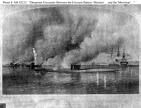



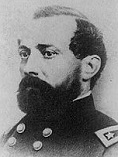
























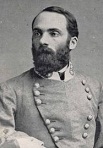

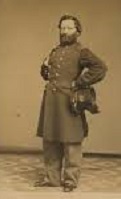
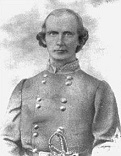
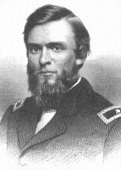




















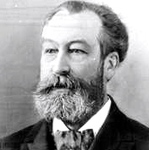
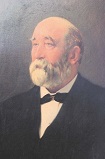


















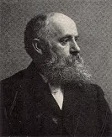





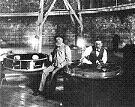

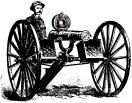


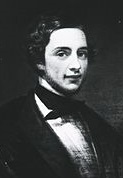



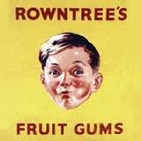
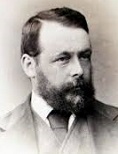





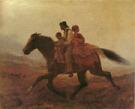
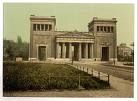
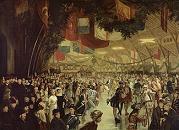

1862 On Jan. 11 too-liberal-for-bananaland Honduran pres. (since 1856) Jose Santos Guardiola (b. 1816) is assassinated by his personal guard, ending the civil war in Honduras (begun 1861); a series of five short-term acting presidents follows (until 1864). On Jan. 20 Steubenville, Ohio-born Edward McMasters Stanton (1814-69) replaces Simon Cameron as U.S. secy. of war #27 (until May 28, 1868) after Congress discovers evidence of corruption in Cameron's awarding of govt. contracts; Cameron, who has controlled the Repub. machine in Penn. since 1857 (the first state boss in U.S. politics) gets himself appointed as U.S. minister to Russia (until Nov.), getting it to support the Union. On Jan. 18 big-eared (and something else?) U.S. pres. #10 John Tyler (b. 1790), dies in Richmond, Va. at age 71, leaving eight children by his 1st wife Letitia and seven by his 30-year-younger 2nd wife Julia, the most by a U.S. pres. (until ?). On Jan. 31 the Helsingfors (Helsinki)-Tawastehus Railway in Finland is inaugurated, with composer Frans Hoyer debuting The Railway Gallop, dedicated to Baroness Rokassowsky. In Jan. the Union army begins to push the Confederates southward in Tenn., helping to strip La. of Confed. troops; on Feb. 6 Ft. Henry on the Tennessee River is captured by Union forces; on Feb. 8 Gen. Grant claims that he will take and destroy Ft. Donelson on the Cumberland River 11 mi. away, which he does on Feb. 13-16 after a desperate battle, demanding and getting "unconditional surrender" from Ky.-born commanding gen. Simon Bolivar Buckner Sr. (1823-1914) taking 14K Confederate POWs, and earning the nickname "Unconditional Surrender Grant" (the first big Union V of the war); the Confederates under Gen. Joseph E. Johnston withdraw to Nashville; in Feb. Grant is promoted to major-gen.; in 1866 Buckner becomes ed. of the Louisville Courier, followed by Ky. gov. in 1867-91. In Jan. Tex. Confeds. led by Maj. Henry Hopkins Sibley (1816-86) (inventor of the tepee-like Sibley Tent and Sibley Stove) march N up the Rio Grande from El Paso in an attempt to capture the gold fields of Colo. Territory followed by Calif. to get around the Union blockade, and capture Valverde, Albuquerque, and Santa Fe, N.M.; the Union makes a stand at Ft. Union, near Las Vegas, N.M., issuing a call for Colo. volunteers; Sibley is court-martialed for cowardice next year but gets off with a censure. On Feb. 3 Pres. Lincoln rejects an offer from King Mongkut of Siam for some royal elephants (two tusks?), noting that Yankees use steam power now. On Feb. 5 the permanent union of Wallachia and Moldavia is declared under the name Romania (Roumania), with capital at Bucharest; Prince Alexander John Cuza becomes domnitor (ruling prince) of Romania (until Feb. 22, 1866). On Feb. 6 a U.S. Navy flotilla under Capt. Andrew Hull Foote (1806-63), cmdr. of naval forces in the Upper Mississippi wins a V at Ft. Henry, followed on Feb. 14 by a land-sea V at Ft. Donelson; Foote is injured and ends up on, er, crutches, and steps down in favor of Capt. Charles Henry Davis (1807-77), then is promoted to rear adm. and given a desk job in Washington, D.C., dying next June 26 in New York City after leaving his last claim to 15 min. of fame by getting the liquor ration abolished in the U.S. Navy. On Feb. 8 the Battle of Roanoke Island becomes one of the first eastern Union Vs after 2.5K Confeds. under Brig. Gen. Henry Alexander Wise (1806-76) are overwhelmed by 13K Union troops under Maj. Gen. Benjamin Huger (1805-77), and surrender after losing 100 men, made famous by an illustration in Frank Leslie's Illustrated Newspaper; too bad, Southern newspapers claim that Roanoake "surrendered without a shot being fired", placing the blame on war secy. Judah P. Benjamin, who resigns in favor of Brig. Gen. George Wythe Randolph (1818-67) (grandson of Thomas Jefferson) (pictured on the Confed. $100 bill), after which Jefferson Davis appoints him secy. of state in Mar., his object being to try to get Britain to come into the war on the side of the Confederacy, in vain; meanwhile on Nov. 15 Randolph resigns in favor of fellow Virginian James Alexander Seddon (1815-80) (until Feb. 5, 1865). On Feb. 20 after Pres. Lincoln cancels his appointments for two weeks to sit at his bedside, his son William Wallace "Willie" "Willy" Lincoln (b. 1850) dies at age 11 after catching cold while riding his pony in a chill rain (typhoid?) - wait for Margaret Mitchell to give this a twist? On Feb. 22 (Washington's birthday) Jefferson Davis (1808-89) is approved by popular vote as the first and only pres. of the Confederate States of America (until May 5, 1865). On Feb. 27 Pres. Jefferson Davis is granted congressional authority to suspend habeas corpus. In Feb. after Pres. Lincoln goes to the Rothschild internat. banking family for a loan to finance the war, and they respond with sky-high interest rates, causing Lincoln to vow to bypass them, Congress passes the U.S. Legal Tender Act, issuing the Greenback (green ink being cheaper at the time), and rolling the printing presses to finance the war with fiat money (printed on one side only); by the end of the war it authorizes $450M of the funny (er, fiat) money, showing enough restraint to prevent runaway inflation like in the Confederacy, although the inflation is severe; in modern times the U.S. One Dollar Bill is printed with black ink on the front and green on the back, and lasts only 18-22 mo. in circulation; the money supply doubles from $745M in 1860 to $1.44B next year, yet greenbacks finance only about one-sixth of the war debt; "shinplasters" (fractional currency) (3, 5, 10, 25, 50 cents) are printed until 1876. In Feb. Gen. Burnside's Coast Div. of the Army of the Potomac captures several rebel strongholds in N.C., incl. Roanoke Island and Ft. Macon, causing him to be promoted to Maj. Gen. in command of the Ninth Army Corps. In Feb. Union commodore David Glasgow Farragut (1801-70) takes command of a task force in the Gulf of Mexico carrying 15K troops under Gen. Benjamin Franklin Butler; in Apr. they enter the Mississippi River, and on Apr. 18-23 bombard the pair of forts on either side of the river 75 mi. below New Orleans (called the Crescent City from the bend the Mississippi makes there) with a mortar flotilla under the command of David Dixon Porter (1813-91), cut a chain holding a boom of hulks across the river on Apr. 24, then pass the forts in single file; Farragut's 17 warships then steam upriver, exchanging heavy fire with the Confederates, and losing four ships and 137 men in a 90-min. battle; Farragut's fleet arrives at New Orleans on Apr. 25, and Marines enter on Apr. 29 after the Confed. forts surrender on Apr. 28; Butler's troops begin a strict occupation of the city on May 1, Butler ordering the confiscation of the property of anyone fighting in the rebel army or whose acts are treasonable to the Union (with himself as judge, jury and executioner); the Miss. is now bottled up by the Union, but Mobile, Ala. soon becomes a center of blockade-running; Butler is removed as military gov. of New Orleans in mid-Dec. after protests against his arbitrary rule - flush your lunch with buckshot? In early Mar. Pres. Lincoln proposes that federal compensation be offered to any state which begins gradual emancipation, claiming that the cost in the border states would be no more than the cost of 87 days of the war; border state opposition kills it; on Mar. 6, 1862 Pres. Lincoln proposes a revised plan of compensated emancipation for slave owners in the District of Columbia and border states, which is passed on Apr. 3, and signed by Lincoln on Apr. 16 under the name U.S. District of Columbia Compensated Emancipation Act, ending slavery in the District of Columbia, compensating the 900+ slaveowners about $300 each, and setting aside $100K to pay passage for those wanting to emigrate to Haiti or Liberia - no doubt hoping they all will, and there's more money available for that too? On Mar. 7-8 the Battle of Pea Ridge (Elkhorn Tavern) in NW Ark. near Bentonville sees 10.5K Union troops (over half German immigrants) under Gen. Samuel R. Curtis defeat 16K barefoot bloody-footprint-in-the-snow rebels (incl. 800 Cherokees) under Maj. Gen. Earl van Dorn (1820-63) (whose portrait bears a striking resemblance to Hollywood actor Kevin Costner (1955-)?), cementing Union control of Mo., showing that the rebels can't win even when they outnumber the Yankees?; Confed. Gen. Benjamin McCulloch (b. 1811) is KIA by a sharpshooter despite wearing black velvet civies with Wellington boots; Grenville Mellen Dodge (1831-1916), col. of the 4th Iowa Volunteer Regiment is wounded, becomes a hero, and is promoted to brig. gen. in command of the District of the Mississippi, where he uses his civil engineering degree to build and protect railroads. On Mar. 8 in a Confed. attempt to raise the blockade of the James and Elizabeth Rivers, the Battle of Hampton Roads, Va. sees the rebels' secret veapon, the ironclad ship Merrimack (Merrimac) (renamed CSS Virginia) (first U.S. Navy ship with rotating gun turrets), commanded by Adm. Franklin Buchanan (1800-74) (whose portrait bears a striking resemblance to Hollywood actor Dennis Hopper (1936-2010)?) destroy the Congress and three smaller vessels, then ram and sink the Cumberland, proving the superiority of ironclads over wooden warships; but never fear, during the night the secret Yankee counterweapon, ironclad ship USS Monitor arrives, and on Mar. 9 the two battlestars, er, ironclads fight for 5-6 hours to a draw (or a Union V, depending on who tells it) (blame it on the tides?); the USS Monitor, built by the Rensselaer and Corning Iron Works in Troy, N.Y., owned by John Flack Winslow (1810-92) (ancestor of TLW?), and which is used as the pattern for 60 more Union Civil War ironclads founders off the coast of Cape Hatteras on Dec. 31 while being towed, and is located in 1973 at 230 ft.; the 120-ton turret raised in June 2002. On Mar. 10 a small Confederate force invades Santa Fe, N.M., and raises the Stars and Bars over the Palace of the Governors, but skip out when Union forces return on Apr. 12, leaving copies of the commander's proclamations and empty champagne bottles. In mid-Mar. after leaving a force behind to guard Washington at Lincoln's orders, Gen. McClellan begins moving S down the Potomac. On Mar. 23 after Confed. high command considers and rejects a plan to strengthen his army enough to go all the way to Washington and abandon Richmond if necessary, Confed. Gen. Stonewall Jackson and his 18K men begin the brilliant diversionary Shenandoah Valley Campaign, winning Vs at the Battle of Front Royal on May 23 et al. against Union Gens. John C. Fremont and Nathaniel P. Banks in an attempt to prevent the Army of the Potomac (then besieging Richmond) from being reinforced; his successes cause Washington itself to be feel threatened, diverting Gen. McDowell; Jackson's foot soldiers move so fast and far that they are called "foot cavalry", and they double back to defend Richmond; on Mar. 23 the First Battle of Kernstown sees Confed. Gen. Stonewall Jackson underestimate the strength of the enemy and retreat, but it does cause Pres. Lincoln to divert more troops than necessary to the Shenandoah Valley. On Mar. 26-28 after the Confederates capture Albuquerque, N.M. (westernmost battle of the U.S. Civil War), the Battle of Glorieta Pass ("the Gettysburg of the West") on the Santa Fe Trial in New Mexico E of Santa Fe sees Union forces under Gen. Edward Richard Sprigg Canby (1817-73), aided by the 1st Colo. Infantry Regiment (1,342 men) stop Confederate forces under Maj. Henry Hopkins Sibley; "They were regular Demons, in the form of Pike's Peakers from the Denver City gold mines... shooting us down like sheep"; although the battle is a draw, Colo. Col. "Fighting Parson" women and children by the volunteer troops of the First Colo. Infantry, led by Methodist minister (since 1844) Col. John Milton Chivington (1821-94) messes up their supply train, bayoneting 600 horses and mules, causing them to give up their attempt to take Colo. gold fields and return to Tex.; Colo. volunteers cmdr. Col. (later gen.) John Potts Slough (1829-67) (pr. like cow) is so hated by his troops that they try to kill him by firing a howitzer at him?; in 1879 the 1st Colo. Infantry Battalion is born - getting some practice for Indian squaws and children? On Mar. 31 Pres. Lincoln appoints his old Ill. neighbor, Waynesville, Ohio-born Northwestern U. and U. of Denver founder John Evans (1814-97) as Colo. gov. #2 (until 1865), going on to stink himself up with the 1864 Sand Creek Massacre and be asked to resign by Pres. Johnson on July 18, 1865. In Mar. Pres. Lincoln proposes that federal compensation be offered any state which begins gradual emancipation, claiming that the cost in the border states would be no more than the cost of 87 days of the war; border state opposition kills it. In Mar. the Port Royal Experiment of inducting blacks into the U.S. army to fight the Confederates begins, but the combat unit is disbanded when the govt. refuses to pay them. In Mar. the govts. of Great Britain and France begin switching from neutrality to a rooting from the sidelines stance vis a vis the South, since they want to get their hands on its cotton, but not enough to openly recognize the Confederacy, esp. British PM Lord Palmerston, who is known for fighting the internat. slave trade - are you still feeling lucky? Goose-stepping Prussia begins the Bismarck Project to reach the Moon by the end of the decade? In Mar. after Otto Eduard Leopold von Bismarck (1815-98) is sent to Paris to serve as Prussian ambassador, the Prussian Landtag insists on an itemization of the budget so they can see that extra funds aren't going to the military, causing the king to dissolve it, resulting in another election in May in which the Progressive Party wins 133 seats; on Sept. 23 the new Landtag deletes from the budget money which has already gone towards military reorg.; after the king tries to resign but can't get his son to take the throne, Bismarck is called in for advice, and on Sept. 30 is made PM and minister of foreign affairs for Prussia, and begins relying on Article 99 of the constitution to let his idol, er, king fund the govt. using existing tax systems with or without the approval of the Loose Cannon Landtag, while devoting his career to the unification of Germany under Prussian leadership and making Germany #1 in Europe (and himself the greatest European diplomat of the cent.). Can we talk not? The resting place of the Jewish Ark of the Covenant becomes a white man's cemetery? On Apr. 5-May 4 after Union Gen. George McClellan with 121K troops overestimates enemy strength and decides against a direct attack, the Siege of Yorktown by the Yankees gives Confed. Gen. Albert Sidney Johnston time to position his army in front of Richmond; noticing that Gen. Grant's 42K troops camping along the Tennessee River are exposed, Johnston brags "Tonight we will water our horses in the Tennessee", then moves his 33K forces defending Corinth, Miss. for a successful surprise dawn attack on Apr. 6 (Sun.) in the bloody but beautiful dawn-to-sunset (first large-scale battle of the Western Theater?) Battle of Shiloh Church (Pittsburg Landing) (a log church in the center of the Union camp) (Heb. "Shiloh" = place of peace) 2 mi. from Pittsburg Landing in SW Tenn. (8 mi. N of Savannah, Ga.), killing many in their bedrolls next to Bloody Pond; Confed. Gen. Joseph Wheeler (1836-1906) of Ala. leads the cavalry; Johnston dies on the battlefield while leading a brigade charge, later called by Jefferson Davis "the turning point of our fate", leading to the stubborn Southern belief in the Lost Cause, i.e., that it was only a tragic accident that destroyed their dream; Gen. William Tecumseh Sherman has two horses shot from under him and is badly wounded, getting credit for a Union V by Gen. Grant and being promoted to Maj. Gen. of volunteers; on Apr. 7 the Yankees, reinforced by Gen. Don Carlos Buell and Gen. Lew Wallace take the offensive and win back all the lost ground, and the rebels retreat to Corinth, with the Union army unable to pursue; combined casualties are 25K, the costliest battle so far in U.S. history, exceeding the total of the Am. Rev. War, the 1812 War, and the Mexican War combined; Confeds: 1,728 KIA, 8,012 wounded, 957 MIA; Yankees: 1,754 KIA, 8,408 wounded, 2,885 MIA; upon reading the newspaper reports of all the casualties, "after Shiloh the South never smiled", while initial Union celebrations are sobered, and all hopes for a quick Union V are kaput; Gen. Pierre G.T. Beauregard succeeds Gen. Johnston; noted military strategist Gen. Henry Wager "Old Brains" Halleck (1815-72) accuses Gen. Grant of being drunk and napping during the initial attack, and gets Lincoln to give him Grant's job as field cmdr., only to become overcautious and let the rebels easily escape from Corinth on May 30 and fall back to Tupelo; Lincoln utters the soundbyte about Halleck that he's "little more than a first-rate clerk". On Apr. 12 the Great Locomotive Chase sees Union spies led by James J. Andrews (1829-62) steal the Confed. locomotive The General near Marietta, Ga.; they are later caught. On Apr. 13 2K Calif. volunteers under Col. (later Brig. Gen.) James Henry Carleton leave Camp Drum near Los Angeles, Calif., becoming the longest and most difficult march of the U.S. Civil War, ending up in the Rio Grande Valley to counter Confederate troops. On Apr. 16 the Confed. Congress passes an act of conscription declaring all white male citizens ages 18-35 members of the army for three years, and those already in service required to serve out three years; in Sept. the upper age is raised to 45, and further extended next Feb. to 17-50, with those under 18 and over 45 reserved for state defense; the act is weakened by a $500 commutation loophole as well as many other exemptions, incl. one white man for each plantation with 20 or more slaves (rich man's exemption). On Apr. 22 San Salvador signs a concordat with Pope Pius IX, making the Roman Catholic Church its state church; on July 26 Venezuela signs a similar concordat with the Church, as does Ecuador on Sept. 26; Haiti affirms its 1860 concordat; the Vatican just about has South Am. sewn up with concordats? On Apr. 29 New Orleans falls to Union forces. On May 1-Nov. 1 the 1862 Great London Internat. Exhibition in South Kensington, London features 28K exhibitors from 36 countries, attracting 6.1M visitors; too bad, it only makes a profit of £790; the cork-rubber floor covering Kamptulicon (patented 1843) makes a big splash. Mexico gets its big Cinco de Mayo? On May 5 an army of 2K-4K Mexican nationalists loyal to Benito Juarez (many of them peasants with farm implements), led by Gen. Ignacio Zaragoza (1829-62) defeats an army of 3.5K Mexican and 4.5K French soldiers loyal to Napoleon III led by French Gen. Lorenz at the Battle of Puebla (Cinco de Mayo) 100 mi. E of Mexico City; Zaragoza dies of typhoid fever on Sept. 8; the V keeps the French from aiding the Confederates in Tex., and helps the Union win the U.S. Civil War, but white supremacist Americans never consider it a holiday worth celebrating like the Mexicans, and later, Mexican-Ams. do. On May 20 Pres. Lincoln signs the U.S. Homestead Act of 1862 (effective next Jan. 1), giving citizen heads of households who are at least 21-y.-o. and never took up arms against the U.S. govt. a 160-acre tract of farmland (stolen from the Indians, who are forced onto reservations) provided they improve it (build a house and plow at least 10 acres) and live there at least five years); Confederates are excluded, but blacks aren't, and comprise 5% of the homesteaders; 2 wks. of service in the U.S. Army qualifies, regardless of age, incl. 8-y.-o. drummer boys; only 40% of the homesteaders last the required five years; the 1866 U.S. Southern Homestead Act helps black sharecroppers during Reconstruction; the 1873 U.S. Timber Culture Act requires claimants to plant trees; the 1904 U.S. Kinkaid Act applies to W Neb.; the 1909 U.S. Enlarged Homestead Act doubles allottments from 160 to 320 acres; the 1916 U.S. Stock-Raising Homestead Act increases allottments to 640 acres; by the time the act is revoked in 1986, 270M acres in 30 states (incl. Alaska) are settled in 1.6M homesteads, and one-third of modern Americans are descended from the homesteaders; the first person to file a claim is Daniel Freedman (1826-1908) in Beatrice, Neb., who marries Agnes Suiter Freeman (1843-1931) in 1865 and together have eight children; their land becomes the site of the freely suitable Homestead Nat. Monument of Am., authorized Mar. 19, 1936. In May Union Gen. David "Black Dave" Hunter (1802-86), new head of the Dept. of the South declares free all slaves in S.C., Ga., and Fla., but Pres. Lincoln quickly revokes his order despite pressure from congressional Radicals; he then orders his First South Carolina Regiment (first Arican-Am. regiment in the U.S. Army) to active duty in N Va., freaking the Confeds. and causing them to threaten him with death if captured; after he fails to receive authorization from Washington and pisses off former slaves with involuntary induction, the regiment is ordered disbanded. Just as the Dark Side of the Force is closing in on the Confederacy, their Luke Skywalker assumes command of the rebel forces, in the Return of the Jedi, Southern edition? On May 31 Gen. Joseph Eggleston Johnston and 45K rebels attack Union forces isolated on the S bank of the Chickahominy River at the unfair battle of Fair Oaks (Seven Pines), but the latter are saved by reinforcements who cross the swollen river, balancing the forces and making it fair?; Johnston is wounded for several mo., but two of McClellan's corps are wiped out; maj. gen. Gustavus Woodson Smith (1821-96) replaces Johnston, then suffers a nervous breakdown, and on June 1 Gen. Robert E. "Granny" Lee assumes command of the Army of Northern Va., and the Union positions are recaptured; when McClellan hears the news, he is glad, saying "Lee is too cautious and weak under grave responsibility"; meanwhile in Nov. after five gens. are promoted over his head to Lt. Gen., Smith resigns from the military and is appointed Confed. secy. of war - must have been looking in a mirror? By the end of May Gen. McClellan's troops sight the church spires of Richmond, Va., but encounter Confed. defenders on the N bank of the Chickahominy River N of the city (which is on the James River). On June 7-8 the First Battle of Chattanooga sees the Union under Brig. Gen. James Scott Negley (1826-1901) bombard it then withdraw. On June 19 Congress excludes slavery from the territories, but doesn't offer the owners compensation. On June 25-July 1 the 6-battle Seven Days Battles shows what Gen. Lee can do for the rebel cause as he hits the Yankees N of the Chickahominy River with everything he has, initally catching them trying to mass at a point on the James River below Richmond, and ordering his Gens. Ambrose P. Hill and James "Dutch" "Old Pete" Longstreet (1821-1904) to cross the Chickahominy and attack their right wing at the Battle of Oak Grove on June 25, but losing on June 26 at the Battle of Mechanicsville (Ellerson's Mill), where A.P. Hill is wounded and his command taken by colorful young cavalryman James Ewell Brown (J.E.B.) Stuart (1833-64); the Confederates rally and win on June 27 at the Battle of Gaines's Mill; on June 29 McClellan attacks at the Battle of Savage's Station, and again on June 30 at the Battle of White Oak Swamp in Henrico County, Va., and again at the Battle of Frazier's Farm (Nelson's Farm) (Glendale) on June 30, finally gathering for a final stand at the Battle of Malvern Hill 12 mi. S of Richmond; on July 1 Lee's forces under former Davidson engineering prof. Gen. Daniel Harvey Hill (1821-89) attack, and are driven back with severe losses, suffering heavy casualties from Union artillery and gunboats in the James River; the Union forces win a V but are unaware of it, and retreat to Harrison's Landing on the mouth of the James River to lick their wounds and nurse their "sore-tongued and fatigued horses" (McClellan); "I have just read your dispatch... Will you pardon me for asking what the horses of your army have done... that fatigues anything?" (Lincoln). In June Gen. Braxton Bragg (1817-76) of N.C. replaces Gen. Beauregard as cmdr. of the Army of the Tennessee, and attempts to hold NE Tenn., then marches into Ky. in Aug. with the hope that their people will repudiate the Union and rise up (they don't); he nearly captures Nashville but is stopped by Gen. Buell's Army of the Ohio at the Battle of Perryville (Chaplin Hills) on Oct. 8 (largest Civil War battle in Ky.), causing him to pull back into Tenn. The U.S. switches to Capital One with the no-hassle rewards? Or, pay our price or pay the Devil's price? On July 1 the U.S. Revenue Act of 1862 is signed by Pres. Lincoln to pay for the war, establishing the first federal excise tax on tobacco, which garners $3M the first year; the federal income tax is changed to a graduated (progressive) rate (first in U.S. history), rising from 5% of incomes above $600 to 10% of incomes above $10K; a luxury tax is placed on liquor, carriages, yachts, billiard tables, playing cards et al.; beer is taxed at $1/barrel; brewers producing more than 500 barrels/year must purchase a $100 federal license, reduced to $50 for less than 500 barrels/year; the first Commissioner of Internal Revenue is George Sewall Boutwell (1818-1905) of Mass., who bolted the Dem. Party in 1854 to help organize the sewer, er, sea wall Repub. Party; in 1863 New England produces 161,607 barrels of beer; too bad, the tax only finances 21% of wartime expenditures; in 1866 new regs require application tax stamps to beer barrels in the factory; the act is rescinded in 1872 after millionaire William Backhouse Astor Sr. goes to court and gets it ruled unconstitutional; on Aug. 21, 1862 in response to federal taxation, the United States Brewers' Assoc. (Lager-Beer Brewers Assoc. until Oct. 1864) is founded by 37 breweries in a meeting at Pythagoras Hall in New York City, becoming the first trade and lobbyist group in the U.S., lobbying the govt. to refund the tax on lager then sending a commission to Europe to study excise laws on malt liquors, convincing the govt. to temporarily reduce the beer tax to 60 cents/barrel then keep the tax constant until 1898 while taxes on distilled liquors increase 3x; after Congress raises the tax on beer by $1/barrel in 1898 to fund the Spanish-Am. War, it successfully lobbies to get the increase abolished in 1902; in 1896 it pub. Documentary History of the United States Brewers' Association with a Sketch of Ancient Brewers' Guilds: Modern Brewers' Associations, Scientific Stations and Schools, Publications, Laws and Statistics Relating to Brewing Throughout the World; in 1986 it becomes the Beer Inst., with HQ in Washington, D.C. On July 9 Pres. Lincoln visits McClellan's HQ, only to have the conceited gen. take it out on him, complaining of lack of support from his admin. and presenting him with the Harrison's Landing Letter, which tells the pres. how to run the war; when Lincoln returns to Washington on July 11 he replaces McClellan as gen.-in-chief, but allows him to keep command of the Army of the Potomac; Lincoln offers Italian hero Giuseppe Garibaldi (1807-82) command of the Union Army, but withdraws the offer after protests by the Vatican (causing later rumors that the Vatican engineered Lincoln's assassination to get even); he then calls in Gen. Henry Wager "Old Brains" Halleck (1815-72) (textbook expert) from the West to Washington. On July 12 the U.S. Congress authorizes the (Congressional) Medal of Honor; it is first awarded to six Union soldiers who hijacked the Confed. locomotive The General (raid leader James J. Andrews doesn't get one because he's a civilian?). On July 13 the First Battle of Murfreesboro sees the Confed. cavalry under Gen. Nathan Bedford Forrest (1821-77) capture the Union garrison at the important Union supply center of Murfreesboro in Rutherford County, Tenn. on the Nashville and Chattanooga Railroad and tear up the track, halting the Union advance on Chattanooga, becoming the first significant Confed. operation behind Union lines in the Western theater. On July 16 the U.S. Congress passes a Naval Ranks Act creating the ranks of vice-adm., rear-adm., and commodore, with nine grades of commissioned officers; David G. Farragut becomes the first rear Adm. in the U.S. Navy, followed by the first vice-adm. in 1864 and first Adm. in 1866, providing for an active list of one adm., one vice-adm., and nine rear-adms; he also becomes the first Hispanic U.S. Adm. On July 17 Congress passes the U.S. Second Confiscation Act, liberating the slaves of all persons aiding the rebellion, and authorizing the enlistment of blacks; the army is forbidden to help the return of runaways to border-state owners; since the confiscation of rebel land is only valid for the lifetime of the offender (under the U.S. Constitution), and communism doesn't turn abolitionists on, it isn't used to give freed slaves their own farms; Congress permits S.C. Gen. Rufus Saxton (1824-1908) to raise recruits from Sea Islands to reform the First S.C. Volunteer Regiment in Nov. under Capt. (later Lt. col.) Charles Tyler Trowbridge (-1907), followed on Nov. 10 by Col. Thomas Wentworth Higginson (1823-1911) (white Mass. Unitarian abolitionist minister and writer, who later discovers Emily Dickinson), going on to raid the coasts of Ga. and Fla. late in the year. On Aug. 4 the Battle of Cravensville on the site of the Mormon Adam-ondi-Ahman sacred ground in Daviess County, Mo. sees Union troops attempt to stop Confed. reinforcements in the coming (Aug. 11) First Battle of Independence, with six rebels KIA and 10 wounded vs. five Yankees wounded; the Confeds. win in Independence, but the Union keeps recruiting fresh troops. On Aug. 10 the Nueces Massacre (Massacre on the Nueces River) sees a group of 61 pro-Union German immigrants fleeing from the Hill Country of Tex. to Mexico en route to New Orleans, La. ambushed by 96 Confed. soldiers under Brig. Gen. Hamilton Prioleau Bee (1822-97) on the Nueces River, who kill 37, ending German resistance to the Confederacy but pissing-off the German pop. On Aug. 11 the Battle of Compton's (Little Compton) Ferry on the Grand River in Livingston County, Mo. is a V for Union forces under Col. Odon Guitar (1825-1908) over 1.2K-1.5K Confed. recruits under Col. John A. Poindexter (1825-69), who are caught trying to cross the river and end up in headlong retreat, with the Yankees in close pursuit, cornering them at the Battle of Yellow Creek, obliterating the Confed. force and ending their recruiting efforts in N Mo.; Poindexter is captured on Sept. 1 at a private's house wearing civilian clothes, after which he is accused of being a guerrilla and almost executed. Lincoln wants to free the slaves - as long as they leave America? On Aug. 14 Pres. Lincoln delivers his Suffers from Your Presence Speech to a group of prominent free blacks: "Your race suffers greatly, many of them, by living among us, while ours suffers from your presence. If this is admitted, it affords a reason why we should be separated"; the Lincoln admin. sends inquiries to South Am. and African govts., but only Panama and the Caribbean island of Ile a Vache (Fr. "cow island") off SW Haiti are found acceptable as places for freed slave colonies - who must of course be put far enough away to be kept from "our white wimmin"? On Aug. 18 Horace Greeley issues the Prayer of Twenty Millions in the New York Tribune, the most dramatic public scolding that Pres. Lincoln has yet received, calling for emancipation; on Aug. 22 Lincoln responds with a Letter to Horace Greeley, containing the soundbytes "My paramount object in this struggle is to save the Union and is not either to save or destroy slavery" and "If I could save the Union without freeing any slave, I would do it. If I could save it by freeing all the slaves, I would do it - and if I could do it by freeing some and leaving others alone, I would also do that"; on Sept. 7 Scottish-born Am. radical Dem. abolitionist Robert Dale Owen (1801-77) (son of British utopian socialist Robert Owen) writes Lincoln a letter urging him to end slavery on moral grounds, which seems to get to him. On Aug. 20 the First Battle of Brandy Station in Culpeper County, Va., 55 mi. SW of Washington, D.C. is a push. On Aug. 28 after Giuseppe Garibaldi gets pissed-off at the presence of French troops in Rome and marches to liberate it with 3K volunteers, the Battle of Aspromonte near Reggio Calabria in S Italy is a D for Garibaldi at the hands of Italian troops led by gen. Enrico Cialdini after his forces refuse to fire on fellow subjects of the Kingdom of Italy; Garibaldi is wounded in the foot, captured, and held in honorary confinement in Varignano, then released and allowed to return to Caprera. On Aug. 29-30, before McClellan's Army of the Potomac can return to Washington for a new overland assault on Richmond, the Confederates under Gens. Lee and Jackson again kick Union butt at the Second Battle of Bull Run (Second Manassas); in a dashing night attack on Aug. 29, J.E.B. Stuart's "foot cavalry" sweep around the right flank of Union Gen. John Pope (1822-92), cmdr. of the Washington defense forces, attacking his supply lines at Cedar Mountain and even capturing his papers; on Aug. 30 Jackson's forces engage Pope's at Manassas Junction, until Lee's main army arrives and crushes Pope's flank, driving him from the field and forcing him to wear more ruts in the road back to Washington with his ragtag Yankee losers; the Yankee folks back home begin to wonder if this war is worth it; Gen. Irvin McDowell suffers another defeat, and is never given another battlefield command; McClellan arrives and takes command, telling his wife in a letter "Again I have been called upon to save the country"; Union Maj. Gen. Fitz-John Porter (1822-1901) of N.H. is court-martialed for refusing to obey Gen. Pope's order to attack, and found guilty next Jan. despite claiming innocence; the decision is reversed 1879, and his rank restored in 1896. On Sept. 1 the Battle of Chantilly (Ox Hill) in Fairfax County, Va. is a push; Union Gen. Philip Kearny Jr. (b. 1815) ("the One-Armed Devil") mistakenly rides into the Confed. lines and is KIA. On Sept. 3/4 the Confed. Invasion of Md. (Maryland Campaign) (ends Sept. 20) sees Gen. Lee's 55K-man army cross the Potomac River at White's Ford in the hopes of forcing a negotiated peace, capturing Frederick, Md. and Hagerstown, Md. N of the Potomac River 30-50 mi. NW of Washington D.C., then on Sept. 14 suffer a D at the Battle of South Mountain (Boonsboro Gap); 96-y.-o. matron Barbara Fritchie (Frietchie) (nee Hauer) (1766-1862) defiantly waves the Stars and Stripes from an upper window as Stonewall Jackson's Confed. troops march through Frederick; Union Maj. Gen. Jessee Lee Reno (b. 1823), known as a soldier's soldier is KIA at Fox's Gap, after which Fort Reno in Okla. Territory and Fort Reno in Washington, D.C. are named after him, along with Reno, Nev.; on Sept. 9 Lee's Lost Order, his battle plan for the invasion of Md., revealing that he has split his troops and sent Gen. Jackson off to take their old stomping grounds of Harpers Ferry 16 mi. S. of Sharpsburg is found by a Union soldier of the 27th Indiana in Frederick rolled up in some cigars; it should have allowed the Union to be ready for him, but Cloudy McClellan delays for 16 hours as Lee reassembles his tired 2-1 outnumbered 50K-man army behind Antietam Creek near Sharpsburg, Md., resulting on Sept. 17 in the Battle of Antietam (Sharpsburg), becoming the first battle fought on Union soil, the bloodiest day of the U.S. Civil War, and the largest 1-day bloodbath on U.S. soil (until ?) (23,110 total casualties, incl. 6K dead and 17K wounded); the rebels are saved from disaster by A.P. Hill's div. arriving from Harpers Ferry, attacking the Union left flank, which is itself saved by Union gen. Hugh Boyle Ewing making a brilliant change of front; the Union is on the verge of breaking the rebels twice, only to be held back by Gen. McClellan, who falsely believes that Gen. Lee has hidden reserves; "No tongue can tell, no mind conceive, no pen portray the horrible sights I witnessed this morning" (a Penn. soldier); Gen. James Longstreet is severely wounded; the battle is a push, but the rebel losses of 10K killed and wounded vs. an equal number for the Union represents 25% of Lee's army, forcing him to withdraw from the field on Sept. 18, ending his invasion of Md. to seek refuge in Fredericksburg, Va. by the Rappahannock River; "God has been very kind to us this day" (Lee); Lincoln uses Lee's withdrawal to declare a Union V and dust off his Emancipation Proclamation; Mathew Brady photographs the grisly aftermath, becoming the first time the dead are photographed before being buried, helping solidify Northern support for a total V. On Sept. 10 Carlos Antonio Lopez (b. 1790) dies, and his son and vice-pres. Francisco Solano Lopez (1826-70) becomes pres. of well-armed tobacco-yerba mate producer Paraguay (until 1870). On Sept. 14 the Kanagawa (Namamugi) Incident sees top-knotted sword-wielding Japanese samurai murder English Shanghai merchant Charles Lennox Richardson (b. 1834) (a racist who whipped Chinese in China) for not dismounting for Satsuma bigwig Shimazu Hisamitsu (1817-87) as his retinue of 1K passes him on the Tokaido Road in Namamugi village, causing the Anglo-Satsuma War on Aug. 15-17, 1863. Bam and the dirt is gone? One of the greatest political acts in history, changing the U.S. Civil War into one for a new birth of freedom, taking the spine out of the rebels in their quiet thoughtful moments? On Sept. 22 after informing his cabinet in July of his purpose, then submitting it in draft form (handwritten on four sheets of paper) on Aug. 22, and haunting the War Dept. waiting for news of a Union V to make it not look like a desperation move, Pres. Lincoln issues a preliminary Emancipation Proclamation (#95), permanently freeing all slaves living in rebel territory as of Jan. 1, 1863 (where he had no power to free them?), while leaving those in border states in slavery, albeit with an understanding that one day, one day; the Russians, who freed their serfs in 1861 are favorably impressed at being copied by the backward Amerikanskies; now the Union stands for the principle that all men shall be free, giving it a religious dimension (the original playing of the race card, get me a hanky I'm about to faint); Frederick Douglass predicts that it "will be worthless, miserable mockery unless the nation shall so far conquer its prejudice as to welcome into the army full-grown black men to help fight the battles of the Republic"; it takes until 2008 for the U.S. to elect its first pres. with a noticeable amount of African blood. On Sept. 30 the First Battle of Newtonia in Newtonia, Mo. is a V for the Confeds. incl. an Indian brigade under Col. Douglas H. Cooper against Union troops incl. three Indian regiments from Ft. Scott under Brig. Gen. James Gilpatrick (Gillpatrick) Blunt (1826-81). In Sept. the Union ship USS Essex under William David Porter bombards Natchez, Miss., after which he is promoted to commodore and shuttled off to New York City. In Sept. 34-y.-o. Count Leo Tolstoy (1828-1910) marries 18-y.-o. Sofia Andreyevna Behrs (1844-1919), and begins work on The Decembrists, a long novel of which only the first three chapters are pub., but the research for it leads him to the 1812 Napoleonic invasion and hence to his really big novel "War and Peace". In early Oct. Union Gen. Ulysses S. Grant, "the chunky man from the West" (Stephen Binet) ("I need this man - he fights" - Pres. Lincoln) begins a long-range attack on "the Gibraltar of the Confederacy" Vicksburg, Miss. "the nail head that holds the South's two halves together" (Jefferson Davis) ("Vicksburg is the key. The war can never be brought to a close until the key is in our pocket" - Abraham Lincoln); on Oct. 3-4 the Second Battle of Corinth, Miss. is a V for the Union after the Confeds. take the city and then retreat in the face of Union reinforcements, nearly getting trapped on Oct. 5 in the Battle of Hatchie Bridge; Knox County, Ohio-born "Old Mother" Mary Ann Ball Bickerdyke (1817-1901) gains fame as a nurse with Grant's army, going on to fight for pensions for veterans and nurses after the war. On Oct. 4 the Union captures Galveston, Tex., but the Confeds. under Maj. Gen. John Bankhead Magruder (1807-71), "the handsomest soldier in the Confederacy" begin planning a counterattack. On Oct. 7 William Ewart Gladstone (chancellor of the exchequer) gives his Newcastle Speech, with the soundbyte: "We have our own opinions about slavery, we may be for or against the South, but there is no doubt that Jefferson Davis and other leaders of the South have made an army, they are making, it appears, a navy, and they have made what is more than either, they have made a nation. We may anticipate with certainty the success of the Southern states as far as their separation from the North is concerned"; too bad, the failed invasion of the North in Sept. keeps Britain from recognizing the Confederacy. On Oct. 23 after a Greek army mutiny, Bavarian king (since May 27, 1832) Otto I of Greece (b. 1815) is deposed by the nat. assembly with the approval of the Euro powers, and flees the country. In Oct. Philly banker Jay Cooke (1821-1905), "the financier of the Civil War" begins a nationwide campaign to sell war bonds, which don't depreciate in value against gold like greenbacks, and eventually floats over $2B worth, being helped by the fact that new banks formed under the Nat. Banking Act are required to invest part of their capital in them. In Nov. the 1862 U.S. nat. election sees the Dems. exploit the war to gain many seats, but not enough to control Congress. On Nov. 9 Pres. Lincoln relieves Gen. McClellan of command, sending him a 1-sentence letter which says, "If you don't want to use the army, I should like to borrow it for a while", transferring him to recruiting duty in N.J. after he bids farewell to his officers on Nov. 11 in Warrenton, Va.; Lincoln replaces him as CIC of the Army of the Potomac with Gen. Ambrose Everett Burnside (1824-81), whose distinctive facial hair creates a sideburn craze, first called burnsides then sideburns; he considers himself unfit to command such large numbers, and just needs one chance to prove it, causing Lincoln to go from bad to worse with the Army of the Potomac, and it's all his fault? On Dec. 1 Pres. Lincoln delivers his 1862 Annual Message to Congress, preparing them for his coming Emancipation Proclamation, issuing the soundbyte "We cannot escape history", and raising the question of border-state compensation, and warning them to be "anxious and careful" that the war does not "degenerate into a violent and remorseless revolutionary struggle"; "Without slavery the rebellion could never have existed; without slavery it could not continue... We cannot escape history... In giving freedom to the slave, we assure freedom to the free... We shall nobly save, or meanly lose, the last best hope of Earth"; he adds "Property is the fruit of labor. Property is desirable, it is a positive good in the world. Labor is prior to, and independent of capital. Capital is only the fruit of labor, and could never have existed if labor had not first existed. Labor is the superior of capital, and deserves much the higher consideration" - sounds like an ad for Marx? On Dec. 13 Gen. Sideburns, er, Burnside sends the Army of the Potomac across the icy Rappahannock River to assault Lee's forces who are well entrenched W of Fredericksburg on Marye's Heights, and the Battle of Fredericksburg, Va. on Dec. 13 is a big V for the Confeds. under Gens. Lee, his "right hand man" Jackson, and Longstreet, teaching the value of a stone wall in a Civil War battle (one which Granny Lee doesn't remember at Gettysburg?); the Union takes 12K casualties to 6K for the Confederates; Lee issues a soundbyte: "It is well that war is so terrible, else we should grow too fond of it"; the forces in the east are now deadlocked, and back home Northern Dems. are calling for a negotiated peace, while Repub. Radicals are looking for scapegoats and calling for blood, esp. Burnside, Seward, and even el jefe Lincoln. On Dec. 14 the Civil War Aurora is seen by soldiers in Fredericksburg, Va. On Dec. 24 the first life insurance policy is issued by the John Hancock Mutual Life Insurance Co. of Mass. to its first agent Albert Murdock. On Dec. 26-29 the Battle of Chickasaw Bayou at Johnson's Plantation on the Yazoo River in Miss. sees Grant's and Sherman's forces repulsed with heavy casualties. On Dec. 31-Jan. 2 the Confederates under Gen. Braxton Bragg (1817-76) fight the Union forces under Gen. William Starke Rosencrans (1819-98) (Buell's replacement, after Lincoln accuses him of having "the slows") at the Battle of Stones River (Second Battle of Murfreesboro), ending in a stalemate after 23K are KIA by both sides, becoming the highest percentage of casualties on both sides of the war; on Dec. 31 Union Brig. Gen. Joshua Woodrow Sill (1831-62) is KIA after switching coats with his West Point classmate and friend Gen. Philip Sheridan, causing the latter to later name Fort Sill in Okla. Territory after him; Union Maj. Gen. (since Nov.) James Scott Negley saves the day on the 2nd day by leading a successful counterattack against the Confeds. under gen. John C. Breckinridge; hearing of Union reinforcements, Bragg falls back to Chattanooga, and both armies regroup for 6 mo. On Dec. 31 Pres. Lincoln signs an act admitting W. Va. to the Union. The Turkish sultan recognizes the autonomous principality of Romania, with capital at Bucharest (modern pop. 1.9M/2.6M). Monaco sells Menton and Roquebrune to France. A pro-clerical uprising in the Bay Islands of Honduras protests religious freedom for non-Catholics, turning into civil war against liberal pres. Jose Santos Guardiola (ends 1862). The Chinju Uprising in Korea, led by a fallen yangban (court official) kills a number of corrupt and greedy officials. It's court-packing time at the Washington Zoo? Them pesky Southerners out of the way in Congress, and three Supreme Court justices having recently kicked the bucket (Peter Vivian Daniel in 1860, John McClean and John A. Cambell in 1861), Pres. Lincoln appoints three new justices who have their minds right, Noah Haynes Swayne (1804-84) (#35) (Jan. 24) (until Jan. 24, 1881), Ky.-born Samuel Freeman Miller (1816-90) (#36) (July 16) (until Oct. 13, 1890), and David Davis (1815-86) (#37) (Oct. 17) (until Mar. 4, 1877) (no relation to Jefferson Davis?), giving the court a full nine members; too bad, pesky Roger B. Taney (1836-64) still has a couple of years left? As good whites kill bad whites in the South, PC whites are allocated land in the West to breed like rabbits? The U.S. grants Haiti diplomatic recognition, sending color-right Frederick Douglass as its Consular Minister. The French acquire the seaport of Obock (Obok) (Ubuk) in E Africa on the N side of the Gulf of Tadjoura opposite Djibouti, but don't occupy it until 1884. Gee, don't blame Blaine from Maine? James Gillespie Blaine (1830-93) of Maine becomes Speaker of the U.S. House of Reps. (until 1875), vigorously supporting the Lincoln admin., then working to tone down the radical measures of Thaddaeus Stevens during the Reconstruction era. Pres. Lincoln appoints Dem. Tenn. Sen. Andrew Johnson (b. 1808), the only Southern senator to remain loyal to the Union as military gov. of occupied Tenn., with rank of Brig. Gen. After Union gen. Grenville Mellen Dodge helps Thomas Clark Durant (1820-85) get rich by smuggling contraband cotton from the Confed. states, and he decides to invest it in railroads, the Union Pacific Railroad is chartered by the U.S. Congress to build a railroad from the Missouri River to the Pacific Ocean with $60M in govt. subsidies and 20M acres of land; the Central Pacific Railroad Co. of Calif. (mainly Chinese laborers under supervision of dry goods store owner Charlie Crocker) works E from Sacramento, while the Union Pacific (mainly Irish laborers under supervision of Gen. Grenville Mellen Dodge, who discovers a pass through the Black Hills in the 1865 campaign, and resigns from the military in 1866, then gets appointed chief engineer with the endorsement of Gens. Grant and Sherman) works W from Omaha, Neb., all beginning next year; "They built the Great Wall of China, and that's the biggest run of masonry in the world" (Crocker) (biggest crock?); too bad, in 1867 U.S. rep. (R-Mass.) (a major stockholder) Oakes Ames (1804-73) sandbags the govt. by getting a bill passed authorizing the railroad to issue its own bonds based on the sum lent to it by the govt., while placing the entire risk on the govt., then helps the stockholders buy the Penn. Fiscal Agency, rename it the Credit Mobilier of Am., and use it as a front to rob the Union Pacific blind of $44M by 1868; when the public complains, Ames bribes a number of congressmen and federal judges with stock to shut them up, until the New York Sun prints letters from Ames' associate Henry Simpson McComb proving that the co. got $72M in contracts to build the railroad, which is itself only worth $53M, causing it to go bankrupt, stiffing investors - that's so ravin', could you please remove your dog? Ft. Douglas (closed in 1991) overlooking Salt Lake City, Utah is built by Irish-born Union Col. (later Maj. gen.) Patrick Edward Connor (1820-91) to keep a watch on the pesky Mormons and protect overland routes from pesky Indians. War is good for what? War profiteers take advantage of the U.S. Civil War to sell the Union army shoddy goods; "This is the age of shoddy" (New York Herald); many rich U.S. families lay their groundwork now, incl. the Morgan, Rockefeller (Cleveland, Ohio), Mellon (Pittsburgh, Penn.), Carnegie, Stanford, Huntington, Armour, and Swift (Chicago, Ill.) families. The Chinese defeat the Taipings in Shanghai. Vietnamese emperor Tu Duc (pr. doo-yoke) surrenders to the French, who set up the colony of Cochin China (not to be confused with Cochin in SW India). The U.S. Dept. of Agriculture (USDA) is created by Pres. Lincoln, who calls it the "people's department"; it is given cabinet status in 1889. The U.S. Army Medical Museum (AMM) is founded in Silver Spring, Md. (near Washington, D.C.) by U.S. Army Surgeon Gen. Wiliam A. Hammond; in 1989 it is renamed the Nat. Museum of Health and Medicine (NMHM). Repub. Party co-founder George William Curtis (1824-92) delivers the address "Doctrine of Liberty" to the Phi Beta Kappa Society at Harvard U. on behalf of Pres. Lincoln, laying out the intellectual foundations of Am. education that are adopted by U.S. public schools for the next cent.; next year he becomes political ed. of Harper's Weekly, launching the column "The Easy Chair". New England novelist Nathaniel Hawthorne visits the South to see the Civil War firsthand, and comes upon a group of ex-slaves trudging northward, writing the soundbyte: "They seemed a kind of creature by themselves, not altogether human, but perhaps quite as good, and akin to the fauns and rustic deities of olden times. Whoever may be benefited by the results of this war, it will not be the present generation of negroes." 6'4" Pres. Lincoln meets 4'11" Harriet Beecher Stowe (1811-96), and issues the immortal soundbyte: "So you're the little lady who wrote the book that started this great war". Denver, Colo. founder William H. Larimer Jr. fails in his bid for mayor, probably because the miners don't want a stern, elderly Presbyterian who doesn't cotton to their wild frontier entertainments; having also failed to get Pres. Lincoln to appoint him the first gov. of Colo. Territory instead of Quaker William Gilpin, he sours and moves back to Leavenworth, Kan., decrying Colorado's "lack of comforts". The 1862 Garrotting Panic grips London, although it was blown way out of proportion? Mormon settler Walter Murray Gibson (1822-88) arrives in Lanai, Hawaii to reorganize the Mormon colony, becoming a friend and advisor to King Kalakaua and ending up getting excommunicated for registering the land under his own name and refusing to turn it over to the church, causing him to expel those who don't support him from his colony and church; on May 20, 1882 he is appointed foreign affairs minister, followed on June 30, 1886 by PM of Hawaii (until Oct. 13, 1886), giving the king bad counsel incl. building his own Pacific Empire, leading to the 1887 Hawaiian Constitution, after which he flees the islands and dies broke in San Francisco, Calif. on Jan. 21, 1888. The desert resort city of Palm Springs, Calif. E of Mount San Jacinto in the Coachella Valley 55 mi. E of San Bernardino, 107 mi. E of Los Angeles, 123 mi. NE of San Diego, and 268 mi. W of Phoenix, Ariz. (modern-day pop. 44K) (named after the Calif. fan palm Washingtonia filifera) is founded by Jack Summers as a stagecoach station on the Bradshaw Trail; in 1876 the Southern Pacific Railroad bypasses it 6 mi. to the N, stifling pop. growth; in 1886 Dr. Welwood Murray founds Murray Hotel for health tourists; in 1906 health nut George Wharton James pub. The Wonders of the Colorado Desert (2 vols.), which praises it for its "great charms and attractiveness", making fans of U.S. vice-pres. Charles Fairbanks, naturalist John Muir, and Robert Louis Stevenson's widow Fanny Stevenson before it is demolished in 1909; in 1920 J. Smeaton Chase pub. Our Araby: Palm Springs and the Garden of he Sun, causing Pearl McCallum and her husband Austin G. McManus to build the Art Deco Oasis Hotel in 1924, designed by Frank Lloyd Wright, starting a luxury resort hotel boom that makes it popular with Hollywood stars in the 1930s. The Metropolitan Railway of London, designed by John Fowler opens. Russian musician Anton Rubinstein founds the St. Petersburg Conservatory; in 1866 his brother Nikolai Rubinstein founds the Moscow Conservatory. After leaving her daughter Avis in England, strong-willed English widow Anna Leonowens (1831-1915) and her son Louis travel to the exotic kingdom of Siam to educate the harem and children of the even stronger-willed king Yul, er, Rama IV Mongkut, witnessing the torture and execution of adulteress Tupim, and educating heir apparent Chulalongkorn. British explorer John Hanning Speke (1827-64) identifies the source of the White Nile as a large waterfall at the N end of Lake Victoria (later submerged by the Owens Falls Dam). Adolf Schreyer (1828-99) is appointed court painter to the Grand Duke of Mecklenburg, going on to paint some great battle scenes of the Franco-Prussian wars. French-born Charles Ranhofer (1836-99) becomes head chef of Delmonico's Restaurant in New York City (until 1876, then 1879-96), going on to become #1 in the U.S. as well as the first internationally-renowned U.S. chef. The Russkies one-up the English with a better Bible? After Tsar Alexander II patronizes a mission to Sinai, in the late 1850s, German scholar Lobegott Friedrich Constantin von Tischendorf (1815-74) returns with the Codex Sinaiticus, one of the oldest Bible mss. ever discovered (4th cent. C.E.), found in St. Catherine's Monastery on Mount Sinai in 1844; it is pub. by order of the tsar to critical acclaim; "Providence has given to our age... the Sinaitic Bible, to be to us a full and clear light as to what is the real text of God's Word written, and to assist us in defending the truth by establishing its authentic form." Pfaff Co. in Kaiserslautern, Germany is founded by guitar player Matthew Pfaff (1823-93) to produce sewing machines. Coal-filtered fruit-flavored white Bacardi Rum is introduced. Chase & Sanborn brand coffee is introduced in Boston, Mass, becoming the first roasted coffee shipped in sealed tins; in 1929 it is acquired by Standard Brands, which in 1981 merges with Nabisco, which sells it to Kraft-General Foods in 1987, which sells it in 1984 to Hill Bros., followed in 1984 by Nestle, Sara Lee in 1999, and Massimo Zanetti Beverage Group in 2006. Cloetta confectionary and nut co. is founded in Copenhagen, Denmark by Swiss brothers Bernhard, Christopher, and Nutin Cloetta, opening a factory in 1873 in Malmo, Sweden, which in 1901 moves to Ljungsbro; in 1917 it is acquired by the Swedish Chocolate Factory; in 2012 it merges with much larger Leaf Brands under the Cloetta name. H.I. Rowntree's confectionary business in Castlegate, York, England is founded by English Quaker Henry Isaac Rowntree (1837-83), who buys out the Tuke family, then in 1869 adds his brother Joseph Rowntree (1836-1925), growing to 4K employees by 1900; in 1881 it introduces Rowntree's Fruit Pastilles, followed by Rowntree's Fruit Gums (1893), Aero Bars (1935), Kit Kat (1935), Smarties (1937), Polo (1948) (from the polar taste of the mint), and After Eight Mint Chocolate Thins (1962); in 1969 it merges with John Mackintosh & Co., makers of Rolo, Munchies, Carmac, and Quality Street to become Rowntree Mackintosh; in 1971 it acquires Menier Chocolate of france; in 1976 it introduces the Yorkie Bar, followed by the Lion Bar (Big Cat) (1977); in 1978 Hershey acquires the U.S. rights to Kit Kat and Rolo; in 1988 after it becomes the 4th largest chocolate manufacturer on Earth after Mars, Hershey, and Cadbury it is acquired by Nestle for £2.55B. Sports: Jem Mace loses his British heavyweight boxing title to "the Fighting Sailor" Thomas "Tom" King (1835-88), then regains it when King refuses a rematch. The English cricket team tours Australia for the first time. Architecture: The Propylaea in Munich (begun 1846) finishes construction. The Victoria Skating Rink in Montreal, Quebec, Canada opens, becoming the site of the first-ever ice hockey game on Mar. 3, 1875, and the first Stanley Cup playoff games in 1894; in 1889 Lord Frederick Stanley witnesses his first ice hockey game there; after it becomes the first bldg. in Canada to be electrified, in 1896 telegraph wires are connected to broadcast live to fans in Winnipeg; it also helps the development of figure skating in Canada. Inventions: N.C.-born agricultural equipment maker Richard Jordan Gatling (1818-1903) patents the 10-barrel hand-cranked hundreds-of-rounds-per-min. Gatling Gun (the first practical machine gun) just in time for use on some Johnny Rebs; it is first used by the Union Army in 1864, but never sees extensive use. J.R. Johnson and J.S. Atkinson of London patent an improved type-casting machine that automatically performs all operations subsequent to punch-cutting and matrix-justifying. German engineer Nikolaus August Otto (1832-91) patents a crude 2-stroke internal combustion gasoline engine with a carburetor based on the 1860 illuminating gas engine of Etienne Lenoir of Belgum; German entrepreneur Eugen Langen (1833-95) partners with him to found NA Otto & Cie, the world's first engine factory; the 1867 Paris World Exhibition awards the engine their grand prize; too bad, the factory goes bankrupt, and Eugen goes on to found the Deutz factory, which later becomes Kloeckner-Humboldt-Deutz (KHD), later renamed Deutz AG. Science: On Jan. 20 Am. antiquities dealer Edwin Smith (1822-1906) purchases the Edwin Smith Papyrus from Egyptian dealer Mustapha Aga in Luxor, Egypt, becoming the oldest medical text to survive to modern times, dated to 1,600 B.C.E.; he comes into temporary possession of another medical papyrus which is purchased in 1873 by Georg Moritz Ebers. On Jan. 31 Am. astronomer Alvan Graham Clark (1832-97) of Cambridgeport, Mass. discovers blue-skewed Sirius B, the first white (degenerate) dwarf star, a companion of Sirius (Alpha Canis Majorus). On July 16 Comet Swift-Tuttle (109P/Swift-Tuttle) (period 133.28 years) is first observed by Am. astronomers Lewis A. Swift (1820-1913) and Horace Parnell Tuttle (1837-1923); it is rediscovered in 1992 by Japanese astronomer Tsuruhiko Kiuchi. French geologist Alexandre-Emile Beguyer (Béguyer) de Chancourtois (1820-86) arranges the chemical elements based on the new (1858) values of atomic weights of Stanislao Cannizzaro in the form of a spiral graph centered on tellurium, showing that elements on related portions of the spiral have analogous properties, scooping Dmitri Mendeleyev; too bad, since he's a geologist, the chemists don't read it - coulda had a V-8? Scottish-born German astronomer Johann von Lamont (1805-79) discovers electrical currents in the Earth. German botanist Julius von Sachs (1832-97) discovers that starch is produced by photosynthesis. Dutch opthalmologist Hermann Snellen (1834-1908) introduces the Snellen Chart to test visual acuity, consisting of 11 lines of "optotypes" (specially-designed letters, using only CDEFLOPTZ; line #8 is for 20/20 vision). German chemist Friedrich Wohler (1800-82) discovers calcium carbide. The velvety silvery-blue deer-resistant Colo. Blue Spruce (Picea pungens) is discovered on Pikes Peak in Colo. Nonfiction: Thomas Arnold the Younger (1823-1900), A Manual of English Literature; becomes a std. textbook in Britain. Friedrich Bleek (1793-1859), Einleitung in das Neue Testament. George Borrow (1803-81), Wild Wales, Its People, Language, and Scenery. Sir Richard Francis Burton (1821-90), The City of the Saints: And Across the Rocky Mountains to California; his 100-day journey from St. Joseph, Mo. to Salt Lake City and San Francisco, incl. his meeting with Brigham Young, and his observations on the "peculiar institution" of polygamy, "at once the bane and blessing of Mormonism". John Elliott Cairnes (1823-75), The Slave Power; exposes the disadvantages of the employment of slave labor, influencing Brits against the Confederate States of Am. Charles Stuart Calverley (1831-84), Verses and Translations. John McLeod Campbell, Thoughts on Revelation. Ramon de Campoamor y Compoosorio, Polemicas con la Democracia. Elizabeth Charles (1828-96), The Chronicles of the Schonberg-Cotta Family; about Martin Luther. Moncure D. Conway (1832-1907), The Golden Hour; abolitionist. Charles Darwin (1809-82), Fertilization of Orchids. Jean Henri Dunant (1828-1910), A Memory of Solferino (Un Souvenir de Solferino); based on his experiences in the 1859 Battle of Solferino in the Franco-Austrian War; recommends that neutral orgs. be established to aid wounded soldiers in war, inspiring the creation of the Internat. Committee of the Red Cross next year. Camille Flammarion (1842-1925), The Plurality of Inhabited Worlds. Moses Hess (1812-75), Rome and Jerusalem: The Last National Quetion (Leipzig); his magnum opus; argues for a Marxist-Socialist Jewish state in Palestine to bring about "the Sabbath of history" after mass immigration of Jewish working class people who found rural kibbutzim and moshavim seeking "redemption of the soil", along with an urban Jewish proletariat, becoming the founder of leftist Labor (Socialist) Zionism>, diverging from Marx and Engels by seeing the struggle of races or nationalities as more important than economic classes, becoming one of the first to notice the rise of race-based anti-Semitism in Germany; too bad, Euro Jews still prefer cultural assimilation; makes fans of Theodor Herzl (who brings it back from the grave) and Vladimir Jabotinsky. Mark Hopkins (1802-87), Lectures on Moral Science. William Stanley Jevons (1835-82), A General Mathematical Theory of Political Economy; popularizes the Final (Utility) Theory of Value, along with the Law of Diminishing Returns, giving economics a mathematical basis. Ludwig Kochel (1800-77), Catalogue of Mozart's Works; introduces the K-numbering system for Mozart's works. Edouard Rene Lefevre de Laboulaye (1811-83), The United States and France. Eliphas Levi (1810-75), Fables et Symboles. Henri Mouhot (1826-61), Travels in Siam, Cambodia and Laos; builds up Angkor Wat as "grander than anything left to us by Greece or Rome", promoting the theory that all civilization began in the Middle East. George Rawlinson, The Five Great Monarchies of the Ancient Eastern World (1862-7). Johannes Schmidt (1843-1901), Interrelationships between the Indo-Germanic Languages; ditches the Root Theory of August Schleicher for the Wave Theory (Wellentheorie), in which the hypothetical root language acted as a wave center for the descendants. Herbert Spencer (1820-1903), First Principles. David Friedrich Strauss (1808-74), H.S. Reimarus. Jeremiah P. "Jerry" Thomas (1830-85), Bar-Tender's Guide (How to Mix Drinks; or, The Bon-Vivant's Companion); the first drink book pub. in the U.S., containing 10 cocktail recipes using bitters to differentiate them from punches and cobblers, making him an instant star, with his Blue Blazer flaming whiskey drink at the El Dorado in San Francisco causing him to earn $100 a week at the Occidental Hotel in San Francisco, more than the U.S. vice-pres.; the 1876 ed. contains the first pub. recipe for the Tom Collins; naturally, he claims to have invented the Tom & Jerry. Henry David Thoreau (1817-62), Wild Fruits; calls for preservation of the wilderness; Where I Lived, and What I Lived For (autobio.). Music: Edmond Audran (1842-1901), L'Ours et le Pacha (comic opera) (first opera) (Marseille). Hector Berlioz (1803-69), Beatrice et Benedict (opera) (Baden-Baden); features Duet of the Young Women. Julius Eichberg (1824-93), The Doctor of Alcantara (operetta) (Boston Museum) (Apr. 7); big hit, winning over the Boston Puritan prudes. Stephen Foster (1826-64), Beautiful Dreamer. Charles Gounod (1818-93), La Reine de Saba (opera). Modest Mussorgsky (1839-81), St. John's Night on the Bare Mountain (June 23) (St. John's Eve); first tone poem by a Russian composer? George Frederick Root (1825-95), The Battle Cry of Freedom; pro-Union song gets so popular that the Confeds. steal it? Nikolai Rimsky-Korsakov (1844-1908), Sadko, Op. 5; first tone poem by a Russian composer? Sir Arthur Sullivan (1842-1900), Incidental Music to Shakespeare's "The Tempest"; his graduation piece from the Leipzig Conservatoire in Germany; a hit, launching his composing career. Franz von Suppe (1819-95), Die Kartenschlagerin (operetta) (Kai-Theatre, Vienna) (Apr. 26); Zehn Madchen und Kein Mann (Ten Women and No Men) (Kai-Theatre, Vienna) (Oct. 25). Giuseppe Verdi (1813-1901), La Forza del Destino (The Force of Destiny) (opera) (Nov. 10) (Bolshoi Kameny Theatre, St. Petersburg); libretto by Francesco Maria Piave; based on Angel de Saavedra's "Don Alvaro o La Fuerza de Sino" and Friedrich Schiller's "Wallenstein's Lager"; Peruvian nobleman Don Alvaro courts Donna Leonora, but his part-Indian blood holds him back, and it all ends in a double death like Romeo and Juliet?; the overture becomes a big hit. Robert Volkman (1815-83), Symphony No. 1 in D minor, Op. 49; "Sounds almost like a forgotten work by Brahms" (Shelagh Rogers, 1998). Henryk Wieniawski (1835-80), Violin Concerto No. 2 in D minor; his masterpiece? Art: William-Adolphe Bouguereau (1825-1905), The Remorse of Orestes. Jean-Baptiste Carpeaux (1827-75), Ugolino and his Sons (sculpture) (1857-60); taken from Dante's "Inferno"; 13th cent. Count Ugolino della Gherardesca (1220-89) is locked up with his children to starve. Pierre Puvis de Chavannes (1824-98), Standard Bearer (mural); Woman Weeping over the Ruins of Her Home (mural); Reaper (mural); Woman Spinning (mural); Work (mural); Rest (mural). George Cruikshank (1792-1878), The Worship of Bacchus; pro-Temperance painting. Eugene-Emmanuel Amaury-Duval (1808-85), Madame de Loynes; The Birth of Venus. William Powell Frith (1819-1909), The Railway Station. Jean Auguste Dominique Ingres (1780-1867), The Turkish Bath (Bain Turque). Eastman Johnson (1824-1906), A Ride for Liberty - The Fugitive Slaves; the Battle of Manassas. Edouard Manet (1832-83), Lola de Valence; La Musique aux Tuileries (The Music in the Tuileries Gardens); Jeanne Duval, Charles Pierre Baudelaire's Mistress, Reclining. Moritz von Schwind (1804-71), The Honeymoon. James MacNeill Whistler (1834-1903), Symphony in White, No. 1: The White Girl. Plays: Bjornstjerne Bjornson (1832-1910), Sigurd Slembe; pumps up Norwegian nationalism. Sir Francis Burnand (1836-1917), Fair Rosamond. Friedrich Hebbel (1813-63), Die Nibelungen (trilogy). Henrik Ibsen (1828-1906), Love's Comedy. Poetry: Alfred Austin (1835-1913), The Human Tragedy. Robert Williams Buchanan (1841-1901), Undertones. Oliver Wendell Holmes Sr. (1809-94), Songs in Many Keys. Charles Marie Rene Leconte de Lisle (1818-94), Poemes Barbares. Coventry Patmore (1823-96), The Victories of Love. Christina Georgina Rossetti (1830-94), Goblin Market, and Other Poems. Joseph Roumanille (1818-91), Lis Oubreta en Vers. John Godfrey Saxe (1816-87), The Flying Dutchman, or the Wrath of Herr Von Stoppelnose. Annie Louisa Walker (1836-1907), Leaves from the Backwoods. William Ross Wallace (1819-81), The Liberty Bell; popular pro-Union poem. Novels: Mary Elizabeth Braddon (1837-1915), Lady Audley's Secret; big hit about bigamy, featuring Robert Audley, who searches for the truth about his friend George Talboy and his uncle's wife Lucy Adley; John Marchont's Legacy. Fernan Caballero (1796-1877), Cuadros de Costumbres (short stories). Wilkie Collins (1824-89), No Name. Octave Feuillet (1821-90), Sibylle; his greatest hit. Gustave Flaubert (1821-80), Salammbó (Salammbo); the life and times of Hannibal. Eugene Fromentin (1820-76), Dominique. Victor Marie Hugo (1802-85), Les Miserables (Misérables) (10 vols., 513K words); pub. simultaneously in six languages; a giant internat. hit, the 1st Paris ed. selling out in 24 hours, becoming the gospel for the poor and oppressed of the world, becoming a hit for both armies in the U.S. Civil War; set in 1815-32, culminating in the 1832 June Paris Uprising; in five parts: "Fantine", "Cosette", "Marius", "Saint Denis", "Jean Valjean"; Inspector Javert persecutes of petty thief Jean Valjean (Vlajean) (Voila Jean) even after he spends 19 years in the galleys for breaking the window of baker Maubert Isabeau and stealing a loaf of bread to feed his starving sister and her seven children in 1795 (5 years for burglary, plus 14 for four escape attempts, prisoner #24,601), and is given a new chance by Monseigneur Bienvenu, Bishop of D (based on Monsignore Miolles of Digne), who helps him become a millionaire jet glass manufacturer, benefactor of the poor, and mayor of M sur M under the alias Monsieur Madeleine, until he is exposed by Javert and flees to Paris, where he fulfills a promise to dying mother Fantine and brings up little Cosette (based on Adele Foucher AKA Madame Hugo), who grows up and is courted by revolutionary Marius Pontmercy (based on himself), whom he rescues from a rev. barricade, dying reconciled at last, boo hoo; contains a 3-page 823-word sentence with 93 commas, 51 semicolons, and 4 dashes; "So long as there shall exist, by reason of law and custom, a social condemnation, which, in the face of civilization, artificially creates Hells on Earth, and complicates a destiny that is divine, with human fatality; so long as the three problems of the age - the degradation of man by poverty, the ruin of woman by starvation, and the dwarfing of childhood by physical and spiritual night - are not solved; so long as, in certain regions, social asphyxia shall be possible; in other words, and from a yet more extended point of view, so long as ignorance and misery remain on Earth, books like this cannot be useless" (preface); "What evil good can be"; "The masterwork of fiction of this century" (George Meredith); "Lord of human tears" (Alfred, Lord Tennyson). Nikolai Leskov (1831-95), The Musk-Ox. Margaret Oliphant (1828-97), The Chronicles of Carlingford (1862-5); pub. in Blackwood's Mag. Wilhelm Raabe (1831-1910), Unseres Herrgotts Kanzlei. Fritz Reuter (1810-74), Ut Mine Festungstid. Horace Elisha Scudder (1838-1902), Seven Little People and Their Friends. Benjamin Penhallow Shillaber (1814-90), The Doublet-Runner Club. Harriet Beecher Stowe (1811-96), The Pearl of Orr's Island. Ivan Turgenev (1818-83), Fathers and Sons; his masterpiece?; Arkady Kirsanov returns from the U. of Petersburg a nihilist, taking his friend Bazarov with him to his father Nikolai's country estate called Marino, pissing-off Nikolai's brother Pavel. Artemus Ward (C.F. Browne) (1834-67), His Book. Births: Am. publisher Frank Nelson "Effendi" Doubleday (d. 1934) on Jan. 8 in Brooklyn, N.Y.; partner of Samuel S. McClure and Walter Hines Page (1855-1918); father of Nelson Doubleday (1889-1949); grandfather of Nelson Doubleday Jr. (1933-2015). Am. golfer Walter J. Travis (d. 1927) on Jan. 10 in Maldon, Australia; emigrates to the U.S. in 1884. Am. surgeon (immunotherapy pioneer) William Bradley Coley (d. 1936) on Jan. 12 in Westfield, Conn. German Hilbert Space mathematician David Hilbert (d. 1943) on Jan. 23 in Welhau (Welawa), Prussia. Am. "The Age of Innocence" novelist Edith Newbold Wharton (nee Jones) (d. 1937) on Jan. 24 in New York City; sister of Alice Hamilton (1869-1970). Austrian MP Karl Hermann Wolf (d. 1941) on Jan. 27 in Eger. English "Over the Hills and Far Away" composer Frederick (Fritz) Theodore Albert Delius (d. 1934) on Jan. 29 in Bradford, West Riding, Yorkshire; German immigrant parents. Am. conductor-composer Walter Johannes Damrosch (d. 1950) on Jan. 30 in Breslau, Prussia; son of Leopold Damrosch (1832-85). U.S. Supreme Court justice #66 (1914-41) James Clark McReynolds (d. 1946) on Feb. 3 in Elkton, Ky.; educated at Vanderbilt U., and U. of Va. English composer Sir Edward German (German Edward Jones) (d. 1936) on Feb. 17 in Whitchurch, Shropshire; of Welsh descent; knighted in 1928. Am. "Becky Sharp" playwright Langdon Mitchell (d. 1935) on Feb. 17 in Philadelphia, Penn. Am. industrialist (Bethlehem Steel) Charles Michael Schwab (d. 1939) on Feb. 18 in Williamsburg, Penn.; German Roman Catholic immigrant parents. Scottish "Little Black Sambo" children's writer Helen Bannerman (Helen Brodie Cowan Watson) (d. 1946) on Feb. 25 in Edinburgh; lives in Madeira from ages 2-12; educated at the U. of St. Andrews; moves to Madras, India in 1889; grandmother of Tom Kibble (1932-). Am. writer John Jay Chapman (d. 1933) on Mar. 2 in new York City; father of Victor S. Chapman (1890-1916); educated at Harvard U. Am. "The Squaw Man" playwright Edwin Milton Royle (d. 1942) on Mar. 2 in Lexington, Mo.; husband of Selena Fetter (1860-1955); father of Selena Royle (1904-83) and Josephine Fetter Royle (1901-92). Norwegian meteorologist Vilhelm Friman Koren Bjerknes (d. 1951) on Mar. 14 in Oslo; co-discoverer with his son Jacob of Bjerkness mass air fronts in the atmosphere. German Freiwirtschaft economist (anarchist) Silvio Gesell (d. 1930) on Mar. 17 in Sankt Vith, Prussia; Belgian mother. German mathematician Christian Hugo Eduard Study (d. 1930) on Mar. 23 in Coburg, Saxe-Coburg-Gotha. Am. Impressionist painter Frank Weston Benson (d. 1951) on Mar. 24 in Salem, Mass.; known for his outdoor scenes. U.S. Supreme Court justice #70 (1922-38) Alexander George Sutherland (d. 1942) on Mar. 25 in Stony Stratford, England; Scottish father, English mother; emigrates to the U.S. in 1863; educated at Brigham Young U., and U. of Mich. French Socialist PM #73 (1909-11), #77 (1913), #82 (1915-17), #93 (1925-6), #96 (1929) Aristide Briand (d. 1932) on Mar. 28 in Nantes; friend of Jules Verne. Am. "The Faith of a Liberal" pacficist educator and political leader (anti-Prohibition peacenik) Nicholas Murray Butler (d. 1947) on Apr. 2 in Elizabeth, N.J.; educated at Columbia U.; pres. of Columbia U. (1901-45); friend of Elihu Root - the real Wizard of Oz? British Gen. Sir Bryan Thomas Mahon (d. 1930) on Apr. 2 in Belleville, County Galway. British Lt. Gen. Sir Fenton John Aylmer, 13th Baronet of Donadea (d. 1935) on Apr. 5 in Hastings, Sussex; educated at Woolwich Academy. Finnish "Elsa" realist novelist-playwright Teuvo Pakkala (Teodor Oskar Frosterus) (d. 1925) on Apr. 9 in Oulu; known for his portrayal of children. Am. astronomer William Wallace Campbell (d. 1938) on Apr. 11 in Hancock County, Ohio; dir. of Lick Observatory (1901-30); pres. of the U. of Calif. (1923-30); father of WWI ace #1 Douglas Campbell (1896-1990). U.S. conservative chief justice #11 (1930-41), supreme court justice #62 (1910-16), secy. of state #44 (1921-5), and N.Y. gov. #36 (1907-10) Charles Evans Hughes Sr. (d. 1948) on Apr. 11 in Glens Falls, N.Y.; educated at Madison U. (Colgate U.), Brown U., and Columbia U. U.S. Sen. (R-Utah) (1901-5) Thomas Kearns (d. 1918) on Apr. 11 in Woodstock, Ont., Canada; grows up in O'Neill, Neb. Russian PM (1906-11) Peter (Pyotr) Arkadyevich Stolypin (d. 1911) on Apr. 14 in Dresden, Saxony; relative of poet Mikhail Lermontov (1814-41). English "From a College Window" writer-poet-educator Arthur Christopher "A.C." Benson (d. 1925) on Apr. 24; son of Edward White Benson (1829-96); brother of Margaret Benson (1865-1916), E.F. Benson (1867-1940), and Robert Hugh Benson (1871-1914); master of Magdalen College, Cambridge U. (1915-25). English Liberal statesman-ornithologist (foreign secy. in 1905-16) Sir Edward Grey, 1st Viscount Grey of Fallodon (d. 1933) on Apr. 25 in London; great-grandson of Sir George Grey, 1st Baronet of Fallodon, 2nd son of Charles Grey, 1st Earl Grey, and younger brother of Charles Grey, 2nd Earl Grey; educated at Temple Grove School, Winchester College, and Balliol College, Oxford U. - no black and white? U.S. anti-KKK Rep. (D-Ala.) (1895-1915) and U.S. Sen. (1915-27) Oscar Wilder Underwood (d. 1929) on May 6 in Louisville, Ky.; first House minority whip (1900-1). English shipping magnate Sir John Reeves Ellerman, 1st Baronet (d. 1933) on May 15 in Kingston upon Hull; German immigrant father; created baronet in 1905; father of Bryher (1894-1983). Austrian "Reigen" novelist-playwright-physician (Jewish) Arthur Schnitzler (d. 1931) on May 15 in Vienna; a favorite target of Hitler as an example of "Jewish filth". Portuguese pres. #5 (1918-19) João do Canto e Castro da Silva Antunes (d. 1934) on May 19 in Lisbon. English archeologist David George Hogarth (d. 1927) on May 23 in Barton-upon-Humber, Lincolnshire; collaborator of T.E. Lawrence and Arthur Evans. English social welfare worker, writer, and first woman justice of the peace in Scotland (1920) Elizabeth Sanderson Haldane (d. 1937) on May 27; sister of Richard Haldane, 1st viscount Haldane (1856-1928). English Treacher Collins Syndrome surgeon-ophtalmologist Edward Treacher Collins (d. 1932) on May 28; son of Dr. W.J. Collins and Miss Treacher; brother of Sir Wiliam Job Collins (1859-1946); educated at Univ. College London. Austrian minister-pres. (1917-18) Ernst Ritter Seidler von Feuchtenegg (d. 1931) on June 5 in Schwechat. Swedish ophthalmologist Allvar Gullstrand (d. 1930) on June 5 in Landskrona. German cathode ray physicist Philipp Eduard Anton von Lenard (d. 1947) on June 7 in Pressburg, Hungary (Bratislava, Slovakia); educated at the U. of Heidelberg. English physicist Sir William Henry Bragg (d. 1942) on July 2 in Wigton, Cumberland; educated at Trinity College, Cambridge U.; knighted in 1920; father of Sir William Lawrence Bragg (1890-1971). British Rear Adm. Sir Christopher George Francis Maurice "Kit" Cradock (d. 1914) on July 2 in Richmond, North Yorkshire. Austrian Vienna Secession painter Gustav Klimt (d. 1918) on July 14 in Baumgarten. Am. anti-lynching crusader (black) Ida Bell Wells-Barnett (d. 1931) on July 16 in Holly Springs, Miss.; born a slave; educated at Fisk U. White Russian gen. Nikolai Nikolaevich Yudenich (d. 1933) on July 18 (July 30 Old Style) in Moscow. Am. Tammany Hall politician Timothy Daniel "Dry Dollar" "Big Feller" "Big Tim" Sullivan (d. 1913) on July 23 in Five Points, Manhattan, N.Y.; Irish immigrant parents. Am. "Fleur-de-Lis" Impressionist painter Robert Lewis Reid (d. 1929) on July 29 in Stockbridge, Mass. English "Ghost Stories of an Antiquary" Gothic writer and medieval scholar Montague Rhodes James (d. 1936) on Aug. 1 in Goodnestone Parsonage, Kent; provost of King's College (1905-18) and Eton College (1918-36); uncle of Robert Rhodes James (1933-99). English "Elephant Man" Joseph Carey "John" Merrick (d. 1890) on Aug. 5 in Leicester; neurofibromatosis, elephantiasis, or Proteus syndrome? Am. "A Perfect Day", "I Love You Truly", "Just A-Wearyin' for You" singer-songwriter Carrie Minetta Jacobs-Bond (d. 1946) on Aug. 11 in Janesville, Wisc.; first woman to sell 1M copies of a song ("I Love You Truly", 1901). Am. Sears, Roebuck & Co. magnate (Jewish) Julius Rosenwald (d. 1932) on Aug. 12 in Springfield, Ill.; born and raised near Abe Lincoln's house; father of Lessing Julius Rosenwald (1891-1979) and William Rosenwald (1903-96). Am. football-basketball hall-of-fame coach (U. of Chicago) (1892-1932) ("Grand Old Man of Football") Amos Alonzo Stagg (d. 1965) on Aug. 16 in West Orange, N.J.; educated at Phillips Exeter Academy, and Yale U. (Skull & Bones). French ant-Semitic politician-writer Maurice Barres (Barrès) (d. 1923) on Aug 19 in Charmes, Vosges. French "Pelleas et Melisande", "Afternoon of a Faun" Impressionist Symbolist composer Claude-Achille Debussy (d. 1918) on Aug. 22 in St. Germain-en-Laye; educated at the Paris Conservatoire; first composer to exploit the whole-tone scale. French PM #78 (1913) Jean Louis Barthou (d. 1934) on Aug. 25 in Oloron-Sainte-Marie, Pyrenees-Atlantiques. Australian PM #6 (1908-9, 1910-13, 1914-15) Andrew Fisher (d. 1928) on Aug. 29 in Crosshouse. Belgian "Pelleas et Melisande", "La Princesse Maleine" Symbolist poet-dramatist (in French) Count Maurice Polydore Marie Bernard, Count Maeterlinck (d. 1949) on Aug. 29 in Ghent; created count in 1932. British financier-philanthropist (Jewish) Sir Edgar Speyer, 1st Baronet (d. 1932) on Sept. 7 in New York City; German Jewish immigrant parents; becomes British subject in 1892-1921; created baronet in 1906; husband (1902-32) of Leonora Speyer (1872-1956). British statesman. (gov.-gen. of Canada, #12 1921-6) field marshal Julian Hedworth "Bungo" George Byng, 1st Viscount Byng of Vimy (d. 1935) on Sept. 11 in Hersmere; educated at Eton College; husband (1902-35) of Lady Evelyn Byng (1870-1949); created viscount in 1928. Am. "The Gift of the Magi" short story writer O. Henry (William Sydney Porter) (d. 1910) on Sept. 11 in Greensboro, N.C.; imprisoned in 1898-1902 for embezzlement as a bank teller in Austin, Tex. in 1891-4, then settles in New York City to write you know whats; coins the phrase "curiosity killed the cat" in "Schools and Schools"; O. Henry comes from "Ohio" and "Penitentiary"? Austrian field marshal Klaudius (Claudius) Freiherr Czibulka von Buchland (d. 1931) on Sept. 22. Australian PM #7 (1915-23) William Morris "Billy" Hughes (d. 1952) on Sept. 25 in Pimlico, London; of Welsh extraction; longest-serving Australian MP, changing parties 5x in 51 years. Am. Symbolist painter Arthur Bowen Davies (d. 1928) on Sept. 26 in Utica, N.Y.; member of The Eight and organizer of the 1913 Armory Show. South African PM (1907-19) Gen. Louis Botha (d. 1919) on Sept. 27 in Greytown, Natal. U.S. Sen. (R-Ind.) (1899-1911) and historian Albert Jeremiah Beveridge (d 1927) on Oct. 6 in Highland County, Ohio; English descent parents; educated at DePauw U. (Ind. Asbury U.); husband (1907-27) of Catherine Eddy Beveridge (1881-1970). German biologist Theodor Heinrich Boveri (d. 1915) on Oct. 12. Am. economist-historian John Rogers Commons (d. 1945) on Oct. 13 in Hollansburg, Ohio; educated at Oberlin College, and Johns Hopkins U. English explorer-writer Mary Henrietta Kingsley (d. 1900) on Oct. 13 in Islington; first Euro woman to explore deep into Africa; father prohibits her from attending school, causing her to learn to read on her own from his large travel library - once you go black you'll never go back? Russian war minister (1917) Alexander Ivanovich Guchkov (d. 1936) on Oct. 14 in Moscow. French inventor and pioneer filmmaker Auguste Marie Louis Nicolas Lumiere (Lumière) (d. 1954) on Oct. 19 in Besancon; brother of Louis Jean Lumiere (1864-1948); son of photographer Antoine Lumiere (1839-1911); how lucky that "lumiere" is French for "light"? German "The German Catastrophe" historian Friedrich Meineke (d. 1954) on Oct. 30 in Salzwedel, Prussia; educated at the U. of Bonn, and U. of Berlin; prof. at the U. of Strasbourg; teacher of Heinrich Bruening (1885-1970). Austrian crystal manufacturer Daniel Swarovski (Swartz) (d. 1956) on Oct. 24 in Georgenthal bein Gablonz. British Vice Adm. Sir Hugh "Old Voice" Evan-Thomas (d. 1928) on Oct. 27 in Gnoll, Neath, Glamorgan, Wales. English "The Thief of Virtue" novelist-poet-playwright Eden Phillpotts (d. 1960) on Nov. 4 in India; likes to write about Dartmoor. German (Prussian) diplomat Count Johann Heinrich von Bernstorff (d. 1939) on Nov. 14 in London, England; son of Count Albert von Bernstorff (1809-73). German #1 "Die Weber" dramatist-novelist Gerhart Hauptmann (d. 1946) on Nov. 15 in Obersalzbrunn, Silesia (Szczawno Zdroj, Poland); founder of naturalist drama. Am. Presbyterian evangelist William Ashley "Billy" Sunday (d. 1935) on Nov. 19 near Ames, Iowa; plays pro baseball in 1883-90. Finnish "The History of Human Marriage" anthropologist ("the First Darwinian Sociologist") ("the First Sociobiologist") Edvard Alexander Westermarck (d. 1939) on Nov. 20 in Helsinki. Canadian "The Lane That Had No Turning" novelist-politican Sir Horatio Gilbert George Parker, 1st Baronet (d. 1932) on Nov. 23 in Camden East, Addington, Ont.; knighted in 1902; created baronet in 1915. Am. "Mighty Lak' a Rose" composer-pianist Ethelbert Woodbridge Nevin (d. 1901) on Nov. 25 in Edgeworth, Penn. Hungarian-British archeologist Sir (Jewish-turned-Lutheran) Marc Aurel Stein (d. 1943) on Nov. 26 in Budapest; becomes British citizen after parents have him baptized as a Lutheran to become PC. British diplomat lt. col. Sir Arthur Henry McMahon (d. 1949) on Nov. 28 in Simla, India. German Bavarian right-wing politician Gustav Ritter von Kahr (d. 1934) on Nov. 29 in Weissenburg. Am. New Thought writer William Walker Atkinson (d. 1932) on Dec. 5 in Baltimore, Md. French "La Force", "Les Demoiselles Goubert" historial novelist Paul Adam (d. 1920) on Dec. 7 in Paris; collaborator of Jean Moreas (1856-1910). English White Star Line CEO (1899-1913) J. (Joseph) Bruce Ismay (d. 1937) on Dec. 12 in Crosby, Lancashire; educated at Harrow School; son of Thomas Henry Ismay (1837-99). Am. baseball 6'1" player-mgr. (Phila. Athletics) ("the Tall Tactician") Connie Mack (Cornelius Alexander McGillicuddy) (d. 1956) on Dec. 22 in East Brookfield, Mass. Belgian historian Henri Pirenne (d. 1935) on Dec. 23 in Verviers, Liege; of Walloon descent; educated at the U. of Liege; student of Godefroid Kurth (1847-1916); friend of Karl Lamprecht (1856-1915). German Hardy-Weinberg Principle physician Wilhelm Weinberg (d. 1937) on Dec. 25 in Stuttgart. Russian "Napoleonder" historian-writer Alexander Valentinovich Amfiteatrov (d. 1938) on Dec. 26 in Kaluga. Am. Yiddish poet (Jewish) Morris Rosenfeld (Moshe Jacob Alter) (d. 1923) on Dec. 28 in Boksze (Bokscha), Poland; emigrates to the U.S. in 1886; not to be confused with photographer Morris Rosenfeld (1885-1968). English poet-dramatist Edith Emma Cooper (d. 1913); collaborator of Katharine Harris Bradley (1846-1914) under the alias "Michael Field". English singer-songwriter Liza Lehmann (d. 1918); daughter of Rudolf Lehmann (1819-1905). Am. Orientalist Wilhelm Max Mueller (Müller) (d. 1919) in Gleisenberg, Germany; son of Max Mueller (1823-1900); grandson of Wilhelm Mueller (1797-1827); emigrates to the U.S. in 1888. British WWI army quartermaster-gen. Sir John Stevens Cowans (d. 1921). German chemist (flash camera inventor) Adolf Miethe (d. 1927) in Potsdam. Am. "Hardy Boys" juvenile pulp fiction writer-publisher Capt. Edward L. Stratemeyer (d. 1930) (AKA Arthur M. Winfield) on Oct. 4 in Elizabeth, N.J.; creator of the pseudonymous series Tom Swift (Victor Appleton), Bobbsey Twins (Laura Lee Hope), Hardy Boys (Franklin W. Dixon), Rover Boys (Arthur W. Winfield), Dana Girls, Jack Ranger, Don Sturdy, The Colonial Series, Happy Hollisters, Honey Bunch, Curly Tops, Bunny Brown, Motor Boys, Bomba the Jungle Boy et al.; his daughter Harriet Stratemeyer Adams (1892-1982) carries on after his death with Nancy Drew, under the alias Carolyn Keene. Am. silent film actor Hal De Forrest (Aloysius J. De Sylva) (d. 1938) in Portugal; father of Buddy De Sylva (1895-1950). English "Craven", "Admirals All" poet-novelist Sir Henry John Newbolt (d. 1938) in Bilston, Staffordshire; educated at Corpus Christi College, Oxford U. Am. Cathedral of St. John the Divine architect Christopher Grant La Farge (d. 1938). French art critic (anarchist) Felix Feneon (Félix Fénéon) (d. 1944) in Turin, Italy; grows up in Burgundy; coiner of the term "Neo-Impressionism" for Georges Seurat. French Vincent's Angina (trench mouth) physician J.H. Vincent (d. 1950). Deaths: Am. badass matron Barbara Fritchie (b. 1766) on Dec. 18 in Frederick, Md. Am. explorer Simon Fraser (b. 1776) on Aug. 18 in St. Andrews West, Canada. French physician Pierre Fidele Bretonneau (b. 1778) on Feb. 18 in Passy. U.S. pres. #8 (1837-41) Martin Van Buren (b. 1782) on July 24 in Kinderhook, N.Y.; dies having fathered sons named Abraham, Martin, and John by his wife Hannah Hoes (d. 1819): "As to the Presidency, the two happiest days of my life were those of my entrance upon the office and my surrender of it." French liberal economist Charles Dunoyer (b. 1786) on Dec. 4 in Paris. Austrian field marshal Alfred I, prince of Windisch-Graetz (b. 1787) on Mar. 21 in Vienna. German (Swabian) Romantic poet Johann Ludwig Uhland (b. 1787) on Nov. 13 in Tubingen. Dutch scholar-critic Jacob Geel (b. 1789) on Nov. 11. Uruguayan poet Francisco Acuna de Figueroa (b. 1790). Paraguayan pres. (1862-70) Carlos Antonio Lopez (b. 1790) on Sept. 10. U.S. pres. #10 (1841-5) (champion rooster) John Tyler (b. 1790) on Jan. 18 in Richmond, Va.; in 2018 two of his grandchildren are still alive. English surgeon Thomas Wakley (b. 1795) on May 16 in Madeira (pulmonary hemorrhage from TB). French mathematician Joseph Adhemar (b. 1797) in Paris. French composer Jacques Fromental Halevy (b. 1799) on Mar. 17 in Nice; wrote 40 operas, with his last, Noe (Noé) (Noah) remaining unfinished, and later completed by his son-in-law Georges Bizet. Scottish inventor James Bowman Lindsay (b. 1799) on June 29 in Dundee. French physician Prosper Meniere (b. 1799) on Feb. 7 in Paris. British polar explorer Sir James Clark Ross (b. 1800) on Apr. 3. Austrian dramatist-comedian Johann Nestroy (b. 1801). Am. educator-politician Josiah Quincy III (b. 1802) on July 1 in Quincy, Mass.; namesake of Quincy Market in downtown Boston. U.S. Sen. (D-Tex.) (1859-61) John Hemphill (b. 1803) on Jan. 4 in Richmond, Va. Am. Civil War Confed. Gen. Albert Sidney Johnston (b. 1803) on Apr. 6 in Shiloh, Tenn. (KIA in the Battle of Shiloh). Am. Confed. Mo. gov. Claiborne Fox Jackson (b. 1806) on Dec. 6 in Little Rock, Ark. (stomach cancer). Am. Civil War Confed. Gen. Benjamin McCulloch (b. 1811) on Mar. 7 in Pea Ridge, Benton County, Ark. (KIA). British statesman Charles Canning, 1st earl Canning (b. 1812) on June 17 in Grosvenor Square, London; dies after being created earl in May 1859, leaving no heirs. Am. inventor (weathiest) Samuel Colt (b. 1814) on Jan. 10 in Hartford, Conn. Am. Christy's Minstrels founder Edwin Pearce Christy (b. 1815) on May 21 in New York City (suicide). Am. Civil War Union gen. Philip Kearny Jr. (b. 1815) on Sept. 1 in Fairfax County, Va. (KIA in the Battle of Chantilly). Am. Texas Ranger Thomas Saltus Lubbock (b. 1817) on Jan. 9 in Bowling Green, Ky.; namesake of Lubbock, Tex. Am. transcendentalist writer Henry David Thoreau (b. 1817) on May 6 in Concord, Mass.: last words: "Moose... Indian"; "If a man does not keep pace with his companions, perhaps it is because he hears a different drummer. Let him step to the music which he hears, however measured or far away"; "Time is but the stream I go fishing in"; "Rather than love, than money, than fame, give me truth"; "Men are nearer the central truth in their superstitions than in their science"; "That government is best which governs not at all, and when men are prepared for it, that will be the kind of government which they will have" - the world going mad around him must have freaked him out? French actress Jeanne Duval (b. 1820) (syphilis). English historian Henry Thomas Buckle (b. 1821) on May 29 in Damascus, Syria (typhoid fever). Am. Confed. officer Thomas Reade Rootes (Cobb) (b. 1823) on Dec. 13 in Fredercksburg, Va. (KIA). Russian mathematician Mikhail Ostrogradski (b. 1823) on Jan. 1. English painter Abraham Solomon (b. 1824) on Dec. 19 in Biarritz (heart disease). Irish-Am. actor John Drew (b. 1827) on May 21 in Philadelphia, Penn. Am. Civil War Confed. gen. Lawrence O'Bryan Branch (b. 1820) on Sept. 17 in Sharpsburg, Md. (KIA in the Battle of Antietam). Am. Civil War Union gen. Jesse Lee Reno (b. 1823) on Sept. 14 near Boonsboro, Md.; namesake of Reno, Nev., El Reno, Okla., Reno County, Kan., and Reno, Penn. Am. Baptist minister Anthony Burns (b. 1830). Am. Civil War Union gen. Joshua Woodrow Sill (b. 1831) on Dec. 31 in Murfreesboro, Tenn. (KIA in the Battle of Stones River while wearing Gen. Philip Sheridan's coat, causing the latter to name Fort Sill in Okla. Territory after him). English merchant Charles Lennox Richardson (b. 1834) on Sept. 14 in Namamugi, Japan (murdered). Am. clerical student St. Gabriel of Our Lady of Sorrows (b. 1838) on Feb. 27 in Gran Sasso (TB); canonized in 1920. Am. pres. son Willie Lincoln (b. 1850) on Feb. 20 in Washington, D.C. (typhoid fever?).








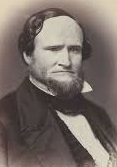
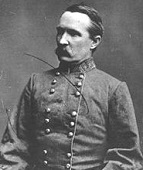
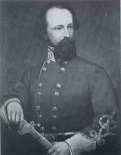
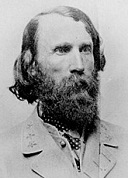

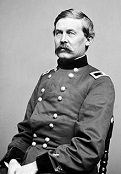

































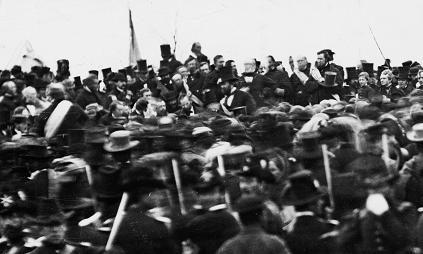




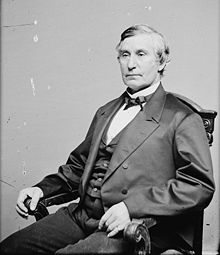







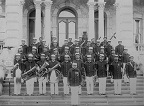




















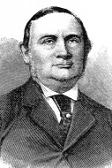


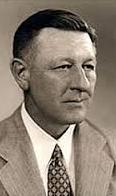

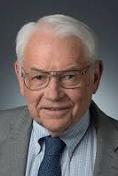
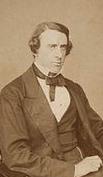
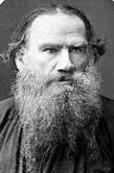


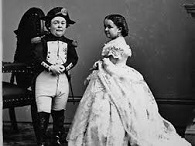
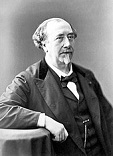




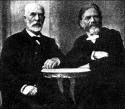

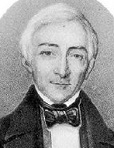
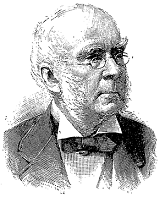

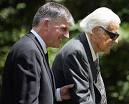
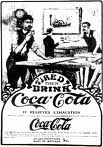
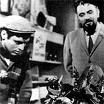
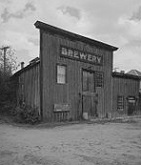
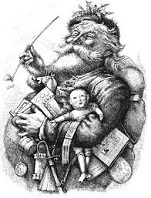


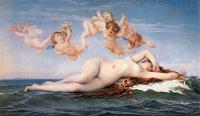




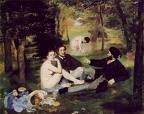




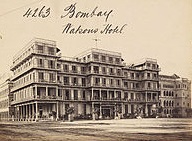
1863 The Fourth Cholera Pandemic of the 19th Cent. (ends 1879) begins in the Ganges Delta in India, spreading via Muslim pilgrims to Mecca, killing 30K-90K, then throughout the Middle East, Africa, Europe, and North Am. from port cities inland via waterways. On Jan. 1 (Thur.) Pres. Lincoln cites his war powers and signs the (second) Emancipation Proclamation, freeing slaves, but only those in states in "rebellion", i.e., the Confederacy, and (after being persuaded by Andrew Johnson) exempting Tenn. and the occupied parts of Va. and La., thus freeing no slaves behind the Union lines of the time (of course the Confed. states ignore it); meanwhile, 800K in Union states (Del., Md., Ky., Mo.) remain slaves, kissing massah's big black boots; the act urges slaves to abstain from violence except in self-defense, and proclaims that free blacks can now serve in the U.S. armed forces; still, it is a political success, and Henry Adams writes from the London embassy that it has caused "an almost convulsive reaction in our favour". On Jan. 1 the Confs. under Port Royal, Va.-born theatrical Gen. "Prince" John Bankhead Magruder (1807-71) recapture Galveston, Tex. On Jan. 1 the 112 km. Beirut-Damascus Road opens, becoming the first major road in the Middle East for wheeled traffic, shortening the journey from 3 days to 13 hours, and causing Beirut to become the main harbor for the E Mediterranean seaboard; the Jerusalem-Jaffa Road isn't opened until 1869, and there is not much wheeled traffic until 1914? On Jan. 9-11 the Battle of Arkansas Post eliminates Fort Hindman as an impediment to Union shipping on the Mississippi River. On Jan. 10 (Sat.) (6 a.m.) the London Underground opens, beginning with the Metropolitan Railway. On Jan. 10 Harper's Weekly pub. the article Negro Emancipation, containing an illustration showing two fully armed uniformed black Confederate soldiers acting as sentries. On Jan. 15 the Boston Morning Herald becomes the first U.S. newspaper to be printed on paper made from wood pulp instead of hemp. On Jan. 17 pasha (since 1854) Mohammad Sa'id (b. 1822) dies, and since his heir presumptive Ahmad Rifaat drowned in the Nile River in 1858, on Jan. 19 his nephew (Ibrahim Pasha's son) Ismail (Ismael) (Isma'il) Pasha the Magnificent (1830-95) becomes pasha of Egypt (until June 26, 1879), pursuing a rapid industrial-economic development and urbanization program , which is hampered by his personal profligacy, uttering the 1879 soundbyte: "My country is no longer in Africa; we are now a part of Europe. It is therefore natural for us to abandon our former ways and to adopt a new system adapted to our social conditions." On Jan. 20 Union Gen. Ambrose Burnside, needing to do something fast to restore his sagging rep. after the Dec. Battle of Fredericksburg begins his Mud March, crossing the Rappahannock River S of Fredericksburg in hopes of being in Richmond dancing on Lee's grave, only to encounter heavy rains which stop him by Jan. 22, pissing-off Pres. Lincoln, who on Jan. 26 replaces him as CIC of the Army of the Potomac with immodest-immoral Gen. Joseph "Fighting Joe" Hooker (1814-79) (known for supplying "hookers" to his men), who is quoted as saying that the country needs a dictator, causing Lincoln to respond "Only those generals who gain successes can set up dictators"; Hooker is assigned the command of the Dept. of the Ohio, where he begins moving against the Copperheads (Peace Dems.), shutting down the New York World, court-martialing and jailing Clement Laird Vallandingham of Ohio, and scoring other Vs for Big Abe which get him back in good - just call my name and I'll be around? On Jan. 22 after Poles resist conscription into the Russian army, the failed Jan. Uprising in the former Polish-Lithuanian Commonwealth begins in Poland (ends Jan. 1864), spreading to Lithuania, Latvia, Belarus, N Ukraine and W Russia by Feb. 1, with 40K-50K insurgents, many armed only with scythes taking on 180K-190K Russian troops, while hoping in vain for a rev. in Russia and/or support by Napoleon III in France, only to see Prussia make its railways available to Russian troops; on Feb. 3 the Battle of Wegrow (Wegrów) in E Masovia ("the Polish Thermopylae") sees 3.5K Poles, many wielding only scythes defend the recently liberated town of Wegrow from 1K Russians equipped with artillery, who surround them, causing 500 scythemen to bravely attack the Russian left to cover the retreat of the rest, most getting killed by infantry fire. On Jan. 29 the Bear River (Boa Ogoi) Massacre (Battle) in SE Washington Territory (Franklin County, Idaho) sees 200 Union soldiers under Col. Patrick Edward Connor stop a revolt by Shoshoni Indians by picking them off while swimming across a freezing river, followed by a massacre of women and children (200-400 total), for which Connor is appointed Brig. Gen. in command of the District of Utah, with HQ at Ft. Douglas. On Feb. 4 the Ottoman Imperial Bank is founded in conjunction with France and Britain as the Ottoman state bank (until 1924). On Feb. 4 New Granada changes its name to the United States of Colombia (in honor of Christopher you-know-who), and on May 8 adopts the liberal 1863 Colombian Constitution, deposing wannabe dictator pres. Tomas Cipriano de Mosquera, but he wiggles back in on May 14 (until Apr. 8, 1864). On Feb. 10 after refusing $15K from P.T. Barnum to delay it so he can arrange more publicity, 3'3" "General" Tom Thumb (Charles Sherwood Stratton) (1838-83) weds Lavinia Warren (1841-1919) in New York City's Grace Episcopal Church - don't ask? On Feb. 17 the Internat. Committee of the Red Cross (originally the Committee of the Five) is founded in Geneva by Swiss businessman-activist Jean Henri (Henry) Dunant (1828-1910), holding its first internat. conference on Oct. 26-29 attended by delegates from 13 nations, who adopt a set of resolutions leading to the 1864 Geneva Convention; in 1865 the Swedish Red Cross (Roda Korset) is founded in Stockholm, and on Sept. 22, 1865 the Norwegian Red Cross (Rode Kors) is founded in Kristiania (Oslo). Don't miss this - Andy Jackson would roll over in his grave? On Feb. 25 after urging by treasury secy. Salmon P. Chase, and taking advantage of the absence of Southern members, Congress passes the U.S. Nat. Currency Act, giving the U.S. a nat. bank again with the power to float federal war loans and establish a nat. currency; the act authorizes the granting of federal charters to banks that invest a third of their capital in U.S. securities, these banks then being allowed to issue notes up to 90% of the value of the bonds; the Office of the Comptroller of the Currency (OCC) is established as a bureau of the U.S. Treasury Dept. to charter, regulate, and supervise all nat. banks, with the power to issue standardized nat. bank notes based on U.S. bonds held by the banks; Sen. Finance Committee chmn. John Sherman declares that "The policy of the country ought to be to make everything national as far as possible"; Lincoln worries that "The wealth is aggregated in a few hands, and the republic is destroyed." On Feb. 24 he Arizona Organic Act, introduced by abolitionist U.S. Rep. (R-Ohio) (1859-69) James Mitchell Ashley (1824-96) sees the greedy U.S. Congress create the gold-rich Arizona Territory, consisting of all of New Mexico S of the 34th parallel (NE New Mexico has been incl. in the Colorado Territory), with slavery abolished, while leaving it intact in the portion remaining in New Mexico Territory. Don't miss this - Andy Jackson would roll over in his grave? On Feb. 25 after urging by treasury secy. Salmon P. Chase, and taking advantage of the absence of Southern members, Congress passes the U.S. Nat. Bank Act, giving the U.S. a nat. bank again with the power to float federal war loans and establish a nat. currency; the act authorizes the granting of federal charters to banks that invest a third of their capital in U.S. securities, these banks then being allowed to issue notes up to 90% of the value of the bonds; the Office of the Comptroller of the Currency (OCC) is established as a bureau of the U.S. Treasury Dept. to charter, regulate, and supervise all nat. banks, with the power to issue standardized nat. bank notes based on U.S. bonds held by the banks; Sen. Finance Committee chmn. John Sherman declares that "The policy of the country ought to be to make everything national as far as possible"; Lincoln worries that "the wealth is aggregated in a few hands, and the republic is destroyed". On Feb. 25 Pope Pius IX opens the Termini Railway Station in Rome across the street from the Baths of Diocletian (Lat. "thermae"), becoming Rome's main train station. On Mar. 2 the U.S. False Claims Act (Lincoln Law) is passed by Congress, allowing whistleblowers to sue federal contractors in the name of the U.S. govt. and collect a percentage of the recovery; sponsored by U.S. Sen. (R-Mich.) (1862-71) Jacob Merritt Howard (1805-71), who utters the soundbyte: "I have based the provision upon the old-fashioned idea of holding out a temptation, and 'setting a rogue to catch a rogue', which is the safest and most expeditious way I have ever discovered of bringing rogues to justice"; too bad, after the requirement of intent to defraud is eliminated in 1934 (but not materiality), it turns into a tool for the FBI and other federal agencies to institute Stalinesque show trials and get felony convictions just for lying to them, with Justice Ruth Bader Ginsburg uttering the 1998 soundbyte that the "extraordinary authority" the act "has conferred on prosecutors to manufacture crimes" can be abused to persecute people for nothing, because the act "may apply to encounters between agents and their targets under extremely informal circumstances which do not sufficiently alert the person interviewed to the danger that false statements may lead to a felony conviction... The suspect is not informed of the right to remain silent. Unlike proceedings in which a false statement can be prosecuted as perjury, there may be no oath, no pause to concentrate the speaker's mind on the importance of his or her answers." On Mar. 3 U.S. Pres. Lincoln founds the Nat. Academy of Sciences in Washington, D.C. On Mar. 3 Congress passes the U.S. Habeus Corpus Act, sponsored by U.S. Sen. (R-Mi.) (1862-71) finally authorizing the pres. to do what he had been doing anyway, but providing a safety valve that lets a grand jury let people out upon the taking of an oath of allegiance; a total of 14K arrests are made during the war, incl. prominent Copperhead Clement Laird Vallandigham (1820-71) of Dayton, Ohio for criticizing the arrests; he proves so embarrassing that Lincoln lets him out but banishes him behind Confed. lines, where later in the year he runs for gov. of Ohio in absentia, then slips back to Ohio in 1864, and is left alone at Lincoln's order because he embarrasses the Dems. more than the Repubs.? - if I only had a dollar for every song I sung? On Mar. 3 the U.S. Enrollment Act of Conscription is issued by Pres. Lincoln, calling for 300K men aged 20-45 to fight the war, but providing for a rich man's commutation upon a $300 payment (a year's wages for working men); "They offer to buy up white men for three hundred dollars each, about one-third of what a good negro is worth" (Peace Dems.); the Union draft produces only 46K conscripts along with 118K substitutes, about 6% of the Union force. Tell me again, I just want to be your friend? On Mar. 4 Congress creates the Territory of Idaho (having forgotten about the George M. Willing controversy?). On Mar. 29 a Constitution for the Armenian Community is issued by the Ottoman govt., providing them a 140-member assembly in Constantinople, which elects a religious and civil council, along with corresponding provincial councils; the effect is to encourage nationalism, which eventually backfires as the Muslims sharpen their scimitars for Christian neck? Who runs Greece, Bavaria, Britain, or Denmark? On Mar. 10 English prince of Wales Albert Edward (1841-1910) (later Edward VII) marries Princess Alexandra "Alix" of Denmark (1844-1925) (eldest daughter of Christian IX and aunt of Wilhelm II of Germany), going on to take over the burden of court and public functions from mourning Queen Vicky, and become known for extensive travels in France, Russia et al. along with his interest in yachting and horse racing; she goes on to become a trendsetter in fashion and unsuccessfully attempt to sway public opinion in favor of Greece and Denmark, going on to become the longest holder of the title of princess of Wales (38 years); they have two sons, slow-witted Prince Albert Victor Christian Edward "Eddy", Duke of Clarence and Avondale (1864-92) (who becomes infected with syphilis, driving him insane, and is later suspected of being Jack the Ripper) and Duke George Frederick Ernest Albert of York (1865-1936) (George V), and three daughters, Louise (b. 1867), Victoria (b. 1868), and Princess Maude Charlotte Mary Victoria (1869-1938) (who later marries Haakon VII of Norway); on June 6 after the British govt. rejects an offer for Victoria's 2nd son Prince Alfred and nominates Prince William George, 2nd son of Christian IX of Denmark, he is crowned King George I (1845-1919) of Greece (until 1913), and Britain shows its approval by ceding the Ionian Islands (a British protectorate since 1815). It's court-packing time once again at the Washington Zoo? On Mar. 10 after Congress changes the number of justices to 10 to make double sure it's packed against any rebel sympathizers, Haddam, Conn.-born Unionist Dem. (chief justice #5 of Calif since Sept. 20, 1859) Stephen Johnson Field (1816-99), brother of cable man Cyrus W. Field and law reformer David Dudley Field Jr. becomes justice #38 (until Dec. 1, 1897). On Mar. 29 Gen. Grant begins his Second Vicksburg Campaign; the Union fleet passes Vicksburg's river defenses on Apr. 16, looking for an invasion point downstream, and finding it at Buinsburg and Grand Gulf near the mouth of the Big Black, er, River; Grant then decides to forget supply lines and live off the country, heading E to Jackson, Miss. In the spring the Union gunboat USS Albatross fires on St. Francisville, La. from the Mississippi River off Bayou Sara, and on June 11 gravely ill (fever) Capt. Lt. Cmdr. John Elliot Hart (b. 1820) shoots himself to death; being a Freemason, three of his officers are permitted to come ashore under a flag of truce to bury him by Confed. Capt. William W. Leake, who comments, "As a Mason, I know it to be my duty to accord Masonic burial to the remains of a Brother Mason, without taking into account the nature of his relationship to the outer world", becoming "the Yankee grave that Dixie decorates". In Mar. after the entrance of barbarians into Japan and their humiliating Unequal Treaties piss off the pop., causing them to commit acts of violence, backed by the Sonno Joi ("Revere the emperor and expel the barbarians") movement, emperor Komei issues an order to expel the barbarians; too bad, shogun Iyemochi, who is in bed with the Westerners to modernize his military won't enforce it, and when the pro-imperialists begin attacking the shogunate, he forms the Shinsengumi ("New Recruits"), an army of 234 ronin samurai led by Kondo Isami (1834-68), Kiyokawa Hachiro (1830-63) et al. for his protection as a police force; they get to wear cool outfits, becoming renowned for preventing Kyoto from burning down next year, although they have a dark side and are also known as the Wolves. On Apr. 3 there is a bread riot in Richmond, Va., which ends only after Pres. Davis personally persuades the mob of mainly women to disperse. On Apr. 9 Pedro Diez Canseco Corbacho (1815-93) becomes pres. of Peru, but loses elections on Aug. 5 to vice-pres. Juan Antonio Pezet Rodriguez (1809-79), who becomes pres. of Peru (until Apr. 25, 1865); meanwhile Spain seizes the guano-rich Chincha Islands, beginning the Chincha Islands War (ends 1866). On Apr. 23 Mirza Husayn ali Nuri proclaims himself Baha'ullah (Baha Allah) (1817-92) (Arab. "splendor of God"), the Manifestation of God, founding the universal egalitarian brotherhood Baha'i Faith in Persia (Iran); he spends the rest of his life in prison or exile in Acre, while Haifa, Palestine becomes the world center. On Apr. 30 the Battle of Camaron (Camarón) sees 65 French Foreign Legionnaires hold off 1K+ Mexican troops in Camaron de Tejeda, 50 mi. SW of Veracruz, Mexico, making the Legion's rep. In Apr. the Confed. Congress passes a 10% tax in kind on all agricultural products, which outrages farmers and planters, and is widely evaded, forcing the war to be financed by treasury notes (66%) and bonds (33%). In Apr. Gen. Hooker crosses the Rappahannock River with 130K troops, the largest Union army ever; on May 1-5 the Confederates win a great V at the Battle of Chancellorsville in Va., sending 39-y.-o. Gen. Thomas Jonathan "Old Jack" "Stonewall" Jackson (1824-63) with half of Lee's men on a long march around the enemy's exposed right flank after the cavalry of his nephew Fitzhugh Lee (1835-1905) scout the Union flank and find it "in the air", surprising them in the Wilderness on the evening of May 2; too bad, Jackson is mistakenly fired on by his own N.C. regiment troops at 9 p.m. on May 2 while returning from a reconnaissance in the dense Wilderness looking for a way to attack the rear of the Union forces; his left arm is amputated by surgeons and he is moved 24 mi. to a plantation at Guiney's Station, where he contracts pneumonia and dies at 3:30 p.m. on May 10 ("I have always desired to die on Sunday"), his last words being, "Let us cross over the river and rest under the shade of the trees"; "He has lost his left arm, I have lost my right arm", says Lee; on May 3 Gen. Stuart holds Hooker's troops at bay while Lee forces them back across the Rappahannock River; meanwhile on May 6 attacks by Confederates under Gen. J.E.B. Stuart, Gen. Jubal Anderson "Old Jube" Early (1816-94), and Gen. Robert E. Lee cause Gen. Hooker to withdraw and try to explain it to a fuming Lincoln; all this is a paper V for Lee, but it costs the rebels 12K casualties and 1.6K dead that they can't afford in their gangsters' paradise; former Pres. Buchanan admin. treasury secy. John Adams Dix (1798-1879), now a U.S. Maj. Gen. is given command of the military Dept. of the East. In Apr. Falmouth, Va.-born ex-Unitarian minister Moncure Daniel Conway (Gael. "holy river") (1832-1907) is sent by fellow abolitionists to London, England to convince them not to support the Confederacy because the war is primarily being fought for abolition, and after befriending Thomas Carlyle, Robert Browning et al. he approaches Confed. rep. to Britain (1861-5) James Murray Mason (1798-1871) with an offer "on behalf of the leading antislavery men of America" of full withdrawal of support for further prosecution of the war in exchange for immediate emancipation of all slaves in the Confederacy, which Mason publicly rejects, pissing-off his sponsors, who angrily and speedily withdraw support, causing him to apologize to U.S. minister to England (1861-8) Charles Francis Adams Sr. (1807-86) (John Quincy Adams' son) that he's not a traitor, and after becoming persona non grata in the U.S. he travels to Venice, Italy to reunite with his family, after which he becomes minister to the Freethinking South Place Chapel (later South Place Ethical Society) in London, becoming friends with Annie Besant, Algernon Charles Swinburne, the Rossettis et al., staying for 17 years; he continues to stay away from U.S. until 1897 when his dying wife Ellen (daughter of Charles Dana) requests the right to die on Am. soil (New York City), after which he lives the rest of his life in France; meanwhile Adams convinces the British govt. to seize two steam ironclad ram warships from the shipping firm of Lairds that were meant to be used by the Confederates to break the Union blockade, although he fails to prevent the sailing of the Alabama; after this, the Brits are more diligent in stopping the building of ships for the Confederacy. On May 1 Grant's forces defeat the Confederates at the Battle of Port Gibson, and again on May 14 at the Battle of Jackson, cutting the Confed. defenders of Vicksburg in two; on May 16 the Battle of Champion's Hill (Baker's Creek) is the most important of the war so far, and the Union wins, opening their path to Vicksburg, Miss., (did I say the Gibraltar of the Confederacy?), one of the last two rebel strongholds on the Mississippi (along with Port Hudson, La.), while pinning the 30K men of Lt. Gen. John Clifford Pemberton (1841-81) inside Vicksburg, where they proceed to hole-up in caves and slowly starve, jerking, er, eating mule jerky; Jackson is razed, causing it to become known as Chimneyville. On May 13 black S.C.-born pilot Robert Smalls (1839-1915) hijacks the fully-armed Confed. gunboat Planter and sails his family through Charleston Harbor to join the Union fleet, giving them stolen Union maps and plans, winning a $1.5K reward from Congress and proving that blacks don't want to stay slaves and will fight for it, convincing Congress to allow blacks to serve in the Union Army and assisting the 5K-man 1st South Carolina Volunteers; after becoming a naval hero and becoming the first capt. of a U.S. navy vessel, Smalls becomes a Repub. congressman and author of the S.C. constitution, and big black hero, causing the whites to later attempt to cover him up in the history books; in 1863 Ft. Robert Smalls is built by free blacks at the mouth of Becks Run in Arlington Heights near Pittsburgh, Penn.; in 2004 USS Robert Smalls is launched, becoming the first U.S. Army ship named after an African-Am.; the Mass. 54th Regiment under Harvard grad. Col. Robert Gould Shaw (1837-63), son of a prominent abolitionist becomes the first Union all-Negro army unit, followed by regiments in R.I. and other states; the stress must have gotten to him, because Lincoln comes down with varioloid, a mild form of smallpox. On May 13 Radama II (b. 1829) is assassinated (strangled) (suicide?) (survives?), and his widow, queen Rasoaherina (Rabuda) (1814-68) becomes puppet ruler of Madagascar (until Apr. 1, 1868) behind PM and coup leaders Rainilaiarivony (1828-96) and his brother Rainivoninahitriniony (-1868), who rule behind puppet queens for the next 32 years (until 1895), marrying them as a, er, cover story; Rasoaherina establishes diplomatic relations with France, Britain and the U.S. and prohibits Sunday markets. On May 23 the Gen. German Workers' Assoc. (Allgemeiner Deutscher Arbeiterverein) (ADAV) is founded by German Jewish Socialist Ferdinand Lassalle (1825-64), who broke ranks with Marx and Engels in his desire for what-the-world-needs-now-is State Socialism, where the "iron law of wages" of brutal Capitalism is broken, and the "full products of their labor" secured by the govt. in a state with worker cooperatives and universal suffrage; by 1869 after it is torn apart by fights between dems. and Socialists, and evolves into the German Social Dem. Party - the magical cleaning power draws dirt out, and the smell of freshness draws them in? On May 26 Afghan emir (since 1826) Dost Mohammed (b. 1793) of Afgahistan takes Herat from Iran, then dies on June 9, and his son Shir (Sher) Ali Khan (1825-79) succeeds as emir of Afghanistan (until 1866), with his several half-brothers opposing him. In May a new official Confed. States of Am. Flag is adopted by the Confed. Congress at Richmond, Va.; white with the Beauregard battle flag. Say hey, we gotta do our part? In May the U.S. War Dept. authorizes general recruitment of blacks from the entire country, signaling a transformation of the war from merely one of preserving the Union to a deliberate overthrow of the Southern slave society, their worst nightmare?; "Hello, Massa, bottom rail on top now." In May Lee's 75K man Confed. army invades the North to take pressure off Vicksburg, moving into the Shenandoah Valley and then turning N into Md. and crossing the Potomac River on June 24; Gen. Hooker follows, keeping himself between them and Washington, D.C., but is demoralized, misled by exaggerated reports of enemy strength, and resigns on June 28, being replaced as cmdr. of the Army of the Potomac by Maj. Gen. George Gordon "Old Pills" Meade (1815-72). In May a group of prospectors discover gold near Alder Creek in Mont., founding the town of Virginia City, Mont. on June 16 (originally Verina, named after Jefferson Davis' wife Varina Howell Davis until pro-Union Conn. judge G.G. Bissell renames to Virginia City); too bad, the newfound wealth leads to road agents (highway robbers), who kill 100+ in the fall, causing the Mont. Vigilantes to be formed in Dec., hanging 15 road agents by Jan. 1864; on May 26, 1864 Mont. Territory is organized out of Idaho Territory, with capital moved from Bannack to Virginia City on Feb. 7, 1865 (until Apr. 19, 1875); meanwhile in 1863 Virginia Brewery is founded in Virginia City, Mont. by Thomas Smith, becoming the first brewery in Mont.; in 1866 he sells-out to Berks County, Penn.-born miner Henry S. Gilbert (1833-1902) and German-born brewer Christopher Richter (1834-99), who rename it Gilbert and Richter Brewing Co.; in 1872 Richter sells-out, and it is renamed H.W. Gilbert Brewing Co.; in 1904 it becomes Gilbert Brewing Co., closing for Prohibition then reopening on Dec. 11, 1934, and closing in 1974. On June 1 Gen. Ambrose Burnside orders the suppression of the anti-Lincoln Chicago Tribune. On June 7 French troops capture Mexico City, causing Benito Juarez to move his capital to the N and continue resistance; on July 10 a new Roman Catholic empire is proclaimed, and the crown is offered to erzherzog (archduke) Ferdinand Maximilian Joseph (1832-67), son of HRE Franz Josef, and an accomplished scientist, who becomes Maximilian I, the last emperor of Mexico, sitting on the Cactus Throne as the Cactus Emperor, with his wife Carlotta (Charlotte of Belgium) (1840-1927) as empress (until 1867). On June 9 10K Confed. cavalry under Gen. J.E.B. Stuart defeat the Union cavalry under Gens. Pleasanton and Buford at the Second Battle of Brandy Station (Beverly's Ford). On June 20 "Mountain State" West Virginia (W. Va.) is admitted as the 35th U.S. (free) state (the only state completely set in the Appalachian Mts.), with capital at Wheeling (until 1870, then 1875-85); on July 4 Congress adopts a new U.S. flag (design #17) with 35 stars to incl. it. In June white-is-right Pres. Lincoln issues an order authorizing British colonial agent John Hodge to recruit freed slaves to emigrate to modern-day Guyana and Belize; he also considers sending freed slaves to construct the Panama Canal; next year Congress votes to end funding for the colonization plan. The country where they say fah-jah and mean dad did what? On July 1 Netherlands becomes the last Euro nation to abolish slavery, freeing the African slaves on the plantations in Suriname; starting in 1870 laborers are imported from British India and the Dutch East Indies. Vicks Vapo-Rub doesn't cure the cold? Four score and ten years minus three since the DOI, and wouldn't you know it, not a piano in sight, and Lincoln's wife has a closet with 300 pairs of shoes she purchased in 4 mo., while 10K white men die in three days looking for shitty shoes? On July 1-3 (Wed.-Fri.) the Battle of Gettysburg in S Penn. just over the Md. border (75K Confed. soldiers vs. 90K Union soldiers) begins by accident when on June 30 barefoot Confed. soldiers of Brig. Gen. James Johnston Pettigrew (1828-63)'s Tar Heels Brigade of N.C., the strongest in the Third Corps of Lt. Gen. Ambrose Powell "A.P." Hill Jr. (1825-65), under the command of Maj. Gen. Henry "Harry" Heth (1825-99) (cousin of George Pickett) head toward the farming town of Gettysburg, Penn. to capture shoes (brogans) and encounter Union cavalry under Brig. Gen. John Buford Jr. (1826-63) on McPherson Ridge, who make a stand, causing them to retreat, only to be ordered by Gens. Heth and A.P. Hill to return and go for the shoes the next morning (July 1), meeting the Iron (Black Hats) (King's Wisconsin) Brigade, who fall back by the end of the day after they "cut to pieces" Pettigrew's Tar Heels (40% casualties) and wound Heth, causing the main force of 75K Confeds. to converge on that point W of town, ending Gen. Robert E. Lee's original plan of reaching Harrisburg before circling to Washington, D.C., but not dampening his hopes of ending the war fast by a decisive V over the Union army; too bad, Lee's cavalry under Gen. James Ewell Brown "Jeb" Stuart (1833-64) is 12 mi. to the S capturing enemy supplies, hampering Lee badly; Lee implements Morse Code using wig-wag flags to signal troops; Gen. Meade having already selected Double Pipe Creek (between Baltimore and Taneytown Roads, 12 mi. to the S) for his stand, his troops end up coming in from the SE, while Lee's come in from the NW; at 5 a.m. on July 1 Confed. troops advance on the Chambersburg Pike and take position at Herr's Ridge, while Union troops post themselves on a ridge marked by Stone Ave., gaining the higher ground even though pushed out of the town into Meade's Fishhook S of Gettysburg, which incl. the famous white-on-white killing grounds Seminary Ridge (home of a Lutheran seminary), Cemetery Ridge, Cemetery Hill, Culp's Hill 0.75 mi. S of Gettysburg (barb of Meade's Fishhook on the extreme R of the Union line guarding Baltimore Pike, the main Union supply line), the Wheatfield, the Peach Orchard, Devil's Den (becoming infamous for staged photos of dead Union soldiers taken 5 mo. later), Big Round Top, and Little Round Top; Union Brig. Gen. Robert Ogden Tyler (1831-74), cmdr. of the artillery reserve of the Army of the Potomac helps the Union win by attrition; troops from slavery-state Md. are split between both sides; Md. Maj. James Wallace is the only Union officer who owns slaves; on July 1 (10:00 a.m.) the tough 420-man Wisc. Westerners (Iron Brigade) of Lt. Col. Rufus Dawes (1839-) (great-grandson of William Dawes, who rode with Paul Revere, and father of future U.S. vice-pres. Charles Gates Dawes) skirmish with 800 Confed. recon troops 1 mi. W of Gettysburg, who flee until they encounter a 600-ft. railroad cut and make a stand, pouring withering fire on the Westerners, which doesn't stop them, losing 1 man/yd. (plus 10 men trying to defend the Stars and Stripes) until they capture the rebel flag after 20 min., with 600 Confed. casualties vs. 200 Union casualties (50%), then deploying on Culp's Hill to the N and erecting earthen breastworks reinforced by rocks and fallen logs; at 5:00 p.m. Confed. troops under Lt. Gen. ("Old Bald Head") Richard Stoddert "Dick" Ewell (1817-72) (Stonewall Jackson's replacement, who lost his left leg at 2nd Bull Run to the Iron Brigade) take Gettysburg from the Union 11th Corps, who suffer 9K casualties, causing residents (esp. blacks) to flee or hide in the bank vault; at the end of the 1st day's fighting between 28K Confeds. and 20K Yankees, Gen. James Longstreet tells Gen. Lee that his troops should be placed at Meade's left, forcing him to take the offensive, since his army would then be the only thing blocking a direct route to Washington, D.C. (where they could hang Lincoln and win the war), but Lee replies "No, the enemy is there and I am going to attack him", and formulates the fatal plan to go through the center. On July 2 (Thur.) First Lady Mary Todd Lincoln overturns in her carriage while returning to Washington, D.C. from the soldiers' home, and hits her head on a rock, being bedridden for three weeks and suffering from headaches permanently; the seat had been loosened in an attempt to kill her hubby? On July 2 21K Confed. troops assault Meade's Fishhook, intending to score a knockout punch, but because of lack of cavalry take too long to get into position, giving the Union time to gather reinforcements; too bad, wealthy politically-connected Union gen. Daniel Edgar "Dan" Sickles (1819-1914) (who got acquitted for killing his wife with the first plea of temporary insanity in U.S. history, and used his wealth and power to gather his own regiment) disobeys orders to dig his III Corps into defensive positions at the S end of Cemetery Ridge (N of Little Round Top) and marches them out almost 1 mi., leaving them exposed to an assault which could cut the Union lines in half; Gen. Lee makes the boo-boo of assembling his men under Confed. Gen. James Longstreet and Gen. Lafayette McLaws (1821-97) too slow, losing the element of surprise, attacking at 4:30 p.m.; at 6:00 p.m. after being held back for 90 min., Miss. Confed. Gen. William Barksdale (1821-63) attacks with 1.6K men, racing towards Sickle's position in an all-out power drive; Sickles loses his leg to a cannonball ("bad news for Sickles but good news for the Union" - a Union soldier), after which he grins and puffs a big cigar as he is carried away on a stretcher, heading straight back to Washington, D.C. (bringing news of a Union V and running his own spin control), after which Bartsdale's troops break through Sickle's line at 7:00 p.m., and approach Cemetery Ridge, where they are blasted by 20+ Union cannon, and Bartsdale is wounded in the left leg, refusing to leave the field and leading the attack, which doesn't keep the Union from stopping them by 7:30 p.m. after Meade sends 8K fresh reinforcements from Culp's Hill, who surprise them by shooting through the bushes; 50% of Bartsdale's brigade become casualties, and Bartsdale is KIA; only 1.4K Union soldiers under Maj. Rufus Dawes remain on Culp's Hill; "The best three hours fighting ever done by any troops on any battlefield" (Gen. Longstreet), with 16K casualties on both sides; at 8:00 p.m. 4.5K Confeds. make a surprise charge on Culp's Hill, which is filled with large rocks, getting bloodied by fierce fire and hitting their own men because of the darkness until they give up, missing their big chance to capture Baltimore Pike 500 yds. away and cut the main Union communications and supply line, forcing a Union retreat. On July 2 Gen. Lee, seeing the Union left ending in a gap well short of the commanding ground of Little Round Top orders assaults to flank the Union army, but Maine college prof. Lt. Col. Joshua Lawrence (nee Lawrence Joshua) Chamberlain (1828-1914) of the 20th Maine steps up and becomes a Union hero, weathering a fierce uphill attack led by Ala. Confed. Gen. William Calvin Oates (1835-1910) (future U.S. rep. and Ala. gov.), until they all run out of ammo, then charging down on them with bayonets and forcing the dumb rebels to surrender "without enough ammo left to kill a rabbit" (Shelby Foote); Col. Patrick Henry O'Rorke (b. 1836), top West Point graduate of 1861 leads two regiments to support the 20th Maine, and is KIA; Union Brig. Gen. Stephen Hinsdale Weed of N.Y. is KIA defending Little Round Top; Lt. Ranald Slidell Mackenzie (1840-89), top West Point graduate of 1862 (son of disgraced naval cmdr. Alexander Slidell Mackenzie, and nephew of Confed. diplomat John Slidell of Trent Affair infamy, all of which slows down his career, called by Gen. Grant the most promising in the Union army, and makes him grow bitter when dumbos like George Custer, bottom of the 1861 class becomes a brig.-gen.) leads a div. which saves the Union left, getting a promotion to brevet Col. with command of the 2nd Conn. Heavy Artillery, going on to earn the name "Perpetual Punisher" from his harsh discipline. On July 2 by nightfall (9:00 p.m.) the troops of Gen. Dick Ewell are arrayed to the N of the town, the troops of Gens. Lee, Hill, Pickett, and Longstreet to the NW along Seminary Ridge and to the extreme W, where there is 1 mi. of open ground to Gen. Meade's position at Cemetery Ridge; Gen. Meade is shaken by the near Confed. V. On July 2 Confed. Gen. John Hunt "Thunderbolt" Morgan (1825-64) begins Morgan's Great Raid of 2.4K howlin' rebel cavalry from Tenn. over the Ohio River into Ky., Ind., and Ohio in an attempt to distract Union gen. William Rosencrans, who is heading for Chattanooga, Tenn., becoming the farthest N penetration for the Confeds.; too bad, he is captured on July 26 in Salineville, Ohio, and only 400 of his men make it back to the South; on Nov. 26 Morgan and his men tunnel out of the new Ohio State Penn., becoming a propaganda V for the South, although he is never trusted again by the Confed. high command, and ends up getting a new force of loser cavalry who fall to pillaging, getting him investigated for criminal banditry before being KIA next Sept. 4. On July 2 Japanese shogun Iyemochi negotiates aboard the French warship Semiramis over the Kanagawa Incident of last Sept., apologizing and paying the British authorities £10K; too bad, the offending Satusuma Province refuses to pay their £25K fine or cough up the two samurai who did the killing, causing the pissed-off Brits to seize three foreign-built Satsuma warships worth 10x as much, then burn them after being fired upon by artillery, going on to fire on the Kagashima coast, burning 500 houses (5%) and killing five Japanese, while losing 11 of their own, incl. Capt. Josling of the 35-gun flagship Euryalus and his 2nd-in-command Cmdr. Wilmot (beheaded by the same cannonball), until the Brits retreat under Japanese cannonfire, causing the Japanese to claim a V, although the £25K fine is later paid; future Father of the Japanese Imperial Navy Togo Heihachiro (1848-1934) mans one of the port cannons, later claiming that the humiliation of it all launched his career; ironically the incident increases British ties with Satsuma, who goes on to modernize militarily with their help, then back the emperor against the shogunate, which the Brits like because the shogun is too much in bed with the French. The White Wheat Field of Shock and Awe? The supreme moment in white history, the bloodiest battle in U.S. history, when the inexorable tide of racial amalgamation could have been reversed and America and then the whole world made whiter than Cheer, Clorox, Tide, and Reddi-Wip, the moment every white supremacist wishes they could have back, or, Couldn't they have dispersed and crawled, walked their artillery along with them, gone at night, anything but the way they did it, which made them into cannon target practice and gave the war away? On July 3 (Fri.) the Confeds. attack Culp's Hill again, causing the Union to send reinforcements to save it, changing the odds from 1-3 to 3-1 and holding it, leaving Gen. Lee only one option; at 1 p.m. in order to give them a "foot on fire" (Napoleon), 160 Confed. cannon on Seminary Ridge along a 2-mi. line begin a 2-hour bombardment (largest artillery barrage in the Western Hemisphere until ?, which can be heard in Harrisburg, Penn. 40 mi. away) of the position of Union Gen. Winfield Scott Hancock (1824-86) behind a low stone wall on Cemetery Ridge in the Union center (manned by the Union 2nd Corps, composed of troops from 11 states incl. fresh reserve troops) (he should have destroyed the stone wall or called it off?); at 3 p.m. after the Union purposely silences their 100+ cannon to fool Lee into thinking that it's safe to send in his 12K troops, Maj. Gen. George Edward Pickett (1825-75), a "tall arrow of a man, with his auburn hair flying as he galloped his horse" (bottom of his West Point class, who studied law in his youth in Quincy, Ill., and knew Lincoln in Springfield) leads Longstreet's 14K fresh Virginians with three brig. gens. (incl. Lewis Armistead of N.C.) into the disastrous Pickett's Charge (the turning-point defeat for the South), shouting "Up and to your posts, and don't forget that you come from Old Virginia", marching the flower of the Confederacy in broad daylight across a 1.7K-yd. cornfield in close ranks while the Union guns easily kill one or more with every shot of their cannons, which are well supplied with exploding shells and shrapnel shells; within 20 min. 7K+ are KIA, while the Confeds. are still out of musket range; some cannon balls are aimed to bounce in front of the Confed. lines and mow them down like bowling balls; "You could mark the path that they took by the dead that they left behind,/ Spilled from that deadly march as a cart spills meal on a road" (Stephen Vincent Benet); the blue Va. flag keeps moving, and by the time Pickett's men reach the ridge, torn apart with canister fire (tin cans packed with 28 iron balls, which dismember them as well as kill them, demoralizing the living), they are down to 5K, finally overrunning three Union cannons and almost cutting the Union lines in two; Union Col. Alonzo Hersford Cushing (b. 1841) fires his last cannon while holding his guts in his hand, then falls, and Confed. Gen. Lewis Addison "Lo" Armistead (b. 1817) (cmdr. of Unit K) waves his hat on his sword and yells "Give 'em the steel", leaps the stone wall at the main objective called The (Bloody) Angle, turns the cannon around, then leads a charge of the remaining several hundred men, getting shot 3x while trying to plant the Stars and Bars, while his men are overwhelmed by a Union counterattack, becoming the farthest penetration of the rebels, the "High Water Mark of the Confederacy" before they break and begin retreating; on Sept. 15, 2014 Cushing is finally awarded a Medal of Honor; after he makes the secret Mason sign, fellow Mason, Union Capt. Henry Harrison Bingham (1841-1912) renders aid to Armistead and receives his personal effects incl. a personal Bible he requests to be sent to his pre-war buddy Gen. Winfield Scott Hancock, who is wounded; as the few straggling survivors return from the gray-strewn battlefield, the Yanks quit firing and begin cheering and taunting them with cries of "Fredericksburg!", Lee mutters "All this has been my fault", then orders Pickett to regroup his 4.5K-man div. (of which 75% were lost) to repulse a possible counterattack, to which Pickett utters the immortal soundbyte "General Lee, I have no division now" (later, "That old man had my division slaughtered", becoming bitter about it for life); Gen. Meade refrains from counterattacking to avoid turning a V into a D; the 3-day battle between 90K Union and 75K Confed. troops results in 10K KIA and 41K wounded, and 5K Confed. POWs taken, becoming the bloodiest battle of the U.S. Civil War, insuring an ultimate Union V; dead Union soldier Amos Humiston (b. 1830) (KIA on July 1) is found in Gettysburg by a girl clutching a photo of his three children, becoming the celebrated Unknown Soldier until he is identified 4 mo. later. On July 4 (Sat.) it rains, and Lee's army, down to two-thirds of its original size is allowed to pick up the pieces and retreat S to Va. by Gen. Meade, crossing into Va. in a 6-mi.-long train on July 13; Pres. Lincoln fumes at this lost chance to finish the war, but retains Meade. On July 4 the Confed. Army of the Trans-Mississippi in Ark. under Lt. Gen. Theophilus H. Holmes (1804-80) attacks Helena, Ark. to relieve pressure on Vicksburg, Miss., and withdraws after 173 Confeds. are KIA and 687 are wounded; meanwhile on July 4 Vicksburg surrenders just as beaten Gen. Lee is dragging his tail out of Gettysburg, splitting the Confederacy in two and placing the crucial waterways of the Mississippi under Union control; on Aug. 26 Lincoln writes a Public Letter to James C. Conkling, containing the soundbyte about the Mississippi River: "The Father of Waters goes unvexed to the sea"; Vicksburg vet William Tecumseh Sherman is made brig. gen. of the regular U.S. Army; Sherman's brother-in-law Charles Ewing (1835-93) (one of the three Ewing brothers, who all make gen. during the war) plants the Confed. flag on the parapet of the Confed. fort, and is severely wounded, receiving a promotion from Capt. to maj., and later brig. gen.; Vicksburg vet Walter Quintin Gresham (1832-95), Col. of the 53rd Ind. Infantry is made brig. gen. in command of the Union forces at Natchez, Miss., which later brags that its only Confed. casualty is an elderly man who has a heart attack after a Union gunboat fires a blank to salute Union troops at Ft. Rosalie; Union Maj. Gen. John Alexander Logan (1826-86) becomes military cmdr. of occupied Vicksburg; Confed. Lt. Gen. John Clifford Pemberton is exchanged and returns to duty, voluntary accepting a demotion to Lt. col.; Union Brig. Gen. John McClernand (1812-1900) from S Ill. (home of a lot of pro-South Dems.) publicly blames high Union casualties on Grant's failure to send reinforcements, causing him to be reappointed to the Red River Campaign, after which he contracts malaria and resigns - Lee had hoped by his raid of the North to take the pressure off what? On July 4 Ft. Boise 110 mi. N of the modern-day Nev. border and 41 mi. E of the modern-day Ore. border on the Boise River on the Oregon Trail and a major road to to Boise Basin and Owyhee 50 mi. E of the old Hudson's Bay Co. fort is founded, spawning the city of Boise, Idaho (Fr. "Le bois" = the woods) (modern-day pop. 205K/664K), becoming the largest city in the NW U.S. On July 8 Port Hudson, the last remaining Confed. stronghold on the Mississippi River (sieged since May 21) surrenders; too bad, Union Brig. Gen. Neal S. Dow (1804-97) (prohibition mayor of Portland, Maine in the 1850s) is captured, and spends 8 mo. as a POW. On July 11 a draft lottery is announced in New York City, followed on July 12 by the first roll of draftees published alongside the roll of the dead at Gettysburg, sparking the poor and working class (half of the 1M pop.) (mostly Irish immigrants), incensed at wealthy Repub. Protestants trying to send them to die for black slaves who will end up stealing their jobs, to take it out on them all fiercely in the New York City Draft Riots on July 13-16, becoming the worst riots in U.S. history (until ?), four days of looting, arson, lynching and murder killing 105 (official) (more like 500?) and injuring 2K+, and forcing thousands of blacks to flee the collapsing city; on July 16 tired Union troops from Gettysburg end the and restore order; $2M in property is destroyed; a cent. of repression of blacks and harsh treatment of labor protests follows - the pig cannot come in but the animal we'll take? On July 13 Pres. Lincoln writes a letter to Gen. Grant, congratulating him for capturing Vicksburg, Miss., with the soundbyte: "I now wish to make the personal acknowledgment that you were right, and I was wrong." In mid-July Woodford County, Ill.-born former Gladdenite Granville Hedrick (1814-81) of Crow Creek, Ill. is ordained as apostle of the new Church of Christ (Temple Lot) (Hedrickites), immediately producing revelations that Joseph Smith Jr. was a victim of pride that led him to introduce false doctrines, incl. the creation of a church pres. and the First Presidency, making him a "fallen prophet", correcting him by decreeing that the church is to be headed only by a presiding elder (until 1925); the church goes on to chuck plural and celestial marriage, exaltation and plurality of gods, tithing, and the high priesthood; on Apr. 24, 1864 Hedrick produces a revelation instructing followers to move back to Independence, Mo. in 1867, which about 60 do in Feb. 1867, becoming the first group of returnees after the 1838 Mo. Extermination Order, acquiring the Temple Lot, which Smith and Sidney Rigdon had dedicated in 1831 as the future location of the temple HQ of New Jerusalem, later discovering the buried marker stones they left there; on Aug. 6, 1892 the Reorganized Church of Latter Day Saints files a lawsuit in the U.S. District Court for Mo., claiming the Temple Lot on the basis that they are the rightful successor of Smith's church, winning in Mar. 1894 only to see the appeals court dismiss the case, leaving title with the Hedrickites. On July 17 the Battle of Honey Springs (Elk Creek) 4.5 mi. NE of modern-day Checotah, Okla. and 15 mi. S of Muskogee, Okla., and 20 mi. SW of Fort Gibson is a V for 3K Union forces over 6K Confed. forces of the 1st Brigade of Native Am. troops, helping them gain control of Indian Territory; African-Am. and Native Am. troops outnumber white troops. On July 18 the all-black 54th Mass. Volunteers (Colored Infantry) under Col. Robert Gould Shaw (b. 1837) charge the massive earthworks of Ft. Wagner outside Charleston, S.C., losing almost half the regiment, incl. Shaw, whose body is stripped by the Confederates and thrown into a ditch filled with his slain men; Sgt. William Harvey Carney (1840-1908) becomes the first African-Am. to receive the Medal of Honor 36 years later for retrieving the colors from the regiment's slain flag-bearer and carrying them safely to the rear despite being shot in the head, chest, arm and leg (the first of 23 blacks to win the MOH); "Through the cannon smoke of the dark night the manhood of the colored race shines before many eyes that would not see" (Atlantic Monthly); Union Adm. Samuel Francis Dupont (1803-65) leads a Union naval attack on the city, which is repulsed with great losses, and when he is ordered to attack again he balks on grounds of insufficient forces, causing him to be relieved of command and retired from active duty; since white is right, in 1882 the U.S. Congress commemorates his name, and Du Pont Circle in Washington, D.C. is named after him, with a statue of him erected there. In July after N.M. district military gov. Gen. James H. Carlton tells 18 Navajo chiefs that they must surrender by July 20 and move to Ft. Sumner in SE N.M., the U.S. Army, led by Kit Carson begins a campaign against the Navajos using the first written U.S. Army scorched earth policy, starving them into submission by next Jan. in order to relocate them to a Rez on junk land on the Pecos River. In July after the fall of Vicksburg, Union gen. Hugh Boyle Ewing destroys the Fleetwood Plantation of Confed. pres. Jefferson Davis, and discovers his personal correspondence, which exposes ex-U.S. pres. Franklin Pierce as a double-talker, exposing him as writing in 1860 about "the madness of northern abolitionism", and stating that he would "never justify, sustain, or in any way or to any extend uphold this cruel, heartless, aimless unnecessary war", adding "the true purpose of the war was to wipe out the states and destroy property"; the letters are released to coincide with the release of Nathaniel Hawthorne's book Our Old Home, which is dedicated to his idol Pierce. We're baaack? On Aug. 17 Union batteries and ships bombard Ft. Sumter in Charleston, S.C. harbor. On Aug. 21 the Second Battle of Chattanooga sees a Union artillery bombardment do enough damage to force the rebels under gen. Braxton Bragg to quit bragging and evacuate the city. On Aug. 21 former Ohio school teacher turned gambler and horse thief William Clarke Quantrill (1837-65) and his 300-400 pro-Confed. Quantrill's Raiders (which incl. brothers Jesse and Frank James) stage the Lawrence Massacre (Quantrill's Raid), terrorizing and burning Lawrence, Douglas County, Kan. and killing over 150 Union sympathizer men, women and children, incl. three members of the Lawrence City Band, which held its first public performance the day before; on Oct. 6 Quantrill's Raiders defeat a small Union cavalry unit at Baxter Springs, Kan. and put 17 captured noncombatants to death. Meanwhile, in gay San Francisco, horny men still want poontang? On Aug. 24 Adah Isaacs Menken (1835-68) becomes the sensation of San Francisco as Mazeppa, hetman of the Cossacks, scandalously dressed in flesh-colored tights and strapped to a horse riding across stage like Lady Godiva in "Mazeppa, or the Wild Horse of Tartary", based on the 1819 Lord Byron (1788-1824), poem, which becomes the #1 drama in the Am. West until the end of the cent. In Aug. 12K Union troops under Delhi, N.Y.-born Maj. Gen. Frederick Steele (1819-68) invade Ark., and are stopped E of Little Rock by 8K Confeds. under Prince Edward County, Va.-born Maj. Gen. Sterling Price (1809-67); on Sept. 10 the Battle of Bayou Forche (Little Rock) sees the Union army outflank the Confeds. and take Little Rock, causing the Confed. army to retreat to the SW corner of the conquered state. On Sept. 2-3 after flanking the well-defended Cumberland Gap, Union troops under Maj. Gen. Ambrose Burnside take Knoxville, Tenn., and are welcomed by the pop., causing Burnside to ignore requests to reinforce Gen. Rosencrans for the Battle of Chickamauga while attempting to clear the gaps and roads from E Tenn. to Va.. and secure the Abingdon saltworks; on Nov. 17-Dec. 4 the Confeds under Gen. James Longstreet unsuccessfully siege Union-held Knoxville under Burnside, ending with a bloody failed attempt to storm Ft. Sanders. In early Sept. Confed. Gen. Braxton Bragg is maneuvered out of Tullahoma by Union Gen. Rosencrans, and criticized for constantly retreating, temporarily losing Chattanooga, Tenn. on Sept. 6, then stunning the Union with a decisive V on Sept. 18-22 at the Battle of Chickamauga in NW Ga. On Sept. 8 the Four Leviathans, a Russian fleet under Adm. S. Lesowsky arrives in San Francisco, Calif.; on Sept. 11 the Russian battleship Oslabia under Adm. A.A. Popoff arrives in New York City, all with orders from Tsar Alexander II to "be ready to fight any power and to take their orders from Lincoln"; the tsar secretly told France that if their troops in Mexico aided the Confederacy, he would declare war on France, causing them to back off?; the pesky Rothschild family was behind the French plot in Mexico in order to keep the U.S. split and weak and dependent on banks, while Lincoln was busy trying to win the war and end the dependency, causing them to order his assassination? On Sept. 13 the Third Battle of Brandy Station is another push, as is the Fourth Battle of Brandy Station on Oct. 11. On Sept. 14 Pres. Lincoln mistakenly signs a letter "A. Linclon", then crosses it out and re-signs it below, becoming a collector's item. On Sept. 22 the Battle of Blountsville, Tenn. is a V for Union troops under Col. (later gen.) John Watson Foster (1836-1917) over rebel troops under Col. James Earl "Jimmy" Carter? On Sept. 22-Nov. 3 Confed. cavalry Col. Joseph Orville "Jo" Shelby (1830-97) leads his Iron Brigade of Mo. volunteers on the 1.5K-mi. Shelby's Great Raid through Mo., capturing or destroying $2M worth of federal property and supplies and causing 1K Union casualties, becoming known as "the Raider of the Rebellion", getting him a promotion to brig. gen. on Dec. 15; William Quantrill's cavalry is attached to his command before they go completely renegade. In Sept. Russian ships sent in support of the Union begin arriving in New York City - the origin of the black Russian? On Oct. 3 Pres. Lincoln declares the last Thur. of each Nov. to be a nat. day of fasting, humiliation, prayer, and Thanksgiving after being persuaded by "Godey's Lady's Book" editor Sarah Josepha Hall, author of "Mary Had a Little Lamb" - the turkey becomes a kind of 2nd national bird, slaughtered by the zillions each year on cue for its white meat, with a little dark meat always included, and the big drumsticks for the really brave? On Oct. 10 the Battle of Blue Springs is a V for Union cavalry led by Brig. Gen. Samuel Powhatan Carter (1819-91) over rebel cavalry led by Brig. Gen. John Stuart "Cerro Gordo" Williams (1818-98), who had attempted to disrupt Union communications and logistics, allowing Union gen. Ambrose Burnside to launch an offensive into E Tenn., causing Confed. Gen. Braxton Bragg to send the corps of Lt. Gen. James Longstreet to Knoxville to siege them and prevent reinforcement of Chattanooga, becoming known as the Knoxville Campaign; too bad, Longstreet only has 10K infantry and 5K cavalry vs. 12K infantry and 8.5K cavalry for Burnside, and also knows that Union reinforcements under gens. Grant and Sherman outnumber the 40K Confeds. around Chattanooga, causing him to utter the soundbyte "We just expose both to failure and really take no chance to ourselves of great results" - why doesn't he just say you're full of it? On Oct. 16 John (Johannes) Weisgerber (1844-90) founds a brewery in Lewiston, Idaho, becoming the first in Idaho. On Oct. 23 relieved Union Gen. Rosencrans is replaced by Gen. Grant, who is given the entire command of all Union armies east and west. In Oct. the first Fenian Convention is held in Chicago, Ill. along with their first Irish nat. fair, making its constitution more democratic; the days when Ill. was a frontier state are long gone? On Nov. 6 the Battle of Droop Mountain in Pocahontas County, W. Va. is a V for 5K Union forces under gen. William Woods Averell (1832-1900) (who later invents asphalt pavement and gets rich) over 1.2K Confed. forces led by 6'4" gen. John Echols (1823-96), causing Confed. resistance in W. Va. to collapse. On Nov. 6 as Confed. Gen. James Longstreet's men are waiting for rail transport from Chattanooga to Knoxville, some Union troops skirmish with them, and many are taken POW, incl. soldiers from the 7th Ohio Cavalry and 2nd East Tenn.; too bad, the engines taking them to Sweetwater, Tenn. (halfway to Knoxville) are underpowered and underfueled, causing the men to have to walk up hills and scrounge fences for fuel, taking eight days to travel 60 mi., then finding no supplies waiting when they arrive on Nov. 12; after gen. Grant suggests sending him relief troops, Burnside instead decides to lead 5K men SW to meet Longstreet in the field to make it harder for him to return to Chattanooga, and on Nov. 14 Longstreet hears about it and builds a bridge across the Tennessee River W of Loudon to meet him; meanwhile a few Confed. cavalry reach Knoxville on Nov. 15 but are repulsed and rejoin Longshot, er, Longstreet. On Nov. 15 king (since Jan. 20, 1848) Frederick VII (b. 1808) dies, and his son Christian IX (1818-1906) becomes king of Denmark (until Jan. 29, 1906). On Nov. 16 after Union troops under gen. Ambrose Burnside beat the rebel troops of Gen. James Longstreet by 15 min. by a forced march in the rain, the Battle of Campbell's Station near Farragut, Knox County, Tenn. (at the point where the N-S Concord Rd. meets the E-W Kingston Rd. from Knoxville) is a Union V, preventing the rebels from blocking Burnside's approach to Knoxville, after which Longstreet follows Burnside back to Knoxville and sieges it on Nov. 19 after a successful Union delaying action starting on Nov. 17 gives them time to complete the defenses; too bad, Longstreet delays an attack planned for Nov. 20 to wait for 3.5K reinforcements under Yankee-born brig. gen. Bushrod Rust Johnson (1817-80), and although the Yankees are low on supplies, local Yankee sympathizers float them food and supplies along the Holston River. On Nov. 18 Pres. Lincoln arrives by train at Gettysburg, where the graves are still soggy, and on Nov. 19 after waiting for the featured 2-hour speech of famed Mass. orator Edward Everett (1794-1865), he delivers the immortal no-pain-no-gain 3-min. 271-word 10-sentence Gettysburg Address ("few prepared remarks") (not written on the back of an envelope, but on writing paper) to a crowd of 5K; "Four score and seven years ago our fathers brought forth on this continent a new nation, conceived in liberty, and dedicated to the proposition that all men are created equal. Now we are engaged in a great civil war, testing whether that nation, or any nation so conceived and so dedicated, can long endure. We are met on a great battlefield of that war. We have come to dedicate a portion of that field, as a final resting place for those who here gave their lives that that nation might live. It is altogether fitting and proper that we should do this. But, in a larger sense, we can not dedicate, we can not consecrate, we can not hallow this ground. The brave men, living and dead, who struggled here, have consecrated it, far above our poor power to add or detract. The world will little note, nor long remember what we say here, but it can never forget what they did here. It is for us the living, rather, to be dedicated here to the unfinished work which they who fought here have thus far so nobly advanced. It is rather for us to be here dedicated to the great task remaining before us, that from these honored dead we take increased devotion to that cause for which they gave the last full measure of devotion, that we here highly resolve that these dead shall not have died in vain, that this nation, under God, shall have a new birth of freedom, and that government of the people, by the people, for the people, shall not perish from the Earth"; he tries to use the U.S. Constitution and the blood shed here to implement the values of the Declaration of Independence, which is why he dates the founding of the U.S. to 1776; the Civil War now becomes a ritual of purification to achieve "a more perfect Union"? On Nov. 30 king (since Jan. 11, 1855) Kamehameha IV (b. 1834) dies of asthma, and Prince Lot Kapuaiwa (another grandson of Kamehameha I the Great) succeeds as Hawaiian king #5 Kamehameha V (1830-72) (until Dec. 11, 1872), going on to host Mark Twain in 1866 and Queen Victoria's 2nd son Alfred Ernest Albert in 1869, get the Hawaiian Hotel built in 1871, and get Kaiser Wilhelm I of Germany to send Prussian military bandleader ("Father of Hawaiian Music") Capt. Henri (Henry) (Heinrich August Wilhelm) Berger (1844-1929) in 1872 to reorganize the Royal Hawaiian Band (founded in 1836 by Kamehameha III), helping it to achieve global prominence, becoming the oldest municipal band in the U.S. in modern times, and tutor future queen Liliuokalani and other members of the royal family; meanwhile Kamehameha V gets a new constitution passed in 1864 and refuses to sign a bill in 1865 permitting liquor sales, saying "I will never sign the death warrant of my people"; too bad, he never marries and never names a successor. On Nov. 22 Confed. soldier Sam Davis (b. 1842) is caught with Union battle plans near Minor Hill, Tenn., and when he refuses to divulge their source he is hanged on Nov. 27 after uttering the immortal soundbyte "I would rather die a thousand deaths than betray a friend", causing him to become the Nathan Hale wannabe "Boy Hero of the Confederacy". On Nov. 23-25 after Union troops under gen. Hugh Boyle Ewing stage a diversionary raid and destroy the Empire State Iron Works in Dade County, Ga., ending the last Southern attempt to increase their industrial capacity, the Yankees break the rebels' back at the Third Battle of Chattanooga and force their retreat into Ga., knowing that the Glorious White Cause of the South is all-but lost? On Nov. 25 the Battle of Missionary Ridge is a D for the rebels under gen. Braxton Bragg, who are pushed decisively away from Chattanooga with heavy losses, allowing gen. Grant to send gen. Sherman to relieve Knoxville right before Longstreet finally risks an all-out assault on Nov. 29 in the Battle of Knoxville, Tenn., which becomes a big Union V after the barefoot howlin' rebels get bogged down in a ditch in front of the walls, sustaining 800 casualties (129 KIA, 458 wounded and 226 taken POW) out of 4K, vs. only 20 Union casualties, after which gen. Longstreet receives news of Braxton Bragg's D on Missionary Ridge and withdraws to support him on the night of Dec. 4, the original idea of sending him to siege worthless Knoxville and leave all-important Chattanooga to Grant coming home to roost, causing Tenn. to be lost to the rebels, after which the rebels lick their wounds over the winter in NE Tenn. On Dec. 2 checkmated Confed. Gen. what-me-Bragg is replaced by Lt. Gen. William Joseph Hardee (1815-73), whose 1855 textbook on rifle tactics is required reading for both sides, and who scored what they thought was a V at Second Murfreesboro in Dec. 1862, allowing him to successfully challenge his leadership now that everybody knows he's a loser - just wait and I'll show what a hardluck loser I am too? On Dec. 8 Pres. Lincoln issues a Proclamation of Amnesty and Reconstruction, under which any rebel state can form a Union govt. when a number equal to 10% of those who had voted in 1860 take an oath of allegiance to the U.S. Constitution and the Union, and receive a pres. pardon. On Dec. 10 the Seattle Post-Intelligencer (originally the "Seattle Gazette") daily broadsheet newspaper is founded in Seattle, Wash., soon folding and becoming the "Weekly Intelligencer", owned by Sam Maxwell; in 1878 it becomes a morning daily owned by Thaddeus Hanford (1847-92), who merges it with the daily "Puget Sound Dispatch" and the weekly "Pacific Tribune"; in 1886 it is acquired by Ind. businessman Leigh S. J. Hunt (1855-1933), who sells-out after the Panic of 1893; in 1911 circ. reaches 31K; in 1921 it is taken over by guess-who William Randolph Hearst; becoming the rival of "The Seattle Times" until it goes online-only on Mar. 18, 2009. On Dec. 14 abolitionist U.S. rep. (R-Ohio) (1859-69) James Mitchell Ashley (1824-96) introduces a U.S. Constitutional amendment to abolish slavery, becoming the first since J.Q. Adams in 1839; a similar proposal is soon made by U.S. Rep. (R-Iowa) (1861-8) James Falconer "Jefferson Jim" Wilson (1928-95). In Dec. Union troops occupy abandoned Ft. Myers in SW Fla., using it as a base for raids on local cattle ranches. The Golden Age of Legislation in Finland (ends 1879) begins when the first legislature convenes; Tsar Alexander II agrees to make Finnish the admin. language alongside Swedish within 20 years. Schleswig is incorporated into Denmark, breaking the terms of an internat. treaty, while Saxon and Hanoverian troops enter Holstein; Bismarck sees his big chance to get Prussia into a war with his fellow German state of Austria and make his king an emperor? A constitutionalist movement in Venezuela causes pres. Jose Antonio Paez to resign and flee to the U.S., this time permanently. A revolt of the Colorados (urban merchants based in Montevideo), led by Venancio Flores (1808-68) against the Uruguayan govt., run by the rival Blanco Party (rural ranchers) under Gen. Bernardo Prudencio Berro breaks out, causing Berro to ally with Paraguay, while Argentina and Brazil unite and plan to invade Uruguay in support of the Colorados. Korean king (since 1849) Ch'olchong dies, and the "in-law" period begins, marking a low point in venality and corruption, causing the yangban-dominated society to begin coming unglued. A U.S. tax on whiskey is set at 20 cents a gal.; it rises to $2 in 1865; the U.S. Congress requires cigar boxes to be designed so that excise tax stamps can be pasted on them, which leads to the practice of "cigar box art". The New York Stock and Exchange Board (founded 1817) changes its name to the New York Stock Exchange (NYSE), AKA the Big Board. Maj. Gen. (youngest ever) James A. Garfield (b. 1831) resigns to serve in the U.S. House of Reps. from Ohio, where he becomes the leading House Repub. (until 1880). Dirty Denver, Colo. suffers a great fire this year, and a flood next year. After pub. the poem Beat! Beat! Drums! at the start of the U.S. Civil War, then rushing from New York City to the front to find his wounded Union soldier brother George in late 1862, then returning to Washington, D.C., Long Island, New York-born poet Walter "Walt" Whitman (1819-92) volunteers as a nurse (wound dresser) in U.S. Army hospitals, and pub. "The Great Army of the Sick" in a New York City newspaper this year, followed in 1875 by Memoranda During the War. John Speke and James Grant descend the Nile to Gondokoro, where they meet Sir Samuel White Baker on his way upriver. French photographer A.F. Nader makes a balloon ascent in Le Geant (The Giant) - the original unsafe at any speed? The British begin systematic recruiting of indentured laborers in Fiji and Queensland, expanding to the major Pacific islands; by 1918 280K islanders and 186K Asians are pressed into service. The Second British-Ashanti (Anglo-Ashanti) War begins when an Ashanti force pursues fugitive Kwesi Gyana over the Pra River boundary, after which the British gov.'s request for troops is denied, causing it to fizzle. The Spanish Overseas Ministry takes over rule of the Philippines from the Council of the Indies. Sir Robert Hart (1835-1911) becomes head of the British Imperial Maritime Customs Service in China (until 1908), building it up to milk China of revenue by improving rivers and harbors and organizing a postal service in 1896. Former U.S. treasury secy. (1845-9) Robert J. Walker becomes a financial agent for the U.S. (until 1864), going on to secure a $250K loan from Germany and assure the Euros of U.S. financial stability. The Jerusalem City Council is set up by the Jewish pop. under Ottoman rule. The first telegraph opens in New Zealand in July between Christchurch and Lyttleton, followed by the first railway, the Main South Line (broad gauge) between Christchurch and Ferrymead on Dec. 1. A pneumatic air tube railway for mail begins operation in London in Feb., sending mail from the NW District Office at Eversholt St. in London to Euston Station. The Union Pacific Railroad is begun in Omaha, Neb. The U.S. Congress establishes free city mail delivery. Ohio-born William Newton Byers (1831-1903), founder of the Rocky Mountain News in Denver buys Hot Sulphur Springs, Colo. 95 mi. NW of Denver via a crooked deal with a Minn. Sioux woman with the intention of making it "America's Switzerland", causing the Ute tribe to unsuccessfully sue; meanwhile he and Colo. territorial gov. William Gilpin launch "The Utes Must Go" campaign; too bad, the railroad doesn't arrive until 1928 after the Moffatt Tunnel is built. Riga, Latvia-born German explorer Georg August Schweinfurth (1836-1925) goes to Africa, exploring Ethiopia and Egypt incl. the Red Sea, the Nile River, and Khartoum (until 1866); in Jan. 1869 the Alexander von Humboldt Foundation sends him on a scientific mission from Khartoum up the White Nile to Bahr-el-Ghazal through the Congo-Nile watershed to Mangbetu (Monbuttu) cannibal country, where he discovers the Uele River on Mar. 19, 1870, which he surmises is independent of the Nile and part of the Chad system, discovering the Aka (Bayaka) (Babenzele) pygmy people before returning to Khartoum in July 1871, becoming the first white Euro to prove the existence of African pygmies. The Stockholm Stock Exchange in Sweden is founded. The Indonesian tobacco industry is founded in Sumatra by Dutch businessman Jacobus Nienhuys. The Travelers Insurance Co. is founded in Hartford, Conn. Harriet Beecher Stowe meets ex-slave anti-slavery crusader Sojourner Truth, and calls her the "Libyan Sibyl". The first newspaper is pub. in Afghanistan. After his wife reads Clement Clarke Moore's 1822 poem "A Visit from Saint Nicholas" to him, Bavarian-born Harper's Weekly cartoonist ("Father of the Am. Cartoon") Thomas Nast (1840-1902) ditches the tall thin look and creates new images of Santa Claus as a "round jolly old elf" who lives in the North Pole. Adelphi U. is founded as Adelphi Academy in Brooklyn, N.Y., receiving a charter from the city in 1869 and the state on June 24, 1896; in 1921 it becomes a women's college; in 1946 it goes coed to admit male students on the GI Bill; in 1963 it becomes a univ. Blood is thicker than water? Romeo "The Wonderful" Seligmann, the first prof. of medical history at the U. of Vienna secretly receives the bones of Ludwig van Beethoven after the Society of Friends of Music in Vienna exhumes them in order to understand his genius; he is allowed to keep them, and leaves them to his art critic son Albert Seligmann (-1945), who hides them from the Nazis during WWII, then leaves them to his cousin Ada Rosenthal Kaufmann (-1990) and her children Alma Kaufmann and Thomas Desmines (1993-) in France; Alma's son Paul Kaufmann (1936-) and his wife Joan find them in a French bank vault and put them in a bank in Danville, Calif.; in 1999 Denver, Colo. journalist Russell Martin tracks them down and gets them donated to the Beethoven Center. Roman Catholic Boston College, founded by the Jesuits in South End, Boston, Mass. is chartered on Mar. 31 by the Mass. legislature, becomng the 2nd Jesuit higher ed. inst. in Mass. and the first in the Boston area;; in 1913 it moves to Chestnut Hill 6 mi. W of Boston. U.S. Protestants found Robert College in Bebek, Istanbul (Constantinople) between the two bridges over the Bosphorus Strait; it becomes Bogazici U. in 1971; alumni incl. Nobel Prize winner Orhan Pamuk. The U. of Mass. in Amherst, Mass. is founded as Mass. Agricultural College. Private Roman Catholic La Salle U. (Fr. "the room") in Philadelphia, Penn. is founded by the Christian Brothers teaching order. Johannes Brahms begins conducting the Singakademie in Vienna (founded 1858) (until 1864). Le Petit Journal (The Little Newspaper) is founded in Paris by Moise (Moses) Polydore Millaud (1813-1) (until 1944), reaching 1M circ. in the 1890s and becoming France's #1 newspaper. May I or Might I (Manet or Meissonier)? The scandalous Salon des Refuses (Réfusés) (Exhibition of Rejects), created by Napoleon III after artist protests opens in Paris, featuring the work of 31-y.-o. bohemian dandy Edouard Manet (1832-83), whose rude brush strokes and vulgar subject matter are ridiculed as caricature rather than fine art by Jean Louis Ernest Meisonier (1815-91), king of the French painting establishment, along with academic painters Alexandre Cabanel (1823-89) and William-Adolphe Bouguereau (1825-1905), launching a pissing contest with the emerging Impressionists, incl. Paul Cezanne (1839-1906), Edgar Degas (1834-1917), Claude Monet (1840-1926) (whose portrait bears a striking resemblance to Hollywood actor Paul Newman (1925-2008)?), Camille Pissarro (1830-1903), Pierre-Auguste Renoir (1841-1919), and Alfred Sisley (1839-99). Anton Huepfel founds the Hupfel Brewery in Bronx, N.Y. on St. Anne's Ave. between E. 158th and E. 160th St., with vaults extending into the Eagle Ave. hillside; In 1908 it merges with Krueger Brewery and Peter Hauck Brewery to form the United States Brewing Co.; too bad, it survives Prohibition by becoming a mushroom farm, and goes out of biz as a brewery. Sports: On May 5 after claiming the heavyweight boxing champion last year when John Carmel Heenan refused to fight him, Joe Coburn (1835-90) wins the U.S. boxing title from Mike McCoole in a 63-round match in Charleston, Md., after which Coburn retires, and McCoole claims the title. On May 31 the 1.5-mi. (2.4km) Grand Prix de Paris horse race for 3-y.-o. horses is first run in Longchamp, France. On Aug. 3 Saratoga Race Course in Saratoga Springs, N.Y. opens for horseracing, becoming the oldest organized sporting venue in the U.S. by modern times. On Oct. 26 the Football Assoc. (FA)_ for soccer (association football) is founded at Freemasons' Tavern on Great Queen St. in London, England, becoming the governing body in England. Architecture: The £40K Victorian Gothic Duke of Cornwall Hotel in Plymouth, Devon, England is begun (finished 1865), becoming the first luxury hotel in town, later making a fan of poet laureate (1972-) John Betjeman, whose praise in the 1970s-1980s saves it. The 113m brick Mole Antonelliana ("Italy's Eiffel Tower") Jewish synagogue in Turin, Italy, designed by Alessandro Antonelli (1798-1888) is begun (finished 1878), becoming the tallest brick bldg. and tallest museum in the world (until ?). The all cast iron 5-story 130-room Euros-only Watson's Esplanade Hotel (begun 1860) in Bombay, India is finished after being fabricated in England, designed by English civil engineer Rowland Mason Ordish (1824-86) based on London's Crystal Palace, and named after owner John Hudson Watson (1818-71), becoming a rival to the Taj Hotel, known for the saying: "If only Watson had imported the English weather as well"; famous guests incl. Mark Twain and Muhammad Ali Jinnah. 400-acre Woodlawn Cemetery in Woodlawn, Bronx, Westchester County, N.Y. opens, becoming the cemetery of choice of Am. artists, eventually housing 300K incl. celebs Herman Melville, Nellie Bly, Countee Cullen, Irving Berlin, Duke Ellington, W.C. Handy, Max Roach, and Miles Davis; the rage of picknicking in cemeteries begins in the 1880s, dying out in the 1920s. Inventions: Ebenezer Butterick (1826-1903) of Sterling, Mass. and his wife Ellen (the one who should have received the credit?) develop the first Tissue Paper Dress Patterns, revolutionizing the home sewing industry. Commercial Dry Farming begins in Utah around Bear River City. The Martin Brothers of France develop an open-hearth steel furnace based on the Siemens Process. Corsican-born Italian chemist Angelo (Ange-Francois) Mariani (1838-1914) develops Vin Mariani, containing Bordeaux wine and cocaine, which becomes a hit with Queen Victoria, Pope Pius X, Thomas Edison, and Pope Leo XIII, who awards it a Vatican gold medal; in 1865 after being wounded in the Battle of Columbus, Ga. in Apr. 1865, Atlanta, Ga. pharmacist John Styth (Stith) Pemberton (1831-81) creates his own version also containing damiana (alleged impotence cure) and kola nut (source of caffeine) called Pemberton's French Wine Coca, which is reformulated in 1885 to take out the alcohol but not the cocaine or caffeine, becoming "the pause that refreshes" Coca-Cola. Roller Skating is introduced in the U.S. after Mass. businessman James L. Plimpton invents the "rocking" skate, which can turn. German chemist Julius Bernhard Friedrich Adolph Wilbrand (1839-1906) invents TNT (Trinitrotoluene) as a yellow dye; it takes until ? to use it as an explosive; the German army begins using it for artillery shells in 1902, followed by the British in 1907. Science: Scottish chemist Thomas Graham (1805-69) invents a process for separating gases by atmolysis based on Graham's Law of Gas Diffusion (Effusion). Cato Maximilian Guldberg (1836-1902) and Peter Waage (1833-1900) of Norway first describe chemical equilibrium as a dynamic condition where the rates of forward and reverse reactions are equal. English chemist John Alexander Reina Newlands (1837-98) (who just returned from fighting for Giuseppe Garibaldi in Italy) pub. the first Periodic Table of the Elements arranged in order of relative atomic masses, leaving open the possibly of undiscovered elements, and predicting the existence of germanium, scooping Dmitri Mendeleyev of Russia, although he is ridiculed. French archeologist Jules (Julius) Oppert (1825-1905) becomes the first to advance the theory that cuneiform signs were originally pictographs, which takes until 1913 to be accepted. German chemists Ferdinand Reich (1799-1882) and Hieonymus Theodor Richter (1824-98) discover the metallic element Indium (In) (#49) using spectroscopy - rich rectal spectroscopy? Henry Clifton Sorby (1826-1908) of Sheffield, England discovers the microstructure of steel, founding the science of Metallurgy. Nonfiction: Anon., The Statesman's Year-Book (Yearbook) (debut); annual almanac pub. in Britain (until ?). Albert Billroth, Die Allgemeine Chirurgische Pathologie und Therapie. Sir Francis Burnand (1836-1917), Happy Thoughts (1863-4); originally pub. in "Punch". Samuel Butler (1835-1902), Darwin Among the Machines (June 13); pub. under the alias Cellarius in the New Zealand Press; prophesies that machines will eventually evolve past humans, and "In the course of ages we shall find ourselves the inferior race." John William Draper (1811-82), History of the Intellectual Development of Europe. Jean Henri Dunant (1828-1910), L'Esclavage Chez les Musulmans et aux Etats-Unis de L'Amerique. Henry Fawcett (1833-84), Manual of Political Economy. Louis Figuier (1819-94), La Terre avante le deluge (déluge) (The World Before the Deluge); used by Jules Verne in his 1864 novel "Journey to the Center of the Earth"? Sir Francis Galton (1822-1911), Meteorographica, or Methods of Mapping the Weather; invents the weather map. S.R. Gardiner, History of England, 1603-1642 (1863-82). Archibald Geike, On the Phenomena of the Glacial Drift in Scotland; first scientific description of Scottish glacial action. Hermann Ludwig Ferdinand von Helmholtz, The Doctrine of the Sensations of Tone; founds the field of acoustics, noting that the tonal quality of a musical sound is created by the harmonics (overtones). Thomas Sterry Hunt (1826-92), On the Earth's Climate in Paleozoic Times (Nov.) (Am. Journal of Science and Arts); builds upon the greenhouse gas research of John Tyndall to propose that climate change in the Carboniferous Period was caused by CO2 and that it continues to modern times; too bad, he believes that atmospheric CO2 in the past was of cosmic not volcanic origin; "Now we have only to bear in mind that there are the best of reasons for believing that during the earlier geological periods all of the carbon since deposited in the forms of limestone and of mineral coal existed in the atmosphere in the state of carbonic acid, and we see at once an agency which must have aided greatly to produce the elevated temperature that prevailed at the earth's surface in former geological periods." Thomas Henry Huxley (1825-95), Zoological Evidences as to Man's Place in Nature. Friedrich Ludwig Jahn (1778-1852), Selbstvertheidigung (posth.). William Stanley Jevons (1835-82), A Serious Fall in the Value of Gold. Fanny Kemble (1809-93), Journal of a Residence on a Georgian Plantation in 1838-1839; "Knowing what I know, and having seen what I have seen, to do all that lies in my power to show the dangers and the evils of this frightful institution." A.W. Kinglake, The Invasion of the Crimea (1863-87). Edouard Rene Lefevre de Laboulaye (1811-83), Paris en Amerique. Edward William Lane (1801-76), Arabic-English Lexicon and Thesaurus (5 vols.) (1863-74); after his death his grandnephew Stanley Lane-Pool pub. vols. 6-8 (1877-92). Sir Charles Lyell (1797-1875), The Antiquity of Man (Nature, Oct. 2) - as the cerebral apes exterminate each other in America, Darwin's theory of the origin of species needs more support? John Stuart Mill (1806-73), Utilitarianism. Carl Julius Ploetz (1819-81), An Epitome of Ancient, Medieval, and Modern History (Auszug aus der Alten, Mittleren und Neueren Geschichte), a dictionary of time with parallel synchronized columns on various topics, which is a big hit, reaching a 3rd ed. by 1869; in 1883 an English trans. by William H. Tillinghast and expanded by Harvard U. history prof. Edward Perkins Channing (1856-1931) is pub.; in 1915 it becomes A Handbook of Universal History; in 1925 it becomes A Manual of Universal History, revised by Auburn, N.Y.-born historian Harry Elmer Barnes (1889-1968) (prof. at Columbia U. in 1918-29); in 1940-72 it becomes An Encyclopedia of World History Ancient, Medieval and Modern, Chronologically Arranged, rewritten and ed. by Harvard U. history prof. William Leonard Langer (1896-1977) (eds. #1-5), after which in 1991 it is taken over by 30+ historians led by Carnegie Mellon U. history prof. Peter N. Stearns (1936-), who changes "An" to "The" in the 2001 (6th) ed.; meanwhile the German version is improved independently after getting adopted in 1935 by Ploetz Verlag Herder in Freiburg, reaching 2K pages by 2008. Jules Regnault (1834-94), Calcul des Chances et Philosophie de la Bourse; first modern theory of stock price changes, using a random walk model. Ernest Renan (1823-92), The Life of Jesus (Vie de Jesus); vol. 1 of the 8-vol. "Histoire des Origines du Christianisme" (1863-81); pisses-off the Roman Catholic Church for treating the life of Jesus like any other man and subjecting the Bible to critical scrutiny, becoming a big hit with Rationalists; the fact that he has Celtic roots in Brittany makes it just too cool? William Smith (1813-93) (ed.), Smith's Bible Dictionary (A Dictionary of the Bible) (3 vols.); becomes a hit, spawning knockoffs and derivative versions; 4-vol. ed. pub. in 1893 under the title "A dictionary of the Bible comprising its antiquities, biography, geography, and natural history". Sir Leslie Stephen (1832-1904), The Poll Degree from a Third Point of View (first book). Charlotte Mary Yonge (1823-1901), A History of Christian Names. Music: Hector Berlioz (1803-69), Les Troyens (opera) (Paris); the Trojan Horse. Georges Bizet (1838-75), The Pearl Fishers (Les Pecheurs de Perles) (opera). William Johnson Cory (1823-92) (lyrics) and Capt. Algernon Drummond (music), Eaton Boating Song (June 4); theme song for the wealthy British elite, with a tendency toward pederasty; "Rugby may be more clever,/ Harrow may make more row,/ But we'll row for ever,/ Steady from stroke to bow"; "Swing swing together/ With your bodies between your knees." Patrick Sarsfield Gilmore (1829-92), When Johnny Comes Marching Home (Again) (Sept.) (Boston, Mass.); pub. under alias Louis Lambert; about his brother-in-law Union Capt. John O'Rourke, whose sister Annie Gilmore longs for his return from the U.S. Civil War. Johann Strauss II (1825-99), Morgenblatter (Morgenblätter) Waltz, Op. 279. Art: Alexandre Cabanel (1823-89), The Birth of Venus; purchased by Napoleon III. Charles-Francois Daubigny (1817-78), Vintage. Gustave Dore (1832-83), Don Quichotte (illustrations). Thomas Hicks, Edwin Booth as Iago; Edwin Booth is the only actor in the Am. Hall of Fame? Fitz Hugh Lane (1804-65), Riverdale; Andrew Wyeth's 2nd favorite Am. painting of all time. Edouard Manet (1832-83), Le Dejeunere sur l'Herbe (Luncheon on the Grass); a woodland picnic with dressed men sitting around with a nude female; exhibited in the Salon des Refuses. Clarke Mills (1815-83), Statue of Freedom; erected over the U.S. Capitol in Washington, D.C. Martin Milmore (1844-83), Phosphor (sculpture). Dante Gabriel Rossetti (1828-82), Helen of Troy. Frederick Sandys (1829-1904), Vivien. Simeon Solomon (1840-1905), Shadrach, Meshach and Abednego. Franz von Suppe (1819-95), Flotte Burschen (operetta) (Kai-Theatre, Vienna) (Apr. 18). James Abbott McNeill Whitler (1834-1903), Little White Girl; a white girl in a white dress standing on a white rug in front of a white drapery - talk about pandering to his market? Plays: Sir Francis Burnand (1836-1917), The Deal Boatman; Man at the Wheel. Octave Feuillet (1821-90), Montjoie. Henrik Ibsen (1828-1906), The Pretenders. Poetry: Henry Wadworth Longfellow (1807-82), Tales of a Wayside Inn; the Wayside Inn in Sudbury (20 mi. from Cambridge), Mass., a favorite hangout of Harvard College students. Catulle Mendes (1841-1909), Philomela (debut). Joseph Victor von Scheffel (1826-86), Frau Adventure: Lieder aus Heinrich von Ofterdingens Zeit. John Greenleaf Whittier (1807-92), Barbara Frietchie; patriotic Am. poem; John Greenleaf Whittier (1807-92), In War Time. Novels: Edmond About (1828-85), Madelon. Jules Amedee Barbey d'Aurevilly (1808-89), Le Chavalier Des Touches. Mary Elizabeth Braddon (1837-1915), Aurora Floyd; Eleanor's Victory. Nikolai Chernyshevsky (1828-89), What Is to Be Done?; written in Peter and Paul Fortress in St. Petersburg as a response to Ivan Turgenev's "Fathers and Sons" (1862), expounding the way a true revolutionary should act through the character of Rakhmetov, a totally-dedicated disciplined ascetic, who sleeps on a bed of nails and eats raw stak, becoming a Soviet Union classic after Lenin becomes a fan; pisses-off Fyodor Dostoyevsky, who writes "Notes from the Underground" (1864) in reaction; too bad, Chernyshevsky goes from bad to worse, receiving a mock execution in 1862, penal servitude in 1864-72, and exile to Vilyuisk, Siberia in 1872-83. George Eliot (1819-80), Romola; about Savonarola; she visited Florence to write it; first pub. serially in Cornhill Mag.. Elizabeth Gaskell (1810-65), Sylvia's Lovers. Theophile Gautier (1811-72), Le Capitaine Fracasse. Edward Everett Hale (1822-1909), The Man Without a Country; inspired by a Northerner whose Southern sympathies got him exiled to Canada; strengthens the Union cause in the North. Nathaniel Hawthorne (1804-64), Our Old Home: A Series of English Sketches; his last work pub. during his lifetime, completed in the Tower of the Wayside after his return from Europe; dedicated to ex-pres. Franklin Pierce. Charles Kingsley (1819-75), The Water Babies: A Fairy Tale for a Land Baby; children's book supporting Charles Darwin's "The Origin of Species", becoming a big hit in England for decades, after which its prejudices against Irish, Jews, Americans, and the poor cause it to fall out of favor; young chimney sweep Tom and upper class girl Ellie, who drowns and is transformed into a you know what. Ouida (Marie Louise de la Ramee) (1839-1908), Held in Bondage. Charles Reade (1814-84), Hard Cash; expose of insane asylums. Joseph Roumanille (1818-91), Lou Mege de Cucugnan. George Sand (1804-76), Mademoiselle La Quintinie. Leo Tolstoy (1828-1910), The Cossacks (Young Manhood); autbio. novel based on his experience in the Caucasian War of 1817-64, about young nobleman Dmitri Olenin, who ditches aristocratic society to move in with the Cossacks, and falls in love with Maryanka despite having fiance Lukashka. Jules Verne (1828-1905), Five Weeks in a Balloon; Or, Journeys and Discoveries in Africa by Three Englishmen (first novel); gives up law training and a job as stock broker to write "voyages extraordinares" - whites see darkest Africa from the air, wishing the gulf were permanent and it remains a nature preserve? Births: Polish physiologist (Jewish) Adolf Beck (d. 1942) on Jan. 1 in Cracow. Austrian minister-pres. (1916-17) Count Heinrich Clam-Martinic (d. 1932) on Jan. 1 in Vienna. French Internat. Olympic Committee founder (1894) Pierre Fredy (Frédy), Baron de Coubertin (d. 1937) on Jan. 1 in Paris. Indian guru Swami Vivekananda (Narendra Nath Datta) (d. 1902) on Jan. 12 in Calcutta; disciple of Ramakrishna Paramhamsa (1836-86). Portuguese pres. #10 (1926) Gen. Manuel de Oliveira Gomes da Costa (d. 1929) on Jan. 14 in Lisbon. English Bible scholar Sir Frederic George Kenyon (d. 1952) on Jan. 15 in London; educated at Magdalene College, Oxford U.; father of Margaret Kenyon (1906-78); knighted in 1912. British (Welsh) Liberal PM (1916- 22) David Lloyd George, 1st Earl Lloyd George of Dwyfor (d. 1945) on Jan. 17 in Manchester; grows up in Wales and learns Welsh before English; fights for the common man against the "Dukes". Russian actor-dir.-producer and acting teacher Konstantin (Constantin) Sergeyevich Stanislavsky (Alexeiev) (d. 1938) on Jan. 17 (Jan. 5 Old Style) in Moscow - first movie director ever born? Russian "The Iron Flood" novelist Alexander Serafimovich Popov (d. 1949) on Jan. 19 (Jan. 7 Old Style) in Tsimlyansky, Rostov Oblast. German Youngest Historical School sociologist-economist Werner Sombart (d. 1941) on Jan. 19 in Ermsleben, Harz; educated at the U. of Berlin; coiner of the term "creative destruction". English "Prisoner of Zenda" novelist Anthony Hope (Sir Anthony Hope Hawkins) (d. 1933) on Feb. 9 in London; educated at Marlborough College, St. John's School, Leatherhead and Balliol College, Oxford U.; knighted for propaganda efforts in WWI. U.S. Rep. (D-Mass) () (mayor #38, #40 of Boston in 1906-8, 1910-14) John Francis "Honey Fitz" Fitzgerald (d. 1950) on Feb. 11 in Boston, Mass.; son of Irish immigrants Thomas Fitzgerald and Rosanna Cox; nicknamed for the way he sings "Sweet Adeline"; father of Rose Kennedy (1890-1995), mother of U.S. pres. John F. Kennedy (1917-63). Am. "The Colonial Period of American History" Imperial historian ("Dean of American Colonial Historians") Charles McLean Andrews (d. 1943) on Feb. 22 in Wethersfield, Conn.; educated at Trinity College, and Johns Hopkins U.; student of Herbert Baxter Adams (1850-1901); teacher of Lawrence Henry Gipson (1880-1971). Spanish painter Joaquin (Joaquín) Sorolla y Bastida (d. 1923) on Feb. 27 in Valencia; known for painting blinding shafts of light. Chinese Methodist missionary (in Shanghai) Charles Jones "Charlie" Soong (Han Jiaozhun or Chiao-Shun) (d. 1918) in Feb. in Wenchang, Hainan Island; of Hakka descent; husband of Nyi Kwei Twang; father of Ailing Soong (1888-1973), Chingling Soong (1893-1981) (Madame Sun Yat-sen), Mayling Soong (1897-2003) (Madame Chiang Kai-shek), Tse Liang Soong (1899-1983), and Tse An Soong (1907-69); emigrates to the U.S. in 1878-86; educated at Duke U., and Vanderbilt U.; friend of Sun Yat-sen. Russian "The Petty Demon" Symbolist poet-novelist-playwright Fyodor Sologub (Fyodor Kuzmich Teternikov) (d. 1927) on Mar. 1 (Feb. 17 Old Style) in St. Petersburg. Italian novelist-poet-playwright Gabriel D'Annunzio (d. 1938) on Mar. 12 in Pescara. Am. soprano Charlotte (Carlotta) Maconda (Maginnis) (d. 1952) on Mar. 12 in Jersey City, N.J Russian "Noosphere" geochemist-mineralogist Vladimir Ivanovich Vernadsky (d. 1945) on Mar. 12 in St. Petersburg. Am. railroad engineer-hero John Luther "Casey" Jones (d. 1900) on Mar. 14 in SE Mo. (Cayce, Ky.?). English "Florodora" composer Leslie Stuart (Thomas Augustine Barrett) (d. 1928) on Mar. 15 in Southport, Lancashire; educated at St. Francis Xavier's College English "The Beloved Vagabond" novelist-playwright William John Locke (d. 1930) on Mar. 20 in Demerara, Guyana; educated at Cambridge U. English Theosophist writer-historian G.R.S. (George Robert Stowe) Mead (d. 1933) on Mar. 22 in Peckham, Surrey; educated at St. John's College, Cambridge U. English Rolls-Royce co-founder Sir Frederick Henry Royce, 1st Baronet (d. 1933) on Mar. 27 in Alwalton, Huntingdonshire; collaborator of Charles Stewart Rolls (1877-1910). French PM #75 (1911-12) Joseph Marie Auguste Caillaux (d. 1944) on Mar. 30. Indian statesman Satyendra Prasanno, 1st Baron Sinha (d. 1928) in Mar. in Raipur, Calcutta. Belgian Art Nouveau painter Henry Clemens van de Velde (d. 1957) on Apr. 3 in Antwerp. Irish "The Blue Lagoon" novelist Henry De Vere Stacpoole (d. 1951) (AKA Tyler De Saix) on Apr. 9 in Kingstown (Dun Laoghaire). French metallurgist (inventor of the electric steel furnace) Paul Louis Toussaint Heroult (Héroult) (d. 1914) on Apr. 10 in Normandy. Austro-Hungarian statesman Count Leopold Anton Johann Sigismund Josef Korsinus Ferdinand von Berchtold (d. 1942) on Apr. 18 in Vienna; one of Austria-Hungary's richest men; signer of the 1914 ultimatum to Serbia that starts WWI. German Naturalist poet-dramatist Arno Holz (d. 1929) on Apr. 26 in Rastenberg, East Prussia. Am. newspaper mogul William Randolph Hearst (d. 1951) on Apr. 29 in San Francisco, Calif.; model for the 1941 Orson Welles film "Citizen Kane". Austrian archduke Eugen Ferdinand Pius Bernhard Felix Maria (d. 1963) on May 21 in Zidlochovice Castle (near Brno), Moravia; son of archduke Karl Ferdinand (1818-74) and Elisabeth Franziska; grandson of archduke Charles, duke of Teschen (1771-1847); last Hapsburg grandmaster of the Teutonic Order (1894-1923); only Austrian archduke to graduate from Wiener Neustadt military academy. English 5'11-1/2" world middleweight boxing champ (1891-3), world heavyweight boxing champ (1897-9), and world light heavyweight boxing champ (1903) ("Ruby Robert") ("the Freckled Wonder") ("the Cornishman") Bob Fitzsimmons (Robert Prometheus) (d. 1917) on May 26 in Helston, Cornwall. Am. liberal Christian Social Gospel theologian Shailer Mathews (d. 1941) on May 26 in Portland, Maine; educated at Colby College. English explorer and spiritual writer Sir Francis Edward Younghusband (d. 1942) on May 31 in Muree, India (Pakistan). German-Am. industrial psychologist (Jewish) Hugo Munsterberg (Münsterberg) (d. 1916) on June 1 in Danzig; educated at the U. of Leipzig, and the U. of Heidelberg. Austrian composer-conductor-pianist Paul Felix von Weingartner von Munzberg (Münzberg) (d. 1942) on June 2 in Zara, Dalmatia (Zadar, Croatia); grows up in Graz; teacher of Paul Sacher. English singer-comic Leo Dryden (George Dryden Wheeler Sr.) (d. 1939) on June 6 in London; father (illegitimate) of George Dryden Wheeler (1892-1957), half-brother of Charlie Chaplin; grandfather of Spencer Dryden (1938-2005). British Adm. Sir Arthur Henry Limpus (d. 1931) on June 7 in St. Neots, Huntingdonshire. German Raschig Phenol Process chemist-politician Friedrich August "Fritz" Raschig (d. 1928) on June 8 in Brandenburg an der Havel; educated at the U. of Berlin. Dutch "Noodlot" novelist (gay?) Louis Marie-Anne Couperus (d. 1923) on June 10 in The Hague. Dutch auxin botanist Friedrich August Ferdinand Christian Went (d. 1935) on June 18 in Amsterdam; father of Frits Warmolt Went (1903-90). Am. theater producer-actor William Aloysius Brady (d. 1950) on June 19 in San Francisco, Calif.; grows up in New York City; father of Alice Brady (1892-1939); his 2nd wife is actress Grace George; manager of boxers James J. Jeffries and James J. Corbett. German astronomer Maximilian Franz Joseph Cornelius "Max" Wolf (d. 1932) on June 21 in Heidelberg; educated at the U. of Heidelberg; discoverer of 200+ planetoids. German diplomat Gottlieb von Jagow (d. 1935) on June 22 in Berlin; educated at the U. of Bonn. Hungarian "Hofeherke" novelist-playwright-journalist Sandor Brody (Sándor Bródy) (d. 1924) on June 23 in Eger. Am. historian (dir. #1 of the New School for Social Research) James Harvey Robinson (d. 1936) on June 29 in Bloomington, Ill.; educated at Harvard U., U. of Strasbourg, and U. of Freiburg; friend of Charles Austin Beard (1874-1948). Am. hall-of-fame baseball player-mgr. Wilbert "Uncle Robbie" Robinson (d. 1934) on June 29 in Hudson, Mass. British Liberal politician Reginald McKenna (d. 1943) on July 6 in Kensington, Ldonon; educated at King's College School, and Trinity Hall, Cambridge U. French BCG Vaccine physician-bacteriologist Leon Charles Albert Calmette (d. 1933) on July 12 in Nice; brother of Gaston Calmette (1858-1914). Am. feminist educator (lesbian) Mary Emma Woolley (d. 1947) on July 13 in South Norwalk, Conn.; first woman to receive a degree from Brown U.; pres. of Mount Holyoke College (1900-37). Austrian writer-critic-playwright Hermann Bahr (d. 1934) on July 19 in Linz. English cricketer-actor Sir Charles Aubrey (C. Aubrey) Smith (d. 1948) on July 21 in London; educated at Charterhouse School, and St. John's College, Cambridge U.; knighted in 1944. Am. baseball player, NL pres. (1914-18), and Repub. Penn. gov. (1911-15) John Kinley Tener (d. 1946) on July 25 in County Tyrone, Ireland; emigrates to the U.S. in 1872; first U.S. state gov. not born in the U.S. since the Am. Rev. War. Russian-Latvian-German Walden Inversion stereochemist Paul Walden (d. 1957) on July 26 in Rozulas, Russia (Pipeni, Latvia). Am. automobile pioneer Henry Ford (d. 1947) on July 30 near Greenfield, Mich. (W of Detroit); born on a farm; Irish father William Ford (1826-1905), 2nd gen. Belgian mother Mary Litogot Ford (1839-76); brother of Margaret Ford (1867-?), Jane Ford (1868-1945), William Ford (1871-1917), and Robert Ford (1873-1934). French Radical PM #79, #109 (1913-4, 1934-5) and pres. #13 (1924-31) (Protestant) Pierre Paul Henri Gaston Doumergue (d. 1937) on Aug. 1 in Aigues-Vives; goes conservative in his old age. Hungarian "Eclipse of the Crescent Moon", "Slave of the Huns" historical novelist-journalist Geza Gardonyi (Géza Gárdonyi) (Ziegler) (d. 1922) on Aug. 3 in Agardpuszta. Am. Thomas Theorem sociologist William Isaac Thomas (d. 1947) on Aug. 13 in Russell County, Va.; educated at the U. of Tenn. English silicone chemist Frederick Stanley Kipping (d. 1949) on Aug. 16 near Manchester; educated at the U. of London. French composer-conductor-organist Henri Constant Gabriel Pierne (Pierné) (d. 1937) on Aug. 16 in Metz. Am. "The Song of the Cardinal", "At the Foot of the Rainbow" novelist-naturalist Gene Stratton-Porter (Geneva Grace Stratton) (d. 1924) on Aug. 17 in Wabash County, Ind. French philosopher (Jewish) (Zionist) Victor Guillaume Basch (Basch Viktor Vilém) (d. 1944) on Aug. 18 in Budapest, Hungary. German "The Lady of the Camelias" actress Adele Sandrock (Feldern-Forster) (d. 1937) on Aug. 19 in Rotterdam, Netherlands. Russian photographer-chemist Sergey (Sergei) Mikhaylovich Prokudin-Gorsky (d. 1944) on Aug. 30 (Aug. 18 Old Style) in Funikova Gora, Vladimir. British "Modern Naval Strategy" Adm. ("cleverest officer in the Navy" - Adm. Sir Jacky Fisher) Sir Reginald Hugh Spencer Bacon (d. 1947) on Sept. 6 in Wiggonholt, West Sussex. English "The Monkey's Paw", "The Toll House" novelist William Wymark "W.W." Jacobs (d. 1943) on Sept. 8 in Wapping, London; educated at Birbeck College. British Labour leader and statesman Arthur Henderson (d. 1935) on Sept. 13 in Glasgow, Scotland; starts out as an ironmolder apprentice in Newcastle. German WWI Adm. Franz Ritter von Hipper (d. 1932) on Sept. 13 in Weilheim in Oberbayen, Bavaria; cmdr. of the German battlecruisers in the 1916 Battle of Jutland. Am. composer-organist-educator Horatio William Parker (d. 1919) on Sept. 15 in Auburndale, Mass.; dean of Yale Music School (1904-19). Am. silent film comic actor ("the Man Who Makes More than the President") John Bunny (d. 1915) on Sept. 21 in New York City. Am. civil rights leader (black) Mary Church Terrell (d. 1954) on Sept. 23 in Memphis, Tenn.; father is former slave who became a real estate millionaire; educated at Oberlin College. Portuguese Braganza king (1889-1908) Carlos I (the Diplomat) (the Martyr) (d. 1908) on Sept. 28 in Lisbon; son of Luis I (1838-89) and Maria Pia of Savoy (daughter of Victor Emmanuel II of Italy); brother of Duke Afonso of Porto (1865-1920); father of Luis Filipe (1887-1908) and Manuel II (1889-1932). German Socialist pacifist leader (Jewish) Hugo Haase (d. 1919) on Sept. 29 in Allenstein (Olsztyn), Prussia. German WWI Adm. (CIC of German fleet in 1916-18) Reinhardt (Reinhard) Scheer (d. 1928) on Sept. 30 in Obernkirchen, Hanover. Am. industrialist (Bush family patriarch) Samuel Prescott Bush (d. 1948) on Oct. 4 in Orange, N.J.; husband of Flora Sheldon; father of Prescott Sheldon Bush (1895-1972); grandfather of Pres. George H.W. Bush (1924-). German Egyptologist Ludwig Borchardt (d. 1938) on Oct. 5 in Berlin. Am. biographer ("Dean of Am. Biographers") Gamaliel Bradford (d. 1932) on Oct. 9 in Boston, Mass.; educated at Harvard U.; pioneer of the psychographic style of biographies. French opera composer Xavier Henry Napoleon Leroux (d. 1919) on Oct. 11 in Velletri, Italy. English statesman ("the Empire Builder") Sir Joseph Austen Chamberlain (d. 1937) on Oct. 16; son of Liberal Birmingham mayor Joseph Chamberlain (1836-1914); half-brother of Neville Chamberlain (1869-1940); educated at Rugby School, and Trinity College, Cambridge U. Scottish engineer (TV pioneer) Alan Archibald Campbell-Swinton (d. 1930) on Oct. 18 in Edinburgh; educated at Fettes College. English Young's Theorem mathematician William Henry Young (d. 1942) on Oct. 20 in London; educated at Peterhouse, Cambridge U. Italian Palace de Bellas Artes architect (in Mexico) Adamo Boari (d. 1928) on Oct. 22 in Marrara (Ferrara); educated at the U. of Ferrara, and U. of Bologna. Am. pianist and Berkshire Music Festival patron Elizabeth Sprague "Liz" Coolidge (Elizabeth Penn Sprague) (d. 1953) on Oct. 30 in Chicago, Ill. U.S. treasury secy. #46 (1913-18) William Gibbs McAdoo Jr. (d. 1941) on Oct. 31 near Marietta, Ga.; chmn. #1 of the Federal Reserve Board (1914); educated at the U. of Tenn. English "A Child of the Jago" detective novelist Arthur George Morrison (d. 1945) on Nov. 1 in East End, London. French "Port Saint-Tropez" Neo-Impressionist Pointillist anarchist painter Paul Victor Jules Signac (d. 1935) on Nov. 1 in Paris; disciple of Georges Seurat. German experimental physiologist Max Verworn Richard Constantin (d. 1921) on Nov. 4 in Berlin. French PM #81 (1914-15) Jean Raphael Adrien Rene (René) Viviani (d. 1925) on Nov. 8 in Sidi Bel Abbes, Algeria; Italian immigrant parents. Am. Armour & Co. pres. Jonathan Ogden Armour (d. 1927) on Nov. 11 in Milwaukee, Wisc.; son of Philip Danforth Armour (1832-1901); educated at Yale U. Am. mountain climber Hudson Stuck (d. 1920) on Nov. 11 in Paddington, London, England; emigrates to the U.S. in 1885; educated at King's College London, and U. of the South; becomes archdeacon of the Yukon and the Arctic in 1904. Am. chemist Leo Hendrik (Henricus Arthur) Baekeland (d. 1944) on Nov. 14 in Sint-Martens-Latem (near Ghent), Belgium; educated at the U. of Ghent; emigrates to the U.S. in 1889; inventor of Velox photographic paper, and Bakelite (made from phenol and formaldehyde), the first manmade plastic, the first true synthetic, and the key material in the automobile self-starter. English academic (High Anglican) Eleanor Frances Jourdain (d. 1924) on Nov. 16 in Ashbourne, Derbyshire; educated at Lady Margaret Hall, Oxford U. German "Weib und Welt" lyric poet Richard Fedor Leopold Dehmel (d. 1920) on Nov. 18 in Wendisch-Hermsdorf, Brandenburg; educated at the U. of Berlin. English (Cornish) novelist-critic Sir Arthur Thomas Quiller-Couch (AKA Q) (d. 1944) (pr. KOOCH) on Nov. 21 in Bodmin, Cornwall; educated at Trinity College, Oxford U.; knighted in 1910; prof. of English lit. at Cambridge U. (1912-). French Socialist mathematician and PM #84, #92 (1917, 1925) Paul Painleve (Painlevé) (d. 1933) on Dec. 5 in Paris; educated at the Ecole Normale Superieure. Italian "Cavalleria Rusticana" Versimo operatic composer Pietro Mascagni (d. 1945) on Dec. 7 in Livorno, Tuscany. Am. Sears, Roebuck & Co. co-founder Richard Warren Sears (d. 1914) on Dec. 7 in Stewartville, Minn.; of English descent; grows up in Spring Valley, Minn., where he becomes a friend of Laura Ingalls Wilder's future husband Almanzo Wilder; partner of Alvah Curtis Roebuck (1864-1948). Norwegian "The Scream" Symbolist/Expressionist painter Edvard Munch (d. 1944) (pr. MOONK) on Dec. 12 in Adalsbruk, Loten; loses his mother at age five, and his father, sister, and brother during adolescence, and is given electroshock therapy - to which he owes all his talent? German serial murderer and cannibal ("Jack the Slaughterer") ("The Berlin Butcher") Carl Friedrich Wilhelm Grossmann (d. 1922) on Dec. 13 in Neuruppin. English actor-comedian-singer Edmund James "Teddy" Payne (d. 1914) on Dec. 14 in Hackney, London; partner of George Grossmith Jr. (1874-1935). Am. architect-historian (Episcopalian) Ralph Adams Cram (d. 1942) on Dec. 16 in Hampton Falls, N.H.; educated at Princeton U.; known for designing Gothic campus bldgs. Spanish-Am. "The Sense of Beauty", "The Life of Reason" philosopher-poet George Santayana (Jorge Agustin Nicolas Ruiz de Santayana y Borras) (d. 1952) on Dec. 16 in Madrid; student of William James; spends 39 years in the U.S. Austrian archduke (heir presumptive from 1896) Franz Ferdinand (d. 1914) on Dec. 18 in Graz; eldest son of Archduke Karl Ludwig (1833-96) (younger brother of Emperor Franz Josef and Maximilian I) and 2nd wife Maria Annunciata of the Two Sicilies (1843-71); husband (1900-14) of Duchess Sophie (1868-1914); loves to hunt and travel, and shoots 5K+ deer before he is shot. French film pioneer Charles Pathe (Pathé) (d. 1957) on Dec. 26 in Chevrey-Cossigny, Seine-et-Marne. Albanian PM #3 (1914-6) Essad Pasha Toptani (d. 1920) in Tirana. Am. "Buster Brown", "Yellow Kid" cartoonist Richard Felton Outcault (d. 1928) in Lancaster, Ohio. Am. automobile manufacturer James Ward Packard (d. 1928) in Warren, Ohio. Egyptian PM (1914-9) Hussein (Husayn) Rushdi Pasha (d. 1928). Am. "The Americanization of Edward Bok" editor-writer Edward William Bok (d. 1930) in Den Helder, Netherlands; emigrates to the U.S. at age 6; ed. of "Ladies' Home Journal" (1889-1919); coiner of the term "living room" to replace parlor or drawing room. Irish-Am. poet-musician (Theosophist) John Osborne Varian (d. 1931) in Ireland; emigrates to the U.S. in 1894; father of Russell Varian (1898-1959) and Sigurd Varian (1901-61), founders of Varian Assocs. Am. "Little Book of Bores" writer-artist ("the American Oscar Wilde") Oliver Herford (d. 1935) in Britain; brother of Beatrice Herford (1868-1952). Am. Orientalist (Calvinist) Duncan Black MacDonald (d. 1943). Am. "A History of Science", "The Historians' History of the World" physician-atty.-writer Henry Smith Williams (d. 1943). French painter Lucien Pissarro (d. 1944) in Paris; eldest son of Camille Pissarro (1830-1903); becomes British citizen in 1916. Am. pathologist Simon Flexner (d. 1946); brother of educator Abraham Flexner (1866-1959). Deaths: Am. real estate tycoon Joseph Campau (b. 1769) on July 23 in Detroit, Mich. Am. clergyman Lyman Beecher (b. 1775); father of Harriet Beecher Stowe and Henry Ward Beecher - both of his kids did good? Am. "'Twas the Night Before Christmas" poet-educator Clement Clarke Moore (b. 1779) on July 10. British statesman Henry Petty-Fitzmaurice, 3rd marquess of Lansdowne (b. 1780) on Jan. 31 in Derry Hill, Wiltshire. English novelist Frances Trollope (b. 1780) on Oct. 6 in Florence Italy.; pub. 100+ books starting in her 30s. Am. political leader John Branch (b. 1782) on Jan. 3. German "older of the Brothers Grimm" folklorist-philologist Jacob Grimm (b. 1785) on Sept. 20 in Berlin. Italian astronomer Giovanni Battita Amici (b. 1786) on Apr. 10 in Florence. Am. politician John J. Crittenden (b. 1786) on July 26 in Frankfort, Ky. Am. journalist-politician Neville B. Craig (b. 1787) on Mar. 3 in Pittsburgh, Penn. (asthma). Austrian "Silent Night" lyricist Franz Xaver Gruber (b. 1787) on June 7. British theologian and archbishop of Dublin Richard Whately (b. 1787): "Honesty is the best policy, but he who acts on that principle is not an honest man." British field marshal Sir Colin Campbell, Baron Clyde (b. 1792) on Aug. 24. Am. Apache chief Mangas Coloradas (b. 1793) on Jan. 18 in Ft. McLane, N.M.; tortured and murdered by U.S. soldiers under order of Gen. Joseph Rodman West, who boil his head and send it to New York City phrenologist Orson Squire Fowler, pissing-off the Apaches and causing their war to continue almost 25 years (until 1886). Am. politician Roger Sherman Baldwin (b. 1793) on Feb. 19 in New Haven, Conn. Am. Va.-born Texas gov. Sam Houston (b. 1793) on July 26 in Huntsville, Tex.; last words: "Texas! Texas! Margaret!"; specifies in his will that his sons are to be taught to keep away from novels and other "light reading". Afghani emir (1826-63) Dost Mohammad Khan (b. 1793) on June 9 in Herat. German chemist Eilhard Mitscherlich (b. 1793) on Aug. 28 in Schadenberg. Am. Biblical archeologist Edward Robinson (b. 1794) on Jan. 27 in New York City. Swiss mathematician Jakob Steiner (b. 1796) on Apr. 1. French writer Alfred Victor, Comte de Vigny (b. 1797) on Sept. 17 in Paris (stomach cancer). French Romantic painter Ferdinand Victor Eugene Delacroix (b. 1798) on Aug. 13 in Paris; leaves 800 oils and 1.6K watercolors, pastels, and etchings; "The last of the great artists of the Renaissance, and the first modern." (Charles Pierre Baudelaire) Am. Muscogee Creek chief Opothleyahola (b. 1798) on Mar. 22 in Quenemo, Osage County, Kan. Welsh poet Eben Fardd (b. 1802). English gen. Sir James Outram, 1st Baronet (b. 1803) on Mar. 11. Am. rear adm. Andrew Hull Foote (b. 1806) on June 26 in New York City; dies en route to his new command of the South Atlantic Blocking Squadron, shocking the nation. U.S. First Lady (1853-7) Jane Means Appleton Pierce (b. 1806) on Dec. 2 in Andover, Mass. (TB); wife of Pres. Franklin Pierce. Danish king (1848-63) Frederick VII (b. 1808) on Nov. 15 in Glucksburg. Am. writer Solomon Northup (b. 1808). Austrian brewer Anton Dreher (b. 1810) on Dec. 2 in Schwechat (near Vienna). Norwegian historian Peter Andreas Munch (b. 1810). English palace-burning diplomat James Bruce, 8th earl of Elgin (b. 1811) on Nov. 20. English Vanity Fair" novelist William Makepeace Thackeray (b. 1811): "Next to excellence is the appreciation of it." Mexican pres. (1855-8) Ignacio Comonfort (b. 1812) on Nov. 3 (KIA). Russian celeb Natalia Pushkina (b. 1812) on Nov. 26 in St. Petersburg. German poet-dramatist Friedrich Hebbel (b. 1813) on Dec. 13. English naval Lt. Henry Gordon Veitch (b. 1814). Am. Southern secessionist leader William Lowndes Yancey (b. 1814). English painter Augustus Leopold Egg (b. 1816) on Mar. 26 in Algiers. Am. Confed. Gen. Lewis Armistead (b. 1817) on July 5 in Gettysburg, Penn. (KIA in Pickett's Charge). Am. Confed. Gen. William Barksdale (b. 1821) on July 3 in Gettysburg, Penn. KIA). Egyptian wali (1854-63) Mohamed Sa'id Pasha (b. 1822) on Jan. 17 in Cairo; namesake of Port Said. Am. Confed. Gen. Thomas Jonathan "Stonewall" Jackson (b. 1824) on May 10 (age 39) in Guiney's Station, Va. (complications resulting from wounds received from his own troops). German physicist August Beer (b. 1825) on Nov. 18 in Bonn. Am. Union Brig. Gen. John Buford Jr. (b. 1826) on Dec. 16 in Washington, D.C. (typhoid?). Am. transcontinental railroad chief engineer Theodore Judah (b. 1926) on Nov. 2 in Sacramento, Calif. (yellow fever contracted in Panama); namesake of Mount Judah in Placer County, Calif., and Judah St. in San Francisco, Calif. Am. Confed. Brig. Gen. James Johnston Pettigrew (b. 1828) on July 27 in Bunker Hill, W. Va. Madagascar king (1861-3) Radama II (b. 1829) on May 12 in Antananarivo (suicide?). Am. Union Gen. Stephen H. Weed (b. 1831) on July 2 in Gettysburg, Penn. (KIA); KIA defending Little Round top. Hawaiian king #4 (1855-63) Kamehamaha IV (b. 1834) on Nov. 30 in Honolulu (asthma). Am. Union Col. Robert Gould Shaw (b. 1837) on July 18 in Morris Island, S.C. (KIA). Am. Union Col. Alonzo Cushing (b. 1841) on July 3 in Gettysburg, Penn. (KIA).







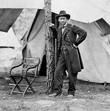
























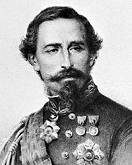





















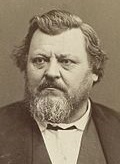

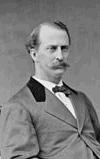
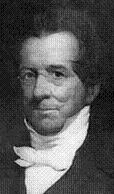



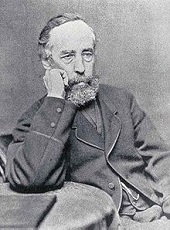

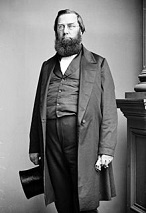
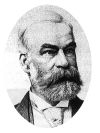





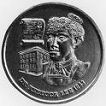

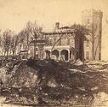

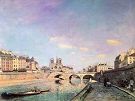


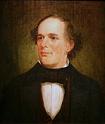

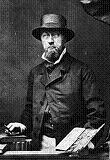
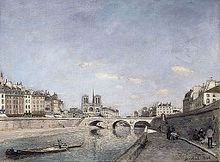
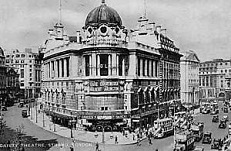
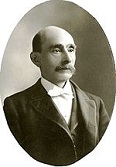
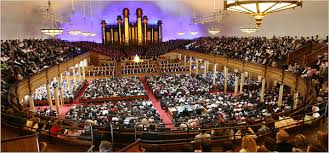
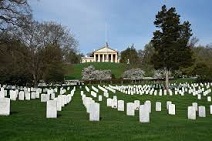


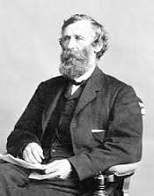
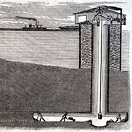

1864 The British consulate reports that Jerusalem has a pop. of 15K, incl. 8K Jews, 4.5K Muslims, and 2.5K Christians; in 1914 it has a pop. of 65K, with 45K Jews; a Jewish persecution breaks out in Rome. The U.S. Civil War proves to be the Amputation War, with 75% of all field surgery operations being amputations, taking an avg. of 12 min., with a 77% chance of surviving an arm amputation by the sawbones. As Bismarck says, blood and iron build his German empire? The difficult question of the possession of Schleswig and Holstein (two provinces adjoining Denmark on the S, occupied by Danes and Germans), disputed by Denmark and the German Confederation, has become so complex that "only three persons in Europe were completely acquainted with the truth, the Prince Consort who was dead, a German professor who was in a lunatic asylum, and myself - and I had forgotten it" (British PM Lord Palmerston); on Jan. 16 after Bismarck persuades Austria to join forces with Prussia to invade Denmark if needed, they send an ultimatum to Cophenhagen, demanding cancellation of the new Danish constitution because of its virtual annexation of S-H; Palmerston's stated sympathies in favor of Denmark soon lead to derision for Britain when it fails to come to its defense and lets the Germans invade Schleswig, defeat the Danes at Duppel, then invade Denmark, followed by the ineffective London Conference on Apr. 25, which results in the Peace of Vienna, ceding the "Elbe Duchies" of Schleswig, Holstein and Saxe-Lauenburg to Austria and Prussia, who rule together; on Aug. 14 the Gastein Convention (Convention of Badagastein) gives admin. of Holstein to Austria as part of Bismarck's plan to draw it into a war. In Jan. the Bloody Tanks Massacre near Pinal Creek in Ariz. Territory results when rancher King S. Woolsey, pres. of the legislative council pulls a pistol from his coat during a peace parley and murders Pinal Apache chief Paramuca, then has his men murder the other 25-200 gunless Apaches, depending on the source; one white man, Cyrus Lennan is killed when an Indian plays dead then lances him before being gunned down; the blood pools in rock basins, causing the name "bloody tanks", although the whites call it the "Pinole Treaty Battle", and paint themselves as heroes, causing Wooley to be lionized as "Arizona's greatest Indian fighter"; meanwhile the Indians' story (first pub. in 1936) is that the whites had killed off their food supply of deer and stolen their cornfields, causing them to starve, and they had stolen a few cattle and ponies to feed themselves, and only wanted the palefaces to promise not to take any more from them, and when the chief told the paleface that he only wanted peace, Woolsey replied, "We're going to give you peace, a new kind of peace" and fires away, telling his men to "pick out your Indian". In Jan. Kit Carson's forces round up 8K starving Navajos and send them on the first of several Long Walks of the Navajo from Ft. Defiance to new Ft. Sumner at Bosque Redondo (Sp. "Round Forest", N.M., committing atrocities along the way, with 200 dying during the 18-day 450-mi. (720km) trek; by 1865 8K-9K settle on a 40 sq. mi. area in concentration camps where they are forced to live in holes in the ground under armed guards with inadequate rations, where 3.5K die. In Jan. Andersonville Prison (originally named Camp Sumter) is built by the Confeds. in Sumter County, SW Ga. (40 mi. from Butler), opening in Feb. and going on to house 45K Union POWs over the next 14 mo. (until Apr. 1865), of which 12K die from Southern hospitality from exposure, disease, or starvation, not to mention those killed by sharpshooters for crossing the Dead Line around the camp. On Feb. 8 U.S. Sen. (R-Mass.) (1851-74) Charles Sumner (1811-74) (known for his big beating in 1856) introduces another version, with a guarantee of equality, causing a combined amendment to be submitted by the Senate Judiciary Committee to the Senate on Feb. 10; on Apr. 8 the Senate passes it by a 38-6 vote, but on June 15 the House rejects it by 93-65 (for-against). It's a new day in Hell's Kitchen, but Chef Hunley still has some questions about last evening's dinner service? On Feb. 12 after Confed gen. James Longstreet charges his own div. cmdr. and West Point buddy Lafayette McLaws with incompetence, he is put on court-martial, found guilty on May 5, and sentenced to 60 days, after which the sentence is overturned but he is sent to defend Savannah, Ga., becoming bitter and claiming Longstreet used him as a scapegoat for botching his Knoxville Campaign last fall. On Feb. 15 Heineken Brewery in Amsterdam, Holland is founded by Gerard Adriaan Heineken (1841-93), who talks his wealthy mother into buying De Hooiberg Brewery (founded 1592) (makers of Haystack brand beer) for him, switching to Bavarian-style bottom fermentation and introducing Heineken brand beer in 1873, made from secret Heineken A-Yeast developed by Dr. Elion, a student of Louis Pasteur; it becomes known for green bottles with a red star; in 1875 it wins the gold medal at the Internat. Maritime Exposition in Paris; in 1933 it becomes the first Euro beer to be imported to the U.S. after the end of Prohibition; in 1975 it moves its main brewery to Zoeterwoude. On Feb. 17 the Confed. ironclad submarine H.L. Hunley (AKA the Fish Boat and the Porpose) named after Horace Lawson Hunley (1823-63) sinks the Union screw sloop-of-war USS Housatonic (one of a group of Union warships blockading Charleston Harbor, S.C.) with an explosive device attached to a pole (beoming the first ship sunk by a sub), then goes to the bottom itself as the hand-cranked propeller shaft fails to work; made in Mobile, Ala. from an iron boiler, er, built to plans, with no periscope, and a candle as the only internal illumination, it had sunk on two previous trial runs, killing five crew the first time (Aug. 29, 1863) and eight the second (Oct. 15, 1863), incl. Hunley; it is found near Sullivans Island in 18 ft. of water by divers in May 1995, raised in Aug. 2000, and the crew officially buried in Charleston in 2004; after the Union fails to take Charleston, its worst naval defeat of the war, former big man rear Adm. Samuel Francis Dupont asks to be relieved of his command, ending his 45-year Navy career on a bummer. On Feb. 24 Confed Gen. Braxton Bragg is summoned to Richmond and made military advisor to pres. Jefferson Davis - I don't like to brag, but? On Feb. 25 fifty Apaches raid the Agua Fria Ranch in N Ariz., stealing all 30 cattle of owner King S. Woolsey, and pissing him off, causing him to organize a party of 101 settlers and get Ariz. gov. #1 (1863-6) John Noble Goodwin (1824-87) to call for their extermination and give him the rank of lt. col., and they set out, finding nothing but women and destroying their wheat fields, getting a commendation from the territorial legislature in July. On Mar. 1 Rebecca Davis Lee Crumpler (1831-95) becomes the first black woman to receive a medical degree in the U.S., from the New England Female Medical College in Boston, Mass. - I don't know nuthin' about birthin' babies? On Mar. 3 Gen. Grant, Gen. George Meade, and Gen. Philip Henry Sheridan (1831-88) (a volatile little Irishman on a big black horse?) cross the Rapidan River. On Mar. 10 after his great work in ridding Tenn. of rebels, Ulysses S. Grant is promoted to lt. gen. (first since George Washington), and put in charge of the Union Armies, replacing Gen. Halleck, going on to suspend the exchange of POWs in Mar. to cut off their source of reinforcements, while thinking nothing of trading his troops 2-for-1 in combat to defeat the Confederacy, soon losing 30K of his 100K troops, more men than Gen. Lee commands, causing First Lady Mary Todd Lincoln to call him a butcher; John Wilkes Booth later plots to kidnap Pres. Lincoln to hold him hostage and force the POW policy to be reversed, then decides on assassination after hearing him support voting rights for black people on Apr. 11, 1865? On Mar. 10 Maximilian II (b. 1811) dies, and his 19-y.-o. son "Mad" (Märchenkönig) Ludwig II (1845-86) becomes king of Bavaria (until June 13, 1886), and goes on to build a bunch of fairy tale castles around Tegelberg Mt., incl. the fairy tale-like Neuschwanstein Castle (Schloss) (1869-86) (model for Disneyland Castle) (homage to Richard Wagner), co-designed by Bavarian architect Eduard Riedel (1813-85), leaving mundane state affairs to his trusty ministers. On Mar. 10-May 22 the Red River Campaign (Expedition) sees 30K Union troops under Maj. Gen. Nathaniel Prentice (Prentiss) Banks (1816-94) (U.S. House Speaker in 1856-7) invade La. along the Red River, facing 6K-15K Confed. troops under Maj. Gen. Richard Scott "Dick" Taylor (1826-79) (son of pres. Zachary Taylor) and Maj. Gen. Sterling, ending in dismal failure starting on Apr. 8 at the Battle of Mansfield (Sabine Crossroads) (Pleasant Grove) in De Soto Parish, La. (first major battle of the campaign), with 2.9K Union vs. 1.5K Confed. casualties; meanwhile on Mar. 23-May 2 the Camden Expedition in S-C Ark. by Union forces under Maj. Gen. Frederick Steele, a plan to march to Shreveport, La. and link up with the amphibious force of Maj. Gen. Nathaniel P. Banks and Rear Adm. David D. Porter for a raid up the Red River Valley into Tex. is a failure after Shelby's Raiders harass them along the way, allowing the Confeds. under Maj. Gen. Sterling Price and Gen. Edmund Kirby Smith to win a series of battles, finally forcing them back to Little Rock, Ark. after Shelby captures their supply trains at Mark's Mill; too bad, Confed. Gen. Edmund Kirby Smith (1824-93) fails to pursue the retreating Yankees, and sends half of his force N to Ark. to meet the army of Gen. Frederick Steele, which had come S from Little Rock, where it was supposed to link up with Banks' army in Shreveport, La., but is now left exposed; on Apr. 30 the Battle of Jenkins' Ferry on the Saline River SW of Little Rock in modern-day Grant County, Ark., sees the 12K overconfident rebels force the Yankees to dig in their heels and kick their butts, allowing Banks' forces to return to Little Rock and keep control of Ark., making Smith and Taylor into bitter enemies; Gen. Sterling Price then decides to bypass Ark. and invade Mo. in hopes that the many Southern sympathizers will rise up. On Mar. 11 the Great Sheffield Flood in England begins when the Dale Dyke Dam breaks when being filled for the first time, damaging 600 houses and killing 240; the dam is rebuilt in 1875. On Mar. 15 conservative Gen. Jose Maria Medina (1826-78), a veteran of the war against gringo William Walker becomes the first pres. of Honduras to endure more than a year (until July 26, 1872), backed by Rafael Carrera of Guatemala. On Mar. 28 Ravi Varma IV dies, and Sir Rama Varma XIV (1848-88) becomes king of Cochin in SW India (not to be confused with Cochin, China), becoming the first to be knighted. On Apr. 4 the U.S. Congress passes a resolution against the establishment of a monarchy in Mexico, which doesn't stop Cactus Emperor Maximilian I, who accepts the crown of Mexico on Apr. 10, and signs the Miramar Convention. On Apr. 8 the Repub.-controlled U.S. Senate passes the 13th Amendment to the U.S. Constitution by 38-6, and sends it to the divided House, which defeats it on June 15 by 93-65 for-against. On Apr. 8 the private Congressionally-chartered Gallaudet U. (originally Columbia Inst. for the Instruction of the Dead and Dumb and the Blind in 1857) is founded in Washington, D.C. for the deaf and hard of hearing, named after Rev. Thomas Hopkins Gallaudet (1787-1851), father of pres. #1 (until 1910) Edward Miner Gallaudet (1837-1917), starting out as a grammar school and growing into higher education. Hey, we AEIOU's have been missing out on the New World grab up till now, don't we ever get a turn? On Apr. 10 Archduke Ferdinand Maximilian Joseph of Austria arrives in Mexico City and is crowned emperor Maximilian I (1832-67) of Mexico (until June 19, 1867), encouraging Confederates to migrate to Mexico along with their slaves, while his rival Benito Juarez watches the Yankees' backs and prevents the French from aiding the Confederates in Tex. Is there a little black dirt on your lily-white pillow? On Apr. 12 the Battle of Ft. Pillow near Memphis is a V for the KKK, er, Confederates under Maj. Gen. Nathan Bedford Forrest, who capture the Union-held fort from its defenders, Southern Unionists and freed blacks; accusations of a massacre of black Union soldiers (incl. some whites and the fort cmr.), causing the river to run red stir Union resentment, but Lincoln decides against retaliation. In Apr. the 1863 Jan. Uprising by the former Polish-Lithuanian Commonwealth is crushed by the Russians, the whole experience causing once-liberal Russian Tsar Alexander II to turn reactionary and begin using secret police, which backfires and increases unrest, leading to his own assassination in 1881; the Young Latvian and other nationalist movements are crushed by Russia, leading to Russification; by modern times 40% of the pop. of Latvia is of Russian origin. On May 5-7 the Battle of the Wilderness in Spotsylvania County, Va., the first direct confronation between Gens. Robert E. Lee and Ulysses S. Grant sees 65K Confed. troops behind an earthworks cross the Rapidan River on May 3-4, and Grant lead his army of 120K around his E flank over the river, camping in the forested Spotsylvania Wilderness; Lee responds by dividing his army in two, with Gen. Richard "Dick" Stoddert Ewell and Gen. A.P. Hill flanking Grant's troops, and the 1st Corps under Lt. Gen. James Longstreet attacking from the S on May 5; too bad, the Union troops almost overwhelm Hill, who is saved only by nightfall, causing Longstreet to be ordered to break off his attack and relieve Hill, which he does on the morning of May 6 after another Union attack pushes Hill into Widow Tapp's Field and almost captures Gen. Lee; Longstreet then resumes his attack on the S flank, only to become wounded, ending the Confed. attack, except for an attack by Confed. Brig. Gen. John Brown Gordon (1832-1904) at the N flank just before dark; meanwhile in the midst of the fighting, a Yank and a rebel duke it out in Saunders Field, after agreeing that the loser will submit to capture, causing both armies to stop fighting to watch the fistfight; the rebel wins. The horseback war brings back shades of Attila the Hun? On May 9-25 Union Gen. Philip Sheridan leads 10K cavalry armed with repeating carbines on a raid in the Richmond vicinity, destroying railroad tracks and rolling stock, incl. 3 wks. of Confed. rations; on May 11 Confed. cavalry Gen. James E.B. (J.E.B.) Stuart (b. 1833) is mortally wounded at the Battle of Yellow Tavern, 6 mi. N of Richmond (his first wound of the war?), and dies on May 12 (he once said "All I ask of fate is that I may be killed leading a cavalry charge"); he is replaced by wealthy S.C. planter Gen. Wade Hampton III (1818-1902), becoming the only non-Virginian to head the cavalry corps of Lee's army. In the west Grant goes on a holiday cruise? On May 12 Union troops capture a whole div. of Lee's army at the Bloody Angle in the Battle of Spotsylvania Courthouse (May 8-20), then withdraw after the longest sustained combat of the war (20 hours), but winning the war of attrition against the South (18K Union vs. 12K Confed. casualties); on May 21 Gen. Grant discontinues the fight, gets replacements and marches on toward Richmond around Lee's right with 108K men, relentlessly closing in on the weakening rebel army (60K); on May 26 Grant gets overbold, and on May 31 after encountering Confed. positions along the line of Totopotomoy Creek sends Gen. Sheridan's cavalry ahead to capture Cold Harbor (2 mi. from Gaines's Mill and 10 mi. NE of Richmond, near the site of the 1862 Seven Days' Battle), beginning the bloody Battle of Cold Harbor on May 31-June 12; on June 1 Union troops under Gen. Horatio Gouverneur Wright and Gen. William Farrar "Baldy" Smith (1824-1903) capture much of the Confed. front line while taking 2K casualties, but Lee's forces hold, and on June 2 (morning) counterattack, taking many POWs; on June 3 (4 a.m.) the Yankees begin an advance, and walk into a bloody pre-dawn massacre (5K casualties in 20 min., and 7K by 1:30 p.m.), after which both sides retrench and it becomes a push; on June 12 the Union forces withdraw S across the James River, ending their drive through the Va. Wilderness, with 13K total Union vs. 2.6K Confed. casualties; Grant later admits that the attack is the worst mistake of his career (the only thing he ever admits doing wrong), although at the time he tries to cover it up in an effort to assure Lincoln's renomination; it becomes Lee's last major field V, though he can't afford the casualties. On May 13-15 after Gen. Grant gives Gen. William Tecumseh Sherman (1820-91) command of the military div. of the Mississippi (100K men) with the task of destroying the Confed. Army of Tennessee (45K men) under Gen. Joseph E. Johnston and moving against Atlanta, Ga., and Johnston adopts a fight-and-retreat policy, he begins retreating S from Resaca on May 13-15, Adairsville on May 17, New Hope Church on May 25-26, Kennesaw Mountain on June 27, and Marietta, Ga. on June 9-July 3, maneuvering tactically to avoid heavy engagements, then getting trapped into them by Sherman; on June 26 Sherman writes "We have destroyed the land and our animals have eaten up the wheat and corn fields"; on July 17 Pres. Davis replaces Johnston with Gen. John Bell "Sam" "Old Wooden Head" Hood (1831-79), hoping he will prove more aggressive; he later proves too aggressive? On May 15 the Battle of New Market sees the Confeds. under Gen. John C. Breckinridge assisted by VMI cadets force Union Gen. Franz Sigel out of the Shenandoah Valley. On May 26 the Territory of Montana (Mont.) is created out of Idaho Territory by Congress, with capital at Bannack, Mont. on Grasshopper Creek in SW Mont. until Feb. 6, 1865, followed by Virginia City, Mont. in SW Mont. until Apr. 19, 1875; on July 14 gold is discovered in Last Chance Gulch, Mont. by the Four Georgians; on Oct. 30 3,875-ft. alt. Helena, Mont. in WC Mont. (modern-day pop. 31K) is founded; by 1868 $16M in gold is dug up from Last Chance Gulch, and the town pop. reaches 7.5K, incl. 50 millionaires, most per capita on Earth; on Apr. 19, 1875 it becomes the capital of Mont. Territory, and capital of the state of Mont. on Nov. 8, 1889; Last Chance Gulch takes 20 years to peter out; meanwhile in Aug. the city of Bozeman, Mont. in SW Mont. (modern-day pop. 45K/97K) is founded, named after Bozeman Trail founder John M. Bozeman (1835-67); it is incorporated in 1883, becoming home to Mont. State U. (1893). On May 29 after Lincoln's wing splits to form the Nat. Union Party, leaving only Radical Repubs., the 1864 Repub. Nat. Convention in Cleveland, Ohio nominates U.S. Gen. John Charles Fremont (1813-90) for pres., and U.S. Gen. John Cochrane (1813-98) for vice-pres. In May Gen. Ambrose Burnside is given command of the Ninth Corps of the Army of the Potomac again, participating in the Richmond campaign (until 1864). In May a flood wipes out part of Denver, Colo., causing a movement of pop. W into Highland. On June 3 Pres. Lincoln signs the U.S. Nat. Bank Act, a revision of the 1863 Nat. Currency Act establishing an inspection system for nat. banks. On June 15 after the Battle of the Wilderness necessitates finding a burial site for the dead, and measles victim William Henry Christman (1843-64) becomes the first military burial there on May 13, U.S. Secy. of War Edwin M. Stanton signs an order establishing a military burial ground on the confiscated Arlington House estate of Confed. Gen. Robert E. Lee, his wife Mary Anna Lee (great-granddaughter of Martha Washington), and the Custis family, which becomes Arlington Nat. Cemetery (established May 13), designed by U.S. Army quartermaster gen. (1861-82) Montgomery Cunningham Meigs (1816-92); the land was part of the estate of John Parke Custis, son of First Lady Martha Washington; the mansion was built by his son George Washington Parke Custis; the first nat. Memorial Day ceremony is conducted there by Pres. Hoover on May 30, 1929; burials are desegregated on July 26, 1948. On June 9 the Siege of Petersburg, Va. 20 mi. S of Richmond S of the Appomattox River begins (ends Mar. 25, 1865,) with the Confeds. setting up strong defenses; on June 9 the First Battle of Petersburg in Va. is a D for 4.5K Union troops under Maj. Gen. Benjamin Butler against 2.5K Confed. defenders, becoming known as the "battle of old men and young boys". On June 12 Grant's forces, attempting to score a quick knockout of Richmond by capturing Petersburg to the S first, cross the James River with 115K troops (first use of the Gatling gun) after feinting a move towards Richmond that fools Lee, but Confed. Gen. Pierre Toutant Beauregard blocks his arrival long enough for Lee to arrive, and on June 14-17 the Army of the Potomac crosses the James River from the N and moves towards Petersburg to support it. On June 17-18 Confed. forces under Gen. Jubal Anderson Early (1816-94) defeat Union forces under Maj. Gen. David "Black Dave" Hunter (1802-86) at the Battle of Lynchburg in the Shenandoah Valley of Va.; Early then crosses the Potomac on July 5, invades Md. and Penn., and advances to the outskirts of Washington, D.C. on July 11 after the July 9 Battle of the Monacacy River (Junction) On June 17-18 Confed. forces under Gen. Jubal Anderson Early (1816-94) defeat Union forces under Maj. Gen. David Hunter (1802-86) at the Battle of Lynchburg in the Shenandoah Valley of Va.; Early then crosses the Potomac on July 5, invades Md. and Penn., and advances to the outskirts of Washington, D.C. on July 11 after the July 9 Battle of the Monacacy River (Junction) under Union Maj. Gen. Lewis "Lew" Wallace (1827-1905) (of Ben-Hur fame) slows him down (saving Washington?); after the Battle of Ft. Stevens in NW Washington, D.C. on July 11-12 sees 10K rebels under Gen. Jubal Early lose to 9.6K federal troops under Gen. Alexander M. McCook and Gen. Horatio G. Wright, with 500 rebel vs. 373 Union casualties, the invasion is aborted and Early turns back on July 12 (eve.), crossing the Potomac River at White's Ferry in Leesburg, Va. on July 13, bringing their booty with them, with Early uttering the soundbyte: "We didn't take Washington but we scared Abe Lincoln like Hell"; on July 12 Lincoln witnesses the attacks from Ft. Stevens through field glasses while dodging bullets, becoming the first U.S. pres. to see action while in office since Madison in the Battle of Bladensburg on Aug. 24, 1814. On June 15-18 the Second Battle of Petersburg sees the Union initially gain ground then get chicken and retreat after Confed. Gen. Beauregard uses a bunch of tricks and "Quaker Guns" (logs) to fool the Yankees into puffing up his army size in their minds. On June 21-23 the Battle of Jerusalem Plank Road (First Battle of Weldon Railroad) sees the Union try to cut supply lines S of Petersburg until they are driven off by Confed. troops under Brig. Gen. William Mahone (1826-95). On June 25 the Battle of Staunton River Bridge sees the Union destroy 60 mi. of railroad tracks before Lee's cavalry finally stops them from destroying the key railroad bridge; on June 28 the Battle of Sappony Church sees the fleeing federals engaged as they head N, causing them to abandon many fleeing slaves they were taking with them; on June 29 the First Battle of Ream's Station sees the same fleeing federals run against more Confeds. and end up burning their wagons and abandoning their artillery before fighting through to Union lines on July 2. In the west Grant goes on a holiday cruise? Gen. Grant gives Gen. William Tecumseh Sherman (1820-91) command of the military div. of the Mississippi (100K men) with the task of destroying the Confed. Army of Tennessee (45K men) under Gen. Joseph E. Johnston and moving against Atlanta, Ga.; Johnston adopts a fight-and-retreat policy, retreating S from Resaca on May 13-15, Adairsville on May 17, New Hope Church on May 25-26, Kennesaw Mountain on June 27, and Marietta, Ga. on June 9-July 3, maneuvering tactically to avoid heavy engagements, then getting trapped into them by Sherman; on June 26 Sherman writes "We have destroyed the land and our animals have eaten up the wheat and corn fields"; on July 17 Pres. Davis replaces Johnston with Gen. John Bell "Sam" "Old Wooden Head" Hood (1831-79), hoping he will prove more aggressive; he later proves too aggressive? On June 19 after a 90-min. battle the war sloop USS Kearsarge, commanded by Capt. (since July 1862) John Ancrum Winslow (1811-73) sinks the CSS Alabama (after it takes a record 69 prizes), captained by Raphael Semmes (1809-77) off Cherbourg, France, ending the career of the South's most famous commerce raider; big man Winslow receives a Congressional vote of thanks and a promotion to commodore, followed by rear Adm. in 1870 with command of the Pacific squadron until 1872 - all I want to do is be in the light? In June Lee's alma mater Va. Military Inst. (VMI) is burned. On July 2 Congress passes the U.S. Wade-Davis Bill, AKA the Ironclad Oath, sponsored by Radical Repubs. Ohio Sen. (1851-69) Benjamin Franklin "Buff" Wade (1800-78) and Md. Rep. Henry Winter Davis (1817-65), upping the ante on Lincoln's 10 percent Reconstruction Proclamation by requiring a majority of white male citizens to swear their allegiance, abolish slavery, repudiate Confed. debts, and other more stringent requirements wanted by the Radical Repubs., incl. male suffrage and military govs.; Lincoln kills it with a pocket veto, causing the sponsors to respond with the Wade-Davis Manfesto, accusing him of seeking relection by the executive establishment of new state govts. On July 4 the U. of Bucharest in Romania is founded by Prince Alexander John Cuza. On July 18 photographer John Mayall opens up a new studio on King's Road Arches in Brighton, England, five days after the Grand Hotel opens its doors. Atlanta burns, don't stop, can't stop? On July 20 after battles in the Marietta area, Sherman's troops advance toward Atlanta, defeating an attack by Confed. Gen. John Bell Hood at the Battle of Peachtree Creek, then another on July 22 in the Battle of Atlanta, where Union Maj. Gen. Grenville Mellen Dodge, cmdr. of the XVI Corps sees his chance and rides to the front to lead the div. of Gen. Thomas William "Fighting Tom" Sweeny (1820-92) into battle, pissing-off Sweeny, who gets into a fistfight with him, after which Sweeny is court-martialed and Dodge dodges all charges; on July 28 the Battle of Ezra Church results when Hood tries to keep them from cutting his communications S of the city, throwing his 18K starving Confeds against 13K fat federals, and getting repulsed with 2,836 casualties vs. 632 for the Yankees; Grenville Dodge is hit by a Confed. sharpshooter in the head while peeping through an eyehole in the Union breastworks, but recovers; this big D leads on Sept. 2 to the Fall of Atlanta and Burning of Atlanta; Pres. Lincoln, heretofore despairing of reelection, now sees a rosy political dawn; Sherman gives an order sparing all bldgs. with Masonic symbols, saving the Grant Mansion; on Sept. 12 Gen. Sherman sends a Letter to the Shocked Mayor of Atlanta, telling him "War is cruelty, and you cannot refine it"; Walter Quintin Gresham is wounded in the Atlanta campaign, laming him for life, and next year is awarded the honorary rank of maj.-gen. and retires. On July 24 the Confeds. under Gen. Jubal A. Early win a V against Union Gen. George H. Crook at the Second Battle of Kernstown in Frederick County, Va., then on July 30 Early's cavalry burns Chambersburg, Penn. to get even for the burning of the Va. Military Inst., but only after they are given a Southernly chance to pay ransom. On July 27-29 the First Battle of Deep Bottom (Darbytown) (Strawberry Plains) (New Market Road) (Gravel Hill) in Henrico County, Va. sees the Union army under Gen. Winfield Scott Hancock and Philip H. Sheridan cross the James River from the S to threaten Richmond in order to divert Confeds. forces defending Petersburg, then withdraw after a Confed. counterattack. On July 30 the Battle of the Crater sees coal miners from the 48th Penn. infantry under Lt. Col. (later brig. gen.) Henry Clay Pleasants (1833-80), who dug a 511-ft.-long tunnel under the Confed. lines at Petersburg at Elliott's Salient detonate explosives, creating a 135-ft. diam. crater, killing 280-350 Confed. soldiers, then get chicken about sending rehearsed black troops at the Confeds., sending unrehearsed white troops instead, who jump into the crater instead of moving around the rim, ending up getting slaughtered, with 5.3K casualties, causing Gen. Grant to call it "the saddest affair I have witnessed in the war"; the news spooks the Yankee pop., giving the Dems. their chance to call for a negotiated peace, and giving them steam for the upcoming pres. elections on Nov. 8. By July Lee's starving Army of Northern Virginia is bottled up in Petersburg while Grant reinforces and prepares for the final conflict; Gen. Longstreet has recovered from his 1864 Wilderness wounds enough to direct Petersburg's defense; meanwhile Confed. Gen. Jubal A. Early returns to the Shenandoah Valley in Aug., and Gen. David Hunter is replaced as cmdr. of cavalry forces in the Union Army of the Potomac by dashing Gen. William Tecumseh Sheridan. In July the U.S. passes the 1864 U.S. Immigration Act, encouraging white immigration to the Union, causing the huddled masses of Europe to begin pouring into the docks of New York City, only to be signed up for the Union army - but a Sumo wrestler and a dwarf? By the end of July Grant cuts off Lee's supplies from the lower South and begin staging for the final assault on Richmond, putting fun-guy Gen. Benjamin Franklin Butler in command of the Army of the James in Va. On Aug. 5 Union commodore David G. Farragut, with a fleet of 14 wooden warships and four ironclads fights his way past Confed. forts, entering Mobile Bay; after losing one ironclad, the USS Tecumseh (commanded by Capt. Craven) to torpedoes (mines) in the channel, Farragut has himself lashed to his flagship's mainmast, uttering the immortal soundbyte "Damn the torpedoes - full speed ahead!"; although he captures the forts, he doesn't capture the city of Mobile 30 mi. away, and it remains in rebel hands until Apr. 1865, although it ceases to be a center of blockade-running; Sir Henry Newbolt (1862-1938) later immortalizes this event in his poem Craven. On Aug. 14-20 the Second Battle of Deep Bottom sees the Yankees under Winfield Scott Hancock cross the James River again at Deep Bottom in a move on Richmond, then gain some Vs at Fussell's Mill, until the Confeds. drive them back over the river. On Aug. 18-21 the Battle of Globe Tavern (Second Battle of Weldon Railroad) sees the Union under Gen. Gouverneur Kemble Warren cut Petersburg's primary rail connection with Wilmington, N.C., forcing the Confeds. to use wagons for 30 mi. up Boydton Plank Road instead. On Aug. 22 Confed. Gen. Robert E. Lee receives a report that his soldiers are about out of food supplies, after which on Sept. 14-17 the Beefsteak Raid sees 3K Confed. cavalry under Maj. Gen. Wade Hampton ride 100 mi. in N Va. to gather cattle intended for Union troops laying siege to Richmond behind Union lines at Coggin's Point on the James River 5 mi. from Grant's HQ, surprising the 120 guards and stealing 2,468 cattle along with 11 wagons and 304 POWs, with 10 Confeds. KIA, 47 wounded and 4 MIA; Lincoln calls it "the slickest piece of cattle-stealing" he ever heard of; until the end of the war the Confeds. have so much extra beef that they trade it with the Union sentries for luxuries. On Aug. 22 far, far away from the U.S. Civil War carnage, after lobbying by Swiss activist Henri Dunant, 13 Euro states agree to the First Geneva Convention for the Amelioration of the Condition of the Wounded and Sick in Armed Forces in the Field, establishing humane regulations regarding the treatment of sick and wounded POWs; all of the sick and those who minister to them are required to display the Swiss Army knife Geneva cross (red on a white background), and battlefield medical facilites are officially neutral; the first of Four Geneva Conventions by 1949; the Internat. Committee of the Red Cross is established, with the Swedish Red Cross in Stockholm, and the Norwegian Red Cross in Kristiania (Oslo) both founded next year. On Aug. 25 the Second Battle of Ream's Station sees Union troops tearing up railroad tracks get ambushed by the Confeds., losing nine guns, 12 flags, and many POWs. On Aug. 29-31 the 1864 Dem. Nat. Convention in Chicago, Ill. sees the Dems. call for an armistice to be followed by a nat. convention to restore the Union; they nominate Gen. George B. McClellan, who distances himself from his party's peace platform by declaring that Union must precede peace talks; Abraham Lincoln is renominated, with old-fashioned Jacksonian War Dem. Andrew Johnson of Tenn. nominated for vice-pres. by the Nat. Union Party, a wartime coalition of Repubs. and War Dems. (changed back to Repub. Party in 1868); Johnson is picked to lure Northern Dem. votes away from Gen. McClellan; 22 disgruntled opponents of Lincoln vote for Ulysses S. Grant, who is not a candidate. ' In Aug. the Taiping Rebellion (begun Dec. 1850) of up to 1M peasants falls to attacks led by British Gen. Charles George "Chinese" Gordon (1833-85); Hong Xiuquan (b. 1814) commits suicide; total losses are estimated at 20M, seriously weakening the Manchu (Qing) Dynasty and leading to its final collapse in 1912. On Sept. 1-7 the Charlottetown Conference on Prince Edward Island, Canada (named after Queen Victoria's father) to discuss the creation of Canada, gaining the name "Birthplace/Cradle of Confederation", but it is upstaged by a local circus, and they agree to meet later in Quebec; in 1867 the island balks at joining, preferring to remain a colony of the U.K., flirting with joining the U.S. In early Sept. the Confeds. under Gen. Sterling Price invade Mo. with 12K-15K men, aided by Quantrill's Raiders; on Sept. 26-27 they attack Pilot Knob in Iron County, Mo. outside St. Louis, and are held off by a garrison of 1K Yankees, after which Price tries unsuccessfully to take Jefferson City to the W, then is repulsed at the Kan. border, and finally gives up and heads back S on Oct. 23 with his remaining 5K men, losing William Quantrill and William T. "Bloody Bill" Anderson (1839-64), who dies on Oct. 26 in Ray Count, Mo., his body found with a silken cord with 53 knots, plus human scalps on his bridle; Price covers up his failure to Jeff Davis (who never treated him right since he didn't graduate from West Point?) with a glowing report of how he had brilliantly feinted toward St. Louis then maneuvered W to keep the Yankees S of the Missouri River, then marched 1,434 mi., engaging in 43 battles and taking 3K POWs, yada yada yada. On Sept. 26-27 the after crossing from Ark. to Mo. with the goal of capturing St. Louis, and tries to capture Ft. Davidson near the terminus of the St. Louis, Iron Mountain and Southern Railway, the 12K-man Confed. army under Gen. Sterling Price (3K of whom have no weapons) are defeated by the 1.5K-man garrison under Brig. Gen. Thomas Ewing Jr. (1829-96) (brother-in-law of William Tecumseh Sherman) at the Battle of Pilot Knob (Ft. Davidson), taking 1.5K casualties vs. 184 for the Union then evacuating and blowing up the fort before retreating, after which Price retreats to Kansas City, Mo., where he is boxed in by two Union armies. On Sept. 28 Turin-born Gen. Alfonso Ferrero, Cavaliere La Marmora (1804-78) becomes PM #6 of Italy (until June 20, 1866), going on to modify the September Convention to claim for Italy full freedom of action with respect to nat. aspirations to the possession of Rome, which is later used to justify the Italian occupation of 1870. On Sept. 29-30 the Battle of Chaffin's Farm (New Market Heights) sees another Union attack on Richmond repulsed after the Yankees capture several forts, forcing the Confeds. to erect a new line of defensive works, weakening their lines at Petersburg. On Sept. 30-Oct. 2 the Battle of Peebles' Farm (Poplar Springs Church) in Dinwiddie County near Petersburg, Va. sees Union troops capture Ft. MacRae and extend their left flank as they close in on Petersburg. On Oct. 1-3 after Union raiders attempt to destroy the saltworks in Smyth County, Va., the First Battle of Saltville in Va. is a Confed. V under Brig. Gen. Stephen G. Burbridge over Union troops under Gen. Alfred E. Jackson, but they stink it up by committing atrocities against captured black Union troops; on Dec. 20-21 the Second Battle of Saltville is a Union V under Gen. George Stoneman, and they destroy the saltworks, dealing a major blow to the Confederacy's ability to preserve meat. On Oct. 5 the Battle of Allatoona (Pass) in Barstow County, Ga. sees a 3,276-man Confed. div. under Maj. Gen. Samuel G. French fail to dislodge a 2,025-man Union garrison under Brig. Gen. John M. Corse from a fortified position protecting the railroad, with 897 Confed. vs. 706 Union casualties. On Oct. 7 the Battle of Darbytown and New Market Roads sees the Confeds. attack the Union far right flank before Richmond and rout the Yankee cavalry, but get repulsed by the main Union defensive line, and return to Richmond licking their wounds. On Oct. 9-27 the Quebec Conference, attended by 16 delegates discusses the Canadian Confederation, with the U.S. model muddied by the ongoing Civil War, but finally resulting in the Seventy-Two Resolutions, which are sent to the provinces for approval. On Oct. 12 chief justice (since Mar. 15, 1836) Roger B. Taney (b. 1777) finally kicks the lily-white paint bucket on the same that that his home state Md. abolishes slavery, and on Dec. 6 Cornish, N.H.-born U.S. treasury secy. #25 (1861-4) Salmon Portland Chase (1808-73) becomes U.S. Supreme Court Chief justice #6 and 39th justice of the 10-member U.S. Supreme Court (until May 7, 1873); no more changes till the war is safely won in 1870. On Oct. 13 the Battle of Darbytown Road sees the Union test the new Confed. defensive line in front of Richmond and get repulsed with heavy casualties. On Oct. 19 the Confeds. under Gen. Jubal A. Early rout two-thirds of the Union army at the Battle of Cedar Creek; too bad, the Johnny Rebs are so hungry that they fall to looting the Union camp, allowing Gen. Sheridan to ride on horseback 20 mi. to rally his troops and score a V, then go on to burn the Shenandoah Valley, destroying the food supply of the Army of Northern Va.; Col. Ranald S. Mackenzie, hated by his troops and haunted by his family skeletons scores big points with Sheridan for taking 500 POWs despite a mangled hand, and taking another bullet in the lung which disables him for months, and is promoted to maj.-gen. next Mar. On Oct. 21-22 the Second Battle of Independence in Mo. is a V for the Confed. Army of Mo. under Gen. Sterling Price over the Union cavalry of Gen. Alfred Pleasonton, who drives Gen. Blunt's army W on day 1, and Pleasanton's cavalry driving Price's army W on day 2. On Oct. 23 22K Union forces led by Gen. Samuel Ryan Curtis (1805-66) defeat the 8.5K-man Confed. army of Gen. Sterling Price at the Battle of Westport ("the Gettysburg of Missouri") near Kansas City, Mo., becoming the largest U.S. Civil War battle fought W of the Mississippi River (29K total troops), followed on Oct. 25 by the Battle of Mine Creek, where 2.8K Union troops defeat 8K Confeds., after which what's left of the rebel army retreats to Tex., and later flees to Mexico after the war, setting up a colony in Carlota, Veracruz, which goes bust, after which Price returns to Mo. and dies of cholera; the site of the Battle of Westport later becomes Jacob L. Loose Park - he thought it was okay not to boil water back in the States? On Oct. 27-28 the Battle of Fair Oaks and Darbytown Road sees the Union try to take Petersburg again, only to be repulsed by a Confed. counterattack and lose 600 POWs. On Oct. 27-28 the Battle of Boydton Plank Road sees 30K Union troops withdraw from the Petersburg lines and march W to take the Boydton Plank Road until a Confed. counterattack recaptures it, after which Union gen. Winfield Scott Hancock resigns, claiming old war wounds from Gettysburg. On Oct. 28 the Second Battle of Newtonia in Newton County, Mo. sees Union troops incl. the 16th Kansas Cavalry and 2nd Colo. Cavalry nder Gen. James G. Blunt encounter defeat retreating Confed. troops under Maj. Gen. Sterling Price incl. the Iron Brigade under cavalry Gen. Joseph O. "Jo" Shelby, who retreat into Indian Territory. On Oct. 31 after telegraphing a copy of their 16,543-word constitution to Pres. Lincoln for review, "Sagebrush State", "Silver State", "Battle Born State" Nevada (Nev.) (Sp. "snowy") is admitted as the 36th U.S. state, even though it doesn't contain enough people to constitutionally authorize statehood, all because of the Comstock Lode on Mt. Davidson in the Sierra Nevada Mts. near 6.5K-ft. Virginia City, and its gold and silver, which is needed to keep the Union solvent, its three electoral votes will ensure Lincoln's reelection; meanwhile N.M. is denied statehood by the Repub.-dominated Congress because it's a Dem. stronghold, Utah because of polygamy, and Repub. stronghold Colo. because of the Sand Creek Massacre - Indian gold is used to finance the killing of whites by whites and that's okay? In Oct. the Confed. raider CSS Shenandoah, under Capt. James Iredell Waddell (1824-86) escapes British port, and in one year of operation sails 58K mi. and takes 30+ Yankee merchant vessels, almost putting New England whaling out of business, and is still burning Yankee whalers in the Bering Sea in July 1865 when a passing British ship brings word of the war's end, making half of its captures into acts of piracy, causing an epic voyage to avoid the whole Union navy and reach a safe neutral port before being captured; after the war the U.S. whaling industry begins reviving until the advent of petroleum products for candles and fuels makes it decline again, shrinking to a few shore-based operations along the Pacific Coast by 1925. On Nov. 1 Md. adopts a new 1864 Md. Constitution officially ending slavery; it takes until Mar. 26, 2007 for the state to officially apologize for its role in the slave trade, days after Va. does it. On Nov. 2 the New York 19th Century 9/11 sees New York City mayor (1864-6) Charles Godfrey Gunther (1822-85) (a Dem.) receives a telegram from U.S. secy. of state William H. Seward warning him of a Confed. plot to burn the city down on election day (Nov. 8), causing Union troops under Gen. Benjamin Franklin Butler to occupy the city; on Nov. 25 (Evacuation Day), pissed-off Confed. agents led by Col. Robert Martin, (former subordinate of John Hunt Morgan) stage the New York Attack, setting fire to several crowded hotels to get even for the devastation of the Shenandoah Valley, after which on Nov. 26 police round up 200 suspects, and the Hotel Keepers' Assoc. offers a $20K reward, which doesn't stop the eight rebels from slipping back into Canada; Robert C. Kennedy is later caught trying to rescue some Confed. gens., and hung on Mar. 25, 1865 at Ft. Layfette in New York Harbor, becoming the last Confed. soldier executed by the Union; the whole episode terrorizes New York City, becoming their first 9/11, plus a deja vu for the assassination of JFK and RFK, compounded by the fact that on Nov. 25 brothers Edwin, Junius Jr., and John Wilkes Booth first perform together in the Winter Garden in Shakespeare's "Julius Caesar". On Nov. 8 after initially expecting to lose, then seeing his fortunes turn around with the capture of Mobile and Atlanta, the 1864 U.S. Pres. Election (first wartime election since 1812) (most important pres. election in U.S. history until ?) is a landslide for Abraham Lincoln of the Nat. Union Party, who ran with the slogan "Don't change horses in the middle of a stream", receiving 55% of the popular vote (2,218,388) and 212 electoral votes to George B. McClellan's 45% of the popular vote and 21 electoral votes (1,812,807) (McClellan carries only N.J., plus border states Del. and Ky.); Lincoln makes good use of the new army field vote; only 25 states participate in the election; he now had a mandate to finish the war, and begins strongarming Congress to get a two-thirds majority in the House to pass the 13th Amendment, offering political patronage jobs to lame duck Dem. members, but failing to change a single vote? Lights, action, take two? On Nov. 14-15 Union Gen. William T. Sherman, saying "Let us destroy Atlanta and make it a desolation" burns it again, firing the warehouses and railroad facilities after he orders the city evacuated, and the fire spreads and consumes about a third of the city; on Nov. 16 he begins the 250-mi. Sherman's March to the Sea with 60K troops, POWs, stolen livestock and a trail of newly-freed slaves in a 20-mi.-wide locust-like destruction, in an effort to "make Georgia howl" and demoralize the Confederacy to prevent it from converting into a guerrilla war; on Dec. 13 Ft. McAllister in Ga. is captured; on Dec. 21 the city of Savannah, Ga. falls, and on Dec. 24 is spared by Sherman as a "Christmas gift" in a dispatch to Lincoln; he then pushes into S.C., the "hell-hole of secession", burning more than a dozen towns in whole or part. On Nov. 21 Pres. Lincoln writes a letter of condolence to Mass. mother Lydia Bixby, whom the adjutant-gen. of Mass. reports has lost five sons "gloriously on the field of battle"; "I pray that our heavenly Father may assuage the anguish of your bereavement, and leave you only the cherished memory of the loved and lost, and the solemn pride that must be yours to have laid so costly a sacrifice upon the altar of freedom"; in actual fact, only sons Sgt. Charles Bixby (1863 at Fredericksburg) and Pvt. Oliver Bixby (1864, near Petersburg, Va.) are killed in battle; Corp. Henry Bixby is captured at Gettysburg, and later swapped in a POW exchange; Pvt. George Bixby deserts to the Confederates; Pvt. Edward Bixby deserts and flees to Cuba; Mrs. Bixby is an active pacifist who discouraged all her sons from enlisting. On Nov. 25 after 335 Calif. and N.M. volunteers and 70 scouts under Col. Kit Carson attack the 150 tepees of the Kiowas under chief Little Mountain and Iron Shirt, other Kiowas under paleface-hating chief Satanta (Set-tainte) ("White Bear") (1820-78), Stumbling Bear, and Lean Bear, allied with the Comanches, Apache, and Arapaho counterattack at the First Battle of Adobe Walls in the Tex. Panhandle near the Canadian River (near the ruins of William W. Bent's trading post), and the palefaces get surrounded, using two small mountain howitzers with 12-lb. shells on the swarms of Indians, then retreating toward the village of Little Mountain while being chased by shell-dodging braves; after a bitter tepee-to-tepee fight Kiowa Chief Iron Shirt is KIA, the Indians flee, and the tepees are torched by the palefaces; total losses: Indian: 60 KIA and wounded; palefaces: two KIA and 10 wounded; Indian allies of palefaces: one kia and five wounded; too bad that the palefaces' horses are too tired to chase the fleeing Indians? On Nov. 30 after Confed. Gen. John Bell Hood leads his dispirited 40K-man Army of Tennessee from Ala. into Tenn. to try to smash the "nothing but victory" Army of the Tennessee of Gen. George H. Thomas before reinforcing Gen. Robert E. Lee in Va., they attack entrenched federals of the Army of the Ohio under gen. John McAllister Schofield (1831-1906) at the Battle of Franklin, Tenn. (pop. 2.5K) (5 mi. S of Nashville), and dislodge them in five hours, but at the cost of 9K casualties on both sides (dooming the South?); Thomas' 50K-man army then attacks Hood's 25K-man army on Dec. 15-16 at the Battle of Nashville 4 mi. S of Nashville, dissolving the rebels, causing thousands to surrender and the rest (less than half) to flee S to Tupelo, Miss. (birthplace of Elvis Presley and Lawrence Welk star Guy Hovis?); Carrie Winder McGavock (1829-1905) starts the first Confederate cemetery on private land at her Carnton Plantation, with 1,481 graves of Confed. soldiers KIA at Franklin. Keep those stiches loose and soon you'll have a nice little cover? Just when white-on-white carnage is starting to end, White is Right America finally goes too far even for its own conscience? On Nov. 29 (a.m.) in Colorful Colo. after a band of Cheyenne and Arapaho leave Ft. Lyons without permission, scaring the pop. of Denver, causing Pres. Lincoln to approve shoot-on-sight orders, after which Gov. Evans issues a proclamation in Aug. ordering "all citizens of Colorado... to go in pursuit of all hostile Indians [and] kill and destroy all enemies of the country", the Sand Creek (Chivington) (Cheyenne Indian) Massacre of the 330-person camp of chiefs Black Kettle (1801-68) (Southern Cheyenne) (115 lodges) and White Antelope (Arapaho) (8 lodges) (9 mi. from modern-day Lamar) along a sluggish trickle of the South Platte shocks the nation with cruelty to native women and children by the volunteer troops of the First Colo. Infantry, led by Methodist minister (since 1844) Col. John Milton Chivington (1821-94), who was ordered to take his 750 soldiers to SE Colo. by Colo. Territorial Gov. (1862-5) John Evans (1814-97) to rid the state of Injuns after the mutilated bodies of a white settler, his wife and two young children are exhibited in Denver; after Chivington tells his men the night before, "Kill and scalp all, little and big; nits make lice; kill every topknot", and "I long to be wading in gore", then right before the attack, "Boys, I won't tell you who you are to kill, but remember our murdered women and children on the Platte; take no prisoners", the white devils kill and mutilate about 150 mostly women, children and elderly, even though they had set up camp at the direction of a U.S. gen. and flew a U.S. flag along with a white flag; some soldiers make trophies out of women's vaginas after cutting off their breasts and suckling them; chief White Antelope is castrated, and his scrotum later used as a tobacco pouch; in the night Jack Smith, half-breed son of squawman John S. Smith is murdered in his father's lodge after Chivington tells his men not to take prisoners; Chivington claims an Indian kill of 500-600, vs. 9 of his men killed and 38 wounded, and lies that most of the women and children escaped, burning the bodies and the camp to cover his tracks; 11 white captives are found in the lodges, and later used to justify the attack; mountain man Jim Beckwourth was the guide used to lead them to the camp, but suffers from arthritis and only watches from a distance; despite an attempted coverup, the Denver papers (beginning a long tradition of biased reporting) calling Chivington a hero, the Congressional Joint Committee on the Conduct of the War along with the U.S. Army hold hearings; Capt. Silas Stillman Soule (1838-65) (a dedicated abolitionist), who refused to order his men to fire on the Indians, testifies against Chillington, er, Chivington, "the Butcher of Sand Creek", and is later murdered; in 1865 the U.S. admits guilt and orders reparations, which a cent. later are still not paid; the whole affair causes Colo. statehood to be delayed until 1876; Chivington avoids an ordered court martial because his officer's commission expires, and is hounded to his death in 1894, claiming "I stand by Sand Creek"; by the end of the decade the way of life of the Am. Plains Indians is kaput, allowing white settlers to flock in and set up shop after the bison are exterminated; on July 18, 1865 Pres. Johnson asks Gov. Evans to resign for attempting a coverup; the scandal causes Colo. statehood to be delayed until 1876; on Aug.2, 2005 Pres. George W. Bush signs a bill restoring some of their remains to the site and creating the Sand Creek Massacre Nat. Historic Site; on Dec. 3, 2014 Colo. Gov. John Hickenloper formally apologizes to the descendants of the massacre in Denver. In Nov. Confed. Gen. Braxton Bragg is placed in command of the Dept. of N.C., then leads an unsuccessful expedition into Ga. against Gen. Sherman, who is on his march to the sea. On Dec. 8 Pope (since 1846) Pius IX (1792-1878) issues his infamous Syllabus of Errors (Syllabus Errorum), which condemns separation of church and state, freedom of the press and religion, Rationalism, modernism, liberalism, Socialism, etc., all lumped together on the red ink list; on Dec. 8 he also issues the encyclical Quanta Cura (Condemning Current Errors), condemning freedom of religion and speech, and separation of church and state, especially the "insane" idea that "Liberty of conscience and worship is each man's personal right, which ought to be legally proclaimed and asserted in every rightly constituted society; and that a right resides in the citizens to an absolute liberty, which should be restrained by no authority whether ecclesiastical or civil, whereby they may be able openly and publicly to manifest and declare any of their ideas whatever, either by word of mouth, by the press, or in any other way"; meanwhile Italy renounces its claim on Rome, and the capital of Italy is moved from Turin to Florence (until 1870); on Apr. 16 after several Vs of his Repub. forces in uniting Italy from control by the papal states, Giuseppe Garibaldi is given a triumphal reception in London, England, with the crowds chanting "Garibaldi forever" and We'll get a rope and hang the pope so up with Garibaldi!" On Dec. 15-16 the Battle of Nashville in Tenn. sees 30K Union troops under Maj. Gen. George H. Thomas decisively defeat and destroy a 30K-man Confed. army under Lt. Gen. John Bell Hood, with 9K Union cavalry armed with the Spencer Repeating Rifle, ending large-scale fighting in the Western Theater. On Dec. 25 the Jefferson Davis family spends Christmas in the cozy slave-filled Confed. White House, and Varina Davis later pub. Christmas in the Confederate White House in the New York World on Dec. 13, 1896, which becomes a hit. On Dec. 28 Gen. Manuel Mariano Melgarejo Valencia (1818-71) overthrows Gen. Jose Maria de Acha and becomes pres. of Bolivia (until Jan. 15, 1871), murdering his rival and former dictator Manuel Belzu in the bargain, causing a crowd shouting "Viva Belzu" to reverse themselves to "Viva Melgarjo" after he shows them his corpse, after which he goes to become the most incompetent macho dictator in Bolivian history (until ?), confiscating Indian land to give to his white horse, and ordering his army to defend Paris against the Germans in 1870, then being unable to locate it on a map. In Dec. with Pres. Lincoln's consent, Repub. Party founder Francis Preston Blair Sr. (1791-1876) (owner of Blair House in Washington, D.C.) travels to Richmond, Va. to conduct private peace negotiations with Jefferson Davis, leading to a peace conference next Feb. 3. In Dec. Gen. Grant removes Gen. Benjamin Franklin Butler from command of the Army of the James for failure to take Ft. Fisher in N.C.; after the war Butler becomes Repub. rep. from Mass. from 1867-75 and 1877-79, then gov. of Mass. from 1882-4; David Dixon Porter goes on to bombard and silence pesky Ft. Fisher, and is made vice-adm. in 1866. King George I of Greece approves a dem. 1864 Greek Constitution, with a unicameral Boule elected by universal male suffrage. Brazilian troops invade Uruguay, causing Blanco Gen. Bernard P. Berro to protest then declare war on Brazil, but the Colorados win and Venancio Flores becomes pres., and Berro continues to fight along with Paraguay against the Colorados. The Boers of the Orange Free State start the Boer-Basuto War with the Basutos over disputed land (ends 1866). The Caucasian War (Russian Conquest of the Caucasus) (begin 1817) ends with Russian annexaction of the North Caucasus, incl. Chechnya, Dagestan, Karachay, and the Circassians. 12-y.-o. Kojong II (1852-1919) becomes Yi king of Korea (until 1907), with his father Hungson Taewon-Gun (Taewon'Gun) (1821-98) acting as regent until 1873, then remaining dominant until his death, opposing foreign esp. Christian influence in Korea, while attempting reforms; after so many noble deaths, he decrees that the background color of the Korean flag shall be white, the color of mourning. Britain invades the backward kingdom of Bhutan between India and Tibet (capital Thimphu) (modern pop. 1.7M, one-third from Nepal and two-thirds from Tibet), and starts a war to gain control of its S passes (ends 1865). Frankfurt becomes the 2nd Germany city after the grand duchy of Baden (1862) to grant Jews full civil rights; they begin leaving the overcrowded ghetto and settling the neighboring Ostend suburb. A cyclone and flood destroy Machilipatnam (Bandar) on the Bay of Bengal, killing 30K. U.S. Army Col. Jefferson Jones declares the secessionist Kingdom of Callaway in Mo., causing Union Gen. John Brooks Henderson (1826-1913) to sign a peace treaty with it, recognizing its existence; too bad, in ? Union troops invade and extinguish it. Russian law establishes local legislatures. After one-third of sick cases in the military are found to be caused by venereal disease, the British Parliament passes the Contagious Disease Act, allowing plainclothes police to arrest hos and make them take mandatory medical exams and treatment up to 3 mo. in locked hospitals, increased to 1 year in 1869; since johns are exempt, English women's activist Millicent Fawcett (1847-1929) works to get them repealed, and when attempts are made to extend the act to N England in 1869, Fawcett and Josephine Butler lead a movement that repeals it in 1886, which ends up getting slowed down by women nurses who want to keep it to protect the wives of the johns, incl. Fawcett's physician sister Elizabeth Garrett Anderson. Filipino Mestizo Roman Catholic priest Jose Apolonio Burgos (1837-72) releases a Manifesto for Ethnic Equality in the Priesthood, leading a religious nationalism movement against the racist Spanish. Montgomery Blair resigns as U.S. postmaster gen. after introducing major improvements in the postal system incl. the use of money orders, free urban delivery, and the sorting of mail in transit on special postal railroad cars. The motto "In God We Trust" first appears on U.S. coins. The U.S. Contract Labor Act aids the importation of immigrant labor. The first federal excise tax for cigarettes is imposed by Congress to help pay for the war - one good to come out of the Grimean (Crimean) War? The Quebec Conference, led by Liberal PM Sir Sir Oliver Mowat (1820-1903) draws up the terms of confederation of the British North Am. provinces. The Klamath Reservation in Ore. is established by the U.S. govt., which forces the Klamath, Modoc and Snake (Yahooskin) Indians to give up their lands in N Calif. and Ore. and move in; too bad, the Modocs and Klamaths are traditional enemies, and don't get along. The Knights of the Golden Circle (founded 1854), which changed its name in 1863 to the Order of Am. Knights, changes it again to Sons of Liberty, with a membership of several hundred thousand in the upper South and Ohio Valley, with the goal of helping Emperor Maximilian I of Mexico annex a "golden circle" of territories in Mexico, Central Am., the Confed. States of Am., and Caribbean as slave states, working to hinder enlistments in the Union Army and encourage desertions, causing most of its leaders to be arrested for conspiracy, and three to be sentenced to death but later released; the govt. crackdown causes the society to collapse. After Camp Collins in nearby Laporte is destroyed by a flood in June, Fort Collins in N Colo. on the Cache La Poudre River is founded by the U.S. Army to protect travelers on the Overland Trail; it is decommissioned in 1867, and is platted as a town the same year, becoming the county seat in 1868; in 1872 several hundred agricultural settlers arrive, and the town is incorporated in 1873 after the Colo. Agricultural College (later Colo. State U.) is founded in 1870, going on to become known for stone quarrying, sugar beet farming, and sheep slaughtering, with the lambs fed with sugar beet tops, becoming known by the early 1900s as "the lamb feeding capital of the world". Ft. Dodge, named for Union gen. Grenville Mellen Dodge (1831-1916) (Gen. Grant's intel chief, and Transcontinental Railroad builder) is built on the Arkansas River along the Santa Fe Trail in W Kans. English social reforer Octavia Hill (1838-1912) begins reforming London tenements. Mountain man Jim Beckworth of Calif. is acquitted by a jury of shooting "Nigger Bill". The Salon accepts two paintings by Edouard Manet after French novelist Emile Zola champions him in his newspaper Figaro; in 1866 they become close friends. Karl Marx founds the first Internat. Workingmen's Assoc. in London and New York City (ends 1876); in 1866 its first congress is held in Geneva. Jefferson Davis' son Joe is killed after falling from a high porch onto a brick pavement. Boston Brahmin Unitarian pro-Union reformer (most cultivated man in the U.S.?) Charles Eliot Norton (1827-1908) become ed. of the North Am. Review (until 1868), going on to lead the introduction of European culture and secularization to Harvard U. and other univs. and end the regime of the old Protestant "moral philosophy" course. The love of money is the root of all green? Hetty Green (1834-1916) inherits $7.5M from her Quaker whaling fleet owner father, and goes on to invest in U.S. Civil War War bonds, followed by railroad bonds, and become the richest woman in the world, getting more nutty every year, living like a pauper in a single black dress and undergarments, never washing her hands, and becoming known as "the Witch of Wall Street". British explorers Sir Samuel White and Florence Baker become the first Europeans to reach Lake Albert (Albert Nyanza) and Murchison Falls in Africa. The first salmon cannery in the U.S. opens in Washington, Calif. The Travelers Insurance Co. issues the first accident insurance policy in the U.S. to James Bolter of Hartford, Conn. Colo. Seminary is founded in the mining camp of Denver, Colo. on Mar. 3 by Colo. Territory gov. (1862-5) John Evans (1814-97) for the Methodist Church; in 1880 it becomes the U. of Denver, becoming the oldest independent private univ. in the Rocky Mt. region. Quaker coeducational Swarthmore College in Swarthmore (11 mi. SW of Philadelphia), Penn. is founded by James Mott et al. The Knights of Pythias is founded in Washington, D.C., named after the Greek legend of Damon and Phintias, who were known for undying friendship. The Easter promenade down New York City's Fifth Ave. catches on. William Henry Rand (1828-1915), who went into business in 1856 in Chicago printing railroad tickets teams up with Irish-born cartographer Andrew McNally (1838-1904), adding maps and train schedules, forming Rand McNally Pub. Co. in 1868; by the year 2000 the Internet is killing its biz until it goes through a rebirth, recovering lost ground by 2006. William James Carlton of New York City founds the world's first full-service advertising agency, which in 1877 is purchased by James Walter Thompson (1847-1928), becoming J. Walter Thompson Co. (JWT); in 1899 it opens its first London office. English actor Sir John Hare (1844-1921) debuts in Liverpool, going on to become the #1 character actor in England until he retires in 1912, esp. when playing old men, incl. in Sydney Grundy'a "A Pair of Spectacles". Richard Wagner is summoned to the court of Ludwig II of Bavaria, but is expelled in 1866 because of his improprieties and popular objections to the king's friendship with him, although Ludwig remains his lifelong patron. The seaside resort of Llandudno on the Crueddyn Peninsula between the mainland and the Great Orme of the Irish Sea in Wales is crowned "Queen of the Welsh Resorts". Cella's brand chocolate-covered cherry cordial confections are introduced; in 1985 it is acquired by Tootsie Roll Industries. Alexander Levin founds Levin Brewing Co. in Tucson, Ariz., becoming the first brewery in Ariz., after which most towns in Ariz. start a brewery, which are all hampered by lack of refrigeration and alkaline water, after which the arrival of the railroad causes most to shut down by the 1880s; in 1904 the Cooper City Brewing Co. is founded in Douglas, Ariz., prospering until Ariz. enacts Prohibition in 1915. Former serf Pyotr Arsenievich Smirnov (1831-98) founds Smirnoff (originally PA Smirnov) brand vodka in Moscow, Russia, pioneering charcoal filtration in the 1870s along with newspaper ads and charitable contributions to the Orthodox clergy to stop anti-vodka sermons, capturing two-thirds of the market by 1886 and making a fan of the tsar, becoming one of the wealthiest men in Russia; in 1898 he is succeeded by his 3rd son Vladimir Smirnov (1875-1939); too bad, in 1904 the tsar nationalizes the Russian vodka industry, forcing Vladimir Smirnov to sell-out, and after the 1917 Oct. Rev. the whole family flees to Constantinople, followed in 1924 by Lwow, Poland (modern-day Lviv, Ukraine), changing the brand name to Smirnoff; in 1933 Vladmir sells the North Am. rights to Russian immigrant Rudolph Kunett, who in 1939 sells out to John Martin, pres. of Heublein Co. (makers of A1 Steak Sauce), marketing it as "white whiskey" complete with whiskey corks; in 1982 Heublein Inc. is acquired by R.J. Reynolds for $1.4B, and in 1987 it sells the Smirnoff div. to Grand Metropolitan, which merges with Guinness in 1997 to form Diageo; the brand becomes the world's best-selling distilled spirit brand by 2006 until 2015, when it is passed by India's Officer's Choice. Sports: The Travers Stakes is established at the first racetrack in Saratoga, N.Y. Architecture: The Chicago Lake Tunnel is begun by sanitation engineer Ellis Sylvester Chesbrough (1813-86) to bring clean water into Chicago, Ill. from 60 ft. under Lake Michigan; it opens in 1867. New York City financier Jay Cooke builds Cooke Castle on Gibraltar Island on Lake Erie, built with blue limestone from his native Sandusky, Ohio as a summer retreat - at the Copa, Copa Cabana? The Gaiety Theatre (Strand Musick Hall until 1868) in Aldwych, Westminster, West End, London on the E end of the Strand is founded on the site of the former Lyceum Theatre, becoming a major influence on the development of British musical comedy; it closes in 1939, and is demolished in 1956. Notre-Dame de la Garde Roman Catholic basilica on the S side of the Old Port of Marseille, France (begun in 1853) is completed, consisting of a lower church in Romanesque style and an upper church in Neo-Byzantine style, becoming the main tourist attraction in Marseille. In 1864-7 the oval-shaped Salt Lake Tabernacle (cap. 7K) on Temple Square in Salt Lake City, Utah, designed by Truman Osborn Angell is built, housing the LDS semi-annual gen. conference for 132 years, and becoming the home of the world-famous 360-member Mormon Tabernacle Choir (founded Aug. 1847), who hold their first public concert in the tabernacle on July 4, 1873, and the Utah Symphony Orchestra (founded Apr. 4, 1940); the Tabernacle Organ has 11,623 pipes; London, England-born composer-conductor George Edward Percy Careless (1839-1932) becomes conductor of the Mormon Tabernacle Choir in 1864, going on to compose music to several LDS hymns. The U.S. Congress decides to use the Old Hall of the House of Reps in Washington, D.C. to house art, and invites each state to contribute two statues of prominent citizens for the new Nat. Statuary Hall, which opens in 1870; in 1933 the overflow statues begin to be displayed throughout the U.S. Capitol, with 38 statues left in the hall; Am. suffragist Frances Willard (1839-98) becomes the first woman represented. Inventions: On Feb. 20 Washington, D.C. dentist Mahlon Loomis (1826-86) pub. the earliest description of an Electromagnetic (Radio) Transmission System (Wireless Telegraphy), containing the soundbyte: "A process by which telegraphic communications may be made across the ocean without any wires, and also point to point on the earth, dispensing with wires", demonstrating it in Oct. 1866 between two kites 14 mi. apart in Bear's Dean, Loudoun County; on July 20, 1872 he receives U.S. patent 129,971 ("Improvement in Telegraphing"), making him the inventor of radio? Australian inventor Siegfried Marcus experiments with a lightbulb using a gasoline-air mixture, which explodes, leading him to begin designing a gasoline engine, which he abandons after 10 years of effort. French artillery officer Charles-Nicolas Peucellier invents a simple Linkage to Draw a Straight Line. George Mortimer Pullman (1831-97) of the U.S. invents the Railroad Sleeping Car - a Pullman Sleeping Car, almost as good as Boyle's Law and Hooke's Law for perfect surname to go with invention? When he dies, he is entombed in a room-sized block of concrete to prevent angry railroad workers from getting to him. Maine-borne shoemaker Benjamin Franklin Sturtevant (1833-90) invents the first commercially-successful rotary exhaust fan, patenting it in 1867, building the world's largest manufacturing plant in Jamaica Plain, Mass. in 1878, with 400 workers; after he dies his son-in-law Eugene Noble Foss takes over the business, moving it to Hyde Park, N.Y. around 1900 then resigning to become gov. of Mass. in 1910-13, with the plant going on to manufacture Am. Napier automobiles in 1904-9 and military aircraft in 1915-18 before being purchased by Westinghouse in 1945. Science: Self-taught Scottish scientist James Croll (1821-90) begins studying links between the Earth's orbit and ice ages; too bad, he claims that the last ice ended 80K years ago, which causes his theory to be rejected. Norwegian chemist Peter Waage (1833-1900) pub. the Chemical Law of Mass Action - who first published the political one? Nonfiction: Charles Babbage (1791-1871), Passages from the Life of a Philosopher (autobio.). Francois Odysse Barot, Lettres sur la Philosophie de l'Histoire (Paris). "Since the convention which, in 1496 B.C.E. established between 12 states of Greece the amphictyonic confederation, until the treaty of January 23, 1861 between France and England, I counted 8,397 treaties. That's the positive pole. Let's examine the negative pole. In face of these 8,397 solemn conventions of peace, alliance, and friendship, one can not find in this long period of 3,357 years, - 1496 B.C.E. to 1861 C.E., - that 227 years of peace, against 3,130 years of war. A year of peace for 13 years of war"; too bad, he counts peace treaties and treaties of alliance and amity not wars, launching a series of quotes and misquotes about the subject that grow like fish stories. Joseph Bertrand, Treatise on Differential and Integral Calculus (1864-70). James Bryce (1838-1922), 1st Viscount Bryce (1838-1922), The Holy Roman Empire. Demetrio Camarda (1821-82), Essay on the Albanian Language; traces it back to ancient times; follows it with "The Albanian General Alphabet" in 1869. Moncure D. Conway (1832-1907), Testimonies Concerning Slavery. Fustel de Coulanges (1830-89), La Cite (Cité) Antique; claims that religion was the sole factor in the social and political evolution of ancient Greece and Rome; a classic of 19th cent. French lit.; revised ed. pub. in 1875. John Adams Dix (1798-1879), Speeches and Occasional Addresses (2 vols.). Franciscus Donders (1818-89), On the Anomalies of Accommodation and Refraction of the Eye. Jean Henri Dunant (1828-1910), Fraternite et Charite Internationales en Temps de Guerre. Joshua Reed Giddings (1795-1864), History of the Rebellion: Its Authors and Causes. Horace Greeley (1811-72), American Conflict (2 vols.) (1864, 1867). Oliver Wendell Holmes Sr. (1809-94), Soundings from the Atlantic (essays). William Stanley Jevons (1835-82), Pure Logic; or, The Logic of Quality Apart from Quantity. John William Kaye (1814-76), History of the Sepoy War in India (1864-76); revised ed. by Col. G.B. Malleson as "History of the Indian Mutiny of 1857-8" (6 vols.) (1888-9). George Perkins Marsh (1801-82), Man and Nature: Or, Physical Geography as Modified by Human Action (repub. in 1874 as "The Earth as Modified by Human Action"); draws lessons from ancient Mediterranean civilizations that ruined soil productivity, with the soundbyte: "The operation of causes set in action by man has brought the face of the earth to a desolation almost as complete as that of the moon", pointing to current trends in the U.S., causing a sensation that helps launch the modern conservation movement and the U.S. Nat. Forest Service; "Whereas [others] think the earth made man, man in fact made the earth"; "[He was] unwilling to leave the world worse than he found it." G. & C. Merriam Co., Webster's American Dictionary; supplants Worcester's 1860 dictionary as #1 in the U.S. William Wallace Mitchell (1803-84), Manual of Bowls Playing; by a cotton merchant from Glasgow, Scotland; becomes a std. work for lawn bowling. Dadabhai Naoroji (1825-1917), The Manners and Customs of the Parsees. John Henry Newman (1801-90), Apologia pro Vita Sua; answers the attacks of anti-Catholic Anglican Christian Chartist Charles Kingsley (1819-75). Pierre le Play (1806-82), La Reforme Sociale (2 vols.). Henry Jarvis Raymond (1820-69), A History of the Administration of President Lincoln. Giovanni Battista de Rossi (1822-94), Exploration of the Ancient Catacombs of Rome. John Gilmary Shea (1824-92), The Operations of the French Fleet under the Count de Grasse in 1781-2. Herbert Spencer (1820-1903), The Principles of Biology; coins the term "survival of the fittest"; "The survival of the fittest implies multiplication of the fittest." David Friedrich Strauss (1808-74), The Life of Jesus for the German People (Das Leben Jesu fur das deutsche Volk bearbeitet) (13th ed. 1904); draws a firestorm of controversy, along with responses by Daniel Schenkel (1813-85) and Ernst Wilhelm Hengstenberg (1802-69), which he responds to in the 1865 pamphlet "Die Halben und die Ganzen" (The Half and the Whole" (1865). Carl Vogt (1817-95), Lectures on Man: His Place in Creation and in the History of the Earth; clings to polygenist ideas, claiming that the white race and Negroes are separate species, with the difference being greater than two species of ape. David Ames Wells (1828-98), Our Burden and Our Strength; restores confidence in U.S. currency and war bonds after Civil War losses had depressed half their face value, making him a star. Benjamin Wilson (1817-1900), The Emphatic Diaglott; English-Greek Bible. Charlotte Mary Yonge (1823-1901), A Book of Golden Deeds. Music: Edmond Audran (1842-1901), La Chercheuse d'Esprit (comic opera) (Marseille). Anton Bruckner (1824-96), Symphony No. 0 ("Die Nullte") (rev. 1869). Ignaz Brull (1846-1907), Die Bettler von Samarkand (first opera); never performed. Charles Gounod (1818-93), Mireille (opera). Jacques Offenbach (1819-80), La Belle Helene (operetta) (Dec. 17) (Theatre des Varietes, Paris) (700 perf.); libretto by Henri Meilhac and Ludovic Halevy; about Helen's elopment with Paris that brought on the Trojan War, starring Hortense "La Sneder" Schneider and Jose Dupuis. Franz von Suppe (1819-95), Pique Dame (operetta) (Graz) (June 22). Robert Volkmann (1815-83), Symphony No. 2 in B-flat major, Op. 53. Art: Francis Bicknell Carpenter (1830-1900), First Reading of the Emancipation Proclamation of President Lincoln; Lincoln leads his cabinet into the State Dining Room to view it on July 12, then has it exhibited in the East Room; purchased in 1877 for $25K and donated to Congress, who hold a joint session on Lincoln's birthday in 1878 to view it, with Carpenter present. Francois Feyen-Perrin (1826-88), The Beach; A Lesson in Anatomy. Winslow Homer (1836-1910), Croquet. Johan Jongkind (1819-91), The Seine and Notre-Dame in Paris. Jean-Louis Ernest Messonier (1815-91), 1814: Campagne de France. Gustave Moreau (1826-98), Oedipus and the Sphinx (81 in. x 41 in.); he goes Symbolist and produces the perfect example? Samuel Palmer (1805-81), Dream on the Apennines. Prilidiano Pueyrredon (1823-70), Capataz y Peon de Campo. Dante Gabriel Rossetti (1828-82), Beata Beatrix; Horatio Discovering the Madness of Ophelia. Frederick Sandys (1829-1904), Morgan le Fay. Simeon Solomon (1840-1905), Sappho and Erinna in a Garden at Mytilene. William Wetmore Story (1819-95), Cleopatra (sculpture). Plays: Ludovic Halevy (1834-1908) and Henri Meilhac (1831-97), La Belle Helene (operetta); a hit, causing them to continue their collaboration for the rest of the decade. Bronson Crocker Howard (1842-1908), Fantine (debut); based on Victor Hugo's "Les Miserables"; written in Detroit before moving to New York City. Alexandre Dumas fils (1824-95), L'Ami des Femmes. Poetry: Janos Arany (1817-82), The Death of King Buda; first in an unfinished trilogy ("Ildiko", "Prince Csaba"). Teofilo Braga (1843-1924), Visao dos Tempos; Tempestades Sonoras. Robert Browning (1812-89), Dramatis Personae; incl. Caliban upon Setebos; Or, Natural Theology in the Island (a commentary on Charles Darwin's Theory of Evolution?), Mr. Sludge, the Medium (mocks Conn. spiritualist Daniel Dunglas Home), Rabbi Ben Ezra; "Grow old along with me!/ The best is yet to be,/ The last of life, for which the first was made:/ Our times are in His hand/ Who saith, 'A whole I planned,/ Youth shows but half; trust God: see all, nor be/ afraid!'"; "Let age approve of youth, and death complete/ the same!" Sir Samuel Ferguson (1810-86), Lays of the Western Gael (Athenaeum Mag., Dec.); earns him a doctorate from Trinity College, Dublin. Alfred, Lord Tennyson (1809-92), Enoch Arden; a sailor leaves his wife Annie and three children to go to sea, gets shipwrecked on a desert island for 10 years, then returns to find her remarried, and never reveals that he's still alive, dying of a broken heart; spawns Enoch Arden Laws, with a time limit of usually seven years before a person can remarry. John Greenleaf Whittier (1807-92), Barbara Frietchie; badass matron Barbara Frietchie (1766-1862) and how she waved Old Glory at the rebels with matronly impunity, causing Stonewall Jackson's heart to melt; "'Shoot, if you must, this old gray head,/ But spare your country's flag', she said." Novels: Michael Banim (1796-1874), The Town of the Cascades; temperance novel. Jules Amedee Barbey d'Aurevilly (1808-89), (Un Pretre Marie) Un Prêtre Marié. Charles Pierre Baudelaire (1821-67), Le Joueur Genereux (Feb. 7); contains the immortal soundbyte "The Devil's best trick is to persuade you he doesn't exist." William Black (1841-98), James Merle (first novel). Richard Doddridge Blackmore (1825-1900), Clara Vaughn (first novel). Mary Elizabeth Braddon (1835-1915), Henry Dunbar: The Story of an Outcast; The Doctor's Wife. Charles Dickens (1812-70), Our Mutual Friend (1864-5) (last novel); illustrations by Marcus Stone: "The question [with Mr. Podsnap] about everything was, would it bring a blush into the cheek of the young person [Podsnap's daughter Georgiana]" (Ch. 11); dedicated to Sir James Emerson Tennent "as a memorial of friendship". Fyodor Dostoyevsky (1821-81), Notes from Underground; English tr. pub. in 1918; one of the first works of existentialist lit.; memoirs of a bitter isolated (psychological and spiritual misfit) retired civil servant in St. Petersburg, who hates materialistic Western philosophy esp. Nikolay Chernyshevsky's "What Is to Be Done?" (1863) (a big hit with Lenin); pt. 2 is titled "Apropos of the Wet Snow"; first of a string of hits; "You can say anything about world history... except one thing... It cannot be said that world history is reasonable." Georg Moritz Ebers (1837-98), Eine Agyptische Konigstochter (An Egyptian King's Daughter). George Eliot (1819-80), Brother Jacob. Edmond de Goncourt (1822-96) and Jules de Goncourt (1830-70), Renee (Renée) Mauperin; Germinie Lacerteux. Joseph Sheridan LeFanu, Uncle Silas. Nikolai Leskov (1831-95), No Way Out (Nekuda). Wilhelm Raabe (1831-1910), Der Hungerpastor. Fritz Reuter (1810-74), Ut Mine Stromtid; the 1848 Rev.; his masterpiece? George Sand (1804-76), Laura, Voyage dans le Cristal. Anthony Trollope (1815-82), The Small House at Allington; #5 in the Barsetshire Chronicles. Jules Verne (1828-1905), Journey to the Center of the Earth; German Prof. Otto Lidenbrock and his nephew Axel discover a 16th cent. document by Snorri Sturlsson describing a journey into volcanic conduits in the crater of the Snaefellsjokull (Snæfellsjökull) Volcano in Iceland, following the directions and emerging in Stromboli Island through a geyser after discovering Lidenbrock Sea 87 mi. down and witnessing a battle between Jurassic sea monsters, venturing into the island and discovering living mastodons and primitive hominids - a lot of Southerners would like to go with him? Susan Bogert Warner (1819-85), Melbourne House. Emile Zola (1840-1902), Contes a Ninon (first novel). Births: Am. photographer (Jewish) Alfred Stieglitz (d. 1946) on Jan. 1 in Hoboken, N.J.; German Jewish immigrant parents; husband (1924-) of Georgia O'Keeffe (1887-1986). English Kinemacolor inventor George Albert Smith (d. 1959) on Jan. 4 in Brighton; not to be confused with the Mormon church pres. (1870-1951). Am. baseball Am. League (AL) founder and pres. (1900-27) Byron Bancroft "Ban" Johnson (d. 1931) on Jan. 5 in Norwalk, Ohio. Am. Sears, Roebuck & Co. co-founder Alvah Curtis Roebuck (d. 1948) on Jan. 9 in Lafayette, Ind.; starts out as a watchmake; partner of Richard Warren Sears (1863-1914). Am. "The Clansman" novelist-playwright-filmmaker-Dem. politician-lawyer and Baptist ministr(white supremacist) Thomas Frederick Dixon Jr. (d. 1946) on Jan. 11 in Shelby, N.C.; English-Scottish slave owner (later KKK member) father, German mother; brother of Baptist minister Amzi Clarence Dixon, minister Frank Dixon, and physician Elizabeth Delia Dixon-Carroll; maternal nephew of KKK leader Col. Leroy McAfee; educated at Wake Forest College, ohns Hopkins U., and Greensboro Law School. German physicist Wilhelm Carl Werner Otto Fritz Franz Wien (d. 1928) on Jan. 13 in Fischhausen, East Prussia. English Zionist novelist-playwright (Jewish) Israel Zangwill (d. 1926) on Jan. 21 in London; educated at the Jews' Free School and London U.; brother of Louis Zangwill (1869-1938); father of Oliver Zangwill (1913-87); parents emigrated to England from Russia in 1848 to escape persecution; spends his life trying to liberate Jews from ghettos; coins the term "melting pot". English geologist-explorer John Walter Gregory (d. 1932) on Jan. 27 in Bow, London; educated at Birbeck, U. of London; namesake of the Gregory Rift. Am. automotive exec Charles Williams Nash (d. 1948) on Jan. 28 in Cortland, Ill. British Liberal politician Lewis (Reginald) Vernon "Loulou" Harcourt, 1st Viscount Harcourt (d. 1922) on Jan. 31 in Nuneham Courtenay, Oxfordshire; created viscount in 1917. Am. botanist-educator (black) ("the Black Leonardo" - Time mag.) George Washington Carver (d. 1943) in Jan. near Diamond Grove, Mo.; born of slave parents, he and his mother are kidnapped by night riders at 1-2 mo. old and taken to Ark., and the owner ransoms him for a $300 horse (mother is never found); leaves home at age 10 and settles in Minneapolis, Kan., graduating from high school, followed by Iowa State U. in 1894; leading African-Am. spokesman in 1885-1915. Australian "Waltzing Matilda", "The Man from Snowy River", "Clancy of the Overflow" bush poet-writer Andrew Barton "Banjo" Paterson (d. 1941) on Feb. 17 near Orange, N.S.W. Vietnamese emperor #9 (1885-9) Dong Khanh (Nguyen Phuc Ung Ky) (d. 1889) on Feb. 19; nephew of Tu Duc (1847-83); father of Khai Dinh (1885-1925). Czech impressionist poet Antonin Sova (d. 1928) on Feb. 26 in Pacov. Japanese "Drifting Cloud" novelist Futabatei Shimei (Hasegawa Tatsunosuke) (d. 1909) on Feb. 28 in Edo (Tokyo); his father tells him "Kutabatte shimeie" (drop dead) when he informs him he's going to be a novelist. Russian Blue Four expressionist painter Alexei Georgevitz von Jawlensky (d. 1941) on Mar. 13 in Torzhok, Tver; moves to Munich in 1896. Am. movie pioneer William Nicholas Selig (d. 1948) on Mar. 14 in Chicago, Ill. Am. Old West and Indian artist Charles Marion "Charlie" "Kid" Russell (d. 1926) on Mar. 19 in St. Louis, Mo. Am. playwright (black) Jesse Allison Shipp Sr. (d. 1934) on Mar. 24 in Cincinnati, Ohio; slave parents. Am. baseball player and hall-of-fame bowler Francis Hasbrouck "Frank" Brill (Briell) (d. 1944) on Mar. 30 in Astoria, N.Y. English "Gentleman Joe, The Hansom Cabbie", "The French Maid" dramatist-lyricist Basil Willett Charles Hood (d. 1917) on Apr. 5 in Croyden, Surrey; son of Sir William Charles Hood (1824-70); educated at Sandhurst. German "Tiefland", "Der Golem" pianist-composer Eugen (Eugene) Francis Charles D'Albert (d. 1932) on Apr. 10 in Glasgow, Scotland; French-Italian father, English mother; speaks only German?; educated at the Royal College of Music, London; student of Franz Liszt (1811-86), who calls him "the young Tausig". British fleet Adm. Rosslyn Erskine Wemyss, 1st Baron Wester Wemyss (d. 1933) (pr. like Weems) on Apr. 12; descendant of William IV; friend of George V; knighted in 1916; created baron in 1919. Am. journalist-writer Richard Harding Davis (d. 1916) on Apr. 18 in Philadelphia, Penn.; educated at Lehigh U.; first Am. journalist to cover the Spanish-Am. War, the Second Boer War, and WWI; booster of the political career of Theodore Roosevelt; makes the clean-shaven look popular in the early 20th cent. German "The Protestant Ethic" philosopher-sociologist-economist Maximilian Karl Emil "Max" Weber (d. 1920) on Apr. 21 in Erfurt, Saxony; brother of Alfred Weber (1868-1958); educated at the U. of Heidelberg, and U. of Berlin. English caricaturist (alcoholic) Philip William "Phil" May (d. 1903) on Apr. 22 in Wortley (near Leeds). Am. round-the-world journalist Nellie Bly (Elizabeth Jane Cochran Seaman) (d. 1922) on May 5 in Cochran's Mills, Penn.; names herself after a Stephen Foster song. British conservative politician and field marshal Sir Henry Hughes Wilson, 1st Baronet (d. 1922) on May 5 in Currygrane, Ballinalee, County Longford, Ireland; educated at Marlborough College. French film producer Leon Ernest Gaumont (d. 1946) on May 10 in Semblancay. German adm. Wilhelm Anton Souchon (d. 1946) on June 2 in Leipzig; of Huguenot ancestry; uncle of Rosa Luxemburg's murderer Hermann Wilhelm Souchon (1894-1982). Am. automotive king Ransom Eli Olds (d. 1950) on June 3 in Geneva, Ohio.; of English (Dorset) descent. German "Thus Spake Zarathustra", "Der Rosenkavalier", "Salome" Romantic composer Richard Strauss (d. 1949) on June 11 in Munich. Am. ornithologist Frank Michler Chapman (d. 1945) on June 12 in West Englewood, N.J. Swedish political scientist Johan Rudolf Kjellen (Kjellén) (d. 1922) on June 13 in Torso; coins the term "geopolitics" (1899). German Alzheimer's Disease psychiatrist Aloysius "Alois" Alzheimer (d. 1915) on June 14 in Marktbreit, Bavaria; educated at Wurzburg U. Russian-German mathematician-physicist Hermann Minkowski (d. 1909) on June 22. Japanese PM #26 (1927-9) gen. Baron Tanaka Giichi (d. 1929) on June 22 in Hagi, Nagato; samurai parents. British lt. gen. Sir Frederick Stanley Maude (d. 1917) on June 24 in Gibraltar; son of Sir Frederick Francis Maude (1821-97); educated at Eton College, and Sandhurst Military Academy. German Third Law of Thermodynamics physical chemist Walther Hermann Nernst (d. 1941) on June 25 in Briesen, West Prussia. English diplomat-economist Alfred Mitchell-Innes (d. 1950) on June 30 in Edinburgh. English "Spies of the Kaiser" mystery novelist-journalist-diplomat William Le Queux (d. 1927) on July 2 in London. Am. businessman-inventor-novelist Col. John Jacob Astor IV (d. 1912) on July 13 in Rhinebeck, N.Y.; son of William Backhouse Astor Jr. (1830-92) and Caroline Webster Schermerhorn Astor (1830-1908); great-grandson of John Jacob Astor (1763-1848); educated at Harvard U. Am. conservationist Dem. politician (U.S. interior secy. #26, 1913-20) Franklin Knight Lane (d. 1921) on July 15 in DeSable, Prince Edward Island, Canada; emigrates to the U.S. in 1870; educated at the U. of Calif.; U.S. interior secy. (1913-21). English singer-actress-mgr. ("the Queen of Her Profession") Dame Marie Tempest (Mary Susan Etherington) (d. 1942) on July 15 in London; created dame in 1937. German writer ("The First Lady of Germany" - Thomas Mann) Ricarda Huch (d. 1947) on July 18 in Braunschweig; educated at Zurich U. Swedish symbolist poet Erik Axel Karlfeldt (Eriksson) (d. 1931) on July 20 in Karlbo, Dalarna. U.S. First Lady (1886-9, 1893-7) Frances Cornelia Folsom Cleveland-Preston (d. 1947) on July 21 in Buffalo, N.Y.; wife of Pres. Grover Cleveland. Filipino political philosopher and PM #1 (1899) ("the Sublime Paralytic") ("the Brains of the Revolution") Apolinario Mabini y Maranan (d. 1903) on July 23 in Barangay Talaga, Tanauan, Batangas. German "Spring Awakening", "Pandora's Box" dramatist-novelist Benjamin Franklin "Frank" Wedekind (d. 1918) on July 24 in Hanover. English "Christ in Hades" poet-dramatist Steven Phillips (d. 1915) on July 28 in Somertown (near Oxford); educated at Queen's College, Cambridge U. British diplomat Eyre Alexander Barby Wisbart Crowe (d. 1925) on July 30 in Leipzig; German mother. German-British humanist-pragmatist philosopher Ferdinand Canning Scott Schiller (d. 1937) on Aug. 16 in Altona, Holstein; educated Rugby School, and Balliol College, Oxford U. Romanian Nat. Liberal Pary PM (1909-10, 1914-18, 1918-19, 1922-6, 1927) Ion (Ionel) I.C. Bratianu (d. 1927) on Aug. 20 in Florica, Stefanesti; eldest son of Ioan Bratianu (1822-91); brother of Dinu Bratianu (1866-1950) and Vintila Bratianu (1867-1930); father of Gheorghe Bratianu (1898-1953). Am. musician and San Francisco Earthquake mayor #26 (1902-7) (Roman Catholic) Eugene Edward "Handsome Gene" Schmitz (d. 1928) on Aug. 22 in San Francisco, Calif.; German immigrant father, Irish immigrant mother. Greek Liberal PM (1910-15, 1917-20, 1924, 1928-33) Eleutherios (Eleftherios) Venizelos (d. 1936) on Aug. 23 in Mournies (near Chania), Crete. Am. writer Mark Antony De Wolfe (DeWolfe) Howe Jr. (d. 1960) on Aug. 28 in Bristol, R.I.; son of Bishop mark Antony De Wolfe Howe Sr. (1808-95); educated at Lehigh U., and Harvard U.; husband of Fanny Huntington Quincy (1870-1933), sister of Josiah Quincy (1859-1919); father of Quincy Howe (1900-77), Helen Huntington Howe (1905-75), and Mark De Wolfe Howe III (1906-67). British diplomat (pro-Irish traitor) Sir Roger David Casement (d. 1916) on Sept. 1 in Sandycove, Dublin; Protestant father and Roman Catholic mother, who secretly baptizes him at age 3 then dies at age 9. Am. San Francisco political boss (Jewish) Abraham "Abe" Ruef (d. 1936) on Sept. 2 in San Francisco, Calif.; of French Jewish descent; educated at UCB, and Hastings College of Law. French painter Seraphine (Séraphine) Louis "de Senlis" (d. 1942) on Sept. 3 in Arsy (Oise). English Liberal politician and sociologist Leonard Trelawny Hobhouse (d. 1929) on Sept. 8 in St. Ive (near Liskeard), Cornwall; brother of Emily Hobhouse (1860-1926). Estonian German biologist (Founder of Biosemiotics) Jakob Johann von Uexkull (Uexküll) (d. 1944) on Sept. 8 in Koonga Paris; discoverer of the notion of umwelt. English atty.-politician-diplomat Edgar Algernon Robert Gascoyne-Cecil, 1st Viscount Cecil of Chelwood (d. 1958) on Sept. 14 in Cavendish Square, London; created Lord Robert Cecil in 1868-1923. Sri Lankan Buddhist revivalist Anagarika ("homeless one") Dharmapala ("protector of the dharma") (Don David Hewavitarane) (d. 1933) on Sept. 17 in Colombo. Dutch poet Lodewijk van Deyssel (AKA Karel Alberdingk Thym) (d. 1952) on Sept. 22 in Amsterdam. British Lt. Gen. Sir Aylmer Gould "Hunter-Bunter" Hunter-Weston (d. 1940) on Sept. 23. Spanish "Abel Sanchez: The History of a Passion" philosopher-novelist-poet Miguel de Unamuno y Jugo (d. 1936) on Sept. 29 in Bilbao; educated at the U. of Madrid; rector of the U. of Salamanca (1901-14, 1930-6). French inventor and pioneer filmmaker Louis Jean Lumiere (Lumière) (d. 1948) on Oct. 5 in Besancon; brother of Auguste Lumiere (1862-1954). German Zimmermann Telegram foreign minister ("most destructive person of the 20th cent.") Arthur Zimmermann (d. 1940) on Oct. 5 in Marggrabova, East Prussia. English tennis player Maud Watson (d. 1946) on Oct. 9 in Harrow, London. English clergyman and mountain climber Sir James Outram (d. 1925) on Oct. 13 in London; not to be confused with the soldier Sir James Outram, 1st Baronet (1803-63). Polish "The Faithful River" novelist-dramatist Stefan Zeromski (d. 1925) on Oct. 14 in Strawczyn (near Kielce). U.S. secy. of state #42 (1915-20) Robert Lansing (d. 1928) on Oct. 17 in Watertown, N.Y.; educated at Amherst College. British (Irish) Brig. Gen. Thomas Pakenham, 5th Earl of Longford (d. 1915) on Oct. 19; father of Francis Pakenham, 7th earl of Longford (1905-2001). Am. automobile manufacturer John Francis Dodge (d. 1920) on Oct. 25 in Niles, Mich.; brother of Horace Elgin Dodge Sr. (1868-1920). French "The Talisman" abstract painter Paul Serusier (Sérusier) (d. 1927) on Nov. 9 in Paris. Am. military surgeon gen. George Washington Crile (d. 1943) on Nov. 11 near Chili, Ohio; first surgeon to give a successful direct blood transfusion. Austrian pacifist journalist (Jewish) Alfred Hermann Fried (d. 1921) on Nov. 11 in Vienna. French "Arsene Lupin" novelist Maurice Leblanc (d. 1941) on Nov. 11 in Rouen. French 5' painter-lithographer (hunchback) ("the Soul of Montmartre") Henri Marie Raymond de Toulouse-Lautrec Monfa (d. 1901) on Nov. 24 in Albi, Tarn; known for child-sized legs (27.5") and hypertrophied genitals?; inventor of chocolate mousse ("chocolate mayonnaise") and the Earthquake cocktail (Tremblement de Terre) (absinthe, red wine, cognac). Dutch Socialist "Interieurs" poet Herman Gorter (d. 1927) on Nov. 26. English "As a Man Thinketh" New Thought writer James Allen (d. 1912) on Nov. 28 in Leicester. U.S. secy. of war #46 (1913-16) Lindley Miller Garrison (d. 1932) on Nov. 28 in Camden, N.J.; educated at Harvard U. Norwegian polar explorer Carsten Egeberg Borchgrevink (d. 1934) on Dec. 1 in Oslo. Dutch Socialist playwright-novelist-ed. (Jewish) Herman Heijermans (d. 1924) on Dec. 3 in Rotterdam; writes plays under the aliases Koos Habbema and Samuel Falkland. Am. silent film cowboy actor-writer-dir.-producer William Surrey Hart (d. 1946) on Dec. 6 in Newburgh, N.Y.; Irish descent father, German descent mother. French sculptor Camille Claudel (d. 1943) on Dec. 8 in Fere-en-Tardenois, Aisne; sister of Paul Claudel (1868-1955); asst., model, and lover of Augustine Rodin (1840-1917). Australian Lt. Harry "The Breaker" Harbord Morant (d. 1902) on Dec. 9 in Bridgwater, Somerset, England; nicknamed for being good at breaking horses. Am. Christian New Humanist journalist-editor-critic Paul Elmer More (d. 1937) on Dec. 12 in St. Louis, Mo.; educated at Harvard U.; collaborator of Irving Babbitt (1865-1933). French Symbolist poet Henri Francois Joseph de Regnier (Régnier) (d. 1936) on Dec. 28 in Honfleur (Calvados); husband of Marie de Heredia (Gerard d'Houville) (1875-1963), daughter of Jose Maria de Heredia. French auto racer Albert (Georges) Lemaitre (d. 1906) in Ay (near Epernay), Marne. Am. candymaker Peter Paul Halajian (d. 1927) in Armenia; emigrates to the U.S. in 1890. English "Temple Shakespeare" scholar-educator (Jewish) Sir Israel Gollancz (d. 1930) in London; brother of Sir Hermann Gollancz (1852-1930); uncle of Sir Victor Gollancz (1893-1967); knighted in 1919. English "The Yellow Passport" playwright Michael Morton (d. 1931). Am. newspaper ed. Arthur Birsbane (d. 1936) in Buffalo, N.Y. Norwegian poet-journalist Nils Collett Vogt (d. 1937) in Christiania (Oslo). Am. architect Whitney Warren (d. 1943) in New York City. Am. educator and transportation expert Emory Richard Johnson (d. 1950) in Waupun, Wisc. Deaths: African-born Am. celeb slave Omar ibn Said (b. 1770) in Bladen County, N.C. English meteorology founder Luke Howard (b. 1772) on Mar. 21 in Tottenham, London. Am. politician-orator Josiah Quincy III (b. 1772) on July 1 in Quincy, Mass. U.S. First Lady (1841) Anna Symmes Harrison (b. 1775) on Feb. 25 in North Bend, Ohio. English poet Walter Savage Landor (b. 1775) on Sept. 17 in Florence, Italy: "I strove with none, for none was worth my strife,/ Nature I loved, and next to Nature, Art;/ I warmed both hands before the fire of life,/ It sinks, and I am ready to depart." U.S. chief justice #5 (1836-64) Roger B. Taney (b. 1777) on Oct. 12 in Washington, D.C.; dies the same day that his home state Md. abolishes slavery. English Pyramidology founder John Taylor (b. 1781). Am. businessman Frederic Tudor (b. 1783) on Feb. 6 in Boston, Mass. Am. Mormon leader Alpheus Cutler (b. 1784) on June 10 in Manti, Iowa (TB). Am. explorer Stephen Harriman Long (b. 1784) on Sept. 4 in Alton, Ill. El Salvadorian pres. (1829-30, 1830-2) Jose Maria Cornejo (b. 1788) on Nov. 24 in San Vicente. Am. missionary Miron Winslow (b. 1789) on Oct. 22 in the Cape of Good Hope, South Africa. Am. geologist-geographer Henry Schoolcraft (b. 1793) on Dec. 10. German architect Leo von Klenze (b. 1784) on Jan. 26 in Munich. English Anglican clergyman FitzRoy Henry Richard Stanhope (b. 1787) on Apr. 11. Scottish Ricardian economist John Ramsay McCulloch (b. 1789) on Nov. 11 in London. British utilitarian writer Nassau William Senior (b. 1790) on June 4. German composer Giacomo Meyerbeer (b. 1791) on May 2; after his death, Richard Wagner begins a vicious anti-Semitic smear campaign against him, and his operas are later banned by the Nazis. U.S. vice-pres. #11 (1845-9) George Mifflin Dallas (b. 1792) on Dec. 31 in Philadelphia, Penn. French Adm. Abel Aubert Dupetit Thouars (b. 1793) on Mar. 16. Czech pianist-composer Josef Proksch (b. 1794) on Dec. 20 in Prague. British-Am. actor-mgr. James William Wallack (b. 1794). Am. abolitionist statesman Joshua Reed Giddings (b. 1795) on May 27 in Montreal, Canada. German chemist Karl Ernst Claus (b. 1796) on Mar. 24 in Tartu. French Saint-Simonian technocrat Prosper Enfantin (b. 1796) on Sept. 1 in Paris. Am. Mo. gov. Hamilton Rowan Gamble (b. 1798) on Jan. 31 (complications from a fall). Am. penmanship teacher Platt Rogers Spencer (b. 1800). English statesman George William Frederick Howard (1802-64), 7th earl of Carlisle (b. 1802) on Dec. 5. Am. journalist-poet George Pope Morris (b. 1802). English sporting novelist Robert Smith Surtees (b. 1803) on Mar. 16 in Brighton. Am. "The Scarlet Letter" novelist Nathaniel Hawthorne (b. 1804) on May 19 in Plymouth, N.H.; dies while traveling with ex-pres. Franklin Pierce; buried in Concord, Mass. near the graves of Emerson and Thoreau - seems like the Devil always wins, that's why so many people are on his side? German musical instrument maker Christian Buschmann (b. 1805) on Oct. 1 in Hamburg. Am. commodore William David Porter (b. 1808) on May 1 in New York City (heart disease). U.S. Rep. (Whig-Ind.) (1843-9) Caleb Blood Smith (b. 1808) on Jan. 7 in Indianapolis, Ind. Am. settler Eugene Skinner (b. 1809) on Dec. 15 in Eugene, Ore. Bavarian king (1848-64) Maximilian II (b. 1811) on Mar. 10 in Munich. Japanese Western scholar Sakuma Shozan (b. 1811) on Aug. 12 in Kyoto (murdred by Kawakami Gensai). English mathematician George Boole (b. 1815) on Dec. 8 in Ballintemple, County Cork, Ireland. English caricaturist John Leech (b. 1817). Hungarian dramatist-poet Imre Madach (b. 1823) on Oct. 5 in Also-Sztregova. Korean Donghak movement founder Choe Je-u (b. 1824) on Apr. 15 in Daegu (beheaded). German Socialist activist Ferdinand Lassalle (b. 1825) on Aug. 31 in Carouge (near Geneva), Switzerland (killed in a duel). Am. Confed. Gen. John Hunt Morgan (b. 1825) on Sept. 4 near Greenville, Tenn.; captured by federal troops while reconnoitering, then shot while attempting to escape, causing suspicions that it was to get even for his escape from Ohio State Penn. Am. South Arapaho chief Niwot (b. 1825) on Nov. 29 in Kiowa County, Colo. (KIA at the Sand Creek Massacre). Am. composer Stephen Collins Foster (b. 1826) on Jan. 13 in New York City; dies in a charity ward of Bellevue Hospital; from 1861 his alcoholism (and TB?) causes him to squander his fortune and begin living in cheap boarding houses in New York City; a scrap of paper is found in his effects which says "Dear friends and gentle hearts". British explorer John Hanning Speke (b. 1827) on Sept. 15 (suicide?). Am. gunslinger Jack Slade (b. 1831) on Mar. 10 in Virginia City, Mont. (lynched). Am. Confed. cavalry Gen. Jeb Stuart (b. 1833) on May 12 in Richmond, Va. (shot at Yellow Tavern on May 11): last words: "I am resigned; God's will be done"; in Dec. 2006 a battle flag sewn for him by his wife Flora sells at auction for a record $956K. Chinese Taipeng Rebellion leader Hong Xiuquan (b. 1814) on June 1 in Tianjing (suicide).

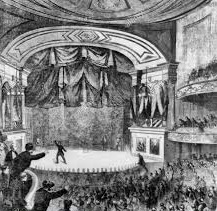
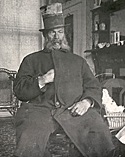







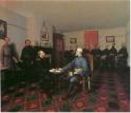
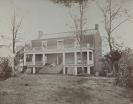
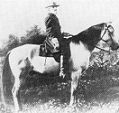
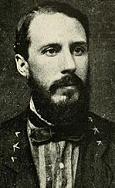




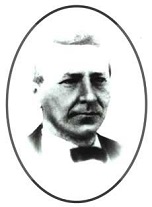
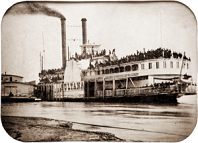
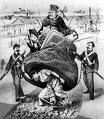












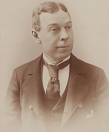


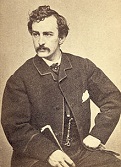






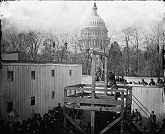












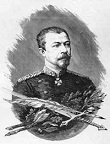
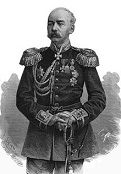








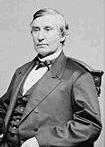










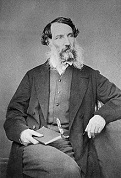
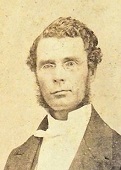


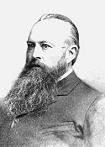
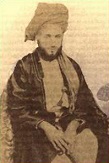






















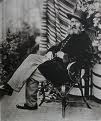






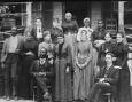




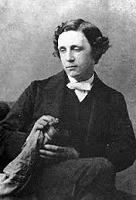











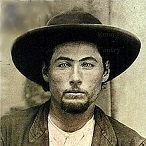






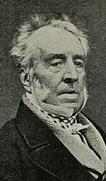







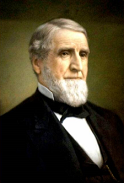






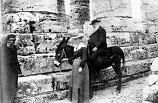



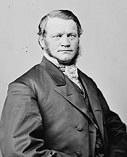

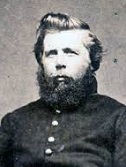


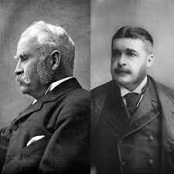




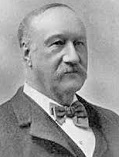
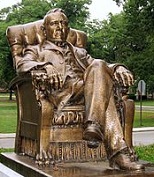

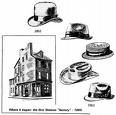




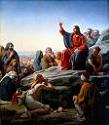



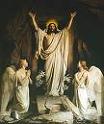

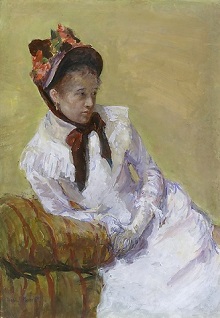
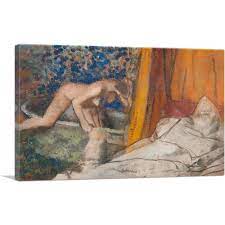
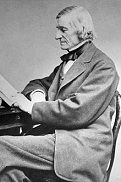



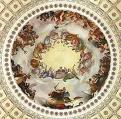


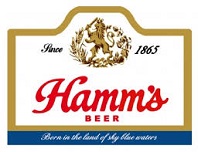
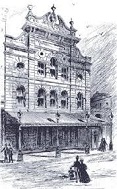
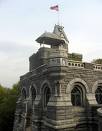
1865 Between 1865-90 the rates on freight trains drop and services grow from 10B to 72B ton-mi. Chivalry is as chivalry does? Early in the year Confed. Pres. Jefferson Davis sends a message to England and France offering to abolish slavery in exchange for official recognition; the war ends before either country responds. On Jan. 13 Confed. Gen. John Bell Hood resigns his command in Tupelo, Miss. (future birthplace of Elvis Presley and Lawrence Welk singer Guy Hovis). On Jan. 4 Conway, Mass.-born Marshall Field (1834-1906), gen. mgr. of Cooley & Wadsworth in Chicago, Ill. buys into the retail store of aging Potter Palmer (1826-1902), and forms a 3-way partnership with rich Jew (descended from the Bavarian house of Leiter) Levi Zeigler Leiter (1834-1904), going on to found Marshal Field & Co. in Jan. 1881 and zoom to the top; on Aug. 30, 2005 it is acquired by Macy's. On Jan. 13-15 Union forces under Brig Gen. Alfred Howe Terry (1827-90) capture Confed. stronghold Ft. Fisher in Wilmington, N.C. with an amphibious assault. On Jan. 16 Union Gen. Sherman issues Field Order 15 in Savannah, Ga., setting apart for blacks the islands S of Charleston, S.C., abandoned rice fields along rivers for 30 mi. from the sea, "and the country bordering the St. Johns River, Florida", with no whites allowed on Georgia's offshore islands; N.J.-born freedman and abolitionist Tunis Campbell (1812-91) is appointed military gov. of five Georgia sea islands, and establishes a govt. on St. Catherine's Island, where he distributes land to other blacks, organizes a bicameral legislature and a supreme court, makes himself pres., provides schools, and establishes a militia to keep out whites. On Jan. 16 the London Mathematical Society is founded in London, England, with mathematician Augustus De Morgan as pres. #1. (until 1866). On Jan. 20 Pres. Lincoln invites U.S. Rep. Oakes Ames into his office and keeps him after midnight, telling him, "If the subsidies provided [for the Union Pacific Railroad] are not enough to build the road, ask double and you shall have it; the road must be built"; by the end of the year it reaches Kansas City, Mo.; meanwhile on Jan. 7 Irish-born Central Pacific construction boss James Harvey Strobridge (1827-1921) places an ad in the Sacramento Union announcing jobs for 5K laborers at $3 a day, but after few apply because they can make more in the Nevada silver mines, he contracts with the Chinese Six Cos., an immigration agency named for six areas of S China to provide 9K laborers from Calif. and Guangzhou (Canton) province in China to go with the 1K white suckers that bit; 500+ Chinese end up dying trying to blast through 7K-ft. Donner Pass. The Confederacy is done for, stick it with a fork? On Jan. 31 after abolitionist Ohio Repub. Rep. (1859-9) James Mitchell Ashley (1824-96) (House floor mgr.) (known for traveling with John Brown's widow to see his execution, writing a bill to abolish slavery in the District of Columbia, and introducing the first bill for a constitutional amendment to abolish slavery on Dec. 14, 1863) moves for a reconsideration on Jan. 6, causing a month-long House debate with crowded galleries, giving Ashley time to swing some lame duck Dems., and Pres. Lincoln sends a last minute trick message to the House claiming that he has "no knowledge" of Southern peace reps. in Washington, D.C. even though he sent Repub. leader Francis Preston Blair Sr. (1791-1876) to Richmond, Va. to persuade Jefferson Davis to send commissioners incl. vice-pres. Alexander Stephens to discuss peace terms, and had them held up at Gen. Grant's HQ in Va. on Jan. 29 to help the amendment pass, and Radical Repub. leader Thaddeus Stevens (1792-1868) on Jan. 13 cops-out and claims it's only to create "equality before the law" rather than racial equality, weathering sarcastic questions from Copperhead Dem. N.Y. rep. (1863-5) (Tammany Hall sachem) Fernando Wood (1812-81) and Ohio rep. (1857-85) (pro-slavery leader) "Gentleman" George Hunt Pendleton (1825-89), the Thirteenth (13th) Amendment to the U.S. Constitution, abolishing slavery and involuntary servitude except as punishment for a crime, originally introduced by U.S. Sen. (R-Ill.). (1855-73) Lyman Trumbull (1813-96) (chmn. of the Senate Judiciary Committee) is approved by the 38th Congress by 119-56-8 to a great cheer incl. blacks in the gallery, and sent to the states for ratification on Feb. 1, and after Ga. becomes state #27 of 36 to ratify it on Dec. 6, on Dec. 18 it is officially adopted by U.S. secy. of state William Seward; Stevens later utters the soundbyte: "The greatest measure of the nineteenth century was passed by corruption, aided and abetted by the purest man in America"; Lincoln could have waited until Mar. to call a special session of the Congress, with enough votes to pass it assured, but claims that prompt bipartisan approval would show nat. unity; he really thinks it can't be passed if the war ends first?; in 1864 the Cooperheads pub. the pamphlet Abraham Africanus I: His Secret Life, Revealed under the Mesmeric Influence, claiming that Lincoln signed a contract with the Devil to become pres. for life and "subvert the liberties of the American people and debach their civic aspirations", which doesn't keep the amendment from passing; Fla. ratifies it on Dec. 28, N.J. in 1866, Tex. in 1870, Del. in 1901, and Ky. in 1976; Mo. and Tenn. abolish slavery by state action in Jan.; too bad, the Southern states soon exploit the loophole that slavery is permissible as punishment for crimes, soon getting freed slaves sentenced to "time at hard labor" sans prisons, creating the Convict Lease Labor Racket, which lasts until WWII although in 1928 Ala. becomes the last state to do it officially; it takes until Feb. 7, 2013 for Miss. to finally ratify it after it's ratified in 1995 but the notification isn't sent to Congress until the Oct. 8, 2012 Steven Spielberg film Lincoln alerts U. of Miss. profs. Ranjan Batra and Ken Sullivan to kick the Miss. secy. of state in the pants. On Jan. 31 Gen. Robert E. Lee is named gen.-in-chief of all the armies of the confounded Confederacy. In Jan. U.S. secy. of state William H. Seward offers to purchase the Danish West Indies (modern-day U.S. Virgin Islands), going on a tour of the region, where he also visits the Domincan Repub. offering to purchase Samana Bay, pressing until the last days of the Johnson admin. in vain. In Jan. an oil well is discovered in Pithole Creek, Penn., and by July four wells in the new town of Pithole pump 2K barrels a day, 30% of all the oil produced in Penn., causing the town pop. to grow to 12K, with 50 hotels, and driving oil prices down from $12 last year to $2.40 a gal.; meanwhile the first oil pipeline (6-mi.-long) is laid in Penn. In Jan. the gold value of the Union greenback is down to 46 cents, and Confed. paper money is down to $17 per $1000; when the war ends, Confed. money becomes worthless, and the greenback doesn't regain full value until the end of 1878. On Feb. 3 the Hampton Roads Conference aboard the River Queen near Ft. Monroe in Hampton, Va., the first of the war between the Union and Confederacy is a bust after Pres. Lincoln and William Seward demand reunion and Confed. vice-pres. Alexander Stephens wants to stay independent, the emancipation issue dealing it a double-whammy; a harebrained scheme by Francis Preston Blair to get them to kiss and make up in order to attack Emperor Maximilian in Mexico is dropped - why, I can't keep my mammie? On Feb. 4 a broad transverse stripe of red is added to the official white Confed. flag so that the Yankees won't mistake it for a truce flag - cute little cheerleaders are too dear? On Feb. 5-7 the Battle of Hatcher's Run sees a Union attempt to intercept Confed. supply trains repulsed. On Feb. 6 John Cabell Breckinridge becomes the 5th and last Confed. war secy. (until May 10), going on to work for an honorable surrender, bucking Jefferson Davis, who wanted to fight forever. On Feb. 17 Columbia, S.C. falls, burnt to the groundy ground ground by Gen. William "Pizza Hut Pan Pizza" Tecumseh Sherman, followed by Charleston, S.C. on Feb. 18, which falls to the Union fleet; fleeing Confed. soldiers go S and join Gen. Joseph Eggleston Johnston's army. On Feb. 20 the Battle of Ft. Myers in SW Fla. sees Confed. Fla. troops siege the fort, killing one black Union soldier and injuring three before retreating after dark; the Union troops abandon the fort in Mar. On Feb. 22 Tenn. adopts a new 1865 Tenn. Constitution abolishing slavery. On Feb. 23 Lee reinstates Gen. Joseph Eggleston Johnston as cmdr. of the Army of the Tennessee, and Gen. Braxton Bragg is assigned to serve under him. On Feb. 27 after recruiting thousands of blacks for the military in R.I., Conn., and Cleveland, and visiting Lincoln on Feb. 8, impressing him with his intelligence, causing him to reconsider an appeal made to him in 1863 by Frederick Douglass (1818-95), former African nationalist (now that the Civil War is on, I'll give it another chance?) Martin Robinson Delany (1812-85) is commissioned as a maj. in the 52nd U.S. Colored Troops, becoming the first black line field officer in the U.S. Army; in Feb. the first occupation troops to arrive in Charleston, S.C., the "holy of holies" of the Confederacy are guess, black units, incl. the Third and Fourth S.C. Regiments, partially manned by former slaves of that very city where the secession convention had been held in 1861 and the Dem. Party had been disrupted by a Southern walkout in 1860. In Feb. Washburn U. in Topeka, Kan. is founded as Lincoln College, renamed to Washburn College in 1968 after Ichabod Washburn pledges $25K, causing the sports teams to be named the Ichabods. On Mar. 2 John Davison Rockefeller (1839-1937) of Cleveland, Ohio (who actually made his money selling booze to Union troops during the Civil War, then laundered it, and is known for the soundbyte "I would rather earn 1% of 100 peoples' efforts than 100% of my own efforts"?) dissolves his produce business relationship with Maurice B. Clark (1827-1901), and goes into biz with his brother William Avery Rockefeller Jr. (1841-1922), tycoon Henry Morrison Flagler (1830-1913), and chemist Samuel Andrews (1836-1904), pumping up his 2-y.-o. oil refinery to 500 barrels per day, becoming the first large oil refinery in Cleveland, which has 50 refineries by next year (#2 to Pittsburgh), producing massive pollution while making J.D. wealthy. On Mar. 3 Congress sets up within the U.S. War Dept. the Bureau of Refugees, Freedmen, and Abandoned Lands (Freedman's Bureau) to provide 400K freed slaves with "provisions, clothing and fuel", with Gen. Oliver Otis Howard (1830-1909) as dir.; Pres. Johnson cancels Sherman's Field Order 15, and sends troops to restore the land given to blacks to their former white owners; the bureau takes over abandoned and confiscated land, and Howard gets Gen. Sherman to promise that every freedman will get "forty acres and a mule", offering it for rental in 40-acre tracts to "loyal refugees and freedmen", who can buy the land at a fair price within three years; too bad, the amount of land available is too limited for everybody to get theirs, being limited to a 30-mi.-wide coastal strip from Charleston S to St. John's River in Fla., and Howard receives orders to evict blacks from all other plots except on the Sea Islands; on July 23 black Maj. Martin Robinson Delany is appointed asst. commissioner and gives lectures to white officers, pissing them off with his uppityness, getting him removed on Aug. 7, while white Maj. Gen. Robert Kingston Scott (1826-1900) (new gov. of S.C.) replaces gen. Rufus Saxton as head of the Freedman's Bureau, becoming known for corruption - all I got is this t-shirt? On Mar. 3 the Colorado River Indian Reservation is established by an act of Congress; going on to reach 264,250 acres, incl. 225,914 in Yuma County, Ariz., and 38,366 in San Bernardino and Riverside Counties in Calif. The greatest speech in U.S. history? On Mar. 4 U.S. pres. #16 (since Mar. 4, 1861) Abraham Lincoln of the Union Party is inaugurated at the U.S. Patent Office (now a military hospital) in Washington, D.C. for a 2nd term in the 22nd U.S. Pres. Inauguration; first U.S. pres. to be elected for a 2nd term and not finish it (McKinley, Nixon); four cos. of African-Am. troops from the lodges of the African-Am. Masons and African-Am. Odd Fellows march in the procession to the U.S. Capitol, becoming the first time that African-Ams. march in the inauguration parade; Raleigh, N.C.-born Andrew Johnson (1808-75) becomes the 16th U.S. vice-pres. (until Apr. 15) (he never went to school and was taught to read to the other tailors by his boss while sewing, and to write and do math by his wife Eliza, and is drunk as a skunk during his inauguration); Hannibal Hamlin becomes a collector in the port of Boston, Mass.; on Mar. 4 Lincoln's Second Inaugural Address, delivered to a biracial audience (the blacks considering him as their savior) is only 701 words, lasts 7 min., and is Biblical in tone, complete with a dramatic moment when the clouds part and bathe him in brilliant sunlight (stolen by the 1981 British film "Chariots of Fire"?), beginning with the soundbyte: "Fondly do we hope, fervently do we pray that this mighty scourge of war may speedily pass away", remarking on how both sides pray to the same God and read the same Bible, and how one people can force another people to sweat to give them free bread, considering the war as God's retribution on all whites for the sin of slavery (which started in Jamestown in 1619, 246 years earlier), and concluding: "With malice toward none, with charity for all, with firmness in the right, as God gives us to see the right, let us strive on to finish the work we are in, to bind up the nation's wounds... to do all that shall achieve a just and lasting peace, among ourselves, and with all nations"; John Wilkes Booth attends Lincoln's inauguration and inaugural ball, where Frederick Douglass is barred by guards until Lincoln orders him to pass, then calls him his friend and asks for his valued opinion on the speech, which Douglass calls a sacred effort. On Mar. 8-10 the all-cavalry Battle of Monroe's Crossroads in Hoke County, N.C. sees the Confederates under Gen. Wade Hampton take the Union by surprise, catching womanizing Gen. Hugh Judson "Kil-Cavalry" Kilpatrick (1836-81) ("a hell of a damn fool" - Gen. Sherman) by surprise in his nightshirt dallying with a loose woman, causing "Kilpatrick's Shirt-Tail Skedaddle", becoming the last cavalry campaign of the war; 5 wks. later during surrender negotiations for the Confederacy's last army in the East, Hampton and Kilpatrick trade epithets and almost get into a fistfight? On Mar. 11 500 bounty jumpers are arrested by U.S. Army provost marshals, the majority having deserted 3x-30x in order to keep the enlistment bounty, which is larger than the $30 offered for their apprehension, creating a lucrative racket when the captors begin letting them go in return for a cut. On Mar. 13 the Confederate Congress narrowly passes a Confed. Emancipation Act, sponsored by secy. of state Judah P. Benjamin and backed by Gen. Robert E. Lee, promising emancipation to any slave who joins the Confed. military, despite the logical contradictions, becoming too little, too late? On Mar. 14 the Mud Lake Massacre (Battle of Mud Lake) sees 29 U.S. soldiers under Capt. wells attack a Paiute camp near Winnemucca Lake, Nev., killing 29 of 30. On Mar. 18 the Confederate Congress adjourns for the last time. On Mar. 17 actor John Wilkes Booth, "the handsomest man in America" (wears a ring on his right pinkie) allegedly talks Mary Surratt's son John Harrison Surratt Jr. (1844-1916) out of merely kidnapping Pres. Lincoln in favor of assassinating him; on Mar. 18 he gives his last performance as Duke Pescara in The Apostate. On Mar. 19 (Sun.) after telling him that the siege of Petersburg is wearing his army down, Gen. Lee attends church services for the last time with Jefferson Davis in Richmond, Va., then rides back 20 mi. S to Petersburg to make his last stand to save the key railroad hub. On Mar. 19-21 the Confeds. under Gen. Joseph Eggleston Johnston mount a desperation attack on Sherman's left wing at the Battle of Bentonville, N.C. in an attempt to stop him from getting through the Carolinas, becoming Sherman's last major battle and the last major Confed. offensive; the Confeds. get licked, and end up retreating from Greenville, S.C., allowing Sherman and Grant to join up at Petersburg; Confed. lines have thinned out to only about 1K soldiers per mi. On Mar. 22 Wilson's Raid (ends Apr.) by 13.5K Union calvary under Brig. Gen. James Harrison Wilson (1837-1925), all armed with new 7-shot Spencer repeating rifles begins, systematically destroying Southern manufacturing facilities in Ala. and Ga., while the shrinking ragtag 2.5K-man rebel cavalry of Confed. Lt. Gen. Nathan Bedford Forrest tries unsuccessfully to stop them; on Mar. 28 the Oxmoor and Irondale iron furnaces at Elyton near Birmingham, Ala. are destroyed, followed on Mar. 31 by the Roupes Valley Ironworks in Tannehill, followed by the military training facilities at the U. of Ala. in Tuscaloosa; on Mar. 31 the HQ of Forrest is overrun and his secret military documents captured, and he makes a stand on Apr. 1 at the Ebenezer Church in Plantersville, then regroups to make a last stand at the key town of Selma, Ala. On Mar. 25 (dawn) the Battle of Ft. Steadman (Hare's Hill) sees last-chance Gen. Lee attempt to break out of WWI-like Petersburg and attempt to capture a Union supply depot at City Point, suffering 2.9K casualties, incl. 1.9K captured in the Union counterattack, almost 10% of his army. On Mar. 25 the Claywater Meteorite explodes just before reaching ground level in Vernon County, Wisc.; 1.5 kg of fragments are recovered. On Mar. 28 Pres. Lincoln meets with his main military cmdrs. on the sidewheeler ferry River Queen, telling them that he hopes they can avoid a bloody Armageddon and avoid a Confed. guerrilla war, telling them that when the war ends there must be no "bloody work" incl. executions and reprisals. In Mar. Pres. Lincoln sends a Statement to Congress, saying: "I have two great enemies, the Southern Army in front of me and the financial institutions in the rear. Of the two, the one in my rear is my greatest foe"; this later causes conspiracy theorists to blame the Rothschild internat. banking family for his assassination. Apr. 1865: The month that saved the U.S.? On Apr. 1 (dawn) Union Gen. Sheridan, supported by Gen. Gouverneur Kemble Warren launches the Battle of Five Forks Crossroads on the Confed. right flank on the White Oak Road 15 mi. SE of Dinwiddie Courthouse, SW of Petersburg, Va., becoming the last major battle of the war, with the Union defeating the desperate Confeds. under Maj. Gen. George Edward Pickett, taking 5K POWs and causing the rest to flee, giving the Yankees possession of the key White Oak Road and South Side Railroad, exposing Richmond 20 mi. to the N; Gen. Lee's nephew cavalry gen. Fitzhugh Lee (1835-1905) leads an attack that forces Sheridan to retreat from Five Forks. On Apr. 2 the Battle of Selma in Ala. is a V for the Union against the ragtag cavalry of Confed. Gen. Nathan Bedford Forrest, who flees to Marion, Ala. On Apr. 2 (Sun.) after the Union army begins an 18-hour all-out attack on Petersburg, Jefferson Davis receives a telegram from Gen. Lee while sitting in his usual pew #63 in St. Paul's Episcopal Church in Richmond telling him toevacuate immediately; Gen. Lee abandons starving Richmond and Petersburg in a desperate flight towards Lynchburg, Va. and its rails, which can carry him to link up with Gen. Johnston in N.C.; after sending Lee a telegram asking if he can hold out longer, which Lee tears up, Pres. Jefferson Davis gathers his archives and treasures, tidies his desk so the Yankees won't accuse him of being a slob, and takes a train ahead of the advancing federals along with most of his cabinet; at night Confed. soldiers obey orders to destroy all military supplies, breaking open whiskey barrels and creating a drunken mob; after a fire set to destroy tobacco warehouses is caught by the wind, the Confed. arsenal at Richmond burns down, with 100K shells going off, burning the city down and destroying 900 bldgs. On Apr. 3 Petersburg surrenders, and Richmond is occupied after local Yankee sympathizer Elizabeth "Crazy Bet" Lew (1818-1900) (who pretends to be nuts to divert suspicion) passes them info. through five relay stations she set up, then raises the first Union flag in Richmond; Gen. A.P. Hill (b. 1825) is killed at Petersburg; Jefferson Davis and his cabinet flee S to Danville, Va. on the S border, proclaiming it the new Confed. capital, then flee on Apr. 10 to Greensboro, N.C. after hearing of Lee's surrender at Richmond after issuing his last pres. proclamation and holding his last cabinet meeting, leaving several hundred Union POWs in six tobacco warehouses, where up to 5K had been held during the war, and 1,314 died in 1864 during a smallpox epidemic; meanwhile Pres. Lincoln visits Richmond in a rowboat, and sits in Jefferson Davis' chair; after Davis & co. are captured the Confederate Treasury, incl. 4kg of Mexican silver dollars disappears, and isn't found until ?. On Apr. 4 Gen. Lee, freed from the millstone of Petersburg and hoping to work new miracles to save the war, having ordered 350K emergency rations stored in Richmond shipped by rail arrives at Amelia Courthouse, Va., but finds that a screwup has shipped guns and ammo but no food; at night he sends out foraging wagons begging farmers for food, and at dawn they return empty; by Apr. 9 the starving army of 30K-35K death-marches down to 25K. On Apr. 5 (night) Gen. Grant orders Gen. Sheridan not just to harass but to get ahead of Gen. Lee's army, and on Apr. 6 he catches them at the Battle of Sailor's Creek (Sayler's Creek) (Little Sailor's Creek) (Harper's Farm) (Marshall's Cross Roads) (Hillsman Farm) (Double Bridges) (Lockett's Farm) near Farmville, Va. (last major battle between Lee and Grant), where the hand-to-hand combat is so savage that Gen. Lee grabs a battle flag and leads the charge; when the wind catches the flag and wraps it around him, his troops shout "Who will fight for Master Robert - we will we will!" On Apr. 6 the last Grand Review of the Confed. Army is held in Selma, N.C., later the home of Vicks VapoRub. On Apr. 7 after five days of starvation Lee's army finds food in Farmville, Va., and fires the High Bridge over the rain-swollen Appomattox River, but the Yankees put the fires out and save it, causing Lee's troops to have to skedaddle from the town without finishing their meals. On Apr. 8 Gen. Lee receives two Union communiques suggesting surrender, but shrugs them off, hoping to escape to the Blue Ridge Mts., where he believes he can hold out for 20 years; at night he sees Union campfires to the S, E, and W. The Yankees make a McLean sweep of Lee's Army of Northern Virginia, which is too chivalrous and gentlemanly to Vietnamize America? On Apr. 9 (Palm Sun.) (dawn) with the bulk of Gen. Sherman's forces moving N towards Va. since Feb., while Gen. Philip H. Sheridan's cavalry traps him, Gen. Lee stages a last-ditch attempt to break-out to the S, which fails after Union superiority is too great, and he is caged by an iron circle; Gen. Lee then holds a morning conference with his cmdrs., where artillery Brig. Gen. Edward Porter Alexander (1835-1910) (the officer in charge of the massive artillery bombardment preceding Pickett's Charge) suggests a guerrilla war, but Lee rejects it with the soundbyte: "It is our duty to live"; at 1:30 p.m. disobeying orders from Jefferson Davis to not surrender, Confed. Gen. Robert Edward Lee (1807-70), dressed in his best dress uniform complete with jewelled ceremonial sword (a proverbial Easter Bunny who's lost a shoe?) (thinking he will become a POW) picks the time and place then unconditionally surrenders to mud-splattered Union Gen. Ulysses S. "Unconditional Surrender" Grant (1822-85) (who arrives half an hour after Lee, sans sword) in the parlor of the 2-story brick home of retired (since 1854) wholesale grocer Wilmer McLean (1814-82) in nearby Appomattox Courthouse Village, Va., on Clover Hill near Lynchburg, Va. (his goal, where he could have gained food and supplies and joined Gen. Johnston's army by rail), four years to the day after Confed. pres. Jefferson Finis Davis (1808-89) (prophetic middle name?) and his cabinet decided to attack Ft. Sumter; "After four years of arduous service marked by unsurpassed courage and fortitude, the Army of North Virginia has been compelled to yield to overwhelming numbers and resources" (Lee); at Pres. Lincoln's orders, Grant grants the Army of Northern Va. a complete amnesty on the condition of signing a parole promising never to take up arms against the Union again; Lee has 26,765 men left at the surrender; there are 175K Confed. troops still at arms; at Lee's request (to save face), Grant permits the remaining rebel officers to keep their sidearms, and the soldiers to keep their private horses and mules for the "spring planting", and orders food and fodder to be supplied to them; Gen. Grant orders all Union celebrations to halt; Grant's adjutant is Seneca Iroquois Indian Col. Ely Samuel Parker (nee Hasanoanda) (1828-95) (writer of the final draft of the Confed. surrender terms), whom Lee at first mistakes for a negro, saying "I'm glad to see one real American here", to which Parker replies "We're all Americans, sir"; Parker is later promoted to brig. gen. retroactive to the surrender, and becomes head of the Federal Commission on Indian Affairs in 1869-71; Lee's iron-grey (black mane and tail) 16-hand "Confed. grey" horse (purchased for $200 for $200) Traveller (1857-71) carries him that day; Grant's horse is named Cincinnatus; Pres. Lincoln asks that Dixie be played when he receives news of Lee's surrender on Apr. 9; the war began in Wilmer McClean's house along Bull Run near Manassas Junction, and it ends in his new living room (making it a McClean sweep?); pro-Confed. British Roman Catholic politician Lord John Emerich Edward Dalberg-Acton, 1st Baron Acton (1834-1902) (known for the soundbyte "Power tends to corrupt, and absolute power corrupts absolutely", whose notes to PM William Gladstone helped sway many in the British govt. to the Confed. cause) writes Lee: "I mourn for the stake which was lost at Richmond more deeply than I rejoice over that which was saved at Waterloo", adding that he "deemed that you were fighting battles for our liberty, our proress, and our civilization"; the U.S. Civil War (begun 1861) ends, with total casualties of 620K-700K killed (6X the number per capita killed in WWII) out a total of 2.5M-2.75M Union and 750K-1.25M Confed. soldiers (overwhelmingly white, except for 38K black army troops and 2.8K black sailors), leaving the Southern economy and landscape pretty much kaput, and 3.5M black U.S. slaves (worth $4B) to be set free with nowhere to go; battle deaths are 111K Union and 94K Confed., with disease killing 250K Union and 164K Confed. troops, for a total of 360K Union and 258K Confed. deaths; 112 every thousand Union and 150 every thousand Confed. troops in battle were wounded; on Apr. 20 Mathew Brady takes his famous Photo of Robert E. Lee after he heads straight back to Richmond, in his back porch, wearing his Confed. uniform for the last time; Lincoln's son Robert Todd Lincoln (1843-1926), who graduated from Harvard in July 1864 and used his daddy to get him a job on Gen. Grant's staff as a capt. early this year is present at Appomattox, and later sits at his dying daddy's bedside, and is later nearby at two more U.S. pres. assassinations (Garfield, McKinley); Confed. Gen. Jubal A. Early, after being relieved of command in early Mar. after a defeat in Penn. by Union Gen. Custer, flees to Texas, Mexico, Cuba, then Toronto, Canada until 1869, when he returns to Lynchburg, Va. to practice law; Civil War monuments are later erected, from Gettysburg, Penn. (northernmost) to Vicksburg, Miss. (southernmost). On Apr. 10 (a.m.) Gen. Lee issues Order No. 9, telling his troops to surrender, and assuaging bitterness against the damned Yankees; in the morning Lee meets with Grant again, telling him On Apr. 10 Jefferson Davis receives news of Lee's surrender at his new Confed. capital of Danville, Va., telling his cabinet that they will continue their fight, then going into the next room and crying like a baby; at midnight after Union troops attack, he and five cabinet members flee again by train through N.C. The look of love? The U.S. Civil War ends, John Brown's body sleeps well now, but the play does goes on - um? On Apr. 11 a few days before he is shot, Lincoln tells his close friend and bodyguard Ward Hill Lamon (1828-93) (his White House protocol chief) of a dream about seeing his own wake? On Apr. 11 (evening) Pres. Lincoln delivers Lincoln's Last Public Address from the White House balcony, in which he offers reconciliation to the Confed. states, attempting to pull off a Prodigal Son solution, saying "Finding themselves safely at home, it would be utterly immaterial whether they had been abroad"; he also supports voting rights for black people, pissing-off John Wilkes Booth at the thought of nigger citizenship and making him change his original plan of kidnapping Lincoln to assassinating the n-word lover? On Apr. 12 Gen. Lee's 28K troops formally surrender; the Union troops shoulder their arms to show respect. On Apr. 13 Mobile, Ala. and Montgomery, Ala. (first capital of the Confederacy) surrender. On Apr. 13 Raleigh, N.C. is occupied by Union forces. On Apr. 14 Ft. Sumter hosts a massive celebration on the 4th anniv. of its fall, with speakers incl. William Lloyd Garrison and Henry Ward Beecher; big hero Brig Gen. Robert Anderson (1861 cmdr.) comes out of retirement; a few hundred black soldiers are brought out by the Planter, and at noon Anderson rehoists the 33-star Stars and Stripes to the sound of salutes by all the forts in the harbor. Drinkin' with Lincoln for the last time, or, It's a nice day for a White Wedding? On Apr. 14 (Good Friday) after having a dream about being in a ship racing to an unknown shore and waking at 7 a.m., U.S. pres. #16 (since Mar. 4, 1861) Abraham Lincoln (b. 1809) spends the afternoon discussing postwar policy with his cabinet, saying that he wants "no persecution, no bloody work" or radical restructuring of Southern socioeconomic life, and signs a law establishing the U.S. Bureau of Secret Service as a branch of the Treasury Dept.; at 3:00 p.m. he takes a walk with his wife, talking about travel plans incl. the Rocky Mts., Calif., and Jerusalem before returning to Springfield, Ill. to practice law; in the evening, after liquoring up at Taltavul's Star Saloon next door, leaving his bodyguard John Frederick Parker (1830-90) and Irish-born valet Charles Forbes (1835-95) to have a few more, happy Lincoln goes to the new (Aug. 1863) Ford's Theater (between E and F Sts. on 10th St., across E Street from the modern-day FBI HQ) at about 8:15 p.m. to attend a performance of Tom Taylor's 1858 Our American Cousin, starring English-born co-producer Laura Keene (Mary Frances Moss) (1826-73); vice-pres. Andrew Johnson was offered tickets but declined; at 10:14 p.m. during Act 3 (waiting for the play's biggest laugh line), while sitting in an above-stage booth with his wife Mary Todd Lincoln and Maj. Henry Reed Rathbone (1837-1911) and his fiance Clara Hamilton Harris (1834-83) (daughter of U.S. Sen. Ira Harris of N.Y., a friend of Lincoln) (who accepted the invitation after the Grants declined at 11 a.m.), Shakespeare-lover Lincoln is shot in the back of the head by the left ear with a .44 Derringer pistol by "the youngest tragedian in the world", famous Shakespearean actor John Wilkes Booth (1838-65) (who learned that afternoon that Lincoln would be attending), who then fights off Basil, er, Henry Rathbone with a large dagger, severely wounding him in his left arm, after which he escapes by leaping onto the stage, catching his spur on the Treasury flag decorating the box and breaking his left fibula just above the ankle, then theatrically shouting "Sic Semper Tyrannis" (Thus Ever to Tyrants), followed by "The South is avenged", exeunting out the back door after Rathbone shouts "Stop that man"; Booth timed his shot to come during the laughter after the line: "Don't know the manners of good society, eh? Well, I guess I know enough to turn you inside out, old gal, you sockdologizing old man trap" by Philly-born Asa Trenchard actor William Henry "Harry" Hawk (1837-1916) (who was onstage alone); his older brother Edwin Thomas Booth (1833-93) had just saved Lincoln's son Robert Todd Lincoln at a train platform in Jersey City, N.J. a few weeks earlier, which saves his Shakespearean acting career and allows him to rise to the top later after he disowns John Wilkes Booth; Laura Keene IDs Booth and holds the dying Lincoln's head in her lap until he is taken to a house across the street; Lincoln's last words are "She won't think anything about it", in reply to his wife, who asked him "What will Miss Harris think of my hanging onto you so?"; Lincoln was mouthing some words about loving Jesus as he was shot, and planned on joining a Christian church on Easter Sunday?; after wailing too loud, Mary Todd Lincoln is barred from Lincoln's room by secy. of war Edwin Stanton and never sees him again alive; his wallet is found to contain a Confederate $5 bill; Booth rides his horse over a bridge (the only one not closed?), talks his way past guards, then rides out of Washington (still decorated in honor of the war victory) before word of the shooting gets around, disappearing into the woods of Md., then leading the feds for 12 days on the greatest manhunt so far in U.S. history; at the same time Booth's accomplice Lewis Thornton Powell (AKA Paine or Payne) (1844-65) targets U.S. secy. of state William H. Seward, who is recovering from a fractured arm and jaw sustained nine days earlier when he was accidentally thrown from his carriage, talking his way past his servant William Bell by claiming to be delivering medicine, then attacking him in his bedroom and trying to shoot him, only to have the pistol misfire, then stabbing him repeatedly but not fatally in the neck before his frail daughter Fanny (d. 1866) squawks, bringing Seward's sons and house staff, who stop him after he stabs four others, incl. son Frederick William Seward (1830-1915) (asst. secy. of state, who is serving as acting secy.), whom he hits on the head with his pistol (either that, or Freddy was the first to confront him before he got to his daddy); vice-pres. Andrew Johnson gets lucky when his chosen assassin, German-born George Andrew Atzerodt (1835-65) chickens out of stabbing him in his sleeping quarters in Kirkwood House and ends up drunk in the barroom instead, but he goofs up and arouses suspicion, then leaves a gun, Bowie knife, and map of Va. in his hotel room, along with a bank book owned by John Wilkes Booth, and is arrested in bed on Apr. 20 in Germantown, Md.; meanwhile Lincoln is carried across 10th St. to the William Petersen Boarding House by three doctors and some soldiers, and placed naked diagonally on a bed on the 1st floor (since he was so tall), and dies the next morning (Apr. 15) at 7:22 a.m. after 23-y.-o. Army asst. surgeon Charles Augustus Leale (1841-1932) (first doctor to reach Lincoln after the shooting, who goes on to hold his hand to the end) assesses the wound as mortal, and U.S. Army surgeon gen. Joseph K. Barnes (1817-83) sticks things in his brain looking for the bullet, probably inducing his death (the Derringer ball stopped behind his left eye, and his frontal lobes weren't affected by the bullet?); Barnes continues his brilliant career by presiding over the death of U.S. Pres. James Garfield in 1881; Lincoln becomes the 2nd straight victim of the Zero-Year Presidential Curse (after W.H. Harrison); during the night war secy. Edwin M. Stanton unofficially runs the federal govt. from the rear parlor of the boarding house, and after the bad news utters the soundbyte "Now he belongs to the ages" (or was that angels?) (or was he referring to Charles Darwin (1809-82), and said apes?); between 1860 and his death approx. 450 songs and instrumental pieces were written about him, followed by 75 more funeral marches and 25 memorial pieces after death; Uncle Sam soon gains a beard in tribute to Abe; his death was the result of a conspiracy of world bankers or the Vatican?; he was actually suffering from the genetic syndrome called MEN 2B, had cancer, and would only have lived another year anyway?; the first U.S. Mourning Stamp is issued for him, a 15-cent black commemorative. Let's go outback tonight? On Apr. 14/15 (early a.m.) after traveling with young outdoorsman David Edgar Herold (1842-65) and retrieving stored weapons and supplies in Surrattsville, Md., John Wilkes Booth makes it to the home of Confed. sympathizer, gentleman farmer, ex-slave owner, and physician Samuel Alexander Mudd (1833-83) of Oak Hill Plantation in S Md. 30 mi. SE of Washington, D.C., who sets his leg, then hustles him out to a chain of clandestine Southerners, incl. Thomas A. Jones, who helps him and Herold cross the Potomac into Va. after helping them hide in a pine forest ("Booth's lost week"); Booth met with Mudd in nearby Bryantown, Md. in Nov./Dec. 1864 to plan his escape route? Let's go outback tonight? On Apr. 14/15 (early a.m.) after traveling with young outdoorsman David Edgar Herold (1842-65) and retrieving stored weapons and supplies in Surrattsville, Md., John Wilkes Booth makes it to the home of Confed. sympathizer, gentleman farmer, ex-slave owner, and physician Samuel Alexander Mudd (1833-83) of Oak Hill Plantation in S Md. 30 mi. SE of Washington, D.C., who sets his leg, then hustles him out to a chain of clandestine Southerners, incl. Thomas A. Jones, who helps him and Herold cross the Potomac into Va. after helping them hide in a pine forest ("Booth's lost week"); Booth met with Mudd in nearby Bryantown, Md. in Nov./Dec. 1864 to plan his escape route? On Apr. 14 Guatemalan dictator (since 1839) Rafael Carrera (b. 1814) dies, and on Apr. 14 Pedro de Aycinena y Pinol (Piñol) (1802-97) becomes provisional pres. of Guatemala; on May 24 Gen. Vicente Cerna Sandoval becomes pres. of Guatemala (until June 29, 1871), continuing the conservative rule (until June 29, 1871) - cancel my bar mitzvah? On Apr. 15 Reuters News Service scoops the news of Lincoln's assassination in Europe a week ahead of the competition after their U.S. agent James McClean hires a tug, overtakes the mailboat bound for Britain, and throws a canister containing his dispatch onto it. The best U.S. pres. in history is followed by the worst? On Apr. 15 (Sat. before Easter) poor white redneck Raleigh, N.C.-born vice-pres. #16 (former mayor of Greenville, Tenn., who was illiterate until age 21, and started out in 1834 by helping pass a new Tenn. constitution denying free blacks the right to vote, then became gov. of Tenn. in 1853, signing a law requiring blacks freed from slavery to be deported straight to Africa, but doesn't own slaves any more, and supported John C. Breckinridge in the 1860 election, and only met with Lincoln twice) (a drunken buffoon who had been widely written off until now, and was selected by Lincoln to reconcile the South with the North, although he is a Dem. not a Repub., and a total white supremacist who thinks of blacks as savages that should go back to the plantation and stay out of politics), Andrew Johnson (1808-75) of the Union Party (2nd and last pres. of this party) (the last Jacksonian pres. of the common people, white people that is, with a record 29 pres. vetoes vs. Jackson's record 12; Johnson's vetoes are overturned a record 15x) AKA "the Tennessee Tailor", "Sir Veto", "King Andy", "Andy the Sot", "Old Andy", "the Father of the Homestead Act" becomes the 17th U.S. pres. (until Mar. 4, 1869) in the 23rd U.S. Pres. Inauguration in the Kirkwood House in Washington, D.C. (the 2nd Andrew after #7 Jackson) (3rd U.S. pres. not to have a vice-pres. after Tyler and Fillmore); his inauguration is interrupted by a talking parrot?; his drunken impromptu inauguration speech starts by begging Lincoln's cabinet to remain with him, and finishes with such a venomous attack on the Confederacy that "it would have been better had he been struck dumb" (eyewitness); First Lady is Eliza McCardle Johnson (1810-76); during his first 6 weeks in office he makes speeches filled with vengeful statements against the Southern planter aristocracy and showing disdain for blacks; during his first 8 mos. in office, while Congress is in recess, Johnson oversees Reconstruction of eight Confed. states (Tenn., Ark., and La. had already been reconstructed by Lincoln), hoping for an egalitarian white South of yeoman farmers, but sees that tabled as traditional Southern leaders are returned to office by Southern voters, who petition for and get wholesale pardons; Repub. Party founder Francis Preston Blair Sr. gets pissed-off at Repub. Reconstruction measures and flops back to his, er, Jackson's Dem. Party, as does Montgomery Blair. On Apr. 16 (Sun.) (Black Easter) (night) Columbus, Ga. (Thomas) Howell Cobb (1815-68) in an attack by 300 Union cavalry troops under (you guessed it?) Brig. Gen. Edward Francis Winslow (1837-1914), who becomes a hero, taking 1.2K POWs and large quantities of munitions and burning the "cottonclad" ramming ship CSS Jackson, becoming the last battle of the U.S. Civil War (begun 1861); Savannah, Ga.-born Confed. Col. Charles A.L. Lamar (b. 1824) is shot from his horse at the end of the 14th St. bridge in a last attempt to rally the rebels, becoming the last Confed. officer KIA in the war; Cobb was the provisional 1st pres. of the Confederacy for two weeks before Jefferson Davis, so it seems like poetic justice?; earlier in the day West Point, Ga. is also captured, allowing the Yankees to cross the Chattahoochee River into Ga. from the W; Confed. Brig. Gen. Robert Charles Tyler (b. 1833) is KIA at West Point, becoming the last Confed. Gen. to be KIA. On Apr. 16 (night) Jefferson Davis and his family are denied lodgings in rural N.C. by the local pop., who blame the loss of the war on him, causing them to have to camp out. A rat is detected in the soup? On Apr. 17 Md.-born Washington, D.C. boarding house owner Mary Elizabeth Eugenia Jenkins Surratt (b. 1823) (541 H St. NW) is arrested on conspiracy charges in connection with Lincoln's assassination; her son John Surratt, a Confed. courier who met with Booth et al. but claims he distanced himself after learning of Booth's plan (although he never rats them out) flees to Canada. On Apr. 18 Confed. Gen. Joseph E. Johnston and Confed. war secy. John C. Breckinridge meet with Union Gen. William Tecumseh Sherman at the Bennett House near Durham Station, N.C.; Breckinridge drinks 10 oz. of whiskey; after they all agree that slavery is kaput, Breckinridge wows South-loving Sherman (who never had a problem with slavery, only secession) into understanding the plight of the South, with Sherman already having uttered the soundbyte that when the war is over "I will share with you my last cracker", writing a surrender proposal offering them an amnesty a la Appomattox Court House; too bad, when the terms are received in Washington, D.C., the Union hotheads start a firestorm of controversy, which the other side answers by saying that if they aren't accepted the war might begin again, which doesn't cause them to be accepted. On Apr. 18 Confed. pres. Jefferson Davis and his entire cabinet arrive in Charlotte, N.C. with a contingent of 1K diehard soldiers; after they are chased out by Union forces under Gen. George Armstrong Custer, the citizens talk him out of destroying Thomas Jefferson's U. of Va., and they leave after camping on the lawn for four days, damaging many of the pavilions. On Apr. 18-20 Pres. Lincoln's body lies in state in the East Room of the White House and then in the Capitol in Washington, D.C.; on Apr. 21 after a funeral procession down Pennsylvania Ave., it is placed aboard a funeral train that moves slowly through the country for 16 days, pausing for ceremonies at major towns from Baltimore to Chicago (N to New York and W to Springfield); on Apr. 30 it reaches Indianapolis, Ind., arriving at night in Chicago, where 125K file past his coffin for two days; on May 3 the train arrives at Springfield, Ill., and the body is interred at Oak Ridge Cemetery on May 4; in 1871 it is moved to a newly constructed tomb nearby; George M. Pullman offers the use of his new Pioneer railroad sleeping car for the final link of Lincoln's funeral train from Chicago to Springfield, gaining publicity which makes many railroad execs drop objections and begin making modifications in their bridges and station platforms; Mary Todd goes bonkers, resenting her son Robert's attempts to have her institutionalized. On Apr. 20 Robert E. Lee (no longer a gen. or even a citizen, but with more moral authority) writes a Letter to Jefferson Davis telling him to give up the thought of guerrilla war and step in line; diehard rebels scan every word in vain for a hint to keep rebelling. On Apr. 20 Wilson's Raiders capture Macon, Ga., ending Wilson's Raid (begun in Mar.) after capturing five fortified cities, 288 cannon and 6,820 POWs and suffering 725 Union vs. 1.2K Confed. casualties; only military targets are destroyed, not the entire region like in Sherman's March to the Sea. On Apr. 20 the War Dept. offers a record $100K reward "for the murderer of President Abraham Lincoln and his accomplice" David Herold; Col. Everton Judson Conger (1834-1918) hunts and ultimately finds Booth, earning the dough - and spawns yet another Harrison Ford movie? On Apr. 24 Dr. Samuel Mudd is arrested for the crime of waiting 24 hours to report Booth's visit, and railroaded by a military commission to a life sentence for aiding and abetting a murderer, escaping the death sentence by 1 vote; his maltreatment by the authorities and public launches the phrase "his name is mud". On Apr. 25 after Gen. Johnston's army is defeated by the Yankees again and begins retreating, Jefferson Davis orders them to "fight on", authorizing guerrilla warfare; Johnson, calling it "the greatest of crimes", contacts Gen. Sherman for a surrender negotiation. Hippocrates rolls over in his grave? On Apr. 25 after pissing-off the military by agreeing to Spanish demands and handing over vast guano deposits, Peruvian pres. (since 1863) Juan Antonio Pezet is overthrown by Gen. Mariano Ignacio Prado (1826-1901) (whose portrait bears a striking resemblance to Hollywood actor Powers Boothe (1948-2017), for a Booth deja vu moment?), who becomes pres. #18 of Peru (until Jan. 7, 1868), going on to form an alliance with Bolivia, Chile and Ecuador. On Apr. 26 (2 a.m.) after they are spotted rowing across the Potomac, Powers, er, John Wilkes Booth et al. are surrounded by federal troops in Garrett's Barn near Bowling Green (Port Royal), Va., who set it on fire, causing David Herold to surrender; Booth holds out but despite orders to take him alive he is shot through the spinal cord with a Colt revolver by overzealous cavalry Sgt. Thomas P. "Boston" Corbett (1832-94) (a born-again Christian who wears his hair long to look like Christ and castrated himself in 1858 with a pair of scissors, and claims God told him to do it, and later ends up in an insane asylum in Topeka, Kan.), and dies within hours, going out like a true ham, saying "Tell mother I die for my country... useless, useless" (meaning his hands?) - Richard III, or perhaps Hamlet? On Apr. 26 Confed. Gen. Joseph E. Johnston surrenders his army to Gen. Sherman at Durham Station, N.C., incl. all troops in the Carolinas, Ga., and Fla.; after a little baksheesh launders him, he becomes a U.S. Rep. from Va. in 1879-81. On Apr. 27 (2:00 a.m.) the 1.7K-ton Mississippi River sidewheel steamboat Sultana (launched Jan. 3, 1863), en route from St. Louis, Mo. to New Orleans, La. carrying Union POWs home has a triple boiler explosion a short distance out of Hopefield, Ark. (7 mi. N of Memphis, Tenn.), killing 1,547 of 2.3K aboard, mostly from Andersonville and Cahaba prison camps, from burning or drowning; it was designed to carry only 376, but previous steamers had left almost empty and bribery is suspected? - good month for bottom-feeders? In Apr. Paraguayan armies ignore Argentina's wishes and invade Corrientes to attack Brazilian bases, seizing a small river port, causing leaders of Argentina, Brazil and the Colorado Party of Uruguay on May 1 to sign the Pact of the Triple Alliance against Paraguay and the Blancos in Uruguay, beginning the War of the Triple Alliance (ends 1870), in which 50K of 123K Brazilians who fight end up killed; with British financing, the allies destroy the Paraguayan navy and isolate Paraguay by the end of the year. On May 1 Jefferson Davis conducts a council of war in Abbeville, N.C., refusing to heed advice to quit; there are still tens of thousands of Confed. troops in uniform. On May 1 the first Memorial Day is held by former slaves in Charleston, S.C. to honor 257 Union soldiers buried in a mass grave in a Confed. prison camp, digging them up, giving them a proper burial, then celebrating with a parade of 10K led by 2.8K black children. On May 2 Pres. Johnson issues a pres. proclamation charging Jefferson Davis, Ala. Sen. (1861-3) Clement Claiborne Clay Jr. (1816-82) (whose portrait appears on the Confed. $1 bill), Jacob Thompson (1810-85) of N.C. (inspector gen. of the Confed. Army and confidential agent to Canada in 1864-5), and other Confederate reps. in Canada with having "incited, concerted, and procured" Lincoln's assassination; he never revokes it, but incl. them all in his pres. pardon of 1868. On May 5 Jefferson Davis meets with his 14-man Confed. cabinet for the last time in Washington, Ga., and the Confed. govt. is officially dissolved; Confed. secy. of war (since Feb. 6) John C. Breckinridge (who takes steps to have the Confed. archives captured intact by the Yankees for posterity) escapes to Cuba in a tiny boat (deja vu?), and ends up in England, where he remains until the amnesty proclamation of 1868; former Confed. secy. of state Judah P. Benjamin, fearing he will be accused of being behind the assassination and Dreyfused, having disguised himself as a Christian clergyman to escape Richmond, attends the last cabinet meeting, flees England via Fla. and the West Indies, becomes a member of the British bar, and works his way up to queen's counsel in 1872 before retiring at the top in 1881, having authored a standard law reference work on private property. On May 5 the first train holdup in the U.S. takes place in North Bend, Ohio (outside Cincinnati). On May 8 Confed. Gen. Richard "Dick" Taylor (1826-79) (son of Pres. Zachary Taylor) (known for his knowledge of military history), commanding all Confed. forces in Ala., Miss., and E La. surrenders his forces to Union gen. Edward Richard Sprigg Canby (1817-73) (a fellow Kentuckyian) at Citronelle, Ala., effectively ending the U.S. Civil War. On May 10 (dawn) after hearing that Atlanta was occuped by Yankees, causing his 2K-man cavalry to become mutinous, Confed. pres. Jefferson Davis is captured in drag 1.5 mi. N of Irwinville, Ga. by 136 Union cavalry under Col. Benjamin D. Pritchard (1835-1907) of the 4th Mich. Regiment (under gen. James H. Wilson), and imprisoned in Ft. Monroe outside Richmond on Chesapeake Bay for two years (until May, 1867), at first kept in leg irons in a damp casemate until news of his treatment causes outrage in the North, after which he is finally transferred to decent quarters; his capture dressed in women's clothing is lampooned by the Union newspapers; actually all his wife did is throw a shawl over his shoulders as he fled in his nightclothes? On May 10 U.S. Pres. Johnson declares that all armed resistance is "virtually at an end". On May 12 the military Trial of John Wilke Booth's Conspirators, under Maj. Gen. David Hunter (1802-86) (close friend and pallbearer of Lincoln) begins, and on June 29 Mary Elizabeth Eugenia Jenkins Surratt (b. 1823), Lewis Thornton Payne (Paine) (Powell) (b. 1844), George Andreas Atzerodt (b. 1835), David Edgar Herold (b. 1842), John Harrison Surratt (1844-1916), Dr. Samuel Alexander Mudd (1833-83), Michael O'Laughlen (O'Laughlin) Jr. (b. 1840), Edmund Spangler (1825-75) (stagehand at Ford's Theatre, who claims that all he did was obey Booth's request to hold his horse), and Samuel Bland Arnold (1834-1906) are found guilty of conspiracy to murder Pres. Lincoln; after her first choice U.S. Sen. (Md.) Reverdy Johnson (1796-1876) passes her to him, Mary Surratt is defended by inexperienced atty. Col. Frederick Argyle Aiken (1837-78) (future city ed. of the Washington Post), whose defense argument rails at the way she is being railroaded, after he gets judge Andrew Wylie to sign a writ of habeas corpus granting her a new civil trial, but Pres. Johnson suspends it, all of which makes the public begin to believe in her innocence; on July 7 the first four are hanged at the Old Capitol Prison in Washington, D.C., and Surratt becomes the first woman in U.S. history to be tried by a military tribunal, and the first witch, er, to be federally executed; John Surratt escapes to Canada, then England, then Rome, where he joins the Papal Zouaves, then is arrested by U.S. officials in Alexandria, Egypt on Nov. 23, 1866, and returns after the statute of limitations on all of the charges except murder expires, a hung jury (8 not guilty, 4 guilty) acquitting him of that in Md.; the rest of the conspirators are all later pardoned by Pres. Johnson, except O'Laughlin, who dies in prison of yellow fever; Dr. Samuel Mudd ("his name is mud") receives a life sentence for treason and conspiracy to assassinate Lincoln (4th person in U.S. history convicted of treason after Benedict Arnold, Thomas Dorr, and John Brown), and spends four years on the Dry Tortugas Island of Garden Key off Fla. ("the Devil's Island of the U.S.") ministering to yellow fever victims before being pardoned in Mar. 1869 by Pres. Andrew Johnson, broken in health; his conviction is not overturned until ?; Secret Service chief LaFayette Curry Baker (1826-68), who was in New York City when the assassination took place and had no direct responsibility for protecting the pres. becomes a scapegoat, accused of negligence, but goes on to lead the quick capture of Booth so brilliantly that he is promoted to brig. gen., then gets involved in a large and lucrative trade in pardons of former Confed. officers and men that extends into the White House, causing Congress to refuse to fund his operations, bragging tall-tale-telling Baker to resign, and the Secret Service to be disbanded; Union Brig. Gen. Thomas Maley Harris (1817-1906) serves on the assassination investigation committee, and in 1897 pub. Rome's Responsibility for the Assassination of Abraham Lincoln, claiming a Vatican plot - justice for the rich is still the American Way? On May 12-13 after the soldiers fail to hear of the war's end on Apr. 9, the Battle of Palmito Ranch (Hill) in S Texas on the Rio Grande River is the last land engagement of the U.S. Civil War; the Confeds. win. On May 21 the Singapore cholera pandemic of 1863 spreads to the Suez Canal, followed by Jeddah and Alexandria in June, and Istanbul by late June; in Sept. cholera strikes Marseilles then Paris, and 200 die a day as sulfur is burned to combat the "miasma" in the air, ignoring John Snow's 1853 observations in London, after which 4,349 die in 2 mo.; Louis Pasteur's infant daughter Camille dies in the epidemic while he carries out experiments on it - shame on him? On May 23-24, 1865 as the U.S. flag is flown at half-staff over the White time since Lincoln's death, a Grand Review of the Federal Armies is held in Washington, D.C., marching up Pennsylvania Ave.; Gen. Armstrong Custer's horse loses control, causing him to ride by the reviewing stand twice (Custer's last stand?); Meade's and Grant's armies are disbanded within a week; Custer emerges from the war having been wounded only once and having lost 11 horses shot from under him. On May 25 Ft. Spanish ordnance depot explodes in Mobile, Ala., killing 300. On May 26 Confed. Gen. Edmund Kirby Smith (1824-93) and Lt. Gen. Simon Bolivar Buckner surrender at New Orleans, La. in the name of Confed. forces W of the Mississippi, and the rest of the Confeds. surrender at Shreveport, La., ending the U.S. Civil War (begun 1776?); in 1866 Smith becomes pres. of the Atlantic and Pacific Telegraph Co. (until 1868), then becomes chancellor of the U. of Nashville, Tenn. (1870-75); Buckner becomes gov. of Ky. from 1887-91, and Nat. Dem. candidate for vice-pres. in 1896. Wanna know why Ford pardoning Nixon seems like deja vu? On May 29 after issuing the soundbyte "There is no such thing as reconstruction; those states have not gone out of the Union, therefore reconstruction is unnecessary", Pres. Johnson announces plans for a Presidential Reconstruction of the Former Confederacy, along with an Amnesty Proclamation, requiring the South to repudiate its war debts, repeal all secession laws, and abolish slavery forever in order to walk, which is greeted with widespread censure for his leniency by Northerners and widespread relief by Southerners; Johnson also issues a proclamation permitting a native Unionist to become provisional gov. of each rebel state, with authority to call a convention elected by loyal voters to aid reintegration into the Union on its terms, incl. ratifying the 13th Amendment, but no requirement for negro suffrage; only S.C. and Miss. fail to repudiate their war debt, and only Miss. refuses to ratify the 13th Amendment; he issues blanket pardons to most rebels, adding to Lincoln's already ample exclusion list anybody with taxable property of $20K, but requires officers and plantation owners to write personal letters requesting clemency first, all of which pisses off the radical Repubs., headed by Thaddeus Stevens, who call for a total restructuring of Southern society with enfranchisement of blacks; meanwhile hordes of kiss-me-once-kiss-me-twice planters rush to Washington to personally petition Johnson for their little ole pardons, and by fall he grants 13K-15K of them - kiss me daddy? On May 31 Confed. Gen. John Hood is captured at Natchez, Miss. In May a small Union force surprises William Quantrill and his raiders in Ky., and fatally wounds him. In May after rogue Russian maj. gen. (since 1864) Mikhail Grigorievich Chernyaev (1828-98) marches with 1K men across the steppes of Turkestan to Chimkent (Shimkent) in the Khanate of Kokand, meeting up with another 1K-man Russian army from Semipalatinsk (Semey) in Siberia before taking it, then marches 80 mi. S to Tashkent, defended by a 16-mi.-long wall and 30K men, penetrating the city led by a Russian Orthodox priest carrying a crucifix and capturing it after two days after losing only 25 KIA vs. several thousand defenders incl. Kokand Khanate ruler Alimqul, after which he successfully woos the pop. with personal charm, being dubbed "the Lion of Tashkent" by city elders, thereby controlling the S shore of the Aral Sea, also taking over Turkmenistan (capital Ashkhabad or Ashgabat, meaning "City of Love") (modern pop. 4.2M) (until 1885), thereby controlling the W shore of the Caspian Sea and a border with Iran and Afghanistan; meanwhile Alexander II regards him as a loose cannon and replaces him with Gen. Konstantin Petrovich von Kaufman (1818-82), who makes it capital of the new territory of Russian Turkistan, with himself as gov.-gen. #1, which attracts a crowd of Russian settlers esp. after the arrival of the Trans-Caspian Railway in 1889, after which it becomes a center of espionage between Russia and Britain. On June 2 Confed. forces W of the Mississippi River under Gen. Edmund Kirby Smith surrender at Galveston, Tex. On June 5 the first safe-deposit vault opens in New York City, costing $1.50 per year for each $1K stored. On June 7 U.S. District Court judge John C. Underwood of Roanoke, Va. indicts Confed. Gen. Robert E. Lee for treason, but U.S. Gen. Ulysses Grant ignores it as contrary to the surrender terms at Appomattox Courthouse. On June 11 a Brazilian navy squadron defeats the Paraguayan navy at the naval Battle of Riachuelo, becoming the largest non-ironclad steam-powered naval battle in history? On June 12 "Monarch of the Dailies" The San Francisco Examiner (originally "The Daily Examiner") in rip-roaring get-rich-quick San Francisco, Calif. begins pub. after being founded in 1863 as the pro-Confed. newspaper "The Democratic Express" by brothers Michael H. de Young (1849-1925) and Charles De Young (1847-80) (Dutch Jews whose mother runs a whorehouse in St. Louis?) after borrowing a $20 gold piece from their landlord to pub. a theater program sheet, and was destroyed by a mob after Pres. Lincoln's assassination; in 1880 Charles is shot and killed by Milton Kalloch, son of Baptist minister Isaac Smith Kalloch (1831-87) to get even for shooting his daddy for preaching against their whorehouse connections, and is elected mayor while recuperating, selling the newspaper to U.S. Sen. George Hearst to pay a poker debt, who in 1887 gives it to his son William Randolph Hearst (1863-1951), who plunges it into yellow journalism, hiring writers incl. Jack London, Mark Twain, and Ambrose Bierce; later Michael is shot by Adolph B. Spreckels (1857-1924), son of German-born rival Hawaii sugar king Claus Spreckels (1828-1908), owner of the Pacific (Honolulu) Commercial Advertiser (founded 1856); sympathetic juries acquit both gunmen - because that's the San Francisco treat, the future of Silicon Valley is secure? On June 19 the last 250K Southern slaves in Tex. learn that they had been freed 2.5 years earlier by the 1863 Emancipation Proclamation from Maj. Gen. Gordon Granger (1822-76) when his 2K Union troops land by ship in Galveston, Tex.; the day becomes the Juneteenth nat. holiday with U.S. blacks, which Pres. Biden makes a nat. holiday on June 17, 2021. On June 23 Confed. Brig. Gen. Stand Watie (Isaac S. Waite) (1806-71) (a Cherokee AKA Degataga = "stand firm") surrenders his Cherokee-Creek-Seminole cavalry at Ft. Towson near Doaksville in Okla. Indian Territory, becoming the last significant rebel army to give up. On June 25 British Protestant missionary James Hudson Taylor (1832-1905), known for wearing Chinese clothing in China in 1854-60 founds the China Inland Mission in Brighton, England. In June Pres. Johnson sends officials to Ft. Laramie to negotiate a treaty with Cheyenne and Sioux leaders for the construction of forts along the Powder River; too bad, news that a large military party has started for Montana Territory before any treaty has been signed enrages the Oglala Sioux, led by 43-y.-o. Red Cloud (Makhpiya Luta) (1822-1909), who attacks Army engineers working on the Bozeman Trail from Ft. Laramie through Indian lands, and holds them POW for over two weeks, causing Dept. of the Missouri cmdr. Maj. Gen. Grenville Mellen Dodge (1831-1916) to order the First Powder River (Connor) Expedition to punish them on June 20-Oct. 7, led by Brig. Gen. Patrick Edward Connor (1820-91), who uses Jim Bridger as a guide; on Aug. 29 the Battle of the Tongue River is a V for 400 U.S. soldiers over 500 the Arapahos led by Chief Black Bear, ending the Arapaho threat but only riling the Sioux up more. In the summer a forest fire near Silverton, Oregon destroys almost 1M acres. On July 2 the Christian Mission of the Revival Assoc., later renamed the Salvation Army is founded in the East End Whitechapel section of London by English Methodist evangelist (former Nottingham pawnbroker and circuit preacher) William Booth (1829-1912) and his wife Catherine Booth (nee Mumford) (1829-90) to help the "submerged tenth" of "disinherited" people who endure a much lower standard of comfort "than the London cab horse, unable to buy as much food as given to the worst criminals in our jails"; in 1878 they reorganize military-style, with William Booth becoming gen. #1; they cheerfully brave hecklers and also crusade against prostitution; their motto is "blood and fire"; Booth sends a telegram to members reading "Others!"; by 2020 it reaches a membership of 1.7M in 131 countries. On July 4 Congress adopts a new U.S. flag (design #18) with 36 stars, which now incl. Nevada - optimism proves justified? On July 5 the U.S. Secret Service is founded in Washington, D.C., headed by Col. William Patrick Wood (1820-1903) (Mexican-Am. War vet and head of the Capitol Prison in Washington, D.C.) (until 1869) to protect the money supply, nearly one-third of which is counterfeit because each bank prints its own, each with a different design, making the police powerless until the U.S. govt. issues its own greenbacks, which soon backfires when all the counterfeiters work toward a common goal and produce good fakes; pres. protection is not added until 1901; SS agents are paid a whopping $3/day and told that "their service belongs to the govt. through 24 hours of each day"; Wood offers a $25/head bonus, and within a year 200 boodlers (counterfeiters) are arrested; in 1870-4 the HQ is moved to New York City. On July 6 an Adams Express rail car en route to Boston from New York City is robbed of $500K+; the Pinkerton Nat. Detective Agency soon catches the perps. On July 13 P.T. Barnum's American Museum in New York City burns down in a spectacular fire; fireman Johnny Denham kills an escaped tiger with an axe, then carries out a 400 lb. woman on his shoulders; Barnum opens another museum, which burns down in 1868, after which he switches to politics and the circus industry. On July 13 Horace Greeley (1811-72) allegedly pub. an editorial in the New-York Tribune that co-opts John B.L. Soule's 1851 phrase "Go West, young man", addressed to young civil servants in Washington, D.C.; "Washington is not a place to live in. The rents are high, the food is bad, the dust is disgusting and the morals are deplorable. Go West, young man, go West and grow up with the country"; Congregational minister and future U.S. rep. (R-Iowa) (1863-7) Josiah Bushnell Grinnell (1821-91) claims that Greeley coined the phrase in 1833, telling him: "Go West, young man, go West. There is health in the country, and room away from our crowds of idlers and imbeciles"; Greeley disavows being the author of the phrase, which doesn't stop the founders of Greeley, Colo. (1886). On July 14 a British party led by artist Edward Whymper (1840-1911) makes the first ascent of the Matterhorn in the Alps on the Swiss-Italian border on his 8th attempt; too bad, on their descent four members fall to their deaths, and Whymper and two others luck out when the rope attaching them to the others breaks, ending the Golden Age of Alpinism (begun 1854) - home is a suitcase, a journey? On July 21 (6:00 p.m.) after Tutt takes his watch to pay his card game winnings, and he warns him in vain to never wear it in public, LaSalle County, Ill.-born James Butler "Wild Bill" Hickock (1837-76) wins a gunfight in the town square of Springfield, Mo. with Yellville, Ark.-born ex-friend gambler Beavis Butthead, er, Davis Kasey "Little Dave" Tutt (1836-65), killing him with one extraordinary shot from his Colt Navy pistol, becoming the first famous Am. Wild West gunfight and making Hickock the first famous Am. Wild West gunfighter. On July 23 Cyrus West Field (1819-92), Sir Daniel Gooch, 1st Baronet (1816-89), cable manufacturer Sir John Pender (1815-96) et al. try for a 4th time to lay an underwater transatlantic cable, leaving Valentia Bay, Ireland on the Great Eastern with 5K tons (2.3K mi.) of newly designed heat-treated "Patent Steel" cable, but the overly brittle iron casing fails, causing the cable to snap after 1,186 mi., and they call it off again; they raise another £600K and try it again in 1866. On July 27 Welsh settlers arrive in S Argentina at Chubut Valley. On July 30 the steamer Brother Jonathan sinks off the coast of Calif., killing 225. On Aug. 20 the flatulent Convention of Bad Gastein, signed by Prussia and Austria acknowledges the sovereignty of the Prussian Kaiser and Austrian emperor over their respective duchies of Schleswig and Holstein, with both to be admitted to the Prussian-led Zollverein (customs union), even though Austria is not a member. On Aug. 21 a military commission headed by Maj. Gen. Lew Wallace tries Swiss-born Capt. Henry Hartmann Wirz (b. 1823), POW camp cmdr. of Camp Sumter (Andersonville) Confed. Prison near Andersonville, Ga. for "murder, in violation of the laws and customs of war", after 12K Union POWs die there in 14 mo., up to 97 a day; after refusing a pardon in exchange for testimony against Jefferson Davis, he is found guilty, then hanged on Nov. 10 in the Old Capitol Prison in Washington, D.C. at the foot of Capitol Hill, becoming the only U.S. Civil War soldier executed for war crimes; the fall fails to break his neck, and he dies slowly while being taunted by the vengeful observers; the Nat. Prisoner of War Museum is founded at the site; 25,976 Confeds. die in Union POW camps vs. 30,218 Yankees in Confed. POW camps. On Aug. 25 the Shergotty Mars Meteorite falls in Sherghati, Gaya, Bihar, India. In Aug. Confed. naval officer James Iredell Waddell (1824-86), who is preparing to attack San Francisco, Calif., learns that the war has ended and docks at Liverpool, surrending to British authorities on Nov. (last official surrender of the U.S. Civil War), remaining with his crew in England until an amnesty is granted. On Sept. 20 Vassar Female College in Poughkeepsie, N.Y. opens, becoming the first women's college in the U.S.; its initial 30 faculty incl. 22 women; Maria Mitchell (1818-89) becomes the first female prof. of astronomy. On Sept. 21 the Austrian govt. suspends the constitution and dissolves the rump Reichstrat of 1861. On Sept. 29 the Repub. of Honduras is founded, with a new 1865 Honduran Constitution that guarantees the right of habeas corpus for the 1st time - habeas banana? In Sept. the Southern Treaty Commission, headed by U.S. commissioner of Indian affairs Dennis N. Cooley meets with delegates of the Five Civilized Tribes et al., informing them that by joining the Confederacy all previous treaties became null and void, and new Reconstruction Treaties will have to be negotiated, abolishing slavery and providing homes for freedmen, giving up some of their lands to other Indian tribes, and recognizing the U.S. gov. as having exclusive jurisdiction over them. On Oct. 11 hundreds of black men and women, led by Baptist deacon Paul Bogle (1822-65) march in Jamaica, starting the Morant Bay Rebellion, causing Jamaican gov. (since 1862) Edward John Eyre (1815-1901) (known for exploring S Australia in the 1840s) to order martial law and have it quickly quashed after 18 govt. officials are killed, causing vicious reprisals that kill or execute 439 black peasants incl. Bogle on Oct. 24, flog 600, and burn down 1K native homes, arousing public indignation, esp. for ordering the sham trial and execution on Oct. 23 of mixed-race legislator George William Gordon (1820-65), which causes John Stuart Mill to organize the Jamaica Committee to demand his prosecution for murder, resulting in his censure and dismissal but no prosecution after Thomas Carlyle sets up the Governor Eyre Defense and Aid Committee, which is backed by Charles Dickens, Alfred Lord Tennyson, John Ruskin, Charles Kingsley, John Tyndall et al.; before resigning Eyre gets the elected Jamaican assembly to pass an indemnity act and dissolve itself, turning Jamaica into a crown colony with an appointed legislature, after which representative govt. in Jamaica is not restored until 1884. On Oct. 18 "Do-nothing" British PM (since June 12, 1859) Lord Palmerston (b. 1784) dies suddenly after winning the July election and increasing his majority, dealing with the Fenian Uprising in Ireland and getting pissed-off at the Yanks for helping them, and musing that Germany should become strong as a buffer against Russia and that Britain should strike an alliance with France against the U.S.; on Oct. 29 Liberal John "Languid Johnny" Russell, 1st Earl Russell (1792-1878) (grandfather of philosopher Bertrand Russell) (known as Lord John Russell until his elevation to earl on July 30, 1861) (educated at the U. of Edinburgh rather than Oxford or Cambridge - next Gordon Brown) becomes British PM (until June 26, 1866) (last true Whig to become PM), but as he is old and in the House of Lords, progressive, guilt-ridden (his family made big bucks on slavery, woo woo woo) anti-imperialist, advanced Liberal (started out in 1833 as a high Tory) William Ewart Gladstone (1809-98) becomes the real leader of the Liberal Party, the most efficient and eloquent speaker in the Parliament, the "Grand Old Man", advocate of the moral policies of Prince Albert and David Livingstone of using the empire to spread the three C's (civilization, commerce, and Christianity) (but surely not color?); Glad Bag becomes known for night forays into the red light district in hopes of bribing hos to go straight (and do him if they still want the money - just kidding?); on the Conservative side Lord Derby (14th Earl) leads the House of Lords, and pro-imperialist Benjamin Disraeli leads the House of Commons; a new epoch begins in Britain as both vie to woo the ever-mourning fattening sexless queen, and Disraeli finally wins, causing Victoria to end up advocating the reverse of her dead hubby's anti-imperialist policies. In Oct. Otto von Bismarck and Napoleon III meet secretly in Biarritz, and plan a war with Austria, with Nappy promising not to help Austria in event of a war with Prussia in return for vague promises of territory along the Rhine River, Belgium or Luxembourg; when Bismarck later reneges, Franco-Prussian relations tank. On Nov. 11 Civil War Union nurse-surgeon and POW Mary Edwards Walker (1832-1919) is awarded the Medal of Honor by Pres. Johnson; it is revoked in 1917 when Congress revises the standards to "actual combat with an enemy", but she refuses to give it back, and it is posth. restored in 1977 - cha-cha-cha? On Nov. 13 the U.S. Treasury issues its first gold certificates. On Nov. 26 the Battle of Papudo sees the Spanish ship Covadonga captured by the Chileans and the Peruvians N of Valparaiso, Chile. On Dec. 1 Shaw U. (originally Raleigh Inst. until 1875) is founded in Raleigh, N.C. by Baptist minister Henry Martin Tupper (1831-93) of the Am. Baptist Home Mission Society, becoming the first historically black college established in the U.S. after the U.S. Civil War. On Dec. 9 the New York Stock Exchange opens a new trading floor at 10-12 Broad St. On Dec. 10 Belgian king (since 1831) Leopold I (b. 1790) dies, and on Dec. 17 his 30-y.-o. 2nd son Leopold II (1835-1909) becomes king #2 of Belgium (until Dec. 17, 1909), going on to set up a Belgian waffle kingdom in the Congo - with black molasses on the outside and a white cream center? On Dec. 11 the U.S. Congress creates the U.S. House Appropriations Committee and the U.S. House Committee on Banking and Commerce to reduce the workload of the Ways and Means Committee. On Dec. 18 the lucky Thirteenth (13th) Amendment to the U.S. Constitution is ratified, prohibiting slavery except as punishment for a crime after "due process of law"; the slaves in the two remaining Union slaveholding border states of Del. and Ky. are finally freed; William Lloyd Garrison declares the mission of the Am. Anti-Slavery Society accomplished, but Wendell Phillips and others continue on until 1870, with Phillips as the new pres., until the passing of the 14th-15th Amendments; the amendment was drafted by Abraham Lincoln and U.S. Sen. (R-Mich.) Jacob Merritt Howard (1805-71), who also helped draft the 14th Amendment; too bad, the white establishment in the South soon finds ways to turn due process of law for free blacks into a nigger machine by making petty crimes subject to long prison terms at hard labor under conditions even worse than their previous slave days, because they no longer have white owners who try to keep them healthy, but new prison guards who love to work them to death - free at last, yes, but where's the government handouts? If you swim a little faster you can get home by Xmas? On Dec. 24 the "social club" Ku Klux Klan (KKK) (Gr. "kuklos" = circle) is formed in Pulaski, Tenn. by disgruntled Johnny Rebs (incl. many Freemasons) remembering Calhoun's 1849 speech about what the Yankees would do to their white race if they won the war, and pissed-off at the Carpetbaggers, Yankee opportunists who flood into the South carrying all their belongings in a you know what to lord it over the former masters in cahoots with freed blacks and turncoat white "scalawags"; its motto is "Non silba sed anthar" (Not for one's self but for others); Confed. Gen. Nathan Bedford Forrest (1821-77) becomes the first Grand (Imperial) Wizard in 1867 and takes it down a dark path, their elaborate rituals and white sheets disguising their faces soon becoming the uniform of white supremacist terrorists to keep the blacks down, augmented by the superstitiousness of the blacks, who think that they're ghosts; a majority of Southern whites join by the end of the decade, working to return local and state govt. to white Dem. Party control; it is forced to officially disband in 1872, and then goes underground, becoming the Southerners' private thang, making it no fun to be a black living in the South - we're just ice cream men, in charge of what color cone can dip into what color ice cream without getting whacked off? In Dec. Congress meets, and to their consternation the same old faces show up from the South as before the war, incl. Confed. vice-pres. Alexander H. Stephens, four generals, eight colonels, and six cabinet members; Congress says ixnay to the Prodigal Son story in the Bible, excludes all members from Confed. states from their seats, and sets up a Joint Committee on Reconstruction with nine members from the House and six from the Senate, but soon Radicals Thaddeus Stevens of Penn. and Charles Sumner of Mass. are calling the shots. As the Civil War ends, the U.S. govt. stops issuing paper money; in 1873 it stops coining silver; the total amount of money in circulation this year is $30 per person; by 1889 it falls to $23. After defeating the forces of Bhutan, ending the war (begun 1864), Britain negotiates a treaty agreeing to pay an annual allowance to Bhutan in return for ceding control of its S passes to them, and agreeing to accept British mediation in any future disputes with their neighbors. The Young Ottomans secret society is founded in Turkey by a group of pro-Western intellectuals who want to modernize the Ottoman Empire and adopt a constitutional govt. while clinging to Islam - a self-defeating effort? The Indian Wars begin in the U.S. as European-descended whites fight and subdue all the Native Americans in the U.S. by 1890 in a rather one-sided genocide, starting with the Black Hawk War (ends 1872) in C and S Utah between Mormon settlers in Sanpete County, Sevier County et al. and 16 Ute, Paiute, Apache, and Navajo tribes led by Ute (Timpanogos) war chief Antonga Black Hawk (1830-70), which ends after 150 battles after intervention by 200 federal troops. The Kiowas under chief Set-tainte (Satanta) sign the Little Arkansas River Treaty in Kansas. Mt. Hood in the Cascade Range in Oregon erupts for the last time and becomes extinct. Wellington replaces Auckland as the capital of New Zealand, becoming the southernmost nat. capital. The Dominican Repub., occupied by Spain since 1858 becomes independent again, and former pres. Buenaventura Baez returns from Europe to begin a 3rd term; too bad, the U.S. Senate refuses to ratify his proposed treaty of annexation, leaving him swinging in the wind, and he is toppled by a second coup next year, and bounces back for two more terms before running out of bounce. The Comprehensive Nat. Code (Taejon t'ongp'yon), an update of the Choson state code of admin. law is proclaimed in Korea. After backsheesh by stagecoach owners, the British Parliament passes the Locomotives on Highways (Red Flag) Act, requiring a self-propelled (steam-powered) carriage to travel at a max rate of 6.4 kmph (4 mph) (3.2 kmph or 2 mph in towns) and have three attendants, one to steer, one to stoke the engine, and one to walk 50m ahead carrying a red flag to signal the driver when to stop, becoming the first speed limit in Britain; the red flags are eliminated in 1878, and the act is repealed in 1896 after the development of steam cars and buses is stifled, causing Britain to fall behind Germany, France and the U.S. John Stuart Mill (1806-73) becomes a MP from Westminster (until 1868), voting with the Radical Party to improve conditions for working people and for women's suffrage. Benjamin Samuel Phillips becomes the 2nd Jewish lord mayor of London (first in 1855). During the Civil War the U.S. Colored Troops enlist a total of 178K black Americans, about 10% of the Union army total; 29.5K serve in the U.S. Navy, about 25% of the total; Company E of the Fourth U.S. Colored Troops gains fame for defending Washington, D.C; after the U.S. Civil War ends, more than half of the blacks who used the Underground Railroad to escape to Canada return within five years; too bad, white legislators in Fla., Ga., La., Miss., S.C., and Tex. enact "black code", AKA Jim Crow laws to keep emancipated slaves from taking any work other than field jobs in an effort to restore slavery, going on to systematically build a legal structure turning them into virtual slaves again, forcing them into segregated areas, weeding out the independent and strong with trumped up petty offenses that land them in long hard labor prison terms, and taking care of those who mess with "our white wimmin'" with the KKK; by the end of the year. over 2K blacks are murdered in the South; meanwhile the war kills rice cultivation in the Carolinas and Ga., causing the slack to be taken up along the Mississippi River in La., Ark. and Tex.; the Sacramento Valley of Calif. increases wheat production; ruined Southern planters are maddened by a good market for cotton but no capital or credit. Solider-explorer Capt. Benjamin Bonneville, who was promoted to Lt. Col. for gallantry in the Mexican War and was placed in command of the army post in St. Louis, Mo. during the Civil War is promoted to brig. gen. Mass.-born laissez-faire economist David Ames Wells (1828-98) is appointed chmn. of the U.S. Nat. Revenue Commission, then next year becomes the first commissioner of U.S. revenue, opposing income tax and initiating stamps for tobacco and liquor instead; his position is abolished in 1870 after he flip-flops and opposes the Repub. protectionist position, advocating free trade. The first spike of the transcontinental Union Pacific railroad is driven in Omaha, Neb. Benjamin Altman (1840-1913) quits his daddy's penny-ante dry goods store and opens a more classy joint of his own, which grows into one of the biggest dept. stores on Earth, and is incorporated in 1913 on his death under the name B. Altman & Co. so that it will go on forever - or until Armageddon or the Internet, whichever comes first? As the U.S. Civil War ends, Texas has nothing but a zillion head of cattle to sell (5M running wild), so frontier scout Jesse Chisholm (1806-68) blazes the Chisholm Trail from San Antonio, Tex. to Abilene, Kan. (ends in the 1880s); meanwhile on Dec. 25 the $1.5M Union Stock Yards in Chicago, Ill., built by Dutchess County, N.Y.-born Samuel Waters Allerton (1828-1914) and John B. Sherman on railroad money open on a 345-acre tract of reclaimed swamp land SW of the city limits, which later expands to 475 acres, benefitting from the virtual shutdown of the Mississippi Valley by the war, along with meat-packing centers St. Louis, Louisville and Cincinnati, with pens that can hold 10K head of cattle and 100K hogs; meanwhile Chicago doubles its packing capacity in one year, with eight new major plants plus many smaller ones, serving nine railroads; the stock yards peak in 1924 and finally close on July 30, 1971. A new drainage system for London opens after six years of work under the supervision of Metropolitan Board of Works chief engineer and designer Sir Joseph William Bazalgette (1819-91); it is completed in 1875, with 83 mi. of intercepting sewers. The city of Dar es Salaam (Arab. "House of Peace") (modern-day pop. 4.3M) is founded by sultan #1 (1856-70) Majid bin Said Al-Busaidi (1834-870) of Zanzibar near the Indian Ocean Swahili coastal fishing village of Mzizima (Swahili "healthy town"); in 1887 the German East Africa Co. establishes a station there, making it the administrative-commercial center of German East Africa and hub of the Central Railway Line; during WWI the British capture German East Africa, renaming it Tanganyika and importing workers from British India; in Dec. 1961 Tanganyika attains independence, with Dar es Salaam as capital, becoming the largest and most populous Swahili-speaking country on Earth, continuing as capital in 1964 when Tanganyika merges with Zanzibar to form Tanzania; in 1973 the capital begins moving to Dodoma, which is completed in 1996. About this time the town of Laramie, Wyo. (modern-day pop. 32K) is settled by white settlers from New England, Mich., Wisc., and Iowa as a tent city near the Overland Stage Line route and the Union Pacific segment of the Transcontinental Railroad N of Ft. Sanders, and named after French-Canadian trapper Jacques La Ramie (Ramee) (Ramée) (1784-1821); the first regular passenger service begins on May 10, 1868. Ft. Selden is built across the Rio Grande River from Mt. Robledo at the S entrance to the Jornada del Muerto to protect travelers on El Camino Real from Apaches; unfortunately the Indians can look down into the fort from the mountain and see when the soldiers are gone; after the fort is abandoned a legend that $80K in gold is buried there causes treasure hunters to pock-mark it with holes. John August Sutter (of gold rush fame) leaves Calif. for Penn. when his farm is destroyed by an arsonist; he applies to Congress for restitution for his lost gold, but they never give enough spare change to pay attention. Cattle disease in Britain raises prices, increasing demand for cheap, fatty U.S. bacon and Australian canned meats. Abolition of slavery in the U.S. changes the diet of freed slaves to almost exclusively bacon, corn pone, corn bread spread with fat and molasses, and coffee sweetened with molasses, which is also the diet of many Western settlers, although some can afford canned fruits and veggies. The secret Molly Maguires society of Irish-American miners is formed in E Penn. to fight oppressive conditions (ends 1875). Cornelius Vanderbilt orders his Hudson River Railroad employees not to connect with the New York Central. About this time U.S. Gen. Ulysses S. Grant allegedly gifts a trick exploding cigar to Horace Norton, founder of Norton College, but he decides to keep it unsmoked as a souvenir; in 1932 his grandson Winstead Norton smokes it at a graduate reunion and it blows up in his face. The 3K-mi. Missouri-Kansas-Texas Railroad, (AKA the Katy), from St. Louis, Mo. to Kansas City, San Antonio, Houston, and Galveston is begun. The Southern Pacific Railroad is organized in Calif. to link San Francisco with San Diego. After the Civil War, Easter becomes a popular holiday with Americans. The U.S. Mint begins issuing nickel 3-cent coins; they are discontinued in 1889 after they prove unpopular. Asa Shinn Mercer (1839-1917) takes 500 orders from male residents of Seattle, Wash. for mail order brides at $300 each, and then makes a round-trip to New England, coming back with "Mercer's Maidens" after an arduous journey by land and sea, and they all get married, incl. one to Mercer himself. The London Metropolitan Fire Service is founded. The New York City Metropolitan Fire Dept. is created by the N.Y. legislature under a Repub.-controlled board of commissioners to replace the volunteer fire cos. controlled by Tammany Hall, starting with 700 men in Manhattan and Brooklyn under Civil War Union Gen. Alexander T. Shaler (1827-1911), who organizes it under military lines. Wheat futures trading begins in Chicago, Ill. after years of informal speculation in "to arrive" grains during the Crimean and Civil Wars; hedging doesn't begin until 1879. The City Bank of New York obtains a federal charter and becomes the Nat. City Bank of New York. The Hongkong & Shanghai Bank Co. Ltd. is founded on Mar. 3 at 1 Queen's Road in Hong Kong by Scottish banker Thomas Sutherland (1834-1922), and goes on to use "sound Scottish banking principles" to keep it strong despite other Hong Kong bank failures. Mexican authorities shut down the Nat. U. of Mexico (founded 1551); it doesn't reopen until 1910. Cornell U. in Ithaca, N.Y. is founded by Western Union co-founder Ezra Cornell (1807-74) and N.Y. state sen. Andrew Dickson White (1832-1918) on a Morrill Act land grant after N.Y. Repub. gov. (1865-8) Reuben Eaton Fenton (1819-85) signs a bill creating it on Apr. 27. Mass. Inst. of Tech. (MIT) is founded in Cambridge, Mass. downriver from Harvard U. by geologist William Barton Rogers (1804-82), power loom inventor Erastus Brigham Bigelow (1814-79) et al., and financed with $70K by Boston philanthropist William Johnson Walker (1790-1865), who in 1860 offered Harvard $130K to reform its medical school and was rejected when he demanded a whole new faculty, becoming one of the first institutions to require science students to duplicate famous lab experiments; it is coed from the beginning. the motto is "Mens et Manus" (Mind and Hand); athletic teams are named the Engineers; a 168-acre campus opens in 1916 along the N bank of the Charles River basin; by 2014 its alumni incl. 81 Nobel laureates. The U. of Kentucky in Lexington, Ky. is founded. The U. of Maine is founded in Orono, Maine. The Schofield Normal and Industrial School for freed blacks opens in the Sea Islands of S.C. under educator Martha Schofield (1839-1916); only 10% of Southern blacks are literate. Elizabeth Garrett Anderson (1836-1917) jumps through all the hoops, becoming the first licensed woman physician in Britain (#2 in the world after Elizabeth Blackwell in the U.S.); in 1873 she becomes the first female member of the British Medical Assoc., and 1908 she becomes the first female mayor in England (Aldeburgh). Yale U. opens the first dept. of fine arts in the U.S. Pittsburgh, Penn.-born painter Mary Cassatt (1844-1926) moves to Paris, sees Degas' pastels in a Parisian gallery, and later exhibits with the Impressionists. Lehigh U. on South Mountain in Bethlehem, Penn. in Lehigh Valley in Moravian country is founded as an engineering school by railroad magnate Asa Packer (1805-79), who provides free tuition to all students in 1871-91. The liberal abolitionist weekly The Nation ("flagship of the left") is founded on July 6 in New York City by Irish-born anti-imperialist Edwin Lawrence Godkin (1831-1902) to cover current events, becoming a leading liberal reformist mag. featuring distinguished lit. eds. Carl Van Doren, Mark Van Doren, John Macy, Ludwig Lewisohn, and J. W. Krutch. The juvenile mag. Our Young Folks begins pub., with contributors incl. Harriet Beecher Stowe, Horatio Alger Jr., and Elizabeth Stuart Phelps; in 1873 it merges with "St. Nicholas". The Radical, chief organ of the Radical Club (mainly New England Unitarian and Transcendentalist thinkers opposed to the supernaturalism of Christianity) begins pub. (until 1872), featuring Moncure D. Conway, Henry James Sr., and Thomas Wentworth Higginson. Lutzen, Saxony-born German theology student Friedrich Wilhelm Nietzsche (1844-1900 suddenly quits and gives up his faith, writing to his sister Elisabeth the soundbyte: "Hence the ways of men part: if you wish to strive for peace of soul and pleasure, then believe; if you wish to be a devotee of truth, then inquire", going on to study philology and philosophy and soon discovering atheist philosopher Arthur Schopenhauer's "The World as Will and Representation", Friedrich Albert Lange's "History of Materialism", and Charles Darwin's "The Origin of Species", getting an appointment as prof. of classical philology at the U. of Basel in 1869 at age 24, later reaching the pinnacle of philosophy and calling himself the Antichrist before becoming a partial invalid in 1874, becoming an opium addict, then collapsing in 1889 and becoming demented for the rest of his life. The Nat. Temperance Society and Publishing House is founded in the U.S. by Penn.-born alcohol-hating James Black (1823-93) and Maine-born alcohol-hating Quaker Neal S. Dow (1804-97), AKA "the Napoleon of Temperance". The Jennings Pedestal Vase Co. installs the first known pay toilets (using Joseph Bramah's design) outside the Royal Exchange in London; price is one penny, unchanging for the next cent. Crosby Opera House in Chicago, Ill. opens Apr. 20. Tony Pastor's Opera House opens in New York City on Aug. 14 at 201 Bowery under the mgt. of actor-clown-comedian-balladeer Antonio "Tony' Pastor (1837-1908), who becomes the "father of vaudeville". Bookbinder's Restaurant opens near the Schuylkill River in Philly, becoming famous for its red snapper soup. Au Printemps opens in Paris on May 11 (Thur.) under former Bon Marche dept. store head Jules Jaluzot (1834-1916). The law firm of Ropes and Gray is founded in Boston, Mass. by John Codman Ropes (1836-99) and John Chipman Gray (1839-1915), becoming a leader in intellectual property law - they know the ropes about the gray areas? German chemicals co. Badische Anilin und Sodafabrik (BASF) is founded in Mannheim on Apr. 6, and on Apr. 21 moves to the Hemshof district of Ludwigshafen. William Wallace "Will" Cargill (1844-1909) of Wisc. buys his first wooden grain elevator in Conover, Iowa, and goes on to build a network of elevators throughout the Am. Midwest, becoming the #1 private corp. in the U.S. William Carter of Needham, Mass. founds Carter's Infant Wear, going on to become the #1 U.S. supplier of baby and toddler apparel. Del Monte Corp. is founded in Calif. by James K. Armsby, going to become a leading U.S. preserver and packer of fruits and vegetables. Hamm's Brewery is founded over artesian wells in Swede Hollow in Phalen Creek Valley in E St. Paul, Minn. by German-born brewer Theodore Hamm (1825-1903) after he inherits Excelsior Brewery from business assoc. A.F. Keller; the ad slogan is: "From the Land of Sky Blue Waters/Comes the water best for brewing/ Hamm's the Beer Refreshing"; the mascot is the Hamm's Beer bear; in 1965 it is acquired by Heublein, who sells it in 1975 to Olympia Brewing Co., which is acquired in 1983 by Pabst, who trades the Hamm's brewery to Stroh Brewing Co., which shuts the brewery down in 1997; in 2006 Miller Brewing Co. acquires the brand name. Mme. Demorest expands her paper dress pattern selling biz in the U.S. to 300 female agents, and goes on to expand to Europe. Hungarian-born stillmaster Charles Fleischmann (1834-89) visits Cincinnati to attend his sister's wedding, and deplores the cruddy quality of yeast, deciding to go into biz and rising to the top. W.R. Grace & Co. is founded by Irish-born William Russell Grace (1832-1904) in New York City to engage in the triangle trade with South Am. and Europe; he goes on to become the first Roman Catholic mayor of New York City in 1880 and again in 1884, being the mayor to receive the Statue of Liberty from France - looks nice to passengers on his steamships? The Nokia conglomerate in Finland starts as a wood pulp mill on the outskirts of Helsinki. French economists Jean-Baptiste Leon Say (1826-96) and Marie-Esprit Leon Walras (1834-1910) (founder of gen. equilibrium theory) found a bank for producers' cooperatives as an alternative to rev. activity; it fails in 1868, but Say and Walras become prominent economists - you don't say? After several failures incl. the Chinese Opium War, Crimean War, Indian uprisings, and sponsorship of the Southern Confederacy, the X Club is founded in England by 12 scientists led by Thomas Huxley, Matthew Arnold, Joseph Hooker, and Herbert Spencer to reform British imperial strategy. Frederic Storm and George Storm begin manufacturing hand-rolled White Owl brand cigars in Bayside, Queens, N.Y. in Little Neck Bay, named after a snowy owl that flew into Frederic's bedroom - during a storm? Great Western Champagne is introduced by the Pleasant Valley Wine Co. of Hammondsport, N.Y. (founded 1860), becoming the first N.Y. sparkling champagne. Juan Serralles (1845-1921) founds Don Q Rum in Puerto Rico, using sugar from his own 300-acre Hacienda Mercedita, worked by slaves and free labor. Speaking of slaves and free labor, the end of the U.S. Civil War and its emancipation turns into a joke for many black men, who are put in jail on trumped-up vagrancy charges and then hired out in return for their room and board in de facto lifetime slavery, which is covered-up by the media and the state govts. until the 1950s. After the U.S. Civil War ends, the bloody Confederate state of Mo. spawns clans of notorious bank robbers and outlaws, who are protected and idolized by the Mo. pop. as rebel Robin Hoods, incl. the James-Younger Gang, the Clanton Gang (Cowboys), and the Earp Gang. Nokia Co. is founded in Tempere, Finland by mining engineer Knut Fredrik Idestam (1838-1916) as a wood pulp mill and paper manufacturer, expanding in 1868 to Nokia 9 mi. to the W on the Nokianvirta (Finnish "soot martin" or sable) River; in 1967 it merges with two other cos. to become a conglomerate, and in 1982 it begins producing car phones. John Arbuckle and Charles Arbuckle of Pittsburgh, Penn. purchase the new self-emptying coffee bean roaster of Jabez Burns, and begin selling pre-roasted coffee in 1 lb. paper bags, calling it Ariosa, which becomes a hit with Am. West cowboys, and is later copied by James Folger; in 1905 John Arbuckle invents the Yuban blend of Arabica beans selected from the freshest shipments from South Am.; in ? the brand is acquired by Kraft Foods. After serving in the Confed. navy and being captured in Apr. then released, George Washington Duke (1820-1905) founds W. Duke & Sons to produce the Pro Bono Publico (For the Public Good) pipe tobacco, moving to Durham, N.C. in 1874 and retiring in 1880, leaving the business to his son Buck Duke, who goes on to found the Am. Tobacco Co., largest tobacco manufacturer on Earth. Sports: A baseball convention representing 91 clubs meets in New York City, and prof. baseball is born. On Oct. 8 Eddie Cuthbert of the Philadelphia Keystones makes the first sliding steal of a base in baseball history. English racing's Triple Crown (Two Thousand Guineas, Derby, St. Leger) is won by French-bred horse Gladiateur (1862-76). William Gilbert "Gilly" "W.G." Grace (1848-1915) debuts as a cricketer in Gentlemen vs. Players, going on to turn cricket into a spectator sport in a 44-year career. 21-y.-o. Scottish boxing fan John Sholto Douglas, 9th Marquess of Queensberry (1844-1900) et al. found the Amateur Athletic Club to turn boxing into a scientific amateur sport. Architecture: Boston Old City Hall, designed by Arthur Delevan Gilman (1821-82) and Gridley James Fox Bryant (1816-99), son of railroad builder Gridley Bryant (1789-1867) is completed. Madison Square Theatre (AKA Fifth Ave. Theatre) at Broadway and West 24th St. between Sixth Ave. and Broadway near the Fifth Ave. intersection in Manhattan, N.Y. (cap. 1K) opens, staging Divorce by Augustin Daly in 1871 for 200 perf., going on to pioneer advances in stage technology, theater design, and tour mgt.; it is demolished in 1908. The Ringstrasse (begun 1857) in Vienna opens, later hosting magnificent public bldgs. and parks in a fast-growing metropolis. The Tweed Ring saps big bucks out of the budget for the New York County Courthouse N of City Hall, keeping it from being finished to keep their sluice open; meanwhile Belvedere Castle is built in Central Park, soon hailed as a "folly". After the end of the U.S. Civil War, the 12-ft.-wide Shotgun House becomes popular in New Orleans, La., spreading throughout the Am. South until the 1920s. Inventions: On Dec. 26 James H. Mason of the U.S. patents the coffee percolator - 107 years to Mr. Coffee? William A. Bullock (1813-67) of Philly invents an improved rotary press using a continuous roll of paper which cuts the sheets before they are printed; paper strong enough to form a long web running over many cylinders, and quick-drying inks are still in the future; too bad, Bullock gets killed by one of his own infernal machines. Am. physicist Amos Emerson Dolbear (1837-1910) invents the first telephone receiver with a permanent magnet, but the dope futzes around and doesn't patent it, allowing Alexander Graham Bell to a-little-bit-mo' a-little-bit-mo' in 1876 and get all the credit and dough - the Dolbear System? Cans made of thinner steel come into general use, with a rim around the top that leads to the invention of the can opener. Am. inventor John Wesley Hyatt (1837-1920) invents the Composition Billiard Ball, replacing ivory using Parkesine (celluloid); he then begins trying to find a way to produce celluloid faster and cheaper. Samuel Cunliffe Lister, Baron Masham (1815-1906) perfects a machine that uses silk factory waste to make goods that can compete with virgin silk made from perfect cocoons. Thaddeus S.C. Lowe, known for his Civil War balloons for the U.S. Army invents an ice-making machine. German chemist Herman Johann Philipp Sprengel (1834-1906) invents a high-vacuum mercury pump, which is later used to develop the electric light bulb. John Batterson Stetson (1830-1906) of Philly begins making $5-$30 "10 gallon" Stetson Hats, which become known as the "Hat of the West" and the "Boss of the Plains", growing to 3K non-union employees by 1900; they're actually modified Mexican sombreros with 4-in. crowns and 4-in. brims, and can carry 10 gallons or ribbons plus a leather strap hatband. Henry Wilde pioneers electric arc welding. W.B. Wilkinson invents reinforced concrete. Science: ? Besant and ? Ferrers coin the term orthocenter for the intersection of the three altitudes of a triangle. The original Rudolf the Red-Nosed Rain On Your Parade, Dear? German physicist Rudolf Julius Emanuel Clausius (Gottlieb) (1822-88) coins the term "entropy", and reformulates the Second Law of Thermodynamics using it: "The entropy of the Universe is constantly increasing to an eventual maximum" - that sounds good and bad at the same time? British astronomer Sir William Huggins (1824-1910) demonstrates spectroscopically that light from the Andromeda Galaxy (M31) comes from stars and not from gas clouds, although other nebulae produce light that is characteristic of glowing gases. German chemist Friedrich August Kekule (Kekulé) von Stradonitz (1829-96) and Scottish chemist Archibald Scott Couper (1831-92) independently pub. the theory of chemical bonds, suggesting that carbon is tetravalent, and that carbon-carbon bonds are the key structural feature of organic compounds, becoming the key insight that gets modern organic chemistry cooking? In 1865 von Stradonitz develops Benzene Ring Theory to explain the properties of aromatic compounds, based on a dream about a snake swallowing its own tail. After reading Louis Pasteur's 1861 paper and creating a sprayer to create a mist of carbolic acid (phenol), English surgeon Sir Joseph Lister (1827-1912) performs the first antiseptic surgery in Glasgow during the treatment of a compound fracture; in 1867 he pub. On the Antiseptic Principle in the Practice of Surgery; his method goes on to reduce the surgical death rate from 45% to 15%; too bad, it's too late for U.S. Civil War use. Austrian Augustinian monk (abbot) Gregor Johann Mendel (1822-84) pub. Mendel's Laws of Heredity ("In any given pair of contrasting traits, one trait is dominant and the other recessive" et al.), establishing the principle of basic units called genes, based on laborious experiments begun in 1857 on peas in the monastery garden in Brunn, incl. the principles of unit characters, dominance and recessiveness, segregation, and free assortment; pub. in the obscure Transactions of the Brunn Nat. History Society, they go almost unnoticed by biologists until 1900; meanwhile Charles Victor Naudin (1815-99) of France finds certain regularities in the inheritance of characteristics in plant hybridization experiments, but misses the big picture - and then it's McDonald's McGriddles, breakfast snack for you, bedtime snack for me? English chemist John Alexander Reina Newlands (1837-98) pub. the Law of Octaves, showing that elements can be arranged in groups of eight with similar corresponding properties. German mathematician Julius Plucker (1801-68) invents Plucker Coordinates - lucky plucker jokes here? German botanist Julius von Sachs (1832-97) discovers that chlorophyll in plants is found only in small bodies (later termed chloroplasts), and that chlorophyll is the key compound in combining carbon dioxide and oxygen to produce starch while releasing more oxygen. Belgian scientist Jean Servais Stas (1813-91) produces the first modern table of atomic weights, using oxygen as the index (set at 16), and shows conclusively that atomic weights are not always integral. Jean-Antoine Villemin (1827-92) of France shows that TB (tuberculosis) is a contagious disease. German physiologist Karl von Voit (1831-1908) shows that the pathways by which food is converted to energy are complicated, and food is not simply burned to produce energy, but many intermediate reactions take place. Prussian-born German mathematician ("Father of Modern Analysis") Karl Weierstrass (1815-97) proves the Bolzano-Weierstrass Theorem, that every bounded infinite set of points in a Euclidean space has at least one accumulation point, for which every neighborhood of that point contains a point in the set; it was proved earlier by Austrian Roman Catholic priest-mathematician Bernhard (Bernardus Placidus Johann Nepomuk) Bolzano (1781-1848), so they share credit; the theorem along with the Intermediate Value Theorem (proved by Bolzano in 1817) and Weierstrass' definition of uniform convergence of a sequence of functions and his definition of a continuous function become the basis of the modern theory underlying mathematical limits, the unyummiest subject for college math students. Nonfiction: Bronson Alcott (1799-1888), Ralph Waldo Emerson; lauds him to the skies? The Ancient Laws and Institutes of Ireland (1865-1901); pub. by a British royal commission established in 1852. Matthew Arnold (1822-88), Essays in Criticism. Sabine Baring-Gould (1834-1924), The Book of Were-Wolves. Henri Baudrillart (1821-92), La Liberte du Travail. Orestes Brownson (1803-76), The American Republic; how the U.S. has "a religious as well as a political destiny" - no ACLU to worry about yet? Ramon de Campoamor y Compoosorio (1817-1901), Lo Absoluto. Henry Charles Carey (1793-1879), The Way to Outdo England Without Fighting Her; a series of letters sent in Mar. by Pres. Lincoln's chief economic adviser to the Speaker of the U.S. House, advocating the continuance of Pres. Lincoln's Greenbacks policy of debt-free govt.-issued money as a way of freeing the U.S. economy from evil British capitalists bent on controlling America's wealth, advocating reserve reqts. on private banks of up to 50%. Felix Dahn (1834-1912), Prokopius von Caesarea. Mary Abigail Dodge (1833-96), A New Atmosphere; argues against the view of women that "the great business of their life is marriage", and for greater female self-reliance and gender equality. Augustine Joseph Hickey Duganne (1823-84), Camps and Prison: Twenty Months in the Department of the Gulf; vivid account of his U.S. Civil War experiences as a Union officer. John William Draper (1811-82), Thoughts on the Future Civil Policy of America. Jean Henri Dunant (1828-1910), La Renovation de l'Orient. Camille Flammarion (1842-1925), Real and Imaginary Worlds. Archibald Geikie (1835-1924), Scenery of Scotland; first detailed description of the topography of a country. Kersey Graves (1813-83), The Biography of Satan; Or, A Historical Exposition of the Devil and His Fiery Dominions. Disclosing the Oriental Origin of the Belief in a Devil and Future Endless Punishment; 4th ed. 1924. Rees Howell Gronow (1794-1865), Captain Gronow: His Reminiscences of Regency and Victorian Life, 1810-60. George Grote (1794-1871), Plato and Other Companions of Sokrates (4 vols.); earns him a rep as the #1 Plato scholar of the 19th cent.; too bad, he dies before he can complete a companion work on Aristotle. Sir John Cam Hobhouse (1786-1869), Recollections of a Long Life (autobio.). August Wilhelm von Hofmann (1818-92), Introduction to Modern Chemistry (Einleitung in die Moderne Chemie); puts him on the map in the chemistry teaching biz. William Stanley Jevons (1835-82), The Coal Question: An Inquiry Concerning the Progress of the Nation, and the Probable Exhaustion of Our Coal Mines; introduces Jevons' Paradox that improving energy efficiency reduces energy costs, increasing use, pioneering the concept of energy depletion. John Pendleton Kennedy (1795-1870), Mr. Ambrose's Letters on the Rebellion; a defense of the Union cause. W.E.H. Lecky (1838-1903), A History of the Rise and Influence of Rationalism in Europe (2 vols.); the fall of Church-think to the onslaught of Science; makes it sound like Science is the way out of all our problems? Eliphas Levi (1810-75), The Science of Spirits. David Livingstone (1813-73), Narrative of an Expedition to the Zambezi and its Tributaries; disses the slave traders while talking up the commercial potential for white Englishmen? Sir John Lubbock, 1st Baron Avebury (1834-1913), Prehistoric Times, as Illustrated by Ancient Remains, and the Manners and Customs of Modern Savages; becomes std. textbook on archaeology for years; meanwhile the author, who is Charles Darwin's neighbor and friend in Downe, Bromley, London goes on to become a banker, hymenopterist, and Liberal MP (1870-). James Clerk Maxwell (1831-79), A Dynamical Theory of the Electromagnetic Field; the super physics breakthrough of the 19th cent., unifying the laws of electricity and magnetism by treating light as an electromagnetic wave; he describes them as eight equations, six of which are written as three separate equations for each Cartesian axis, for a total of 20 equations in 20 unknowns, and it takes until 1884 for Oliver Heaviside and Willard Gibbs to reduce them to four equations using partial time derivatives; too bad, Maxwell's Silver Hammer can't explain how atoms can radiate light and not lose all their energy? John Stuart Mill (1806-73), Auguste Comte and Positivism. Francis Parkman (1823-93), France and England in North America (7 vols.) (1865-92); incl. "The Pioneers of France in the New World" (1865), "The Jesuits in North America in the Seventeenth Century" (1867), "La Salle and the Discovery of the Great West" (1869), "The Old Regime in Canada" (1874), "Count Frontenac and New France under Louis XIV" (1877), "Montcalm and Wolfe" (1884), "A Half Century of Conflict" (1892); creates a market for books o n early French Am. and the Am. frontier, making a fan of Teddy Roosevelt; despite numerous errors it ranks "Among the most brilliant achievements of the writing of history as an art." (Edmund Wilson) Henry Jarvis Raymond (1820-69), The Life and Public Services of Abraham Lincoln. John Ruskin (1819-1900), Sesame and Lilies; reading, education, woman's work, and social morals. Ivan Mikhailovich Sechenov (1829-1905), Reflexes of the Brain; the physiological basis of mental processes. Sir Leslie Stephen (1832-1904), The 'Times' on the American War: A Historical Study; about how The Times of London kept wrongly predicting the success of Southern independence; Sketches from Cambridge. David Friedrich Strauss (1808-74), Die Halben und die Ganzen (The Half and the Whole); response to critics Daniel Schenkel (1813-85) and Ernst Wilhelm Hengstenberg (1802-69); The Christ of Belief and the Jesus of History (Der Christus des Glaubens und der Jesus der Geschichte); disses Friedrich Schleiermacher's lectures on the life of Jesus. Hippolyte Taine (1828-93), La Philosophie de l'Art. Henry David Thoreau (1817-62), Cape Cod (posth.); his visits in 1849, 1850, 1855; how he walked around the "great beach" and saw salt fish stacked up on the wharves of Provincetown "looking like corded wood, maple and yellow birch with the bark left on". Henry Baker Tristram (1822-1906), The Land of Israel, a Journal of Travels with Reference to Its Physical History; his visits to Palestine in 1858 and 1863 (later 1872), describing it as desolate; "Both in the north and south [of the Sharon Plain], land is going out of cultivation, and whole villages are rapidly disappearing from the face of the earth. Since the year 1838, no less than 20 villages have been thus erased from the map and the stationary population extirpated." Richard Grant White (1822-85), Life and Genius of Shakespeare. Forbes Benignus Winslow (1810-74), On Uncontrollable Drunkenness; testifies before the House of Commons on this subject in 1872, helping establish the plea of insanity in British criminal cases. Music: Sabine Baring-Gould (1834-1924), Onward, Christian Soldiers; Christian hymn based on II Timothy 2:3; music is composed in 1871 by opera composer Sir Arthur Sullivan who names it "St. Gertrude"; it is later adopted by the Salvation Army as its favorite processional. Edvard Grieg (1843-1907) and Hans Christian Anderson (1805-85), Ich Liebe Dich; big hit - I wanna lick your dick? Franz Liszt (1811-86), The Legend of St. Elizabeth (oratorio) (Aug. 15) (Budapest). Giacomo Meyerbeer (1791-1864), L'Africaine (The African) (posth.) (opera) (Apr. 28) (Grand Opera, Paris); libretto by Eugene Scribe; about Vasco da Gama; incl. Oh! Paradis! Karl Millocker (1842-99), Der Tote Gast (operetta) (debut); based on the novel by Heinrich Zschokke; libretto by Ludwig Harisch. Ray Palmer (1808-87), Hymns and Sacred Pieces. Franz Schubert (1797-1828), Symphony No. 8 in B minor (Unfinished) (Dec. 17) (Vienna); first performance. Franz von Suppe (1819-95), Die Schone (Schöne) Galathee (The Beautiful Galatea) (operetta) (Carltheater, Vienna) (Sept. 9). Richard Wagner (1813-83), Tristan und Isolde (opera) (June 10) (Royal Court Theater, Munich); based on the 1210 vers. by Gottfried von Strassburg; contains Liebestod (Love Death). Henry Clay Work (1832-84), Marching Through Georgia; Sherman's March. Art: Antoine-Louis Barye (1796-1875), Walking Lion (sculpture). Carl Heinrich Bloch (1834-90), Prometheus Unbound; Frederiksborg Palace Chapel (1865-79); 23 paintings of scenes from the life of Christ, which are later made heavy use of by the Mormon Church - the Mormons' Historyscoper? Ford Madox Brown (1821-93), Work; begun in 1852; attempts to portray the entire Victorian social system. Constantino Brumidi (1805-80), The Apotheosis of Washington; 4,664 sq. ft. fresco on the ceiling of the U.S. Capitol dome in Washington, D.C., visible through the oculus in the rotunda (180 ft. above the floor), for which he is paid $40K; portrays George Washington becoming a god and looking down at everybody, with red-capped Liberty at his right and Victory at his left, and a circle of 13 maidens representing the original 13 colonies, with those that seceded having their backs turned to him; on the perimeter are six large scenes representing War or Freedom (Columbia), Science (Minerva), Marine (Neptune), Commerce (Mercury), Mechanics (Vulcan), and Agriculture (Ceres). Pierre Puvis de Chavannes (1824-98), Ave Picardia Nutrix (mural). Jean-Baptiste Carpeaux (1827-75), Temperance (sculpture). Jean-Baptiste-Camille Corot (1796-1875), Bohemienne a la Fontaine. Gustave Courbet (1819-77), Girl with Seagulls; Trouville; Countess Karoly; Jo, the Beautiful Irish Girl. Charles-Francois Daubigny (1817-78), Coucher de Soleil. Edgar Degas, The Bath; first of seven pastels of nudes entering water. Gustave Dore (1832-83), Illustrations to the Bible (engravings); incl. Jesus Collapses Under the Cross. Winslow Homer (1836-1910), Bird Catchers; The Veteran; Prisoners from the Front; the surrender of Confeds. to a Union officer; exhibited in New York City in 1866. J.A.D. Ingres (1780-1867), Self-Portrait at Age 79. George Innes (1825-94), Peace and Plenty; Delaware Valley. Edouard Manet (1832-83), Olympia; accepted by the Salon, it arouses protests in academic circles because of its unorthodox realism - you da man? Gustave Moreau (1826-98), Orpheus. Edward Poynton (1836-), Unto Death; a Roman soldier on guard at Pompeii. Prilidiano Pueyrredon (1823-70), El Bano (Baño); La Siesta; Lavanderas del Bajo Belgrano; Recorriendo la Estancia. James Abbott McNeill Whistler (1834-1903), Portrait of Jo, the Beautiful Irishwoman; his I-got-my-mind-set-on-you mistress. Plays: Sir Francis Burnand (1836-1917), Windsor Castle. David Belasco (1853-1931), Jim Black, or The Regulator's Revenge; written at age 12 after running away from San Francisco to New York City and making his acting debut last year as the young Duke of York opposite Charles Kean in "Richard III". Dion Boucicault (1820-90), The Wicklow Wedding (Arrah na Pogue); a young Irish peasant girl hides a fugitive from the English. Dion Boucicault (1820-90) and Joseph Jefferson (1829-1905), Rip Van Winkle (London); title role played by Am. actor Joseph Jefferson for 40 years. Heinrich Laube (1806-84), Der Deutsche Krieg (9 vols.) (1865-6); the Thirty Years' War. Thomas William Robertson (1829-71), Society (comedy) (Nov. 11) (Prince of Wales's Theatre, London); stars Marie Wilton; a big hit, causing the Prince of Wales to visit and a new row of stalls to be added; a milestone in Victorian drama for its realism, paving the way for Gilbert and Sullivan. Algernon Charles Swinburne (1837-1909), Atalanta in Calydon; drama in classical form with choruses; "When the hounds of spring are on winter's traces,/ The mother of months in meadow or plain/ Fills the shadows and windy places/ With lisp of leaves and ripple of rain"; Chastelard: A Tragedy; the early career of Mary Stuart, Queen of Scots. Tom Taylor (1817-80), Henry Dunbar, or A Daughter's Tears (Dec. 9) (Royal Olympic Theatre, London); based on the 1864 novel by Mary Elizabeth Braddon. Poetry: Robert Williams Buchanan (1841-1901), Idyls and Legends of Inverburn. Giosue Carducci (1835-1907), Hymn to Satan (Inno a Satana); popular anti-clerical rev. poem aimed at the 20th Vatican Ecumenical Council, portraying the Vatican as the Devil. Bret Harte (1836-1902) (ed.), Outcroppings: Being Selections of California Verse (anthology). George Heath (1844-69), Preludes (Simple Poems). George Moses Horton (1798-1880), Naked Genius. Victor Hugo (1802-85), Chansons des Rues et des Bois. Edward Lear (1812-88), The History of the Seven Families of the Lake Pipple-Popple. Henry Wadsworth Longfellow (1807-82) (tr.), Dante's Divine Comedy (3 vols.) (1865-7). James Russell Lowell (1819-91), Ode Recited at the Commemoration to the Living and Dead Soldiers of Harvard University; Pindaric ode for Union soldiers; revised as "The Cathedral" (1877). John Henry Newman (1801-90), The Dream of Gerontius; set to music in 1900 by Edward Elgar. Margaret Junkin Preston (1820-97), Beechenbrook: A Rhyme of the War (debut); incl. "Under the Shade of the Tree", taken from the dying words of her sister's hubby Stonewall Jackson. Rene Sully Prudhomme (1839-1907), Stances et poemes (poèmes) (debut); incl. Le vase brise (brisé) (The Broken Vase) (his most famous poem). Thomas Buchanan Read (1822-72), A Summer Story, Sheridan's Ride, and Other Poems; Sheridan's rallying of the Union army at Cedar Creek, Va. John Godfrey Saxe (1816-87), The Times, The Telegraph, and Other Poems; Clever Stories of Many Nations Rendered in Rhyme. Lajos Tolnai (1837-1902), Lyric Poems. Paul Verlaine (1844-96), Poèmes saturniens (debut); features Chanson d'automne, containing the line "Blessent mon coeur/ D'une langueur/ Monotone" (Wound my heart with a monotonous langour), which are used by the French Resistance to signal D-Day to start in 48 hours on June 5, 1944 at 23:15; the book established his rep.; William Ross Wallace (1819-81), What Rules the World; "The hand that rocks the cradle/ Is the hand that rules the world". Walt Whitman (1819-92), Drum-Taps; former nurse (wound dresser) in the Civil War goes poet; contains his famous elegy on the death of Lincoln, When Lilacs Last in the Door-yard Bloom'd, plus Pioneers! O Pioneers!, Hymn of the Dead Soldiers, The Wound Dresser, O Captain! My Captain!; too bad, the Interior Dept. sacks him from his clerk job for incl. explicit sexual references in his 1855 "Leaves of Grass", causing him to get a new job in the office of the U.S. atty. gen. until his 1873 stroke. John Greenleaf Whittier (1807-92), National Lyrics; incl. Laus Deo, commemorating the end of slavery. Novels: Edmond About (1828-85), La Vieille Roche. Jose de Alencar (1829-77), Iracema. Teofilo Braga (1843-1924), Contos Fantasticos. Lewis Carroll (1832-98), Alice's Adventures in Wonderland (July 4) (original title Alice's Adventures Underground"); based on a story he first told to Alice Pleasance Liddell (1852-1934), 2nd daughter of Greek scholar Henry George Liddell (1811-98), dean of Christ Church (1855-91) on July 4 in a row boat on The Isis from Folly Bridge, Oxford to Godstow for a picnic, rowed by Rev. Robinson Duckworth (1834-1911); illustrations by Sir John Tenniel (1820-1914), who was introduced by mutual friend, "Our American Cousin" playwright Tom Taylor (1817-80); "I'm late for a very important date" (White Rabbit); the Mad Hatter is claimed to really be PM William Gladstone; too bad, Carroll is later found to have been dabbling in a little soft child porn? (healthy outdoor nature photos?). Bankim Chandra Chatterji (1838-94), The Chieftain's Daughter. Mary Mapes Dodge (1831-1905), Hans Brinker, or The Silver Skates; Hans and Gretel in a Dutch village; Gretel wins a skating contest, and their daddy is treated by a famous doctor. Nikolai Semyonovich Leskov (1831-95), Lady Macbeth of Mtsensk. Charles James Lever (1806-72), Tony Butler; Luthell of Arran. Wilhelm Busch (1832-1908), Max and Moritz: A Story of Seven Boyish Pranks; an illustrated children's story that later inspires the Katzenjammer Kids, making him the inventor of the comic strip?; in 1887 it becomes the first foreign children's book trans. into Japanese, by Shinjiro Shibutani. Ouida (1839-1908), Strathmore; Or, Wrought by His Own Hand. Charles Reade (1814-84), Griffith Gaunt; the marriage problem. Leopold von Sacher-Masoch (1836-95), Kaunitz. Henry Wheeler Shaw (1818-85), Josh Billings: His Sayings; illiterate Yankee cracker barrel philosophy; a hit, launching a series incl. an annual "Allminax" in 1869-80. Adalbert Stifter (1805-68), Witiko; set in the 12th cent; becomes a favorite of Hermann Hesse, Thomas Mann, and Dietrich Bonhoeffer. Robert Smith Surtees (1803-64), Mr. Facey Romford's Hounds (posth.). Anthony Trollope (1815-82), The Belton Estate. Mark Twain (1835-1910), The Celebrated Jumping Frog of Calaveras County (short story); big hit, making him a star; Jim Smiley and his frog Dan'l Webster are defeated by a cheater; first pub. in the Saturday Press in New York City; ; repub. in his first book in 1867 along with 26 previously-pub. stories. Giovanni Verga (1840-1922), Storia di una Peccatrice; I Carbonari Della Montagna. Jules Verne (1828-1905), From the Earth to the Moon; three scientists and a journalist get shot from a cannon in Cape Canaveral, Fla. Emile Zola (1840-1902), La Confession de Claude. Births: Am. "As I Like It in Scribner's" writer-critic William Lyon Phelps (d. 1943) on Jan. 2; educated at Yale U., and Harvard U. Colombian astronomer Julio Garavito Armero (d. 1920) on Jan. 5 in Bogota. Canadian chief justice (1933-44) Sir Lyman Poore Duff (d. 1955) on Jan. 7 in Meaford, Ont.; educated at the U. of Toronto; knighted in 1934. Am. musical patron (lesbian) Winnaretta Singer, Princess Edmond de Polignac (d. 1943) on Jan. 8; #20 of 24 children of sewing machine king Isaac Merritt Singer (1811-75). Am. mini-celeb (blind) Mary Amelia Ingalls (d. 1928) on Jan. 10 in Pepin, Wisc.; older sister of Laura Ingalls Wilder (1867-1957). French music hall singer Yvette (Emma Laure Esther) Guilbert (d. 1944) on Jan. 20 in Paris. Ukrainian economist-politician-statesman Myhaylo Tuhan-Baranovsky (d. 1919) on Jan. 20 in Solonom; teacher of Nikolai Kondratiev (1892-1938). Am. violinist Franz Kneisel (d. 1926) on Jan. 26 in Bucharest, Romania; emigrates to the U.S. in 1893; teacher of Joseph Fuchs and Lillian Fuchs. Finnish pres. #1 (1919-25) Kaarlo Juho Stahlberg (d. 1952) on Jan. 28. French bicyclist-journalist Henri Desgrange (d. 1940) on Jan. 31 in Paris. Am. plant pathologist Henry Luke Bolley (d. 1956) on Feb. 1 in Manchester (near Lawrenceburg), Ind.; educated at Purdue U.; plays QB in Purdue's first football game in 1887 against DePauw U. Am. U.S. Rep. (D-N.Y.) (1906-17), candymaker, and thoroughbred horse breeder George William Loft (d. 1943) on Feb. 6 in New York City. German geophysicist and polar explorer Erich Dagobert von Drygalski (d. 1949) on Feb. 9 in Koningsberg, East Prussia. English "Eliza Doolittle in Pygmalion" stage-screen actress Mrs. Patrick Campbell (Margot Schneider) (Beatrice Stella Tanner) (d. 1940) on Feb. 9 in KensingtCn, London. Am. lawman-atty. Elfego Baca (d. 1945) on Feb. 10 in Soccoro, N.M.; known for having 9 lives. Polish poet-novelist-playwright Kazimierz Przerwa-Tetmajer (d. 1940) on Feb. 12 in Ludzmierz, Podhale; educated at Jagiellonian U. Hungarian Impressionist painter Istvan Csok (István Csók) (d. 1961) on Feb. 13 in Saregres; known for his landscapes of Lake Balaton. German "The Social Teachings of the Christian Church" theologian (Protestant) Ernst Troeltsch (d. 1923) on Feb. 17 in Haunstetten; educated at the U. of Erlangen, and U. of Gottingen. Swedish explorer-scientist Sven Anders Hedin (d. 1952) on Feb. 19 in Stockholm; one-sixteenth Jewish; knighted in 1902 (last Swede to be given hereditary title). English progressive educator John Haden Badley (d. 1967) on Feb. 21 in Dudley, Worcestershire; educated at Rugby School and Trinity College, Cambridge U. Am. Avon Products Inc. founder Alexander Dawson Henderson Sr. (d. 1925) on Feb. 28 in Brooklyn, N.Y.; father of Alexander Dawson Henderson Jr. (1895-1964) and Girard Brown Henderson (1905-83); not to be confused with Canadian photographer Alexander Henderson (1831-1913). Am. medical missionary (Newfoundland, Labrador) Sir Wilfred Thomason Grenfell (d. 1940) on Feb. 28 in Parkgate, Cheshire; educated at Oxford U., and London Hospital; missionary to Labrador (1892-). Welsh "Days and Nights" symbolist poet Arthur William Symons (d. 1945) on Feb. 28; Cornish parents; experiences a mental breakdown in 1909 and doesn't pub. anything new until 1931. Am. printer and Old Goudy/Californian/Copperplate Gothic type designer Frederic William Goudy (d. 1947) on Mar. 8 in Bloomington, Ill. English "The Arcadians" conductor-composer Howard Talbot (Richard Lansdale Munkittrick) (d. 1928) on Mar. 9 in Yonkers, N.Y.; of Irish descent; emigrates to England at age 4; educated at the Royal College of Music. Chinese liberal rev. leader Tan Sitong (T'an Szut'ung) (d. 1898) on Mar. 10. English-Chinese writer Edith Maude Eaton (AKA Sui-Sin Far) (d. 1914) on Mar. 15 in England. Am. entolomologist William Morton Wheeler (d. 1937) on Mar. 19 in Milwaukee, Wisc. English historian and Liberal politician Herbert Albert Laurens Fisher (d. 1940) on Mar. 21 in London; eldest son of Herbert William Fisher (1826-1903); educated at New College, Oxford U.; husband of Lettice Ilbert (1875-1956); father of Mary Bennett (1913-2005). Am. maj. gen. William Sidney Graves (d. 1940) on Mar. 27 in Mount Calm, Tex. Am. journalist-diplomat Stephen Bonsal (d. 1951) on Mar. 29 in Baltimore, Md.; educated at the U. of Heidelberg, U. of Bonn, and U. of Vienna. German gunsmith Wilhelm Brenneke (d. 1951) on Mar. 30 in Hanover. Austrian-German colloid chemist Richard Adolf Zsigmondy (d. 1929) on Apr. 1 in Vienna, Austria. Am. department store magnate (Jewish) Abraham Lincoln Filene (d. 1957) on Apr. 5 in Boston, Mass.; son of William Filene (1830-1901); brother of Edward Albert Filene (1860-1937). English "Garden of Kama" poet Laurence Hope (Adela Florence Nicolson) (d. 1904) on Apr. 9 in Stoke Bishop, Gloucestershire; sister of Annie Sophie Cory (1868-1952). German politician-gen. Erich Friedrich Wilhelm von Ludendorff (d. 1937) on Apr. 9 in Kruszevnia, Prussia. German-Am. electrical engineer-inventor Charles Proteus Steinmetz (d. 1923) on Apr. 9 in Breslau, Poland. Am. Socialist suffragette and civil rights worker (NAACP co-founder) Mary White Ovington (d. 1951) on Apr. 11 in Brooklyn, N.Y. English "I'm Henery the Eighth, I Am" comedian Harry Champion (William Henry Crump) (d. 1942) on Apr. 17 in Bethnal Green, East London. Brazilian immunologist Vita Brazil (Oswaldo Vital Brazil Mineiro da Campanha) (d. 1950) on Apr. 28 in Campanha, Minas Gerais; pioneer in anti-spider, scorpion and spider serums. Am. dramatist Clyde Fitch (d. 1909) on May 2 in Elmira, N.Y.; educated at Amherst College. Austrian PM (1917-18) Baron Maximilian "Max" Hussarek von Heinlein (d. 1935) on May 3 in Pressburg. English "The Four Feathers" novelist Alfred Edward Woodley "A.E.W." Mason (d. 1948)? on May 7 in Dulwich, London; educated at Trinity College, Oxford U. British Brig. Gen. Charles FitzClarence (d. 1914) on May 8 in Bishopscourt, County Kildare, Ireland; paternal grandfather George Augustus Frederick FitzClarence, 1st earl of Munster is an illegitimate son of William IV. Dutch "Movement of Eighty" poet Albert Verwey (d. 1937) on May 15 in Amsterdam. Am. pacifist evangelist John Raleigh Mott (d. 1955) on May 25 in Livingston Manor, N.Y.; educated at Cornell U.; YMCA leader. Dutch Zeeman Effect physicist Pieter Zeeman (d. 1943) on May 25 in Zonnemaire, Zeeland; educated at the U. of Leiden. Am. "The King in Yellow" artist-writer Robert William Chambers (d. 1933) on May 26 in Brooklyn, N.Y. English cricketer George Lohmann (d. 1901) on June 2 in London. English king (1910-36) George V (d. 1936) on June 3; son of Edward VII and Alexandra. French composer ("the French Bruckner") Lucien Denis Gabriel Alberic Magnard (d. 1914) on June 9 in Paris; son of Francois Magnard, ed. of "Le Figaro"; student of Vincent d'Indy. Danish "The Four Temperaments" composer-conductor-violinist Carl August Nielsen (d. 1931) on June 9 in Sortelung (near Odense). Am. Arctic explorer-physician Frederick Albert Cook (d. 1940) on June 10 in Callicoon, N.Y.; German immigrant parents; educated at Columbia U.. and NYU; claims to beat Robert Peary to the North Pole on Apr. 21, 1908. Irish "Land of Heart's Desire" poet-dramatist William Butler Yeats (d. 1939) on June 13 in Sandymount (near Dublin); son of portraitist John Butler Yeats (1839-1922); brother of artist Jack Butler Yeats (1871-1957). English amateur Egyptologist Margaret Benson (d. 1916) on June 16; son of Edward White Benson (1829-96); sister of A.C. Benson (1862-1925), E.F. Benson (1867-1940), and Robert Hugh Benson (1871-1914); educated at Lady Margaret Hall, Oxford U. (one of the first women admitted to Oxford U.). English actress Dame Mary Louise "May" Whitty (d. 1948) on June 19 in Liverpool; wife of Ben Webster (1864-1947); mother of Margaret Webster (1905-72); created dame in 1918 (first actress). German physiologist Otto Frank (d. 1944) on June 21 in Gross-Umstadt. Scottish "Sunrise on Badenoch Hills" painter-etcher Sir David Young Cameron (d. 1945) on June 25 in Glasgow; knighted in 1924. Am. Ashcan School painter-teacher Robert Henri (Robert Henry Cozad) (d. 1929) on June 25 in Cincinnati, Ohio; riverboat gambler father; member of The Eight; known for his gypsy portraits. Am. Italian art critic (Jewish) Bernard Berenson (Bernhard Valvrojenski) (d. 1959) on June 26 in Butrimonys, Lithuania; brother of Senda Berenson Abbott (1868-1954); emigrates to the U.S. in 1875; educated at Boston U., and Harvard U. Australian Gen. (Jewish) Sir ("Our modern Judas Maccabaeus" - London Jewish Chronicle) John Monash (d. 1931) on June 27 in Melbourne, Victoria; son of German Jewish immigrants; nephew by marriage of historian Heinrich Graetz. Am. isolationist progressive pro-Soviet U.S. Sen. (R-Ohio) (1907-40) ("the Lion of Idaho") William Edgar Borah (d. 1940) on June 29 near Fairfield, Ill.; distant relation of Martin Luther's wife Katharina von Bora. Japanese longevity champ Shigechiyo Izumi (d. 1986) on June 29 in Ryukyu Islands. French occultist (Freemason) (founder of Martinism) Gerard Encausse (AKA Papus) (d. 1916) on July 13 in La Coruna, Spain; French father, Spanish mother; emigrates to France at age 4. English London Daily Mail newspaper publisher Viscount Alfred Charles William Harmsworth, 1st Viscount Northcliffe (d. 1922) on July 15 near Dublin, Ireland; brother of Harold Harmsworth, 1st viscount Rothermere (1868-1940), Sir Leicester Harmsworth (1870-1937), and Sir Hildebrand Harmsworth, 1st baronet (1872-1929); an up-from-poverty story? Irish novelist George A. Burmingham (Rev. James Owen Hannay) (d. 1950) on July 16 in Belfast. Am. "Mad Youth' actress Margaret Fealy (d. 1955) on July 18 in Memphis, Tenn.; wife of Rafaello Cavallo; mother of Maude Fealy (1883-1971). English poet-novelist-dramatist-illustrator Laurence Housman (d. 1959) on July 18 in Bromsgrove, Worcestershire; brother of A.E. Housman (1859-1936). Am. Mayo Clinic surgeon Charles Horace Mayo (d. 1939) on July 19 in Rochester, Minn.; son of William Worrall Mayo (1819-1911); brother of William James Mayo (1861-1939); father of Charles W. Mayo (1898-1968). German Maj. Gen. ("Hero of Omaruru") Erich Victor Carl August Franke (d. 1936) on July 21 in Zuckmantel, Silesia. English sci-fi novelist Matthew Phipps Shiel (Shiell) (d. 1947) on July 21 in Montserrat, West Indies. Danish-Am. Rosicrucian mystic-astrologer ("greatest Western mystic of the 20th cent."?) Max Heindel (Carl Louis von Grasshoff) (d. 1919) on July 23 in Aarhus. Belgian scientist (Roman Catholic priest) Frans Alfons Janssens (d. 1924) on July 23 in Sint-Niklaas. U.S. Supreme Court justice #72 (1923-30) Edward Terry Sanford (d. 1930) on July 23 in Knoxville, Tenn.; educated at the U. of Tenn., and Harvard U. German Social Dem. chancellor (1918-9) Philipp Scheidemann (d. 1939) on July 26 in Kassel; upholsterer father; starts out as a printer. Latvian Soviet Supreme Court Chmn. (1923-32) Peter (Pyotr) Ivanovich Stucka (Stuchka) (d. 1932) on July 26 (July 14 Old Style) in Koknese Parish, Livonia. Am. New Humanist anti-Romantic lit. critic Irving Babbitt (d. 1933) on Aug. 2 in Dayton, Ohio; educated at Harvard U.; collaborator of Paul Elmer More (1864-1937). Russian "The Seasons", "Raymonda" composer Alexander Konstantinovich Glazunov (d. 1936) on Aug. 10 in St. Petersburg. English actress Hannah Chaplin (Hannah Harriet Pedlingham Hill) (d. 1928) on Aug. 11 in Walworth, London; mother of Sydney Chaplin (1885-1965), Charlie Chaplin (1889-1977), and George Wheeler Dryden (1892-1957); grandmother of Geraldine Chaplin (1944-). U.S. Forest Service chief #1 (1905-10) and Repub. politician Gifford Pinchot (d. 1946) on Aug. 11 in Milford (Simsbury), Penn.; his family makes its fortune from clear-cutting forests in Penn. for farms, then turns around and decides to invest it in forest conservation, grooming their son by sending him to schools in Europe plus Yale U. (Skull & Bones). Japanese physicist Nagaoka Hantaro (d. 1950) on Aug. 15 in Omura, Nagasaki Prefecture; educated at the U. of Tokyo. Japanese Reiki founder Mikao Usui (d. 1926) on Aug. 15 in Taniai. Afghan journalist ("Father of Afghan Journalism") Mahmud Beg Tarzi (d. 1933) on Aug. 23 in Ghazni; an ethnic Pashtun. Romanian king #2 (1914-27) (Roman Catholic) Ferdinand I (d. 1927) on Aug. 24 in Sigmaringen, Germany; son of Prince Leopold of Hohenzollern-Sigmaringen (1835-1905) and Princess Antonio of Portugal (1845-1913). Am. archeologist-Egyptologist-historian James Henry Breasted (d. 1935) on Aug. 27 in Rockford, Ill.; educated at Yale U., and Berlin U.; coiner of the term "Fertile Crescent". U.S. Repub. vice-pres. #30 (1925-9) and U.S. ambassador (to Britain) (1929-32) Charles Gates "Hell and Maria" Dawes (d. 1951) on Aug. 27 in Marietta, Ohio; son of Rufus Dawes (1839-); educated at the U. of Neb. English "The Geisha" dramatist Henry Harveston "Harry" Greenbank (d. 1899) on Sept. 11 in London. Latvian poet-playwright Janis Rainis (d. 1929) on Sept. 11. English historian and suffragist Mary Bateson (d. 1906) on Sept. 12 in Robin Hood's Bay; daughter of William Henry Bateson (1812-81); sister of Margaret Heitland (1860-1938) and William Bateson (1861-1926); educated at Newnham College, Cambridge U.; student of Mandell Creighton (1843-1901). British Field Marshal William Riddell Birdwood, 1st Baron Birdwood (d. 1951) on Sept. 13 in Khadki, India; created baron in 1938. British "Scarlet Pimpernel" novelist-playwright Baroness Emma "Emmuska" Magdolna Rozalia Maria Jozefa Borbala Orczy de Orzi (Emma Magdalena Rosalia Maria Josefa Barbara Orczy) (d. 1947) (pr. OR-tsee) on Sept. 23 in Tarnaors, Hungary; emigrates to England in 1880. Egyptian liberal pan-Islamist Salafiyya jurist Muhammad Rashid Rida (d. 1935) on Sept. 23 near Tripoli; student of Muhammad Abduh (1849-1905); wants to restore the caliphate and Sharia. French painter Suzanne (Marie-Clementine) Valadon (d. 1938) on Sept. 23 in Bessines-sur-Gartempe, Haute-Vienne; starts out as a circus acrobat then has a fall from a trapeze; first female painter admitted to the Societe Nationale des Beaux-Arts; mother of Maurice Utrillo (1883-1955). French "Sorcerer's Apprentice" composer (Jewish) Paul Dukas (d. 1935) on Oct. 1 in Paris; studies at the Paris Conservatory, and becomes its dir. in 1928. French Egyptologist-archeologist Georges Albert Legrain (d. 1917) on Oct. 4 in Paris. Norwegian "Batwings" novelist-dramatist Hans Ernst Kinck (d. 1926) on Oct. 11 in Oksfjord. English chemist Sir Arthur Harden (d. 1940) on Oct. 12 in Manchester; educated at the U. of Manchester. Am. politician James Rudolph Garfield (d. 1950) on Oct. 17; son of pres. James A. Garfield (1831-81). Am. "Unforgotten Years" writer (in London) Logan Pearsall Smith (d. 1946) on Oct. 18 in Millville, N.J.; Quaker parents. German Berliner Succession Movement artist Walter Leistikow (d. 1908) on Oct. 25 in Bromberg. Am. businessman (Jewish) Benjamin Guggenheim (d. 1912) on Oct. 26 in Philadelphia, Penn.; son of Meyer Guggenheim (1828-1905); brother of Solomon Robert Guggenheim (1861-1949); father of Peggy Guggenheim (1898-1979). English soccer player Tinsley Lindley (d. 1940) on Oct. 27 in Nottingham. German "The Christ Myth" historian-philosopher Christian Heinrich Arthur Drews (d. 1935) on Nov. 1 in Uetersen, Duchy of Holstein. U.S. Repub. pres. #29 (1921-3) Warren Gamaliel "Winnie" Harding (d. 1923) on Nov. 2 in Blooming Grove, Ohio; educated at Ohio Central College; first U.S. pres. born after the Civil War; no African ancestry. Am. hotelier Spencer Penrose (d. 1939) on Nov. 2; builder of the Broadmoor Hotel in Colo. Springs, Colo.; brother of Boies Penrose (1860-1921). Am. film pioneer Edwin Thanhouser (d. 1956) on Nov. 11 in Baltimore, Md. French chef Prosper Montagne (Montagné) (d. 1948) on Nov. 14 in Carcassonne. Am. "The Passing of the Great Race" eugenicist zoologist-conservationist Madison Grant (d. 1937) on Nov. 19 in New York City; descendant of the Treat family of early New England settlers; ducated at Columbia U., and Yale U. Am. archeologist Edgar Lee Hewett (d. 1946) on Nov. 23 in Warren County, Ill.; educated at the U. of N Colo. Am. Dem. New York City mayor #93 (1904-9) George Brinton McClellan Jr. (d. 1940) on Nov. 23 in Dresden, Saxony; son of Gen. George B. McClellan (1826-85); educated at Princeton U. Am. Repub. Calif. gov. #25 (1923-7) (Quaker) (Freemason) Friend William Richardson (d. 1943) on Dec. 1 in Friends Colony, Mich. English Red Cross nurse-martyr Edith Louisa Cavell (d. 1915) on Dec. 4 in Swardeston, Norfolk. German Gen. Gustav Adolf Joachim Rüdiger, Graf von der Goltz (d. 1946) on Dec. 8 in Zullichau, Brandenburg. French mathematician (Jewish) Jacques Salomon Hadamard (d. 1963) on Dec. 8 in Versailles. Finnish #1 "Swan of Tuonela" composer (bald) (Freemason) Jean (Johan Julius Christian) Sibelius (d. 1957) on Dec. 8 in Hameenlinna (Tavastehus); educated at the U. of Helsinki; pupil of Karl Goldmark; adopts the name Jean in memory of an uncle. Am. historian-educator Ephraim Douglass Adams (d. 1930) on Dec. 18 in Decorah, Iowa; educated at the U. of Mich. Am. "Becky Sharp" stage actress Minnie Maddern Fiske (Marie Augusta Davey) (d. 1932) on Dec. 19 in New Orleans, La. Irish feminist patriot actress Edith Maud Gonne (d. 1953) on Dec. 20 in Tongham (near Farnham), Surrey, England; her parents are married one day before she is born, causing her to later claim her birth year as 1866; hooks up with poet William Butler Yeats in 1896, then dumps him for Maj. John MacBride in 1903 after converting to Roman Catholicism. Am. "The House in Good Taste" interior decorator (bi) Elsie de Wolfe (Lady Mendl) (d. 1950) on Dec. 20. Am. Repub. Calif. gov. #28 (1934-9) Frank Finley Merriam (d. 1955) on Dec. 22 in Hopkinton, Iowa; educated at Lenox College. Am. Salvation Army gen. #4 Evangeline Cory Booth (d. 1950) on Dec. 25 in South Hackney, London, England; daughter of founder William Booth (1829-1912) and Catherine Mumford Booth (1829-90). Am. Anheuser-Busch CEO (1913-34) August Anheuser Busch Sr. (d. 1934) on Dec. 29 in St. Louis, Mo.; son of Adolphus Busch (1839-1913) and Lilly Eberhard Anheuser, daughter of Eberhard Anheuser (1806-80); eight brothers and five sisters; father of Adolphus Busch III (1891-1946)and August Anheuser "Gussie" Busch Jr. (1899-1989). British "The Jungle Book", "The Man Who Would Be King", "Gunga Din" writer-poet (Freemason) Joseph Rudyard Kipling (d. 1936) on Dec. 30 in Bombay, India; spends his early years in India, speaking Hindi as his first language, then moves in with his Aunt Rosa in England; first Brit to receive Nobel Lit. Prize (1907); will only write when his pen has black ink in it? Austrian 8'9" giant Josef Winkelmaier (d. 1887). Am. bad poet Rev. John Brown Gordon Coogler (d. 1901) in Doko, S.C.; "Poems Written While You Wait" (sign in his printing shop); spawns fan clubs across the U.S. Russian "Mad Love" silent film dir. Evgeni Bauer (Yevgeni Frantsevich Bauer) (d. 1917) in Moscow. French Sinologist Edouard Chavannes (d. 1918). Am. theatrical mgr. (Jewish) Alfred "Alf" Hayman (d. 1921) in Wheeling, W. Va.; brother of Al Hayman (1847-1917); collaborator of Charles Frohman. French diplomat-traveler Charles Eudes Bonin (d. 1929) in Poissy (near Paris). Am. Shakespearean scholar Horace Howard Furness Jr. (d. 1930); son of Horace Howard Furness Sr. (1833-1912). Am. Scoville Pepper Hotness Scale chemist Wilbur Lincoln Scoville (d. 1942). Am. candymaker Frederick Michael Switzer Sr. (d. 1949) in St. Louis, Mo.; Irish immigrant father; father of Frederick Michael Switzer Jr. (9106-97). British racquets-tennis champ Peter Walker Latham (d. 1953). Deaths: French Society of the Sacred Heart founder St. Madeleine Sophie Barat (b. 1779) on May 25 in Paris; canonized by Pope Pius XI on May 24, 1925. Am. episcopal bishop Thomas Church Brownell (b. 1779) on Jan. 13 in Hartford, Conn. French naturalist-physician Leon Jean Marie Dufour (b. 1780) on Apr. 18. Am. treasury secy. #11 (1833) William John Duane (b. 1780) on Sept. 27 in Philadelphia, Penn. Venezuelan-Chilean poet-statesman Andres Bello (b. 1781) on Oct. 15 in Santiago, Chile. Swedish liberal leader Carl Henrik (b. 1783) on Jan. 25 in Stockholm after seeing Sweden get a modern parliamentary system this year, along with open govt. fiscal policy, free trade, and mass public education. British PM Henry John Temple, 3rd Viscount Palmerston (b. 1784) on Oct. 18 in Brockett Hall, Hertfordshire; 3rd non-royal to be buried in Westminster Abbey; "Though he made a joke when asked to do the right thing, he always did it" (Florence Nightingale): "Nations have no permanent friends or allies, they only have permanent interests." English scientist Samuel Hunter Christie (b. 1784) on Jan. 24. Am. lexicographer Joseph Emerson Worcester (b. 1784) on Oct. 27. English botanist Sir William Jackson Hooker (b. 1785) on Aug. 12 in Kew, Surrey. Am. surgeon Valentine Mott (b. 1785). U.S. Supreme Court justice #25 (1837-65) John Catron (b. 1786) on May 30 in Nashville, Tenn. English inventor Thomas Hancock (b. 1786) on Mar. 26 in London. Japanese artist Utagawa Kunisada (b. 1786). Am. abolitionist Arthur Tappan (b. 1786) on July 23. Am. Santa Fe Trail pioneer trader William Becknell (b. 1787) on Apr. 30 in Tex. Canadian-born British shipping magnate Sir Samuel Cunard (b. 1787) on Apr. 28 in Kensington, London. Italian cardinal Luigi Ciacchi (b. 1788) on Dec. 17 in Rome. British Adm. William Henry Smyth (b. 1788) on Sept. 8 in Aylesbury, Buckinghamshire; namesmake of Mare Smythii on the Moon. Am. fur trading magnate Pierre Chouteau (b. 1789) on Sept. 6 in St. Louis, Mo. English caricaturist Isaac Robert Cruikshank (b. 1789). Canadian statesman William Machin Stairs (b. 1789) on Nov. 28 in Halifax, N.S. Belgian king #1 (1831-65) Leopold I (b. 1790) on Dec. 10 in Laeken. Am. philanthropist William Johnson Walker (b. 1790) on Apr. 2 in Newport, R.I.; leaves $1M to institutions of learning in his will. Spanish dramatist Angel de Saavedra (b. 1791) on June 22. Spanish pres. #7 of Bolivia (1829-39) and pres. #7 of Peru (1827, 1836-8) Marshal Andres de Santa Cruz (b. 1792) on Sept. 25 in Beauvoir (near Nantes), France. English painter Sir Charles Lock Eastlake (b. 1793) on Dec. 24 in Pisa, Italy. Austrian painter Ferdinand Waldmuller (b. 1793) on Aug. 23 in Hinterbruhl. Am. clergyman-orator Edward Everett (b. 1794) on Jan. 15 in Boston, Mass. Am. Va. planter and Confed. soldier Edmund Ruffin (b. 1794) on June 17/18 in Redmoor Plantation, Amelia County, Va. (suicide after writing in his diary: "I hereby... proclaim my unmitigated hatred to Yankee rule... & to the perfidious, malignant, & vile Yankee race", then putting a bullet through his head). French zoologist Achille Valenciennes (b. 1794) on Apr. 13. British military surgeon James Barry (b. 1795) on July 25. Dutch queen (1840-9) Anna Pavlovna of Russia (b. 1795) on Mar. 1 in The Hague. Italian soprano Giuditta Pasta (b. 1797) on Apr. 1 in Blevio on Lake Como. German architect Friedrich August Stueler (b. 1800) on Mar. 18 in Berlin. Am. naval Capt. William Francis Lynch (b. 1801) on Oct. 17. English Crystal Palace architect Sir Joseph Paxton (b. 1803) on June 8 in Sydenham (near London). Am. rear Adm. Samuel Francis du Pont (b. 1803) on June 23 in Washington, D.C.; Washington's Du Pont Circle is later named for him. British Liberal-Radical statesman Richard Cobden (b. 1804) on Apr. 2 in London; on Apr. 3 he is eulogized in the House of Commons by Lord Palmerston and Disraeli. Am. painter Fitz Hugh (really Fitz Henry?) Lane (b. 1804) on Aug. 14. French painter Eugene Deveria (b. 1805) on Feb. 3 in Pau. British HMS Beagle Capt. Robert Fitzroy (b. 1805) on Apr. 30 (suicide). Irish mathematician Sir William Rowan Hamilton (b. 1805) on Sept. 2 in Dublin; inventor of quaternions (ii=jj=kk=ijk=-1). British diplomat-explorer Sir Robert H. Schomburgk (b. 1804) on Mar. 11 in Schaneberg (near Berlin). Italian patriot gen. Manfredo Fanti (b. 1806) on Apr. 5 in Florence. French papal army gen. Christophe de Lamoriciere (b. 1806) on Sept. 11 in Prouzel, Somme. Am. Fla. gov. John Milton (b. 1807) on Apr. 1 in Marianna, Fla. Scottish writer-minister Alexander Hislop (b. 1807) on Mar. 13 in Arbroath. Spanish composer Sebastian Iradier (b. 1809) on Dec. 6. U.S. Repub. pres. #16 (1861-5) Abraham Lincoln (b. 1809) on Apr. 15 in Washington, D.C. (assassinated); leaves U.S. Patent #6469 for refloating stranded boats over shoals, which is later used in WWII (only patent held by a U.S. pres.); his "complete limning" would require "the eyes and brains and fingertouch of Plutarch and Aeschylus and Michael Angelo, assisted by Rabelais" (Walt Whitman); "The ballot is stronger than the bullet"; "No man is good enough to govern another man without that other's consent"; "As I would not be a slave, so I would not be a master. This expresses my idea of democracy"; "You can fool all of the people some of the time, and some of the people all of the time, but you cannot fool all of the people all of the time." French Socialist writer Pierre-Joseph Proudhon (b. 1809) on Jan. 19 in Passy (near Paris): "The great are only great because we are on our knees - let us rise!" English novelist Elizabeth Gaskell (b. 1810) on Nov. 12 in Holybourne, Hampshire; leaves her unfinished novel Wives and Daughters, after which the eds. of Cornhill's Mag. use her outline to finish it in seralization. German chemist Ludwig Ferdinand Wilhelmy (b. 1812). German dramatist Otto Ludwig (b. 1813) on Feb. 25 in Dresden. Guatemalan dictator Rafael Carrera (b. 1814) on Apr. 14. Austrian-Hungarian physician Ignaz Philipp Semmelweis (b. 1818) on Aug. 13 near Vienna; dies in a mental asylum after contracting septicemia in a finger, which is a riot since he spent his career trying to convince physicians to wash their hands and sterilize their instruments?; he never used a microscope to view puerperal fever bacteria? Jamaican businessman-politician George William Gordon (b. 1820) on Oct. 23 in Morant Bay (executed). German explorer Heinrich Barth (b. 1821) on Nov. 25 in Berlin. Am. Lincoln assassination figure Mary E. Surratt (b. 1823) on July 7 in Washington Arsenal, Washington, D.C. (hanged). Am. Confed. Gen. A.P. Hill (b. 1825) on Apr. 2 in Petersburg, Va. (KIA in the Third Battle of Petersburg). English boxer Tom Sayers (b. 1826) on Nov. 8 in London. Scottish-born Australian chemist John Macadam (b. 1827) on Sept. 2; dies of "general exhaustion" aboard ship Alhambra en route to New Zealand to attend the trial of Capt. W.A. Jarvey for the poisoning of his wife. Am. Lincoln assassination conspirator George Atzerodt (b. 1835) on July 7 in Washington Arsenal, Washington, D.C. (hanged). English household engineer Isabella Beeton (b. 1836) on Feb. 6. Am. Confederate guerrilla William Clarke Quantrill (b. 1837) on June 6 in Louisville, Ky.; dies of gunshot wounded received on May 10 near Taylorsville, Ky. Am. actor-assassin John Wilkes Booth (b. 1838) on Apr. 26 in Garrett's Barn in Port Royal (near Bowling Green), Va. (murdered); in 1999 famous Shakespearean actors join in an effort to save his childhood home Tudor Hall near Baltimore, Md. Am. Lincoln assassination conspirator David Herold (b. 1842) on July 7 in Washington Arsenal, Washington, D.C. (hanged). Am. Lincoln assassination conspirator Lewis Powell (b. 1844) on July 7 in Washington Arsenal, Washington, D.C. (hanged).








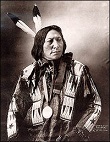

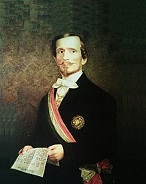








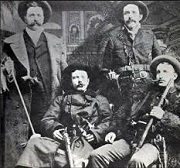






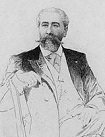

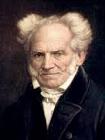




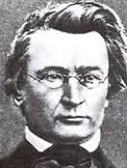


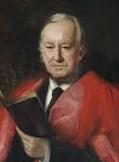






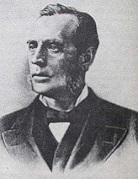



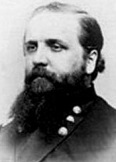












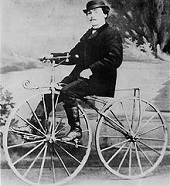





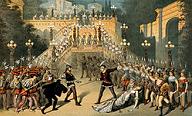
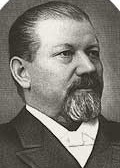
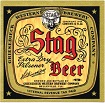

1866 The Russian Empire reaches its max. extent of 23.7M sq. km, incl. territories in E Europe, Asia, and North Am. On Jan. 6 after an epidemic caused by the genetic susceptibility of Hawaiians causes leprosy to begin to appear in the 1840s, the Molokai Leper Colony in Kalawao, Hawaii, founded by king Kamehameha V on a remote peninsula jutting from the N coast receives its first patients; it becomes so mismanaged that Jack London later calls it "the most cursed place on Earth" and "the pit of Hell". On Jan. 11 British steamship London en route to Melbourne, Australia sinks in the Bay of Biscay, killing 220. In Jan. the Repub.-controlled 39th U.S. Congress (begun Mar. 4) reconvenes (until Mar. 4), and goes nonlinear at Pres. Johnson's brand of non-vengeful Reconstruction, believing him to have given away the fruits of victory, going on to repudiate his program and substitute their own, founded on the enfranchisement of the freed slaves; Johnson, who, although born poor had been a slaveowner opposes black suffrage, driving moderate and conservative Repubs. into the Radical camp; meanwhile in Jan. the 2nd U.S. Capitol Dome is completed after 11 years. On Feb. 2 a black delegation led by Frederick Douglass meets with Pres. Johnson to discuss black suffrage, but Johnson continues his opposition; on Apr. 9 Congress overrides Johnson's veto and passes the U.S. Civil Rights Act of 1866, conferring citizenship and equal rights on blacks, and imposing criminal penalties on violators; on July 9 S.C. becomes the 28th state to approve the Fourteenth (14th) (XIV) Amendment to the U.S. Constitution, guaranteeing due process and equal protection to all citizens, and granting United States citizenship to blacks; it was unconstitutionally passed?; the term "United States" starts being used as a singular instead of a plural noun; too bad, the 14th Amendment ends up being used as a crowbar for the federal govt. to quash states rights, incl. granting birthright U.S. citizenship, although this is a misinterpretion, as proved by the words of the sponsor, U.S. Sen. (R-Mich.) (1862-71) Jacob Merritt Howard (1805-71): "This amendment which I have offered is simply declaratory of what I regard as the law of the land already, that every person born within the limits of the United States, and subject to their jurisdiction, is by virtue of natural law and national law a citizen of the United States"; "This will not, of course, include persons born in the United States who are foreigners, aliens, who belong to the families of ambassadors or foreign ministers accredited to the government of the United States, but will include every other class of persons." On Feb. 7 the naval Battle of Abtao is a push between a Spanish naval squadron and a combined Peruvian-Chilean fleet near Abtao Island in the Chiloe Archipelago of C Chile, after which Spain decides to target Peruvian ports, starting with Valparaiso, where they destroy the Chilean merchant fleet while British and U.S. naval cmdrs. in the area stand by, with U.S. minister to Chile Hugh Judson Kirkpatrick (1836-81) asking U.S. Commodore John Rodgers Jr. (1812-82) why he won't attack the Spanish fleet, causing Spanish Adm. Casto Mendez Nunez (Méndez Núñez) (1824-69) to issue the soundbyte: "Even if I have only one ship left I will continue the bombardment, because Spain, the Queen and I prefer honor without ships than ships without honor" - and it's all over bat shit? On Feb. 12 both houses of Congress gather for a memorial address in tribute to assassinated Pres. Abraham Lincoln, starting the tradition of celebrating his birthday. On Feb. 12 under the leadership of U.S. secy. of state William H. Steward, Congress demands the removal of French troops from Mexico; on May 31 Napoleon III announces the start of the evacuation; repub. troops begin to close in on Emperor Maximilian I, and later in the year the end of the U.S. Civil War allows Lincoln to send spare military supplies to them to help. On Feb. 13 the Jesse James Gang, composed of unemployed Confed. soldiers stages the first daylight bank robbery in the U.S. at the Clay County Savings Assoc. in Liberty, Mo., taking $15K in gold coins. On Feb. 21 Lucy B. Hobbs (Taylor) (1833-1910) becomes the first woman to graduate from a dental school with a DDS, the Ohio College of Dental Surgery in Cincinnati, Ohio - the real transcendentalists? On Feb. 22 after failing to create an alliance of prosperous peasants and turning the landowners against him, the "monstrous coalition" of conservatives and liberals incl. Liberal Party (wealthy conservative?) opposition leader Ioan Bratianu forces Alexander John Cuza to abdicate and flee the country, and on Apr. 20 Prince Karl of Hohenzollern-Sigmaringen succeeds as Carol I (1839-1914) of Romania (until Oct. 10, 1914), a domnitor (ruling prince) until Mar. 15, 1881; on June 13 a new joint constitution is adopted; prohibited from marrying a Romanian, in 1869 Carol I marries lit. giant (the Nora Roberts of the 19th cent.?) Elisabeth (Elizabeth) of Wied (1843-1916), prospective bride of Edward VII of England, who becomes known by her lit. name Carmen Sylva. On Apr. 2 Pres. Johnson declares that the "insurrection" has ended in all states except Texas; on May 10 he proclaims the end of hostilities; on Aug. 20 he gives notice of the resumption of civil govt. in all states that had seceded. On Apr. 3 the U.S. Supreme (Chase) Court rules in Ex Parte Milligan that trying citizens in military tribunals is unconstitutional when civilian courts are operating. See why everyone is talking about Veronica Bismars and Needle Dick? On Apr. 8 Prussian PM Otto von Bismarck allies Prussia with Italy, then on June 9 sends Prussian troops from Schlesweg into Holstein to drive Austria out and annex it, starting the Seven Weeks' War (Austro-Prussian War) (Prussian-German War) (German Civil War) between Prussia and Italy against Austria when Austria chickens out and withdraws its forces from Holstein without a battle, Bismarck waits for it to make a mistake, and on June 14 the Diet of Frankfurt passes a Bavarian motion to mobilize all non-Prussian and non-Austrian forces, causing Bismarck to declare the Federal Act violated and start a war with the South German states, quickly winning, then along with Italy declaring war on Austria; on June 24 a superior Italian force under Gen. Enrico Calidini is defeated at the Battle of Custoza, after which Italian PM #6 (since Sept. 28, 1864) Gen. Alfonso Ferrero, Cavaliere La Marmora (1804-78) (author of the alliance between Italy and Prussia against Austria-Hungary) is blamed for blowing it with his hesitant conduct of the first phases of the Italian invasion and accused of treason, trying to vindicate himself with a series of pubs. in 1873 that only get him in more trouble for revealing state secrets. Austria, thinking it can kick Prussia's butt easily, makes a secret treaty with France to sit it out; on June 27 the Prussians defeat Hanover at the Battle of (Bad) Langensalza; too bad, the Prussians under Gen. Helmuth von Moltke surprise the Austrians with secret veapons, viz. the use of railroads for rapid troop deployment, the use of breech-loading Needle Guns which can fire 4x as fast as the Austrian muzzle-loaders, and pre-measured mobile bridges in case the Austrians destroy the real ones, and on July 3 they win a decisive V at the 450K-man Battle of Koniggratz (Sadowa) (Sadova) (Hradec Kralove) (in NW Czech. near modern-day Hradec Kralove) despite massed steel-rifled cannon barrage fire, ending the effectiveness of cavalry regiments and presaging the fun to come in WWI; "The needle gun is king" (London Times); on July 20 the Austrians destroy the Italian fleet at the naval Battle of Lissa and push the Austrians out of the old Venetian Repub., which is annexed to the kingdom of Italy; on July 26 the Peace of Nicolsburg (Nikolsburg) in Bavaria disbands the German Confederation, and creates the North German Confederation (1867-71), with South German states having the right to form a South German Confederation; Prussia is united by annexing the middle states formed between the east and west by the 1814 Congress of Vienna, incl. the town of Fulda, favorite of German bishops for assemblies; on Aug. 23 the Peace (Treaty) of Prague gives Prussia the provinces of Schleswig, Holstein, Hanover (until 1945), the electorate of Hesse-Cassel, the duchy of Nassau, and the free city of Frankfurt-am-Main (the latter three combined into the hilly, thickly forested, mineral-rich province of Hesse-Nassau), making it the largest German state (two-thirds of the land area and pop.), passing Austria and becoming the #1 power on the Euro Continent; on Oct. 12 the Treaty of Vienna ends the war between Austria and Italy; sad Saxony pays a heavy cash indemnity to Prussia and is forced to join the North German Confederation (ends 1871), consisting of 21 small states (Anhalt, Hamburg, Oldenburg, Waldeck etc.) ruled by Prussia, with the Prussian king as head, and the independent states appointing deputies for the Bundesrat (upper house), with the Reichstag (lower house) (which cannot propose new laws) elected by all adult males, and on Apr. 16, 1867 a new 1867 North German Federation Constitution, which arch-conservative Bismarck later says is granted to keep the liberals quiet; Austria and the small liberal Roman Catholic states of Bavaria, Wurttemberg, Baden, and Hesse-Darmstadt opt out of the confederation, which is conservative and Protestant-dominated; Liechtenstein becomes an independent principality; Transylvania is reunited with Hungary; Sardinia wins Venetia in NE Italy for allying with Prussia; Bismarck now plots to sandbag the independent German states into the confederation by triggering a war with France which drives them into his needle guns, er, arms, and Napoleon III plays into his hands when he welcomes a war with Germany to restore his popularity? On Apr. 10 the Am. Society for the Prevention of Cruelty to Animals (ASPCA) is founded in New York City by Henry Bergh (1811-88) after he becomes outraged at the treatment of horses, becoming the first humane org. in the Western Hemisphere - did they forget about the bison? On May 1-3 the Memphis Riots of 1866 start when white policeman shoot it out with black soldiers recently mustered out of the Untion Army, after which white mobs rampage black neighbhoords, killing 46 blacks and 2 whites and injuring 75 blacks, causing $100K property damage until federal troops restore the peace, after which the black pop. falls 25% by 1870. On May 2 the Battle of Callao sees a 14-ship Spanish ironclad fleet under Adm. Casto Mendez Nunez bombard the Peruvian port of Callao then withdraw without doing major damage after Peruvian coastal defenses under Gen. Mariano Ignacio Prado hold, and 50 Spanish sailors are killed and 83 wounded vs. 200 Peruvian casualties, with Prado taking nine wounds; Peruvian war minister Col. Galvez is KIA when an armored turret blows up; the big D causes Spain to give up on the Chincha Islands, ending the Chincha War (begun 1863), and Peru has a new nat. holiday, even though the war bankrupts Peru and leaves Chile on top. 'On May 30 the Sunni Muslim Deobandi movement is founded in Deoband, India by Mohammed Qasim Nanautawi, spreading throughout South Asia, and later becoming known for their propensity for terrorism along with Wahhabi/Salafists, although in 2008 they issue a fatwa that terrorism and the killing of innocents violates Islam. On May 31-June 1 (night) the Fenian Invasion of Canada (ends Oct. 1871) begins as 800-1.5K Fenian troops under Cork, Ireland-born U.S. Gen. Thomas William "Fighting Tom" Sweeney (1820-92) and County Monaghan, Ireland-born U.S. Col. John Charles O'Neill (1843-78) cross the Niagara River from Buffalo, N.Y. and capture Ft. Erie with a master plan of seizing the Canadian transportation network and forcing the British to free Ireland; on June 2 they defeat a British force at the Battle of Ridgeway Heights (Lime or Limestone Ridge) near Ft. Erie; too bad, the U.S. govt. (which up till now had been looking the other way because of British failure to support the Union cause in the U.S. Civil War) interrupts their supply lines across the Niagara River and arrests reinforcements, and it peters out within a week, after which the U.S. govt. pays for their railroad tickets back in return for a promise not to invade again; Sweeny is arrested then released. On May 16 Congress authorizes the the U.S. Mint to begin issuing 5-cent pieces (nickels), starting with the 75% copper, 25% nickel Shield Nickel (until 1883). In May the success of the North and its large working class in the U.S. Civil War against the aristocratic South giving him hope, PM Lord Russell introduces a Parliamentary Reform Bill, the first since the Chartists' demand in 1848, its aim being to give urban laborers suffrage; when there is no loud public support, the bill fails, and Russell resigns in June; John Stuart Mill's advocacy of women's suffrage in debates on the bill helps kick off the English suffragist movement. In May Christian Crete begins a revolt against Muslim Turkish rule, seeking union with Greece, which backs the rebels (ends 1869). In May the Chincha War (begun 1864) between Peru and Spain ends with a big D for Spain, and it gives up the Chincha Islands. In May writer Mark Twain sails for Hawaii to write about it for the Sacramento Union, then returns to San Francisco to host a stage show, followed by more trips to France, Russia and the Holy Land next year; it all gets incorporated in his 2nd book The Innocents Abroad (1869). On June 1 the rip-roaring cow town city of Denver renames McGaa St. to Holladay St. in honor of Nicholas, Ky.-born stagecoach tycoon Benjamin "Ben" Holladay (1819-87), becoming the center of Denver's "flesh market" (red-light district), known to visiting cowboys for Jenny Rogers' House of Mirrors, Mattie Silks' place, etc., gaining the rep of "the most sinful street in the West"; on June 1, 1889 after complaints by Holladay's relatives the city council renames it to tongue-in-cheek Market St., and in Sept. 1899 changes the section N of 23rd Ave. to Walnut St.; the street survives to modern times. On June 16 the XIV (14th) Amendment to the U.S. Constitution is sent by the 39th Congress to the states for ratification (ratified 1868). In the summer the U.S. Army builds three posts along the "Bloody" Bozeman Trail, named after John M. Bozeman (1835-67) (soon killed by Injuns) to protect settlers and gold seekers traveling NW from the North Platte River to Virginia City, Mont.; also Ft. Reno (formerly Ft. Conor) on the Powder River, Ft. Phil Kearny (July 15) in Sheridan County, Wyo. near the forks of the Big and Little Piney Creeks, and Ft. C.F. Smith at the foot of the Big Horn Mts., causing the Sioux, Northern Cheyennes, and Arapaho, led by Oglala Sioux Chief Red Cloud to strike back in Red Cloud's War (ends 1868), making 51 attacks near Ft. Kearny, commanded by Col. Henry B. Carrington (1824-1912) on July 17-Dec. 31, killing 61 civilians and 98 soldiers; on Dec. 21 the Fetterman Massacre sees Oglala Sioux Chief Crazy Horse attack a wagon train before noon, causing 80 infantry under Capt. William Judd Fetterman (b. 1833) and 27 cavalrymen under 2nd Lt. George W. Grummond to be sent, only to stumble into an ambush by several hundred warriors led by Sioux chief Hollow Horn Bear (Matho Hehlogeca) (1850-1913) on the far side of Lodge Trail Ridge, annihilating first Fetterman's then Grummond's soldiers, becoming the 2nd biggest Indian V over the palefaces after Custer's Last Stand; an inquiry clears Carrington after he claims he told them not to cross the ridge, and anybody who heard otherwise is outranked?; in 1908 Carrington utters the soundbyte: "A company of regulars could whip a thousand [Indians] and a regiment could whip the whole array of hostile tribes", getting twisted into the soundbyte: "Give me 80 men and I'll ride through the whole Sioux nation"; Chief Hollow Horn Bear seems to believe it, turning peacemaker in the 1870s, becoming a celeb in Washington, D.C. and getting featured on the $5 U.S. bill and a 14-cent postage stamp. On June 20 "Iron Baron" Bettino Ricasoli, 2nd Baron Ricasoli (1809-80) becomes PM #2 of Italy (until Apr. 10, 1867), refusing an offer from Napoleon III to cede Venetia to Italy on the condition that Italy abandon its Prussian alliance, while refusing the Prussian Order of the Black Eagle because the alliance's author Alfonso Ferrero La Marmora isn't offered it too; after French troops leave Room, er, Rome at the end of the year he attempts to negotiate a convention between Italy and the Vatican whereby Italy would restore the property of suppressed religious orders and grant the exequatur to 45 anti-Italian govt. bishops in return for a gradual payment of 24M lira, but the chamber of deputies refuses, causing Ricasoli to dissolve it then resign when they return before they can vote, after which Ricaoli leaves public life and retires to his vineyards in Castello di Brolio in Gaioli in Chianti 12 mi. NE of Siena, creating the traditional Chianti recipe of 70% Sangiovese, 15% Canaiolo, and 15% Malvasia bianca. On June 26 British PM (since Oct. 29, 1865) Lord John Russell resigns, and on June 28 Edward Smith-Stanley, 14th Earl of Derby (1799-1869) becomes British PM again (3rd time) (until Feb. 25, 1868); too bad, like the other times he lasts less than two years. On July 13 Cyrus W. Field & co. leave Valentia Bay in the jumbo ship SS Great Eastern (built 1858) on their 5th attempt to lay 2.4K mi. of underwater telegraph cable, and on July 27 at 9 a.m. reach Heart's Content in Newfoundland, not only laying the cable, but finding the lost 1865 cable and splicing it to the new line, giving not one but two working underwater telegraph cables linking the U.S. and Britain; the Great Eastern goes on to lay cables from France to the U.S., Bombay to Aden, and along the Red Sea before ending up as an amusement park in Liverpool, and being broken up on Mersyside in 1888 - I didn't want to do it, I didn't want to do it? On July 20 rice-chomping Japanese shogun (since 1858) Tokugawa Iyemochi (b. 1847) dies of heart failure due to beriberi (vitamin B1 deficiency), ending his short marriage with emperor Komei's half-sister (daughter of emperor Ninko) princess Kazunomiya Chikako (1846-77) to unite the court and bafuku (shogunate), and on Aug. 29 Tokugawa Yoshinobu Hitotsubashi (1837-1913) (AKA Keiki) becomes the 15th and last Tokugawa shogun of Japan (until Nov. 19, 1867), and in Aug. he sends another expedition to Choshu Province in SW Honshu Island (capital Yamaguchi) to destroy the rebellious feudal fief, armed with French weapons; too bad, the other great feudal lords get pissed-off at his assumption of authority, and his expedition is routed. On July 23 Pres. Johnson signs the U.S. Judicial Circuits Act, which reorganizes the U.S. circuit courts, reducing the number from 10 to nine, and provides for the gradual elmination of U.S. Supreme Court justices from 10 to seven; the title of chief justice of the U.S. Supreme Court is changed to chief justice of the U.S. On July 25 Ulysses S. Grant becomes the first U.S. officer to hold the rank of General of the Army (5 stars). On July 26 the U.S. Mining Act of 1866 (An act granting the Right of Way to Ditch and Canal Owners over the Public Lands, and for other purposes) gives miners the right to build roads to their claims on public lands. On July 30 the New Orleans Riot of 1866 in La. sees blacks massacred by mobs of whites aided by local police after they parade outside the Mechanics Inst., where a reconvened La. Constitutional Convention is taking place, killing 44 blacks and injuring 106, along with three white Radical Repubs. and one white protester; "Who can doubt that the President is the author of these tragedies?", cries his opponent Charles Sumner. In July Switzerland outlaws export of weapons and war materials. On Aug. 15 Kiowa chief Satanta (Set-tainte) ("White Bear") (1820-78), "the Scourge of the Southern Plains" raids Cooke County, Tex. with 23 warriors and ambushes the family of paleface James Box, killing and scalping him twice, then taking his wife Mary and three daughters ages 17 to 7, and killing an infant; after raping the wife and two oldest daughters, and making the youngest walk barefoot on hot coals, they ransom them to Capt. Andrew Sheridan of Ft. Dodge, Kan. for $2.8K in weapons, food and cash; 17-y-o. Margaret later gives birth to a half-breed baby. On Sept. 12 the first oil well is discovered in Oil Springs, Texas, the 106-ft. No. 1 Isaac C. Skillern Oil Well, which produces only 10 barrels of oil. On Oct. 1 the Naval Hospital in Washington, D.C. opens, becoming the first U.S. Veterans Hospital; the first patient admitted is "ordinary seaman, colored" Benjamin Drummond. On Oct. 2 a train holdup in Seymour, Ind. by the Reno brothers becomes the second in the U.S. (first 1865), and the first transcontinental train robbery. On Oct. 3 U.S. steamship Evening Star en route from New York City to New Orleans, La. sinks, killing 250. On Oct. 6 (eve.) after making a good living as bounty jumpers during the U.S. Civil War, the Reno (Brothers) Gang (Jackson Thieves) of Ind., led by Franklin "Frank" Reno, John Reno, Simeon "Sam" Reno, and William "Bill" Reno becomes the first outlaw gang in the U.S. when they rob an Ohio & Miss. Railway train near Seymour, Ind. of $16K; on Nov. 17, 1867 they rob the Daviess County Courthouse in Gallatin, Mo., followed in Dec. by another train robbery of $8K near Seymour, followed by three more robberies in Feb.-Mar., 1868, and another on July 10, which is foiled by Pinkerton agents; in Mar. 1868 the resident of Seymour form a vigilante group to lynch them, causing them to flee W to Iowa, where they rob the Harrison County treasury of $14K, and the Mills County treasury of $12K, and are arrested by Pinkerton detective in Council Bluffs, Iowa, but escape on Apr. 1, 1868. On Oct. 12 Carleton College is founded in Northfield, Minn. by the Congregational Churches of Minn., named after benefactor William Carleton (1797-1876) of Charlestown, Mass. In Oct. a French expedition to Korea led by Adm. Pierre-Gustave Roze (1812-82) in response to persecution of Roman Catholics occupies and sacks Kanghwa Island at the mouth of the Han River, but is unable to continue to the capital of Seoul and is forced to withdraw, becoming known as the French Disturbance of 1866; the U.S. vessel USS General Sherman sails up the Taedong River toward Pyongyang and is attacked by local Koreans, killing all 24 aboard, causing the U.S. to plan to open Korea to Westerners by force (1871). On Nov. 1-2 a priest in Corfu, Greece records a Leonid meteor shower. In early Nov. after Pres. Johnson breaks with the Radical Repubs. in Congress and embarks on a "swing around the circle", a long railroad journey from Philadelphia to Pittsburgh via New York, Buffalo, Cleveland, Chicago, St. Louis, and Cincinnati, in which he makes a spectacle of himself by his vulgar stump speaking, causing conservative and moderate Repubs. to be driven into the Radical camp in herds, the 1866 U.S. elections see anti-Johnson Repubs. carry every Northern state legislature, every Northern gov. race, and return large majorities to both houses of Congress. On Nov. 27 Lincoln assassination figure John Surratt (b. 1844) is captured in Alexandria, Egypt after his cover in Rome is blown, and is tried for murder next June 10-Aug. 10, and the jury deadlocks 4-8 guilty-not, so he is freed in the summer of 1868, becoming a schoolteacher in Rockville, Md., where on Dec. 6, 1870 he gives a public lecture on his side of the assassination, claiming the Confed. govt. wasn't involved; a 2nd lecture scheduled for Dec. 30 is cancelled after a mob forms?; he goes on to live to the ripe old age of 72 (1916). On Dec. 31 at the instigation of composer Richard Wagner, Chlodwig Carl Viktor of Hohenlohe-Schillingsfurst (Hohenlohe-Schillingsfürst, Ratibor and Corvey) (1819-1901) becomes PM of Bavaria (until Mar. 7, 1870), arguing for closer ties with Prussia, getting Bismarck to use the Welfen-Funds from the House of Hanover to pay off Ludwig II's large debts, then reorganizing the Bavarian army on the Prussian model, creating a military union of the S states, and helping found the customs parliament (Zollparlament), becoming vice-pres. on Apr. 28, 1868; too bad, his opposition to the ultramontane position incl. papal infallibility causes an opposition to form that eventually forces him to resign. Ismail Pasha of Egypt is granted rights of primogeniture by the Turkish sultan. The Boer-Basuto War (begun 1864) ends with the Treaty of Thaba Bosia, with the Basutos ceding the disputed land and French missionaries expelled at Boer insistence; too bad, the Basuto soon take up arms again. Chile and Spain go briefly to war as a result of hostilities between Spain and Peru. Switzerland grants Jews equal rights to movement and settlement. Shir Ali's half-brothers Mohammed (Muhammad) A'zam and Muhammad Afdal drive him out of Kabul to Herat; A'zam becomes ruler of Afghanistan until 1867, followed by Afdal (until 1868). The 62-sq.mi. Alemannic-speaking Alpine principality of Liechtenstein becomes sovereign, with Austria administering its ports (until 1920). David Glasgow Farragut (1801-70) becomes the first adm. in the U.S. Navy. Montagu William Lowry, Lord Rowton (1838-1903) becomes private secy. to Benjamin Disraeli, continuing until his death in 1881. Mulatto mountain man Jim Beckwourth is sent with Jim Bridger and Hank Williams to turn the Crows from the warpath, and they succeed, with Beckwourth proclaimed as their chief again (1st time 1831), only this time they make sure he won't skip out by throwing a feast next year and poisoning him, then burying him with honors. Vancouver Island (a crown colony since 1849) joins British Columbia. The Ku Klux Klan (KKK) holds its first meeting in the Maxwell House in Memphis, Tenn. - coffee or bourbon? Gen. Ambrose Burnside becomes gov. of R.I. (until 1869). The Grand Army of the Repub. (GAR) is founded in Decatur, Ill. for Union Civil War vets by Dr. Benjamin Franklin Stephenson (1823-71); membership peaks at 409K in 1890, and the last member dies in 1955, with their many stately meeting halls disappearing - guys with guns? After the end of the Civil War, New Orleans, La. begins to systematically lose its Mississippi River traffic to railroads, causing the economy to slump for the rest of the cent.; meanwhile the city is known as the most unsanitary in the U.S. The area around Shawnee, Okla. is setted by Sac and Fox, Kickapoo, Shawnee, and Pottawatomi Indians moved to Indian Territory by the U.S. govt.; in the 1870s the West Shawnee Trail is used by Tex. cattle drovers; in 1903-4 the Atchison, Topeka and Santa Fe Railway and Missouri, Kansas and Texas Railway reach the town; in 1910 Okla. Baptist U. opens; in 1930 the county seat of Pottawatomie County is moved from Tecumseh to Shawnee. Lincoln U. for Negroes in Jefferson City, Mo. is founded by members of two black Civil War regiments. Part-black-but-passes Mary Ellen Pleasant (1814-1904), who claims to be the child of a voodoo priestess and John Hampden Pleasants (1797-1846), youngest son of Va. gov. #22 James Pleasants Jr. becomes the "Calif. Mother of Civil Rights" when she fights for equal rights for blacks on San Francisco trams. Dr. T.J. Barnardo (1845-1905) (a Freemason) opens his first home for destitute children in Stepney, London. Peter Tchaikovsky begins teaching at the new Moscow Musical Conservatory, which is later named for him. N.H.-born Mary Baker Eddy (1821-1910) "discovers" Christian Science when she spontaneously recovers from a severe injury - those eyes broke my heart? The Am. Evangelical Alliance is founded by Philip Schaff (1819-93). The Parnassian School of Poetry (named after Mount Parnassus, home of the Muses) is founded in France by Alphonse Lemerre (1838-1912) in his anthology Le Parnasse contemporain (3 vols.), which is influenced by French poet Pierre Jules Theophile (Théophile) Gautier (1811-72) and German pessimist philosopher Arthur Schopenhauer (1788-1860), adopoting Gautier's motto "art for art's sake", eschewing Romanticism and its sentimentalism and social-political activism in favor of exact and faultless workmanship and emotional detachment; Reunion-born French poet Charles Marie Rene (René) Leconte de Lisle (1818-94) and Cuban-born French poet Jose-Maria (José-Maria) de Heredia (1842-1905) The Union Pacific lays 300 mi. of track by the end of the year, while the Central Pacific traverses the 7K-ft. Sierra Nevada range. The city of Loveland, Colo. in Larimer County S of Fort Collins and 46 mi. N of Denver (modern-day pop. 76K) is founded along the newly constructed line of the Colo. Central Railroad near its crossing of the Big Thompson River, named in honor of its pres. William Austin Hamilton Loveland (1826-94), going on to become known for sugar beets and sour cherries; in 1901 the Great Western Sugar Co. opens a factory there, which closes in 1977; in the late 1920s the Spring Glade Orchard becomes the largest cherry orchard W of the Mississippi River, dwindling under killer freezes and blights until it closes in 1960. German immigrant Adolf Pfannenschmidt from Rinteln founds the town of Pfannenschmidtstadt on the site of Nopalera (founded 1853) in the Cahuenga Valley of the Santa Monica Mts. in warm sunny S Calif. (355 days of sunshine a year), which in 1886 is named Hollywood by Toronto, Canada-born "Father of Hollywood" Hobart Johnson "H.J." Whitley (1847-1931) on a honeymoon with his wife Gigi after he sees a Chinese man carrying wood in a wagon and uttering the soundbyte "I holly wood"; in 1903 it is incorporated as Hollywood, Calif. becoming known for orange groves, joining the city of Los Angeles in 1910 and becoming the HQ of the U.S. film industry. The new Italian Repub. dissolves all monasteries; Monte Cassino Abbey, founded in the 6th cent. by St. Benedict of Benedictine Rule fame becomes a nat. monument; too bad, the Allies destroy it on Feb. 15, 1944 during the Battle of Monte Cassino. Scottish Presbyterian medical missonary David Livingstone (1813-73), backed by the London Missionary Society, friends and admirers begins exploring the lakes and rivers of C Africa to discover the source of the Nile (until his death), starting at the Ruvuma River, then to Lake Tanganyika next year, then W, where he discovers the Luapula (Upper Congo) River in S Congo, followed by Lake Mweru and Lake Bangweulu among the headwaters of the Congo River; meanwhile, people back home begin to wonder what's cooking, er, what's happened to him? Uncontrolled use of opium and morphine among Am. soldiers on both sides of the Civil War creates masses of addicts who return to society with the heebie jeevies? Queen Victoria visits Turkey, and Sultan Abdulaziz gives her the 1464 Great Turkish Bombard (Dardanelles Gun), which is displayed to the public at the Tower of London before being moved to Fort Nelson in Hampshire overlooking Portsmouth. The city of Denton, Tex. (modern-day pop. 113K) N of Dallas is incorporated, named for Methodist minister and Tex. militia capt. John Barnard (Bunard) (Bunyan) Denton (1806-41), who was KIA by Kichai people on May 22, 1841 in the Battle of Villge Creek in modern-day Tarrant County; in 1890 the U. of North Tex. is founded there, followed in 1901 by Tex. Woman's U. The Japanese shogunate builds Japan's first modern naval arsenal in Yokosuka, supervised by French engineer Francois Leonce (Léonce) Verny (1837-1908). The Aeronautical Society of Great Britain (later the Royal Aeronautical Society) is founded. Jasper Newton "Jack" Daniel (1849-1911) establishes a whiskey distillery in dry Lynchburg, Tenn. and perfects his Kentucky bourbon formula. German Holstein-born Conrad Kohrs buys a decade-old cattle ranch in Deer Lodge, Mont. from Canadian pioneer Johnny Grant, and turns it into the 10M-acre Grant-Kohrs Ranch, which launches the cattle biz in big blue sky country Mont. A hotel is built on volcanic Kilauea, Hawaii. After serving as the head chef for the Rothschild family until 1848, followed by the mgr. of the Les Freres Provencaux Restaurant at the Palais-Royal in Paris, Bordeaux-born French chef (pupil of Marie-Antoine Careme) Adolph Duglere (Dugléré) (1805-84) becomes head chef of the Cafe Anglais in Paris (founded 1802), which becomes #1 in Paris in the 19th cent., going on to invent the dish Pommes Anna, along with Tournedos Rossini (really invented by Escoffier or Careme?). Henry Sherwin and Edward Williams found Sherwin-Williams Co. to "cover the Earth with paint". Sidley Austin LLP (originally Sidley Austin Brown & Wood LLP) law firm is founded via the merger of Sidley & Austin of Chicago, Ill. and Brown & Wood of New York City, going on to obtain First Lady Mary Todd Lincoln as a client and become the 6th-largest U.S. law firm by the time Barack Obama gets summer associate job there in 1989 and meets Michelle Obama. Am. abolitionist bestelling author Hinton Rowan Helper returns from a 5-year stint as U.S. consul at Buenos Aires, and squanders his fortune trying to construct a railroad from the Strait of Magellan to the Bering Strait, ending up in poverty. Winslow Homer visits the Universal Exposition in France, and views Barbizon school landscapes and Japanese woodblock prints, influencing his style. Starving author Herman Melville takes a job as a customs inspector in New York City, which he keeps until 1885; his novels panned by critics and the public alike, he turns to poetry. English #1 stage actor Sir Henry Irving (1838-1905) makes his London debut; actually, his name is John Henry Brodribb, but he reaches such heights that he is knighted in 1895 and changes his name, becoming the inspiration for Bram Stoker's Count Dracula. Big man Charles Dickens makes a reading tour of England and Scotland, then does it again in the U.S. in 1868 - meeting the Cartwrights in Nevada? Am. writer Samuel Clemens AKA Mark Twin begins his lecturing career with "Our Fellow Savages of the Sandwich Islands". Harvard-educated Shakespearean scholar Horace Howard Furness (1833-1912), having toured Europe in 1855-6 and got admitted to the bar in 1859, and his Unitarian clergyman daddy William Henry Furness having got his way on the abolition issue, he begins devoting his life to compiling the New Variorum Ed. of the Works of Shakespeare, later getting his son Horace Howard Furness Jr. (1865-1930) to help; the first vol. ("Romeo and Juliet") is pub. in 1871, and the 14th ("Antony and Cleopatra") is pub. in 1907; the son carries on alone with "Julius Caesar" in 1913 and "King John" in 1919. Tenn.-born preacher Moses Easterly Lard (1818-80) gives a popular sermon this year in Ray County, Mo. The Russian lit. periodical Sovremennik (The Contemporary) (founded 1836) is suppressed by the mean old tsar, embittering starry-eyed ed. Nikolai Alexeyevich Nekrasov (1821-78), who becomes ed. of the more PC Annals of the Fatherland in 1868 and writes epic poetry attacking admin. abuses and pining over the suffering of the people without suggesting any regime changes. The Mo. Historical Society is founded in St. Louis, Mo. on Aug. 11. Fisk U. in Nashville, Tenn. is founded for freed blacks by Tenn. Freedmen's Bureau head Brig. Gen. Clinton Bowen Fisk (1828-90), who endows it with $30K; sports teams are called the Bulldogs. Henry Holt (1840-1926) and Frederick Leypoldt (1835-84), who migrated to the U.S. from Stuttgart, Germany in 1855 found Henry Holt Publishing Co. in New York City. French mustard manufacturers Maurice Grey and Auguste Poupon begin making Grey Poupon brand mustard in Dijon, France; in 1946 it is acquired by Heublein Co., which in 1982 is acquired by R.J. Reynolds, which merges it with Nabisco in 1985 to form RJR Nabisco, which in 1999 is acquired by Kraft Foods; in 1980s they begin airing the "Pardon me, would you have any Grey Poupon?" ads. Philly pharmacist Charles Elmer Hires (1851-1937) discovers the formula for Hires Root Beer on May 16 while honeymooning in N.J. and drinking "root tea" at his honeymoon hotel, then changing the name to make it more marketable; too bad, it is sold as a powder that must be mixed with yeast, water, and sugar, and doesn't catch on, until Rev. Dr. Russell Conwell gets him to present it at the 1876 U.S. Centennial Exposition in Philly, touting it as "The Temperance Drink" and "the greatest health-giving beverage in the world". After returning from the U.S. Civil War, Detroit, Mich. pharmacist James Vernor Sr. (1843-1927) begins selling Vernors Ginger Ale, later discovering the oak aging process, with the motto "Deliciously different". Greasy Dick, er, Griesedieck Brothers Brewery is founded in St. Louis, Mo. by German immigrant Anton Griesedieck and his four sons incl. Henry Jr. and Joseph "Papa Joe"; in 1891 the sons establish the Nat. Brewery Co., which merges with Independent Brewery Co. in 1907; in 1911 Henry Jr.'s five sons Anton, Henry, Raymond, Edward (-1955), and Robert (-1942) found Griesedieck Brothers, producing Stag brand extra-dry pilsener; in 1920-33 they close for Prohibition, reopening in July 1933 and seeing sales zoom, reaching 400K barrels/year in 1941, becoming the first in St. Louis to use the Crowntainer can; in 1947 begin sponsoring St. Louis Cardinals radio broadcasts with Harry Caray (his debut) until Anheuser-Busch outwits them and buys the team in 1953, renames Sportman Park into Busch Stadium, and introduces low-priced Busch Bavarian Beer after poaching their brewmaster Edward Vogel Jr., cutting into sales; in 1957 after reaching 1M barrels/year in 1950 and distribution in 12 Midwest states they are acquired by Falstaff in a stock trade, growing to 6M barrels/year in 1966 before declining, running TV ads featuring cartoon char. Mr. Magoo; in 1977 the plant closes after Falstaff gets into a costly lawsuit with R.I. German-born George Ehret (1835-1927) founds the Hell Gate Brewery on the East River between 92nd and 93rd Sts. and 2nd and 3rd Aves. in New York City, surviving a fire on Sept. 19, 1870 and growing to 33.5K barrels/year in 1872, and 101K barrels in 1874, becoming the largest brewery in the U.S. in 1877, reaching 220K barrels/year in 1880, 412.8K barrels/year in 1890, and 601K barrels/year in 1900; too bad, he decides to take a trip back to Germany just before WWI breaks out, stirring suspicions of disloyalty, hurting sales, which are completely shut down in 1920 by Prohibition; he dies in Jan. 1927 during Prohibition, leaving a $40M estate, after which his heirs sell out in Apr. 1935, and in July 1935 acquire the Interboro Beverage Co. in Brooklyn, N.Y. before selling out to Schlitz in 1949, becoming their first brewing plant outside Milwaukee. Sports: On June 23 the Cincinnati Red Stockings (originally Cincinnati Base Ball Club) baseball team is founded, joining the NABBP in 1867, playing on the Union Cricket Club grounds, causing many cricket club members to join; in 1868 English-born center fielder William Henry "Harry" Wright (1835-95) becomes team mgr., introducing uniforms to baseball, with the red you know whats giving the team its name; in 1869 it becomes the first salaried team, with the season running from Mar. 15-Nov. 15, playing the first game on May 4, 1869, defeating the Great Westerns of Cincinnati by 45-9, going on to have a perfect season (57-0) after defeating the New York Mutuals on Nov. 6 by 17-8. Thomas Mitchell "Old Tom" Morris Jr. (1821-1908) of St. Andrews wins his first pro golf championship. James Gordon Bennett Jr. wins the first trans-oceanic boat race. Jerome Park Racetrack in Westchester County, N.Y. opens for thoroughbred horseracing, served by Fordham Station, becoming the site of the Belmont States until 1890; in 1867-89 it hosts the 1-mi. Champagne Stakes for 2-y.-o. horses, and in 1868-94 it hosts the Ladies Handicap for fillies and mares. Scottish-born London barrister John "Rob Roy" MacGregor (1825-92), who learned about canoeing (kayaking) during a trip to the U.S. and Canada in 1858 founds the English Royal Canoe Club, going on to turn it into a sport. Canadian-born English mountaineer Lucy Walker (1836-1916) becomes the first female to summit the Swiss Wetterhorn. Architecture: Ladoga Canal in Russia (begun 1861) is completed. Inventions: On July 10 Edson P. Clark of Mass. patents the first indelible pencil - write that down? On Nov. 20French mechanic Pierre Lallement (1843-91) is awarded the first U.S. patent on a pedal bicycle. Dynamite is discovered too late for the American Civil War but there will be plenty of future wars for it? Am. cattleman Charles Goodnight (1836-1929) invents the Chuckwagon - most potent anti-Indian weapon since smallpox? Swedish chemist Alfred Nobel (1833-96) discovers dy-no-mite Dynamite, which he calls "Improved Explosive Compound", uttering the immortal soundbyte: "I should like to invent a substance or machine with such terrible power of mass destruction that war would thereby be made impossible forever"; he receives a patent on Nov. 25, 1867, insuring vast riches as his prediction proves to work out the opposite. German inventor Ernst Werner von Siemens (1816-92), brother of Sir William Siemens (1823-83) and Carl Heinrich von Siemens (1829-1906) invents the Electric Dynamo, which uses electromagnets instead of permanent magnets, causing the Siemens Co. (founded 1847) to grow into a giant. English engineer Robert Whitehead (1823-1905) invents the self-propelled Underwater Torpedo - combined with dynamite, this will make war possible for a long time to come? The breech-loaded rifle is developed in the U.S., England, France, and Germany, replacing the muzzle-loaded rifle developed ca. 1475. Science: On Apr. 15 Prussian Egyptologist Karl Richard Lepsius (1810-84) discovers the Table of Canopus (Canopus Stone) (Decree of Canopus), a record of a great assembly of priests in Canopus, Egypt in 238 B.C.E., which serves as a double-check on the trans. of the Rosetta Stone. Potsdam, Prussia-born German zoologist Ernst Heinrich Philipp August Haeckel (1834-1919) ("Darwin's Bulldog on the Continent") ("the Huxley of Germany"), who had a special chair in zoology created for him at the U. of Jena last year bites bigtime on Darwin's theory of evolution, and coins the word "phylogeny" for the origin and evolution of a race of animals or plants, in distinction from "ontogeny" for a single organism, and reveals the new mantra "ontogeny recapitulates phylogeny", AKA the Gastrea Theory AKA Recapitulation Theory; in 1868 he pub. an article on the phylum of (elevated to a kingdom in 1925) Monera, a pious fraud designed to push Darwinian evolution over on the German scientific community (post block ergo propter block?); in 1868 Haeckel pub. The History of Creation (Natürliche Schöpfungsgeschicht), attempting to retrace the evolution of humans, claiming that original speechless proto-humans (Urmenschen) developed separate languages that helped them transition from animal to man as separate species and races, meaning that Semitic and Indo-European languges incl. Jewish, Greco-Roman, Germanic, and Berber languages are the most developed, with the soundbyte: "Human languages probably had a multiple or polyphyletic origin. Human language as such probably developed only after the species of speechless Urmenschen or Affenmenschen (German: ape-men) had split into several species or kinds. With each of these human species, language developed on its own and independently of the others. At least this is the view of Schleicher, one of the foremost authorities on this subject... If one views the origin of the branches of language as the special and principal act of becoming human, and the species of humankind as distinguished according to their language stem, then one can say that the different species of men arose independently of one another"; no surprise, the Caucasian or white race (his) is the highest and most civilized race, and the Negro the lowest and most savage, with the soundbyte: "The Caucasian, or Mediterranean man (Homo Mediterraneus), has from time immemorial been placed at the head of all the races of men, as the most highly developed and perfect. It is generally called the Caucasian race, but as, among all the varieties of the species, the Caucasian branch is the least important, we prefer the much more suitable appellation proposed by Friedrich Müller, namely, that of Mediterranese. For the most important varieties of this species, which are moreover the most eminent actors in what is called 'Universal History', first rose to a flourishing condition on the shores of the Mediterranean... This species alone (with the exception of the Mongolian) has had an actual history; it alone has attained to that degree of civilisation which seems to raise men above the rest of nature"; he adds that Negroes have stronger and more freely movable toes than other races, which links them to the "four-handed apes"; he goes on to theorize that humans arose in India, rather than Africa like Darwin claimed, and that the missing link came from the lost continent of Lemuria, which connected Africa with Asia; "[Haeckel's] evolutionary racism; his call to the German people for racial purity and unflinching devotion to a 'just' state; his belief that harsh, inexorable laws of evolution ruled human civilization and nature alike, conferring upon favored races the right to dominate others ... all contributed to the rise of Nazism" (Stephen Jay Gould). Joseph Norman Lockyer of England begins spectroscopic observation of sunspots and finds that the rainfall on Earth is related to their number. Nonfiction: Sabine Baring-Gould (1834-1924), Curious Myths of the Middle Ages; favorite of H.P. Lovecraft. Heinrich Anton de Bary (1831-88), Morphology and Physiology of Mushrooms; big breakthrough; founds modern mycology. Ioan Bratianu (1822-91), La Question Religieuse en Roumanie. James Buchanan (1791-1868), Administration on the Eve of the Rebellion. Jacob Burckhardt (1818-97), History of the Renaissance in Italy. Francis Bicknell Carpenter (1830-1900), Six Months at the White House with Abraham Lincoln (autobio.). Hermann Cohen (1842-1918), Platonic Ideal theory Psychologically Developed (first work); he goes on to found the Neo-Kantian schoool at the U. of Marburg in the late 1870s, becoming "probably the most important Jewish philosopher of the nineteenth century." (Jewish Virtual Library) John Smith Dye, History of the Plots and Crimes of the Great Conspiracy to Overthrow Liberty in America. Theophile Gautier (1811-72), La Russie; cool travel book. Ernst Haeckel (1834-1919), General Morphology. Edouard Rene Lefevre de Laboulaye (1811-83), Memoirs of Franklin (2 vols.) (1866-7). Friedrich Lange, History of Materialism. Pierre Larousse (1817-75), Grand Dictionnaire Universel du XIX Siecle (1866-76); combined dictionary and encyclopedia; pub. in 1876 by his Librarie Larousse pub. house. Lin-Le, Ti-Ping Tien-Kwoh (History of the Taiping Revolution); written by a white man using a Chinese name. John MacGregor (1825-92), A Thousand Miles in the Rob Roy Canoe on River and Lakes of Europe; big hit, launching the sport of kayaking; "In walking you are bounded by every sea and river, and in a common sailing-boat you are bounded by every shallow and shore; whereas... a canoe can be paddled or sailed, or hauled, or carried over land or water." Bon Louis Henri Martin (1810-83), Russia and Europe. Dadabhai Naoroji (1825-1917), The European and Asiatic Races. Francis Parkman (1823-93), The Book of Roses; horticulture of roses. Louis Pasteur (1822-95), Etudes sur le Vin (Studies on Wine). Charles Sanders Peirce (1839-1914), On a New List of Categories (May 14); founds Philosophical Pragmatism, which rejects the idea that the function of thought is to mirror reality, considering it to be a product of the interaction between the organism and environment, whose function is as an instrument or tool for prediction, action, and problem solving, hence most philosophical topics are best viewed in terms of their practical uses. Ernest Renan (1823-92), Histoire des Origines du Christianisme (History of the Origins of Christianity) (8 vols.) (1866-81). Sir John Robert Seeley (1834-95), Ecce Homo: A Survey of the Life and Work of Jesus Christ; pub. anon.; Christ as founder of a theocratic state. Mary Somerville (1780-1872), Molecular and Microscopic Science. John Venn (1834-1923), The Logic of Chance; introduces the frequency interpretation of probability. Music: Anon., The Maple Leaf Forever; about Canada; "In days of yore/ From Britain's shore". Georges Bizet (1838-75), Symphony No. 1 in C major ("Roma") (1866-8). Max Bruch (1838-1920), Violin Concerto No. 1 in G minor; the #1 Romantic violin concerto? Ignaz Brull (1846-1907), First Serenade for Orchestra. Jacques Offenbach (1819-80), La Vie Parisienne (operetta) (Oct. 31) (Theatre du Palais Royal, Paris); libretto by Henri Meilhac and Ludovic Halevy; incl. Ouverture, Finale. Bedrich Smetana (1824-84), The Bartered Bride (Prodana Nevesta) (comic opera) (Provisional Theater, Prague) (May 30); libretto by Karel Sabina (1813-77), who hides his name behind his initials after being accused in 1870 of being a police informant and an 8-man jury in 1872 finds him guilty; doesn't become popular until 1870; incl. Overture, Dance of the Comedians. Franz von Suppe (1819-95), Leichte Kavallerie (Light Cavalry Overture) (Lone Ranger Theme) (operetta) (Mar. 21) (Carltheater, Vienna) - would have sounded great during the U.S. Civil War? Ambroise Thomas (1811-96), Mignon (opera) (Nov. 17) (Opera Comique, Paris); giant hit; incl. Adieu Mignon. Richard Grant White (1822-85), The New Gospel of Peace According to St. Benjamin; satire. Art: Paul Cezanne (1869-1906), Portrait of Artist's Father. Gustave Courbet (1819-77), Nude Woman with a Parrot. Edgar Degas (1834-1917), Ballet Scenes (1866-). Jean-Leon Gerome (1824-1904), Death of Caesar; Death of Marshal Ney; Slave Market; black Muslim slave trader displays nude white women to his customers. Claude Monet (1840-1926), Camille Doncieux (Lady in Green). Plays: Charles M. Barras (1826-73), Theodore Kennick, and Thomas Baker, The Black Crook (3.2K-seat Niblo's Garden, New York) (Sept. 12) (474 perf.) (5.5 hours); the first English musical; set in 1600 in the Harz Mts. of Germany, about evil Count Wolfenstein, who woos village girl Amina from her fiance Rodolph by having his servant Hertzog make a pact with the Devil, only to be saved by Fairy Queen Stalacta; The Black Domino/Between You, Me and the Post debuts, becoming the first Broadway musical comedy. Sir Francis Burnand (1836-1917), Black Eyed Susan; or The Little Bill That Was Taken Up. Sir Francis Burnand (1836-1917) and Arthur Sullivan (1842-1900), Cox and Box; or The Long Lost Brothers (comic opera); based on the 1847 farce by John Maddison Morton; big hit. Sir William Gilbert (1836-1911), Dulcamara; or The Little Duck and the Great Quack (first play) (St. James's Theatre, London); burlesque of Donizetti's opera "L'Elisire d'Amore", written in 10 days. Ludovic Halevy (1834-1908) and Henri Meilhac (1831-97), Barbe-Bleue (Bluebeard) (operetta); no libretto. Henrik Ibsen (1828-1906), Brand; Norwegian pastor, his wife Agnes and son Ulf, and gypsy girl Gerd, who prefers the "ice church" in the mountains to his crap; first in a string of Norwegian masterpieces by a wannabe Viking who grows to look like Santa Claus? Thomas William Robertson (1829-71), Ours. George Sand (1804-76), The Japanese Lily (Le Lis du Japon). Poetry: Dion Boucicault (1820-90), The Shaughraun (comic melodrama) (Drury Lane, London); author plays Con, making him a top star. Robert Williams Buchanan (1841-1901), London Poems. Robert Hamerling (1830-89), Ahasver in Ram; Ahasuerus the Angel of Doubt equals the Wandering Jew equals Nero? George Heath (1844-69), Heart Strains. Herman Melville (1819-91), Battle-Pieces and Aspects of the War (Aug. 17); "Weird John Brown/ The meteor of the war." Christina Georgina Rossetti (1830-94), The Prince's Progress, and Other Poems. John Godfrey Saxe (1816-87), The Masquerade and Other Poems. Algernon Charles Swinburne (1837-1909), Poems and Ballads; incl. Sapphics, Anactoria (Sappho musing on the difference between carnal love and artistic immortality), The Triumph of Time, Dolores, Hymn to Proserpine; the unabashedly sensual pagan poems with themes of sadomasochism, lesbianism, irreligion and the death wish cause a firestorm of controversy, causing him to become more popular, and to pub. Notes on Poems and Reviews; he becomes the new #1 poet of England, expected to succeed Tennyson and Browning, although he never makes it? John Greenleaf Whittier (1807-92), Snow-Bound: A Winter Idyl; helps everybody forget the Civil War, and makes him a star, even if he is a Quaker. Novels: Charles Pierre Baudelaire (1821-67), Les Epaves. Ricahrd Doddridge Blackmore (1825-1900), Cradock Nowell: A Tale of the New Forest. Wilkie Collins (1824-89), Armadale. Alphonse Daudet (1840-97), Lettres de Mon Moulin. Fyodor Dostoyevsky (1821-81), Crime and Punishment; written to pay off his gambling debts; St. Petersburg student Rodion Romanovich Raskolnikov (Russ. "raskolnik" = schismatic) thinks he's a genius and wants to be the next Napoleon, proving it by killing greedy hated female pawnbroker Alyona Ivanovna with an axe, after which he breaks down and confesses to pious ho Sonia Semyonovna Marmeladova and police Lt. Ilya Petrovich, and is exiled to Siberia with his teenie daughter Sonia. George Eliot (1819-80), Felix Holt, the Radical. Elizabeth Gaskell (1810-65), Wives and Daughters (posth.). Victor Hugo (1802-85), Les Travailleurs de la Mer. Charles Kingsley (1819-75), Hereward the Wake: Last of the English, 18-y.-o. Hereward of Mercia, son of Earl Leofric and Lady Godiva, the last Anglo-Saxon holdout against the Normans, who kills 15 of them at a drunken feast with help from his buddy Martin Lightfoot, then turns rebel, holding up with his gang at Ely in the Fens, repelling William I the Conqueror until he is betrayed by Countess Alftruda and swears fealty to him to save his babe Torfrida, after which he is assassinated by Ivo Taillebois; makes Hereward into an English folk hero. Sidney Lanier (1842-81), Tiger Lillies (first and only novel). Charles James Lever (1806-72), Sir Brooke Fosbrooke. Petroleum V. Nasby (1833-88), Swingin' Round the Cirkle. George Sand (1804-76), Le Dernier Amour (The Last Love); dedicated to Gustave Flaubert. Charlotte Mary Yonge (1823-1901), The Dove in the Eagle's Nest. Emile Zola (1840-1902), Les Mysteres de Marseille; about lovers Philippe Cayol and Blanche de Cazalis, niece of millionaire Marseilles politician De Cazalis, Births: British classical Greek scholar, humanist, and Liberal activist George Gilbert Aime (Aimé) Murray (d. 1957) on Jan. 2 in Sydney, New South Wales, Australia; educated at St. John's College, Oxford U.; G.B. Shaw bases the char. Adolphus Cusins in "Major Barbara" on him. Greek PM (1915, 1921-2) Demetrios (Dimitrios) Gounaris (d. 1922) on Jan. 5 in Patras. German caffeine chemist (Jewish) Wilhelm Traube (d. 1942) on Jan. 10 in Ratisbor, Silesia; son of Moritz Traube (1826-94). Greek-Armenian spiritualist George Ivanovich Gurdjieff (d. 1949) on Jan. 13 in Alexandropol, Russia (Gyumri, Armenia); Greek father, Armenian mother. Am. New Thought writer Horatio Willis Dresser (d. 1954) on Jan. 15 in Yarmouth, Maine; son of Julius A. Dresser (1838-93). Swedish ecclesiastical historian and archbishop of Uppsala (1914-) Lars Olof Jonathan "Nathan" (Söderblom) (d. 1931) on Jan. 15 in Helsingland; educated at Uppsala U. British theater mgr. and film producer Sir Oswald Stoll (d. 1942) on Jan. 20 in Melbourne; emigrates to Britain in ?; knighted in 1919. Russian Orthodox patriarch #12 (1943-4) Sergius I (Ivan Nikolayevich Stragorodsky) (d. 1944) on Jan. 23 (Jan. 11 Old Style) in Arzamas, Nizhny Novgorod. Belgian Socialist statesman Emile Vandervelde (d. 1938) on Jan. 25 in Ixelles; educated at the Free U. of Brussels. French "Jean-Christophe" novelist-dramatist and art historian (mysic) Romain Rolland (d. 1944) on Jan. 29 in Clamecy, Nievre. Am. "Purple Cow", "Goops" humorist-illustrator Frank Gelett Burgess (d. 1951) on Jan. 30 in Boston, Mass.; educated at MIT - ever seen one? Scottish anthropologist-anatomist Sir Arthur Keith (d. 1955) on Feb. 5 in Aberdeen; educated at the U. of Aberdeen, and Univ. College, London; knighted in 1921. Canadian cigar manufacturer and philanthropist (Jewish) Sir Mortimer Barnett Davis (b. 1928) on Feb. 6 in Montreal, Quebec; knighted in 1916 (first Canadian-born Jew). Am. "Fables in Slang" humorist writer George Ade (d. 1944) on Feb. 9 in Kentland, Ind. Am. entomologist (Baha'i) Harrison Gray Dyar Jr. (d. 1929) on Feb. 14 in New York City; educated at MIT. Am. baseball hall-of-fame player William Robert "Sliding Billy" Hamilton (d. 1940) on Feb. 16 in Newark, N.J. U.S. agriculture secy. #5 (1913-20) and U.S. treasury secy. #48 (1920-1) David Franklin Houston (d. 1940) on Feb. 17 in Monroe, N.C.; educated at the U. of C., and Harvard U. German "Wassermann test for syphilis" bacteriologist (Jewish) August Paul von Wassermann (d. 1925) on Feb. 21 in Bamberg; educated at the U. of Strassburg. English journalist Hugh Chisholm (d. 1924) on Feb. 22 in London; ed. of the 10th-12 eds. of The Encyclopedia Britannica; educated at Christ Church, Oxford U.; not to be confused with Internat. Paper Co. founder Hugh Chisholm (1847-1912). Italian anti-Fascist "Philosophy of Spirit" philosopher-critic Benedetto Croce (d. 1952) on Feb. 25 in Pescasseroli. French Maj. Sylvain Eugene Raynal (d. 1939) on Mar. 3 in Bordeaux. Am. Mutoscope-Biograph inventor Herman Casler (d. 1939) on Mar. 12 in Canastota, N.Y. English Shakespearean scholar Sir Edmund Kerchever Chambers (d. 1954) on Ma. 16 in West Ilsley, Berkshire; educated at Marlborough College, and Corpus Christi College, Oxford U.; knighted in 1925. U.S. Supreme Court justice #71 (1922-39) Pierce Butler (d. 1939) on Mar. 17 in Dakota County, Minn.; Irish Roman Catholic immigrant parents; educated at Carleton College. Canadian radical miner Albert Edward Horsley (d. 1954) (AKA Harry Orchard) on Mar. 18 in Wooler, Ont. Am. Eureka Vacuum Cleaner Co. founder Fred Wardell (d. 1952) on Mar. 30 in Toronto, Canada. Am. Progressive social reformer Sophonisba Preston Breckinridge (d. 1948) on Apr. 1 in Lexington, Ky.; educated at Wellesley College, and U. of Chicago (first woman to earn a doctorate in political science, economics, and law). Italian "Fantasia Contrappuntistica" composer-pianist Ferruccio Dante Michelangiolo Benvenuto Busoni (d. 1924) on Apr. 1 in Empoli (near Florence); father is a clarinetist, mother is a pianist. South African Boer PM#3 (1924-39) gen. James Barry Munnik Hertzog (d. 1942) on Apr. 3 near Wellington, Cape Colony. Am. inventor (Roman Catholic) David T. Kenney (d. 1922) on Apr. 3; Irish immigrant parents. French colonial adm. Emile (Émile) Gentil (d. 1914) on Apr. 4 in Volmunster, Moselle. Am. muckraker journalist Joseph Lincoln Steffens (d. 1936) on Apr. 6 in Sacramento, Calif.; educated at the U. of Calif. Am. "miracle worker" educator Anne Sullivan (Johanna Mansfield Sullivan Macy) (d. 1936) on Apr. 14 in Feeding Hills, Mass.; teacher of Hellen Keller; Irish immigrant parents. Am. brewer Mathias Jacob "Matt" Leinenkugel (d. 1926) on Apr. 16 in Sauk City, Wisc.; son of Jacob Leinenkugel (1842-99). English physiologist Ernest Henry Starling (d. 1927) on Apr. 17 in London. German Gen. Johannes Friedrich "Hans" von Seeckt (d. 1936) on Apr. 22 in Schleswig. Russian painter and stage designer (Jewish) Leon Nikolaevich (Samoilovitch) Bakst (Leib "Lev" Rosenberg) (d. 1924) on May 10 in Grodno, Belarus. French "Gymnopedies", "Messe des Pauvres" composer-pianist (alcoholic) Alfred Eric Leslie "Erik" Satie (d. 1925) (AKA Virginie Lebeau, Francois de Paule) on May 17 in Honfleur; calls himself a phonometrician (somebody who measures and writes down sounds) instead of a musician. Am. "The Master Key System" New Thought writer (Freemason) Charles Francis Haanel (d. 1949) on May 22 in Ann Arbor, Mich. French auto racer Fernand Charron (d. 1928) on May 30 in Angers. English "A.J. Raffles" novelist Ernest William Hornung (d. 1921) on June 7 in Middlesbrough; Hungarian immigrant father; husband (1893-) of Constance Doyle, sister of Arthur Conan Doyle; educated at Uppingham School. German art historian (Jewish) (founder of the Warburg Inst.) Abraham Moritz "Aby" Warburg (d. 1929) on June 13 in Hamburg; son of Moritz Warburg; brother of Max Warburg (1867-1946), Paul Warburg (1868-1932), and Felix Moritz Warburg (1871-1937); "Hamburger at heart, Jew by blood, Florentine in spirit". Am. silent film actress Flora Finch (d. 1940) on June 17 in London, England; emigrates to the U.S. as a child. Australian novelist-poet ("Australia's greatest short story writer")Henry Archibald Hertzberg Lawson (d. 1922) on June 17 in Grenfell, N.S.W.; son of Louisa Lawson (1848-1920). English King Tut Egyptologist George Edward Stanhope Molyneux Herbert, 5th Earl of Carnarvon (d. 1923) on June 26 in Highclere Castle, Hampshire; educated at Eton College, and Trinity College, Cambridge U. Am. psychologist Lightner Witmer (d. 1956) on June 28 in Philadelphia, Penn.; educated at the U. of Penn.; coiner of the term "clinical psychology". French Gen. Charles Emmanuel Marie Mangin (d. 1925) on July 6 in Sarrebourg. German surgeon Georg Kelling (d. 1945) on July 7 in Dresden. Swiss Symbolist painter-printmaker Carlos Schwabe (d. 1926) on July 21 in Altona, Holstein; grows up in Geneva. German Lt. Gen. Christoph Emanuel Hermann Ritter Mertz von Quirnheim (d. 1947) on July 23 in Ansbach; father of Col. Albrecht Mertz von Quirnheim (1905-44). Am. Graustarkian "Brewster's Millions" novelist George Barr McCutcheon (d. 1928) on July 26; known for colorful, melodramatic, implausible stories about the imaginary kingdom of Graustark. Portuguese pres. #6 (1919-23) Antonio Jose (António José) de Almeida (d. 1929) on July 27 in Penacova, Sao Pedro de Alva. English "The Tale of Peter Rabbit" children's book writer-illustrator Helen Beatrix Potter (d. 1943) on July 28 in South Kensington, London; born in a well-to-do family; elder sister of Bertram Potter; falls in love with Norman Warne, son of her publisher, but he dies before they can get married; moves to Hill Top in 1905; marries country lawyer William Heelis in 1913. Am. Repub. atty.-financier and U.S. secy. of the Navy (1929-33) Charles Francis "Uncle Charlie" "Deacon" Adams (III) (d. 1954) on Aug. 2 in Quincy, Mass; great-grandson of John Quincy Adams; educated at Harvard U. Am. black explorer Matthew Alexander Henson (d. 1955) on Aug. 6 in Md.; first man to reach the South Pole? Am. explorer (black) Matthew Alexander Henson (d. 1955) on Aug. 6 in Nanjemov, Charles County, Md.; partner of Robert Peary. Am. actor-dir.-writer-producer Hobart Van Zandt Bosworth (d. 1943) on Aug. 11 in Marietta, Ohio; direct descendant of Mile Standish, John Alden, and Priscilla Alden, and the Van Zandt family, first Dutch settlers to land in the New World. Italian Fiat Co. co-founder Giovanni Agnelli (d. 1945) on Aug. 13 in Villar Perosa (near Pinerolo), Piedmont. Am. "The Kallikak Family" eugenicist psychologist (Quaker) Henry Herbert Goddard (d. 1957) on Aug. 14 in East Vassalboro, Maine; educated at Haverford College; inventor of the you-don't-want-to-be-one-but-ah-yes-you-do term "moron". Russian Symbolist poet Dmitri Sergeyevich Merezhkovsky (d. 1942) on Aug. 14 (Aug. 2 Old Style) in St. Petersburg. Belgian mathematician Charles Jean Gustave Nicolas Le Vieux, Baron de la Vallee Poussin (Vallée-Poussin) (d. 1962) on Aug. 14 in Leuven.; educated at the Catholic U. of Leuven. Am. Shakespearean actress Julia Marlowe (Sarah Frances Frost) (d. 1950) on Aug. 17 near Keswick, Cumberland, England; emigrates to the U.S. in 1875; wife of Edward Hugh Sothern (1859-1933). Am. medical supply magnate Fairleigh Stanton Dickinson Sr. (d. 1948) on Aug. 22 in Beaufort, N.C.; father of Fairleigh Dickinson Jr. (1919-96). U.S. diplomat James Watson Gerard (d. 1951) on Aug. 25 in Geneseo, N.Y.; educated at Columbia U., and NYU. Am. 6'1" heavyweight boxing champ (1892-7) ("Father of Modern Boxing") James John "Gentleman Jim" Corbett (Lat. "dark as a raven") (d. 1933) on Sept. 1 in San Francisco, Calif.; not to be confused with Irish big game hunter Jim Corbett (1875-1955). Am. isolationist Progressive Repub. Calif. gov. (1911-7) and U.S. Repub. Sen. (1917-45) Hiram Warren Johnson (d. 1945) on Sept. 2 in Sacramento, Calif.; educated at UCB. English "The Unreality of Time" Hegelian idealist philosopher John M'Taggart Ellis "J.M.E." McTaggart (M'Taggart) (d. 1925) on Sept. 3 in London; educated at Clifton College, and Trinity College, Cambridge U. British gov.-gen. of Canada #13 (1926-31) and viceroy of India #22 (1931-6) Maj. Freeman Freeman-Thomas, 1st Marquess of Willingdon (d. 1941) on Sept. 12 in Ratton (near Eastbourne), East Sussex; created earl in 1931, and marquess in 1936. Am. "Commonsense" psychiatrist (coiner of the term "mental hygiene") Adolf Meyer (d. 1950) on Sept. 13 in Niederwenigen (near Zurich); emigrates to the U.S. in 1892; pushes the use of detailed case histories for patients. Am. educator-reformer John Charles Campbell (d. 1919) on Sept. 14 in Ind.; educated at Williams College, and Andover Theological Seminary; husband (1907-19) of Olive Dame Campbell (1882-1954). French typhus bacteriologist Charles Jules Henry Nicolle (d. 1936) on Sept. 21 in Rouen, Normandy; educated at Lycee Pierre Corneille. English "War of the Worlds", "Time Machine", "Outline of History" historian-writer ("the Father of Science Fiction") Herbert George "H.G." Wells (d. 1946) on Sept. 21 in Bromley, Kent; father is a cricketer, mother is a lady's maid; educated under Thomas Henry Huxley at the Normal School of Science in London; marries his cousin Isabel Wells in 1891, then gets bored and marries Amy Catherine "Jane" Robbins in 1894. Am. folklorist John Avery Lomax (d. 1948) on Sept. 23 in Goodman, Mass.; father of Alan Lomax (1915-2002). Am. fruit fly zoologist (founder of modern genetics) Thomas Hunt Morgan (d. 1945) on Sept. 25 in Lexington, Ky.; educated at Johns Hopkins U. - them fruit flies is hopkins around the campus? Italian Roman Catholic holy breed mare (11 children) Blessed Eurosia Fabris (AKA Mamma Rosa) (d. 1932) on Sept. 27 in Quinto Vicentino (near Vicenza); feast: Jan. 8. Am. philologist Carl Darling Buck (d. 1955) on Oct. 2 in Orland, Maine; educated at Yale U. Canadian-Am. scientist-engineer-inventor ("the Thomas Edison of Canada") Reginald Aubrey Fessenden (d. 1932) on Oct. 6 in Knowlton, Quebec; inventor of continuous wave radio transmission. Am. educator (founder of Berry College) Martha McChesney Berry (d. 1942) on Oct. 7 in Cherokee County, Ala. French diplomat Philippe Berthelot (d. 1934) on Oct. 9 in Sevres, Hauts-de-Seine; son of Marcellin Berthelot (1827-1907). British Labour PM #1 (1924, 1929-35) James Ramsay "Jamie" MacDonald (d. 1937) on Oct. 12 in Lossiemouth, Morayshire, Scotland. Swedish economist Karl Gustav Cassel (d. 1945) on Oct. 20 in Stockholm; educated at Uppsala U.; teacher of Bertil Ohlin and Gunnar Myrdal. English "The Great Impersonation", "General Besserly's Puzzle Box" mystery novelist ("Prince of Storytellers") Edward Phillips Oppenheim (d. 1946) on Oct. 22 in London. Norwegian industrialist Samuel "Sam" Eyde (d. 1940) on Oct. 29 in Arendal; educated at the U. of Berlin. German "Frau Luna", "Berliner Luft", "Glow Little Glow Worm" conductor-composer (father of Berlin opera) Carl Emil Paul Lincke (d. 1946) on Nov. 7 in Jungfernbrucke, Berlin. English Austin Mini automobile manufacturer Sir Herbert "PA" Austin, 1st Baron Austin (d. 1931) on Nov. 8 in Little Missenden, Buckinghamshire; lives in Australia in 1884-93; knighted in 1917. Chinese physician and rev. Communist leader (co-founder of the Kuomintang) ("Father of the Nation") Sun Yat-sen (d. 1925) on Nov. 12 in Xiangshan County, Guangdong; husband (1895-1915) of Lu Muzhen (1867-1952), (1903-6) Kaoru Otsuki (1888-1970), and (1915-25) Chingling Soong (1893-1981); partner (1892-1925) of Chen Cuifen (1873-1960). Am. "1910 Flexner Report" educator (Jewish) Abraham Flexner (d. 1959) on Nov. 13 in Louisville, Ky.; of German Jewish descent; brother of pathologist Simon Flexner (1863-1946); educated at John Hopkins U., Harvard U., and U. of Berlin; husband of Anne Crawford Flexner (1874-1955). Am. Chicago Renaissance poet-playwright-humorist Bert Leston Taylor (d. 1921) on Nov. 13 in Goshen, Mass.; educated at CCNY. English tenor Gervase Cary Elwes (d. 1921) on Nov. 15 in Billing, Northampton; parents convert to Roman Catholicism when he is 5. Am. muralist Jules Vallee Guerin (Jules Vallée Guérin) (d. 1946) on Nov. 18 in St. Louis, Mo.; of French Huguenot descent. Am. jurist and ML baseball commissioner #1 (1920-44) Kenesaw Mountain Landis (d. 1944) on Nov. 20 in Millville, Ohio.; known for blocking blacks from playing in the ML. Norwegian modernist Symbolist poet Sigbjorn Obstfelder (d. 1900) on Nov. 21 in Stavanger. Am. baseball hall-of-fame outfielder-mgr. Hugh Duffy (d. 1954) on Nov. 26 in River Point, R.I.; namesake of Duffy's Cliff at Fenway Park in Boston, Mass. Am. Lincoln Memorial Beaux-Arts architect Henry Bacon (d. 1924) on Nov. 28 in Watseka, Ill.; educated at the U. of Ill. Am. "The Auctioneer" stage actor David Warfield (d. 1951) on Nov. 28 in San Francisco, Calif. Am. climatologist-eugenicist Robert DeCourcy Ward (d. 1931) on Nov. 29 in Boston, Mass.; educated at Harvard U.; first prof. of climatology in the U.s. German-Am. tenor-impresario John Andreas Dippel (d. 1933) on Nov. 30 in Kassel. Russian abstract art founder Wassily (Vassily) Kandinsky (Kandinski) (d. 1944) on Dec. 4 (Dec. 16 Old Style) in Moscow; pupil of Franz von Stuck; co-founder (1912) with Paul Klee of the avant-garde Blaue Reiter group. Swiss coordination theory chemist Alfred Werner (d. 1919) on Dec. 12 in Mullhausen, Alsace. English Bloomsbury group painter-art critic Roger Eliot Fry (d. 1934) on Dec. 14 in London; educated at King's College, Cambridge U.; husband (1896-) of Helen Coombe. English celeb Sylvia Jocelyn Llewelyn Davies (d. 1910); daughter of George du Maurier (1834-96); sister of Gerald du Maurier (1873-1934); mother of the five boys who inspire Peter Pan. Am. physiologist Graham Lusk (d. 1932). Am. illustrator-cartoonist Louis M. Glackens (d. 1933) in Philadelphia, Penn.; brother of William Glackens (1870-1938). Am. educator (founder of the Yale School of Drama) George Pierce Baker (d. 1935). English "Ragged Messenger", "The Devil's Garden" novelist-playwright William Babington Maxwell (d. 1938); son of Mary Elizabeth Braddon (1835-1915). Am. satiric Socialist cartoonist Arthur Henry "Art" Young (d. 1943). Am. "Disinherited Son's Loyalty" film producer-actor Adam Kessel Jr. (d. 1946). English poet-essayist Richard Le Gallienne (d. 1947). Am. Delmonico's, Waldorf-Astoria maitre d'hotel Oscar Tschirky (d. 1950) in La Chaux-de-Fonts, Switzerland; emigrates to the U.S. in 1883. Am. sociologist-criminologist Edward Alsworth Ross (d. 1951) in Virden, Ill. Spanish dramatist-critic Jacinto Benavente y Martinez (d. 1954) in Madrid; educated at the U. of Madrid. British socialite Helen Venetia Vincent, Viscountess D'Abernon (d. 1954); wife (1890-) of Edgar Vincent, 1st viscount D'Abernon (1857-1941). French "The Art of Thinking" writer-lecturer Father Ernest Dimnet (d. 1965). Deaths: English geologist George William Featherstonhaugh (b. 1780) on Sept. 28 in Le Havre. Am. Dem. politician-statesman Lewis Cass (b. 1782) on June 17 in Detroit, Mich. English novelist Thomas Love Peacock (b. 1785) on Jan. 23 in Lower Halliford; dies from injuries sustained in a fire in which he tried to save his library. Am. "Fuss and Feathers" gen. Winfield Scott (d. 1786) on May 29 in West Point, N.Y. Am. Indian leader Chief Seattle (b. 1786). Irish-born Am. Disciples of Christ founder Alexander Campbell (b. 1788). Am. historian Jared Sparks (b. 1789) on Mar. 14 in Cambridge, Mass. Am. Cherokee chief (1828-66) Coowescoowe (John Ross) (b. 1790) on Aug. 1 in Washington, D.C. British (Welsh) surveyor Sir George Everest (b. 1790) on Dec. 1 in London. Welsh sculptor John Gibson (b. 1790) on Jan. 27 in Rome. Irish archeologist George Petrie (b. 1790). Scottish engineer George Rennie (b. 1791) on Mar. 30 in London. U.S. Second Lady #7 (1825-32) Floride Bonneau Calhoun (b. 1792) on July 25 in Pendleton, S.C. Irish clergyman-archeologist Edward Hincks (b. 1792) on Dec. 3. English Anglican clergyman and Oxford movement founder John Keble (b. 1792) on Mar. 29. English clergyman-writer Samuel Roffey Maitland (b. 1792). Swedish writer Karl Almqvist (b. 1793). Am. naval commodore Robert Field Stockton (b. 1795) on Oct. 7 in Princeton, N.J. Italian statesman Massimo d'Azeglio (b. 1798) on Jan. 15 in Turin. Am. mountain man Jim Beckwourth (b. 1798) on Oct. 29 in Denver, Colo. (hypertension); ceremonially killed and buried by the Crow Indians; the cruddy Rocky Mt. News pub. a false story that the Crow poisoned him in Mont. Scottish Thomas Carlyle's wife Jane Welsh Carlyle (b. 1801) on Apr. 21. dies after a long sickness, leaving a bundle of diaries and letters which her hubby Thomas Carlyle reads, finding out how inconsiderate he had been to her, causing him to write a memorial to her, which he gives to his friend James Anthony Froude, who pub. it in 1881. Portuguese pretender Dom Miguel de Braganca (b. 1802) on Nov. 14 in Bronnbach, Baden, Germany. Am. spiritualist Phineas Quimby (b. 1802) on Jan. 16 in Belfast, Maine. Irish-born Canadian brewer John Labatt (b. 1803) on Oct. 26. Italian-born French economist-engineer Jules Dupuit (b. 1804) on Sept. 5 in Paris. German actress (1st wife of Richard Wagner) Minna Planer (b. 1809) on Jan. 25 in Dresden, Saxony (heart attack); lives apart from him since he began affair with Mathilde Wesendonck in 1857. Scottish-born Australian explorer John McDouall Stuart (b. 1815) on June 5 in London, England. English "Good King Wenceslas" divine John Mason Neale (b. 1818) on Aug. 6. German mathematician Georg Friedrich Bernhard Riemann (b. 1826) on June 20 in Selasca, Italy - the good die young? U.S. Army Capt. William Judd Fetterman (b. 1833) on Dec. 21 near Ft. Kearny, Wyo. (KIA). Am. Indian chief Black Kettle (b. ?); KIA by U.S. Army troops led by Gen. George Custer.



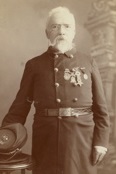

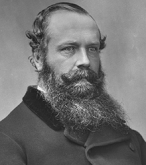
















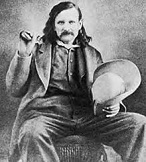




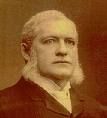





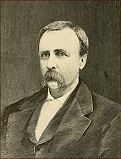




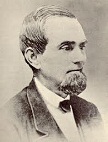


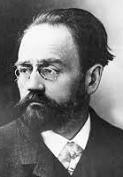








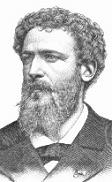

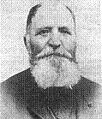
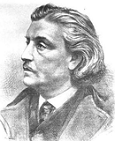

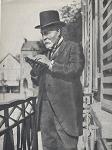
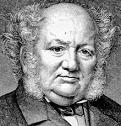
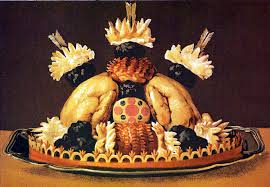

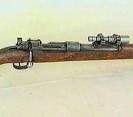

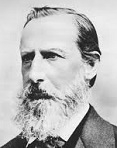





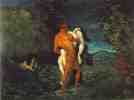


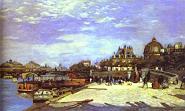
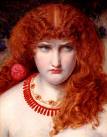
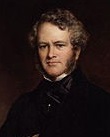
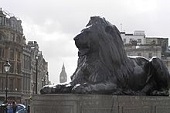
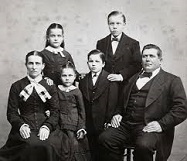

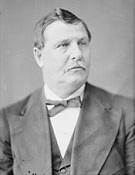
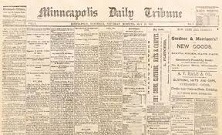
1867 About 914K emigrate from Ireland to the U.S.; 424K British have emigrated to the U.S. since 1857; meanwhile Vienna, Austria grants full citizenship rights to Jews, causing the pop. to grow from 6K in 1860 to 40K in 1870 and 140K in 1900, triggering anti-Semitism, which the Nazis reap in Kristallnacht (Nov. 9, 1938). There are 3.7K beer breweries in the U.S. producing a total of 6M barrels/year. On Jan. 8 after overriding Pres. Johnson's veto, Congress grants black citizens of the District of Columbia the right to vote; on Mar. 2 Congress, to impose its will in the face of Southern feet-dragging over ratification of the Fourteenth Amendment passes the U.S. First Reconstruction Act, calling for the enfranchisement of former slaves in the Confederacy; this year and next the Radical Repubs. use the new phenomenon of concentrated federal power to try to gain more equality for blacks in the South. On Jan. 30 emperor (since 1846) Komei (b. 1831) dies, and on Feb. 3 his 2nd son (only surviving child of six) Prince Mutsuhito becomes Japanese Yamato emperor #122 Meiji (pr. may-EE-jee) (1852-1912) (until July 20, 1912); his wife Empress Shoken (Masako Ichijo) (1849-1914) follows his lead and wears Western dress. RU hungary for some strange Aus? On Feb. 7 Austria (fearing Bismarck's Germany) and Hungary (fearing the Russians) forget their quarrels and agree to live in sin under the Ausgleich (Compromise) of 1867, uniting under a dual monarchy with Austrian emperor Franz (Francis) (Ferenc) Joseph (Jozsef) I (1830-1916) as king (until Nov. 21, 1916), who is crowned at Budapest on June 8; the double kingdom of Austria-Hungary (ends Oct. 31, 1918) is born, with two independent parliaments and sets of ministers, the Hungarian Magyars given a dem. parliament and the wealthy German Austrians a non-dem. parliament; Count Gyula (Julius) Andrassy Sr. (1823-90) becomes PM #1 of Hungary (until 1871); on Feb. 7 Dresden-born count Friedrich Ferdinand von Beust (1809-86) becomes pres.-PM of Austria until Dec. 30, when he is succeeded by Prince Karl Wilhelm Philipp von Auersperg (1814-90) (until 1868); a 3rd parliament with reps from both sides considers problems incl. foreign affairs, import-export taxes, and military matters; meanwhile the Slavs trapped in the kingdom are treated as second class, causing them to foment a rebellion; writer Maurus (Mor) Jokai (1825-1904), who fought in the 1849 rev. and was under suspicion by Austrian authorities until 1863, when he founded the govt. periodical Hon becomes a member of the Hungarian parliament until 1897, when Franz Josef appoints him a lifetime member of the upper house. On Mar. 1 "Cornhusker State", "Beef State" Nebraska (Neb.) (Oto Indian "flat water") is admitted as the 37th U.S. state, with the village of Lancaster, Neb. (pop. 30) (founded 1856), located in a salt marsh basin on Salt Creek (tributary of the Platte River), changing its name to Lincoln, Neb. (modern-day pop. 258K/348K), becoming the last state to name its capital city after a U.S. pres.; it was renamed after dead Pres. Lincoln by interests partial to keeping it Omaha (capital of Nebraska Territory since 1854), thinking that Confed. sympathies of senators living S of the Platte River would derail it, which backfires; the 2-story native limestone Nebraska State Capitol is completed on Dec. 1, 1868, and replaced with a 2nd bldg. in 1888, a 3rd bldg. in 1924, and a 4th bldg. in 1932, becoming the 2nd-tallest capitol bldg. in the U.S. On Mar. 2 Howard U. in Washington, D.C. is chartered by the U.S. Congress for freed slaves and their descendants, managed by the U.S. Dept. of Interior under the dir. of white Union Gen. Oliver Otis Howard (1830-1909), AKA "the Christian General", who was a math prof. at West Point in 1857-61, lost his right arm in the Peninsular Campaign, fought at First Bull Run, Chancellorsville, and Gettysburg, commanded Sherman's right wing in the March to the Sea, and became the first commissioner of the Freedman's Bureau (1865-74); he becomes its first pres. in 1869 (until 1874). On Mar. 5 the Fenian Rising in Ireland by the secret Invincibles society begins in Dublin and Kerry, and is stopped by the Irish Constabulary; in Sept. Col. Thomas Joseph Kelly (1833-1908), English leader of the Finians is arrested, and a rescue attempt kills a policeman while attempting to shoot off the lock of the van; Kelly escapes to the U.S., but three Fenians (Allen, Larkin and O'Brien) are railroaded and hanged on Nov. 23 for it, becoming known as the Manchester Martyrs; on Mar. 29 after the Fenian invasion scares them into it, the British Parliament passes the British North America Act, creating the Dominion of Canada on July 1, with the E provinces of Ontario, Quebec, New Brunswick, and Nova Scotia uniting to offset the threat of a U.S. invasion from the S; eventually 10 provinces (Alberta, British Columbia, Manitoba, New Brunswick, Newfoundland, Nova Scotia, Ontario, Prince Edward Island, Quebec, Saskatechewan) and two territories (Northwest Territories and Yukon) join; Glasgow, Scotland-born Conservative Sir John Alexander Macdonald (1815-91) becomes PM #1 of Canada (until Nov. 5, 1873), and Templemore, Ireland-born Charles Stanley Monck, 1st Viscount Monck (1819-94) (gov.-gen. of the Province of Canada since 1861) becomes gov.-gen. #1 (until Nov. 14, 1868); to induce British Columbia to join, the Canadian Parliament guarantees a transcontinental railroad within 10 years, promising 25M acres of western land, a 20-year tax exemption, and other guarantees to six millionaires in exchange for $25M, creating the Canadian Pacific Railroad, which takes until 1885 to finish; Scottish-born Toronto Globe founder George Brown (1818-80) is instrumental in leading the Reform Party to push the confederation. On Mar. 11 Mauna Loa volcano in the Big Island of Hawaii erupts. On Mar. 29 Congress approves the Lincoln Memorial. In Mar. while the War over Reconstruction rages, the step-over-this-line U.S. Tenure of Office Act, prohibiting the U.S. pres. from dismissing a cabinet member without the Senate's consent is passed over his veto; in Aug. Pres. Johnson tells the Congress to stuff it and fires his pro-Reconstruction opponent secy. of war Edwin M. Stanton, but the Senate refuses to ratify it and restores him to office. In Mar. the Luxembourg Crisis begins after 21 German states N of the Main River join a North German Confederation led by Prussia, and French emperor Napoleon III tries to purchase Luxembourg from the Netherlands, pissing-off the Germanic Confederation and causing Prussia to threaten war; on May 11 the Second Treaty of London (first in 1839) is signed, reaffirming the personal union between Luxembourg and the Netherlands under the House of Orange-Nassau, making Luxembourg a neutral territory governed by its grand duke; too bad, in 1890 the Salic Law prevents Dutch Queen Wilhelmina from becoming grand duchess of Luxembourg, ending the treaty; meanwhile August Ferdinand Bebel (1840-1913) becomes the first Socialist member of the North German Reichstag. In Mar. the French finishing evacuating Mexico; 34-y.-o. Maximilian I (b. 1832) remains behind, is captured on May 15 and executed on June 19 in Santiago de Queretaro; Benito Juarez returns to Mexico City, and in Dec. is reelected pres. of Mexico for six more years (until 1873). We will butcher valiantly in the gorgeous field of fire? In Mar. Union Civil War Gen. Ranald S. Mackenzie (demoted to Capt. after the war) uses his connections with Gen. Sheridan to become "blackjack" (white officer) Col. of the 41st Black Infantry, which campaigns along the Rio Grande against Indians and outlaws, and has the lowest desertion rate in the U.S. Army. In Mar. after Russia fears that it might be seized by the U.K. if war breaks out, U.S. secy. of state (1861-9) William Henry Seward (1801-72) negotiates the Alaska Purchase (Treaty), AKA Seward's Folly selling the "worthless" land of Alaska ("Seward's Icebox") and the Aleutian Islands (586,412 sq. mi. plus 6,640 mi. of shoreline) for $7.2M (2 cents/acre) as a way to repay them for their fleet sent to U.S. waters during the war; Sitka (originally New Archangel) ceases being the capital of Russian Am.; the purchase pisses-off the British, who fear takeover of their Pacific coast colony, spurring Canadian Confederation; half-Russian half-Austrian Russian minister to the U.S. Eduard Andreevich de Stoecki (1804-92) negotiates for the Russians, and is rewarded by Tsar Alexander II with $25K plus an annual $6K pension; greedy Americans begin occupying Alaska before the money can be paid - check out this Tundra Crewmax? On Apr. 1 British East India Co. rule of the Straits Settlements in Malaysia ends, and they become a crown colony. On Apr. 1-Oct. 31 the 1867 Paris World Exhibition (Exposition Universelle) on the Champ-de-Mars, the first-ever world's fair is visited by 15M, introducing Japanese art to the West along with reinforced concrete and the hydraulic elevator. On Apr. 29 Colombian pres. Tomas Cipriano de Mosquera declares himself a dictator, causing him to be ousted and confusion to reign, and on May 12 Joaquin Riascos (1833-75) becomes pres. of Colombia, while on May 23 Gen. Santos Acosta (1830-1901) also becomes pres. (until 1868), causing Riascos to step down on June 28 after 47 days. In Apr. the Ottomans agree to withdraw from Serbia and permit Serbian autonomy, although they must still pay an annual tribute (jizya) and display the Ottoman flag jointly with their own in Belgrade. On May 25 the morning Star Tribune (originally the "Minneapolis Tribune") is founded in Minneapolis, Minn. by future U.S. Rep. (R-Minn.) (1875-7) Col. William Smith King (1828-1900) et al., merging in 1982 with the rival evening "Minneapolis Daily Star" (founded 1920), and filing for bankruptcy in 2009 after winning six Pulitzer Prizes, and two more in 2013, becoming the largest newspaper in Minn., reaching a modern-day circ. of 288K daily and 581K on Sun.; in 2014 it is acquired by local businessman Glen Taylor. In May the Jacob Leinenkugel Brewing Co. is founded in Chippewa Falls, Wisc. by Prussian-born Jacob Mathias Leinenkugel (1842-99); he leaves the co. to his eldest son Mathias Jacob "Matt" Leinenkugel (1866-1926); in 1988 it is acquired by Miller Brewing Co.; in 2007 it introduces Summer Shandy lemonade wheat beer. On June 7 the Dinner of the Three Emperors (Tsar Alexander II of Russia, his son Tsar Alexander III, and William I of Prussia, along with Prince Otto von Bismarck) is served at Cafe Anglais while they are in Paris for L'Exposition Universelle, requesting that no expense be spared, resulting in 16 courses with eight wines served over eight hours at 400 francs per person; at 1:00 a.m. Alexander II complains that they didn't serve foie gras, but is satisfied with the explanation that the French don't eat it in June; Cafe Anglais is demolished in 1913. In June Egyptian pasha Ismael acquires the Persian title of khedive (pr. kuh-DEEV) from the Ottoman sultan to give him a higher status than other Ottoman govs. (ends 1914). In June-July Sultan Abdul Aziz visits the Paris World Exhibition, then visits the British royal family in London, becoming the first Ottoman sultan to travel to the West. On July 4 Congress approves a new U.S. flag (design #19) with 37 stars, which incl. Neb.; no more changes for 10 years. On July 4 Cheyenne, Wyo., capital of Wyoming Territory is founded by Union Gen. Grenville Mellen Dodge, and after the Union Pacific Railroad reaches it on Nov. 13 its pop. reaches 4K, causing it to become known as "Magic City of the Plains". On Aug. 28 the Midway Islands are formally declared a U.S. possession. In Aug. lawyer Karl Heinrich Ulrichs urges the Sixth Congress of German Jurists in Munich to repeal laws forbidding gay male sex, launching the gay rights movement in Germany. On Oct. 6 the residents of Alaska change from the Julian to Gregorian calendars, jumping to Oct. 18 and losing 11 days; on Oct. 18 the U.S. takes formal possession of Alaska from Russia - are you asking me if being cold's a choice? On Oct. 21-28 the Treaty of Medicine Lodge between the U.S. and the Kiowa, Comanche, Apache, and Arapaho tribes moves the Southern Cheyenne and Arapahoe to Kan. and Okla.; too bad, they are later removed from Kan. by white homesteading; the Kiowa tribe is moved to a rez in SW Okla., with HQ in Carnegie, Okla.; in 1873-5 the Pawnee People are moved to a rez in NC Okla. with HQ in Pawnee, Okla.; the Wyandot (Wyandotte) Nation is removed from Kan. to Ottawa County in NE Okla. (near Joplin, Mo.), with tribal HQ at Wyandotte, Okla., the Quakers establishing a mission there in 1869; during negotiations Kiowa chief Set-tainte repeatedly protests the white grab of Indian lands, saying: "All the land... belongs to the Kiowas and Comanches and I don't want to give any of it away. I love the land and the buffalo and will not part with it... I want the children raised as I was" - you and what U.N.? On Oct. 28 Maimonides College, the first Jewish theological society in the U.S. opens in Philadelphia, Penn. On Oct. 29 a hurricane in St. Thomas, West Indies wrecks 50 ships incl. RMS Rhone and RMS Wye, killing 100. In Oct. Giuseppe Garibaldi begins his March on Rome, and on Nov. 3 is defeated by French and papal troops at the Battle of Mentana, and taken POW. On Nov. 8 after Choshu Province forms a secret alliance with the British-armed Satsuma Province, and one day before Emperor Meiji issues a secret order to them to "slaughter the traitor", Hitotsubashi shogun Tokugawa Yoshinobu, the last Japanese shogun resigns and surrenders to the emperor, and is put under house arrest, then retires to Shizuoka for life, becoming a photographer; the emperor regains his position as actual head of the govt., ending 675 years of shogun rule (since 1292) and its Western humiliations; the new Meiji rulers are modernizers, bringing liberal and economic reforms; too bad, the Tokugawa clan continue in power, pissing-off their rivals in Choshu and Satsuma. On Nov. 16 after starting a gold rush in Yavapai County in the C highlands of Ariz. Territory in 1863, Anderson, S.C.-born Confed. veteran John W. "Jack" Swilling (1830-78) forms the Swilling Irrigating and Canal Co. in Wickenburg, Ariz, pioneering modern irrigation canals in the Salt Valley of Ariz. modeled on ancient Hohokam canals; next summer he founds the city of Phoenix, Ariz. (modern-day pop. 1.45M/1.68M) . in the Salt River Valley, with Kent, England-born settler "Lord" Phillip Darrell Dupa (1832-92) suggesting the name, establishing their first post office on June 15 and becoming postmaster and justice of the peace. On Dec. 3 Pres. Johnson delivers his 1867 State of the Union Message, attempting to explain why it's a mistake to give blacks the vote, with the soundbytes: "The morality is always false which excuses a wrong because it proposes to accomplish a desirable end. We are not permitted to do evil that good may come. But in this case the end itself is evil, as well as the means. The subjugation of the States to Negro domination would be worse than the military despotism under which they are now suffering", and "It is not proposed merely that they shall govern themselves, but that they shall rule the white race, make and administer State laws, elect Presidents and members of Congress, and shape to a greater or less extent the future destiny of the whole country. Would such a trust and power be safe in such hands?" On Dec. 4 the Patrons of Husbandry, AKA the Nat. Grange (from the Latin word for grain), a fraternal org. for Am. farmers is founded by USDA employee Oliver Hudson Kelley (1826-1913) et al.; it reaches 1M members by 1890. On Dec. 12 the first Irish terrorist bomb on mainland England goes off at Clerkenwell Prison in London. Carinthia in S Austria becomes one of the Cisleithanian crown lands of Austria-Hungary. Wahabi sultan Faisal of Nejd in Arabia dies, and his three eldest sons vie for the sultanate (until 1891), weakening the Wahhabi state, allowing the emirs of Shammar in N Arabia to grab territory, and the Turks to seize El-Hasa. The Reform Act extends suffrage in Britain, doubling the electorate: the liberal elements in the Whig and Conservative parties push through the extension of suffrage to urban laborers, Disraeli caving in to their demands; the number of voters increases from one in 22 to one in 12; most of the male working class except rural wage earners now have the vote; British Conservatives form the Nat. Union to win the votes of the working man; wait till 1874. The first Socialist Party in the U.S. is founded in New York City. Conservative Fernando Guzman Solarzano (Guzmán Solórzano) (1812-91) becomes pres. of Nicaragua (until 1871). The U.S. Congress reduces the number of U.S. Supreme Court justices to seven to keep corrupt Pres. Grant from appointing any new ones. Pope Pius IX, on the 18th centennial of St. Peter and St. Paul announces his intention to hold an ecumenical council. After visiting the freedmen in Port Royal, S.C. during the U.S. Civil War, Yankee abolitionists Charles Pickard Ware (1840-1921), William Francis Allen (1830-89), and Lucky McKim Garrison (1842-77) pub. Slave Songs of the United States, the first pub. collection of Negro spirituals, and first pub. collection of African-Am. music of any kind; it incl. Michael, Row the Boat Ashore. The British send an expedition to Ethiopia, and steal their sacred Ethiopian Book of Kings (Kebra Negast), containing the genealogy leading back to Jewish King Solomon and his on-again off-again babe Queen of Sheba, who gave birth to his son Menelik, first king of Ethiopia; after complaining formally, the Ethiopians get it returned from the British Museum in 1872. Zagreb becomes the capital of Croatia and Slavonia. Portugal becomes the world's first country to abolish the death penalty. Thousands of disgruntled Confederates accept an offer from King Dom Pedro II of Brazil and emigrate to the last major country where slavery is still legal, becoming known as the Confederados. As the U.S. Civil War gets put behind them, farmers move W and expand food production faster than the country's pop., causing farm prices to fall until 1897; the wholesale price index for farm products falls from 133 this year to 40 in 1896; corn drops from 66 to 28 cents a bushel; the price of wheat falls from $2.06 to $0.70 a bushel. A railroad is completed through the 4,495-ft. Brenner Pass in the Alps at the Italian-Austrian border. Prussia buys mail service from the Thurn and Taxis family. Gold is discovered in Wyo. Horace Greeley bails Jefferson Davis out of jail, holding his long imprisonment to be a violation of his rights, causing a big backlash in the North; combined with his call for gen. amnesty of Confederates and universal suffrage in the South, he ends up losing half of his New York Tribune readership. The severe winter of 1866-7 causes many Central Pacific (Chinese) workers to freeze to death or die in avalanches in the Sierra Madres; in Feb. a 12-day blizzard buries worker shacks in 60-ft. drifts. The Jacob family, who live on the farm of Schalk van Niekerk near the Orange and Vaal Rivers in South Africa discover the 21.25 carat Eureka Diamond, and the children use it for a game stone until Niekerk takes it to Hopetown for verification; the continual discovery of diamonds in the Cape Colony of South Africa increases world production tenfold in ten years. The port city of Redwood City, Calif. on San Francisco Bay 27 mi. S of San Francisco and 24 mi NW of San Jose (modern-day pop. 84K) is incorporated, becoming the county seat of San Mateo County in 1866, and the only deepwater port on San Francisco Bay S of San Francisco. The cow town of Abilene, Tex. in Taylor County, 150 mi. WSW of Ft. Worth (modern-day pop. 120K/165K) is founded by Chicago cattle dealer Joseph McCoy, and named after Abilene, Kan., becoming the original endpoint for the Chisholm Trail; it is incorporated as a town in 1881, becoming county seat of Taylor County in 1883; in 1910 the pop. is 9,204. After winning the fight with Colorado Springs, Denver, Colo. becomes the seat of the Colo. territorial govt. Canadian-born James Jerome Hill (1838-1916) forms a shipping co. to furnish the St. Paul and Pacific Railroad with fuel, and ends up buying it in the 1870s, extending it W to the Pacific by the 1890s and creating a railroad empire in the Am. Northwest. The city of Minneapolis, Minn. near Saint Anthony Falls, highest waterfall on the Mississippi River on its confluence with the Minnesota River (modern-day pop. 382K/4.1M) is founded, with the city's first schoolmaster Charles Hoag (1808-88) naming it from the Dakota Sioux word "mni" = water. After returning to Mo. from Mexico, where he and 1K men of Confed. Gen. Joseph O. Shelby offered their swords to Emperor Maximilian and were granted land near Veracruz to set up the colony of Carlota, only to have it stolen by the new repub. Mexican govt., the Kansas City Times morning newspaper is founded in Kansas City, Mo. by ex-Confed. Maj. John Newman Evans (1839-89) (Shelby's adjutant) to support the anti-Reconstruction policies of the Dem. Party, going on to help make outlaws Jesse and Frank James folk heros by portraying them as "striking back" against the corrupt Repub. military regime in Mo.; on Oct. 19, 1901 William Rockhill Nelson, owner of The Kansas City Star acquires it to get their AP wire; it goes defunct on Mar. 1, 1990. Lewis & Clark College (originally Albany College Inst. until 1942) is founded in Albany, Ore., moving to Portland, Ore. in 1938; alumni incl. Monica Lewinsky, actor Penn Badgley, and Ore. gov. #38 Kate Brown. Boston Conservatory in Mass. is founded by German-born violinist-composer Julius Eichberg (1824-93) to teach the performing arts, becoming one of the first to admit blacks and women; in Dec. 2015 it merges with Berklee College of Music. William Whiteley (1831-1907) founds London's first dept. store (17 depts.). The Lutheran Gen. Council of conservative Lutherans within the liberal Am. Gen. Synod is formed by Charles Porterfield Krauth (1823-83). The Lincoln Memorial is proposed (finished 1922). La Stampa is founded in Turin, Italy, becoming one of the two most influential newspapers in Italy along with Corriere Della Sera in Milan; in ? it is purchased by Fiat. The Ottoman Theater, the first Turkish language theater is founded by Armenian Agop Vartovyan (Gullu Agop) (1840-1902), going on to perform Euro and Turkish plays. 13-y.-o. John Philip Sousa (b. 1854) becomes an apprentice in the U.S. Marine Band. Frankfort, Ky. Dem. mayor (1871-7) Col. Edmund Haynes Taylor Jr. (1830-1923) (grandnephew of U.S. pres. Zachary Taylor) leases the Old Crow brand from the Oscar Pepper family, becoming the father of the modern bourbon industry, gathering investors to build a new medieval castle distillery in 1887 on Glenn's Creek in Franklin County to produce Old Crow and Old Taylor; he is among the first to use charred white oak barrels. Singer Corp. opens factories producing sewing machines in Britain, France and Argentina. Physician-farmer Hugh James Glenn (1824-83) buys the Rancho Jacinto in Glenn County 100 mi. N of Sacramento, and goes on to run as a Dem. for Calif. gov. in 1879. Am. philosopher William Torrey Harris (1835-1909) founds the Journal of Speculative Philosophy, the first philosophical periodical in the U.S. Reclam Universal Bibliothek, the first paperback series is founded in Leipzig, beginning with Goethe's "Faust I". Am. ornithologist, icthyologist, et al. Frederick Ward Putnam (1839-1915) et al. found Am. Naturalist mag. English engineer Sir Charles Warren (1840-1927) conducts the first major excavations of Jerusalem, discovering Warren's Shaft underneath the Temple Mount, dating back to the 18th cent. B.C.E., when Canaanites controlled the area. Moosehead Brewery (originally the Army and Navy Brewery) is founded in Halifax, N.S., Canada by John Oland (-1870) and English immigrant Susannah Oland (-1886), becoming S. Oland, Sons and Co. in 1870, going on to become the oldest independent brewery in Canada; in 1886 her sons Conrad Oland and George Oland take over, changing its name in 1899 to Maritime Brewing and Malting Co.; too bad, the brewery is destroyed in the 1917 Halifax Explosion, and Conrad Oland is killed; in 1928 it moves to Saint John, New Brunswick; in 1931 the moose logo is adopted for the introduction of Moosehead Pale Ale, which is a hit, causing the co. name to be changed to Moosehead Breweries Ltd. in 1947; in 1978 Moosehead Lager is introduced in the U.S.; in 1982 it begins global sales; too bad, it lowers its U.S. price in the 1980s, ruining its rep as a premium beer and hurting sales; in Aug. 2004 a truck driver transporting 60K cans to Mexico absconds, and police track him down in Ontario; in Oct. 2004 200 cans are found at a marijuana growing operation in Doaktown, N.B., with some of the cans showing bear tooth marks, giving Moosehead internat. publicity. Philip Danforth Armour (1833-1901), who became head of Plankinton Packing Co. in Milwaukee, Wisc. (founded 1852) in 1863 and acquired a large interest in the grain business of his brother Herman Ossian Armour (1837-1901) forms Armour & Co. in Chicago, Ill., adding a pork packing plant to it next year; in 1870 they merge, becoming a pioneer in canned meat and refrigeration, causing demand for beef to zoom, with prices reaching $40 a head, making it profitable to herd cattle from long distances incl. Tex., which is first tried in 1866; too bad, they treat their workers like manure, fighting unionization and breaking strikes in 1904 and 1921 after being caught selling tainted beef to the U.S. Army during the 1898 Spanish-Am. War; the Meatpacking Union finally succeeds in unionizing the co. in the late 1930s, joining the CIO; in 1884 Armour dissolves his partnership with Plankinton, and the Milwaukee operation becomes Cudahy Packing Co. Sports: In June the first Belmont Stakes, "the Test of Champions", named after August Belmont Sr., first pres. of the Am. Jockey Club is run on Long Island, N.Y.; a filly named Ruthless is the winner (the next filly wins in 1905). The Marquis of Queensberry Rules of boxing are pub., formulated in London in 1865 by lightweight boxer John Graham Chambers (1843-83) of the London Amateur Athletic Club, supervised by the Marquis of Queensberry to take the barbarity out of "pugilism", esp. bare knuckles, requiring boxing gloves to be worn and providing for 3-min. rounds with 1-min. rest intervals in a 24-ft. ring, with wrestling and hugging prohibited; in 1870 the 12-regulation rules are officially established as the governing code of the sport of boxing- although the gloves actually protect the hand not the other guy's face? Inventions: On July 16 French gardener Joseph Monier (1823-1906) patents a reinforced concrete process, and exhibits it at the 1867 Paris Exposition. Catalan impresario Joseph Oller (1839-1922), founder of the Moulin Rouge cabaret in Paris invents Parimutuel Betting. Benjamin Berkeley Hotchkiss (1826-85) of Conn. sets up a munitions factory in Saint Denis (near Paris), France, where he begins producing the Hotchkiss Gun (Revolving Cannon), with land and naval models. Lord Kelvin patents the Continuous Inkjet Method of Printing, using electrically-charged droplets of ink; it takes until the 1960s to be commercialized. The Mauser brothers Peter Paul Mauser (1838-1914) and Wilhelm Mauser (1834-82) of Oberndorf am Necker, Wurrtemberg, Germany invent a breech-loading rifle, which is adopted by the Prussian govt. in 1871 as the Mauser Model 1871; in 1898 they begin producing automatic pistols. German chemist Justus von Liebig (1803-73) invents the first commercial infant formula; meanwhile Henri Nestle copies, er, develops his own version, which is a success, selling out in 1875; by the end of the 20th cent. Nestle, maker of Taster's Choice coffee is the world's largest food co. Mooresburg, Penn.-born inventor Christopher Latham Sholes (1819-90) of Milwaukee, Wisc. invents the modern Sholes Typewriter ("Type-Writer"), and receives a patent on June 23, 1868; too bad, it prints on the reverse side of the paper; he also devises the infamous QWERTY keyboard arrangement in 1874, and adds upper and lower case letters in 1878. Lucien B. Smith of Kent, Ohio receives the first patent for barbed wire fencing - what's all the screaming about? British scientist William Thomson (later Lord Kelvin) invents the syphon recorder. The ticker tape machine is invented. Science: Anders Jonas Angstrom of Sweden becomes the first to examine the spectrum of the aurora borealis, and detects its characteristic bright line in the yellow-green region, falsely claiming it also shows up in the zodiacal light. German chemist August Wilhelm von Hofmann (1818-92) isolates formaldehyde. Sir Joseph Lister introduces antiseptic practices in hospitals, which up till now had been disgusting dangerous bloody diseased iatrogenic shitholes - what are they now? Willard Parker (1800-84) of Columbia U. performs the first successful operation on an abscessed appendix. Swiss botanist Simon Schwendener (1829-1919) pub. the theory that lichen is formed of a fungus and an alga, which is at first rejected. Nonfiction: Walter Bagehot (1826-77), The English Constitution; compares U.S. and British govts. LaFayette Curry Baker (1826-68), History of the United States Secret Service. Alexandre Edmond Becquerel (1820-91), La Lumiere, ses Causes et ses Effets (2 vols.) (1867-8). Alexander Melville Bell (1819-1905), Visible Speech: The Science of Universal Alphabetics; father of Alexander Graham Bell invents scientific lip reading. George Sewall Boutwell (1818-1905), Speeches and Papers. Sir John Charles Bucknill (1817-97), The Mad Folk of Shakespeare: Psychological Essays. John Burroughs (1837-1921), Notes on Walt Whitman as Poet and Person; the first recognition the poet gets? Paul Du Chaillu (1835-1903), A Journey to Ashango Land; report of his 1863-5 expedition to C Africa, where he discovered a race of 4'8" avg. black forest pygmies (Gr. "pygme" = distance from elbow to knuckles), (mentioned by Homer, Aristotle, and Herodotus as dwelling in Africa, fighting with cranes and attacking Hercules, who captured some of them in his lion skin and took them to King Eurystheus of Tiryns) in the Ituri Forest. Charles Darwin (1809-82), The Variation of Plants and Animals under Domestication. Andrew Jackson Davis (1826-1910), Arabula, or the Divine Guest, Containing a New Collection of New Gospels; incl. St. Confucius, St. John (Greenleaf Whittier), St. Gabriel (Derzhavin), St. Octavius (Frothingham), St. Gerrit (Smith), St. Emma (Hardinge), St. Ralph (Emerson), St. Selden (J. Finney), and St. Theodore (Parker). John William Draper (1811-82), History of the American Civil War (3 vols.) (1867-70). Jubal A. Early (1816-94), A Memoir of the Last Year of the War for Independence in the Confederate States of America; his Valley Campaign. H.M. Elliot and John Dowson, The History of India as Told By Its Own Historians (1867-77). Camille Flammarion (1842-1925), Lumen. Thomas Fowler (1832-1904), Elements of Deductive Logic. Edward Augustus Freeman (1823-92), The History of the Norman Conquest of England, Its Causes and Its Results (6 vols.) (1867-79); his magnum opus; becomes a std. work. James Anthony Froude (1818-94), Short Studies on Great Subjects (1867-82). Jules Gouffe (1807-77), Le Livre de Cuisine : comprenant la cuisine de ménage et la grande cuisine avec 25 planches imprimées en chromolithographie et 161 gravures sur bois dessinées d'après nature par; new head chef of the Jockey Club in Paris, known for his pieces montee becomes a star, known as "the Apostle of Decorative Cooking". Henry Houssaye (1848-1911), History of Apelles; about ancient Greek art; The Ancient Greek Army. John William Kaye (1814-76), Lives of Indian Officers. Friedrich August Kekule (1829-96), Chemie der Benzolderivate und der Aromatischen Substanzen (Chemistry of Benzene Deriviates and Aromatic Substances). Joseph Lister (1827-1912), On the Antiseptic Principle in the Practice of Surgery. Bon Louis Henri Martin (1810-83), A Popular History of France (7 vols.); popular abridged version of his 19-vol. 1865 magnum opus. Karl Marx (1818-83), Das Kapital: Kritik der Politischen Okonomie, Vol. 1 (Capital: A Critique of Political Economy) (Sept. 14); condemns capitalism for exploitation of labor; incl. the chapter on Alienated Labour; three more vols. are planned, and only two are pub. (1885, 1894); Marx wanted to dedicate it to Charles Darwin until his religious wife Emma Darwin nixes it; Marx quit working on his big book because the Marginalist School of Jevons, Menger, and Walras used the cost of diamonds vs. water to disprove his labor theory of value? his notes are pub. posth. in 1939 under the title Grundrisse; Marxian Economics can be differentiated from Marxian rev. politics - don't these people know that you can't tell what a tomato tastes like by squeezing it? Jean Jacques Elisee Reclus (1830-1905), La Terre: Description des Phenomenes de la Vie du Globe (2 vols.) (1867-8). Lysander Spooner (1808-87), No Treason: The Constitution of No Authority (1867-70); series of political essays dissing the U.S. govt. for acting without consent of the people, and giving Southerners legal defenses against treason charges. Peter Guthrie Tait (1831-1901), William Thomson, and Lord Kelvin (1824-1907), Natural Philosophy (2 vols.); defines the modern discipline of physics. Henry Baker Tristram (1822-1906), The Natural History of the Bible. Forbes Benignus Winslow (1810-74), Light and its Influence. Music: Georges Bizet (1838-75), The Fair Maid of Perth (Le Jolie Fille de Perth) (opera) (Paris). Charles Gounod (1818-93), Romeo and Juliet (Romeo et Juliette) (opera) (Theatre Lyrique, Paris) (Apr. 27); libretto by Jules Barbier and Michel Carre. Edvard Grieg (1843-1907), Lyric Pieces (10 vols.) (1867-1901); collection of 66 piano compositions, incl. Wedding Day At Troldhaugen, Op. 65 No. 6, To Spring, Op. 43 No. 5, March of the Trolls, Op. 54 No. 3, Butterfly, Op. 43 No. 1. George Leybourne (1842-84), Gaston Lyle, and Alfred Lee, The Daring Young Man on the Flying Trapeze; about French acrobat Jules Leotard (1842-70) (namesake of the 1-piece gymsuit), based on Act. 2 Scene 1 of Jacques Offenbach's 1860 ballet "The Butterfly"; becomes a favorite with circuses - with Offenbach everybody thinks they can take more and more clothes off'n their back? Jacques Offenbach (1819-80), La Grande-duchesse de Gerolstein (operetta) (Paris). Johann Strauss II (1825-99), The Blue Danube, Op. 314 (An der Schonen Blauen Donau) (waltz) (Feb. 9) (Vienna); not a big hit at first. Franz von Suppe (1819-95), Banditenstreiche (operetta) (Carltheater, Vienna) (Apr. 27). Giuseppe Verdi (1813-1901), Don Carlos (Mar. 11) (Paris Opera); French libretto by Camille du Locle and Joseph Mery; based on Friedrich Schillers's play "Don Carlos, Infante of Spain (1545-68)"; Verdi's longest opera (4 hours); incl. O Don Fatale. Charles Pickard Ware (1840-1921), William Francis Allen (1830-89), and Lucky McKim Garrison (1842-77), Slave Songs of the United States; first pub. collection of Negro spirituals, and first pub. collection of African-Am. music of any kind; incl. Michael, Row the Boat Ashore. Art: George Henry Boughton (1833-1905), Pilgrims (Puritans) Going to Church. Francis Bicknell Carpenter (1830-1900), The Lincoln Family. Paul Cezanne (1839-1906), Abduction. Francois Nicolas Auguste Feyen-Perrin (1826-88), Sir Edwin Henry Landseer (1802-73), Lion Sculptures in Trafalgar Square; at the base of Nelson's Column; after his death wreaths are hung from them. The Winnowers. Jean-Louis Ernest Messonier (1815-91), Gen. Desaix and the Army of the Rhine (and the Peasant). John Everett Millais (1829-96), The Boyhood of Raleigh; painted near Raleigh's birthplace of Exeter. Martin Milmore (1844-83), Soldiers' and Sailors' Monument (sculpture) (Forest Hills Cemetery, Roxbury, Mass.). Edward John Poynter (1836-1919), Israel in Egypt. Pierre-Auguste Renoir (1841-1919), Le Pont des Arts; Norton Simon pays $1.55M for it in 1968. Frederick Sandys (1829-1904), Helen of Troy; a redhead? Marie Spartali Stillman (1844-1927), The Lady Prays - Desire; Mariana. Plays: Sir Francis Burnand (1836-1917), The Contrabandista (2-act opera). John Augustin Daly (1838-99), Under the Gaslight (melodrama). Ludovic Halevy (1834-1908) and Henri Meilhac (1831-97), La Grande Duchesse de Gerolstein (operetta). Tom Hood (1835-74), W.S. Gilbert, H.J. Byron, H.S. Leigh and Arthur Sketchley, Robinson Crusoe; or, The Injun Bride and the Injured Wife. George Leybourne (1842-84), Champagne Charlie (Sun Music Hall, Knightsbridge); launches the Lion Comique genre; features the song "Champagne Charlie" by Leybourne and Alfred Lee. Thomas William Robertson (1829-71), Castle. Poetry: Matthew Arnold (1822-88), Dover Beach; "The sea is calm to-night./ The tide is full, the moon lies fair/ Upon the straits; on the French coast the light/ Gleams and is gone; the cliffs of England stand;/ Glimmering and vast, out in the tranquil bay"; "Ah, love, let us be true/ To one another! for the world, which seems/ To lie before us like a land of dreams,/ So various, so beautiful, so new,/ Hath really neither joy, nor love, nor light,/ Nor certitude, nor peace, nor help for pain;/ And we are here as on a darkling plain/ Swept with confused alarms of struggle and flight,/ Where ignorant armies clash by night." Adam Lindsay Gordon (1833-70), Sea Spray and Smoke Drift. Oliver Wendell Holmes Sr. (1809-94), The Guardian Angel. Edward Lear (1812-88), The Owl and the Pussycat; written for the children of his patron the 13th earl of Derby (1771-1851); owl, pussycat, piggy-wig, and turkey go to sea in "a beautiful pea-green boat"; "They dined on mince, and slices of quince/ Which they ate with a runcible spoon" (Lat. "runcibulum" = "tool used for weeding"?). Charles Godfrey Leland (1824-1903), Hans Breitmann Ballads (3 vols.) (1867, 1870, 1895); in Penn. Dutch dialect. William Morris (1834-96), The Life and Death of Jason. Jan Neruda (1834-91), Books of Verses. Ray Palmer (1808-87), Hymns of My Holy Hours. Edward Rowland Sill (1841-87), The Hermitage, and Later Poems. Algernon Charles Swinburne (1837-1909), A Song of Italy; written after a meeting with Italian patriot Giuseppe Mazzini. Novels: Mary Elizabeth Braddon (1837-1915), Circe. Rhoda Broughton (1840-1920), Not Wisely, But Too Well (first novel); Cometh Up as a Flower. Lydia Maria Child (1802-80), A Romance of the Republic. Charles de Coster (1827-79), The Legend of Till Eugenspiegel (La Legende de Thyl Ulenspiegel). Fyodor Dostoeovsky (1821-81), The Gambler; autobio. novel; in 1867 gambleholic Dostoevsky flees Germany to escape his creditors. William Clark Falkner (1825-89), The Lost Diamond. Octave Feuillet (1821-90), Monsieur de Camors. John William De Forest (1826-1906), Miss Ravenel's Conversion from Secession to Loyalty; a "realist before realism was named" (William Dean Howells). Thomas Hardy (1840-1928), The Poor Man and the Lady (first novel); rejected for pub., causing him to destroy most of the ms. George Washington Harris (1814-69), Sut Lovengood's Yarns, Spun by a Nat'ral Born Durn'd Fool, Warped and Wove for Public Wear; adventures of an uncouth Tenn. mountaineer. Paul von Heyse (1830-1914), Meraner Novellen. Petroleum V. Nasby (1833-88), Ekkoes from Kentucky. Margaret Oliphant (1828-97), Madonna Mary. Ouida (1839-1908), Under Two Flags. Wilhelm Raabe (1831-1910), Abu Telfan: Return from the Mountains of the Moon. Leopold von Sacher-Masoch (1836-95), The Last King of Hungary. Hesba Stretton, Jessica's First Prayer. Karolina Svetla (1830-99), Vesnicky Roman (A Village Novel) (first novel). Anthony Trollope (1815-82), The Last Chronicle of Barset; #6 in the Barsetshire Chronicles. Ivan Turgenev (1818-83), Smoke; his first hit outside Russia. Emile Zola (1840-1902), Therese Raquin; about a French woman who is forced to marry her first cousin Camille by her overbearing aunt Madame Raquin, and has an affair with his friend Laurent. Births: Am. "Weber and Fields" actor-comedian (Jewish) Lew Fields (Moses Schoenfeld) (d. 1941) on Jan. 1 in Poland (New York City?); collaborator of Joe Weber (1867-1942); father of Joseph Fields (1895-1966), Herbert Fields (1897-1958), and Dorothy Fields (1905-74). English journalist-novelistCharles Edward Montague (d. 1928) on Jan. 1 in London; ex-Catholic priest father; educated at Balliol College, Oxford U. Am. "El Capitan", "The Music Master" playwright-actor Charles Klein (d. 1915) on Jan. 7 in London, England; Latvian immigrant father; brother of Herman Klein (1856-1934) and Manuel Klein (1876-1919). Am. economist-sociologist and peace activist (Unitarian-to-Quaker convert) Emily Greene Balch (d. 1961) on Jan. 8 in Yankee Plain (near Boston), Mass.; educated at Bryn Mawr College. Anglo-Am. anti-behaviorist (Wundt) psychologist (founder of Structuralism) Edward Bradford Titchener (d. 1927) on Jan. 11 in Chichester, England; educated at Oxford U., and Leipzig U.; prof. at Cornell U. in 1892-1927. Am. movie pioneer (co-founder of Universal Pictures) (Jewish) Carl Laemmle (d. 1939) on Jan. 17 in Laupheim, Wurttemberg; emigrates to the U.S. in 1884; father of Carl Laemmle Jr. (1908-79). Nicaraguan "Cantos de Vida y Esperanza" poet-journalist-diplomat ("Father of Modernism") Ruben Dario (Rubén Darío) (Felix Ruben Garcia Sarmiento) (d. 1916) on Jan. 18 in Metapa (Ciudad Dario). German Bavarian "Ein Munchner im Himmel" writer-ed.-publisher Ludwig Thoma (d. 1921) on Jan. 21 in Owaamagau. French gen. Maxime Weygand (b. 1965) on Jan. 21 in Brussels, Belgium. Spanish "Blood and Sand", "The Four Horsemen of the Apocalypse" realist novelist Vicente Blasco-Ibanez (Blasco-Ibáñez) (d. 1928) on Jan. 29 in Valencia; an ardent republican, he is imprisoned 30x before choosing voluntary exile in France during WWI. Canadian cereal breeder Sir Charles Edward Saunders (d. 1937) on Feb. 2 in London, Ont.; introduces Marquis Wheat to W Canada. Am. "Little House in the Big Woods", "Little House on the Prairie" novelist Laura Elizabeth Ingalls Wilder (d. 1957) on Feb. 7 in Little House Wayside (near Pepin), Wisc.; daughter of Charles Philip Ingalls (1836-1902) and Caroline Lake Quiner Ingalls (1839-1924); sister of Mary Amelia Ingalls (1865-1928), Caroline Celestia "Carrie" Ingalls Swanzey (1870-1946), and Grace Pearl Ingalls Dow (1877-1941); grows up in a squatter homestead in Indian territory near Independence, Kan. and Walnut Grove, Minn. German philosopher-psychologist Max Dessoir (d. 1947) on Feb. 8 in Berlin; coiner of the term "parapsychology". Japanese "Kokoro", "Botchan" "The Three-Cornered Hat", "I Am a Cat", "Light and Darkness" #1 novelist Natsume Soseki (Kinnosuke) (d. 1916) on Feb. 9 in Edo (Tokyo). Am. educator (Jewish) (co-founder of Barnard College) Annie Nathan Meyer (d. 1951) on Feb. 19 in New York City; of Sephardic Jewish descent; sister of Maud Nathan (1862-1946); aunt of Robert Nathan (1894-1985). Am. "Kuhn, Loeb & Co." banker-philanthropist Otto Hermann Kahn (d. 1934) on Feb. 21 in Mannheim, Germany; emigrates to the U.S. in 1893. Am. "The Purchasing Power of Money" neoclassical economist Irving Fisher (d. 1947) on Feb. 27 in Saugerties, N.Y.; educated at Yale U.; "the greatest economist the United States has ever produced" (Milton Friedman, James Tobin). Am. nurse (Jewish) Lillian D. Wald (d. 1940) on Mar. 10 in Cincinnati, Ohio; founder of the Henry Street Settlement in 1893 in New York City's East Side. Am. "Ziegfeld Follies" Broadway impresario (Roman Catholic) Florenz "Flo" "the Great" Ziegfeld Jr. (d. 1932) on Mar. 15 (21?) in Chicago, Ill.; German Lutheran immigrant father, Roman Catholic mother; husband (1914-32) of Billie Burke (1884-1970). German amateur astronomer-selenographer Philipp Johann Heinrich Fauth (d. 1941) on Mar. 19 in Bad Burkheim. Am. "Moto Perpetuo" pianist-composer-bodybuilder Martinus Sieveking (d. 1950) on Mar. 24 in Amsterdam, Holland; pupil of Julius Rongen; emigrates to the U.S. in 1918; gay lover of Eugen Sandow (1867-1925)? Am. big-headed Mt. Rushmore and Stone Mt. sculptor-painter (Freemason) John Gutzon de la Mothe Borglum (d. 1941) on Mar. 25 in Chicago, Ill.; grows up in Neb.; brother of sculptor Solon Hannibal Borglum (1868-1922); father of Lincoln Borglum (1912-86). Italian #1 orchestra conductor Arturo Toscanini (d. 1957) on Mar. 25 in Parma, Emilio-Romagna. Am. baseball hall-of-fame pitcher Denton True "Cy" (Cyclone) Young (d. 1955) on Mar. 29 in Gilmore, Ohio; 511 career wins. Am. pharmacist (inventor of Pepsi-Cola) Caleb Davis Bradham (d. 1934) on May 27 in Chinquapin, N.C.; educated at the U. of N.C., and U. of Md. Irish poet-critic-painter George William Russell (AKA AE or A.E., short for AE'on) (d. 1935) on Apr. 10 in Lurgan, County Armagh; not to be confused with Liberal MP George William Erskine Russell (1853-1919); introduces James Joyce to William Butler Yeats in 1902. Am. flight pioneer Wilbur Wright (d. 1912) on Apr. 16 in Millville, Ind.; brother of Orville Wright (1871-1948). Danish pathologist Johannes Andreas Grib Fibiger (d. 1928) on Apr. 23 in Silkeborg; first to produce cancer in rats experimentally - fibroid cancer? Indian inventor Shankar Abaji Bise (d. 1935) (pr. SUNK-er BI-sey) on Apr. 29 in Bombay. Am. "Ruggles of Red Gap", "Merton of the Movies" novelist Harry Leon Wilson (d. 1939) on May 1 in Oregon, Ill. Am. Mafia boss Giuseppe "Piddu" (Peter) "Clutch Hand" "the Old Fox" Morello (d. 1930) on May 2 in Corleone, Sicily; emigrates to the U.S. in 1892; known for his deformed 1-finger right hand. German Prussian rev. leader (Jewish) Kurt Eisner (d. 1919) ono May 14 in Berlin. Irish nationalist leader (Gaelic League founder) Eoin (John) MacNeill (d. 1945) on May 15 in Glenarm, County Antrim; educated at Queen's College, Belfast. British (Welsh) "Funeral at Sea" artist Sir Frank William Brangwyn (d. 1956) on May 13 in Bruges, Belgium; Welsh and English parents; student of William Morris; knighted in 1941. English "Five Towns", "The Old Wives' Tale" novelist Enoch Arnold Bennett (d. 1931) on May 27 in Hanley, Staffordshire. Finnish field marshal and pres. (1944-6) Baron Karl (Carl) Gustaf (Gustav) Emil von Mannerheim (d. 1951) on June 4; German ancestor Heinrich Marheim (1618-67) emigrated to Sweden in the 17th cent. Am. #1 architect Frank Lloyd (Lincoln) Wright (d. 1959) on June 8 in Richland Center, Wisc.; educated at the U. of Wisc.; father of John Lloyd Wright (1892-1972); known for houses that fall apart and leak; when brother Richard calls and tells him "There's water dripping on the piano", he replies "Well, move the piano"? French physicist Maurice Paul Auguste Charles Fabry (d. 1945) on June 11 in Marseille; educated at the U. of Paris. Italian "Sei Personaggi in Cerca d'Autore" dramatist-novelist Luigi Pirandello (d. 1936) on June 28 in Agrigento, Sicily; teaches Italian lit. at the Normal College for women in 1897-1921. U.S. Nat. Park Service dir. #1 (1916-29) Stephen Tyng Mather (d. 1930) on July 4 in San Francisco, Calif. Am. astronomer (founder of dendrochronology) Andrew Ellicott Douglass (d. 1962) on July 5 in Windsor, Vt. German Expressionist painter-etcher-lithographer-sculptor ("the German Goya") Kathe (Käthe) Schmidt Kollwitz (d. 1945) on July 8 in Konigsberg. German chancellor (1918) Crown Prince Maximilian Alexander Friedrich Wilhelm "Max" von Baden (d. 1929) on July 10 in Baden-Baden; 2nd cousin of Kaiser Wilhelm II; cousin-heir of grand duke Frederick II of Baden (1857-1928). Am. "Mr. Dooley in Peace and War" humorist-journalist Finley Peter Dunne (d. 1936) on July 10 in Chicago, Ill. Am. celeb Margaret Tobin "Unsinkable Molly" "Maggie" Brown (d. 1932) on July 18 in Hannibal, Mo.; Irish Roman Catholic immigrant parents; wife (1886-) of James Joseph "J.J." Brown (1854-1922); mother of Lawrence Palmer "Larry" Brown (1887-1949) and Catherine Ellen "Helen" Brown (1889-1969); calls herself Maggie not Molly. Am. banker (black) (disabled) Maggie Lena Walker (d. 1934) on July 15 in Richmond, Va.; ex-slave mother, Irish father; first woman pres. of a U.S. bank. English 4'6" comedian-dancer Little Tich (Harry Relph) (d. 1928) on July 21 in Cudham, Kent; known for the Big-Boot Dance. English "Mapp and Lucia" archeologist-writer-novelist (gay?) Edward Frederic "E.F." Benson (d. 1940) on July 24 in Wellington College, Berkshire; son of Edward White Benson (1829-96); brother of A.C. Benson (1862-1925), Margaret Benson (1865-1916), and Robert Hugh Benson (1871-1914); educated at Marlborough College, and King's College, Cambridge U. Spanish "Goyescas" composer-pianist Enrique Granados Campina (Campiña) (d. 1916) on July 27 in Lleida. Am. K-Mart dept. store magnate Sebastian Spering "S.S." Kresge (d. 1966) on July 31 near Wilkes-Barre, Penn.; educated at Eastman Business College. Scottish Arctic explorer-oceanographer William Speirs Bruce (d. 1921) on Aug. 1 in London. English "A Comedy of Masks" Decadent poet-novelist (alcoholic) Ernest Christopher Dowson (d. 1900) on Aug. 2 in Lee, London; educated at Queen's College, Oxford U.; coiner of the phrases "gone with the wind" and "days of wine and roses", and the word "soccer". English Conservative statesman and PM (1923-4, 1924-9, 1935-7) Stanley Baldwin, 1st Earl Baldwin of Bewdley (d. 1947) on Aug. 3 in Bewdley, Worcestershire; educated at Harrow School, and Trinity College, Cambridge U. German Expressionist painter Emil Nolde (Hansen) (d. 1956) on Aug. 7 in Nolde, Schleswig-Holstein; Protestant Frisian-Danish peasant parents. Am. "The Sea-Wolf" film actor-dir.-writer-producer Hobart Van Zandt Bosworth (d. 1943) on Aug. 11 in Marietta, Ohio; direct descendant of Miles Standish and John and Priscilla Alden, plus the Van Zandt family, first Dutch settlers to land in the New World. Am. "The Greek Way" educator-writer Edith Hamilton (d. 1963) on Aug. 12 in Dresden, Germany; sister of Alice Hamilton (1869-1970); educated at Bryn Mawr College, U. of Leipzig, and U. of Munich. Am. genre painter George Benjamin Luks (d. 1933) on Aug. 13 in Williamsport, Penn.; member of The Eight. English "The Forsyte Saga" novelist John Galsworthy (d. 1933) (AKA John Sinjohn) on Aug. 14 in Kingston, Surrey; educated at Harrow School, and New College, Oxford U. English Lost City of Z archeologist-explorer Lt. Col. Percival Harrison Fawcett (d. 1925) on Aug. 18 in Torquay, Devon. English queen consort (1910-36) Mary "May" (Victoria Mary Augusta Louise Olga Pauline Claudine Agnes) of Teck (d. 1953) on Aug. 26 in Kensington Palace, London; daughter of the duke and duchess of Teck in Wurttemberg, Germany; wife (1893-35) of George V (1865-1936). German "The Moon and Sixpence" actor Albert Bassermann (d. 1952) on Sept. 7 in Mannheim. Am. banker-philanthropist John Pierpont "Jack" Morgan Jr. (d. 1943) on Sept. 7 in Chicago, Ill.; son of J.P. Morgan Sr. (1837-1913). Am. "Gibson Girls" illustrator Charles Dana Gibson (d. 1944) on Sept. 14 in Roxbury, Mass.; husband (1895-) of Irene Langhorne (1873-1956), sister of Nancy Witcher Langhorne (Lady Astor) (1879-1964); namesake of the Gibson Martini (pickled onion). English painter-illustrator Arthur Rackham (d. 1939) on Sept. 19 in London; known for fairy tale illustrations. British Conservative MP Charles Bathurst, 1st Viscount Bledisoe (d. 1958) on Sept. 21 in London; educated at University College, Oxford U.; knighted in 1917. U.S. Repub. secy. of state #46 (1929-33), and U.S. Secy. of war # 45 (1911-13) and #54 (1940-5) Henry Lewis Stimson (d. 1950) on Sept. 21 in New York City; educated at Phillips Exeter Academy, Yale U. (Skull & Bones), and Harvard U. German industrialist-statesman (Jewish) Walther Rathenau (d. 1922) on Sept. 29 in Berlin; son of Emil Rathenau (1838-1915). French Impressionist painter (co-founder of Les Nabis) Pierre Bonnard (d. 1947) on Oct. 3 in Fontenay-aux-Roses. Am. psychiatrist (Jewish) Boris Sidis (d. 1923) on Oct. 12 in Berdychiv, Ukraine; emigrates to the U.S. in 1887; educated at Harvard U.; pupil of William James; father of William James Sidis (1898-1944). Am. "The Races of Europe" economist-anthropologist William Zebina Ripley (d. 1941) on Oct. 13 in Medford, Mass.; educated at Columbia U., and MIT. Am. bodybuilder (gay) ("Father of Modern Bodybuilding") Eugen Sandow (Friedrich Wilhelm Muller) (d. 1925) on Oct. 14 in Konigsberg, Prussia; lover of Martinus Sieverking (1867-1950)? Japanese haiku poet and baseball hall-of-fame catcher Masaoka Shiki (Tsunenori) (Noboru) (d. 1902) on Oct. 14 in Matsuyama; born to a samurai class family; coins the terms "haiku" and "tanka" (replacing hokku and waka); likes the hot springs of Dogo Onsen on Shikoku Island for his TB. German neo-vitalist philosopher Hans Adolf Eduard Driesch (d. 1941) on Oct. 28 in Bad Kreuznach; educated at the U. of Jena; student of Ernst Haeckel. Am. 6'1" baseball hall-of-fame player Edward James "Big Ed" Delahanty (d. 1903) on Oct. 30 in Cleveland, Ohio; one of seven brothers, five of whom play ML baseball. Am. "Susan Lenox" Muckraker journalist David Graham Phillips (d. 1911) on Oct. 31 in Madison, Ind.; educated at Asbury College, and Princeton U. Polish-French scientist Marie Curie (Marya Salomee Sklodowska) (d. 1934) on Nov. 7 [Scorpio] in Warsaw; co-discoverer of radium and polonium, and the first person to win not one but two Nobel Prizes (Physics 1903, Chemistry 1911). Austro-Hungarian diplomat Maj. Gen. Prince Gottfried (Maximilian Maria) von Hohenlohe-Schillingsfurst (Hohenlohe-Waldenburg-Schillingfürst, Ratibor und Corvey) (d. 1932) on Nov. 8 in Vienna. British "The Man-Eaters of Tsavo" Zionist lt.-col. John Henry Patterson (d. 1947) on Nov. 10 in Forgney, Ballymahon, County Westmeath, Ireland; Protestant father, Roman Catholic mother. English Little Blue Books Freethought writer (ex-Roman Catholic Franciscan priest) Joseph Martin McCabe (d. 1955) on Nov. 12 in Macclesfield, Cheshire; Irish Roman Catholic parents; educated at the Catholic U. of Louvain; student of Albin van Hoonacker and T.J. Lamy. French royalist anti-Semitic politician-journalist Leon Daudet (d. 1942) on Nov. 16 in Paris; son of novelist Alphonse Daudet (1840-97). Am. Bureau of Investigation dir. (1919-21) William James Flynn (d. 1928) on Nov. 18 in New York City. German politician Gen. Karl Eduard Wilhelm Groener (d. 1939) on Nov. 22 in Ludwigsburg, Wurttemberg. Polish pres. (1926-39) Ignacy Moscicki (d. 1946) on Dec. 1 in Mierzanowo (near Ciechanow). Polish statesman-dictator (1926-35) field marshal Josef (Józef ) Klemens Pilsudski (d. 1935) on Dec. 5 in Zulow; educated at the U. of Cracow. Am. sculptor Karl Theodore Francis Bitter (d. 1915) on Dec. 6 in Vienna, Austria; emigrates to the U.S. in 1888. Norwegian physicist Kristian Olaf Bernhard Birkeland (d. 1917) on Dec. 13 in Christiania. Czech lit. critic Frantisek Xaver Salda (d. 1937) on Dec. 22 in Liberec. Am. cosmetics queen (black) (first female self-made millionaire) Sarah Breedlove Walker (Madam C.J. Walker) (d. 1919) on Dec. 23 in Delta, La.; freed slave parents; mother of A'Lelia Walker (1885-1931). Am. philanthropist and U.S. Sen. (R-Colo.) (1907-13) (Jewish) Simon Guggenheim (d. 1941) on Dec. 30 in Philadelphia, Penn.; son of Meyer Guggenheim (1828-1905); brother of Daniel Guggenheim (1856-1930) and Solomon Robert Gugenheim (1861-1949); co-founder (1925) of the John Guggenheim Foundation. Am. Tootsie Roll candy inventor Leo Leopold Hirschfeld (d. 1922) in Laupheim, Tubingen, Baden-Wurttemberg, Germany; emigrates to the U.S. in 1884. Turkish journalist-minister (Sunni Muslim) Ali Kemal Bey (d. 1922) in Suleymaniye, Istanbul; paternal grandfather of Stanley Johnson (1940-). Am. theatrical chain magnate Alexander (Pericles) Pantages (d. 1936) in Andros, Greece; emigrates to the U.S. in 1897. Swiss physician-nutritionist M.O. Bircher-Benner (d. 1939). Am. composer Amy Marcy Beach (d. 1944) in New Hampshire. French army cmdr. Henri Joseph Eugene Gouraud (d. 1946) in Paris. Am. architect James Gamble Rogers (d. 1947). Italian operatic composer Umberto Giordano (d. 1948). German "Simplizissimus" cartoonist T.T. Heine (d. 1948). German critic Alfred Kerr (d. 1948). English historian Sir Bernard Pares (d. 1949). German romance novelist Hedwig Courts-Mahler (d. 1950). Dutch linguist Holger Pederson (d. 1953). Czech #1 poet Petr Bezruc (real name Vladimir Vasek) (d. 1958). Am. IRS Bldg. architect Louis A. Simon (d. 1958) in Baltimore, Md.; educated at MIT. Deaths: Am. scholar Jeremiah Day (b. 1773) on Aug. 22 in New Haven, Conn. French neoclassical artist J.A.D. (Jean-Dominique-Auguste) Ingres (b. 1780) on Jan. 17; dies of pneumonia after escorting a young model to a carriage on a rainy day without wearing a coat; founds a museum in Montaubun housing 4K of his drawings and paintings. Am. Indian fighter and U.S. sen. Henry Dodge (b. 1782) on June 19 in Burlington, Iowa. German explorer Prince Maximilian of Wied-Neuwied (b. 1782) on Feb. 3 in Neuwied, Prussia. German painter Peter von Cornelius (b. 1784) on Mar. 6. French adm. Louis Tromelin (b. 1786). French projective geometry founder Jean Victor Poncelet (b. 1788) on Dec. 22. English ornithologist Prideaux John Selby (b. 1788) on Mar. 27. Am. railroad builder Gridley Bryant (b. 1789) on June 16. Am. poet Fitz-Greene Halleck (b. 1790) on Nov. 19 in Guilford, Conn. German philologist Franz Bopp (b. 1791) on Oct. 23. English physicist Michael Faraday (b. 1791) on Aug. 25 in Hampton Court, London; a visit with James Clerk Maxwell before he dies at last confirms his lifelong belief that light is an electromagnetic phenomenon: "No matter what you look at, if you look at it closely enough, you are involved in the entire universe." French philosopher Victor Cousin (b. 1792) on Jan. 13 in Cannes. French physiologist Jean Pierre Marie Flourens (b. 1794) on Dec. 6 in Montgeron (near Paris). German caffeine chemist Friedrich Ferdinand Runge (b. 1795) on Mar. 25 in Oranienburg. Am. "The Age of Fable" writer Thomas Bulfinch (b. 1796) on May 27. Peruvian pres. (1844-63) Ramon Castilla (b. 1797) on May 30 in Tiviliche Desert; dies trying to reenter S Peru from Chile. Scottish-born Am. astronomer James Ferguson (b. 1797) on Sept. 26. English astronomer William Parsons, 3rd earl of Rosse (b. 1800) on Oct. 31. French engineer Benoit Fourneyron (b. 1802) on July 31. Welsh Big Ben civil engineer Sir Benjamin Hall (b. 1802) on Apr. 27 in Westminster, London. U.S. Rep. (D-Ill.) (1843-9, 1857-9) Robert Smith (b. 1802) on Dec. 2. German poetic naturalist Karl Friedrich Schimper (b. 1803) on Dec. 21 in Schwetzingen (dropsy); never obtains an academic appointment - born a century ahead of his time? Am. physician and Mormon leader John Cook Bennett (b. 1804) on Aug. 5 in Polk City, Iowa. Italian sculptor Carlo Marochetti (b. 1805) on Dec. 29 in Passy, Paris. Am. stage actor Ira Aldridge (b. 1807) on Aug. 7 in Lodz, Poland. English chemist Robert Warington (b. 1807) on Nov. 17 in Budleigh Salterton, Devon. Am. sheepman George Wilkins Kendall (b. 1809) on Oct. 21 in Boerne, Tex. Spanish PM (1856) Gen. Leopoldo O'Donnell, 1st Duke of Tetuan (b. 1809) on Nov. 5 in Biarritz, France. Am. Civil War Confed. Gen. Sterling Price (b. 1809) on Sept. 29 in St. Louis, Mo. (cholera). French Barbizon School landscape painter Pierre Etienne Rousseau (b. 1812) on Dec. 22 in Barbizon. French mathematician Eugene Prouhet (b. 1817) in Aug. Am. painter Charles Deas (b. 1818) on Mar. 23 in New York City (stroke); dies in Bloomingdale Asylum, where he was committed on May 23, 1848. Am. Civil War Confed. Gen. George Wythe Randolph (b. 1818) on Apr. 3 in Charlottesville, Va. (pneumonia). Am. sewing machine king Elias Howe (b. 1819). French writer Charles Pierre Baudelaire (b. 1821) on Aug. 31 in Paris (syphilis): "The Devil's best trick is to convince you he doesn't exist." Am. "Poet Laureate of the Confederacy" Henry Timrod (b. 1828) on Oct. 7 in Charleston, S.C. (consumption). Scottish "Dreamthorp" poet Alexander Smith (b. 1830) on Jan. 5. Japanese Yamato emperor #121 (1846-67) Komei (b. 1831) on Jan. 30. Mexican emperor (1864-7) and Austrian archduke Maximilian I (b. 1832) on June 19 in Santiago de Queretaro, Mexico (executed). Am. humorist Artemus Ward (b. 1834) - the good die young? Am. cowboy John M. Bozeman (b. 1835) on Apr. 20 (murdered by his partner Tom Cover?).





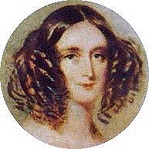
















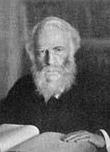

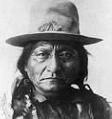

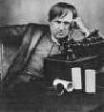










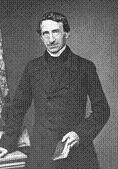


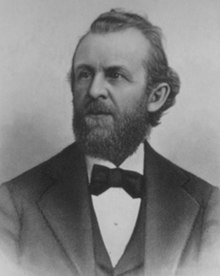
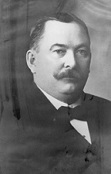
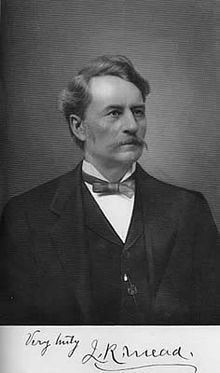




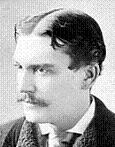


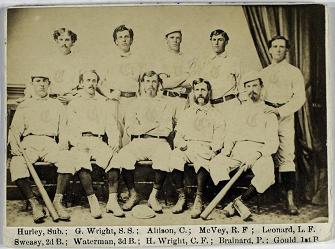



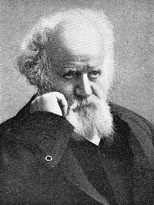




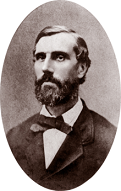


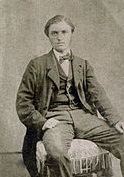
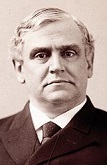





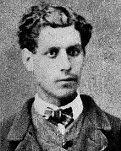
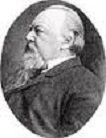
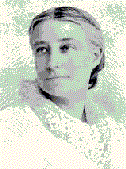
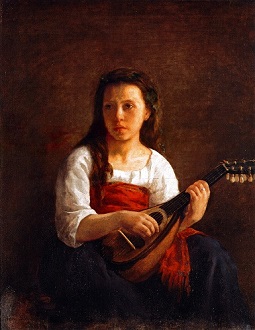


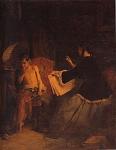


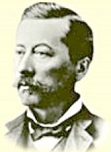
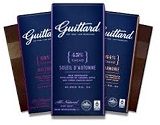


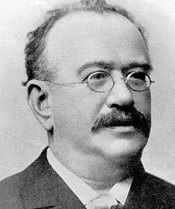
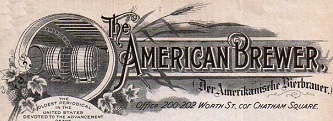
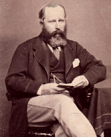
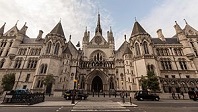
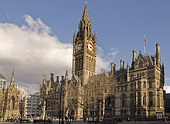
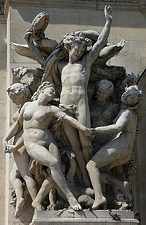
1868
Nat. debts: U.S.: $250M; Britain: $4.5B; France: $2.5B; Austria: $1.3B; Russia: $1.2B.
U.S. religious pop.: Roman Catholics: 4M; Methodists: 2M; Baptists: 1.7M.
Salaries: U.S. pres: $25K; cabinet members: $8K; chief justice: $6.5K; assoc. justices: $6K; state govs.: $1K (Vt., N.H., R.I.)-$7K (Calif.).
On Jan. 3 the Choshu and Satsuma army seizes the imperial palace in Kyoto, and on Jan. 4 15-y.-o. Japanese Yamato emperor Meiji announces the
Meiji Restoration
(Ouseifukko), re-establishing the emperor's authority over the shoguns, with the imperial capital at Kyoto, and head Satsuma samurai
Saigo Takamori (1842-77) ("The Last Samurai")
pressures him into abolishing the shogunate and ordering all Tokugawa land confiscated, starting the
Boshin War (ends May 1869); on Jan. 27-31 the
Battle of Toba-Fushimi
sees the 15K Tokugawa shogunate forces defeated by the smaller but more modern imperial army near Tobu and Fushima;
ex-shogun Tokugawa Yoshinobu (Keiki) escapes to Edo, then surrenders in May; in Oct. Edo is renamed
Tokyo ("eastern capital") (modern-day pop. 13.6M/37.8M), and the seat of govt. moved there from Kyoto next Mar.;
an all-out attempt to catch up to the industrialized West is now launched while the heads are flying in the samurai-style Boshin War, where the last samurai swords
get plenty of action; Saigo Takamori resists Westernization but finally goes for it, and the Age of the Samurai is kaput - like going far out for Buffalo wings?
On Jan. 8 Gen. Pedro Diez Canseco Corbacho (1815-93),
who had filled-in as pres. in 1863 and 1865 becomes pres. of Peru for a 3rd time, and again is soon replaced on Aug. 2 by
Jose Balta y Montero (1814-72) (until July 22, 1872). On Jan. 9 Am. writer
John William De Forest (1826-1906)
(Union Civil War vet.) pub. an article in The Nation, coining the term "Great American Novel",
"the picture of the ordinary emotions and manners of American existence", and claiming that Harriet Beecher Stowe's "Uncle Tom's Cabin" comes closest;
he adds "We may be confident that the Great American Poem will not be written, no matter what genius attempts it, until democracy, the idea of our day
and nation and race, has agonized and conquered through the centuries, and made its work secure."
On Jan. 10 after sending troops backed by Egyptian reinforcements to Crete to crush the revolt, the Ottomans enact a regulation establishing
councils with equal rep. for Muslims and Christians, reducing taxes, and exempting Christians from military service and conscription tax;
the Euro powers pressure Greece to accept it and stop the revolt.
On Jan. 15 after calling a piece of legislation "A monstrosity, a measure the most infamous of the many infamous acts of this infamous Congress",
U.S. Rep. (D-N.Y.), chmn. of the House Ways and Means Committee (1877-81)
Fernando Wood (1812-81)
is censured for use of unparliamentary language by 114-39, which doesn't stop him from winning reelection.
In Jan. the mag. The American Brewer (Der Amerikanische Bierbrauer)
(founded Dec. 1867) begins pub. in New York City (until ?), becoming the oldest mag. devoted to the beer brewing industry to survive to modern times;
the modern slogan is "The Business of Beer"; Polna, Bohemia, Germany-born chemist
Anton Schwarz (1839-95)
quickly works up from the staff to become the ed., and in 1880 he founds the
U.S. Brewers Academy
in New York City, becoming the first brewers college in the U.S.;
in 1882 he pub. Theory and Practice of the Preparation of Malt and the Fabrication of Beer
with Julius F. Thausing (prof. of the Modling brewing school near Vienna) and A.H. Bauer, which becomes the Bible for U.S. brewmasters;
his son Max Schwarz (1863-1901) succeeds him as ed. of the mag. and head of the academy.
On Feb. 16 the Benevolent and Protective Order of Elks (BPOE)
is founded in New York City by Joseph M. Norcross,
growing to 1.6M members in 1976 and 850K members in 2016; in 1892 belief in God is required for membership; members of the Communist Party aren't eligible;
women aren't allowed to join until the mid-1990s.
What's going on in your head, what's wrong?
On Feb. 24 after firing hard-ass war secy. Edwin M. Stanton again and replacing him with his personal enemy Maj. Gen.
Lorenzo Thomas (1804-75),
U.S. Army adjutant gen. (1861-9) (the dude who got sideswiped by Gen. William Tecumseh Sherman in 1861), U.S. Pres. Andrew Johnson
faces 11 articles of impeachment
for violation of the Tenure of Office Act et al., becoming the first U.S. pres. to be impeached; on Mar. 8 his trial in the U.S. Senate
begins, with the public so interested that tickets are scalped outside the Senate Chamber, and after a bitter trial where Thomas stinks himself
up by boasting that he would oust Stanton from office by force if necessary, Johnson is
acquitted on May 26 by one vote (35-19), that of Kansas Sen.
Edmund Gibson Ross (1826-1907) (imagine what was going through his head?);
from now on Radical Repub. influence in Congress begins to peter out, and thanks to a Southerner pres. the Southerners slide by and get out
from under the Carpetbaggers; the name of the Union Party (established 1864) is changed back to the Repub. Party.
On Feb. 25 British PM (since June 28, 1866) Edward Smith-Stanley, 14th Earl of Derby resigns, and on Feb. 27 Conservative
Benjamin Disraeli (1804-81) becomes PM of Britain (until Dec. 1) (279 days), but after the Conservatives are defeated
in the British gen. election, on Dec. 3 the leader of the all-new Liberal Party (the old Whig Party under a new name),
William Ewart Gladstone (1809-98) becomes British PM (until Feb. 17, 1874); Disraeli is offered a peerage by Queen Victoria,
which he accepts for his wife Mary Anne Disraeli (1792-1872), who on Nov. 30 becomes Viscountess Beaconsfield in Buckingham County.
On Mar. 2 Barnum's Museum in New York City burns down, killing the animals and doing $500K damage.
On Mar. 23 the U. of Calif. at Berkeley (UCB) is founded on 160 acres of land 4 mi. N of Oakland via a merger of the
private College of Calif. and the public Agricultural, Mining, and Mechanical Arts College of Oakland, becoming the first of 10 U of Calif. research univs.
On Mar. 16 the U.S. Supreme (Chase) Court rules unainimously in Crandall v. Nev.
that a state cannot hinder people from leaving by taxing them, invalidating a $1 tax, with Justice Samuel F. Miller writing the soundbyte:
"But if the government has these rights on her own account, the citizen also has correlative rights. He has the right to come to the seat of the government... This right is in its nature
independent of the will of any State over whose soil he must pass in the exercise of it."
In the spring Scottish-born conservationist John Muir (1838-1914) first comes to Yosemite, Calif.
On Apr. 1 Queen Rasoherina dies, and Anglophile Queen Ranavalona II (1829-83)
becomes ruler of Madagascar (until July 13, 1883), getting baptized as an Anglican next Feb. 20
and declaring Madagascar an Anglican country, while marrying you-know-who, Rasoherina's hubby, PM Rainilaiarivony, the real power.
On Apr. 2 (4:00 p.m. local time) the 7.9 1868 Hawaii Earthquake
hits the Ka'u district of the Big Island of Hawaii, killing 46 in Keauhou in the resulting tsunami, and 31 in a landslide in Kapapala.
On Apr. 7 Irish-born Thomas D'Arcy McGee (b. 1825),
who worked for a new nationality in Canada to escape Irish sectarianism and criticized the Fenians is assassinated in Ottawa, Ont.
by Irish-born Fenian sympathsizer Patrick James Whelan (1840-69),
er, that's whom they convicted, becoming the first political murder in the history of the new Dominion of Canada.
On Apr. 7 Mormon church leader Brigham Young marries his 27th and final wife.
On May 1 Wilkes County, N.C.-born former Confed. soldier Thomas C. "Tom" Dula (b. 1845)
is hanged in Statesville, Iredell County, N.C. for the May 25, 1866 murder of his fiancee Laura Foster (-1866),
with nat. publicity making him a legend, after which the Kingston Trio scores the hit song "Tom Dooley" in 1958; jealous Anne Melton
really did it, and he covered for her because of a love triangle?
On May 5 the first Memorial Day
is celebrated to honor fallen U.S. Civil War dead after a suggestion by a gen. for a day to decorate their graves.
On May 9 the city of Reno, Nev. in N Nev. on the Truckee River 22 mi. SW of Lake Tahoe (modern-day pop. 225K/425K)
is founded at Lake's Crossing on the Central Pacific Railroad in Truckee Meadows at the foot of the Sierra Nevada Mts., named for U.S. Gen.
Jesse Lee Reno (1823-62);
it is incorporated on Mar. 16, 1903, going on to become known as "the Biggest Little City in the World" for its hotels and casinos.
On May 19 the Cotonou (Kutonou) (Fon "river of death")
between Lake Nokoue and the Atlantic coast of Benin is ceded to France; in 1883 the French navy
occupies it to prevent British conquest; it goes on to become the largest harbor in the region,
and Benin's largest city and seat of govt. (modern pop. 750K-1.2M).
On May 20-21 the 1868 Repub. Nat. Convention
is held in Chicago, Ill.; "Hero of Appomattox" Gen. Ulysses S. Grant, docile tool of the "bloody shirt"
(no easy reconciliation with the South) Radical Repubs. is nominated for pres. on the first ballot; Radical New York City-born House Speaker (1863-9)
Schuyler Colfax Jr. of Ind. is nominated for vice-pres.; Grant's campaign slogan is "Vote as you shot"; on July 4-9 the
1868 Dem. Nat. Convention
in New York City takes 22 ballots to nominate former N.Y. gov. (1853-4, 1863-4)
Horatio Seymour (1810-86)
(a former Peace Dem. who had declared the Emancipation Proclamation unconstitutional and opposed conscription)
for pres., and Va.-born former U.S. Rep. and Civil War Union Gen.
Francis Preston Blair Jr. (1821-75)
of St. Louis, Mo. (son of Repub. Party founder Francis Preston Blair Sr.) for vice-pres.
On May 22 the Great Train Robbery
near Marshfield, Scott County, Ind. sees 12 members of the Reno Gang rob a Jeffersonville, Madison, and Indianapolis train and make off with $96K,
gaining nat. publicity; on July 29 they try to rob another train, only to find 10 Pinkerton agents waiting for them, wounding two and capturing
Volney Elliott, who IDs the other members in exchange for leniency, leading to two more arrests on July 30 in Rockport, Ind.; too bad, on July 20
vigilante mobs lynch them 3 mi. outside Seymour, Ind.; on Dec. 11 four more members of the gang are lynched after being taken from Floyd County Jail
in New Albany, Ind.; Frank Reno and Charlie Anderson were in federal custody at the time, becoming the first time a federal prisoner is lynched by
a mob before trial (until ?); nobody is prosecuted.
In May Russia occupies the E Uzbek city of Samarkand (modern-day pop. 500K), the old capital (1370-1405) of Tamerlane,
taking rule (since 1756) away from the Mongol emirs of Bukhara; in 1886 it becomes the capital of the new oblast of Russian Turkestan; in 1888 the Trans-Caspian Railway reaches it.
On June 1 the Navajo Wars end with the Treaty of Bosque Reondo,
signed at Ft. Sumter by Gen. William Tecumseh Sherman, and the decimated Navajos given a Rez consisting of 3.5M acres insider their four sacred mountains (one-tenth of their former lands); on
June 18 they set off on a Long Walk home, and after this experience unites them they systematically increase the size of their Rez to 16M acres.
On June 10 Serbian prince (since Sept. 26, 1860) Michael III Obrenovic (b. 1823) is assassinated, taking his big plans to unite the Balkans under his rule with Russian backing with him,
and his cousin Milan IV Obrenovic (1854-1901) becomes prince of Serbia; on Mar. 6, 1882 he proclaims a new kingdom of Serbia
and changes his title to Milan I (until Mar. 6, 1889).
On June 16 the Atlanta Constitution
newspaper is founded in Atlanta, Ga. (until ?), killing off the Daily Intelligencer in 1871; in 1876
Joel Chandler Harris (1845-1908)
begins running his Uncle Remus stories in it; in 1982 it combines with the Atlanta Journal (founded Feb. 24, 1883) to become the Atlanta Journal-Constitution.
She's got a ticket to ride, but she don't care?
On June 22 the Mutiny of San Gil
in Spain sees artillery sgts. shoot their officers, causing Gen.
Leopoldo O'Donnell y Joris, Count of Lucena (1809-67)
to order the execution of 60 sgts., leading on Sept. 18 to the
Liberal Glorious Rev. of 1868,
led by Adm. Juan Topete y Carballo (1821-85), Marshal
Francisco Serrano y Dominguez, Count of San Antonio (1810-85),
and Gen. Juan Prim y Prats, 1st Marquis of Los Castillejos, 1st Count of Reus, 1st Viscount of El Bruch (1814-70); on
Sept. 28 the royalists under Gen. Manuel Pavia are defeated by the rebels under Gen. Serrano at the
Second Battle of Alcolea (first in 1808); on
Isabella II (1830-1904),
who succeeded her father Ferdinand VII on Sept. 39, 1833 is forced to leave Spain for France and is declared deposed, and she abdicates in favor of her son
Alfonso XII (1857-85), who becomes king on Dec. 29, 1874 (until Nov. 25, 1885) - who's alone at the end of the evening?
On June 29 the First Vatican (20th Ecumenical Council)
is convoked by Pope Pius IX in the Vatican Basilica, and attended by 800 churchmen (ends Oct. 20, 1870); Cardinal
Henry Edward Manning (1808-92)
advances the Doctrine of Papal Infallibility,
drawing opposition within the Church led by German priest-theologian
Johann Joseph Ignaz von Doellinger (Döllinger) (1799-1890),
who begins pub. The Letters of Janus
in 1869, which claim that the 9th cent. False (Pseudo-Isidorean) Decretals,
which were exposed as forgeries in 1628 by Calvinist preacher David Blondel don't support it, or anything else,
going on to pub. the proceedings of the Vatican Council (1869-70) to keep the public informed of its shenanigans,
and after it votes for the dogma anyway he convenes a congress in Munich in Aug. 1870 which issues a declaration
against it, causing the archbishop of Munich to order him to submit, and when his letter of Mar. 28, 1871 containing
the soundbyte "As a Christian, as a theologian, as an historian, and as a citizen I cannot accept this doctrine"
doesn't move him he excommunicates him, making him more popular, getting him elected to rector magnificus of the
U. of Munich, and honorary degrees from the univs. of Oxford, Edinburgh, Marburg, and Vienna;
in protest against the First Vatican Council (1869-70), several groups of Roman Catholics in Austria-Hungary,
Germany, and Switzerland form the Old Catholic Church,
which Doellinger never joins; meanwhile defrocked French priest
Pere (Père) Hyacinthe (Charles Jean Marie Loyson) (1827-1912),
who joined the Carmelite Order in 1863, began preaching in the Cathedral of Notre Dame in Paris in 1865, and was
silenced and excommunited for the heterodox content in July 1869 begins associating himself with the anti-papal infallibility movement.
In summer Fort Fred Steele
is founded on the North Plate River near modern-day Sinclair, Carbon County, Wyo. to protect the Union Pacific Railroad to protect it from Indian attacks, joining
Fort Sanders (originally Fort John Buford) (spring 1868) near Laramie, Wyo., and
Fort David A. Russell (Aug. 1867) W of Cheyenne, Wyo.; by 1900 Ft. Russell becomes one of the
largest cavalry bases in the U.S., and home to Gen. Black Jack Perrshing, Billy Mitchell, Walter Reed, Carl Spaatz, Mark Clark et al.; in 1930 it is renamed
Fort Francis E. Warren, and in 1949 to Francis E. Warren AFB, becoming HQ of the 90th Strategic Missile Wing in 1963, which controls 200+ ICBMS during the Cold War
and becomes the only missile wing to house Peacekeeper missiles, which are deactivated in Oct. 2005.
On July 8 Bismarck ends guild protection by declaring industrial freedom.
On July 9 the Fourteenth (14th) (XIV) Amendment to the U.S. Constitution
is ratified, guaranteeing due process and equal protection of law (a monument to the Radical Repub. cause); it goes into effect on July 28.
In July the Burlingame (Burlingame-Seward) Treaty
with China, negotiated by U.S. secy. of state William H. Steward and U.S. minister to China (1861-7)
Anson Burlingame (1820-70) (made a special Chinese envoy to the U.S. and Europe by Prince Kung, regent of China)
becomes the first time that (Qing) China accepts the principles of internat. law, and the first fully equal treaty between China and a Western power since the Second Opium War
(1856-60); it establishes free immigration between the U.S. and China, guaranteeing unrestricted
immigration of Chinese laborers, in demand by Western mine owners and railroad builders as human ants and nitroglycerin fodder; give credit to the Andrew Johnson admin. for
this way to create a new slave class in the U.S. to replace blacks? - foul called: roughing the pigtail?
In July the Overland Monthly
is founded in San Francisco, Calif., with Bret Harte (1836-1902)
as ed., allowing him to pub. his kick-ass short stories of the Am. West, incl.
The Luck of Roaring Camp,
The Outcasts of Poker Flat,
Miggles,
Brown of Calaveras,
and his comic poem Plain Language from Truthful James (The Heathen Chinese).
In Sept. the Ottoman Imperial Lycee of Galatasaray
(founded 1481) reopens in Istanbul with a mainly foreign teacher body providing a modern education in French, going on to graduate key players in the Turkish govt.
On Oct. 1 Rama IV Mongkut (b. 1804) dies from malaria contracted in Wakor village in Prachuap Kiri Khan province after calculating a total solar
eclipse and inviting Sir Harry St. George Ord (1818-95),
British gov. of the Straits Settlements (Singapore) to view it with him; his son Prince Chulalongorn also gets it, but survives, becoming
Rama V Chulalongkorn "the Great Beloved" (1853-1910), Chakri king #5 of Siam - just your garden-variety P.I. case?
On Oct. 10 the San Diego Union
is founded in San Diego, Calif.; in 1888 it acquires the "San Diego Daily Bee", becoming the "San Diego Union and Daily Bee";
in 1928 it is acquired by Copley Press along with the "San Diego Evening Tribune" (founded Dec. 2, 1895), merging them on Feb. 2, 1992 as "The San Diego Union Tribune";
on Jan. 3, 2012 it is renamed "U-T San Diego"; on May 7, 2015 it is acquired by the Tribune Pub. Co. (tronc), who changes the name back; in Feb. 2018 it is acquired along with the
"Los Angeles Time" by Nant Capital LLC for $550M, reaching a modern-day circ. of 250K daily and 409K Sun.
On Oct. 10 after making his Grito (Cry) of Yara,
sugar mill owner Carlos Manuel de Cespedes (Céspedes) (1819-74)
stages a failed uprising in Cuba with a 147-man army after freeing and arming his slaves;
Cuban atty. Calixto Garcia y Iniguez (Íñiguez) (1839-98)
becomes brig. gen. and CIC of the Cuban revolt against Spain, starting the Ten Years' (Great) War (of 1868) (ends 1878),
led by Cuban-born planters and wealthy natives.
In Oct. the Second Geneva Conference
draws up a supplementary agreement to the 1864 Geneva Convention, leading to the establishment of the
Red Cross Society in 1870.
On Nov. 3 Ulysses S. Grant slimly (slimily?) wins over Seymour with 3M to 2.7M popular votes, making good use of over 500K Repub. votes cast by black freedmen in Southern states
(214 to 80 electoral votes); Andrew Johnson of Tenn., who had 15 of his 21 pres. vetoes overriden goes on to become (1875) the first (only) former U.S. pres. to be elected to the U.S. Senate.
On Dec. 8 Scottish-born Sir Mountstuart Elphinstone Grant Duff (1829-1906),
son of Scottish-born British soldier-historian James Grant Duff (1789-1858) becomes British undersecy. of state for India (until Feb. 17, 1874), followed by undersecy. of state
for the colonies in Apr. 23, 1880-June 26, 1881, and gov. of Madras in Nov. 5, 1881 (until Dec. 6, 1886).
On Dec. 18 Maj. Gen. Philip H. Sheridan, cmdr. of the Dept. of the Missouri arrests Kiowa leader Set-tainte after accompanying Gen. Custer and encountering him on Dec. 17
at Rainy Mountain Creek, where Set-tainte claims to be the white man's friend, offering to shake hands with him, which Sheridan refuses, saying he only shakes with someone he
is sure is a friend; after taking him to Ft. Cobb and threatening him with hanging if he doesn't get the rest of his party to enter the fort, Set-tainte's
son Tsa'lante
is sent with the message, and they begin arriving on Dec. 20, incl. co-leader Lone Wolf; they are released in Feb. 1869, Sheridan later claiming to regret not hanging them.
On Dec. 25 Pres. Johnson proclaims a complete pardon
for all who had been directly or indirectly involved in secession.
Prussia confiscates the territory of the king of Hanover.
Georgia expels blacks from its legislature, and is put under military rule by the damn Yankees.
Shitting, er, Sitting Bull (1831-90) becomes chief of the
Lakota branch of the Sioux nation; the
Fort Laramie Treaty
places the Black Hills of S.D. off-limits to white settlers; too bad, gold is found there in 1874 - white man speaks with forked tongue?
Former Union army Capt. (who resigned his commission after an incompetent white was placed over him as Maj. in his black regiment)
Oscar James Dunn (1820-71) (born a slave) is elected lt. gov. of La., becoming the first
black to hold an important public executive office in these here United States; Union Reconstructionists get the new
Grant Parish, La.
created in C La. as a Repub. enclave with a majority of freed slaves, and next year found the town of
Colfax (named after the vice-pres.);
too bad that the whites still own the plantations and most of the wealth, and the surrounding parishes are lily-white, mainly ex-Confed. soldiers?
The British send an armed expedition to Ethiopia which captures Magdala (Makdala) on the Gulf of Aden;
Egypt occupies Bogos in Eritrea until 1884), pissing Ethiopia off.
After the Boers kick more Basuto butt, Basutoland is proclaimed a British protectorate by next year.
The landlocked 61-sq.-mi. principality of Liechtenstein
on the E bank of the Rhine S of Lake Constance between Austria and Switzerland abolishes its army, and manages to stay neutral and undamaged
in all European wars to come (until ?); next year it concludes a customs union with Austria, and in 1871 it becomes the only German principality
to stay outside the new German Empire.
Shir Ali and his son Mohammed (Muhammad) Ya'qub (Yakub) Khan (1849-1923)
recover Kabul and Kandahar, and Shir Ali is reinstalled as ruler of Afghanistan (until 1879).
A famine in Algiers drives people to cannibalism.
Spanish pretender Don Juan, brother of Don Carlos Luis resigns his claims to his son
Don Carlos Maria de los Dolores de Borbon (1848-1909).
John Stuart Mill loses his reelection and returns to Avignon, France until his 1873 death.
After setting up the first sundry and drug store between San Francisco, Calif. and the Missouri River in the 1850s and becoming wealthy,
Middlesex, England-born Mormon convert William Samuel Godbe (1833-1902)
joins other Mormon merchants in questioning the economic demands of Brigham Young, then travels with his English-born Mormon architect friend
Elias Lacy Thomas Harrison (1830-1900)
to New York City to attend seances, in which the medium claims to receive visitations from Joseph Smith, Heber C. Kimball, Apostles Peter, James, and John, and
King Solomon, ending with German naturalist Alexander Humbolt; on Oct. 25, 1869 after questioning the dogma of the infallibility of the LDS Churchpres.,
they are tried for apostasy in Salt Lake City, and execommunicated, forming the Church (Godbeite) of Zion, which merges Mormonism with Spiritualism, which
folds in the 1880s; meanwhile in Feb. 1870 they found the Liberal Party of Utah
to opposite LDS People's Party candidates, also founding the Mormon Tribune for ex-LDS Church members who disagree with the church's economic and political positions,
changing its name in 1871 to the Salt Lake Tribune;
in 1873 Kan. businessmen Frederic Lockley, George F. Prescott, and A.M. Hamilton acquire it and turn it into a pure anti-Mormon rag that backs the Liberal Party and blasts
Brigham Young with contempt, incl. the Aug. 30, 1877 ed.:
"He was illiterate and he has made frequent boast that he never saw the inside of a school house. His habit of mind was singularly illogical and his public addresses the
greatest farrago of nonsense that ever was put in print. He prided himself on being a great financer, and yet all of his commercial speculations have been conspicuous failures.
He was blarophant, and pretended to be in daily [communion] with the Almighty, and yet he was groveling in his ideas, and the system of religion he formulated was well nigh Satanic";
the Liberal Party disbands in 1893; in Oct. 1901 new wealthy Roman Catholic U.S. Sen. (R-Utah) (1901-5)
Thomas Kearns (1862-1918) (owner of the Silver King Coalition Mine in Park City, Utah)
secrety acquires the newpaper and eliminates its anti-Mormonism to smooth relations with the mostly-LDS state legislature, going on gain the backing of the new anti-LDS Church
American Party (founded in 1905 and dissolved in 1911) and become the first Utah politician to establish a
nat. and internat. reputation, becoming friends with Pres. William McKinley, Pres. Theodore Roosevelt, and Pres. Howard Taft, helping to make
Fort Douglas (founded Oct. 1862; closed 1991) a regimental post.
The city of Wichita, Kan. (modern-day pop. 382K/680K) on the Arkansas River in SC Kan. is founded as a trading post
on the Chisholm Trail by New Haven, Vt.-born James R. Mead (1836-1910), becoming a destination for cattle drives from Tex.
and gaining the nickname "Cowtown"; after the railroad arrives, it is incorporated as a city on July 21, 1870.
The Canadian govt. takes over the territory of the Hudson's Bay Co., incl. the Red River Settlement, with a pop. of 12K, 10K of them Metis (mixed Indian and French or Scottish).
The ruins of Great Zimbabwe
16 mi. SE of Lake Victoria in Mashonaland, Rhodesia, consisting of the Temple and the Acropolis are accidentally discovered by a German expedition led by
Adam Renders.
Boone, Iowa 43 mi. NW of Des Moines is incorporated, named after Daniel Boone's son Col.
Nathan Boone (1781-1856).
An expedition led by Ernst Jakob Oppert (1832-1903)
of Germany, put up to it by Roman Catholic Father Feron
of France goes to Korea with 100 Chinese and Malaysian pirates to rifle royal tombs rumored to be full of gold, planning to steal the remains of the father of regent
Yi Haeung in order to blackmail the regent into removing trade barriers, but the Koreans attack and force them to give up.
The Stockholm-Gothenburg Railway
in Sweden is completed, built by Nils Ericsson,
brother of John Ericsson, builder of the USS Monitor.
18-y.-o. French writer Guy de Maupassant witnesses the near drowning of English poet Algernon Charles Swinburne in Etretat, France, and is invited to dinner by Swinburne, who treats
him to a main dish of roast monkey, and seats him next to a large ape who pushes the Frenchman's head aside every time he tries to take a drink - the original hootie and the blowfish?
The first Trades Union Congress is held in Manchester, England.
French opposition leader Leon Gambetta (1838-82)
gives a speech attacking the 1851 coup of Emperor Napoleon, making him famous and getting him elected to the chamber of deputies in 1869.
The 3.47M sq mi. Wind River Indian Reservation
in the Wind River Basin of WC Wyo. is established for the Eastern Shoshone Indians; next June 28 Camp Augur military post is established in modern-day Lander, Wyo., renamed
Camp Brown in 1870, and renamed Fort Washakie in 1878
in honor of Shoshone Chief Washakie (1798-1900), becoming the first (only) U.S. military outpost named after a Native Am.,
becoming the home of the graves of Sacajawea before being abandoned by the military in 1909.
The Munich College of Technology
in Germany is founded.
The Imperial Museum
is founded in Istanbul, fostering archeological studies.
New York Tribune ed. (since 1849)
Charles Anderson Dana (1819-97)
(who had been made special investigator by war secy. Edwin M. Stanton during the
U.S. Civil War, causing Pres. Lincoln to call him the eyes of his admin., and became friends
with Gen. Grant) becomes ed. of the New York Sun, going on to crank out editorials opposing
the impeachment of Pres. Johnson, supporting Grant for pres., then criticizing him after he
gets in office, favoring Samuel Tilden and calling Rutherford B. Hayes "the fraud president",
then opposing Grover Cleveland in his first term and supporting him in his 2nd, while criticizing
him as usual, finally opposing William Jennings Bryan - he does Dana right?
Susan Brownell Anthony (1820-1906)
founds the women's rights newpaper The Revolution,
demanding an 8-hour day and equal pay for equal work, with the motto "The true republic - men,
their rights and nothing more; women, their rights and nothing less."
The Lambs Club (The Lambs Inc.),
named after Charles and Mary Lamb is founded in London for actors by Sir
John Hare (Fairs) (1844-1921)),
who becomes Shepherd #1; in Dec. 1874
Henry James Montague (Mann) (1846-78)
founds the Lambs of New York; "The Players are gentlemen trying to be actors, the Lambs are
actors trying to be gentlemen, and the Friars are neither trying to be both." (George S. Kaufman).
German clergyman F.A. Klein discovers the Moabite Stone
in the highlands of Moab (Dibon, Jordan); it records the Moabite war with Israel about 850 B.C.E (2 Kings 3:27).
The Savile Club
on Brook St. in London is founded for actors, writers, publishers, etc., becoming more staid then the Savage Club (founded 1857).
Mikhail Bakunin founds the Alliance Internationale de la Democratie Sociale.
Gregor Mendel is elected abbot, and no longer has time for his genetics experiments - darn peas are beneath my dignity now?
The University Extension Movement
is founded in Cambridge, England to provide education by mail, becoming the first correspondence school.
Andrew Dickson White (1832-1918)
becomes pres. of Cornell U. (until 1885).
Andrew Carnegie (1835-1919),
who started out as a poor immigrant from Scotland at age 13 then became a telegraph operator,
finally making a fortune with the Woodruff Sleeping Car Co., then entering the steel biz in
1865 with former blacksmith Andrew Klopman
brings the Bessemer steel-making process to the U.S., rocketing to a steel monopoly by 1888.
The first World Almanac
is pub. by the New York World (108 pages); pub. is suspended in 1876, then revived in 1886 by Joseph Pulitzer.
Whitaker's Almanack
begins pub. in England.
Wermelskirchen, Dusseldorf, Germany-born chemist John Ewald Siebel (1845-1919)
founds Siebel Inst. of Technology
in Chicago, Ill., becoming the oldest beer brewing school in the U.S.
James Glentworth Butler (1821-1916)
resigns as pastor of the Walnut St. Presbyterian Church in Philly, and becomes ed. of the influential internat.
Christian Union (until 1911).
The Royal Historical Society (RHistS) (RHS)
at the Univ. College in London, England receives a royal charter, merging with the Camden Society (founded 1838) in 1897; pres. #1 (1871-2) is
George Grote (1794-1871),
followed by John Russell, 1st Earl Russell (1873-8) (grandfather of Sir Bertrand Russell),
Henry Austin Bruce, 1st Baron Aberdare (1815-95) (1878-91),
Sir Mountstuart Elphinstone Grant Duff (1829-1906) (son of James Grant Duff) (1891-99),
Sir Adolphus William Ward (1837-1924) (1899-1901), and
Sir George Walter Prothero (1848-1922) (1901-5);
in 2012 Peter Mandler (1958-) becomes pres. (until ?).
Guittard Chocolate Co.
is founded in San Francisco, Calif. by failed French-born Calif. Gold Rush prospector
Etienne Guittard (1838-99),
who passes the business to his son Horace C. Guittard; in 1954 they move to Burlingame, Calif.;
the co. specializes in couverture (high cocoa butter) chocolate.
After coffee trees brought to Kona, Hawaii Island in the late 1820s by Protestant missionaries of Kahikolu Church produce coffee of uneven quality,
Lancaster, England-born merchant Henry Nicholas Greenwell (1826-91)
establishes the Kona coffee brand, which is honored at the 1873 Vienna World's Fair and the 1876 Philadelphia Centennial Exposition; in
1882 Samuel Reverend Ruggles introduces
Brazilian coffee to the Kona district.
Sports:
The Am. Stud Book
is launched in the U.S., launching organized Thoroughbred horse racing; by 1890 there are 314 racetracks.
Scottish golfer Thomas "Young Tom" Morris Jr. (1851-75)
becomes the first golfer to score a hole-in-one; next year he and his father Old Tom Morris Sr. finish the Open Championship 1-2, becoming the first father-son 1-2 (until ?).
The first Thames Cup yacht race is held at Henley Regatta in England.
The first bicycle race (2 km.) is held in the Parc de St.-Cloud in Paris on May 31.
The Stem Christie (Christiania) (former name of Oslo) move to stop a person on skis is invented.
Architecture:
Essex-born English Victorian Gothic Revival architect George Edmund Street (1824-81)
designs the Royal Courts of Justice (Law Courts) in London (1868-82).
The Moorish Revival Spanish Synagogue
in Prague is built over the ruins of the Old Synagogue, which was demolished last year.
Alfred Waterhouse designs the the Manchester Town Hall (1868-71).
Inventions:
On Mar. 5 Charles Henry Gould
patents the Stapler - 3-5-68, staple that in your 7 golden memories?
Thomas Alva Edison (1847-1931)
applies for his first little patty pat patent on Oct. 11, an Electrical Vote Recorder, then quits Western Union next year to go full-time in the inventing biz.
On Nov. 28 French inventor Louis Arthur Ducos du Hauron (1837-1920)
patents color photography; in 1872 he takes the color photo Landscape of Southern France (Angouleme)
using the subractive method (yellow-cyan-magenta); on May 7, 1869 French poet Charles Cros (1842-88)
pub. Solution Generale du Probleme de la Photographie des Couleurs,
an independent invention of color photography; in 1877 he invents Paleophone,
which reproduces recorded sound using photoengraving, beating Thomas Edison to the punch but failing to build a working model.
Detroit, Mich. meatpacker George Henry Hammond (1838-86)
patents a refrigerator car that suspends beef carcasses above an ice-salt mixture, building sales to $2M by 1875, and causing the
town of Hammond, Ind. to be named after him before moving to Omaha, Neb. and building up to 800 cars; too bad, the carcasses swing when going around curves, causing derailment.
George F. Green
of the U.S. devises a pneumatic Dental Drill,
followed by an electric drill in 1874, which he patents Jan. 26, 1875.
John K. Mayo
invents Plywood - sounds like a termite sandwich?
Edmund McIlhenny
(1815-90), who moved in with his in-laws on their ruined plantation on
Avery Island, La. (known for its salt mines) after the U.S. Civil War and
began planting C Am. peppers begins making
Tabasco
brand pepper sauce, obtaining a patent in 1870.
Ernest Sylvain
of France patents the
Eolienne Bollee (Éolienne Bollée),
a wind turbine with a stator and rotor like a water turbine.
The refrigerator railroad car is patented by ?.
The first traffic signal is installed outside the Houses of Parliament
in London, consisting of two semaphore arms plus red-green gas lamps
for night use; too bad, it soon blows up, killing a bobby.
Science:
On Mar. 14 French neurologist Jean-Martin Charcot becomes the first to present
Multiple Sclerosis (MS)
as a distinct disease to the French Biological Society.
After an eclipse, French astronomer
Pierre Jules Cesar (César) Janssen (1824-1907),
along with English chemist Sir Edward Frankland (1825-99)
and English astronomer Sir Joseph Norman Lockyer (1836-1920)
of England discover a new element in the Sun's chromosphere which they call
Helium (He) (#2); it takes until 1895 for Sir William Ramsay to prove that it exists on Earth.
English naval engineer William Froude (1810-79)
pub. the definition of the Froude Number
(ratio of inertial force on a fluid element to its weight), a kind of Mach number for ships that allows model ships to be used in hull design tests.
Sir William Huggins calculates the radial velocity of the star Sirius from its slight red spectral shift.
The first remains of the Cro-Magnons
are discovered in Les Eyzies, Dordogne, France by French paleontologist-geologist Louis Lartet (1840-99) (son of Edouard Lartet)
declaring them the first homo sapiens in Europe, and the successor of Neanderthal man, living about -45K; later the term European Early Modern Humans is preferred.
The sleep-inducing qualities of chloral hydrate are discovered by ? - the first modern date rape drug?
Nonfiction:
Louis Agassiz (1807-73) and Elizabeth Cabot Agassiz (1822-1907),
A Journey in Brazil;
their 1865-6 trip.
Anders Jonas Angstrom (1814-74),
Researches on the Solar Spectrum;
a monumental work mapping the Solar spectrum, giving the wavelengths of 1K Fraunhofer lines to six significant figures in units of 10**-10 (10E-6) m,
which is later named the Angstrom unit.
Eugenio Beltrami (1835-99), Saggio de Interpretazione della Geometria Non-Euclidia
(pub. in "Giornale di Matematico di Napoli"); first model of hyperbolic geometry, helping to lay the foundations of modern geometry,
going on to prove the equal consitencey of hyperbolic and Euclidean geometry and define the Klein, Poncare disk, and Poincare half-plane models.
Walter Besant (1836-1901), Studies in French Poetry.
Georg Brandes (1842-1927), Aesthetic Studies.
Daniel Garrison Brinton (1837-99), The Myths of the New World;
attempts to scientifically study Am. Indian mythology.
Robert Williams Buchanan (1841-1901), David Gray and Other Essays, Chiefly on Poetry.
Paul du Chaillu (1835-1903), Stories of the Gorilla Country.
Lydia Maria Child (1802-80), An Appeal for the Indians;
leads to the 1869 founding of the U.S. Board of Indian Commissioners.
Charles Darwin (1809-82),
The Variation of Animals and Plants under Domestication.
Thomas McIntyre Cooley (1824-98), A Treatise on the Constitutional Limitations Which Rest Upon the Legislative Power of the States of the American Union;
becomes a std. texbook; 6th ed. pub. in 1890.
Andrew Jackson Davis (1826-1910), A Stellar Key to the Summer Land.
Urbain Dubois (1818-1901),
Cuisine de tous les pays, études cosmopolites où sont rassemblées nombre de recettes, allemandes, françaises, italiennes, anglaises, russes, polonaises, etc.
Charles Lockc Eastlake (1836-1906), Hints on Household Taste;
preaches a creed of medieval simplicity in furniture, and starts a style; too bad that when it comes to house exteriors, enthusiasts go overboard and use their lathes and scroll saws to excess.
Theophile Gautier (1811-72), Report on the Progress Literature Since 1830.
Nathaniel Hawthorne (1804-64), American Notebooks (posth.); ed. by Sophia Hawthorne.
Ernst Haeckel (1834-1919), The Natural History of Creation;
tries to work out the practical application of Darwinian evolution to zoology, formulating a genealogical classification of animals - we thank you God for the mystery of life, er,
see what the world is talking about?
Alexander Herzen (1812-70), My Past and Thoughts (autobio.); best 19th cent. Russian memoir?
Pierre Larousse (1817-75), Grammaire Superieure (Supérieure);
becomes the basis for French elementary school language instruction.
Matthew Fontaine Maury (1806-73), The World We Live In.
Dadabhai Naoroji (1825-1917), Admission of Educated Natives into the Indian Civil Service.
Alexander Hamilton Stephens (1812-83),
A Constitutional View of the War between the States.
John Forbes Watson and John William Kaye (1814-76),
The People of India
(8 vols.) (1868-75); a photographic survey of the Indian people, commissioned
by Indian viceroy Charles Canning, 1st Earl Canning (1812-62).
August Weismann (1834-1914), Uber die Berechtigung der Darwinschen Theorie
(On the Justification of Darwin's Theory); how many biological facts can't be
explained by Creationism, necessitating a theory of evolution, making it a fact?
Joseph Whitaker & Sons, Whitaker's Almanack;
pub. in Britain annually until ?; Sir Winston Churchill becomes a fan; a copy is sealed in Cleopatra's Needle on the Thames River.
Music:
Isaac Albeniz (1860-1909), Marcha Militar (first pub. composition, at age 8).
Daniel Auber (1782-1871), Le Premier Jour de Bonheur (opera) (Opera Comique, Paris).
Georges Bizet (1838-75), Symphony in C major.
Johannes Brahms (1833-97), Ein Deutsches Requiem, Op. 45 (German Requiem); written after his mother dies;
Brahms' Lullaby (The Cradle Song), Op. 49 No. 4;
lyrics from the German folk poem collection "Des Knaben Wunderhorn", and the 2nd stanza by Georg Scherer (1824-1909); first sung by Brahms' friend Bertha Faber.
Phillips Brooks (1835-93) and Lewis Henry Redner (1831-1908), O Little Town of Bethlehem;
lyrics composed by the rector of the Episcopal Church of the Holy Trinity in Philly three years after visiting the real town of Bethlehem; his organist
Lewis Henry Redner (1831-1908) composes the music.
Modest Petrovich Moussorgsky (Mussorgsky) (1839-81), Boris Godunov (1868-74).
Bedrich Smetana (1824-84), Dalibor (opera).
Franz von Suppe (1819-95), Die Frau Meisterin (operetta) (Carltheater, Vienna) (Jan. 20).
Peter Tchaikovsky (1840-93), Symphony No. 1.
Ambroise Thomas (1811-96), Hamlet (opera) (Mar. 9) (Grand Opera, Paris); based on William Shakespeare's play.
Richard Wagner (1813-83), Die Meistersinger von Nurnberg (Munich).
Art:
Jean-Baptiste Carpeaux (1827-75), La Danse (The Dance); for facade of the Opera Garnier in Paris, which is widely panned as obscene,
causing an anon. vandal to throw black ink over it in Aug. 1869; in 1964 it is moved to the Louvre.
Mary Cassatt (1844-1926), The Mandolin Player.
Paul Cezanne (1839-1906), Overture to Tannhauser: The Artist's Mother and Sister.
Pierre Puvis de Chavannes (1824-98), Marseille as a Greek Colony (mural);
Marseille the Emporium of the East (mural); both murals end up in the Palais Longchamps, Marseille.
Charles-Francois Daubigny (1817-78), Andresy sur Oise.
Edgar Degas (1834-1917), L'Orchestre (The Orchestra of the Opera).
William Powell Frith (1819-1909), Before Dinner in Boswell's Lodgings; sells for £4567, the highest retail price yet paid for the work of a living artist.
Nikolaos Gyzis (1842-1901), Eros and the Painter.
Johan Jongkind (1819-91), Boats Near the Mill in Holland; anticipates Impressionism?
Hans Makart (1840-84), The Plague in Florence.
Gustave Moreau (1826-98), Prometheus.
Pierre-Auguste Renoir (1841-1919), The Skaters.
Frederick Sandys (1829-1904),





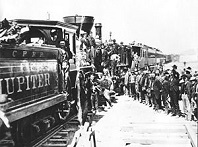






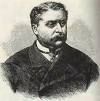




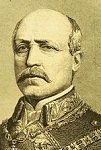




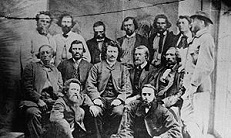











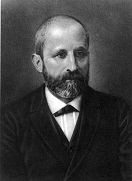
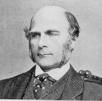

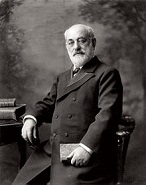
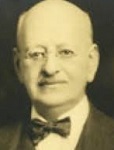


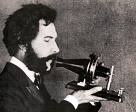



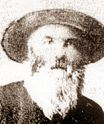


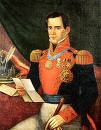


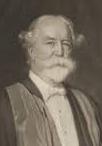









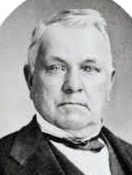
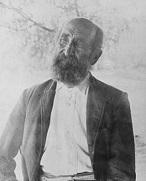



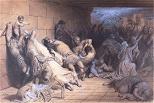

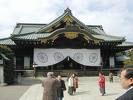

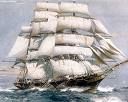
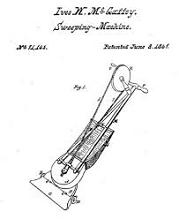

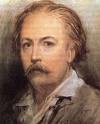

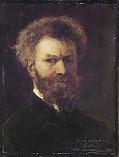
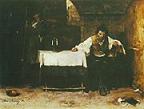
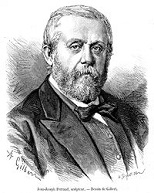
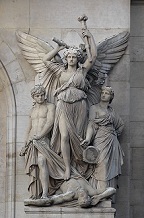
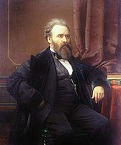
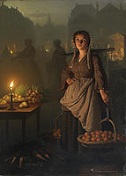
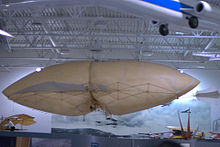

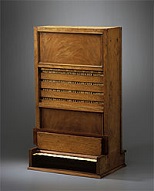


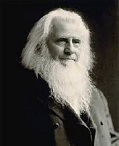
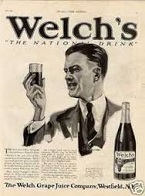
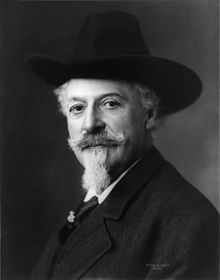

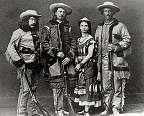

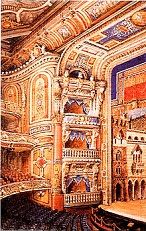
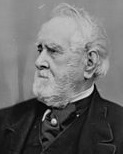
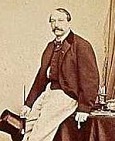
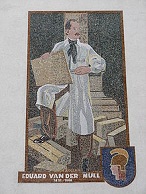
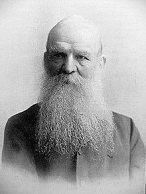
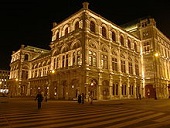
1869 It's time for the next generation of generals and nurses to go to college? On Jan. 1 Sigma Nu, the first anti-hazing fraternity is founded by three cadets at Va. Military Inst. in Lexington, Va.; on Jan. 21 P.E.O. Sisterhood is founded at Iowa Wesleyan College in Mount Pleasant, Iowa, becoming one of the first female sororities; on Dec. 10 Kappa Sigma fraternity is founded at the U. of Va. On Jan. 12 Richard Southwell Bourke, 6th Earl of Mayo (1822-72) becomes British viceroy of India (until Feb. 89, 1872), running the 1K-man Indian Civil Service, which rules 300M people in India, Pakistan, Burma, and Bangladesh amid polo matches and teas on the veranda - watch them four-letter words? On Jan. 20 Elizabeth Cady Stanton becomes the first woman to testify before the U.S. Congress - did you make anybody mad? On Feb. 5 the city of Darwin on the Timor Sea in Australia's Northern Territory (modern-day pop. 145K) is founded by South Australia surveyor-gen. George Woodroffe Goyder (1826-98), originally named after British PM Lord Palmerston until 1911, when it is named after Charles Darwin, who surveyed the area on Sept. 9, 1839; in the 1870s telegraph pole diggers discover gold, causing a gold rush that boosts the white pop. to 300; the city ends up being rebuilt 4x after cyclones in 1897, 1937, and 1974, and Japanese air raids in WWII. On Feb. 15 charges of treason against Confed. Pres. Jefferson Davis are dropped - he is, after all, still as white as we are, right? On Feb. 15 the U. of Neb. is founded in Lincoln, Neb. as a land-grant univ., going on to pioneer the Nebraska Method of ecological study; the sports teams are called the Cornhuskers. On Feb. 27 the 40th Congress sends the Fifteenth (15th) Amendment to the U.S. Constitution (African-Am. voting rights) to the states for approval (ratified 1870). In Feb. the Spanish Cortes draws up a new 1869 Spanish Constitution (#6), which is enacted on June 1, creating a constitutional monarchy, with Marshal Francisco Serrano, 1st Duke of la Torre (1810-85) becoming regent on June 18 (until Sept. 27, 1870), recognizing the right of freedom of religion for the first time; on Mar. 9 Bismarck backs Prince Leopold Stefan Karl Anton Gustav Eduard Tassilo von Hohenzollern-Sigmaringen (1835-1905), head of the Swabian branch of the House of Hohenzollern as the new king, and he accepts, but big Hohenzollern house head Wilhelm I nixes it after French protests. On Mar. 4 46-y.-o. Point Pleasant, Ohio-born West Point grad. Gen. Ulysses S. Grant (Hiram Ulysses Grant) (1822-85), AKA "Unconditional Surrender Grant", "the American Caesar", "the Hero of Appomattox", "Useless Grant", "Uncle Sam Grant", "the Galena Tanner" (his daddy's occupation in Point Pleasant, Ohio, and almost his) (a good artist known for modesty who smokes 20 cigars a day and hates hunting and the mistreatment of animals, the sight of blood making him ill, and is a speed junkie, horses that is) becomes the 18th U.S. pres. (until Mar. 4, 1877) youngest pres. until JFK) in the 24th U.S. Pres. Inauguration in Washington, D.C.; outgoing Pres. Andrew Johnson doesn't attend the inauguration ceremonies after Grant refuses to sit with him in the carriage; the first time that special tickets are required for admission to the U.S. Capitol in inauguration day; eight divs. of soldiers march down Pennsylvania Ave. during the inaugural parade, becoming the grandest so far; the evening inauguration ball is held in the U.S. Treasury Bldg.; U.S. House Speaker #25 (since Dec. 7 1863) Schuyler Colfax Jr. (1823-85) of Ind. becomes the 17th U.S. vice-pres. (until Mar. 4, 1873); Grant becomes the last of 12 U.S. presidents to have owned slaves, and the 4th and last of these not to own any while in office; ex-pres. Johnson later returns to the U.S. Senate, becoming the first pres. to do so (until ?); Grant likes to have breakfast in the Willard Hotel in Washington, D.C., causing favor-seekers to hang around; Julia Dent Grant (1826-1902) becomes the first First Lady to issue press releases; too bad, Grant gets into nepotism, appointing his wife's relatives and old army chums; on Mar. 5 Ill. Repub. Rep. (since 1853) Elihu Benjamin Washburne (1816-87) becomes U.S. secy. of state #25 (until Mar. 16), but ends up as U.S. minister to France on Mar. 23 (until Sept. 5, 1877), after being replaced on Mar. 17 by New York City-born Hamilton Fish (1808-93) as U.S. secy. of state #26 (until Mar. 12, 1877), becoming known as the pillar of the grand admin., going on to settle the Alabama claims, prepare for Hawaiian statehood, and make peace with Spain. On Apr. 2 the Royal Commission on Historical Manuscripts (Historical Manuscripts Commission) (HMC) in Britain is established to survey private archives of gen. historical interest; in 2003 it officially merges with the Public Record Office to form the Nat. Archives. On Apr. 6 Conn.-born Ebenezer Don Carlos Bassett (1833-1908) is appointed U.S. minister to Haiti, becoming the first black U.S. diplomat, and the first black pres. appointee - not Maj. James West? On Apr. 6 the Am. Museum of Natural History and the Am. Museum of Natural History Library are founded in New York City at Central Park West and 79th St. On Apr. 10 the U.S. Board of Indian Commissioners is established by Congress to advise it and inspect supplies delivered to Indian agencies; it starts out with ten little WASPs. On Apr. 12 the U.S. Supreme (Chase) Court rules 7-1 in Texas v. White that the U.S. Constitution doesn't permit states to unilaterally secede from the U.S. - a coverup for the winner's side? On May 1 the Follies Bergere musical hall opens in Paris, getting into trou-dropping striptease by the 1890s. On May 10 (2:47 p.m. EST) the 1,907-mi. $100M Union Pacific-Central Pacific First Transcontinental Railroad AKA the Overland Route is completed by 3K mainly Irish workers, and the last Golden Spike (originally mahogany with silver plaque, which is stolen) is driven at Promontory Summit, Utah (U-tie?) 66 mi. NW of Salt Lake City at 2:47 P.M. EST by Central Pacific pres. (since 1861) (Repub. Calif. gov. #8 in 1862-3) Amasa Leland Stanford (1824-93) with a silver hammer (first swing misses) (made by Schultz, Fisher and Machling of San Francisco, weighing 18 oz., with a 6-in. nugget attached to the head); the chief engineer of the Central Pacific Railroad Co. of Calif. is Bridgeport, Conn.-born Theodore Dehone "Crazy" Judah (1826-63), which built 690 mi. (1,110 km) E from Sacramento, Calif.; the Union Pacific Railroad Co. built 1,085 mi. (1,746 km) W from Council Bluffs, Iowa (near Omaha, Neb.) to Promontory Summit, Utah Territory; the Western Pacific Railroad Co. built 132 mi. (212 km) from the W terminus at Alameda/Oakland, Calif. to Sacramento, Calif.; Judah funded the Central Pacific from funds from four Sacramento merchants incl. Stanford, Collis Potter Huntington (1821-1900), Mark Hopkins Jr. (1813-78), and Charles Crocker (1822-88); Union Pacific locomotive #119 and Central Pacific locomotive #60 ("Jupiter") are the first to cross; the word "done" is sent out over the telegraph wires; the golden spike is then withdrawn for safekeeping, and is used in Cecil C. DeMille's 1939 film Union Pacific; the eastbound team covered 690 mi. and the westbound team 1,086 mi.; the Union Pacific Railroad, the first transcontinental (New York City to Sacramento) railroad is chartered; the first train from Sacramento reaches New York City on July 29 after a journey of 6.5 days; the railroad allows East Coast beer to be shipped to the West; during the next decade the U.S. lays down railways at the rate of 10K mi. a year, causing travel on the Oregon Trail to die out; the railroad brings loads of non-Mormon settlers into the gigantic Mormon dream state of Deseret, causing plans to be dropped in favor of the more realistic Mormon state of Utah. On May 19 the territory of Wyoming (Wyo.) (Delaware for "mountains and valleys alternating") is organized, and in Dec. it becomes the first U.S. territory to grant women the right to vote and hold public office. On May 29 Mount Morris, N.Y.-born geologist John Wesley "Wes" Powell (1834-1902) of Ill. Wesleyan U. begins the 3-mo. Powell Geographic Expedition of 1869) starting from Green River Station, Wyo., becoming the first recorded trip by white Euros through the entire Grand Canyon, ending at the confluence of the Colorado and Virgin Rivers in Nev., surviving hardships incl. boat losses to pub. The Exploration of the Colorado River and Its Canyons in 1875. On May 30 (evening) some kind of unknown fire falls on the village of Greiffenberg, Germany and neighboring villages, followed by a tremendous peal of thunder? In May Susan Brownell Anthony and Elizabeth Cady Stanton form the Nat. Woman Suffrage Assoc. (NWSA), seeking a federal constitutional amendment; in Nov. Lucy Stone, Henry Blackwell et al. form the less militant Am. Woman Suffrage Assoc. (AWSA), focusing on amending state constitutions; in Dec. Wyoming Territory passes the first women's suffrage law in the U.S., and women begin serving on juries next year - is that like the NFL and the AFL working to host a Super Bowl? On July 4 the world's first Rodeo is held in Deer Trail, Colo. On Aug. 9 the Social Dem. Workers' Party (Social Dem. Party) (SPAD) is formed in Eisenach, Germany by members of Ferdinand August Bebel's Federation of Workers and dissenting members of the Gen. Workers' Assoc. (ADAV); it starts out Marxist, then in 1875 merges with the ADAV to form the Socialist Workers' Party of Germany (SAPD), renamed to the Socialist Party of Germany (SPD) in 1890 - calling a spade a spade? On Aug. 31 Irish scientist Mary Ward (b. 1827) becomes the first person to be killed in an automobile accident when she falls under the wheels of an experimental steam car built by her cousins. In Aug. Ariz. legislator King S. Woolsey strikes terror one last time in the hearts of the starving Indians, packing corn cakes laced with strychnine on his pack mule and leaving it to be stolen while talking peace; then after some take the bait and begin writhing in agony, he and his men shoot them and their fleeing companions down. On Sept. 9 Mzilikazi (b. 1790) dies during the rush of whites into the area after the discovery of gold the previous year, and his 6' 300-lb. loinclothed son Lobengula Kumalo (1845-94) ("prince of princes") ("thou black one") ("thou great bull elephant") becomes king #2 of the Matabele nation of former Zulus in South Africa (until Jan. 1894), going on to utter the soundbyte: "England is a chameleon and I am a fly", signing the Tati Concession, giving the British the right to search for minerals in the SW part of the kingdom between the Shashi and Ramaquiban Rivers; luckily, the whites don't move in bigtime until 1890, allowing him time to become the Macbeth or King Lear of African kings, starting with facing a civil war (ends 1872). On Sept. 24 (Fri.) Black Friday sees a group of speculators led by Jason "Jay" Gould (1836-92) and James "Diamond Jim" "Big Jim" "Jubilee Jim" Fisk Jr. (1835-72), who began purchasing large quantities of gold from New York City banks on Sept. 2 then planted rumors that the govt. would not intervene rapidly cause new treasury secy. George Sewall Boutwell (until Mar. 16, 1873) to get the govt. to sell $4M of U.S. Treasury gold, allowing Gould and Fisk to make $11M in profit while everybody else is burned in the stock market bubble; it is later learned that they were in league with Pres. Grant's brother-in-law and the head of the New York City subtreasury, Grant's private secy. and perhaps Grant himself; the Grant admin. gets a black eye from the affair; the next Black Friday is in 1873. On Sept. 28 the Opelousas Massacre in St. Landry Paris, La. sees whites riot and kill 200-300 blacks to discourage them from joining the Repub. Party and voting. In Sept. German-born Harper's Weekly cartoonist Thomas Nast (1840-1902) begins his campaign against corrupt nasty New York City Tammany Hall politician William Magear "Boss" Tweed (1823-78) (who stole $30M-$200M) , after which he is finally convicted in 1873 of embezzlement and larceny and given a 12-year prison sentence, gets it reduced to 1 year, then ends up in debtors' priz after being sued by New York State for $6M, then is sent to Ludlow Street Jail, escaping on Jan. 3, 1875 and fleeing to Cuba, finally bribing his way to Spain, where he is caught and extradited, and returned to jail, where he croaks from pneumonia in 1878; the whole episode makes Thomas Nasty a nice guy hero. Zeus was deified - saw Suez? In Oct. French steamer Louise-et-Marie becomes the first oceangoing vessel to sail through the 103-mi.-long, 656-ft.-wide, 30-ft.-deep Suez Canal from the Mediterranean to the Gulf of Suez (Red Sea), completed by Count Ferdinand de Lesseps (1805-94) at a cost of $105M; on Nov. 17 after an Egyptian frigate runs aground 8 mi. from Port Said, and is cleared only 5 min. before a multinat. fleet of ships sails through, it is officially opened for navigation by French empress (wife of Napoleon III) Eugenie Marie de Montijo (1826-1920) (famous for her waterfall hairstyle), with reps. of almost every European royal family in attendance; with the "Highway to India", England can now rule over her "jewel" India a lot easier and cheaper; the port of Brindisi in S Italy makes a comeback as a port of call for steamships operating to-from the Orient; the city of Aleppo, Syria at the end of the Silk Road sees its trade diverted to the sea, causing it to begin a slow decline. On Nov. 4 Thomas Henry Huxley and Joseph Lockyer begin pub. Nature mag. in England, going on to become the world's most cited scientific journal by the 21st cent. On Nov. 23 Cutty Sark (Scottish slang for a short undergarment, also the nickname of Nannie in Robert Burns' 1791 poem "Tam o'Shanter") clipper ship, designed by Scottish shipbuilder Hercules Linton (1836-1900) is launched at Dumbarton, Scotland for the tea trade. On Dec. 1 Rupert's Land is transfered from Hudson's Bay Co. to the Dominion of Canada; after the Canadian govt. gives signs of transferring the territory of the Red River Settlement, half-Indian anarchist Louis David Riel (1844-85) leads the mixed-race Metis against them in the Red River Rebellion (Uprising) (Resistance) AKA First Riel Rebellion in Rupert's Land in Saskatchewan (modern-day Manitoba) (ends 1870), setting up a provisional govt.; Sir William Cornelius Van Horne (1843-1915), construction boss of the Canadian Pacific Railway, which had gone overbudget and stalled transports 4K soldiers to crush Riel on his unfinished railway in 11 days, resulting in renewed funding. On Dec. 18 New Orleans-born romantic pianist-composer Louis Moreau Gottschalk (b. 1829) dies in Rio de Janeiro of malaria after his whirlwind tour of South America, where he became the #1 star. On Dec. 20 Edwin McMasters Stanton (b. 1814) is appointed by Pres. Grant as U.S. Supreme Court justice #?, to replace retiring James M. Wayne (1835-57), then dies on Dec. 24 after taking the oath on his deathbed, a record for shortness of term. On Dec. 23 after being dishonorably discharged from the U.S. Army for drunkenness, being snubbed by Wild Bill Hickock in Ft. McPherson, Neb. then meeting Le Claire, Iowa-born William Frederick "Buffalo Bill" Cody (1846-1917) William Frederick "Buffalo Bill" Cody (1846-1917) in Neb. earlier in the year while giving a temperance lecture and allegedly creating his nickname, Harpersfield, N.Y.-born dime novelist Ned Buntline (Edward Zane Carroll Judson Sr.) (1821-86) begins pub. the serial novel Buffalo Bill, the King of the Border Men in the New York Weekly, after which New York City playwright Frank Meader debuts a play about Cody in 1872 at the Bowery Theater, which is seen by Cody, after which in Dec. 1872 Buntline's play Scouts of the Prairie debuts in Chicago, Ill., starring Cody himself, along with Buntline, Texas Jack Omohundro, Italian ballerina Giuseppina Moriacchi, and sometimes 6-y.-o. Carlos Montezuma as Atzeka, the Apache child of Cochise, becoming a big hit despite being panned by critics, performed in packed theaters across the U.S. for several years, giving Cody training for his Wild West Show. On Dec. 31 Triple Alliance forces plunder and rape Asuncion, Paraguay, abusing women and children, causing the Paraguayan govt. to mobilize women and male children; Paraguayan elites split into legionaires (pro-allies) and lopiztas (pro-Lopez), and Paraguayan pres. Francisco Solano Lopez loses his mind as he retreats from the allies, massacring whole communities suspected of surrendering, decimating his own pop., which is starving anyway; Brazilian forces remain until 1876. Sir Mahbub Ali Khan Pasha (1866-1911) becomes ruler (nizam) of Hyderabad (until 1911). France reintroduces the parliamentary system. The Chilean army led by Col. Jose Manuel Pinto exerminates the pesky Mapuche Indians. The Turks issue an ultimatum causing Greece to agree to leave Crete, ending the 1866 revolt. Gabriel Garcia Moreno overthrows his puppet pres. Javier Espinosa, becoming pres. of Ecuador until his death in 1875. Japanese Yamato emperor Meiji accepts the surrender of the four most powerful clans (Choshu, Hizen, Satsuma, Tosa), and appoints the clan chiefs as his provincial govs. after reducing their revenues; the Meiji govt. in Japan consolidates the daimyo (feudal) and kuge (Kyoto) classes into the single aristocratic Kazoku (Jap. "flowery lineage") class. In Mo. German immigrant (former revolutionary, who became one of the Forty-Eighters who skedaddled the country) and Union Civil War war hero Gen. Carl Schurz (1829-1906) leads a group which elects a gov. with Dem. help, and sends Schurz to the U.S. Senate (until 1875), making him the first German-Am. U.S. Senator. The Ottomans reorganize their military on the Prussian model, with 4-year active service, 6-year reserve duty, and local defense force service for 8 years, and a target army size of 700K, which is never reached because of financial problems. The Ottomans reform public education, with free compulsory education for all children until age 12. The Sociedad Nacional de Agricultura (SNA) is founded in Chile to protect the interests of big cattle owners. The U.S. Judiciary Act of 1869 raises the number of members of the U.S. Supreme Court to nine, with a chief justice and eight associated justices, any six of whom would constitute a quorum; it also requires that each justice to sit at least one term in one of the nine circuit courts every two years. The British Debtors (Bankruptcy) Act of 1869 transfers admin. of insolvent estate from public officials to private hands, boosting the accounting prof. The Muslims invade Bengal. British debtors' prisons are abolished. British PM Gladstone disestablishes the Anglican Church in Ireland, ending the payment of tithes. The first Tallinn Song Festival in Estonia is held by journalist Johann Voldemar Jannsen (1819-90), spurring a nat. independence movement. The Secret Service seizes the plates of a notorious New York City counterfeiting "boodling" ring run by William E. Brockaway (AKA Col. Spencer) that passed phony govt. bonds on Jay Cooke & Co., causing them to offer a $20K reward; too bad dir. #1 (since 1865) William P. Wood gets pissed-off at receiving only $5K of the $20K reward and quits, and dir. #2 fires most of his men, professionalizing the service; Brockaway is arrested in 1885, and gets out of priz in 1885, going back to what he knows best. The U.S. Nat. Prohibition Party is founded in Chicago, Ill. The Radical state govt. of S.C. sets up a land commission to distribute coastal lands to 5K+ black families. The city of Darwin City in the Northern Territory of Australia is founded; original name Palmerston, changed in 1911; in ? it becomes the first station in Australia of a telegraph line connecting with Europe; in 1974 a cyclone destroys most of it, and it is rebuilt. The city of Donetsk in the Ukraine (originally called Yuzino after Hughes, then Stalino until 1961) is founded in the summer by Welsh businessman John James Hughes (1814-89), who builds several coal mines and a steel plant (modern pop. 1.5/1.1M). The city of El Cajon, Calif. (Sp. "the box") 12 mi. E of San Diego in a boxed-in valley (modern-day pop. 100K) is founded; it is incorporated on Nov. 12, 1912. The city of Livermore, Calif. on the E edge of the San Francisco Bay Area (modern-day pop. 89K/4.5M) is founded by William Mendenhall, who names it for the Livermore Ranch of Springfield, Essex, England-born Robert Livermore (1799-1858), becoming the home of Lawrence Livermore Nat. Lab. and the namesake of the chemical element livemorium. The city of Santa Ana, Calif. (Sp. "Saint Anne") on the Santa Ana River 10 mi. from the coast of S Calif. (modern-day pop. 329K) is founded by Ky. immigrant William H. Spurgeon from the Rancho Santiago de Santa Ana 1810 Spanish land grant; in 1877 the Southern Pacific Railway builds a branch line from Los Angeles, followed in 1887 by the Calif. Central Railway, which later becomes part of the Atchison, Topeka and Santa Fe Railway; it is incorporated as a city in 1886 with a pop. of 2K, becoming the seat of newly-formed Orange County in 1889; during WWII Santa Ana Army Air Base is built there, boosting pop. growth after veterans move there after the war, with the Santa Ana Freeway connecting it with Los Angeles; the Santa Ana Mountains straddle the border between Orange and Riverside counties, becoming known for their Santa Ana winds that fuel seasonal wildfires. After deciding last year to move the admin. center out of the port city of Hakodate, the Japanese Meiji govt. develops their northernmost island of Hokkaido, founding the city of Sapporo (modern-day pp. 1.4M). The Palazzo di Malta and the Villa Malta receive extraterritorial rights. The Austrian empire begins compulsory elementary school education. Aafter touring Europe in 1863-5 and studying their educational systems, then pub. "The New Education" in The Atlantic Monthly early in the year, containing the soundbyte: "We are righting a wilderness, physical and moral", Boston Brahmin chemist Charles William Eliot (1834-1926) becomes pres. #21 of Harvard U. (until 1909), the youngest so far (until ?), remodeling the curriculum on a liberal basis with electives, causing it to catch on with other univs., and raising admission requirements, causing secondary schools to follow suit. The British Parliament ends transportation to Australia as a punishment. The first oil well is drilled in Mexico. German explorer Friedrich Wilhelm Ludwig Leichhart gets lost in the interior of Australia, and a rescue mission led by Western Australian explorer John Forrest unsuccessfully looks for him. Gustav Nachtigal (1834-85) explores the Sudan and the Sahara. The Jerusalem-Jaffa Road for wheeled traffic opens. Bridgend, Scotland-born Australian explorer John Ross (1817-1903) explores the Stevenson River to Eringa, discovering Mount Humphries, which he names after his children, Sarah, Rebecca, Alexander, and John; in 1870 he explores a route for the Australian Overland Telegraph Line, traveling across the MacDonnell Ranges, the Simpson Desert, and the Fergusson Ranges, arriving at the Todd River; in Mar. 1871 he reaches and names the city of Alice Springs in the Northern Territory, later finding out that Euro explorer W.W. Mills beat him there. Joshua Abraham Norton, who lost his Gold Rush fortune in a bad rice investment and goes nuts and begins calling himself U.S. emperor Norton I calls for the building of a bridge across the Golden Gate Strait in Calif.; in 1937 he becomes a prophet? After the voyeuristic public grows tired of not hearing from white celeb explorer David Livingston, the New York Herald sends British paparazzi, er, journalist-explorer Sir Henry Morton Stanley to Africa to find him and bring back photos, background story, and soundbytes; he leaves next year. Jewish (Baptist?) tailor Uriah Smith Stephens (1821-82) founds the secret Noble and Holy Order of the Knights of Labor with nine garment workers in Philly. Windsor Castle (Fort) is founded in Pipe Spring, Ariz. by Mormons as a stronghold against Hopi Indians. The citizens of Cheyenne, Wyo., needing a boost to compete against rival Denver, Colo. organize the Big Horn Black Hills Mining and Exploring Assoc. to investigate rumors of gold in NE Wyo., despite the 1868 Treaty of Ft. Laramie prohibiting mining by palefaces; after it recruits 3K members, Pres. Grant steps in and has the Army tell them they will be stopped from entering Sioux territory, so they go to NW Wyo. instead, find no gold, and disband after a few mo. Am. mountain man John "Liver-Eater" "Liver-Eating" Johnson (Garrison) (1824-1900) (with a rep of eating dead Indian livers) ends a decade-long feud with the Crow Indian tribe that started when they murdered his pregnant wife, causing him to kill several of them, gaining the title "Crow Killer", and when he finally kills the last of 20 warriors sent one-by-one to assassinate him, they signal a truce by burying and creating a stone monument to his white friend Crazy Woman, to which he comments, "Injuns air funny critters". Henry John Heinz (1844-1919) starts a co. in Penn. that sells bottled horseradish and bricks. Speaking of American concordats, Protestant version? Dr. Welch's Unfermented Wine is launched after Glastonbury, England-born Prohibitionist Methodist minister-dentist Thomas Bramwell Welch (1825-1903) of Vineland, N.J. figures out how to pasteurize the juice of Concord grapes (developed 1849), producing the perfect communion wine, selling it as a sideline until the Welch's Grape Juice Co. is founded in 1893, after which he "never received a penny in return for his investment". The New York City law firm of Mudge, Rose, Guthrie, Alexander & Ferdon is founded, later becoming the home of U.S. pres. Richard M Nixon, U.S. atty. gen. John N. Mitchell, and Pat Buchanan. Hungarian #1 violinist Joseph Joachim (1831-1907) founds the Joachim Quartet. Am. actor Edwin Booth (1833-93), older brother of "Romeo" John Wilkes Booth (under whose shadow Jumping John lived all his life) builds his own theater in New York City, which opens with Shakespeare's "Romeo and Juliet", with him playing Romeo; too bad, the theater fails - no-brainer, he's no Romeo? The Welcome Stranger, a 150 lb. gold nugget is discovered in Victoria, Australia; 23 of the 25 biggest nuggets of all time end up coming from Australia. The 83.5 carat Star of South Africa is discovered by an African shepherd named Booi, who shows it to farm owner Schalk van Niekerck, causing the latter to give him all his possessions (500 sheep, 10 oxen, etc.) for it, and then go to Hopetown and sell it for £11.3K. Austrian writer Karl Maria Kertbeny coins the term "homosexuality". The gypsy moth is brought to the U.S. from France to Medford, Mass. by a French scientist who hoped to cross-breed it with silkworms, but it zoom-zoom-zoom escapes and begins denuding millions of trees a year. Purdue U. is founded on May 6 in Lafayette, Ind. after a donation of land and money by local businessman John Purdue (1802-76); classes start on Sept. 16, 1874, with 39 students and six teachers, going on to become the largest univ. in Ind. Girton College at Cambridge U. is founded on Oct. 16, becoming the first Oxbridge institution for women - it only took 6 cents. for the prudes to loosen up? The First Nihilist Congress meets in Basel, Switzerland. French Jewish atty.-statesman Adolph Cremieux (Crémieux) (1796-1800) founds the Alliance Israelite Universelle to fight for Jewish rights, with the motto "All Jews bear responsibility for one another"; after opening a school for Jews in Tetouan, Morocco in 1862, it founds the Mikveh Israel (Heb. "Hope of Israel") agricultural school in Palestine in 1870, the first Jewish agricultural school there; by 1900 it operates 100 schools with a student pop. of 26K; by 2010 it educates 1M Jewish children. After Southern dentists withdraw from the Am. Dental Assoc. during the U.S. Civil War, they found the Southern Dental Assoc., which merges back in 1897 as the Nat. Dental Assoc., then changes its name back to Am. Dental Assoc. in 1922. The Skoda Works in Pilsen, Bohemia opens. Goldman Sachs is founded in New York City by Bavarian-born Jew Marcus Goldman (1821-1904); in 1882 Marcus' Jewish son-in-law Samuel Sachs (1851-1935) joins the firm; in 1885 Marcus' son Henry Goldman (1857-1935) and son-in-law Ludwig Dreyfuss join the firm, which changes its name to Goldman Sachs & Co, joining the NYSE in 1896 and pioneering the use of commercial paper for entrepreneurs; in 1906 it takes Sears, Roebuck & Co. public, entering the IPO market, later launching IPOs for F.W. Woolworth and Continental Can; in 1912 Henry S. Bowers becomes the first non-family member and non-Jew to become a partner; in 1917 Henry Goldman resigns over his pro-German views; on Dec. 4, 1928 it launches the Goldman Sachs Trading Corp., a closed-end fund, which fails during the 1929 Stock Market Crash, causing allegations of insider trading and stock price manipulation; in 1930 it begins changing its focus from trading to investment banking; in summer 2007 it short-sells subprime mortgage-backed securities, making large profits during the 2007 Subprime Mortgage Crisis, by by now it has become a Giant Vampire Squid wrapped around humanity's face, sucking it dry, and totally unstoppable? The first Estonian song festival is held in Tartu, which becomes a center of nat. awakening. Irish-born Am. bandmaster Patrick Sarsfield Gilmore (1829-92), author of "When Johnny Comes Marching Home" (1863) organizes and directs a 1K-piece orchestra with a chorus of 10K singers at the Boston Nat. Peace Jubilee, gaining internat. fame, then tops it in 1872 at the Boston World's Peace Jubilee with 2K players and 20K singers. The 90-cent U.S. Abraham Lincoln stamp is issued, and 47,460 are printed; in 1967 the last known copy is stolen, becoming the lost treasure of the philatelic world until it is rediscovered in 2006 and auctioned for $1M. Fruit merchant Joseph Albert Campbell (1817-1900) and icebox manufacturer Abraham Anderson (1829-1915) found Campbell Soup Co. (Campbell's Soup) (originally Joseph Campbell Preserve Co.) in Camden, N.J., changing to the current name in 1921 before introducing condensed soup in 1922; the 1898 red-white can motif comes from the Cornell U. logo; on Sept. 29, 2008 every co.'s stock on the Standard & Poor's 500 drops except theirs. The White Star Line, founded in 1845 by Thomas Henry Ismay (1837-99) is purchased by the shipbuilding firm of Harland and Wolff, setting up a mutual backscratching deal. Jelly Belly Candy Co. is founded in Belleville, Ill. by German immigrant Gustav Goelitz to manufacture gourmet jelly beans; in 1924 2nd gen. owner Herman Goelitz moves the co. to Oakland, Calif.; in 1966 Calif. Repub. Gov. Ronald Reagan begins eating them to help in quitting smoking. Sports: In June the Seventh-Inning Stretch is first reported by the New York Herald about a game between the Cincinnati Red Stockings at the Brookyn Eagles, although it's in the 2nd inning: "At the close of the long second inning, the laughable stand up and stretch was indulged in all around the field"; later Cincinnati Commercial reports on a game that played on the West Coast between the Red Stockings and the Eagle Club of San Francisco: "One thing noticeable in this game was a ten minutes' intermission at th eend of the sixth inning - a dodge to advertise and have the crowd patronize the bar"; the same year Sheffield, England-born William Henry "Harry" Wright (1835-95), mgr. of the Cincinnati Red Stockings writes a letter to a friend about a game he watched in Cincinnati, with the soundbyte: "The spectators all arise between halves of the seventh inning, extend their legs and arms and sometimes walk about. In so doing they enjoy the relief afforded by relaxation from a long posture upon hard benches"; inning 7 ends up ruling because of the superstition about 7 being lucky?; from the late 1870s through WWI it is called the "Lucky Seventh"; the first written mention of the name seventh-inning stretch is in 1920. On Aug. 17 the first 7-day Galway Races horseracing festival is held. On Nov. 6 teams from the Rutgers U. (State U. of N.J.) (formerly Queen's College) and Princeton U. (College of N.J. unti 1896) meet in New Brunswick, N.J. for the first Intercollegiate Football Game, which Rutgers wins by 6 to 4; there are 25 players per team (reduced to 11 in 1880), with each score counting as a game, and the contest consisting of 10 games; the ball could be advanced only by kicking or batting it with the feet, hands, head, or side; after each score, teams change direction. Architecture: On Jan. 8 Fort Sill (originally Camp Wichita) is founded in Okla. Territory N of modern-day Lawton, Okla. and 85 mi. SW of Oklahoma City by U.S. Maj. Gen. Philip H. Sheridan during a campaign into Indian Territory to stop hostile Indian raids on border settlements in Kan. and Tex. by six cavalry regiments incl. the 7th Cavalry, 10th Cavalry, 19th Kan. Volunteers, and a group of Buffalo Soldiers accompanied by frontier scouts Buffalo Bill Cody, Wild Bill Hickock, Ben Clark, and Jack Stilwell; it is later named for Sheridan's West Point classmate and friend Brig. Gen. Joshua Woodrow Sill (1831-62), who was KIA at the Battle of Stones River in Tenn on Dec. 31, 1862 while wearing Sheridan's coat; Fort Sill goes on to become the last active Army fort built on the Southern Plains during the Indian Wars. On Feb. 3 the spectacular modern Booth's Theatre at the corner of 23rd St. and Sixth Ave. in Manhattan, N.Y. opens, built by Bel Air, Md.-born Shakespearean actor Edwin Thomas Booth (1833-93) (brother of Lincoln assassin John Wilkes Booth), featuring a large statue of his Shakeseparean actor father Junius Brutus Booth by sculptor Thomas Ridgeway Gould, and the fist stage lights that can be completely extinguished during a performance; too bad, the public's taste is too low for Shakespeare, and it goes bankrupt, and is sold in Dec. 1881, becoming McCreery & Co. Dept. Store (until 1965). On May 25 the Vienna State Opera House (Staatsoper) (originally Vienna Court Opera or Hofoper until 1920) in Vienna, Austria (begun 1861) opens, designed by Austrian architects August Sicard von Sicardsburg (1813-68) and Eduard van der Null (Nüll) (1812-68), and built by Czech architect Josef Hlavka (Hlávka) (1831-1908), becoming the first major bldg. on the Ringstrasse; too bad, the Ringstrasse is raised by 1m, causing the bldg. to become known as a "sunken treasure chest", and its popularity to tank, after which it becomes known as "the Koniggratz of architecture" (after the Austrian D in 1866). In June the Yasukuni (Jap. "pacifying the nation") Shinto Shrine in Chiyoda, Tokyo is built to house the kami (spirits) of those who die for the emperor, causing the emperor worship cult to go off the charts, its honor scrolls containing the names of 2,466,532 nutcases who kicked the bucket for him by 1951, incl. 14 war criminals (Hideki Tojo, et al.) when the San Francisco Peace Treaty makes them stop adding more; in 1972 Emperor Hirohito pays for a concrete enclosure for the archive. The Corcoran Gallery of Art at 17th St. and Pennsylvania Ave. in Washington, D.C. is founded by Riggs Bank co-founder William Wilson Corcoran (1798-1888), opening in 1874 and becoming one of the first fine art galleries in the U.S., and first major collection of Am. art; in 1890 the Corcoran College of Art and Design is founded; in 2014 it is dissolved and replaced by a non-profit, which gives its $2B 17K-piece art collection to the Nat. Gallery of Art, while the school is given to George Washington U. The 90-ft. Hollywood Cemetery Pyramid in Richmond, Va. is built as a memorial to 18K Confed. enlisted men, becoming a tourist trap and the object of many ghost stories; in 1890 a chapel is built next to it. The 220-ft. 246-step sandstone Victorian Gothic Nat. Wallace Monument on the summit of Abbey Craig Hill above Cambuskenneth Abbey near Stirling, Scotland (where he allegedly scouted the approaching army of Edward I Longshanks) is built in honor of Sir William Wallace (1272-1305) with donations by Giuseppe Garibaldi et al., designed by Scottish architect John Thomas Rochead (1814-78), housing his 5'4" claymore sword. The Jewish Mishkenot Sha'anim (Heb. "peaceful habitation") (named after Isaiah 32:18) walled compound in Jerusalem is built, becoming the first Jewish neighborhood built outside the walls of the Old City on a hill across from Mt. Zion. The Al-Rifa'i Mosque in Cairo is begun (finished 1912). 1.8-mi. Gowanus Canal on W Long Island, N.Y. is built, connecting Gowanus Bay in Upper New York Bay with Boerum Hill and Cobble Hill, becoming one of the most polluted waterways in the U.S. by modern times. Inventions: German physicist Ernst Karl Abbe (1840-1905) invents the Refractometer for determining the relative refractive index of substances. Belgian engineer Zenobe Theophile (Zénobe Théophile) Gramme (1826-1901) invents the Gramme Machine, a DC dynamo capable of generating smoother and higher voltages; in 1873 he accidentally discovers that it spins when connected to a DC power supply,creating the first electric motor powerful enough for industrial use. John Wesley Hyatt (1837-1920) of N.Y. patents a process for mass-producing celluloid, which becomes the first industrial plastic. English economist William Stanley Jevons (1835-82) invents the Logic Piano, a mechanical computer. The first practical Spring-Toothed Harrow is patented, preventing teeth breaking on rocks and stones. Margaret E. Knight (1838-1914) of Springfield, Mass. invents the machinery to produce the Flat-Bottomed Paper Bag, which becomes a commercial phenomenon, although she receives so little compensation that her estate is valued at $275.05 at her death. On June 8 Ives W. McGaffey of Chicago, Ill. patents the Whirlwind Sweeping Machine (#91,145); the operator has to turn a crank and push at the same time - proof that Chicago sucked before the Cubs? On July 2 after founding the Aerial Steam Navigation co. in 1866, English-born Am. inventor Frederick Marriott (1805-84) conducts a public test of his flying machine The Flying (Hermes) Avitor Jr., becoming the first powered flight of a heavier-than-air craft on the Am. side of the Atlantic, inventing the term "aeroplane", intending to build an airline to shuttle passengers between New York City and Calif. until the stock market crashes on Sept. 24. French chemist Hippolyte Mege-Mouries (Mège-Mouriés) (1817-80) invents Oleomargarine (Margarine) to win a prize offered by emperor Louis III Napoleon. Exiled ex-Mexican pres. (1833-55) Antonio Lopez de Santa Anna (1794-1876) of Alamo fame introduces Chicle Chewing Gum (an old Aztec favorite) to Yankee Thomas Adams of Staten Island, N.Y., who puts it on sale in drug stores in Feb. 1871 for 1 cent apiece; in 1889 he forms the Am. Chicle Co., and by 1929 it has $60M sales, and $140M in 1942; too bad, chicleros begin adulterating their product, causing artificial chicle to replace it by the 1960s. Am. Baptist minister Jonathan Scobie allegedly invents the Rickshaw (Jap. "human-powered vehicle") in Yokohama, Japan to transport his invalid wife through the city streets. The Plymouth Rock Chicken is first exhibited in New England, known for its black-white barred plumage, ability to survive the cold, and ability to provide both meat and eggs, becoming the most popular chicken breed in the U.S. until WWII. Science: On Mar. 1 (Feb. 17 Old Style) Russian chemist Dmitri Ivanovich Mendeleyev (Mendeleev) (1834-1907) pub. the Periodic Law and the Periodic Table of the Elements, which future chemistry students are face-forked with, boldly making room for the missing element gallium; its appearance is influenced by the new game of Solitaire? - so, village atheist, if everything happened by chance, and there is no intelligent designer, why is there a mathematical code behind matter itself? Russian chemist Vladimir Vasilyevich Markovnikov (Markownikoff) (1838-1904) develops the "rich get richer, poor get poorer" Markovnikov's (Markownikoff's) Rule, which states that in reactions of alkenes (olefins) (molecules containing a carbon-carbon double bond) and vinyl halides (H-X), the nucleophilic halide X group tends to attach to the carbon atom in the double bond with the fewest hydrogen atoms bonded to it, while the acidic proton H tends to attach to the carbon atom in the double bond with the most hydrogen atoms attached to it, e.g., CH3-CH=CH2 + HBr -> CH3CBrHCH3, because the left C has 1 H and the right C has 2 Hs (the CH3 is irrelevant); the rule extends to reactions of an alkene with an alcohol, with the hydroxyl (OH) group bonding to the C in the double bond with the greatest number of C-C bonds, and the H bonding to the C at the other end of the double bond. Swiss biologist-physician Johannes Friedrich Miescher (1844-95) discovers a weak acid in white blood cell nuclei, which he calls nuclein; in 1871 he isolates it; it turns out to be DNA; he later discovers that CO2 concentrations in blood regulate breathing. French archeologist Jules (Julius) Oppert (1825-1905) coins the term "Sumerian" for non-Semitic cuneiform inscriptions found at Nineveh et al., from the royal title "King of Sumer and Akkad" appearing in several tablets. Nonfiction: Matthew Arnold (1822-88), Culture and Anarchy. Walter Bagehot (1826-77), Physics and Politics; coins the term "the cake of custom". Charles Cros (1842-88), Solution Generale du Probleme de la Photographie des Couleurs. Sir Edward Shepherd Creasy (1812-78), History of England from the Earliest to the Present Time (5 vols.) (1869-70). Capt. R.H. Crozier, The Bloody Junto: or, The Escape of John Wilkes Booth; Confed. army officer explains how Booth was a hero who killed a dictator whose reign "has been one grand tragedy of systematical aggressions and encroachments upon rights, the violation of which would have hurled a despot from his throne in the old world." Andrew Jackson Davis (1826-1910), Tales of a Physician, or The Seeds and Fruits of Crime. Warren Felt Evans (1817-89), The Mental Cure: Illustrating the Influence of the Mind on the Body, Both in Health and Disease, and the Psychological Method of Treatment; first book about the system of Phineas Quimby (1802-66). Camille Flammarion (1842-1925), Contemplations Scientifiques. Sir Francis Galton (1822-1911), Hereditary Genius; Charles Darwin's polymath half-cousin attempts to prove IQ heritability, and advocates Eugenics - incl. himself among the hereditary geniuses? Horace Greeley (1811-72), Recollections of a Busy Life (autobio.). Eduard von Hartmann (1842-1906), The Philosophy of the Unconscious; his first book, which becomes a hit because of its kinky title; Carl Jung later becomes a fan. Louis Arthur Ducos du Hauron (1837-1920), Les Couleurs en Photographie: Solution du Probleme (Colors in Photography: Solution of the Problem). Mark Hopkins (1802-87), The Law of Love and Love as a Law. William Stanley Jevons (1835-82), The Substitution of Similars; "Whatever is true of a thing is true of its like." W.E.H. Lecky (1838-1903), History of European Morals from Augustus to Charlemagne (2 vols.); how history shows a gen. moral progress of the human race, driven by the "industrial spirit" (capitalism); "There is, perhaps, no phase in the moral history of mankind, of a deeper or more painful interest than this ascetic epidemic. A hideous, sordid, and emaciated maniac, without knowledge, without patriotism, without natural affection, passing his life in a long routine of useless and atrocious self-torture, and quailing before the ghastly phantoms of his delirious brain, had become the ideal of the nations which had known the writings of Plato and Cicero and the lives of Socrates or Cato" (vol. 2); makes a fan of Mark Twain, who uses it to write "Huckleberry Finn" and "The Prince and the Pauper", along with his "History of England in the Eighteenth Century". Frederick Denise Maurice (1805-72), Social Morality - you're comin' along? Dmitri Ivanovich Mendeleev (Mendeleyev) (1834-1907), On the Relationships of the Properties of the Elements to Their Atomic Weights; describes the "periodic law" relating the atomic weights of elements and their properties, and describes the Period Table of the Elements. John Stuart Mill (1806-73) and Harriet Taylor Mill (1807-58), The Subjection of Women; argues for equality between the sexes, pissing-off Victorian society. Edward D. Neill, History of the Virginia Company of London. Mark Twain (1835-1910), The Innocents Abroad (autobio.); his 1867 cruise to Europe and the Holy Land; his best-selling work; "To reproduce a Jerusalem street, it would only be necessary to upend a chicken coop and hang it before each window in an alley of American houses"; "It liberates the vandal to travel - you never saw a bigoted, opinionated, stubborn, narrow-minded, self-conceited, almighty mean man in your life but he had stuck in one place since he was born"; "We visited all the holy places about Jerusalem which we had left unvisited when we journeyed to the Jordan and then, about three o'clock one afternoon, we fell into procession and marched out at the stately Damascus gate, and the walls of Jerusalem shut us out forever. We paused on the summit of a distant hill and took a final look and made a final farewell to the venerable city which had been such a good home to us... Nazareth is forlorn; about that ford of Jordan where the hosts of Israel entered the Promised Land with songs of rejoicing, one finds only a squalid camp of fantastic Bedouins of the desert; Jericho the accursed, lies a mouldering ruin, to-day, even as Joshua's miracle left it more than three thousand years ago. Bethlehem and Bethany, in their poverty and humiliation, have nothing about them now to remind one that they once knew the high honor of the Saviour's presence; the hallowed spot where the shepherds watched their flocks by night, and where the angels sang Peace on earth, good will to men, is untenanted by any living creature... Palestine sits in sackcloth and ashes. Over it broods the spell of a curse that has withered its fields and fettered its energies... Palestine is desolate and unlovely. And why should it be otherwise? Can the curse of the Deity beautify a land? Palestine is no more of this work-day world. It is sacred to poetry and tradition - it is dream-land." Alfred Russel Wallace (1823-1913), The Malay Archipelago (2 vols.); about his 1854-62 trip to Malaysia, Singapore, Indonesia, and New Guina, claiming the Wallace Line, E of which the fauna are Australasian, W of which the fauna are Asian, becoming an internat. hit for naturalists. Adolphus William Ward (1837-1924), The House of Austria in the Thirty Years' War (first book). Music: Anton Bruckner (1824-96), Symphony No. 0 in D Minor ("Die Nullte"); after Vienna Philharmonic conductor Felix Otto Dessoff asks him "Where's the main theme?", he decides he doesn't like it, and puts an empty set symbol on the score; not premiered until 1924. Alexander Dargomyzhski (1813-69), The Stone Guest; based on Pushkin's Don Juan; his masterpiece?; completed by Nikolai Rimski-Korsakov; debuts in 1872. Edvard Grieg (1843-1907), Piano Concerto in A minor, Op. 16 (Copenhagen) (Apr. 3); his only concerto, becoming one of the most famous ever. Richard Wagner (1813-83), Das Rheingold (opera) (Sept. 22) (Nat. Theatre, Munich); first of the four operas of Der Ring des Nibelungen (Die Walkure, Siegfried, Gotterdammerung); stars August Kindermann as Wotan, Heinrich Vogl as Loge the fire god, and Wilhelm Fischer as Alberich the Nibelung dwarf; opens with an E flat major prelude representing the eternally-unchanging Rhine River; Wotan, his wife Fricka, and her sister Freia (goddess of love) (whose golden apples keep the gods young) get in a feud with giants Fasolt and Fafner over an unpaid debt for building Wotan's castle; meanwhile Alberich steals the Rheingold from the Rheinmaidens Woglinde, Wellgunde, and Flosshilde, and makes a ring of power out of it, along with the invisibility helmet Tarnhelm, causing the giants to hold Freia for ransom, forcing Wotan to get the ring from Alberich, descending into the earth to a choir of 18 tuned anvils; after Wotan finally gets the ring, Alberich retaliates by cursing it, and after Fasner kills Fasolt and Freia is saved, Earth goddess Erda intervenes and forces Wotan to give the ring back to the Rhinemaidens, after which thunder god Donner clears the air, and spring god Froh creates a rainbow bridge to Wotan's new castle of Valhalla. Joseph Eastburn Winner (1837-1918), Little Brown Jug. Art: Paul Cezanne (1839-1906), Madame Hortense Fiquet; his Paris bookseller model Marie-Hortense Fiquet (1850-1922), whom he falls in love with and has son Paul Cezanne Jr. (1872-1947) by, and marries and takes to Provence, which she detests, while he hides her from his family and can't sell his paintings, incl. 27 portraits of her - hand me the skit? Gustave Dore (1832-83), The Massacre of the Innocents (1869-72) (drawing); Andromeda Exposed to the Sea Monster (drawing). Winslow Homer (1836-1910), Long Branch, New Jersey; women at the beach. George Inness (1825-94), Lake Albano. Edouard Manet (1832-83), The Execution of Emperor Maximilian of Mexico; The Balcony. Gustave Moreau (1826-98), Europa and the Bull. Mihaly Munkacsy (1844-1900), The Last Day of a Condemned Man (1869-72); a hit, wins him a gold medal at the Paris Salon. Jean-Joseph Perraud (1819-76), Le Drame Lyrique (The Lyrical Drama) (sculpture) (facade of the Palais Garnier). Petrus van Schendel (1806-70), Market by Candlelight. Moritz von Schwind (1804-71), The Beautiful Melusine (aquarelle cycle); lovers Melusina and Raimund. Plays: Sir Francis Burnand (1836-1917), The Turn of the Tide (Queen's Theatre, London); a hit. John Augustin Daly (1838-99), The Red Scarf (melodrama). Emanuel von Geibel (1815-84), Sophonisbe (tragedy). Ludovic Halevy (1834-1908) and Henri Meilhac (1831-97), Frou-frou. Henrik Ibsen (1828-1906), The League of Youth. Thomas William Robertson (1829-71), School. Poetry: Teofilo Braga (1843-1924), Torrentes. Lewis Carroll (1832-98), Phantasmagoria. George Eliot (1819-80), Agatha. Sir William Schwenck Gilbert (1836-1911), Bab Ballads; humorous "topsy-turvy poems"; Bab (Baby) is his childhood name; first pub. in Fun (1861-); incl. "Sir Galahad the Golumptious", "The Three Kings of Chickeraboo", "The Ghost, the Gallant, the Gael and the Goblin", "Sir Barnaby Bampton Boo". Dorothy Greenwell (1821-82), Carmina Crucis. Robert Hamerling (1830-89), Der Konig von Sion; his masterpiece? Henry Kendall, Leaves from Australian Forests. Jan Neruda (1834-91), Friday Songs. Joao de Deus Ramos (1830-96), Pires de Marmelada; Ramos de Flores; his masterpiece?. Alfred, Lord Tennyson (1809-92), Flower in the Crannied Wall; "If I could understand/ What you are, root and all, and all in all,/ I should know what God and man is." John T. Trowbridge, Darius Green and His Flying Machine. Janos Vajda (1827-97), From the Diary of Homeguard. Paul Verlaine (1844-96), Fetes Galantes; Clair de Lune; set to music by Claude Debussy in 1890; "Et leur chanson se mele au clair de lune" (And their song mingles with the moonlight); Russian poet-novelist Boris Pasternak later becomes a fan. Novels: Charles Pierre Baudelaire (1821-67), Petits Poemes en Prose (posth.). Richard Doddridge Blackmore (1825-1900), Lorna Doone; coins the name "Lorna", who is kidnapped by the Doone family of outlaws; rejected by 18 publishers before Sampson Low in London pub. a 3-vol. ed., which flops; in 1871 a 1-vol. ed. is a success, then Harper's pirates it in the U.S., where it becomes the #1 bestseller of 1874. Juliana Horatia Ewing (1841-85), Mrs. Overtheway's Remembrances. Gustave Flaubert (1821-80), Sentimental Education. Edmond de Goncourt (1822-96) and Jules de Goncourt (1830-70), Madame Gervaisais. Edward Everett Hale (1822-1909), The Brick Moon (short story); first depiction of an orbiting space station. Bret Harte (1836-1902), The Outcasts of Poker Flat. Victor Hugo (1802-85), L'Homme Qui Rit (The Man Who Laughs) (Apr.); begins on Jan. 29, 1690 on the English coast; Ursus and his wolf Homo, disfigured Gwynplaine and blind Dea; flashes back to 1682, when James II gets even with Lord Linnaeus Clancharlie, marquis of Corleone and his 2-y.-o. son Fermain, whom physician Hardquannone gives to the Comprachicos, who mutilate his face into a hideous rictus. Charles Joseph Kickham (1828-82), Sally Cavanagh, or the Untenanted Graves (written in prison, where the stankin' English railroaded him in 1866-9). Ouida (1839-1908), Tricotrin: The Story of a Waif and Stray. Charles James Lever (1806-72), The Rent in a Cloud. Harriet Beecher Stowe (1811-96), Oldtown Folks; runaway slave kids. Leo Tolstoy (1828-1910), War and Peace (original title "All's Well That Ends Well"); 460K words; first draft completed in 1863 and pub. in 1865-7 under the title "1805", then rewritten in 1866-9; 4 vols., 15 parts, and two epilogues on the Napoleonic Wars (1805-13) for insomniacs, incl. a great description of the 1812 Battle of Borodino; Russian aristocrats speak mainly in French; the five aristocratic families of the Bezukhovs (Pierre), Bolkonskys (Prince Andrei, Lise, Mary), Rostovs (Count Ilya and Countess Natalya, Natasha, Nicholas, Sonya, Petya, Vera), Kuragins (Vasili, Anatole, Helene, Hippolyte) (whose St. Petersburg party opens the novel), and Drubetskys (Princess Anna Mikhaylovna, Boris); peasant Platon Karataev; French gen. Napoleon vs. Russian gens. Bagration and Kutuzov; the tsar's advisor Speranski; Napoleon scores a V over Kutuzov at Borodino, after which Pierre spares Napoleon's life in Moscow, then is captured by the French, escapes, and marries dream babe Natasha, who wants him only for his money, after which he is converted by a peasant to living a simple life; "Well, Prince, so Genoa and Lucca are now just family estates of the Bonapartes" (first line); "Life is all, life is God, and to love life means to love God"; "Everything I know, I know only because I love." Giovanni Verga (1840-1922), Eva; Storia di Una Capinera. Births: Russian mystic ("the Mad Monk") Grigori Yefimovich Rasputin (d. 1916) on Jan. 22 (Jan. 10 Old Style) in Pokrovskoye, Tobolsk Province, Siberia; the Russian word "rasputnii" means licentious, and "rasputitsa" means rainy season, but Rasputin means a place where two rivers meet; father of Maria Rasputin (1898-1977). U.S. Sen. (D-S.D.) (1931-43) William John Bulow (d. 1960) on Jan. 13 near Moscow, Ohio; German ancestry. Am. writer ("cowboy chronicler") Eugene Manlove Rhodes (d. 1934) on Jan. 19 in Tecumseh, Neb. Am. "The Promise of American LIFe" Progressivist writer (co-founder of The New Republic) Herbert David Croly (d. 1930) on Jan. 23 in New York City; educated at CCNY, and Harvard U. Am. "The World of Graft" novelist Josiah Flynt (d. 1907) on Jan. 23 in Appleton, Wisc.; educated at the U. of Berlin. German WWI Gen. Max Hoffmann (d. 1927) on Jan. 25 in Efze (Homberg). Scottish "House with the Green Shutters" novelist George Douglas Brown (d. 1902) on Jan. 26 in Ochiltree, Ayrshire. Am. "Clorindy", "Dahomey" violinist-composer (black) William Marion (Mercer) Cook (d. 1944) on Jan. 27 in Washington, D.C.; son of John Hartwell Cook, dean of Howard U. School of Law; educated at Oberlin Conservatory, Berlin Hochschule fur Musik, and Nat. Conservatory of Music; father of Mercer Cook (1903-87); student of Antonin Dvorak (1841-1904). French war minister (1911-12, 1914) Adolphe Marie Messimy (d. 1935) on Jan. 31 in Lyon. Am. labor leader William "Big Bill" Haywood (d. 1928) on Feb. 4 in Salt Lake City, Utah. French duke (1883-) Louis Philippe Robert, Duke of Orleans (d. 1926) on Feb. 6 in York House, Twickenham, England; son of Louis Philippe, comte de Paris (1838-94); grows up in France. German Adm. Ludwig von Reuter (d. 1943) on Feb. 9 in Guben, Prussia. German expressionist poet-playwright (Jewish) Else Lasker-Schuler (Lasker-Schüler) (d. 1945) on Feb. 11 in Elbrfeld (Wuppertal); emigrates to Palestine in 1934. Scottish cloud chamber physicist Charles Thomson Rees Wilson (d. 1959) on Feb. 14 in Glencorse (near Edinburgh); educated at the U. of Manchester and Sidney Sussex College, Cambridge U. Norwegian oceanographer and marine zoologist Johan Hjort (d. 1948) on Feb. 18 in Christiania (Oslo). Soviet Bolshevik celeb Nadezhda Konstantinovna "Nadya" Krupskaya (d. 1939) on Feb. 26 (Feb. 14 Old Style) in St. Petersburg; military officer father; wife (1898-) of Vladimir Lenin (1870-1924); suffers from Graves' disease (goiter), causing her to be called "Fish" by Party members and "my little herring" by Lenin. Am. pathologist ("Founder of Occupational Medicine") Alice Hamilton (d. 1970) on Feb. 27 in Ft. Wayne, Ind.; educated at the U. of Mich., and Johns Hopkins U.; sister of Edith Hamilton (1867-1963); first woman faculty member of Harvard U. (1919). German Roman Catholic cardinal (1921-) Michael von Faulhaber (d. 1952) on Mar. 3 in Klosterheidenfeld, Unterfranken. English Proms conductor Sir Henry Joseph Wood (d. 1944) on Mar. 3 in London; knighted in 1911. Am. hall-of-fame tennis player Bertha Louise Townsend Toulmin (d. 1909) on Mar. 7 in Philadelphia, Penn. German Miele co-founder Reinhard Zinkann (d. 1939) on Mar. 13. German violinist Willy Burmester (d. 1933) on Mar. 16 in Hamburg; student of Joseph Joachim. English Hitler-appeasing Conservative PM (1937-40) Arthur Neville Chamberlain (d. 1940) on Mar. 18 in Edgbaston, Birmingham; son of Liberal Birmingham mayor Joseph Chamberlain (1836-1914); half-brother of Sir Austen Chamberlain (1863-1937); educated at Rugby School and the U. of Birmingham. Am. industrial architect ("the Architect of Detroit") Albert Kahn (d. 1942) on Mar. 21 in Rhaunen, Rhineland-Palatinate, Germany; emigrates to the U.S. in 1880; not to be confused with Louis Kahn (1901-74). Philippine pres. #1 (1899-1901) Gen. Emilio Aguinaldo (d. 1964) on Mar. 22 near Cavite, Luzon; educated at the U. of St. Thomas (Manila). English New Delhi architect ("Britain's greatest architect") Sir Edwin Landseer Lutyens (d. 1944) on Mar. 29 in London; educated at South Kensington School of Art; knighted in 1918. Am. anthropologist Ales Hrdlicka (d. 1943) on Mar. 30 in Czech. Am. political cartoonist Clifford Kennedy Berryman (d. 1949) on Apr. 2 in Clifton, Ky. French composer Albert Charles Paul Marie Roussel (d. 1937) on Apr. 5 in Tourcoing. Am. Cushing's Disease neurosurgeon ("Father of Modern Neurosurgery") Harvey Williams Cushing (d. 1939) on Apr. 8 in Cleveland, Ohio; educated at Yale U. (Scroll & Key); father of Barbara "Babe" Cushing (1915-78). French mathematician Elie (Élie) Joseph Cartan (d. 1951) on Apr. 9 in Dolomieu, Isere; father of Henri Cartan (1904-2008); educated at the U. of Paris, and Ecole Normale Superieure. French serial murderer ("French Bluebeard") Henri Desire Landru (d. 1922) on Apr. 12 in Paris. Anglo-Russian statesman-banker Sir Pyotr (Peter) Lvovich Bark (d. 1937) on Apr. 18 in Novotroitskoye, Yekaterinoslav Governate; descendant of a noble Latvian family; emigrates to Britain in 1919; knighted in 1935. Am. inventor Edward Hugh Hebern (d. 1952) on Apr. 23 in Streatfor, Ill. Am. Neo-Gothic architect Bertram Grosvenor Goodhue (d. 1924) on Apr. 28 in Pomfret, Conn. Am. Repub. Calif. gov. #26 (1927-31) Clement Calhoun "C.C." Young (d. ?) on Apr. 28 in Lisbon, N.H.; educated at UCB. Greek poet Constantine P. Cavafy (d. 1933) on Apr. 29. German architect-painter Hans Poelzig (d. 1936) on Apr. 30 in Berlin. Am. stage-film actor Frederick Tyrone Edmond Power (Tyrone Power Sr.) (d. 1931) on May 2 in London, England; son of Harold Power; grandson of Tyrone Power (1795-1841); father of film star Tyrone Power (1914-58); educated at Dulwich College; emigrates to the U.S. in 1883. German "Palestrina" anti-modernist composer-musician-dir. Hans Erich Pfitzner (d. 1949) on May 5 in Moscow; grows up in Frankfurt. English "The Roadmender" Christian writer Margaret Fairless Barber (d. 1901) on May 7 in Rastrick, Brighouse, West Riding. Am. architect Howard Van Doren Shaw (d. 1926) on May 7 in Chicago, Ill.; father of Sylvia Shaw Judson (1897-1978); educated at Yale U., and MIT. Am. mining magnate William Boyce Thompson (d. 1930) on May 13 in Virginia City, Mont.; educated at Phillips Exeter Academy, and Columbia School of Mines. German field marshal Rupprecht (Rupert) Maria Luitpold Ferdinand, Crown Prince of Bavaria (d. 1955) on May 18 in Munich; eldest of 13 children of Ludwig III of Bavaria (1845-1921) and Archduchess Maria Theresa of Austria-Este (niece of Duke Francis V of Modena); descendant of Louis XIV of France and William I the Conqueror of England; husband of Princess Antonia of Luxembourg. German diplomat (Hitler lookalike?) Ulrich Graf von Brockdorff-Rantzau (d. 1928) on May 29 in Schleswig. French gen. ("father of strategic air power") Giulio Douhet (d. 1930) on May 30 in Caserta (near Naples). German composer (bi) Siegfried Wagner (d. 1930) on June 6; eldest son of Richard Wagner (1813-83) and Cosima Liszt (1837-1930); grandson of Franz Liszt; father of Wieland Wagner (1917-66). Dutch Capt. Lodewijk Willem Johan Karel Thomson (d. 1914) on June 11 in Voorschoten. Austrian statesman-historian (Jewish) Joseph (Josef) Redlich (d. 1936) on June 18 in Goding, Bohemia (Hodonin, Czech.); educated at the U. of Vienna. Danish "In God's Land" Communist Modern Breakthrough novelist Martin Andersen Nexo (d. 1954) on June 26 in Copenhagen. Russian anarchist leader (Jewish) "Red" Emma Goldman (d. 1940) on June 27 in Kovno (Kaunas), Lithuania; emigrates to the U.S. in 1885, is deported in 1920, and finally settles in Canada in 1926 after a bad experience in the Soviet paradise. German embryologist Hans Spemann (d. 1941) on June 27 in Stuttgart. Am. "The Elements of Style" writer William Strunk Jr. (d. 1946) on July 1 in Cincinnati, Ohio; educated at Cornell U. English archeologist Sir John Linton Myres (d. 1954) on July 3 in Preston; father of John Nowell Linton Myres (1902-89). Am. "The Great Divide" poet-playwright William Vaughn Moody (d. 1910) on July 8 in Spencer, Ind. English "The Beautiful Miss Brook" novelist (Jewish) Louis Zangwill (d. 1938) on July 25 in Bristol; educated at Jews' Free School; brother of Israel Zangwill (1864-1926). Am. jurist Augustus Noble Hand (d. 1954) on July 26 in Elizabethtown, N.J.; cousin of Learned Hand (1872-1961); educated at Harvard U. Am. architect Grosvenor Atterbury (d. 1956) on July 7 in Detroit, Mich.; educated at Yale U. German Miele co-founder Carl Miele Sr. (d. 1938) on July 25 in Herzebrock. Am. "The Magnificent Ambersons" novelist Newton Booth Tarkington (d. 1946) on July 29 in Indianapolis, Ind. English "For the Fallen" poet-dramatist (Quaker) Robert Laurence Binyon (d. 1943) on Aug. 10 in Lancaster; educated at St. Paul's School and Trinity College, Oxford U. Am. "Spoon River Anthology" poet-biographer-dramatist Edgar Lee Masters (d. 1950) (AKA Dexter Wallace) on Aug. 23 in Garnett, Kan.; father of Hilary Masters (1928-2015); law partner of Clarence Darrow in 1903-8. Am. Repub. San Francisco mayor #30 (1912-31) and Calif. gov #27 (1931-4) James "Sunny Jim" Rolph Jr. (d. 1934) on Aug. 23 in San Francisco, Calif. German geopolitician Gen. Karl Ernst Haushofer (d. 1945) on Aug. 27 in Munich; founder of the school of Geopolitics (Geopolitik); teacher of Rudolf Hess; creator of the concept of Lebensraum. Austrian-Slovenian organic chemist Fritz Pregl (d. 1930) on Sept. 3 in Laibach (Ljubljana). Canadian stage-film actor James Keteltas Hackett (d. 1926) on Sept. 6 in Ont.; educated at CCNY. Austrian "Bambi" writer (Jewish) Felix Salten (Siegmund Salzmann) (d. 1945) on Sept. 6 in Budapest; moves to Vienna as an infant; flees to Switzerland in 1938. Am. baseball hall-of-fame pitcher (Boston Beaneaters, 1890-1901) Charles Augustus "Kid" Nichols (d. 1953) on Sept. 14 in Madison, Wisc. Norwegian historian and peace activist Christian Louis Lange (d. 1938) on Sept. 17 in Stavanger; educated at the U. of Oslo. Am. "The Prodigal Judge", "The Manager of the B and A", "The Just and the Unjust" novelist Vaughan Kester (d. 1911) on Sept. 12 in New Brunswick, N.J.; brother of Paul Kester (1870-1933). Am. cross-eyed silent actor (Roman Catholic) Bernard "Ben" Turpin (d. 1940) on Sept. 19 in New Orleans, La. Russian Don Cossack White Russian Lt. Gen. Pyotr (Peter) (Petro) Mykolayovich Krasnov (d. 1947) on Sept. 22 (Sept. 10 Old Style) in St. Petersburg. Am. radio pioneer Hiram Percy Maxim (d. 1936) on Sept. 2 in Brooklyn, N.Y.; son of Sir Hiram Stevens Maxim (1840-1916); nephew of Hudson Maxim (1853-1927); educated at MIT; father of Percy Maxim Lee (1906-2002). Am. housekeeper disease vector Mary "Typhoid Mary" Mallon (d. 1938) on Sept. 22 in Ireland. Am. tennis player (first U.S. singles champion, 1887) Ellen Forde Hansell (Hansel) Allerdice (d. 1937) on Sept. 28 in Philadelphia, Penn. Indian independence leader Mohandas Karamchand "Mahatma" Gandhi (d. 1948) on Oct. 2 [Libra] in Porbandar; educated at Univ. College London. Am. automobile pioneer James Frank Duryea (d. 1967) on Oct. 8 in Washburn, Ill.; brother of Charles Edgar Duryea (1861-1938). British Maj. Gen. Sir Neill Malcolm (d. 1953) on Oct. 8 in London; educated at St. Peter's School, Eton College, and Royal Military College, Sandhurst. Am. "The Octoroon", "The Slave Ballet" opera composer (black) Harry Lawrence Freeman (d. 1954) on Oct. 9 in Cleveland, Ohio; first African-Am. to write an opera (1893). English "Chu Chin Chow" composer George Frederic Norton (d. 1946) on Oct. 11 in Broughton, Salford. English art dealer (Jewish) Joseph Duveen, 1st Baron Duveen (d. 1939) on Oct. 14 in Hull; Dutch Jewish immigrant father; knighted in 1919; created baron in 1933. Spanish Socialist politician Francisco Largo Caballero (d. 1946) on Oct. 15 in Madrid. Am. "The War of Independence" historian Claude Halstead Van Tyne (d. 1930) on Oct. 16 in Tecumseh, Mich.; educated at the U. of Mich., and U. of Penn. Am. psychologist Robert Sessions Woodworth (d. 1962) on Oct. 17 in Belchertown, Mass.; student of William James; educated at Harvard U., and Columbia U. Am. "The Old South: Struggles for Democracy" historian and U.S. ambassador to Germany (1933-7) William Edward Dodd (d. 1940) on Oct. 21 near Clayton, N.C.; educated at Va. Polytech, and U. of Leipzig. Am. football-baseball-basketball player-coach (namesake of the Heisman Trophy) ("Pioneer of Southern Football") John William Heisman (d. 1936) on Oct. 23 in Cleveland, Ohio; German Bavarian immigrant parents; grows up near Titusville, Penn.; educated at Brown U., and U. of Penn. Am. baseball 1B player John Joseph "Dirty Jack" Doyle (d. 1958) on Oct. 25 in Killorglin, Ireland; emigrates to the U.S. as a child. Am. sculptor Janet Scudder (Netta Deweze Frazee) (d. 1940) on Oct. 27 in Terre Haute, Ind.; known for fountains and medallions with relief portraits. U.S. Rep. (R-Ohio) (1903-31) Nicholas Longworth IV (d. 1931) on Nov. 5 in Cincinnati, Ohio; educated at Harvard U. Am. Jehovah's Witnesses pres. #2 (1916-42) Joseph Franklin "Judge" Rutherford (d. 1942) on Nov. 8 in Versailles, Morgan County, Mo.; passes the bar and becomes a judge in the Mo. 14th judicial district. Canadian-Am. "Min and Bill" actress (bi) Marie Dressler (Leila Marie Koerber) (d. 1934) on Nov. 9 in Cobourg, Ont.; Austrian immigrant father. French Idealist philosopher Leon (Léon) Brunschvicg (d. 1944) on Nov. 10 in Paris. Am. prohibitionist leader (pres. of the Anti-Saloon League) Wayne Bidwell Wheeler (d. 1927) on Nov. 10 in Brookfield, Ohio; educated at Western Reserve U. Italian 5'0" king #3 (last) (1900-46), Ethiopian emperor (1936-43), and Albanian king (1939-43) Victor Emmanuel III (d. 1947) on Nov. 11 in Naples; only child of Umberto I (1844-1900) and Margherita of Savoy (1851-1926). German historian Hermann Oncken (d. 1945) on Nov. 12 in Oldenburg. Am. Dem. Denver, Colo. mayor #33 (1923-31) and #35 (1935-47) Benjamin Franklin Stapleton (d. 1950) on Nov. 12 in Paintsville, Ky.l; educated at Nat. Normal U. Am. baseball hall-of-fame pitcher-mgr.-owner (Washington Senators) (inventor of the screwball?) Clark Calvin Griffith (d. 1955) on Nov. 20 in Clear Creek, Mo.; uncle and adoptive father of Calvin Griffith (1911-99). French "Le Voyage d'Urien", "Corydon" writer (gay) Andre (André) Paul Guillaume Gide (d. 1951) (pr. "ZHEED") on Nov. 22 in Paris; middle-class Protestant parents; nephew of Charles Gide (1847-1932). Danish engineer-inventor Valdemar Poulsen (d. 1942) on Nov. 23 in Copenhagen. Portuguese dictator pres. (1926-51) (Freemason) Antonio Oscar (António Óscar) (de) Fragoso Carmona (d. 1951) on Nov. 24 in Lisbon. Am. juvenile court judge-reformer Benjamin Barr Lindsey (d. 1943) on Nov. 25 in Jackson, Tenn. Norwegian queen 1906-38) Maud of Wales (d. 1938) on Nov. 26 in London; 3rd daughter of Edward VII (1841-1910) and Alexandra (1844-1925). Swedish physicist (automatic sun valve inventor) Nils Gustaf Dalen (Dalén) (d. 1937) on Nov. 30 in Stenstorp, Skaraborg. Am. "A Wine of Wizardry" Romantic poet ("the uncrowned king of Bohemia") George Sterling (d. 1926) on Dec. 1 in Sag Harbor, Long Island, N.Y.; educated at St. Charles College in Md.; spends most of his life in San Francisco, Calif. Swedish geologist-explorer Nils Otto Gustaf Nordenskjold (Nordenskjöld) (d. 1928) on Dec. 6 in Hesselby, Smaland; nephew of Adolf Erik Nordenskjold (1832-1901). English historian A.F. (Albert Frederick) Pollard (d. 1948) on Dec. 16 in Ryde, Isle of Wight; educated at Jesus College, Oxford U. U.S. secy. of state (1920-1) Bainbridge Colby (d. 1950) on Dec. 22 in St. Louis, Mo.; educated at Williams College, and Columbia U. Am. "Man Against the Sky", "Miniver Cheevy", "Richard Cory", "American dream gone awry" self-loathing poet-playwright ("America's poet laureate of unhappiness") Edwin Arlington Robinson (d. 1935) on Dec. 22 in Head Tide, Lincoln County, Maine; named Edwin after a man from Arlington, Mass. draws it out of a hat at age 6 mo., causing him to hate his name; educated at Harvard U. Dutch Marxist poet Henriette Goverdine Anna Roland Holst van der Schalk (d. 1952) on Dec. 24 in Noordwijk. Canadian "Literary Lapses" humorist Stephen P.H. Butler Leacock (d. 1944) on Dec. 30 in Swanmoor (near Rye), Isle of Wight. French Fauve artist Henri Matisse (d. 1954) on Dec. 31 in La Cateau-Cambresis; shopkeeper parents; dresses like an old-fashioned square in tweeds and likes to paint in his pajamas; skilled at handling color and pattern, his still lifes depend on the figure, often with odd-colored skin and blank eyes. Am. "The Sleuth of St. James's Square" detective story writer Melville Davisson Post (d. 1930). Am. teacher (black) (first African-Am. U.S. postmaster) Minnie M. (Geddings) Cox (d. 1933) in Lexington, Miss.; educated at Fisk U. Algerian Muslim Alawiyya Sufi leader Sheikh Ahmad ibn Mustafa al-Alawi (d. 1934) in Motaganem. Am. historian-diplomat Wiliam Edward Dodd (d. 1940) in Clayton, N.C.; educated at Va. Tech., and U. of Leipzig. Am. educator-lexicographer and pres. of Smith College (1917-39) William Allan Neilson (d. 1946) in Doune, Scotland; ed. of "Webster's New Internat. Dictionary, 2nd Ed." (1934). Am. atty. Liza Burton "Lyda" Conley (d. 1946); Scots-Irish father, Wyandot mother; educated at Park College. English novelist-critic Charles Marriott (d. 1957) in Bristol; not to be confused with cricketer Charles Marriott (1895-1966). Irish "Rocky Road to Dublin" writer Seumas (Seamus) MacManus (d. 1960). Deaths: British field marshal Sir Hugh Gough (b. 1779) on Mar. 2. English thesaurus compiler Peter Mark Roget (b. 1779) on Sept. 12. British MP Sir John Cam Hobhouse (b. 1786) on June 3 in London; dies leaving no heirs. English political economist Thomas Hodgskin (b. 1787) on Aug. 21 in Feltham, Middlesex. Russian statesman prince Alexander Menshikov (b. 1787) on May 1. Belgian painter Francois Joseph Navez (b. 1787) in Brussels. Czech physiologist Jan Evangelista Purkinje (b. 1787) on July 28. Am. Pres. Lincoln's stepmother Sarah Bush Lincoln (b. 1788) on Apr. 12 in Coles County, Ill. German naturalist-industrialist Baron Karl von Reichenbach (b. 1788) on Jan. 19 in Leipzig. Am. Protestant missionary Hiram Bingham (b. 1789) on Nov. 11 in New Haven, Conn. Am. politician Amos Kendall (b. 1789) on Nov. 12 in Washington, D.C. German Nazarene painter Johann Friedrich Overbeck (b. 1789) on Nov. 12 in Rome. French writer-poet Alphonse de Lamartine (b. 1790) on Feb. 28 in Paris; dies in poverty. Am. politician-atty. Frederick Augustus Tallmadge (b. 1792) on Sept. 17 in Litchfield, Conn. English explorer Capt. Charles Sturt (b. 1795) on June 16. German composer Karl Loewe (b. 1796) on Apr. 20 in Kiel (stroke). Am. Whale Ship Essex first mate Owen Chase (b. 1797) on Mar. 8 in Nantucket, Mass. English PM Edward Smith-Stanley, 14th earl of Derby (b. 1799) on Oct. 23 in Knowsley Hall, Lancashire. Italian patriot-philosopher Carlo Cattaneo (b. 1801) on Feb. 6. German paleontologist Christian Erich Hermann von Meyer (b. 1801) on Apr. 2. Am. politician Robert J. Walker (b. 1801) on Nov. 11 in Washington, D.C. French composer Hector Berlioz (b. 1803) on Mar. 8. Mexican pres. (1863-4) Gen. Juan Almonte (b. 1803) on Mar. 21 in Paris, France (exile); namesake of Almonte, Ont., Canada. French Spiritism founder Allan Kardec (b. 1804) on Mar. 31 in Paris. U.S. Dem. pres. #14 (1853-7) Franklin Pierce (b. 1804) on Oct. 8 in Concord, N.H. (cirrhosis of the liver). French writer-critic Charles Augustin Sainte-Beuve (b. 1804) on Oct. 13 in Paris. Scottish chemist Thomas Graham (b. 1805) on Sept. 16. Am. statesman-diplomat Francis Wilkinson (b. 1805). German-born Am. Brooklyn Bridge designer John Augustus Roebling (b. 1806) on July 22 in Brooklyn Heights, N.Y. Am. rancher-trader William Bent (b. 1809) in Kansas City, Mo. Hungarian-born Am. winemaker Agoston Haraszthy (b. 1812) on July 6 in Corinto, Nicaragua (disappears in a river). Russian nationalist composer Alexander Dargomyzhski (b. 1813) on Jan. 17. Am. humorist George Washington Harris (b. 1814) on Dec. 11 near Knoxville, Tenn. Am. statesman Edwin M. Stanton (b. 1814) on Dec. 24 in Washington, D.C. Am. NYT co-founder and Repub. politician Henry Jarvis Raymond (b 1820) on June 18 in New York City (heart attack). U.S. Civil War Confed. Col. John A. Poindexter (b. 1825) on Apr. 14 in Randolph County, Mo.; dies after being paroled from prison. Irish scientist Mary Ward (b. 1827) on Aug. 31 in Parsonstown (car accident #1). Am. pianist-composer Louis Moreau Gottschalk (b. 1829) on Dec. 18 in Rio de Janeiro (malaria). English "Moorland Poet" George Heath (b. 1844) on May 4 in Horton, Staffordshire; last words: "Praise God for one more day" - the good die young?